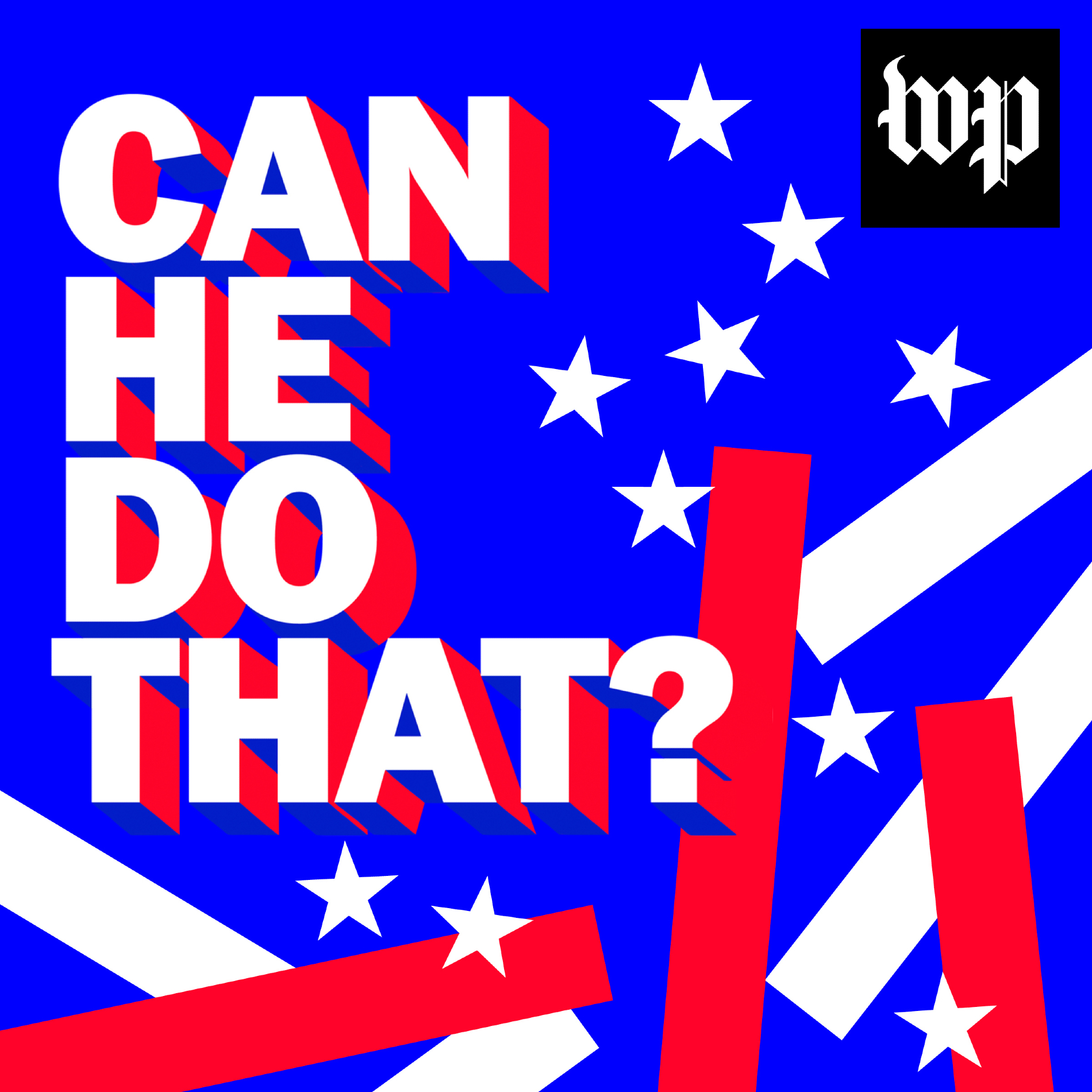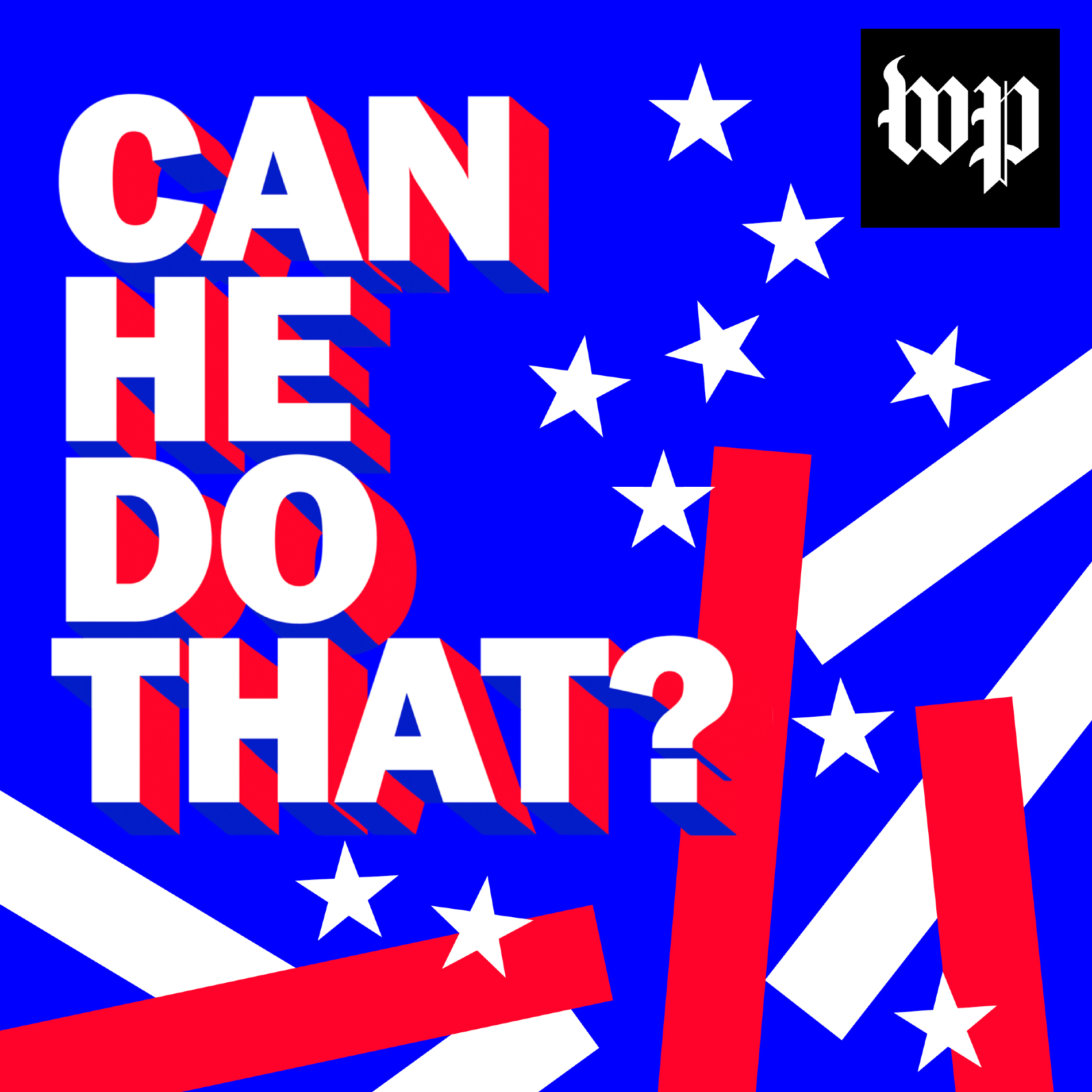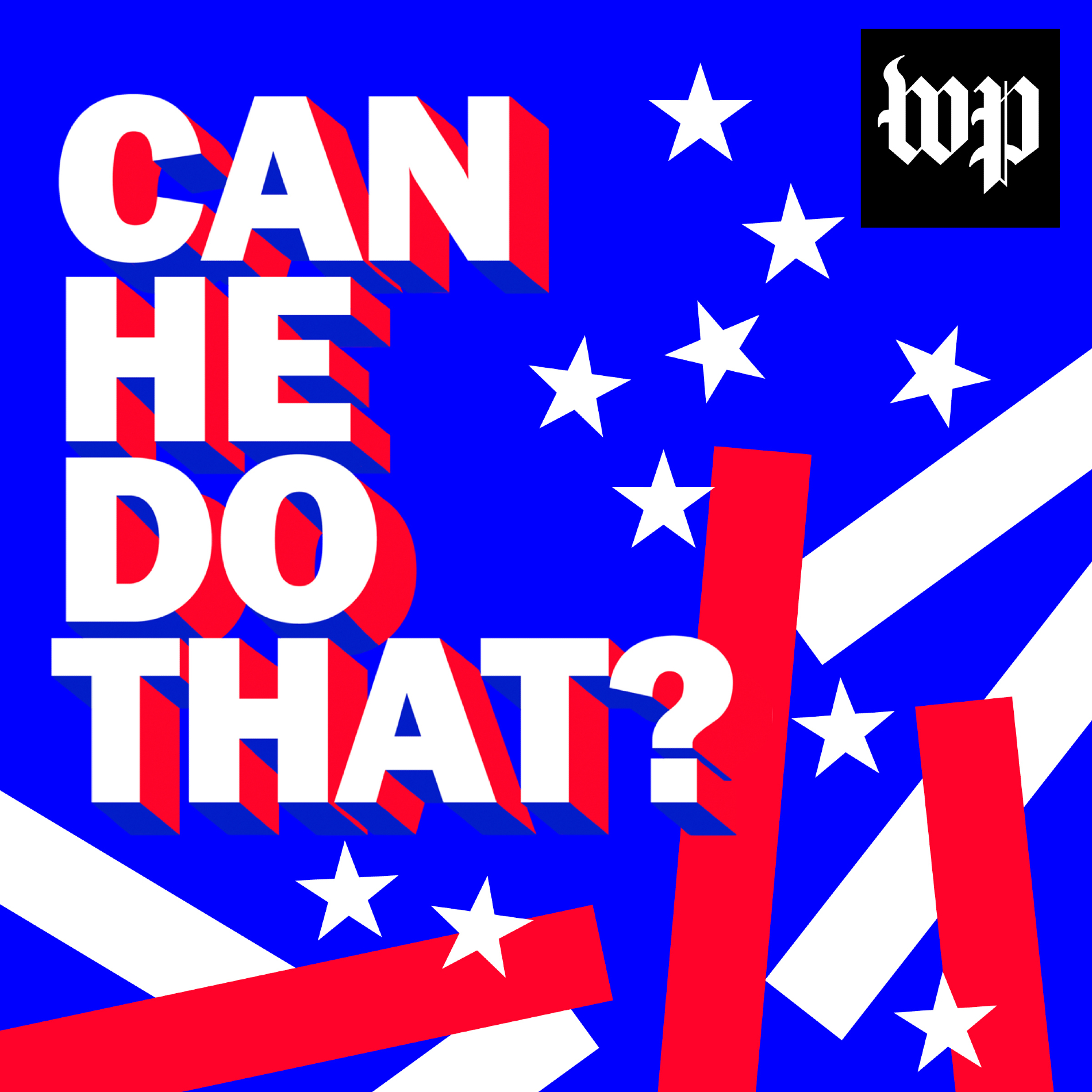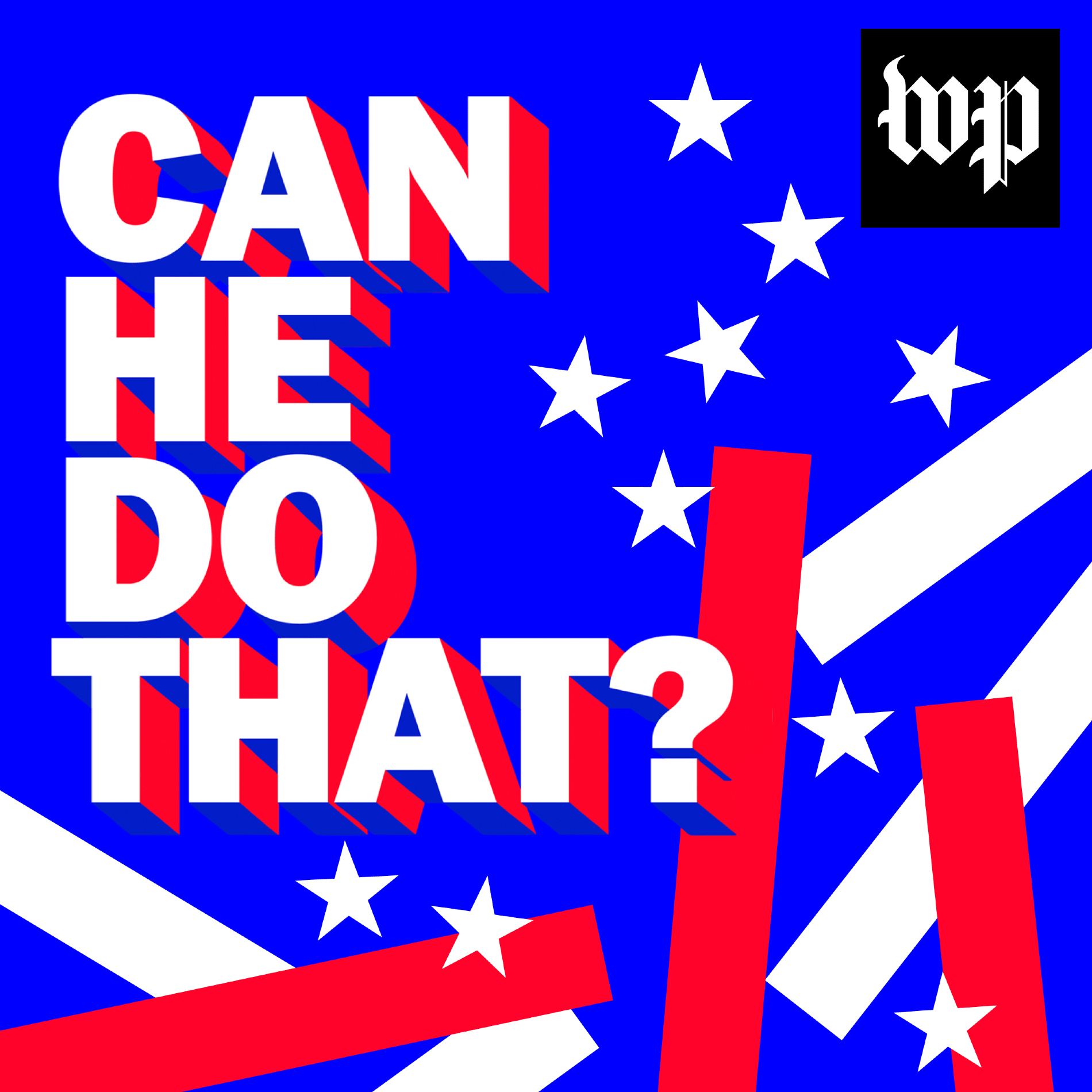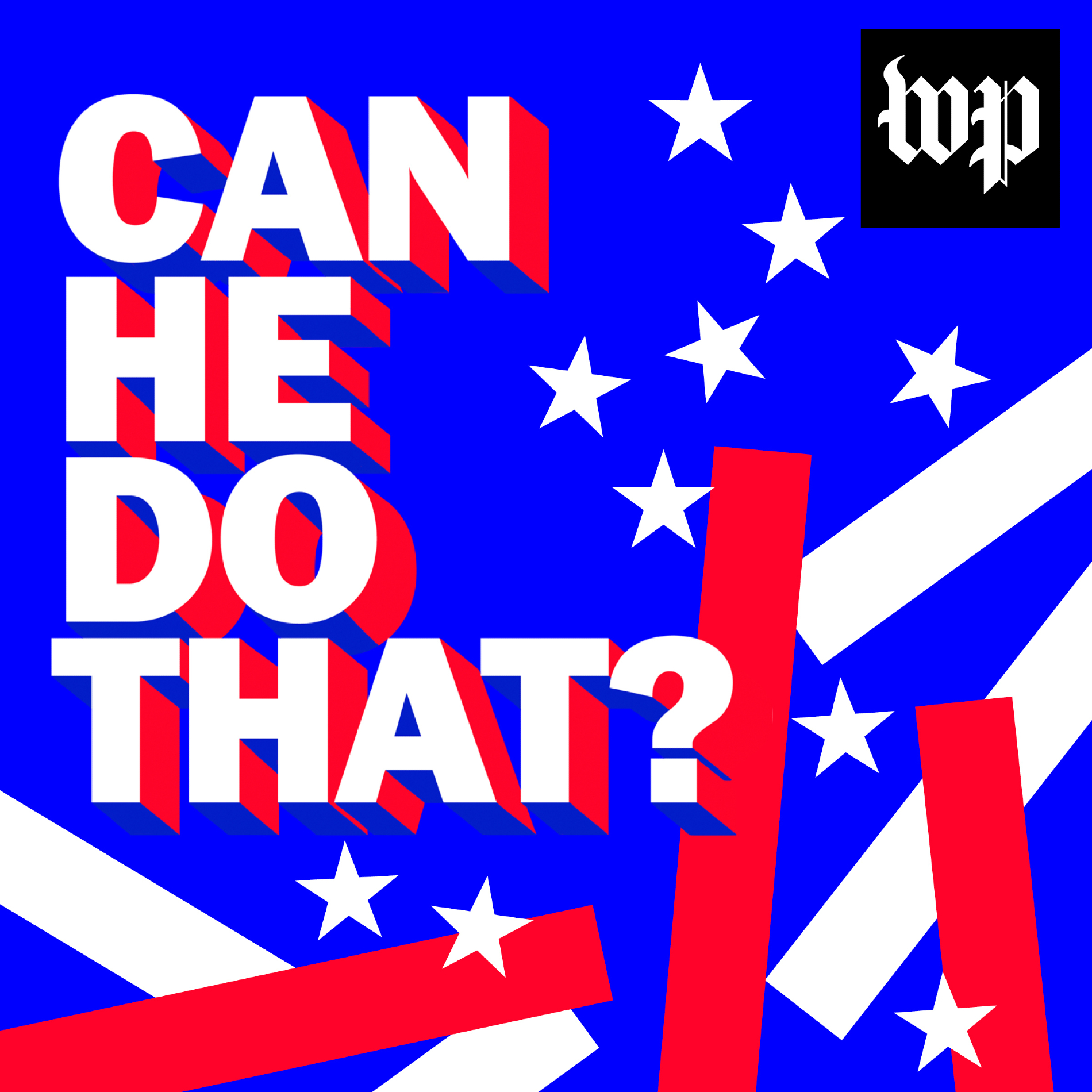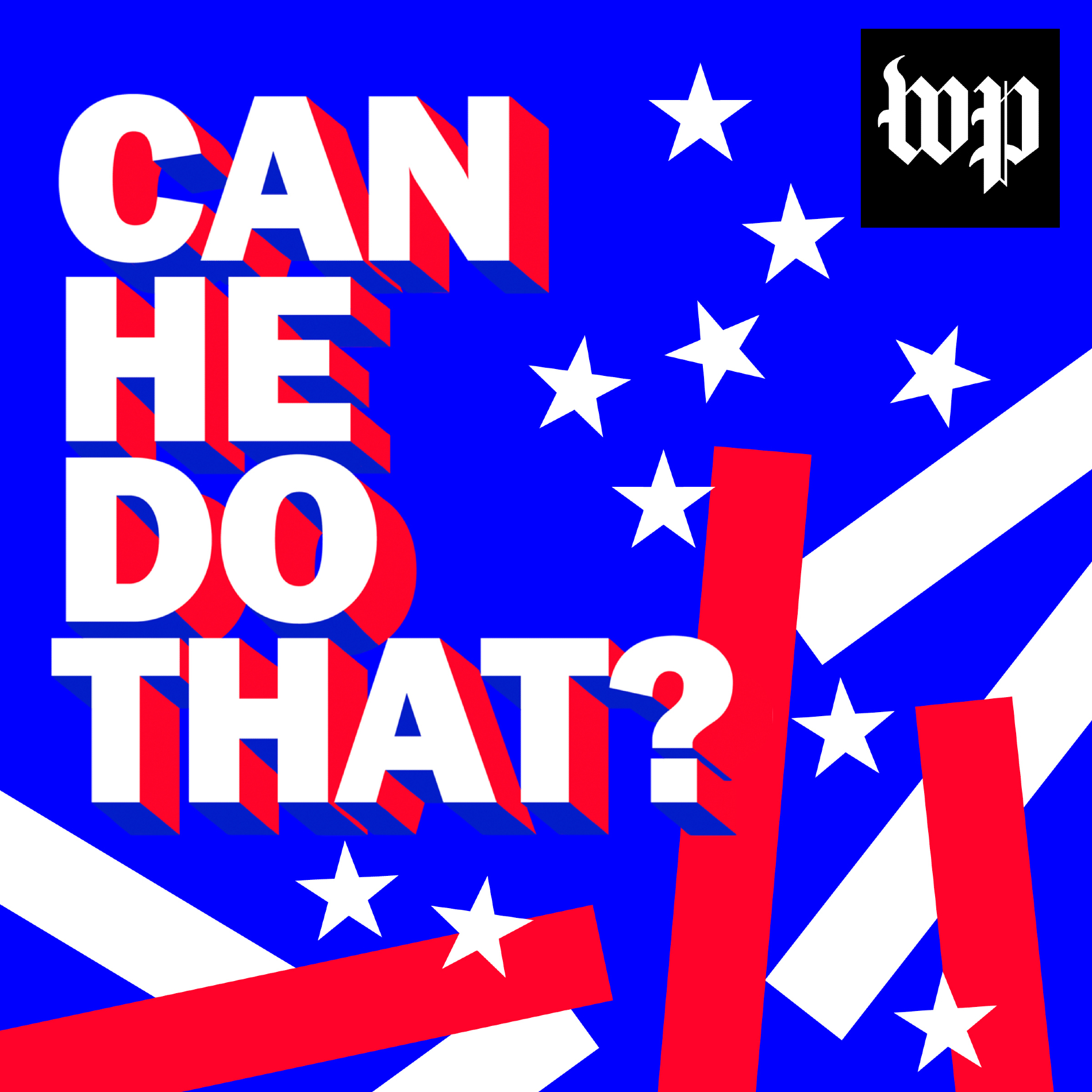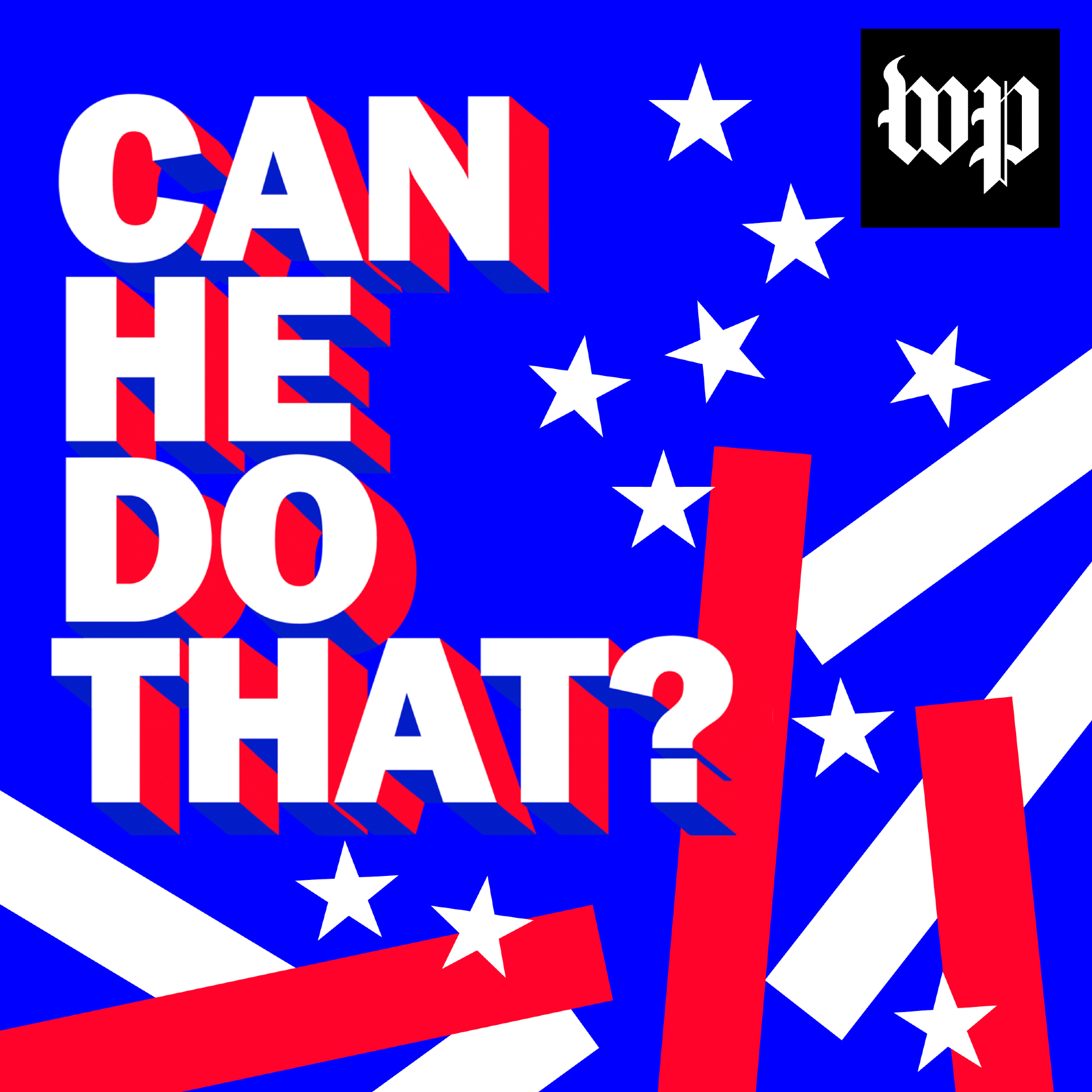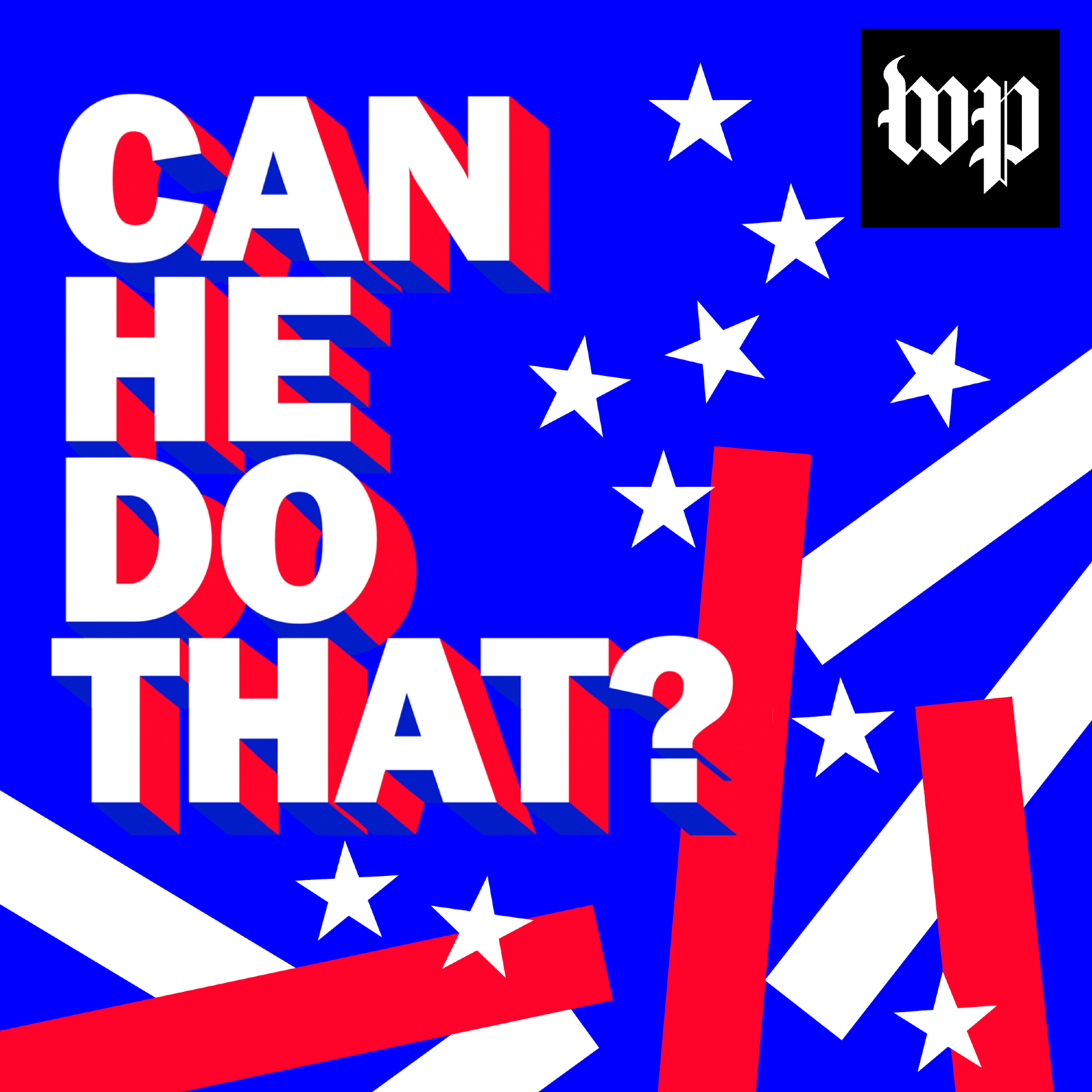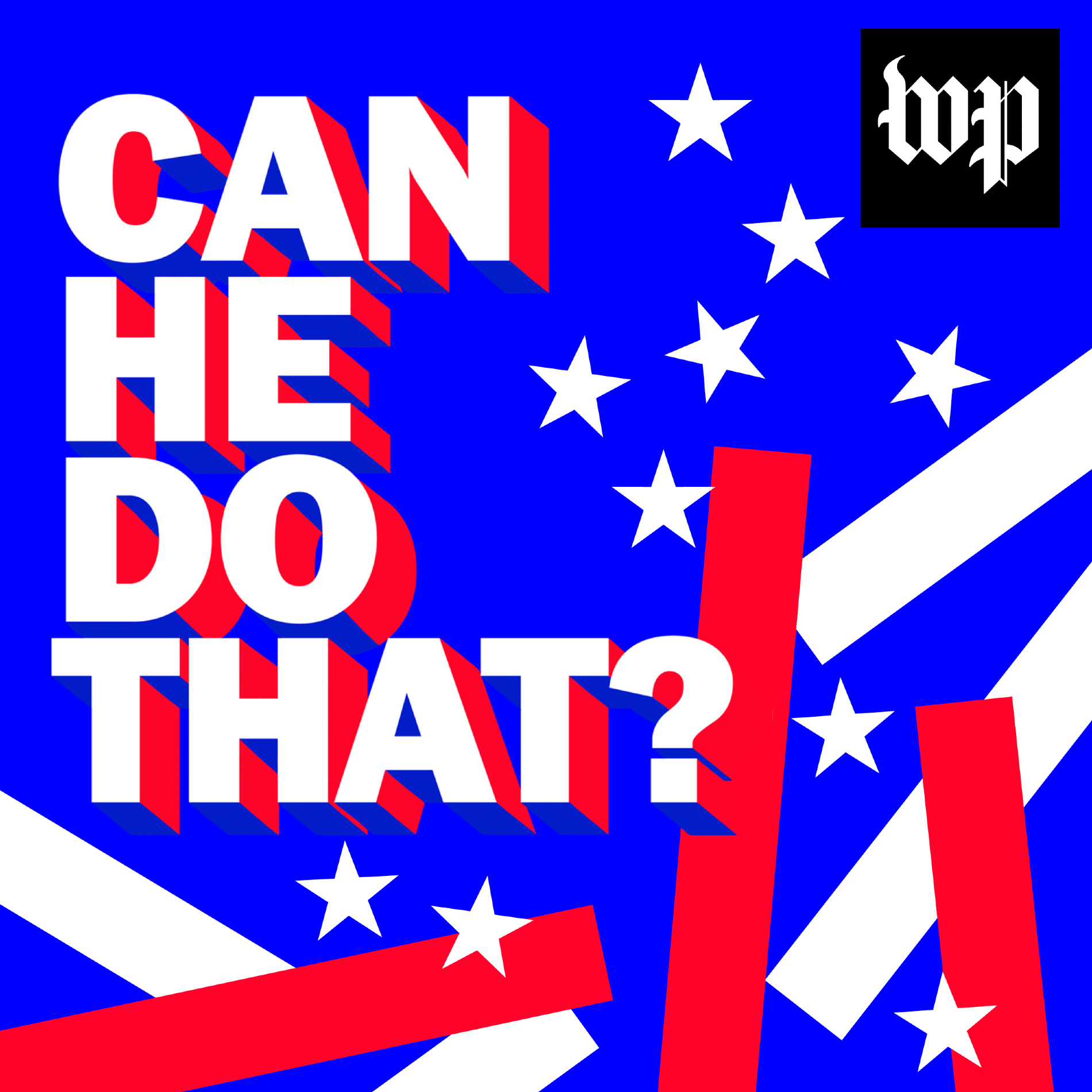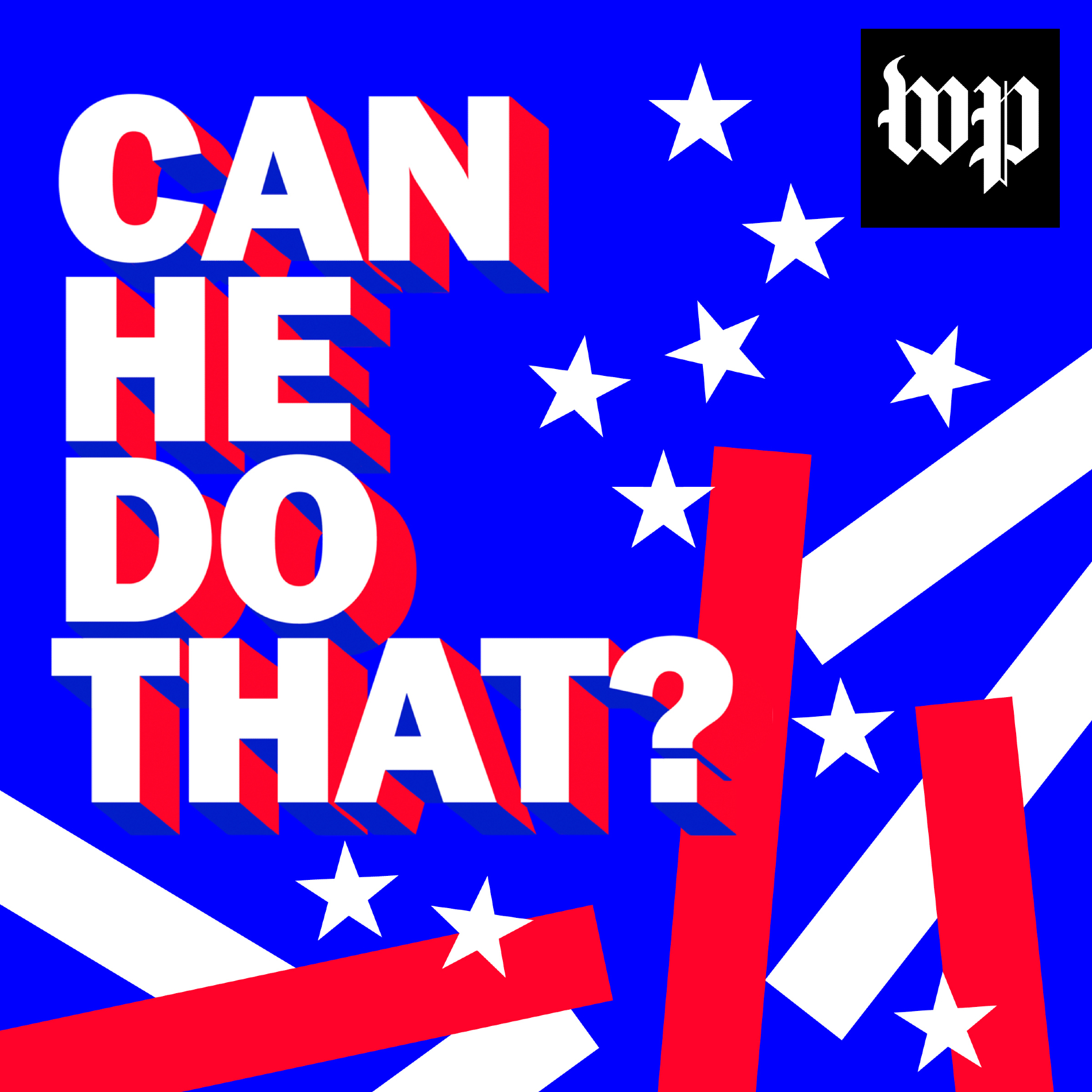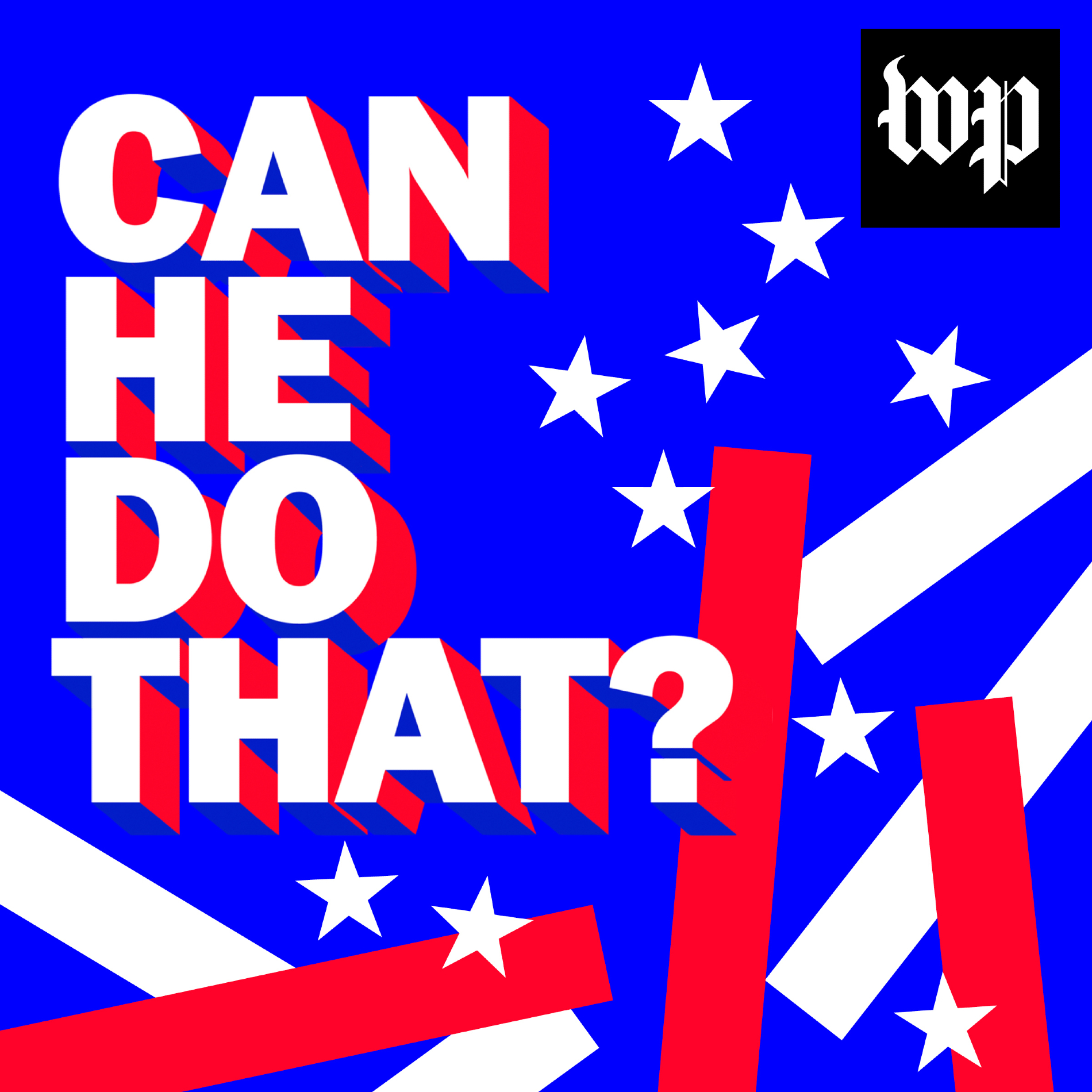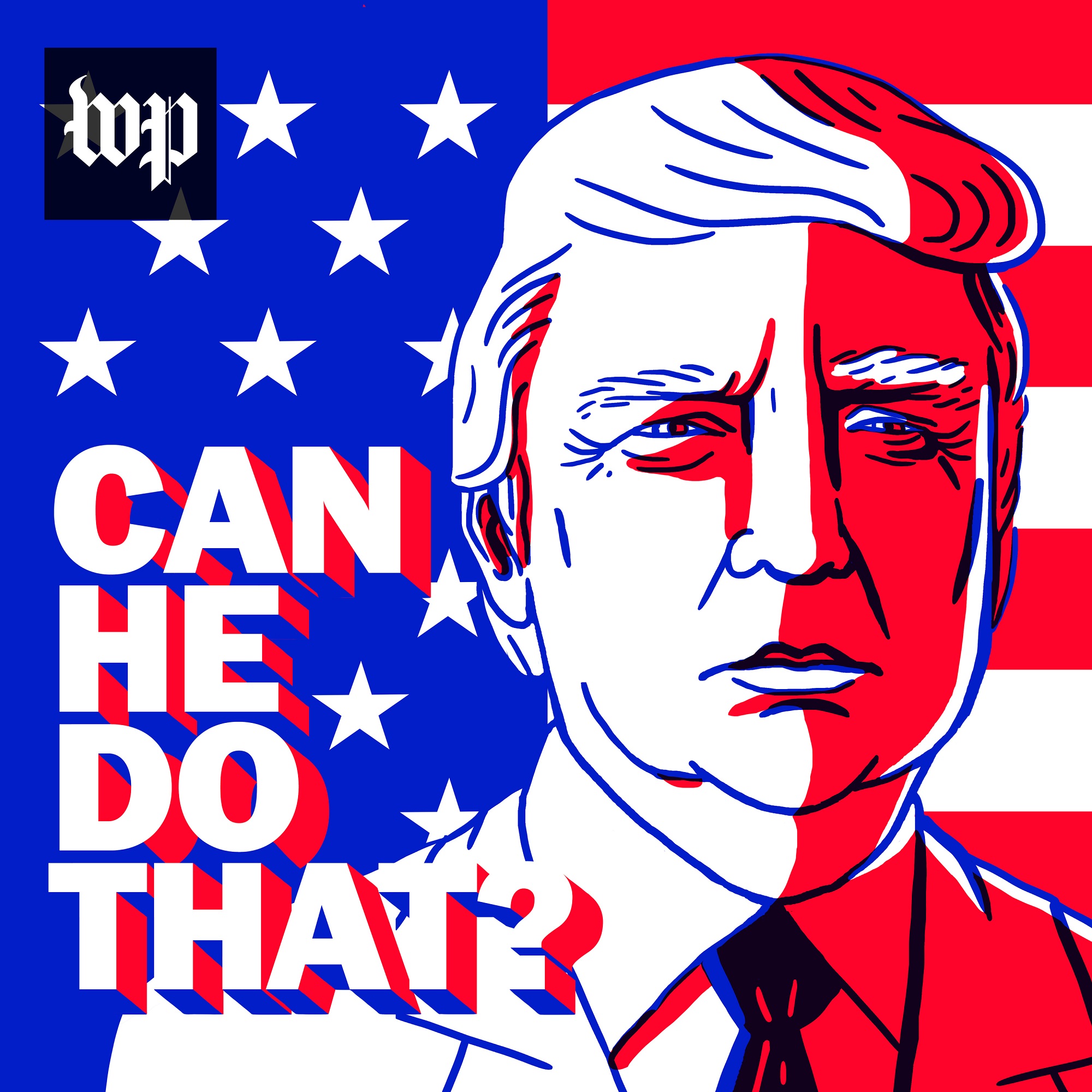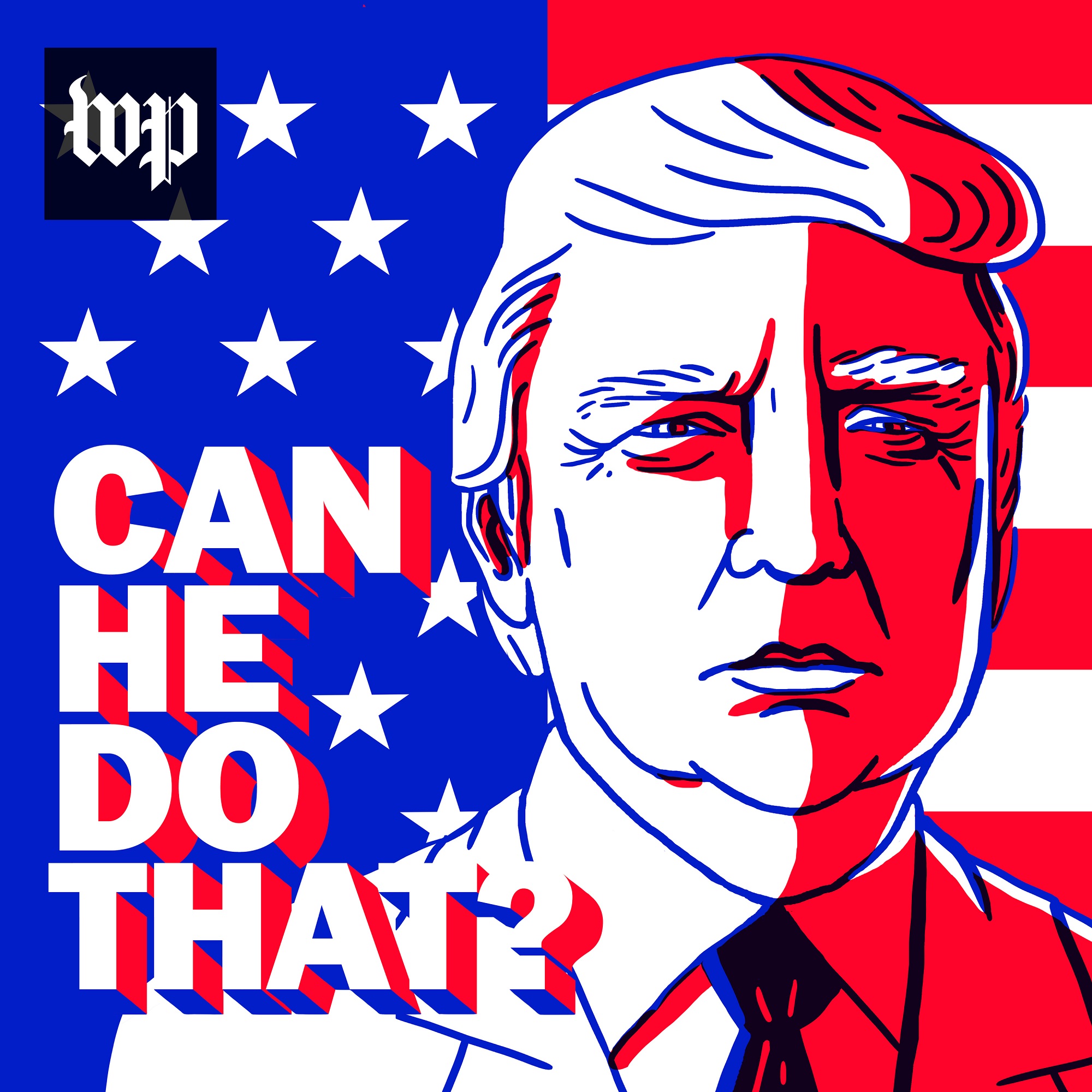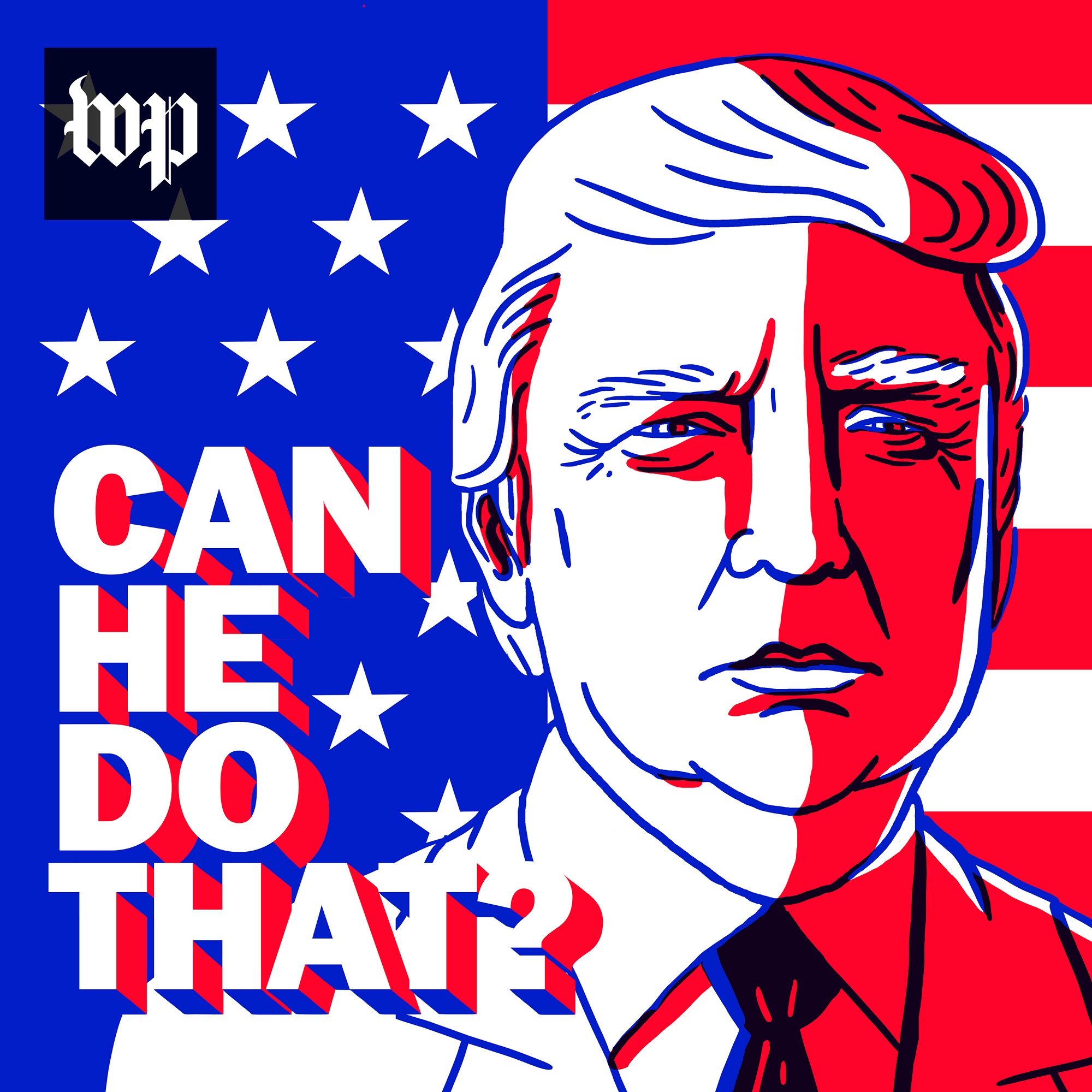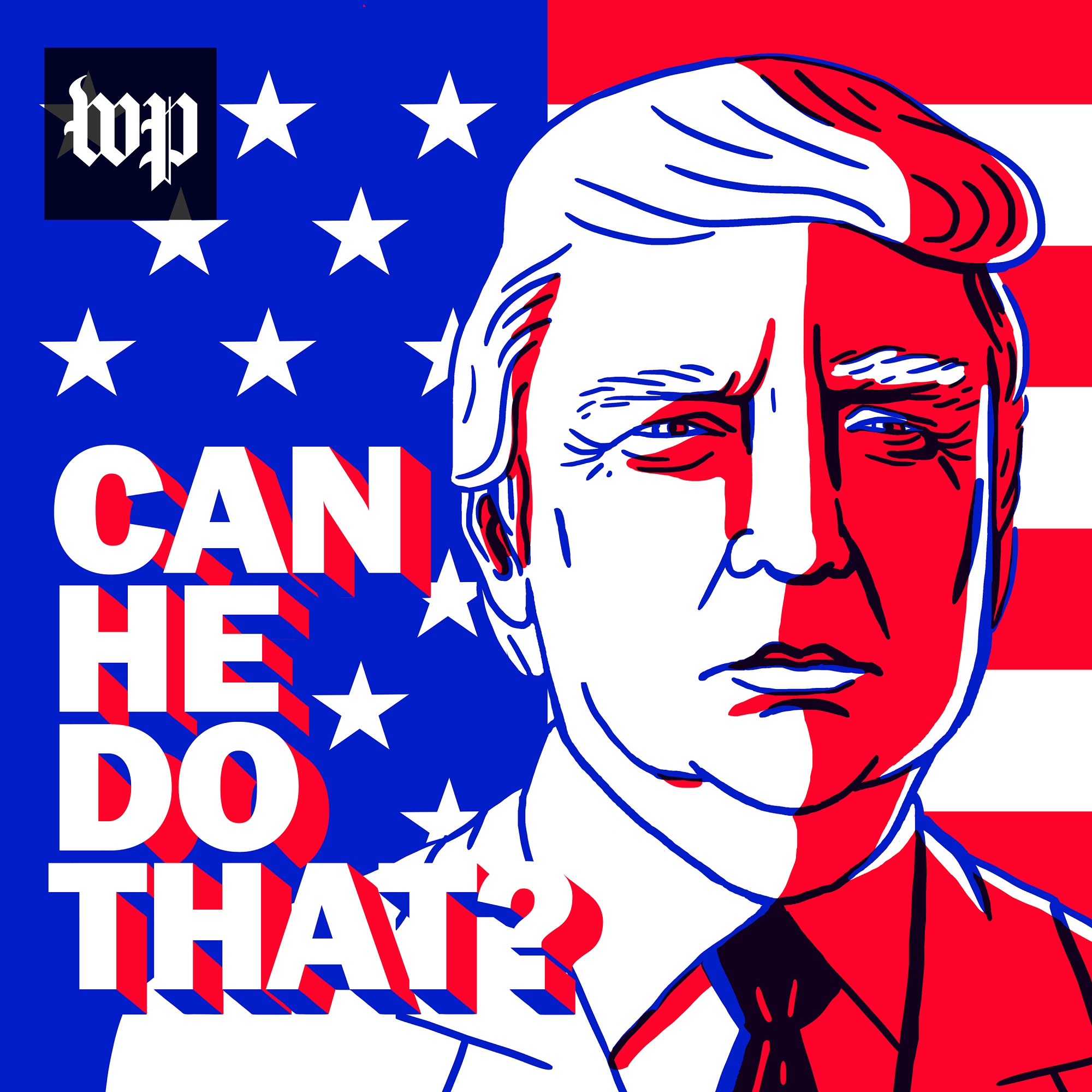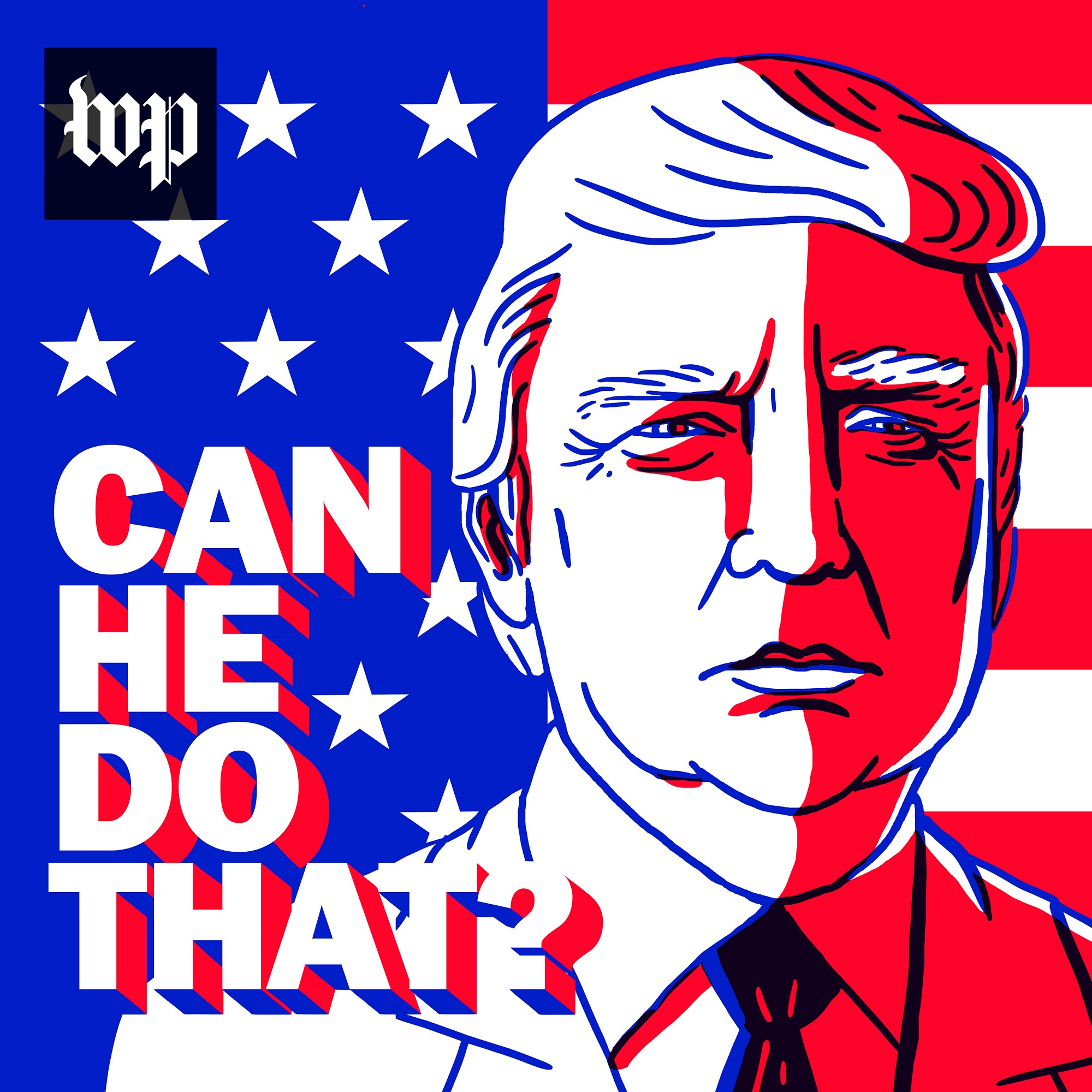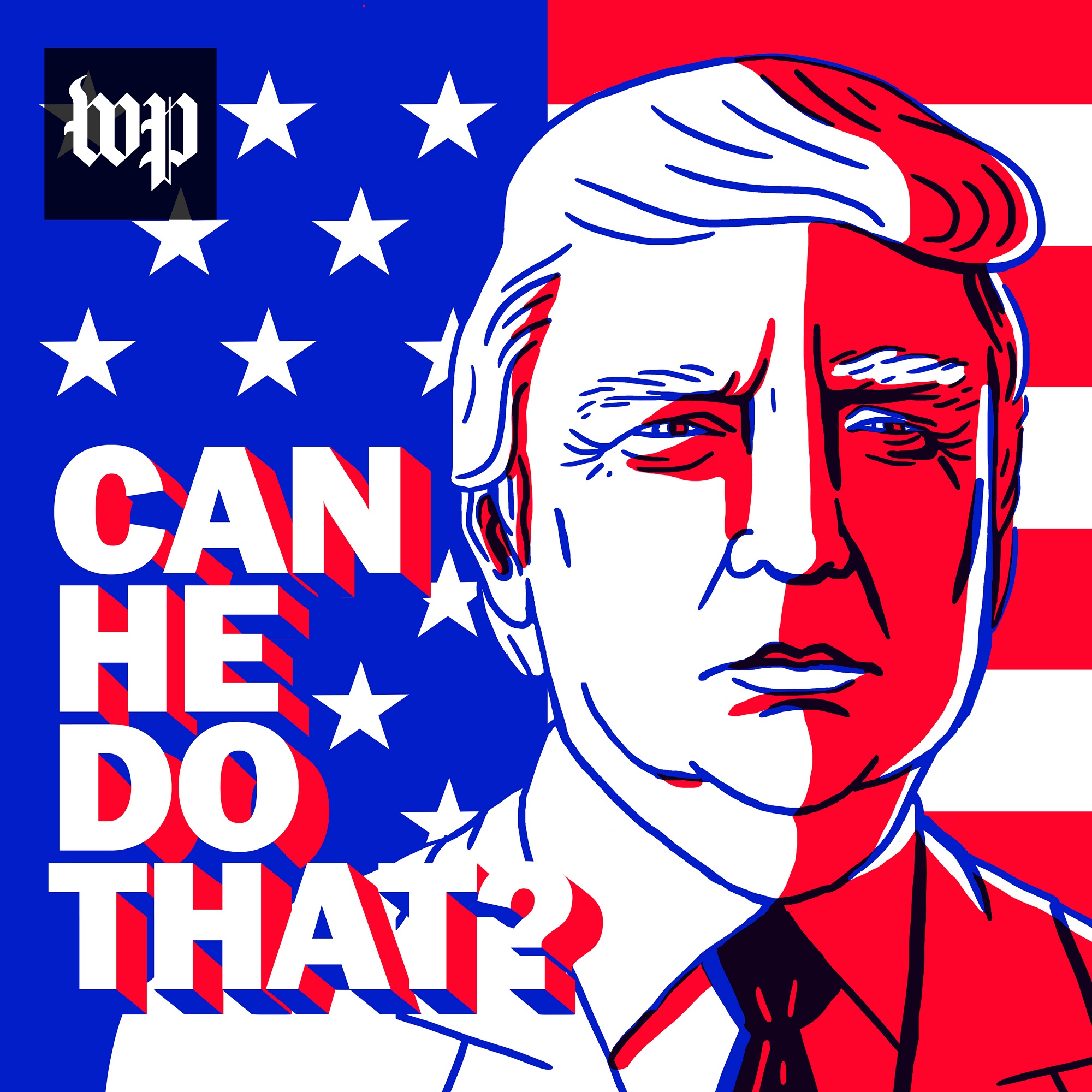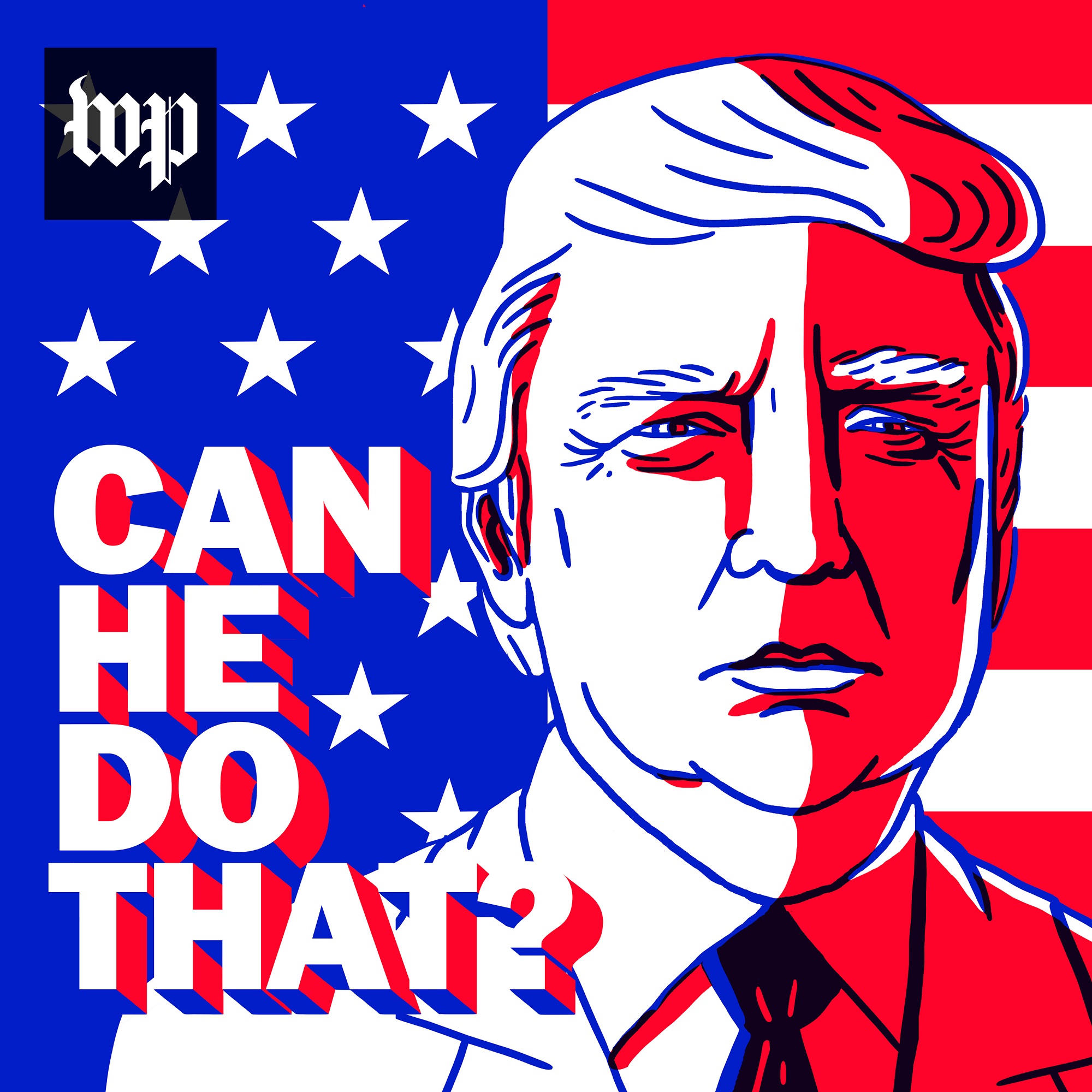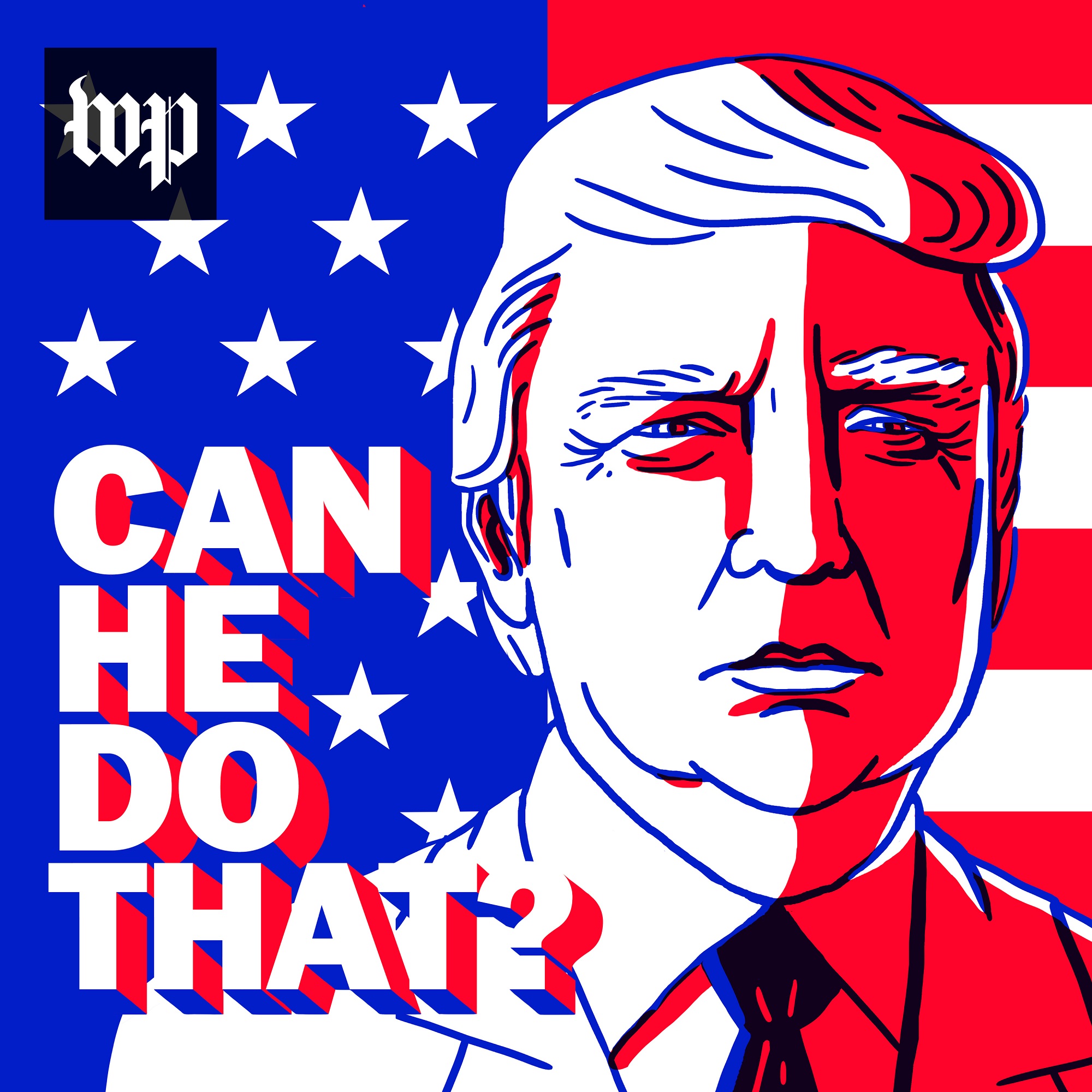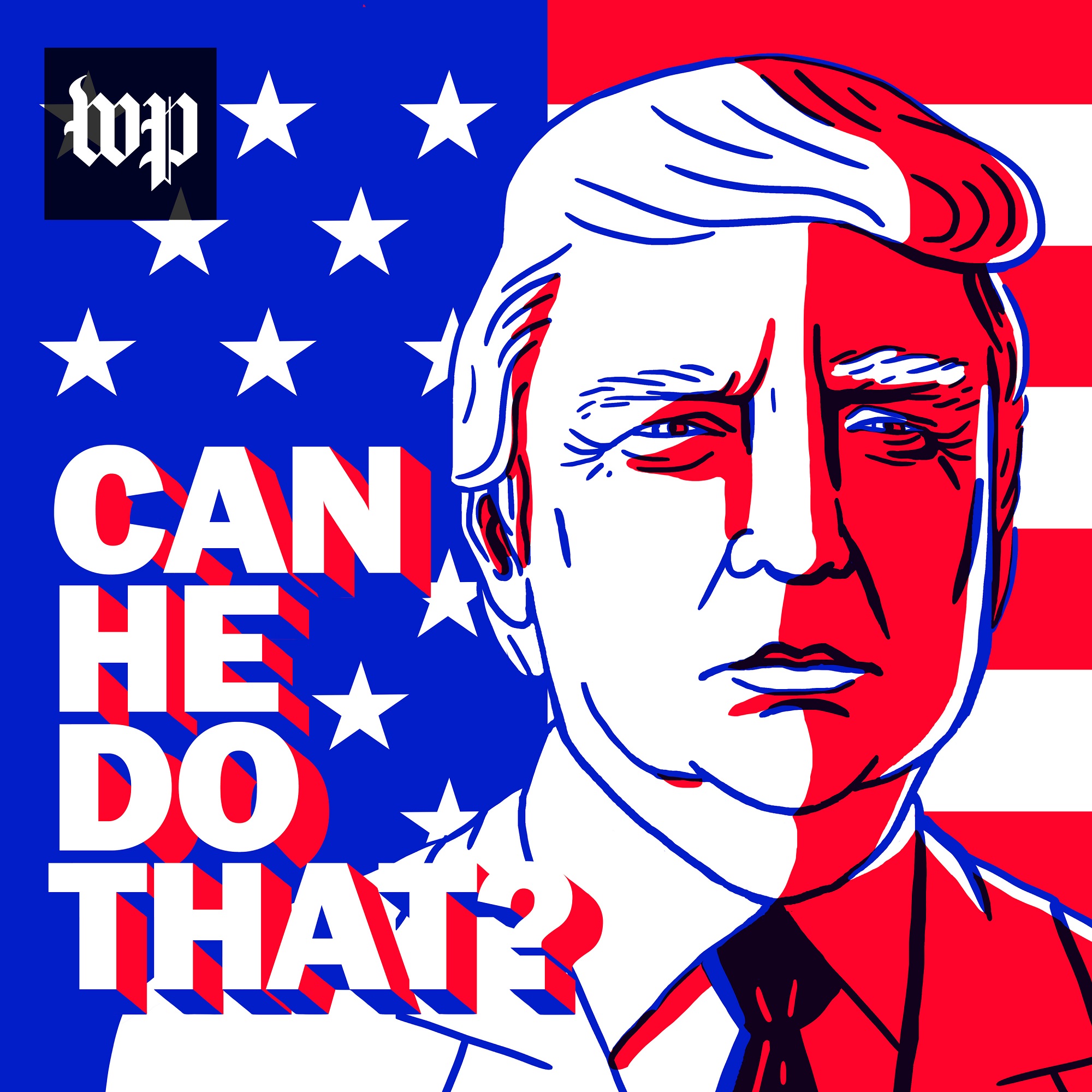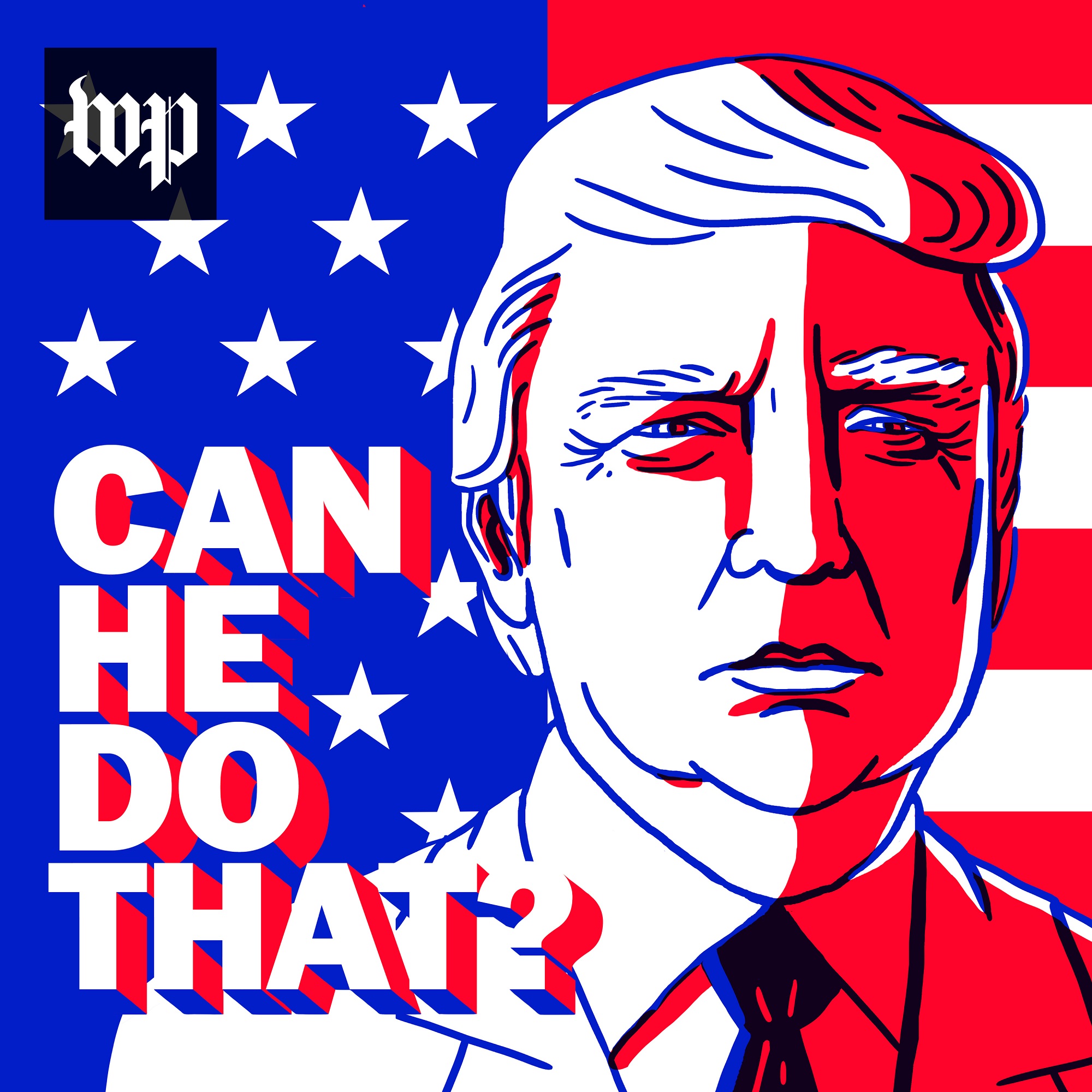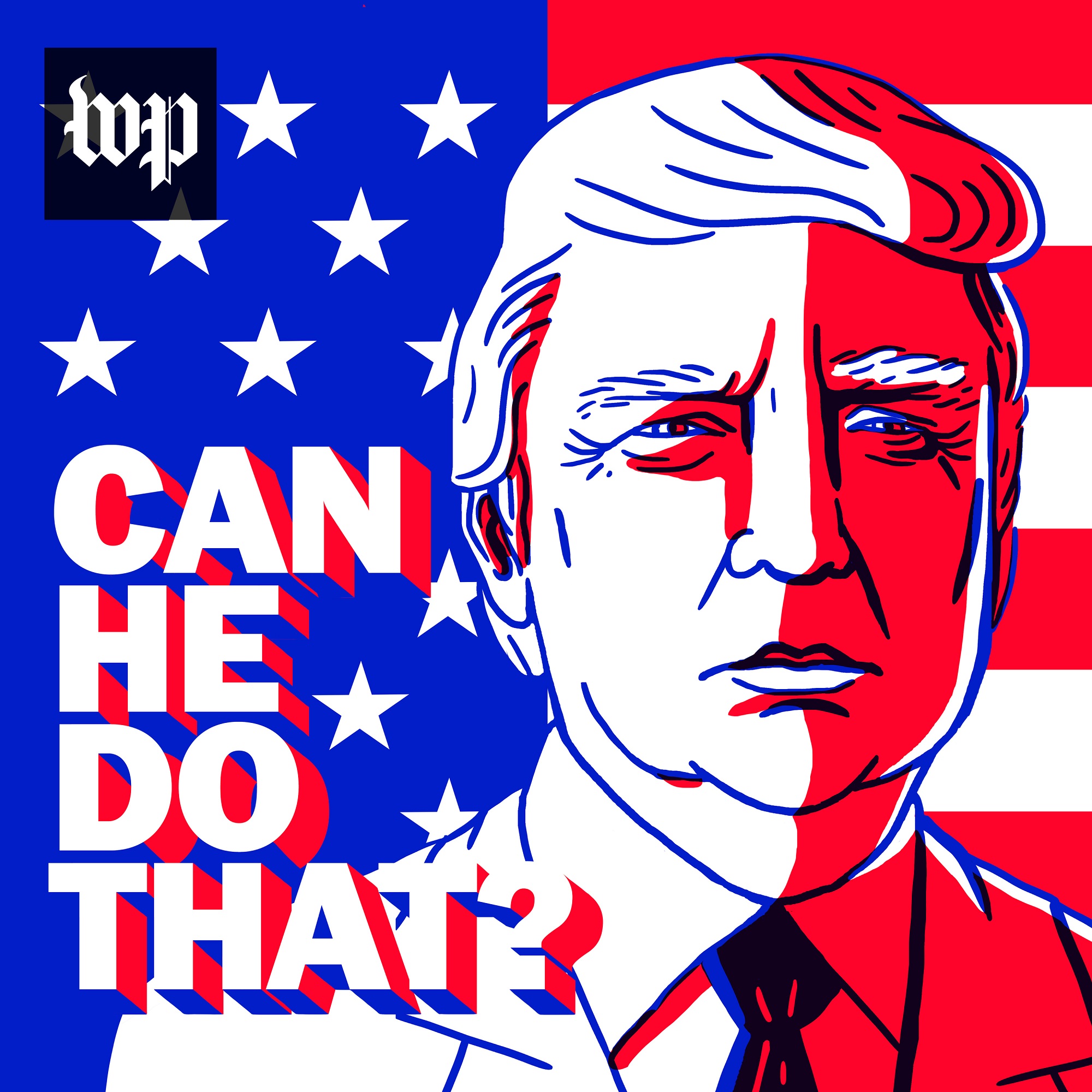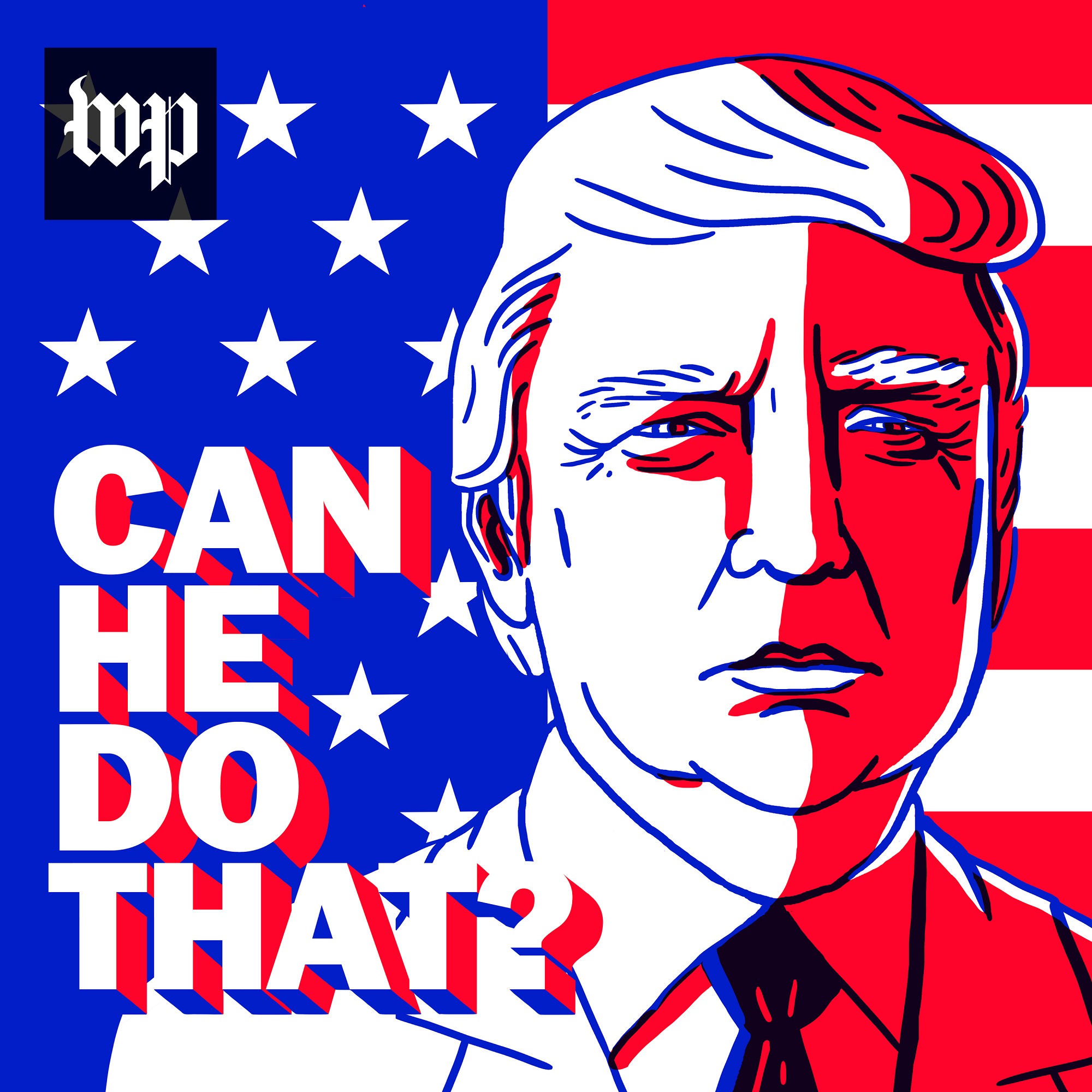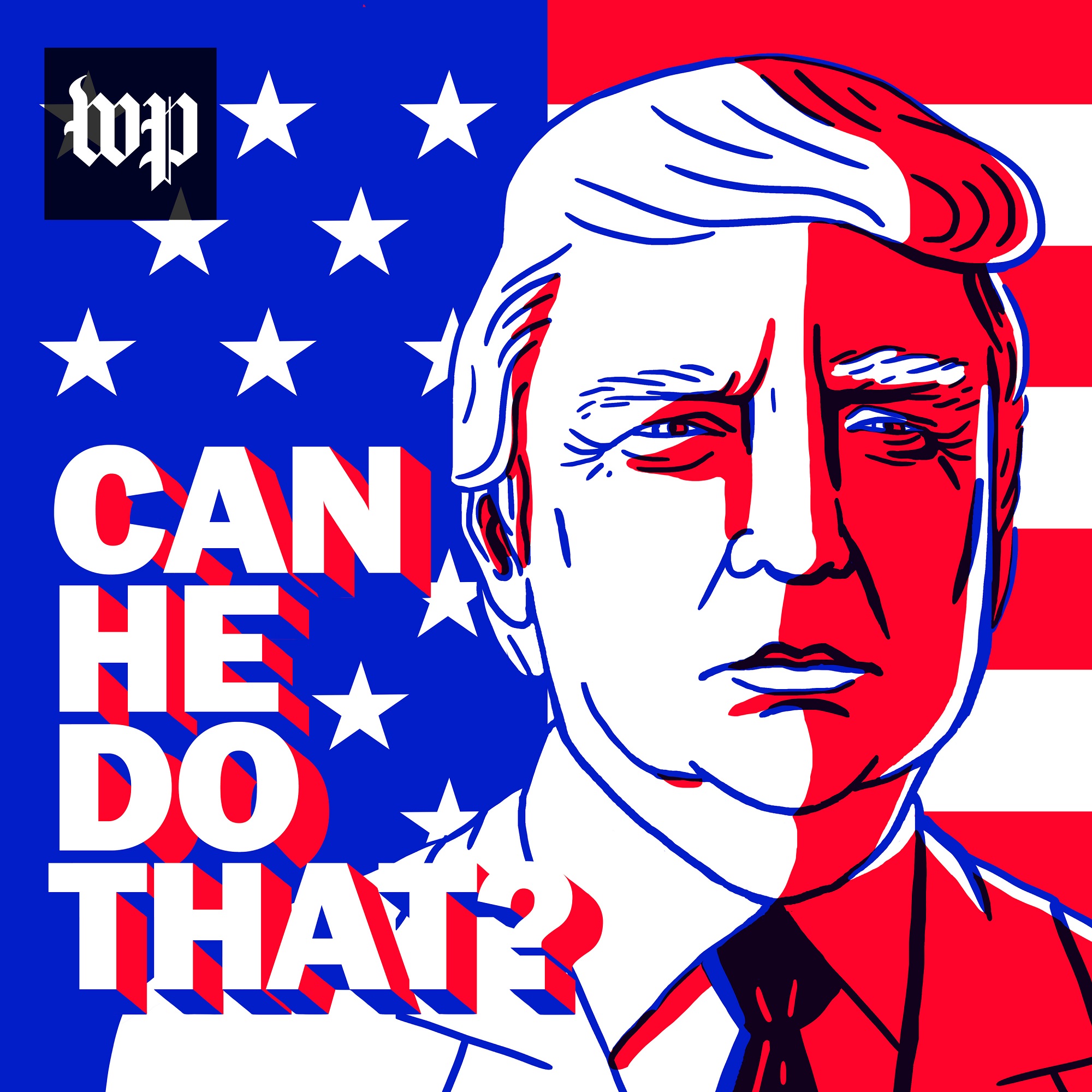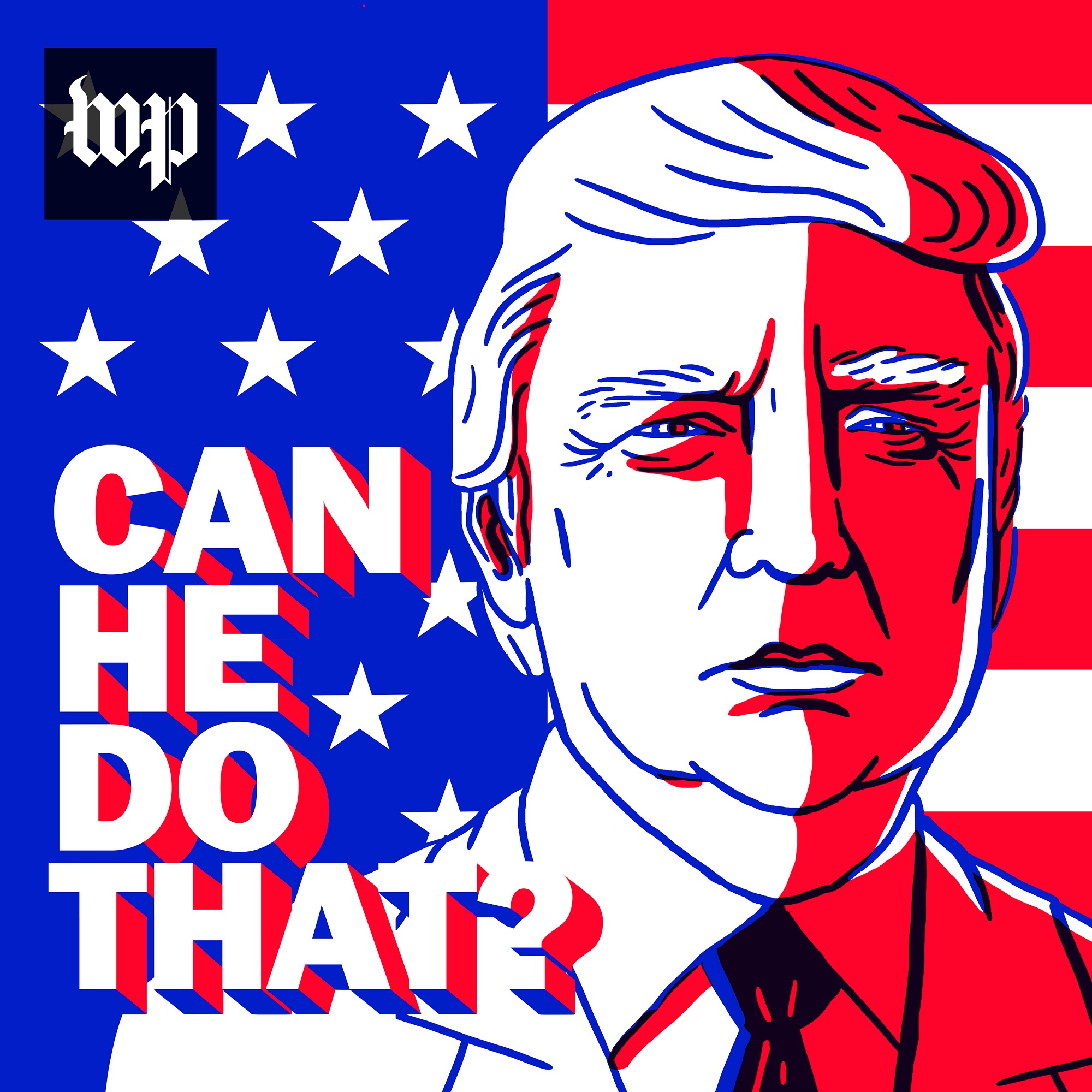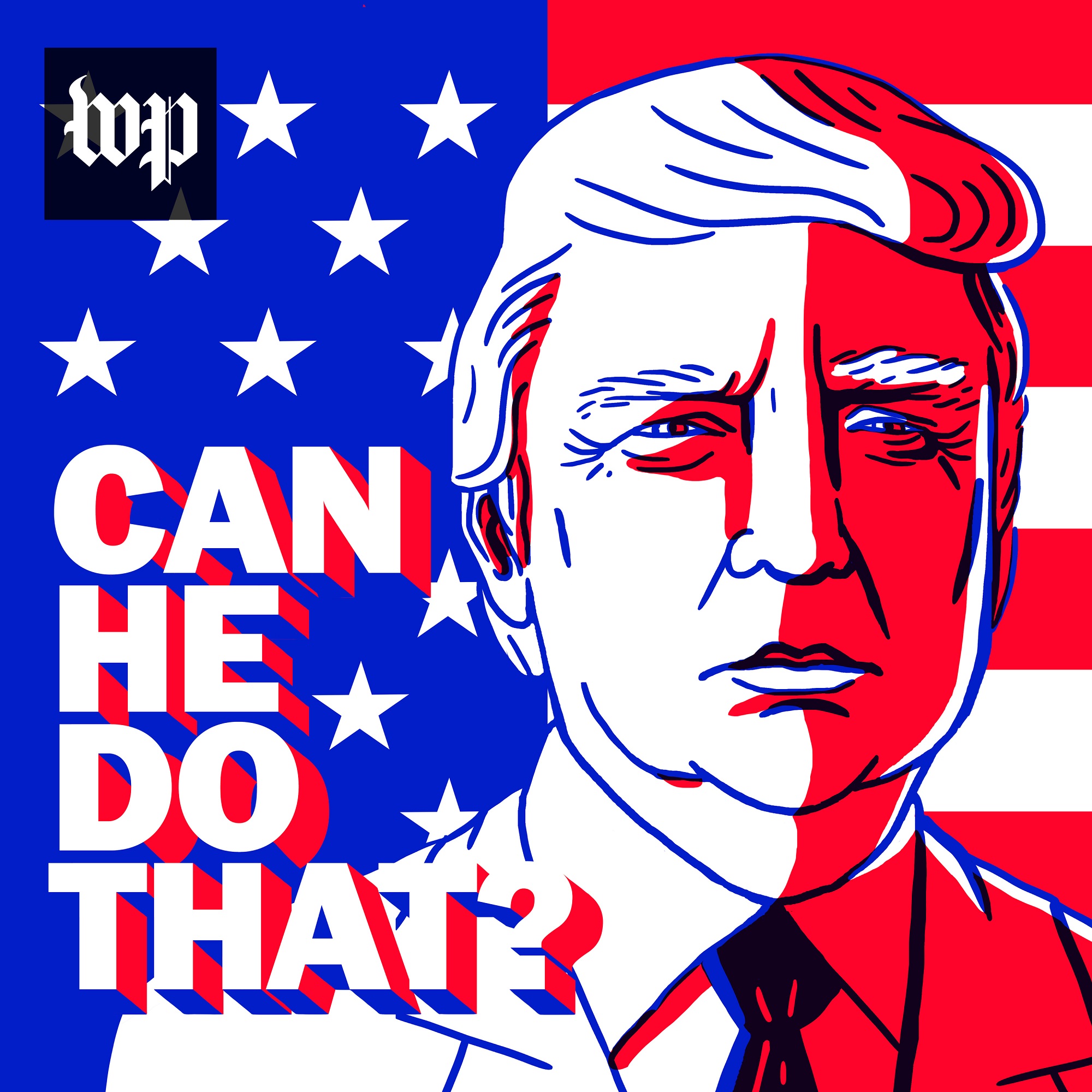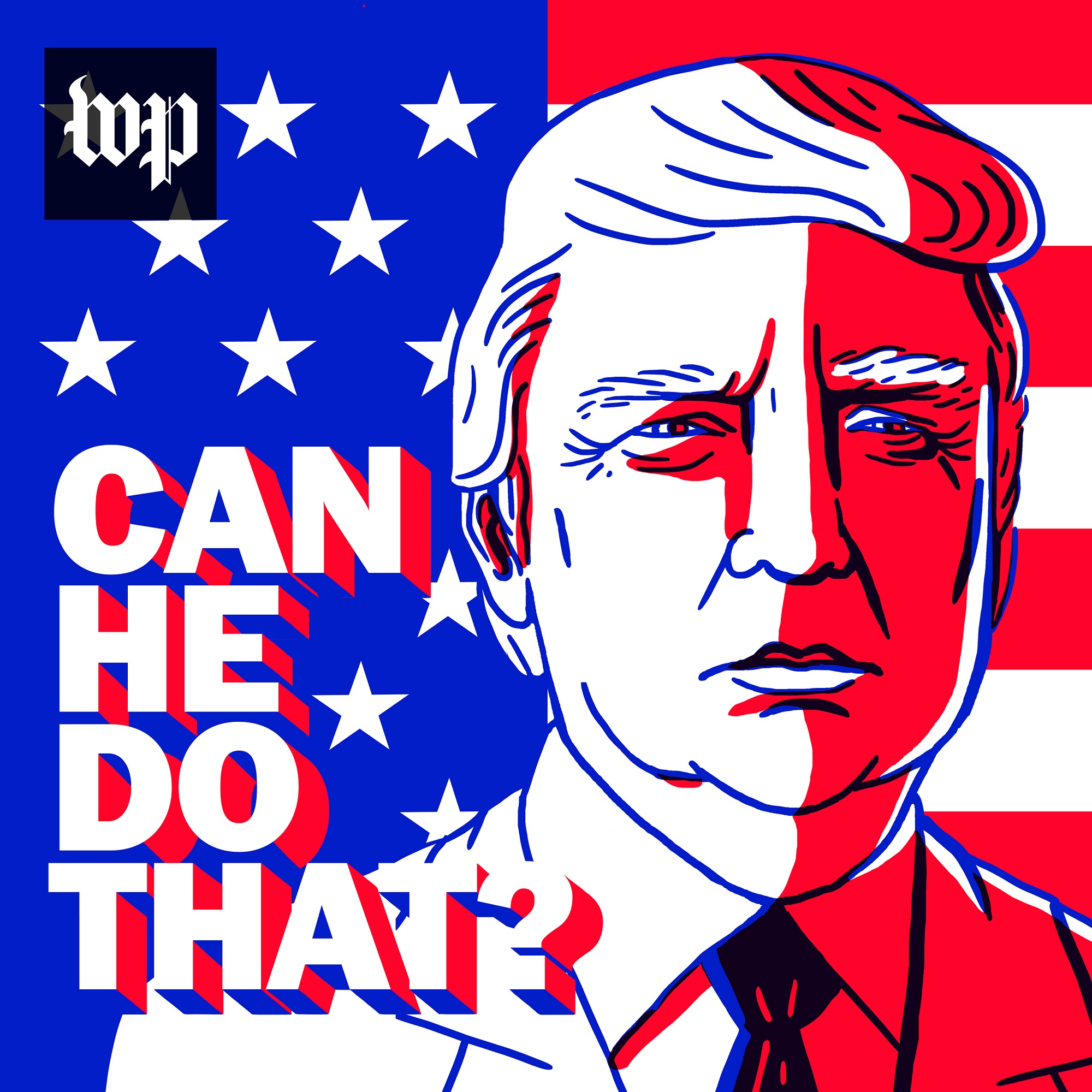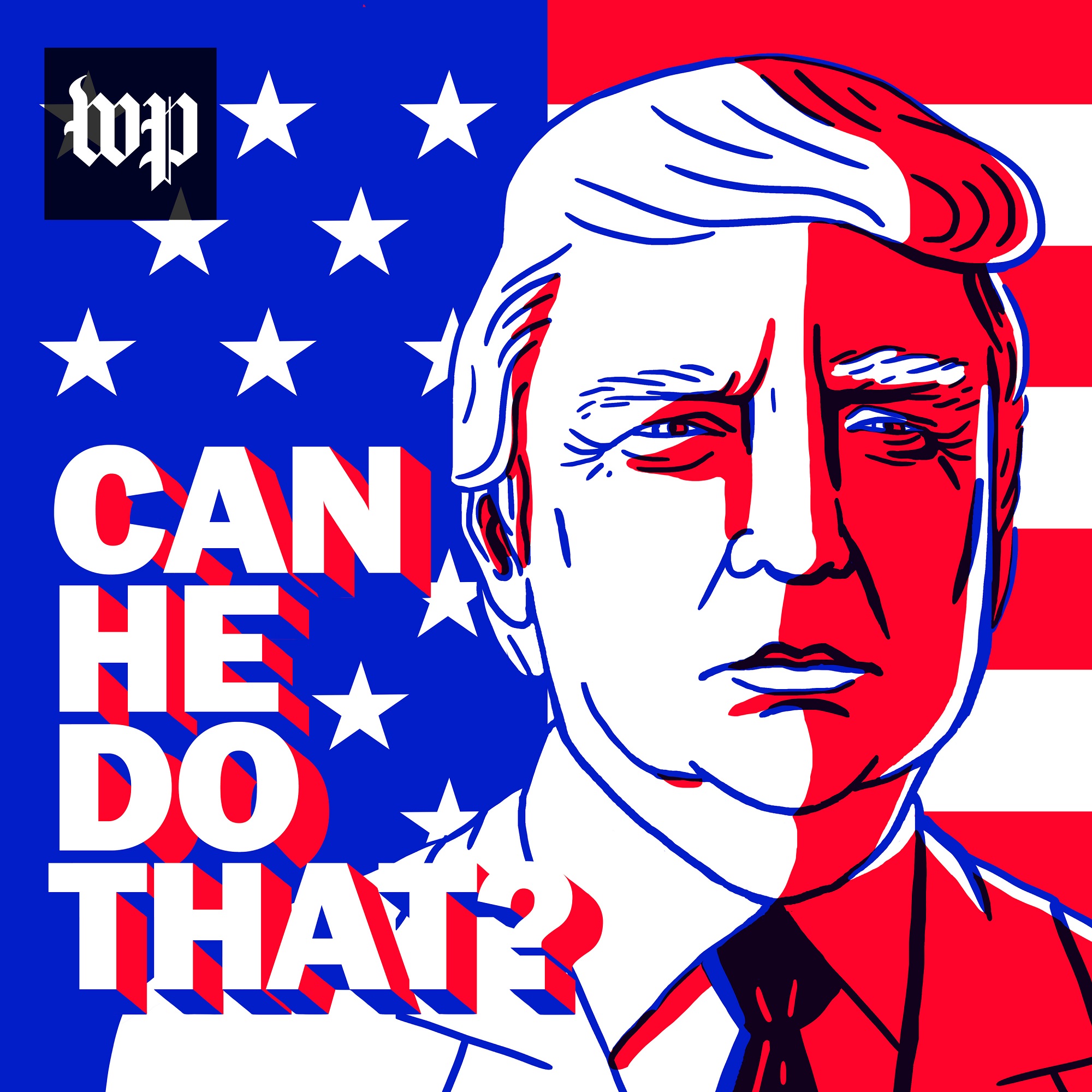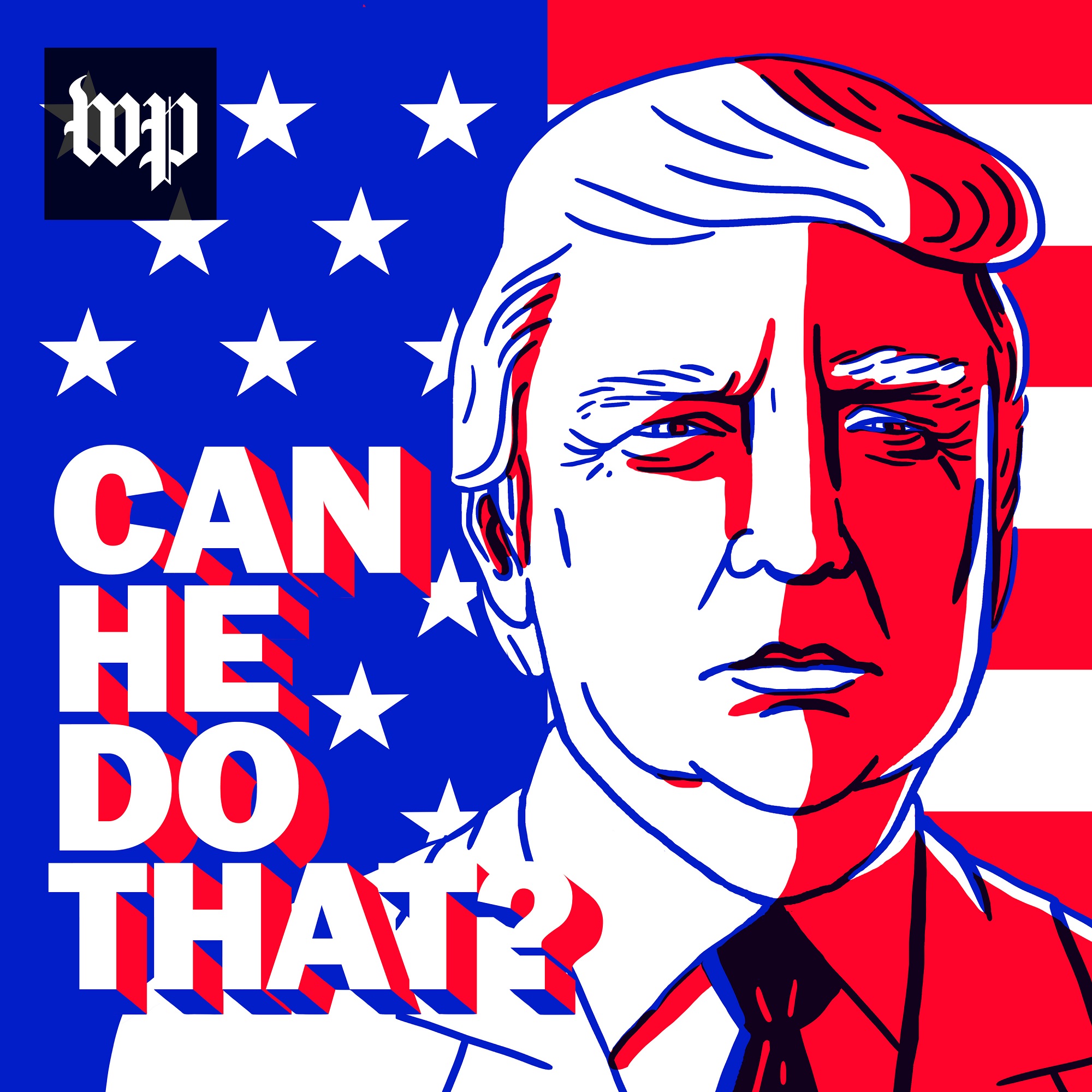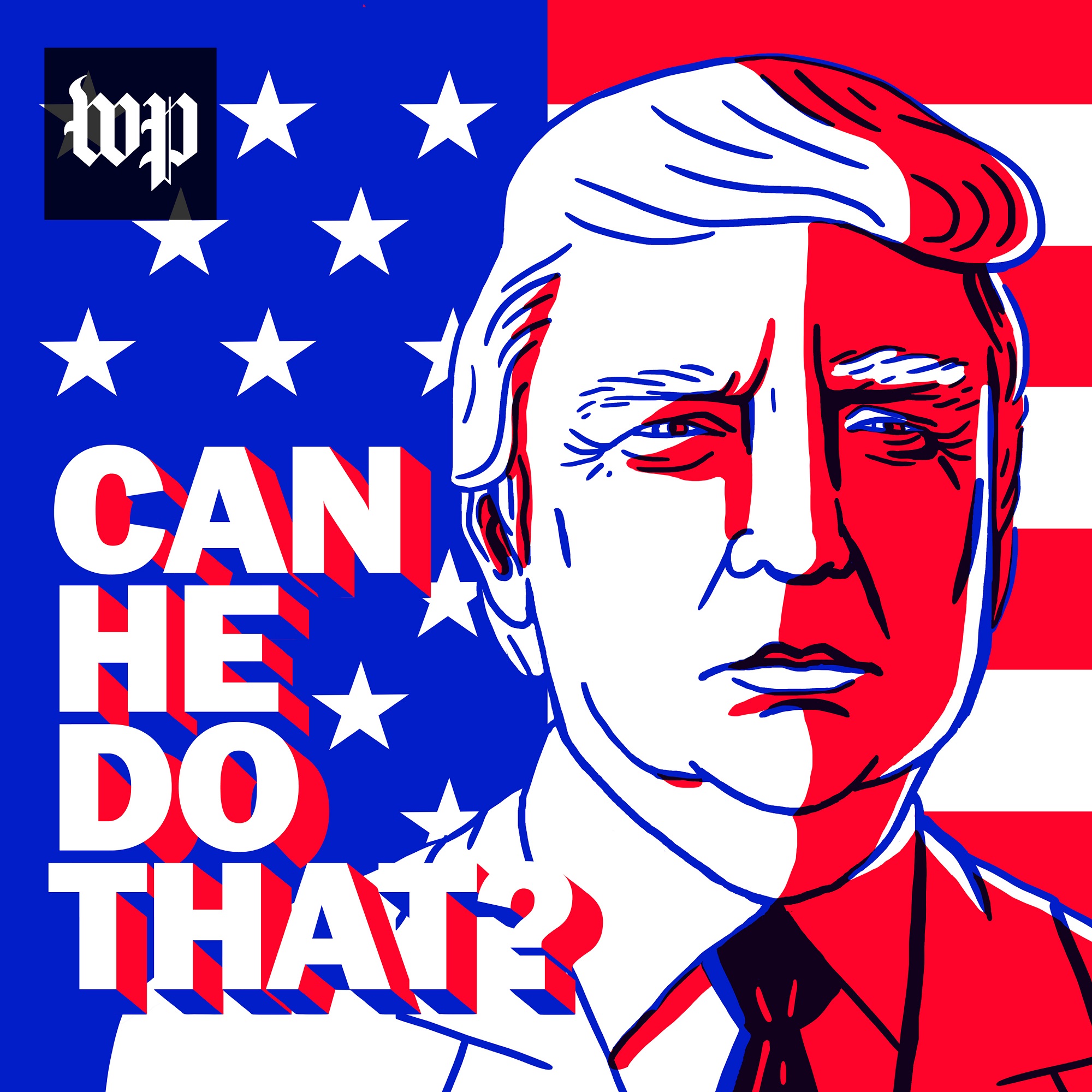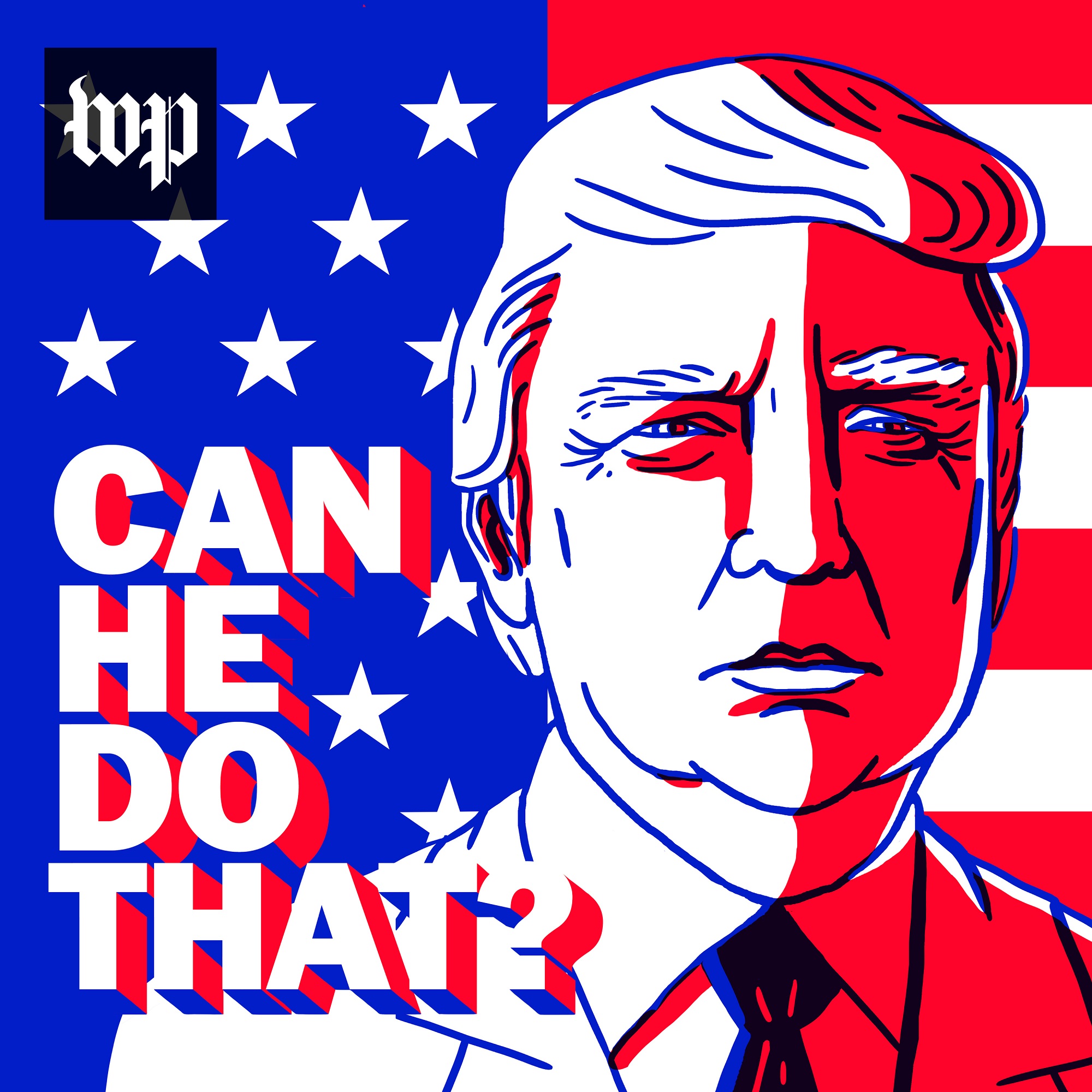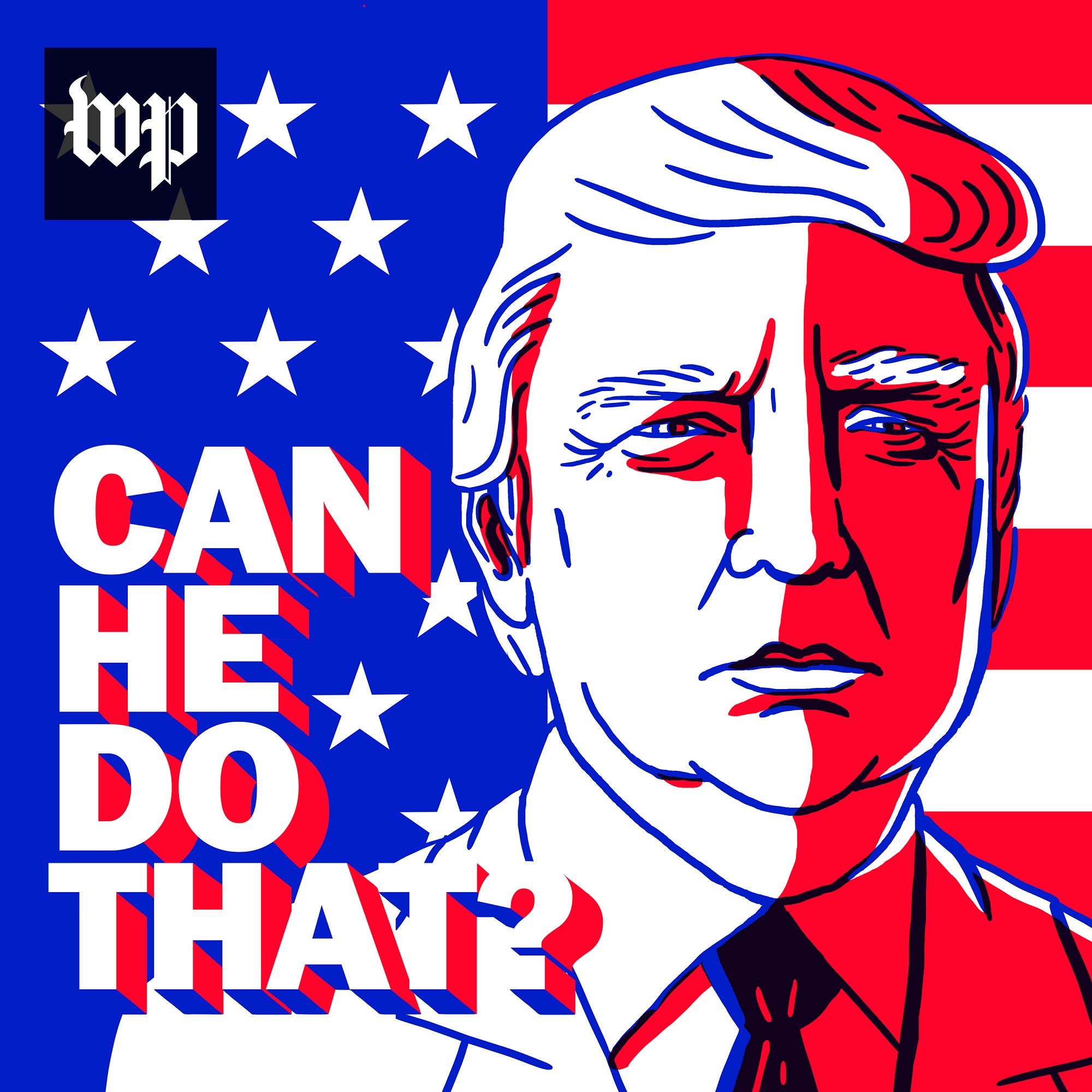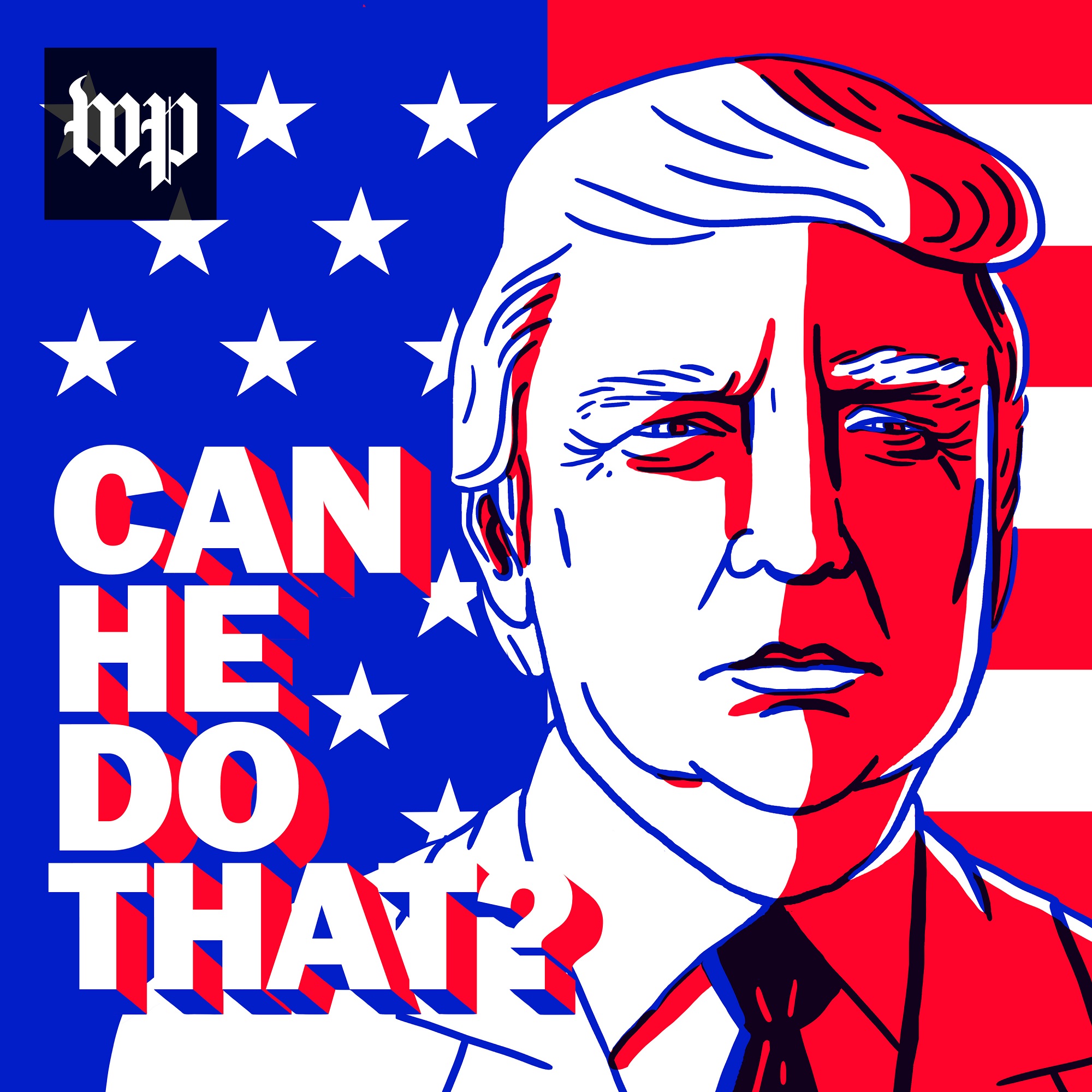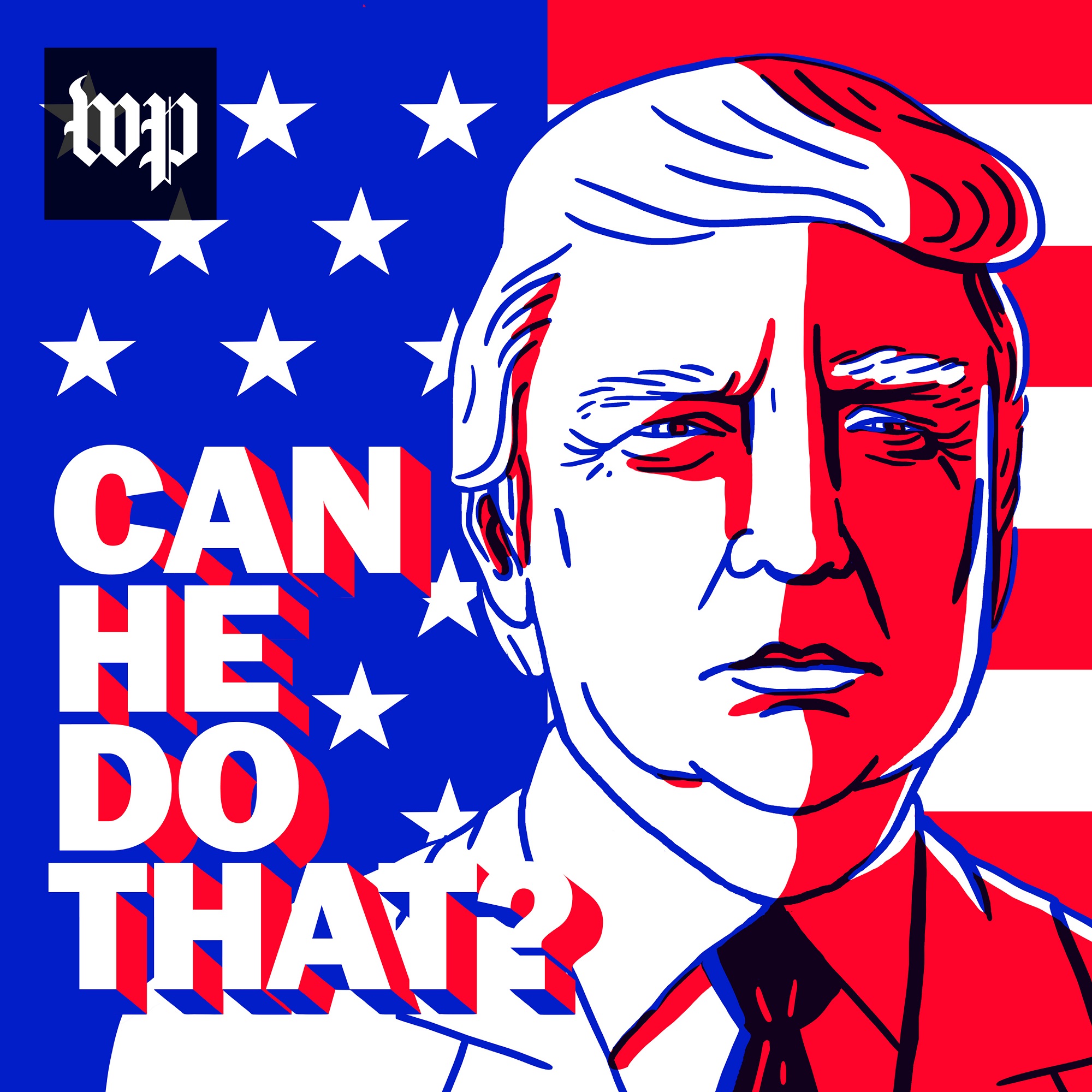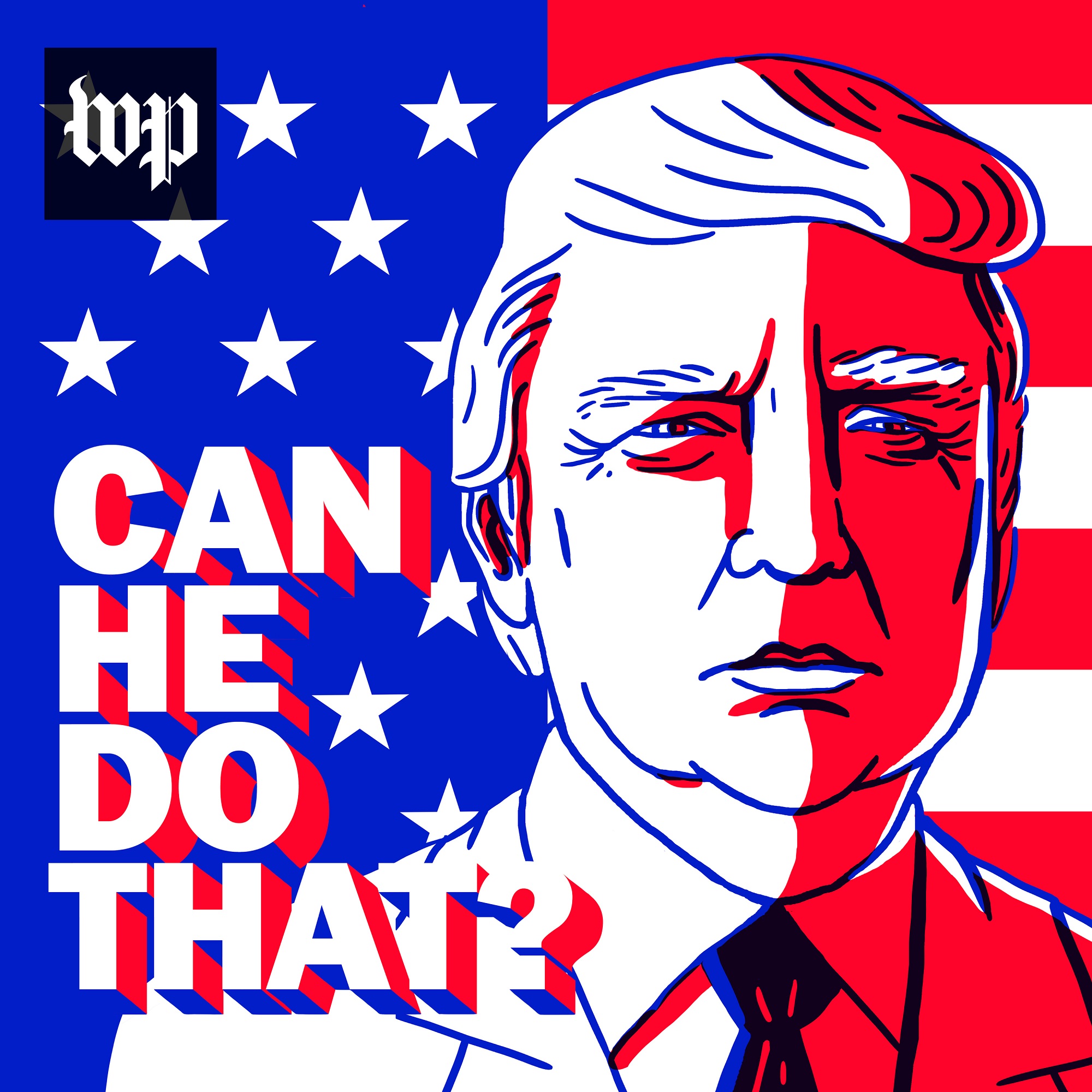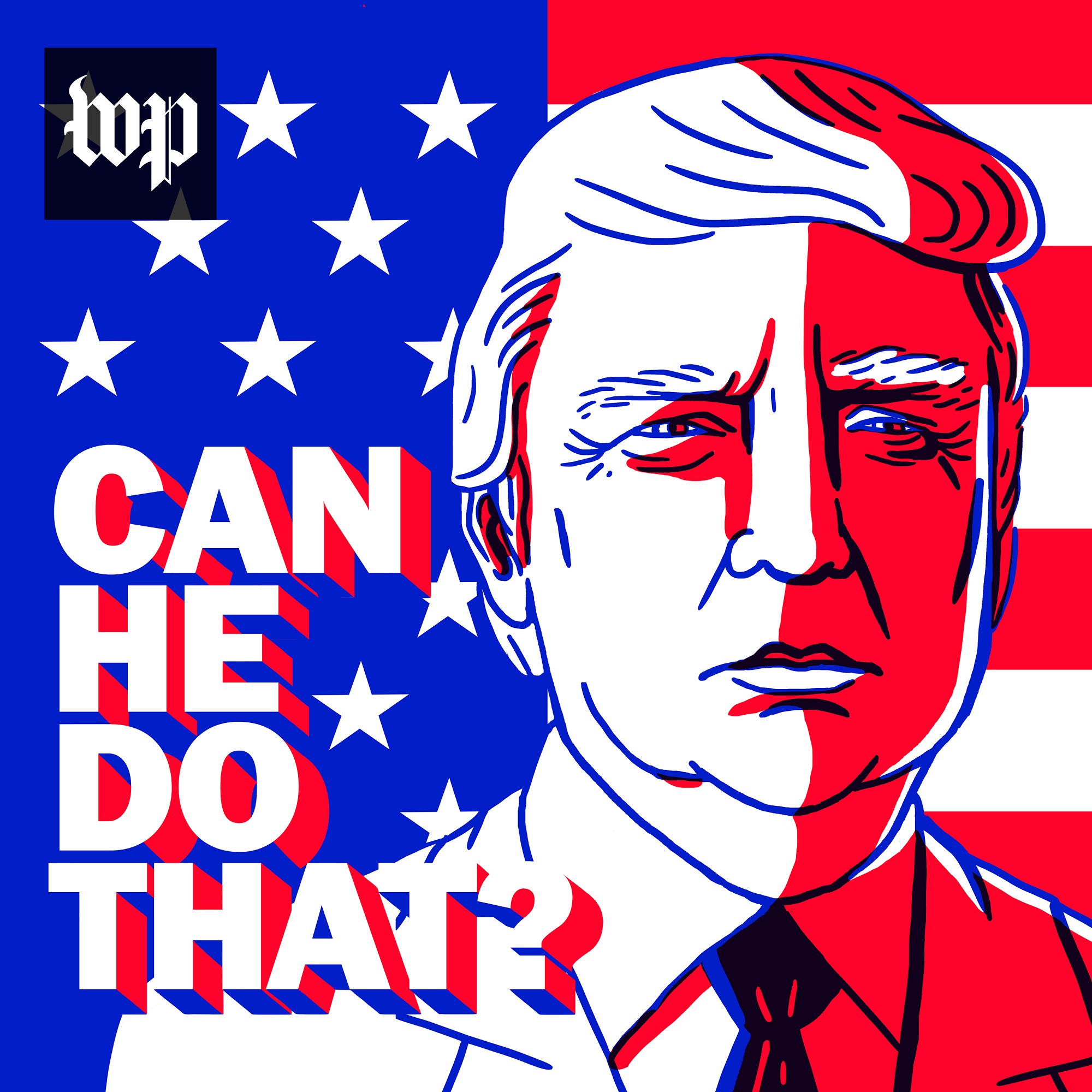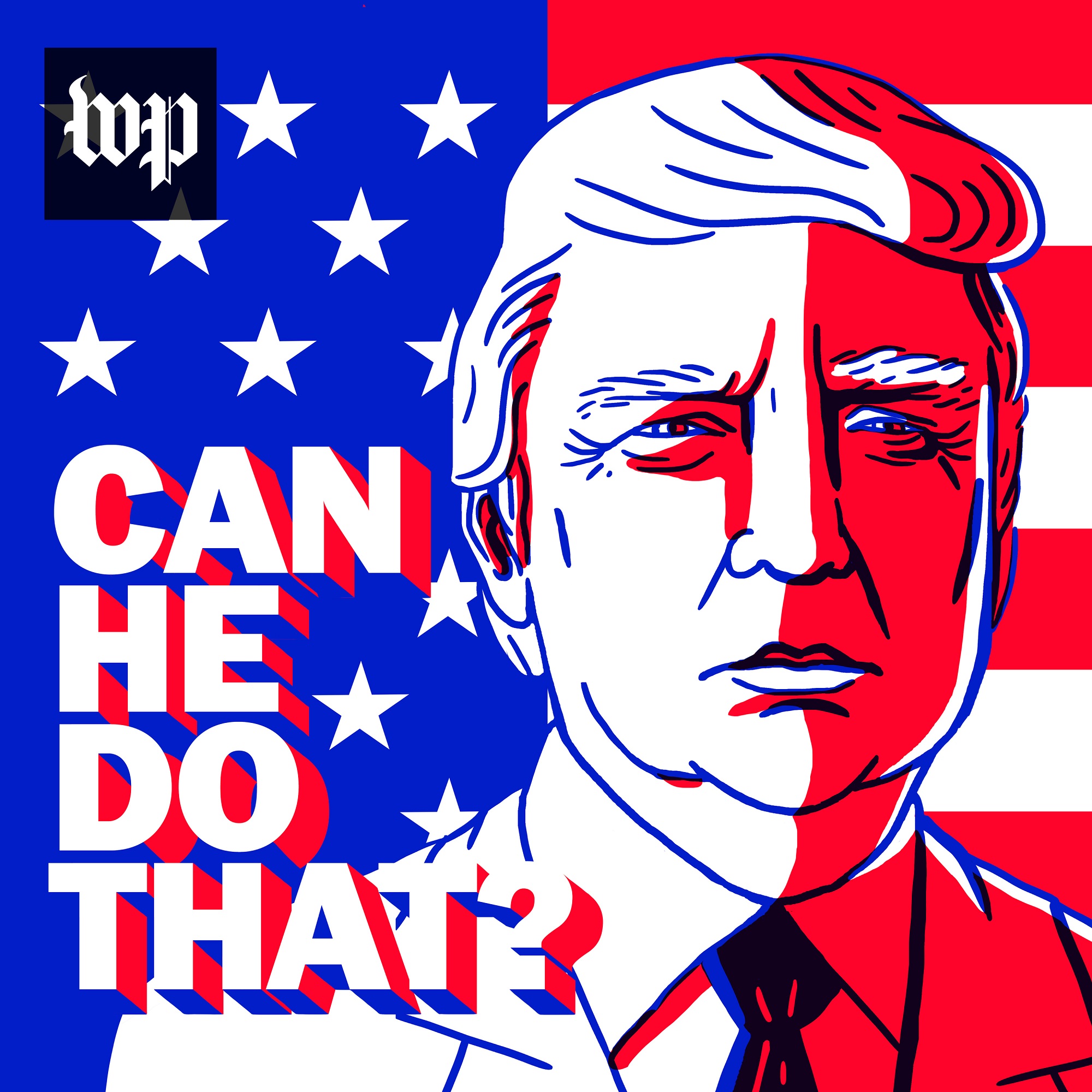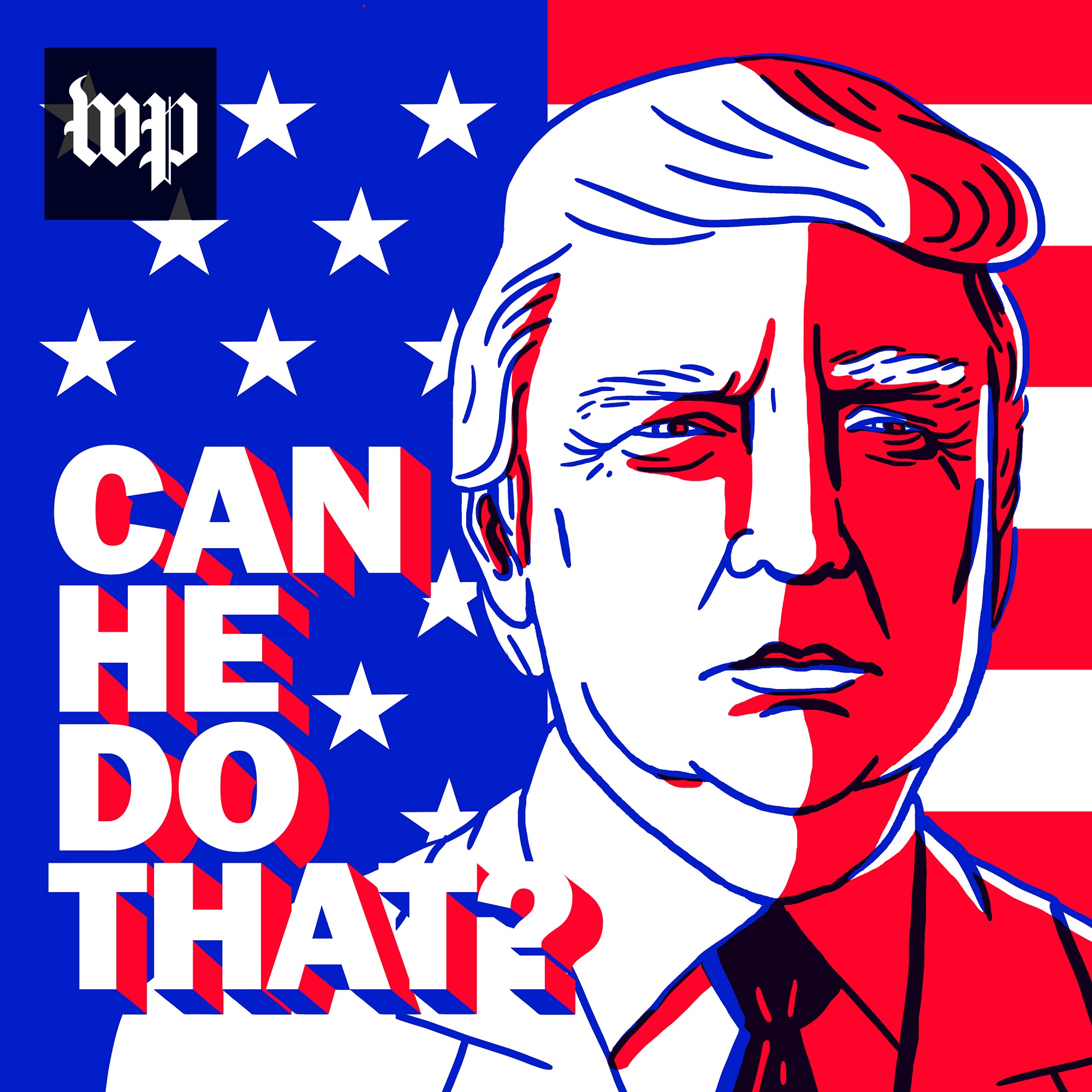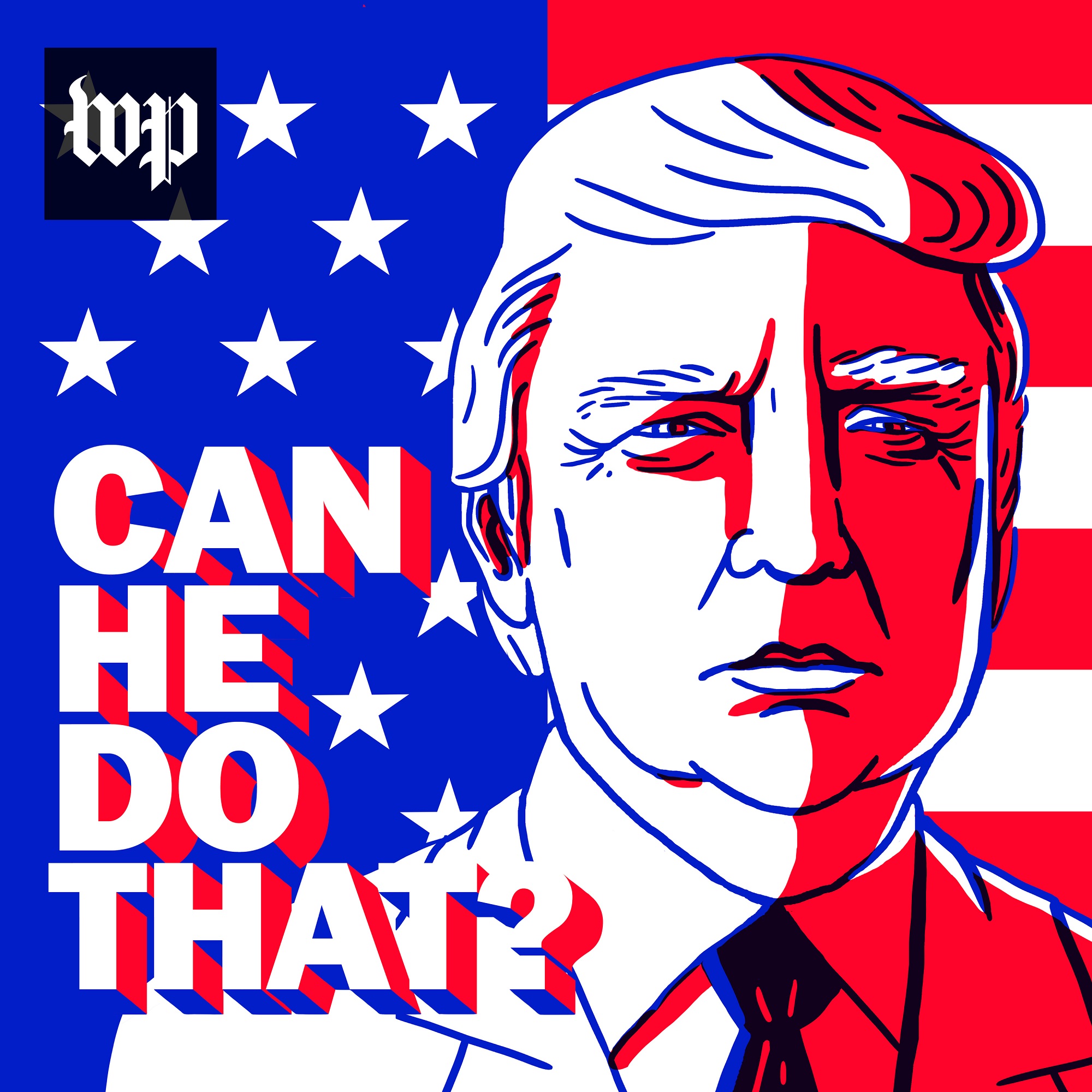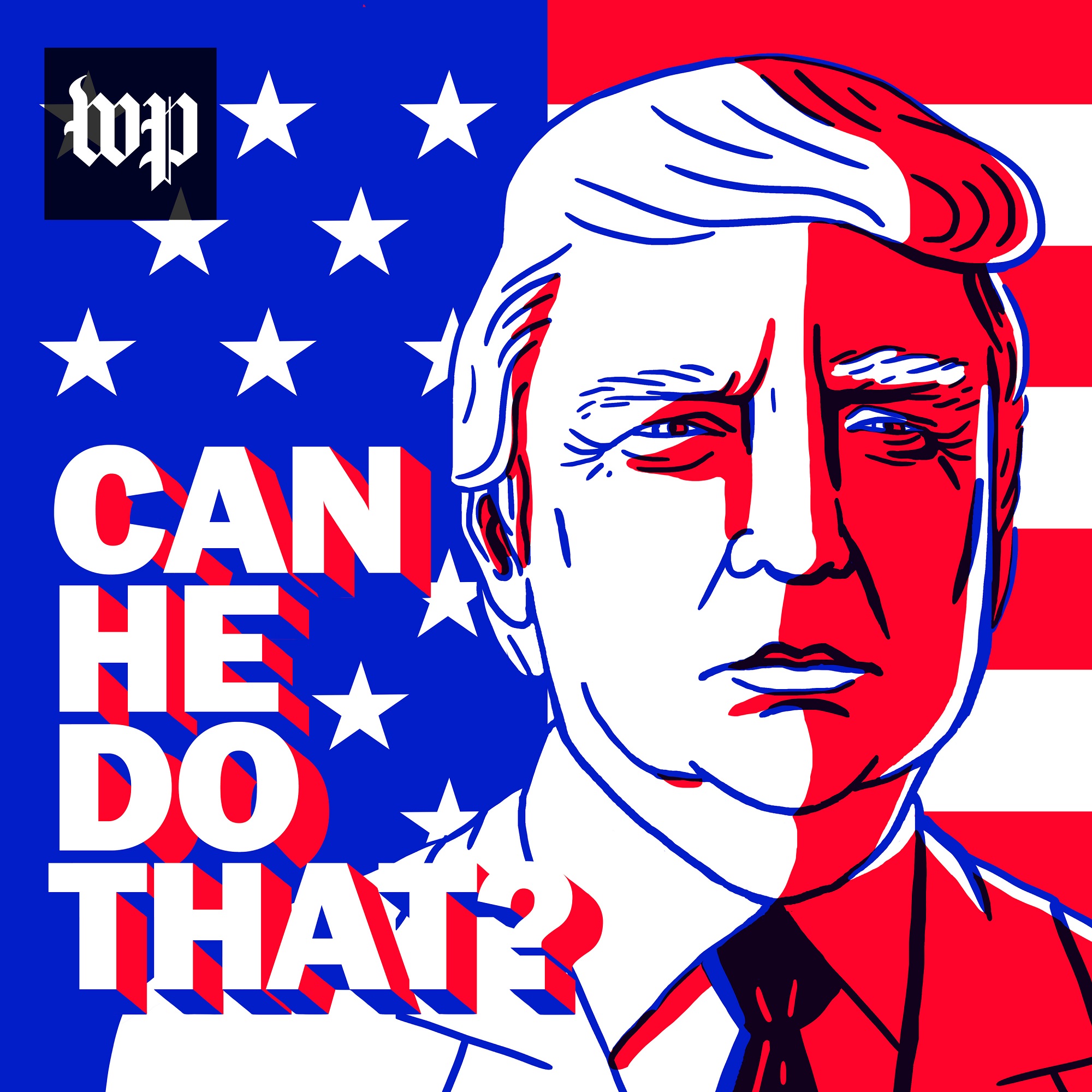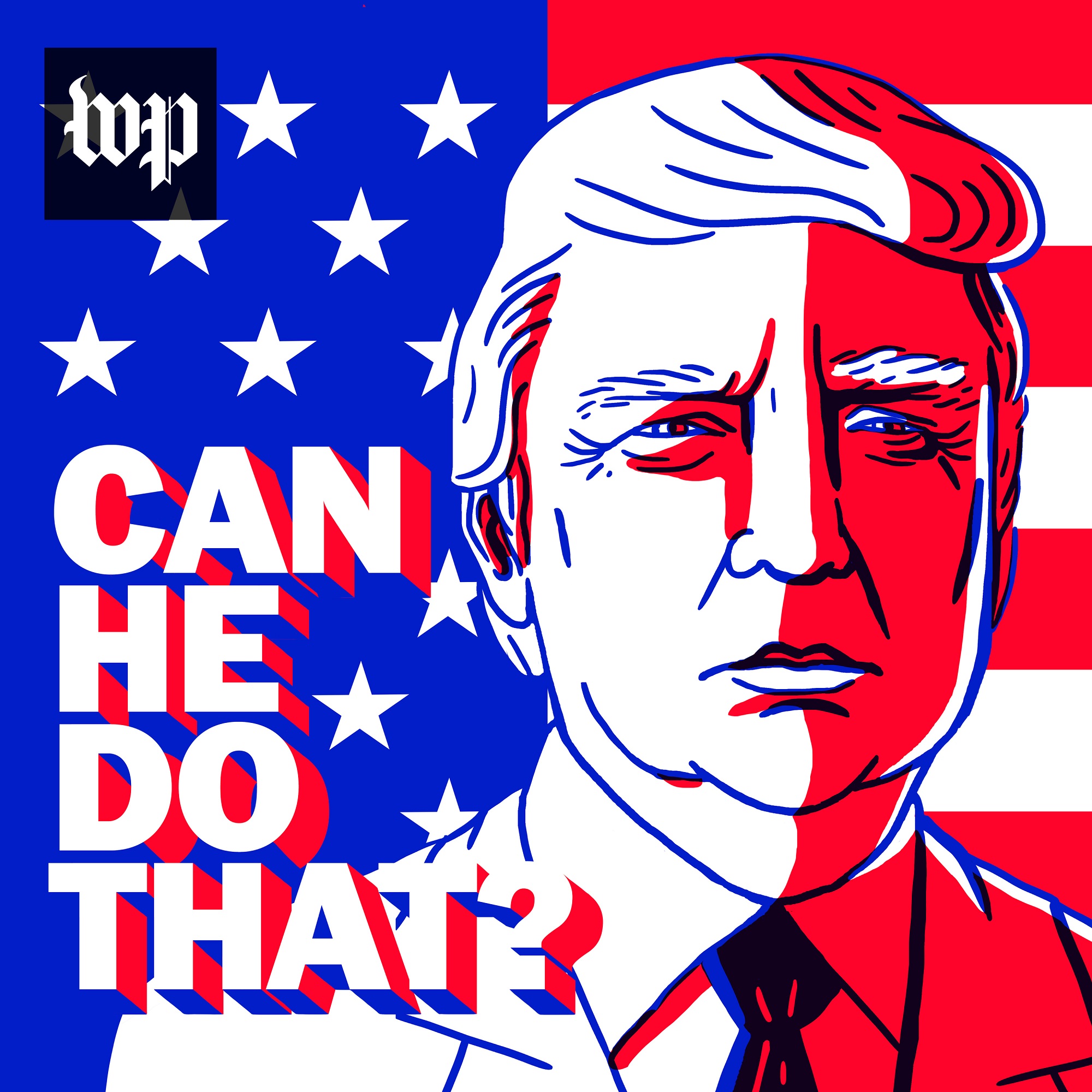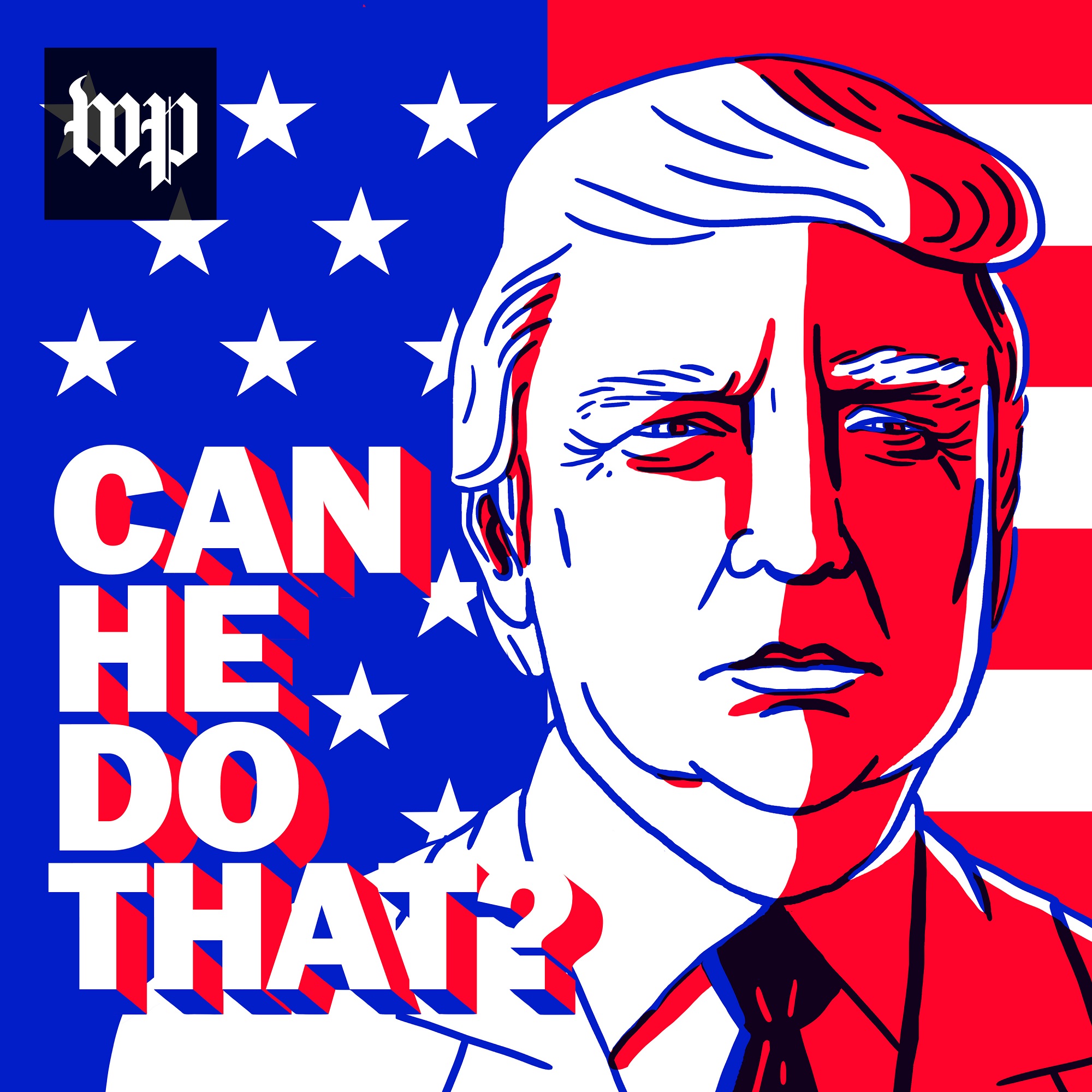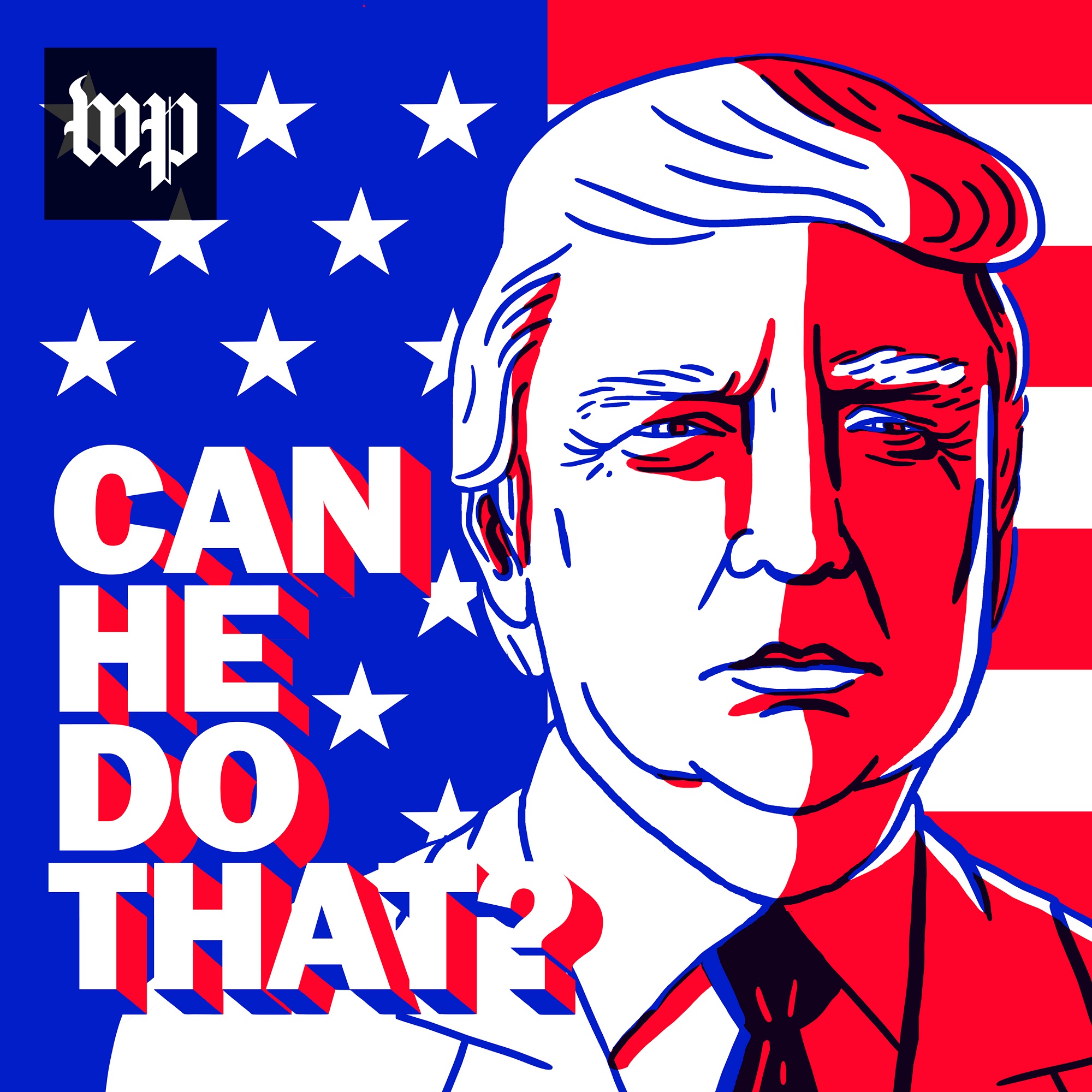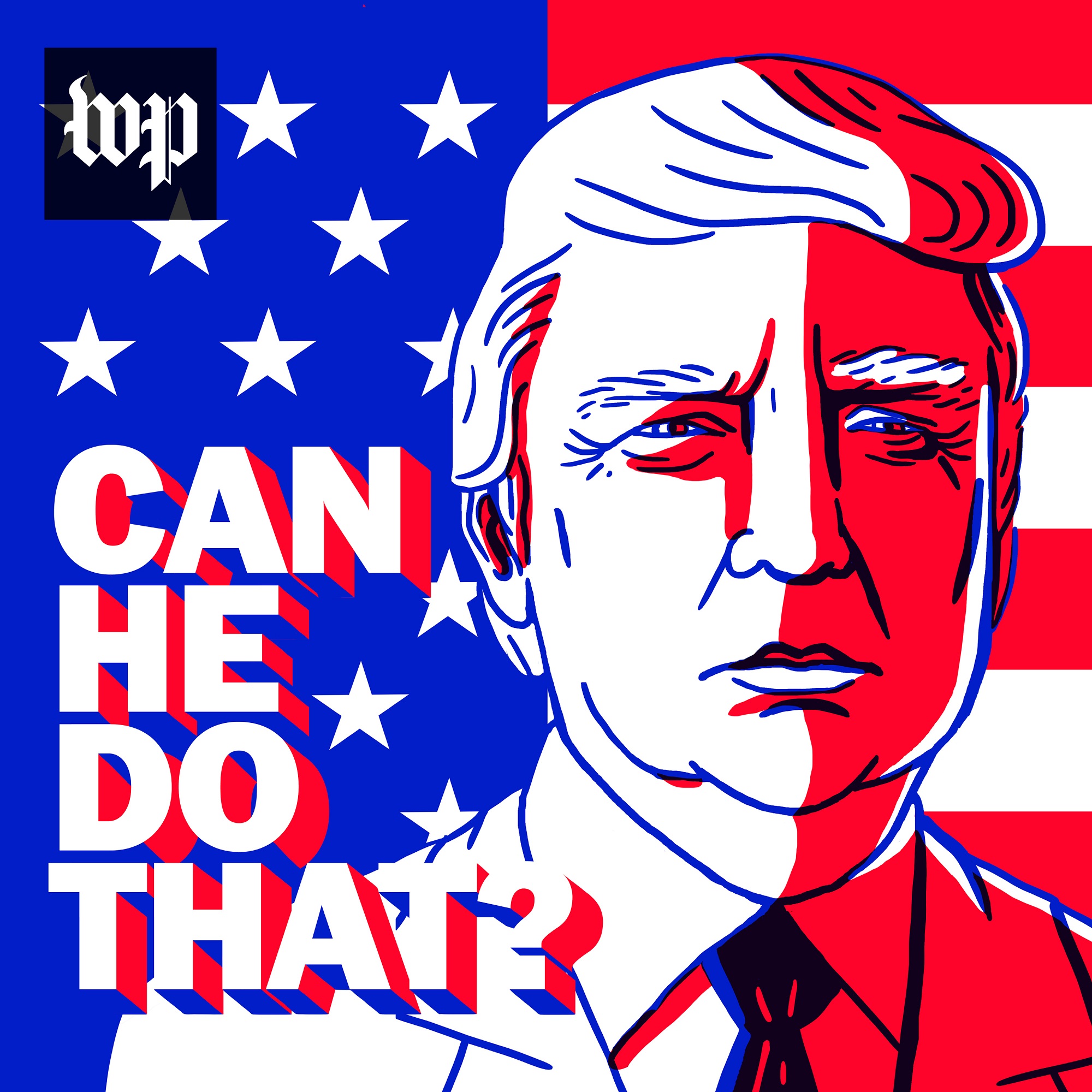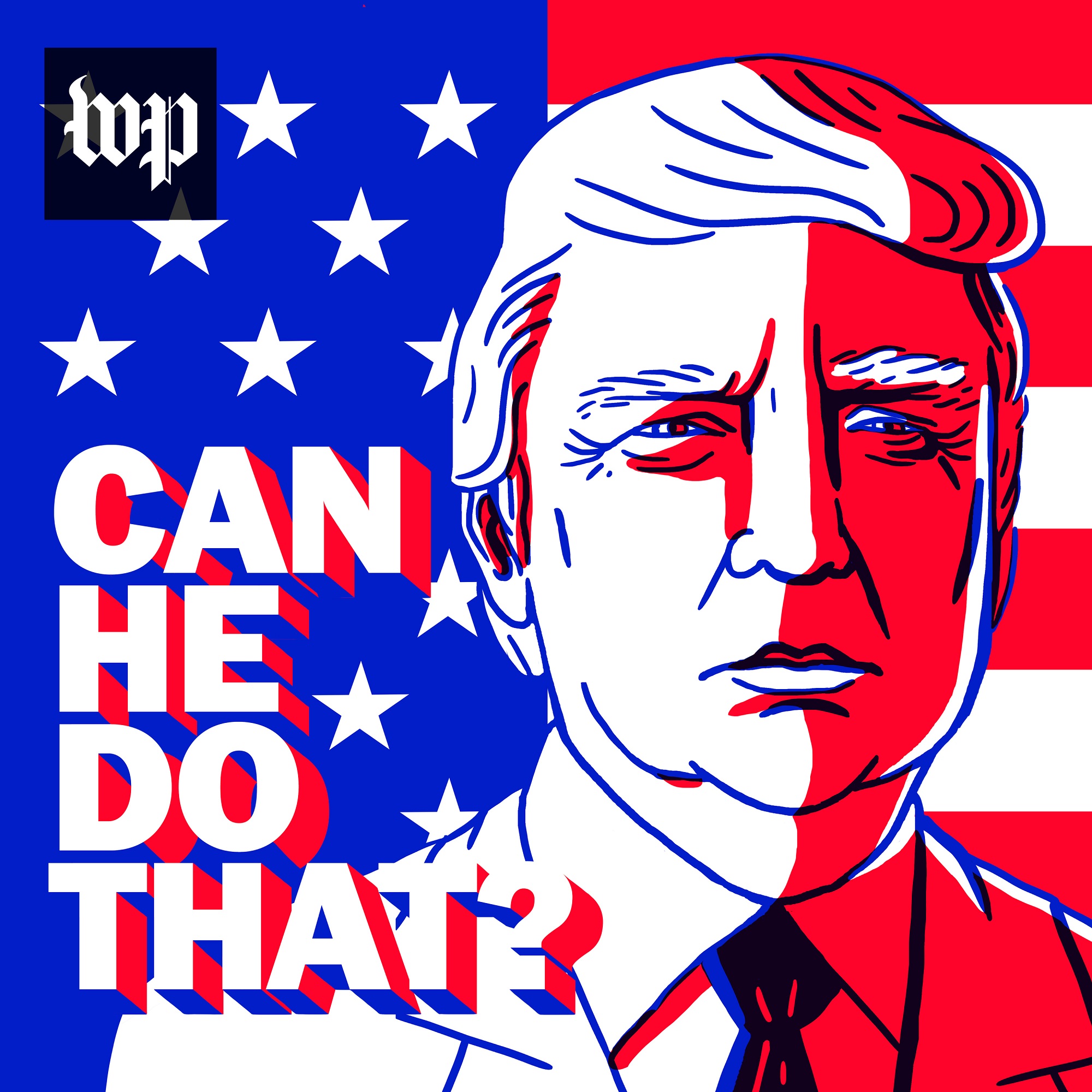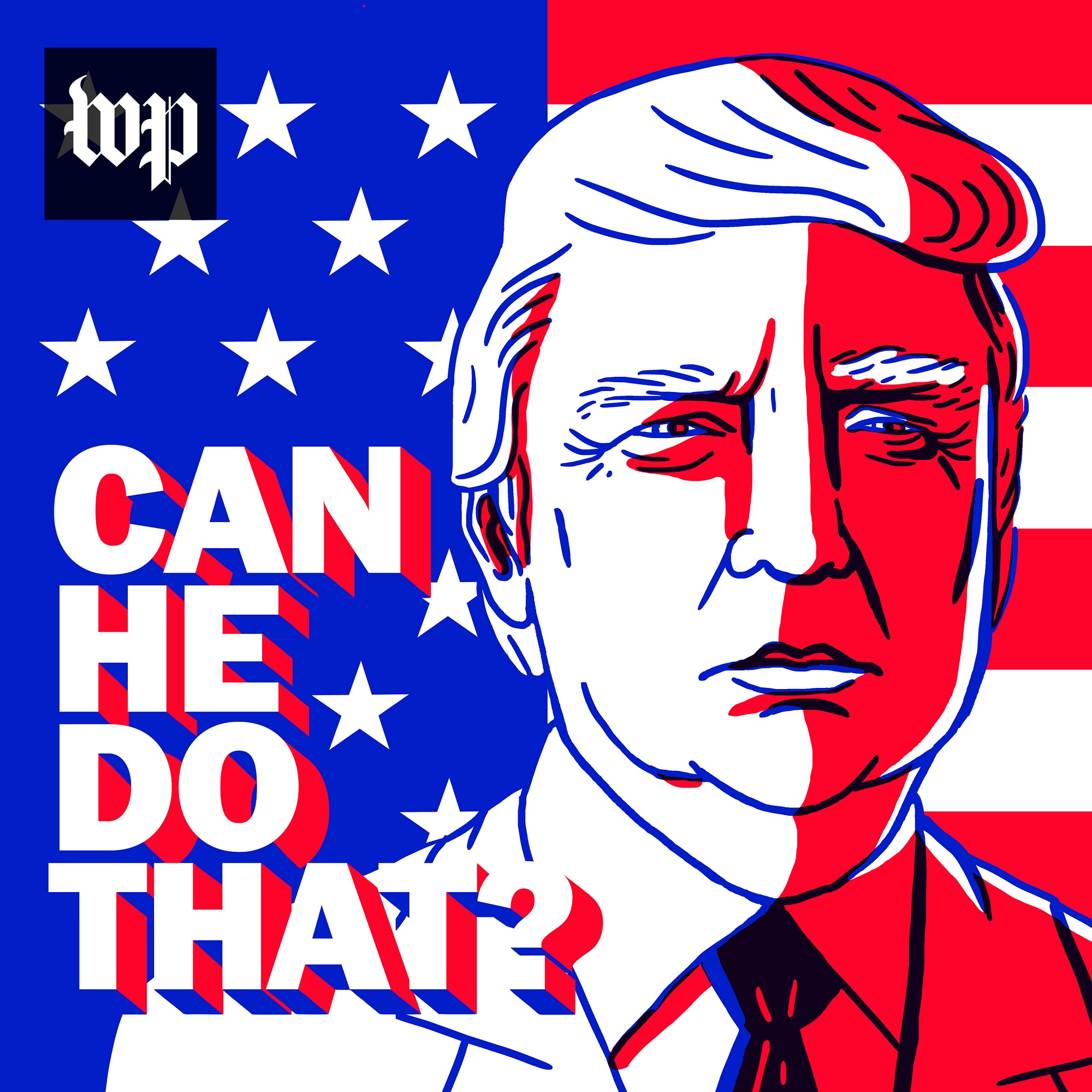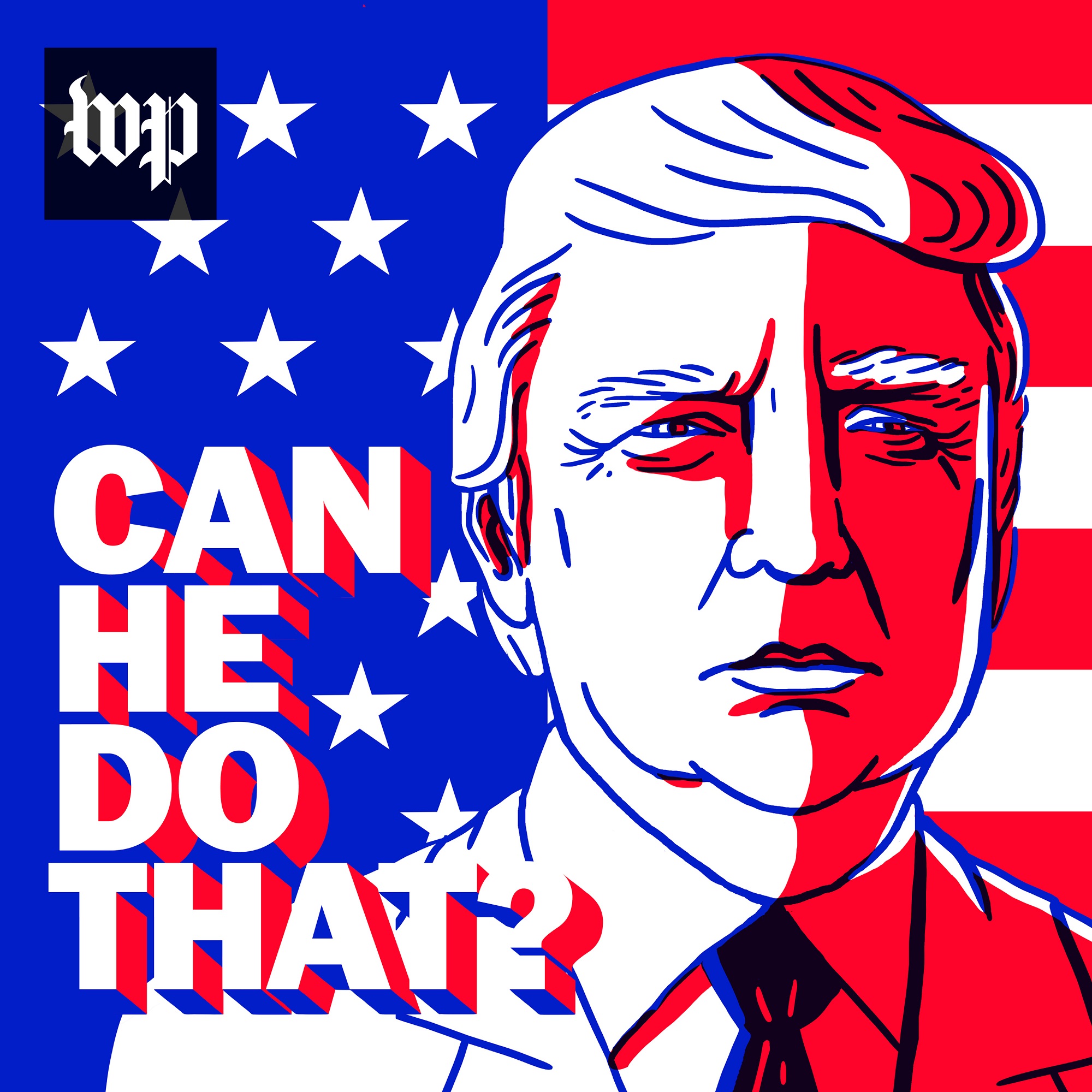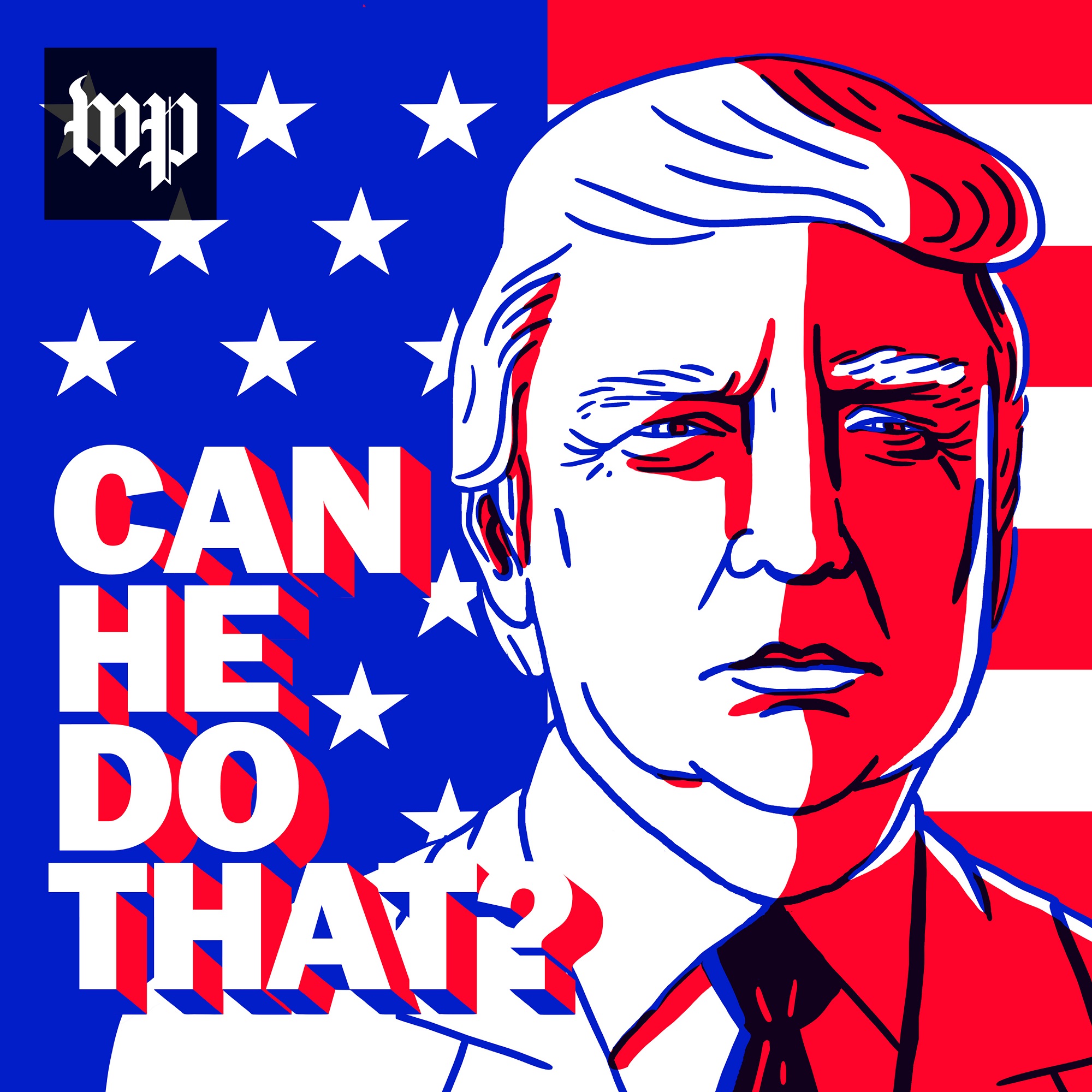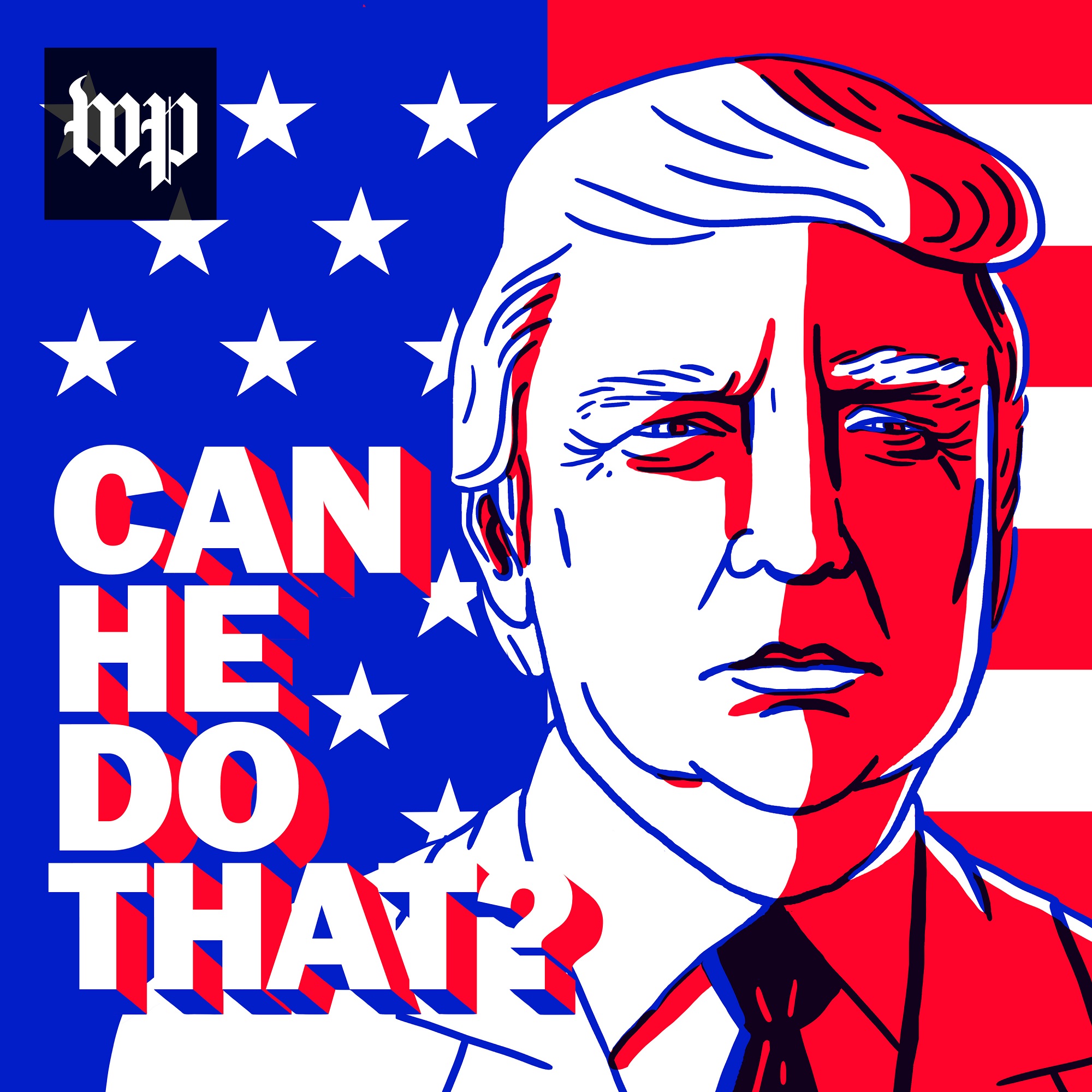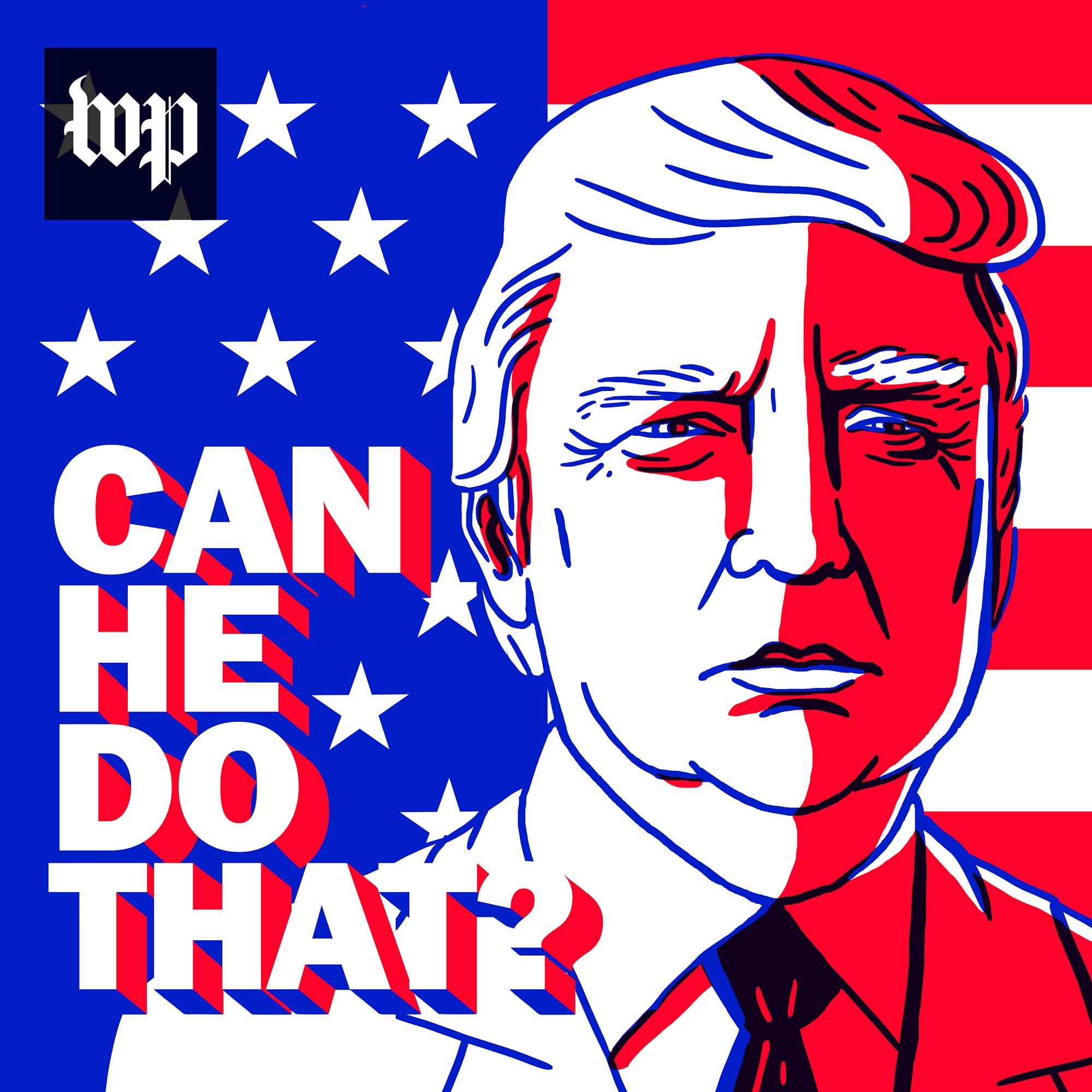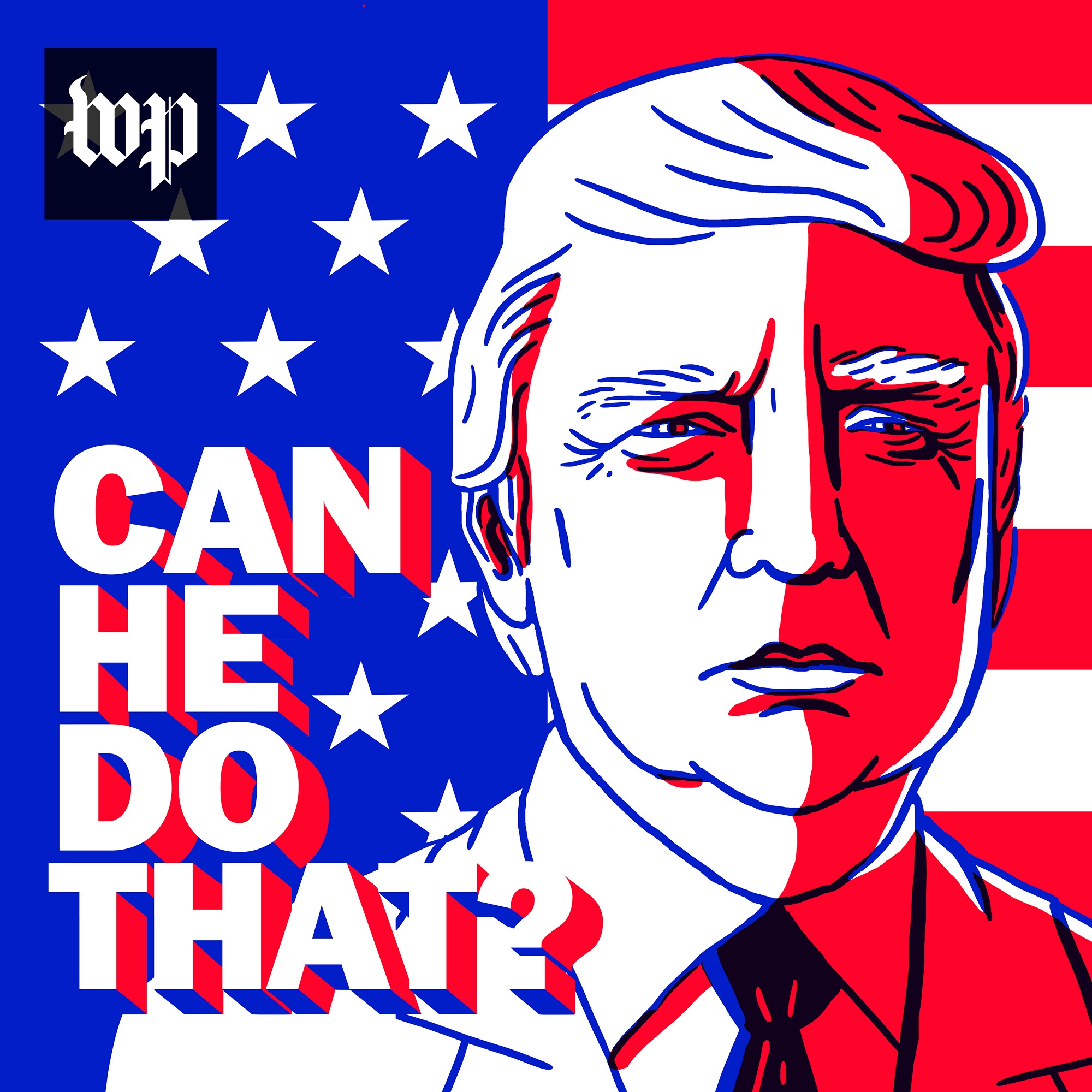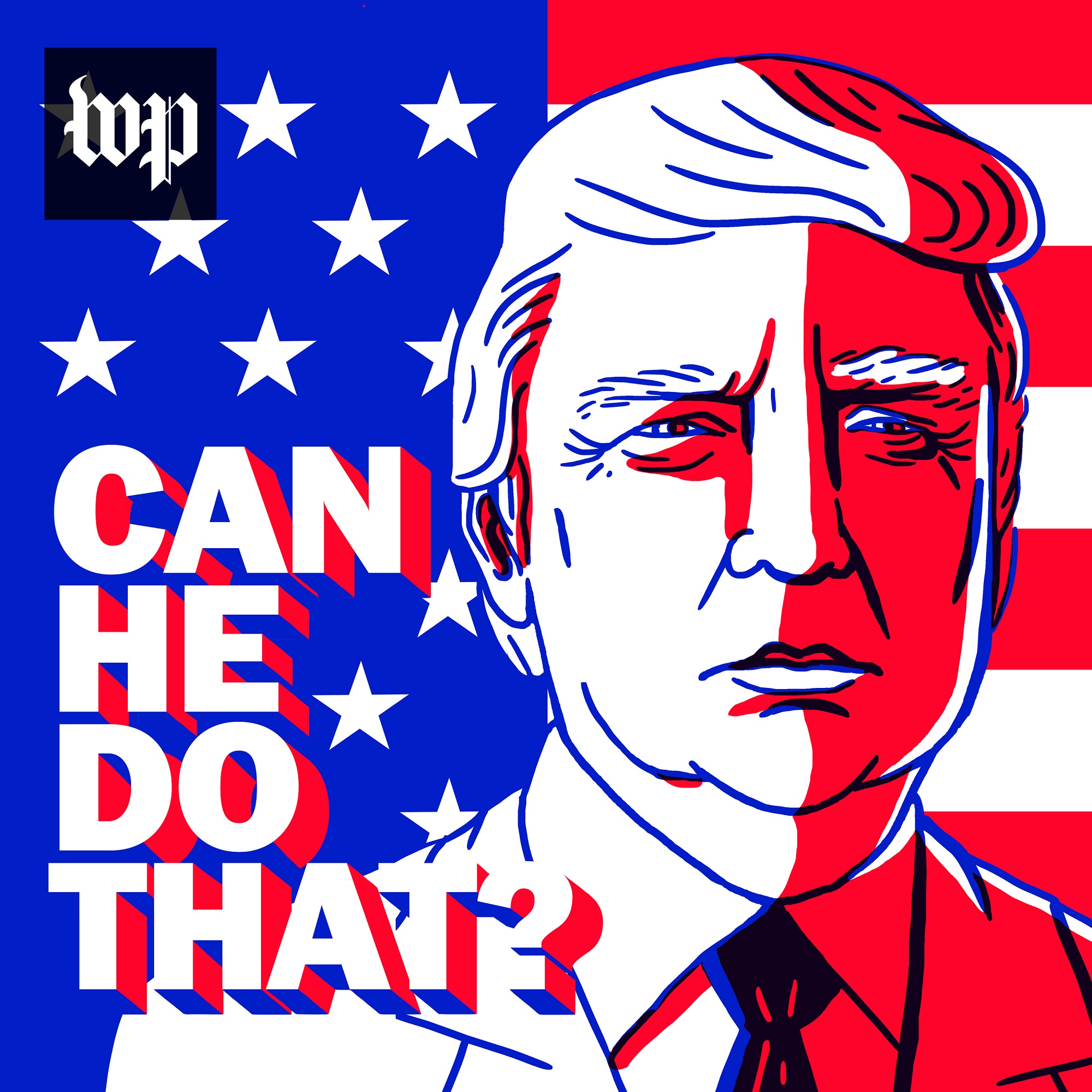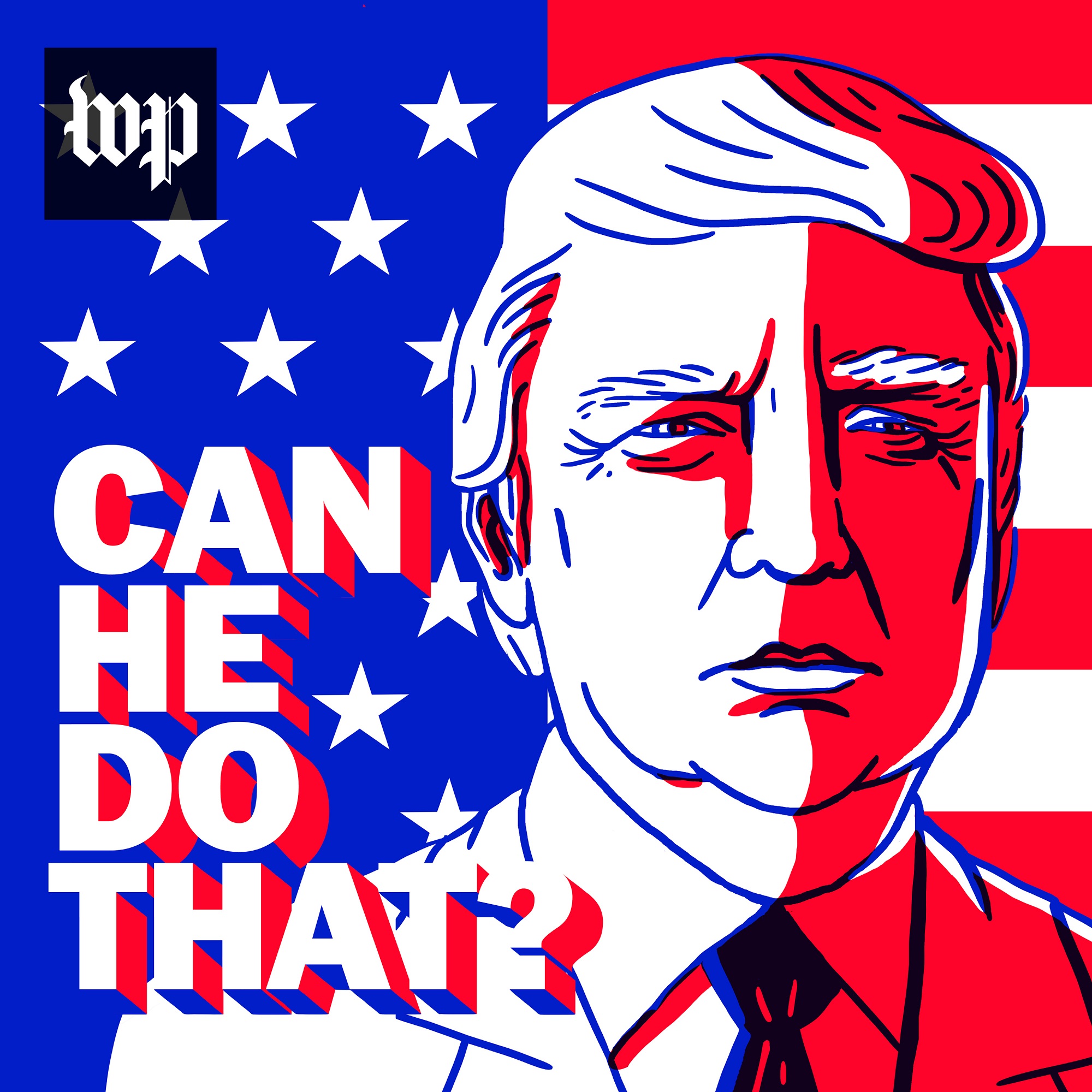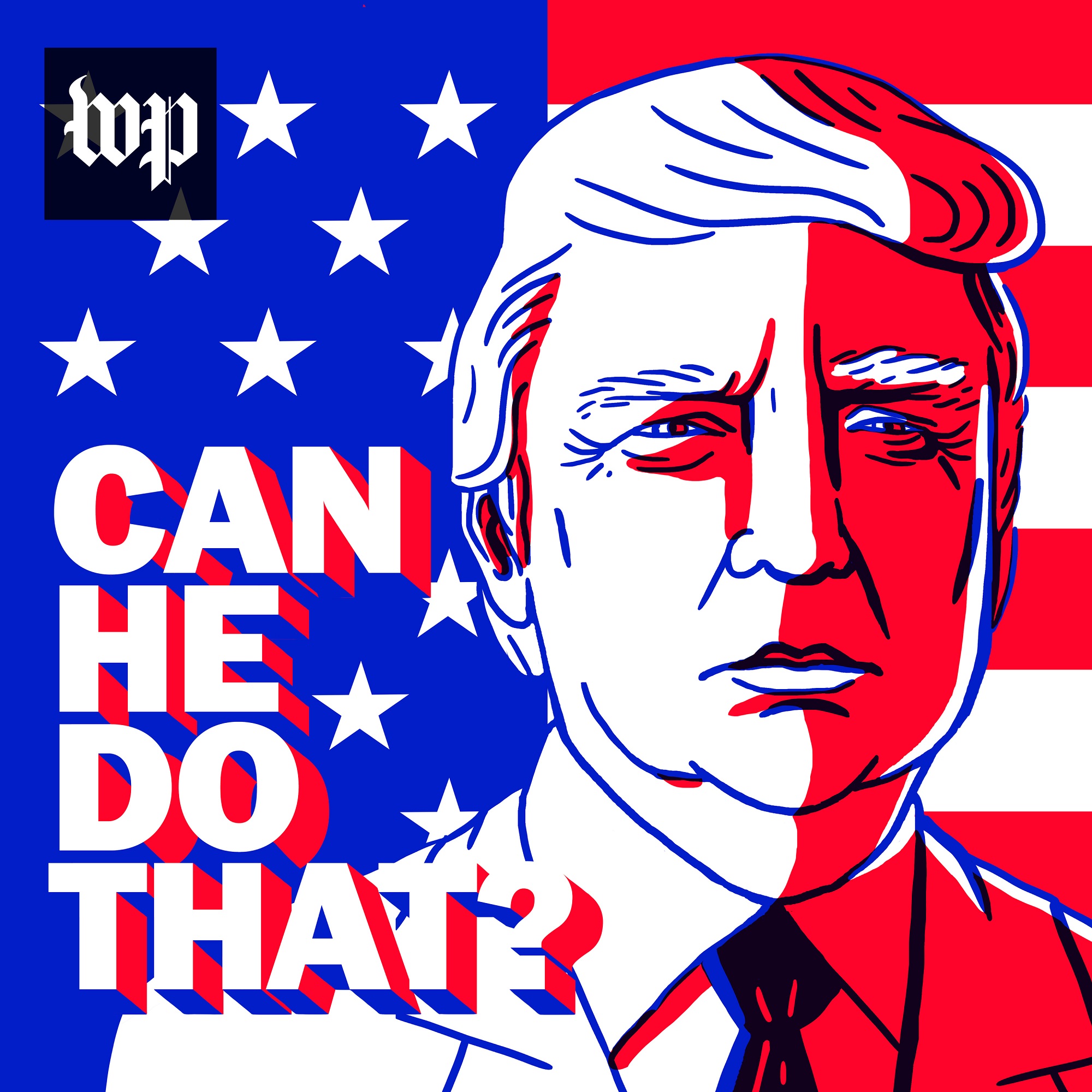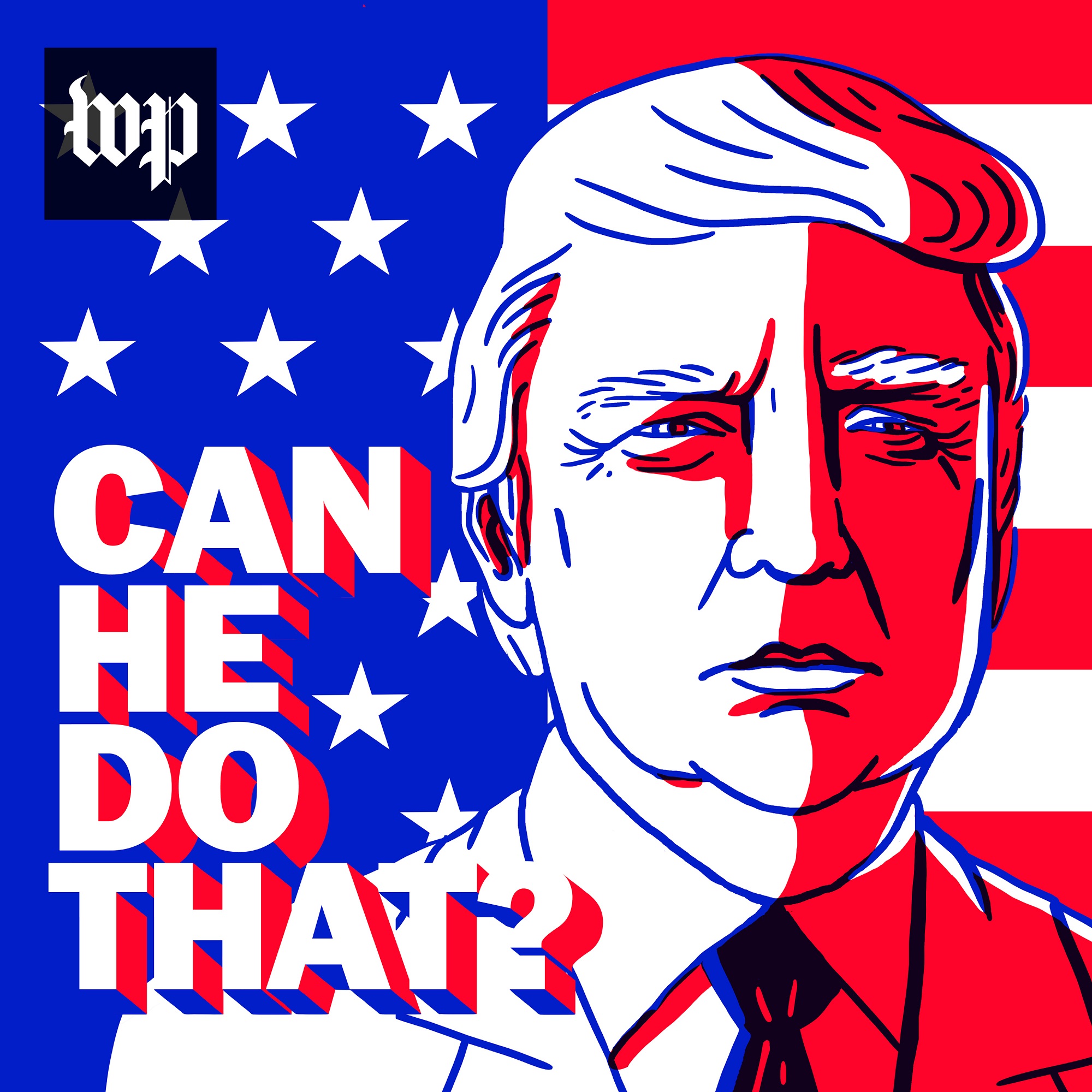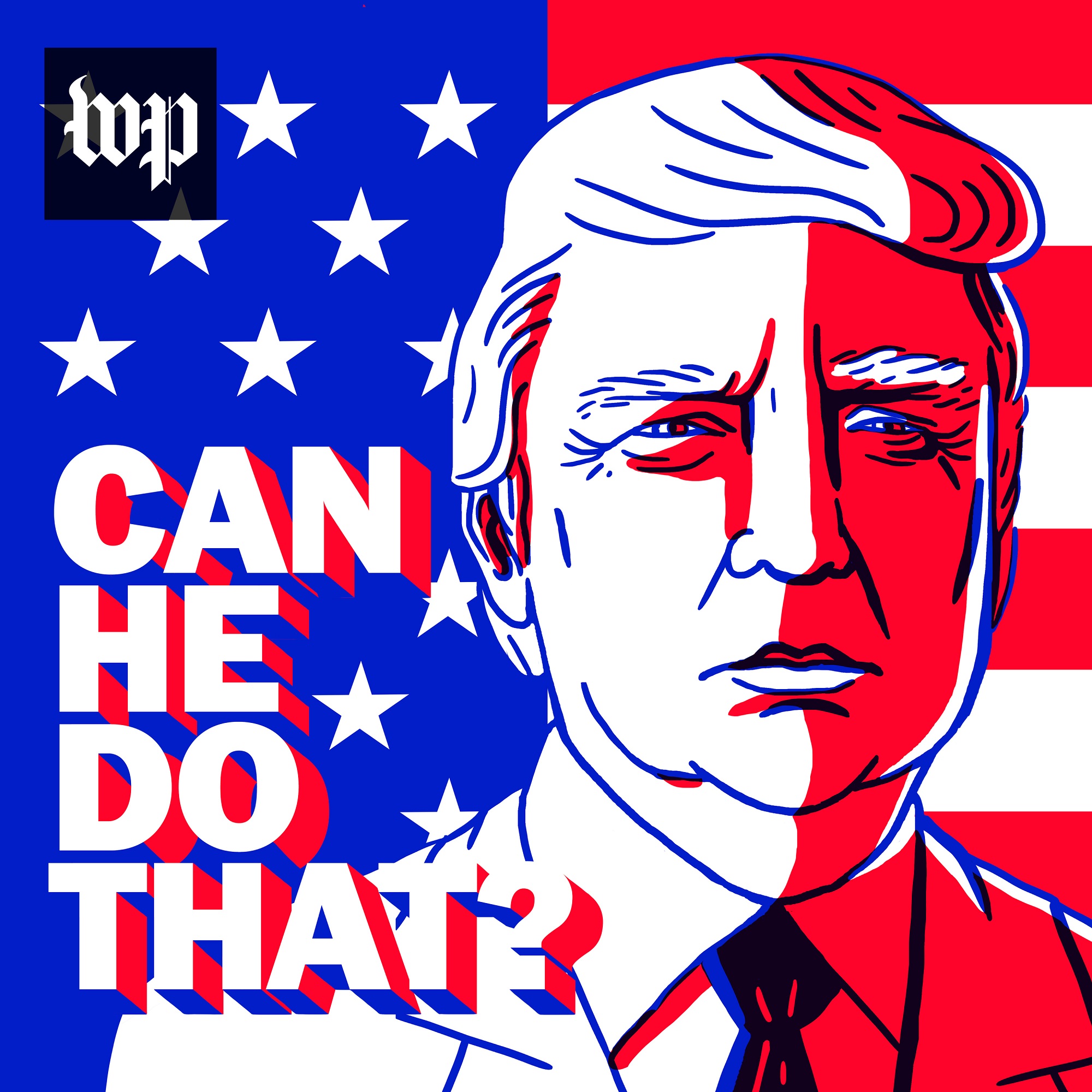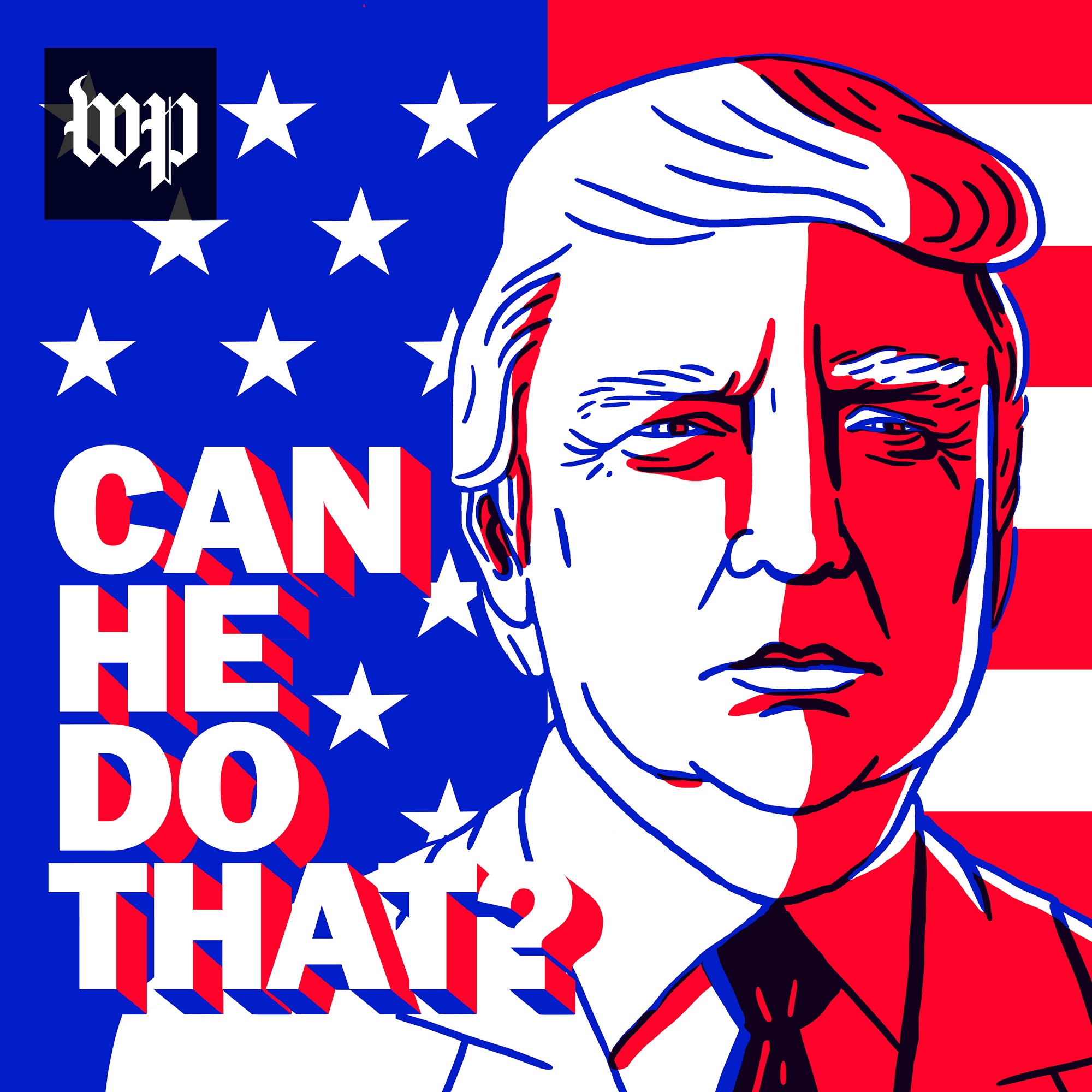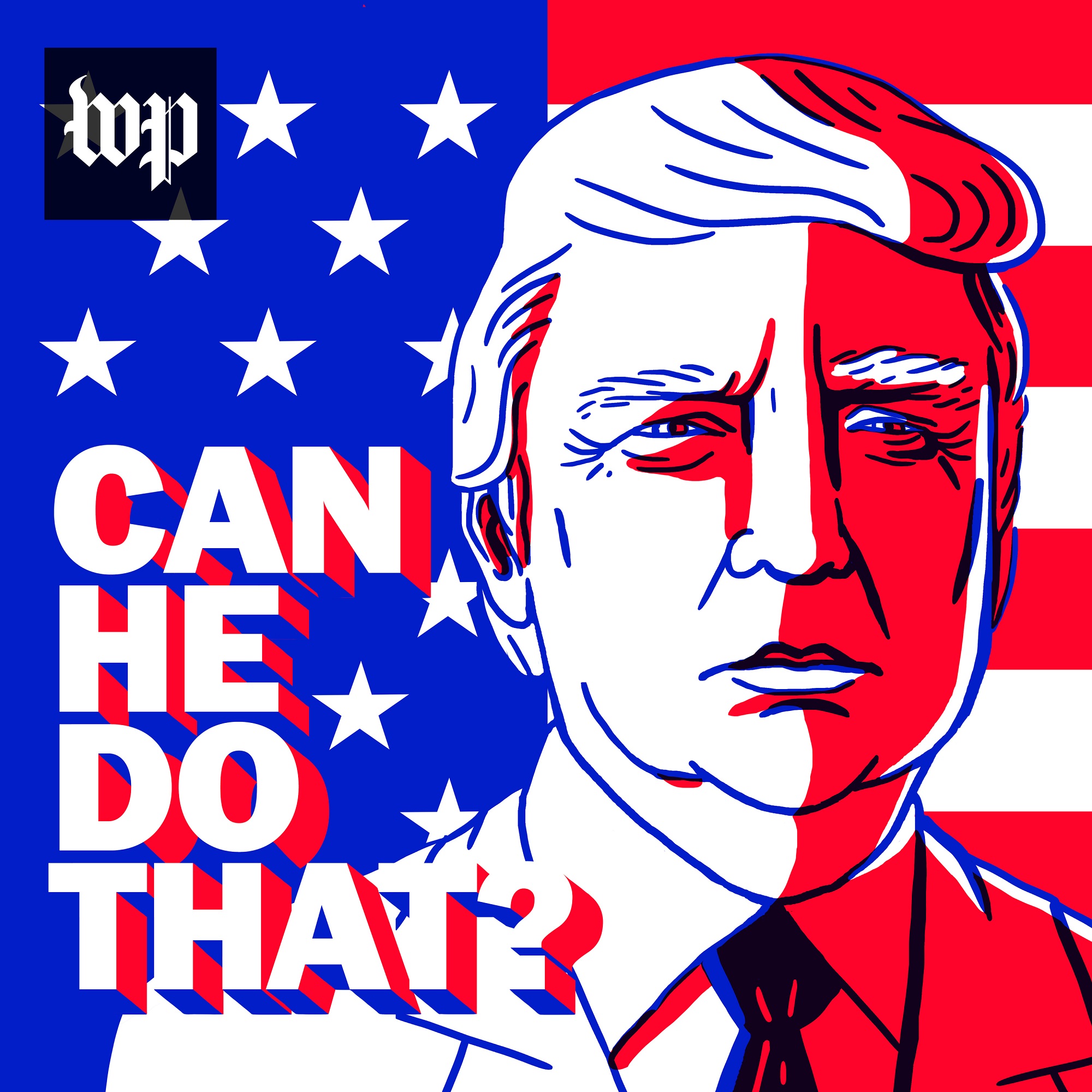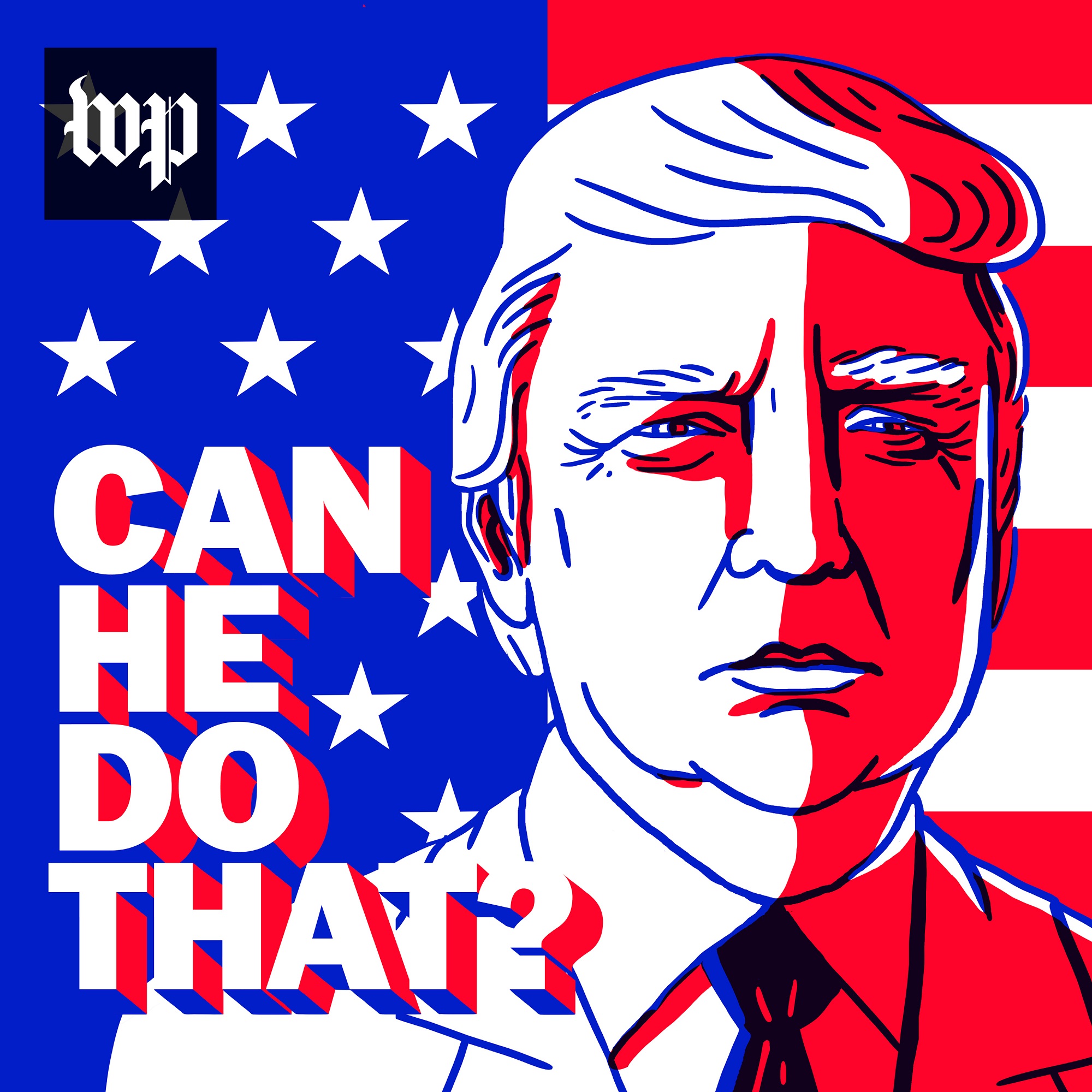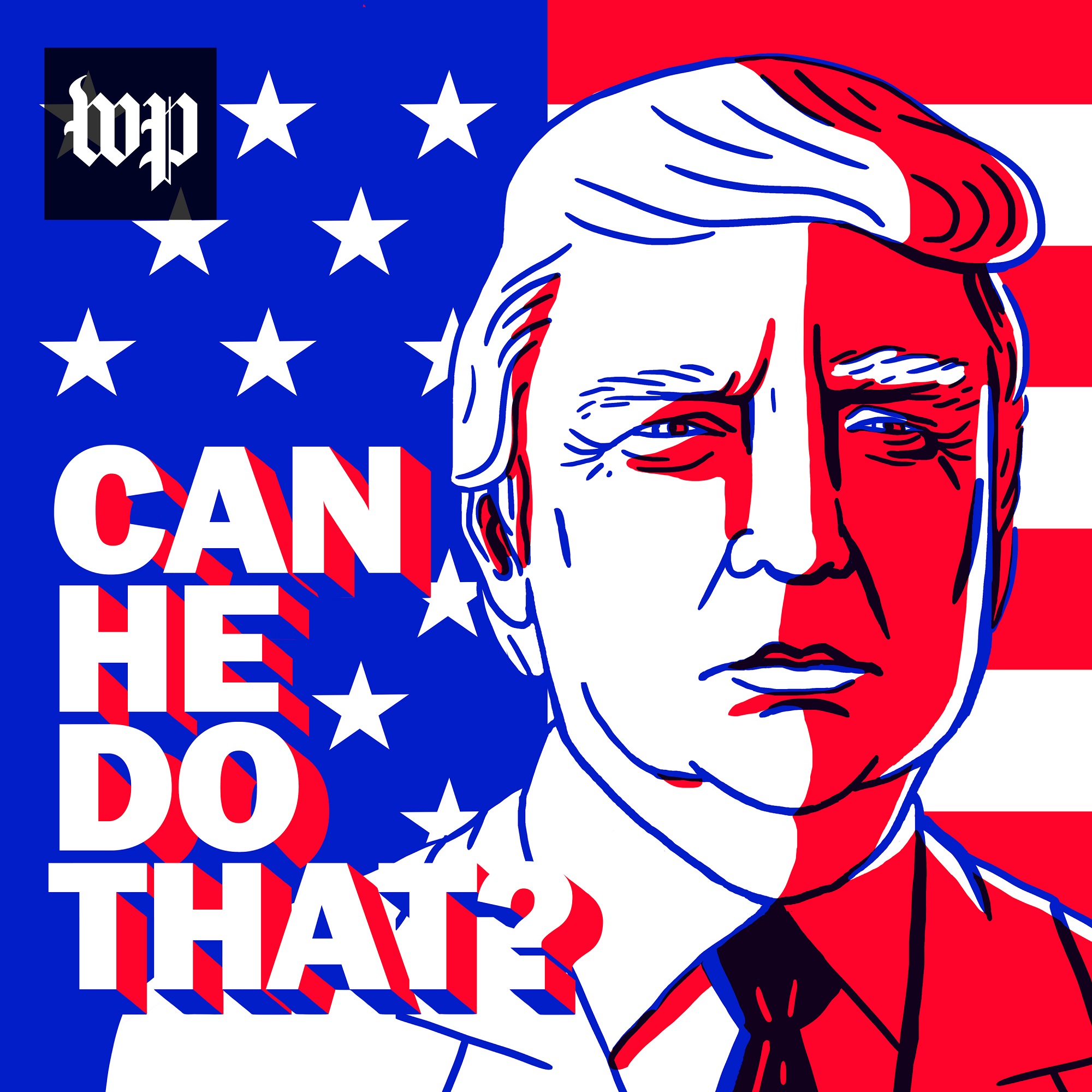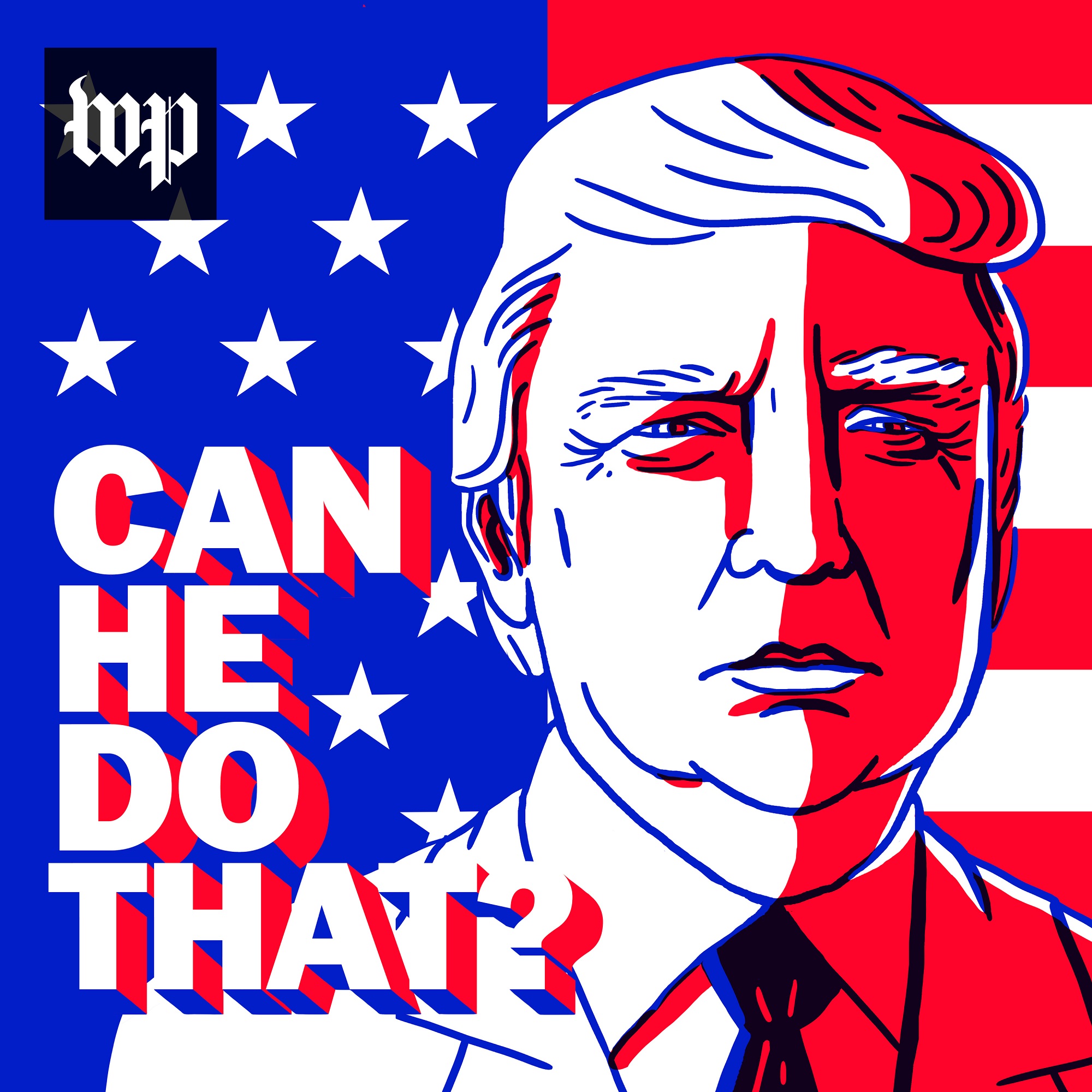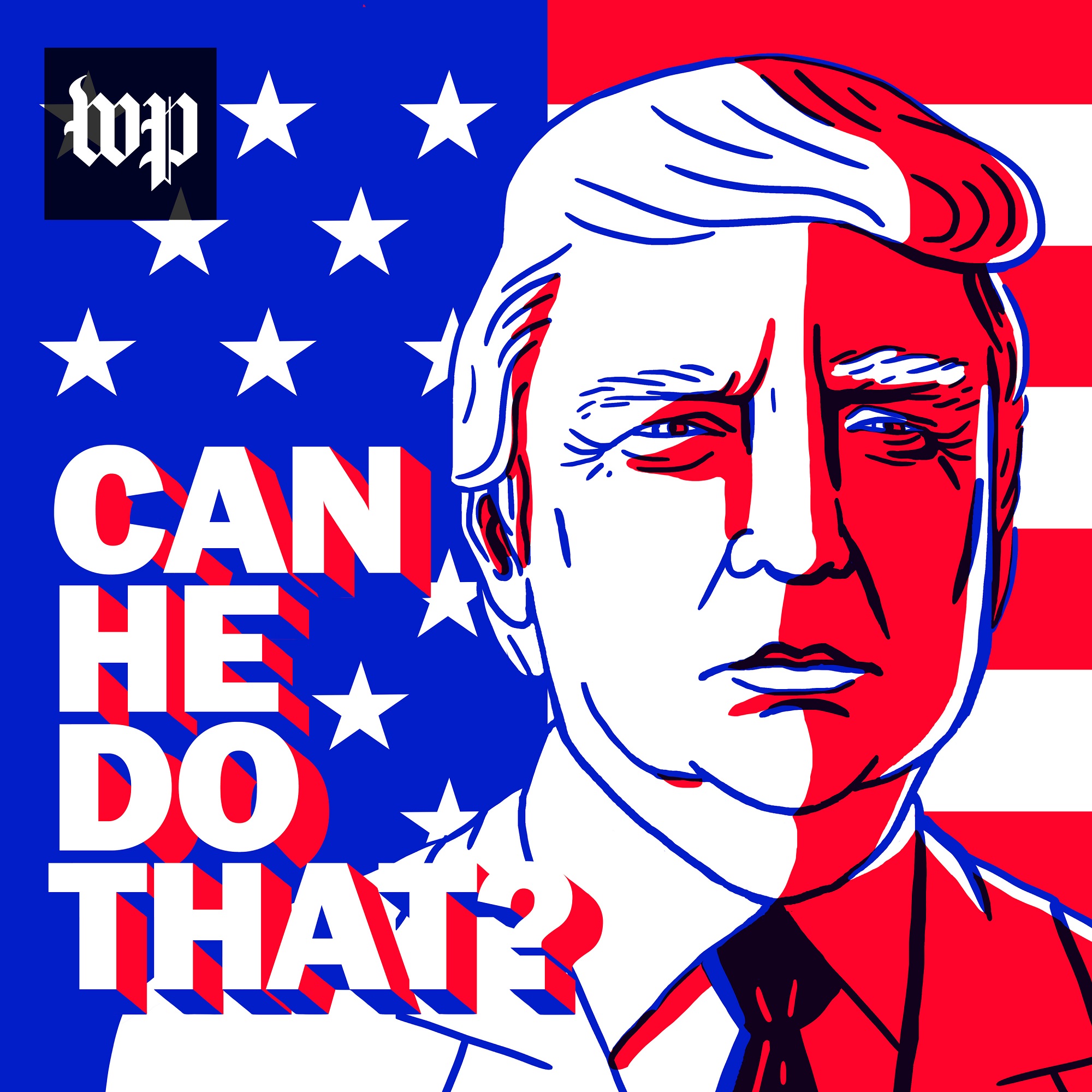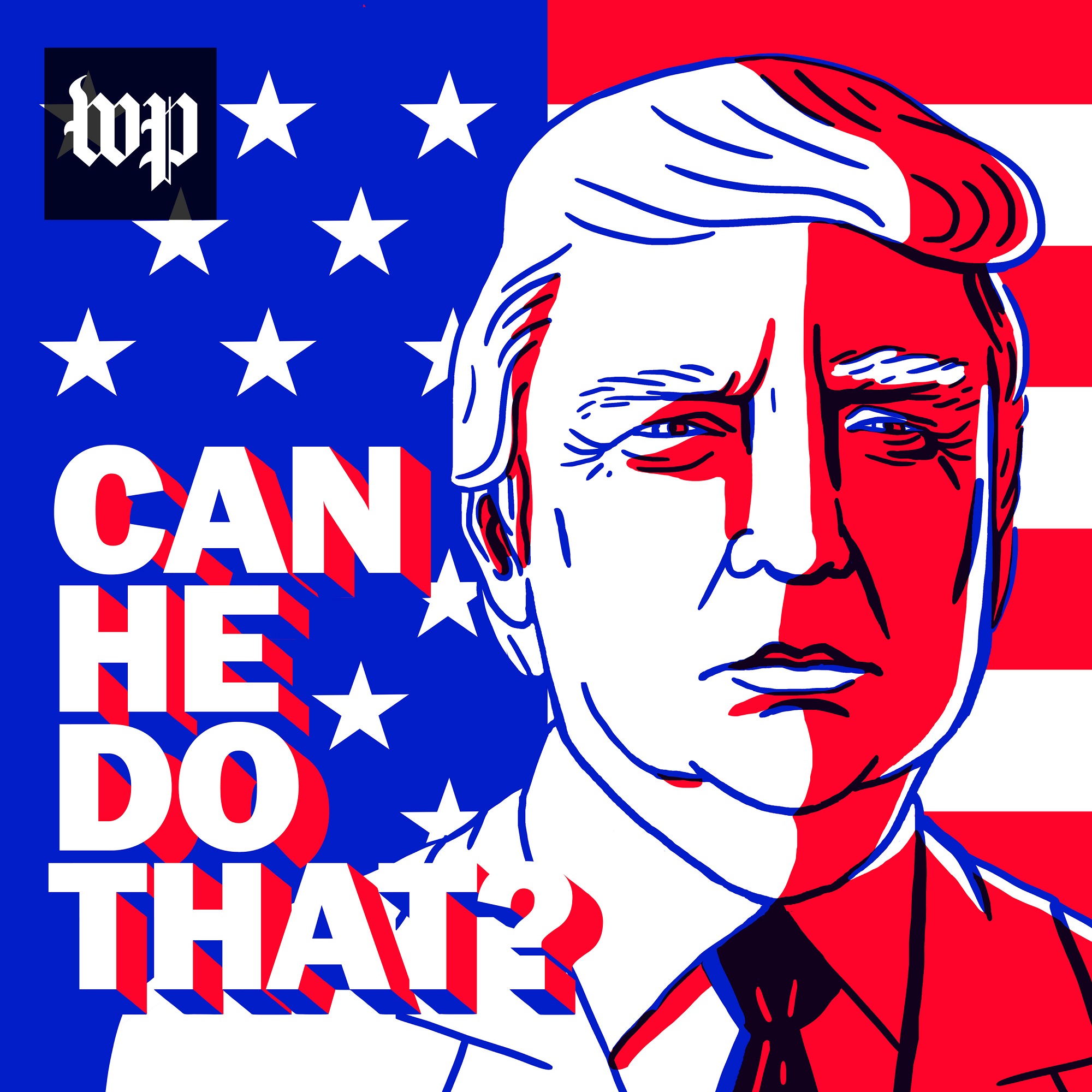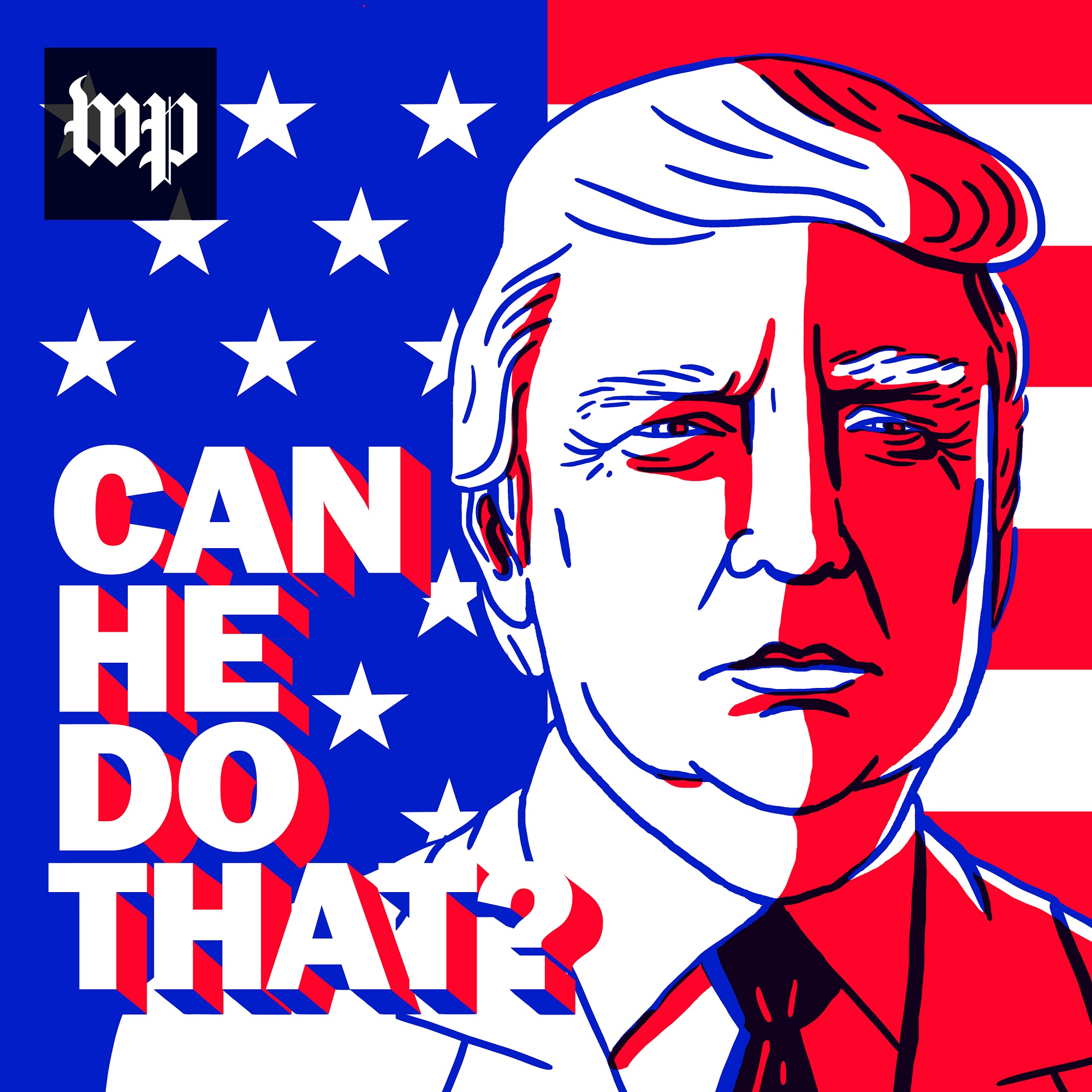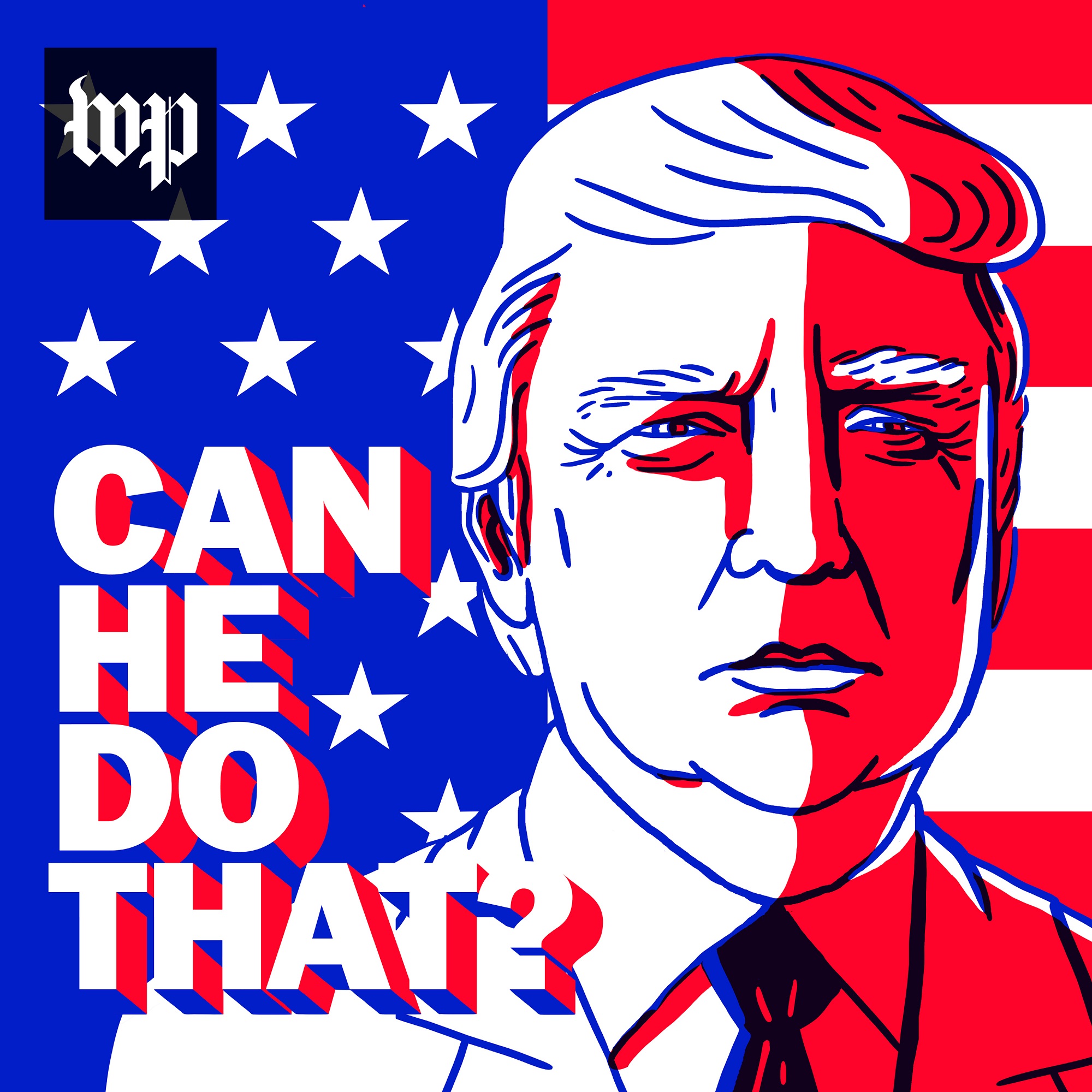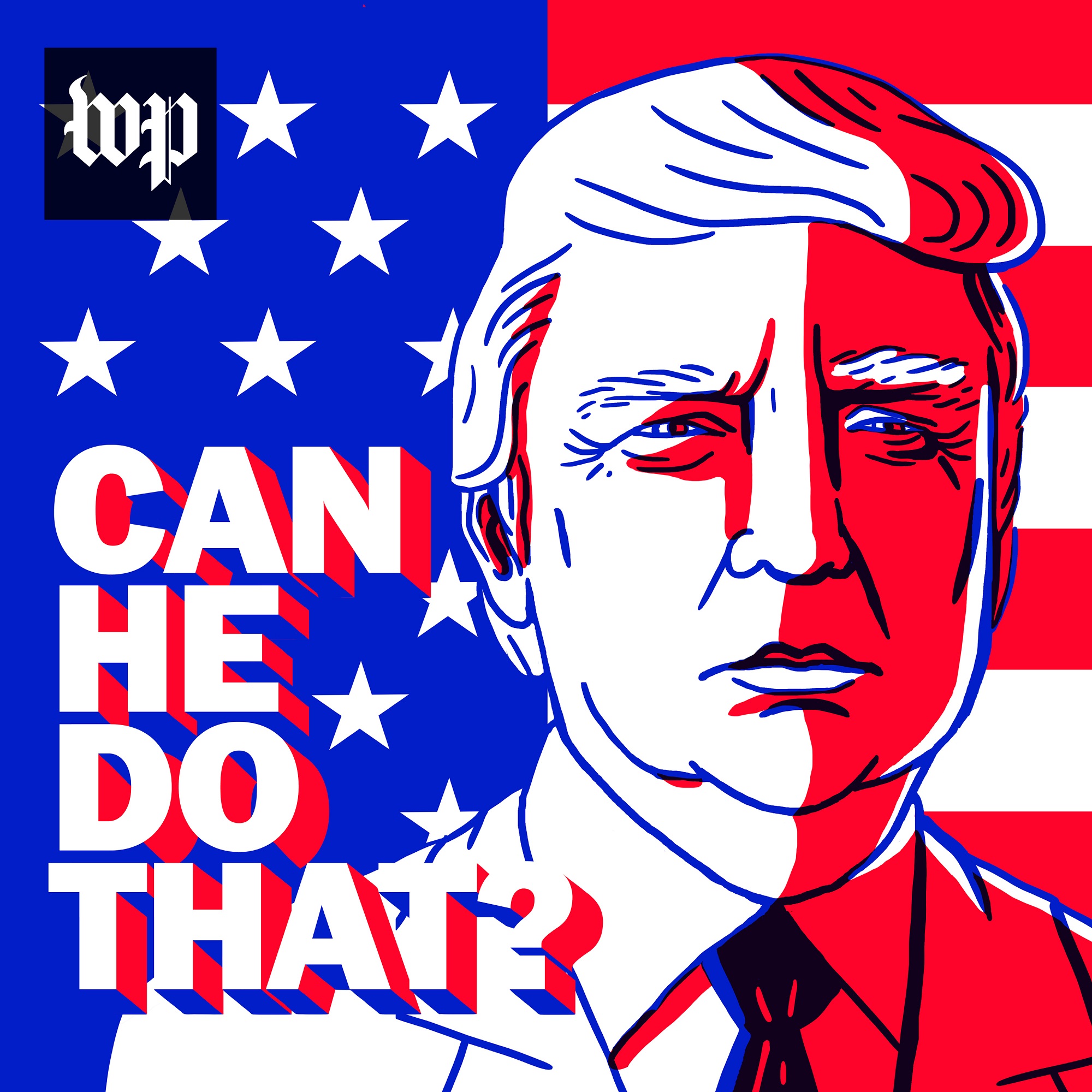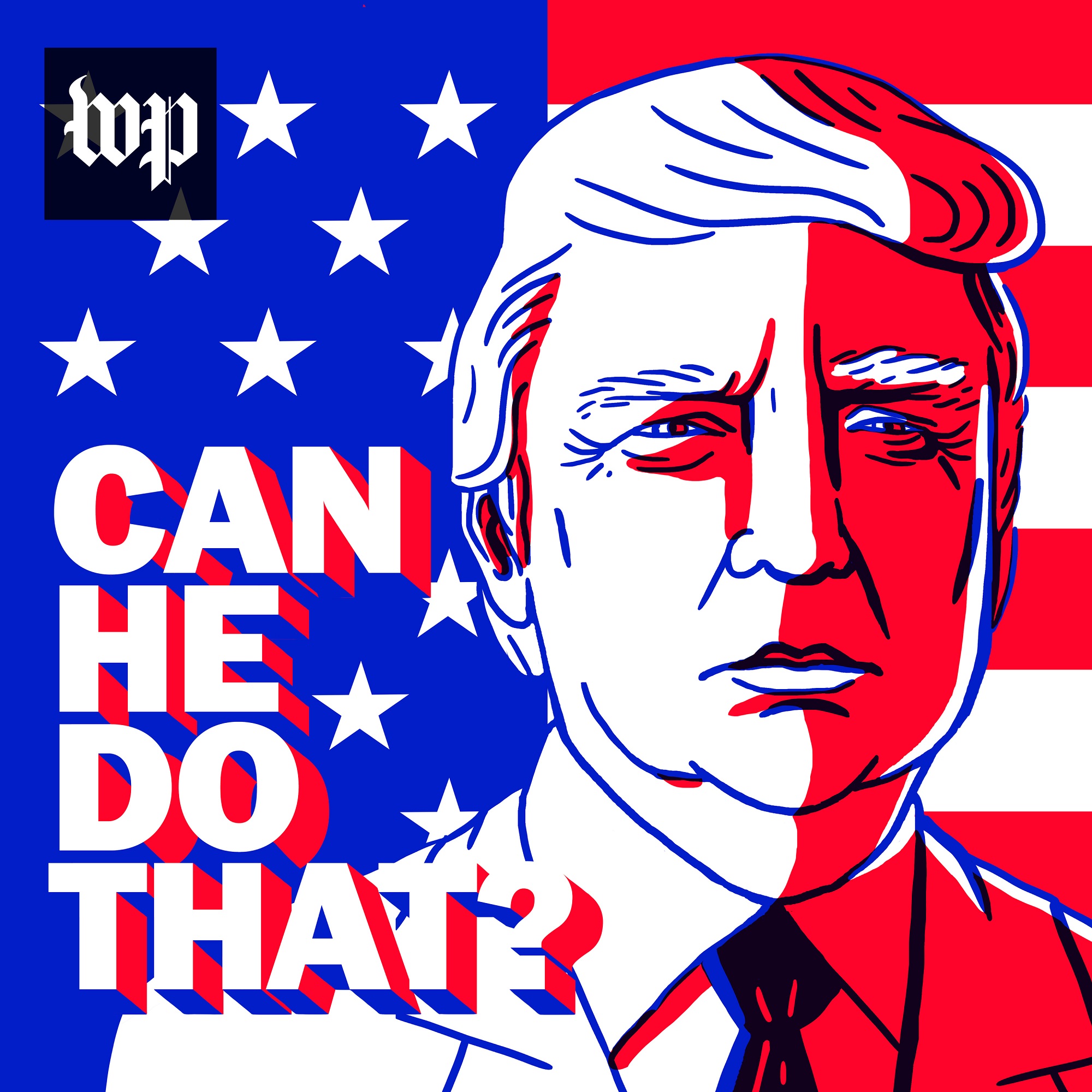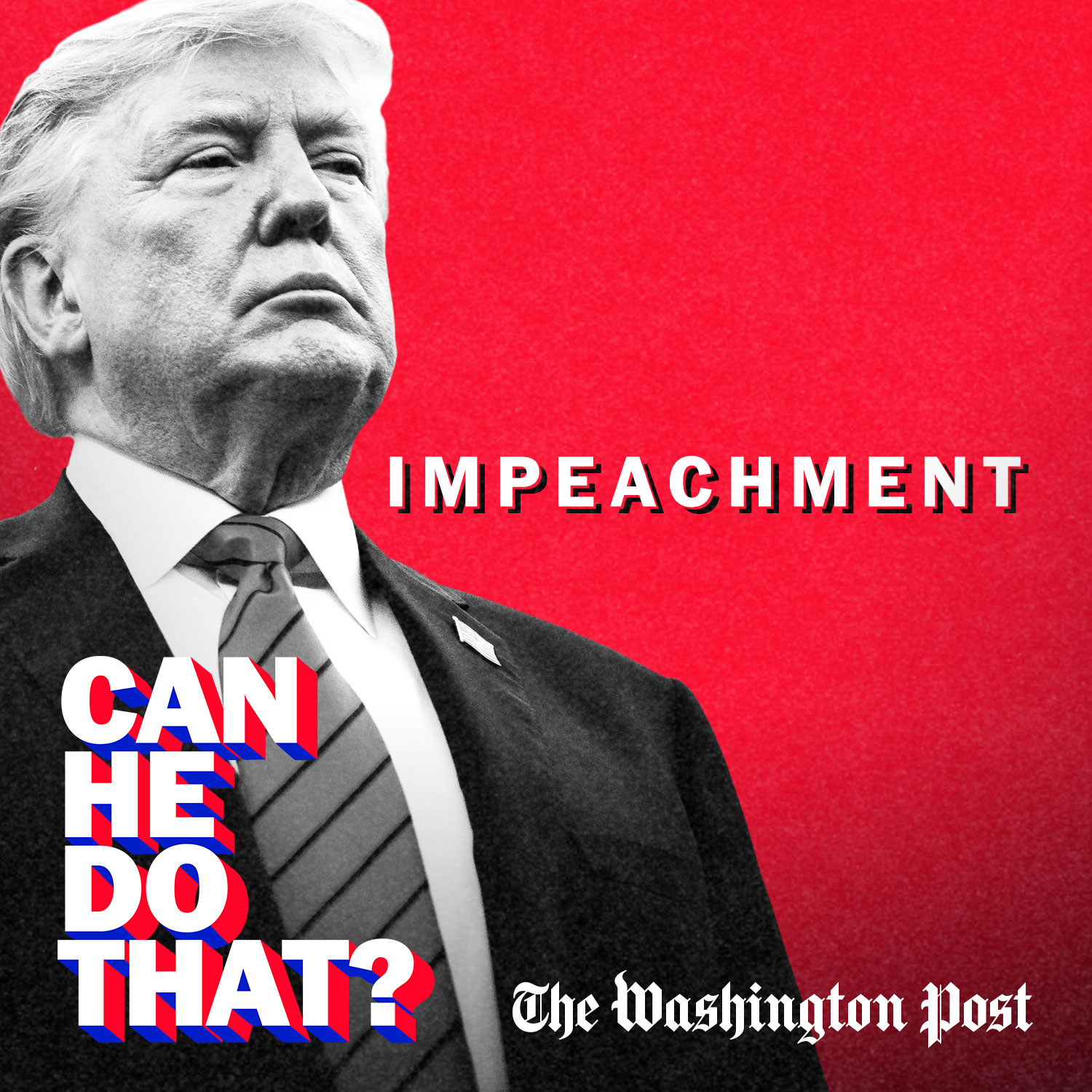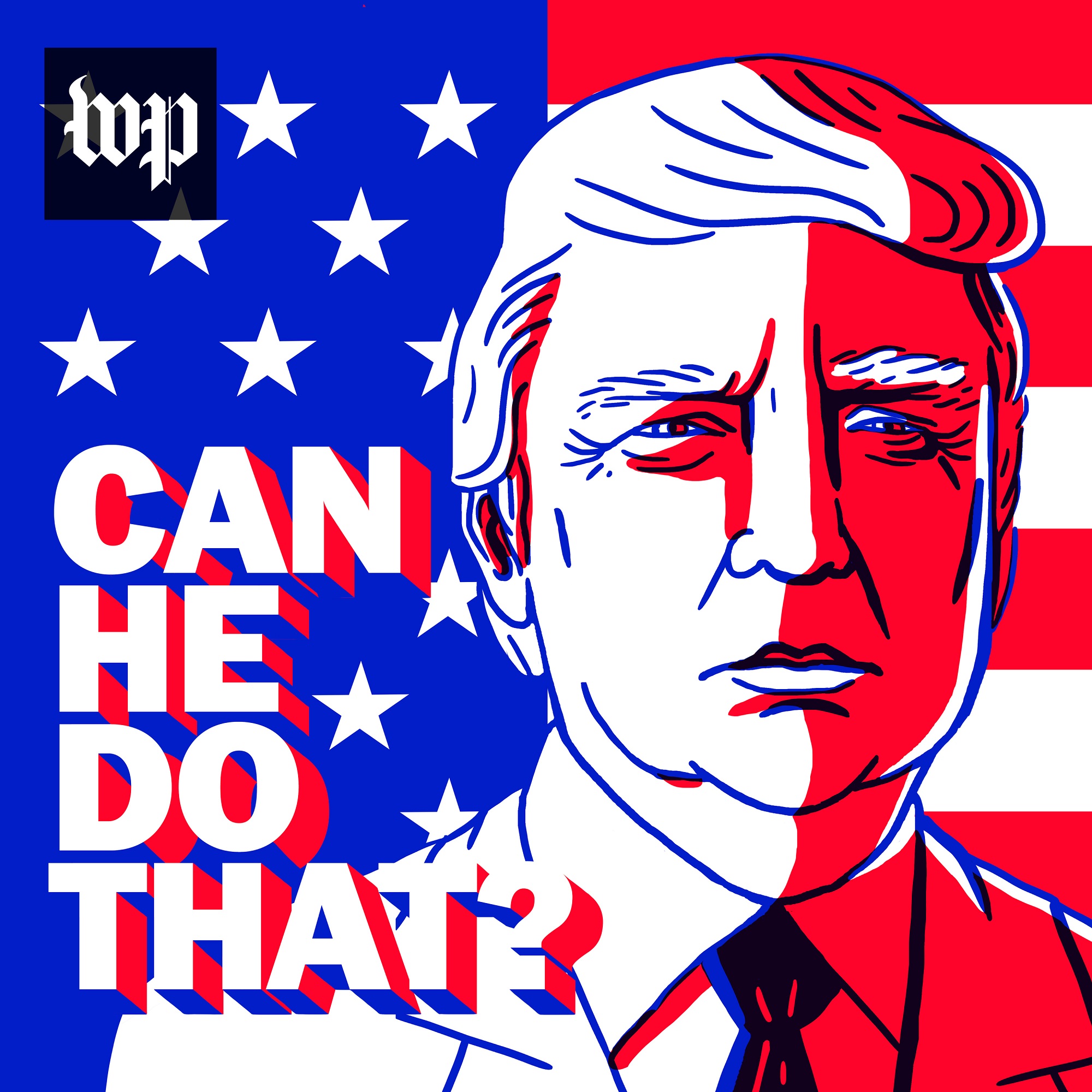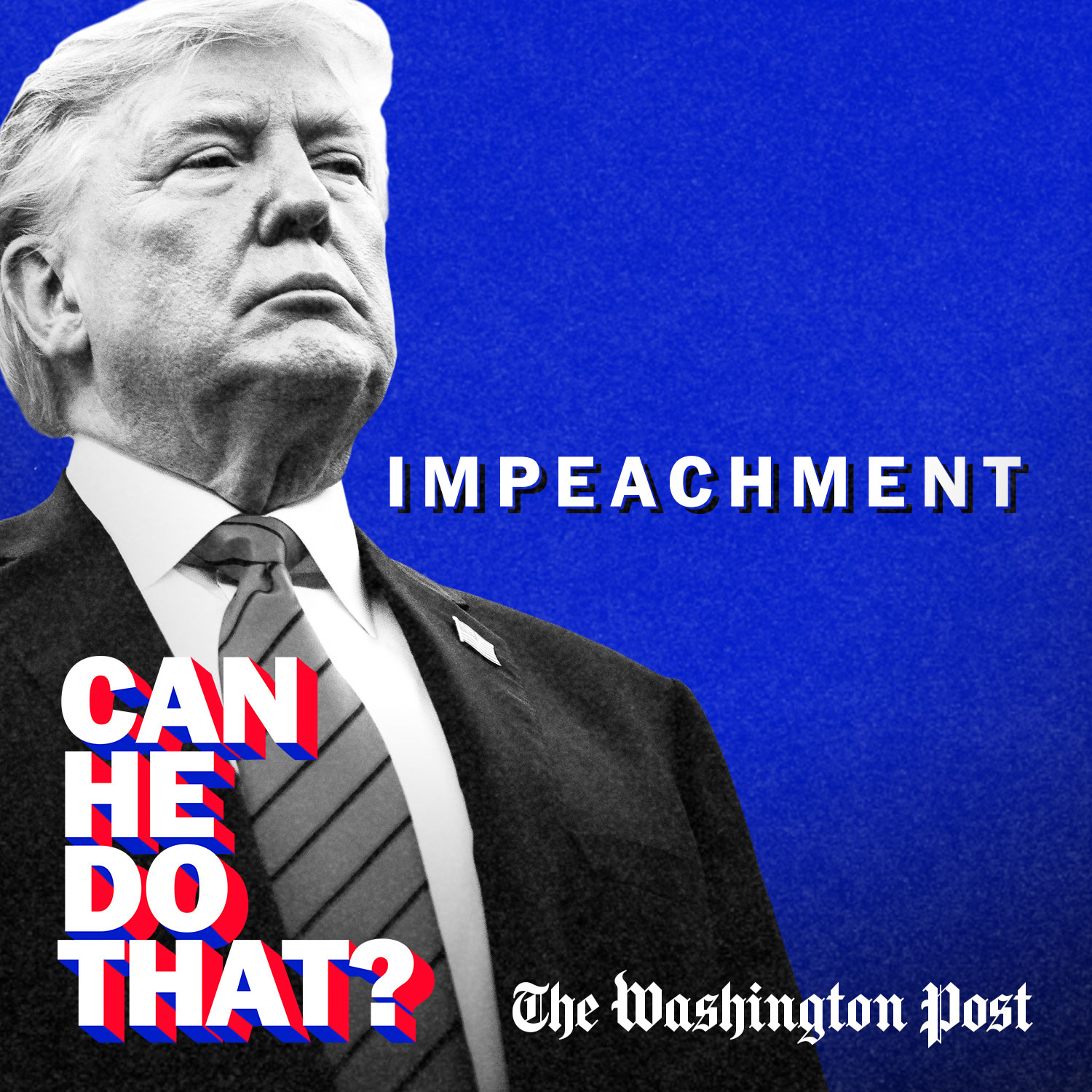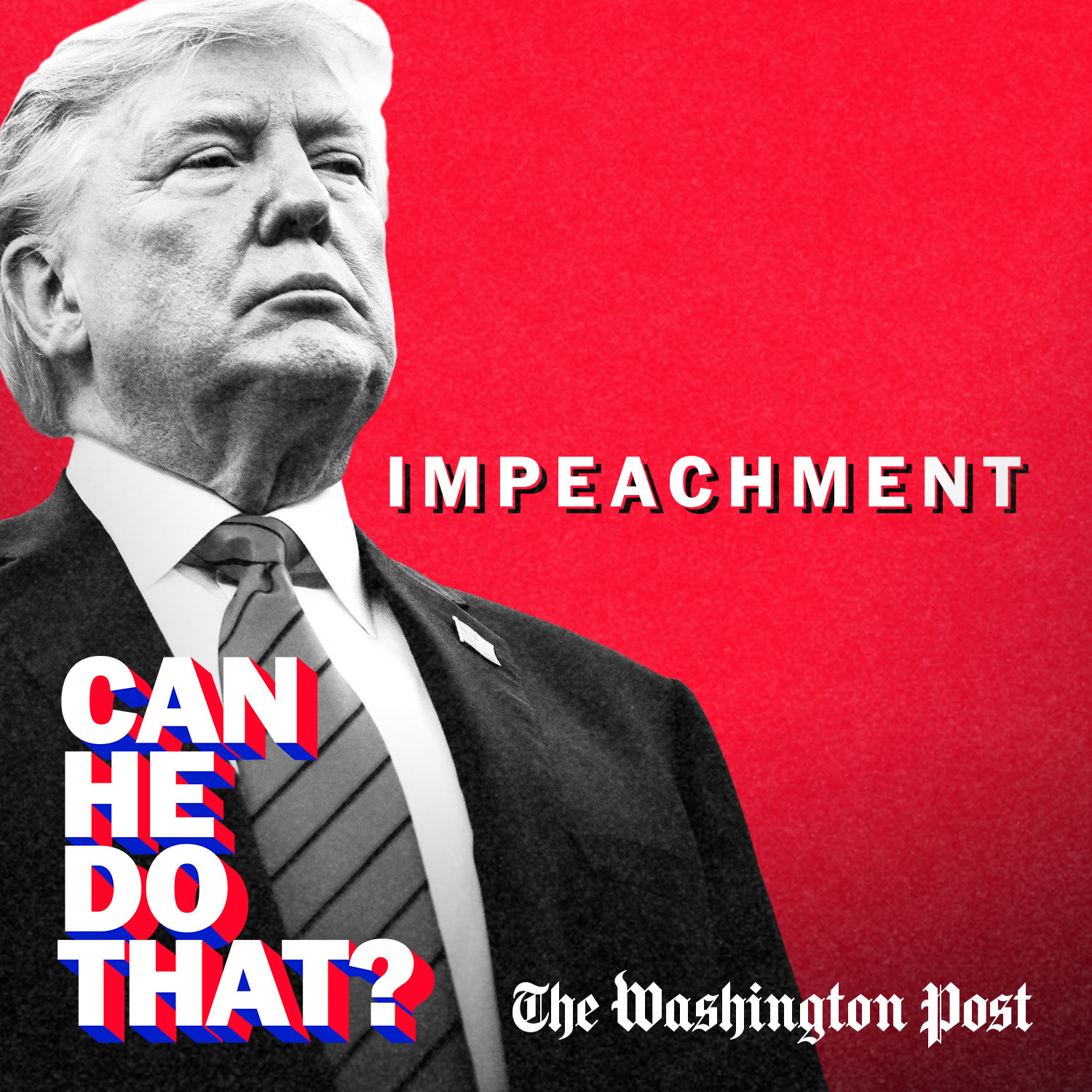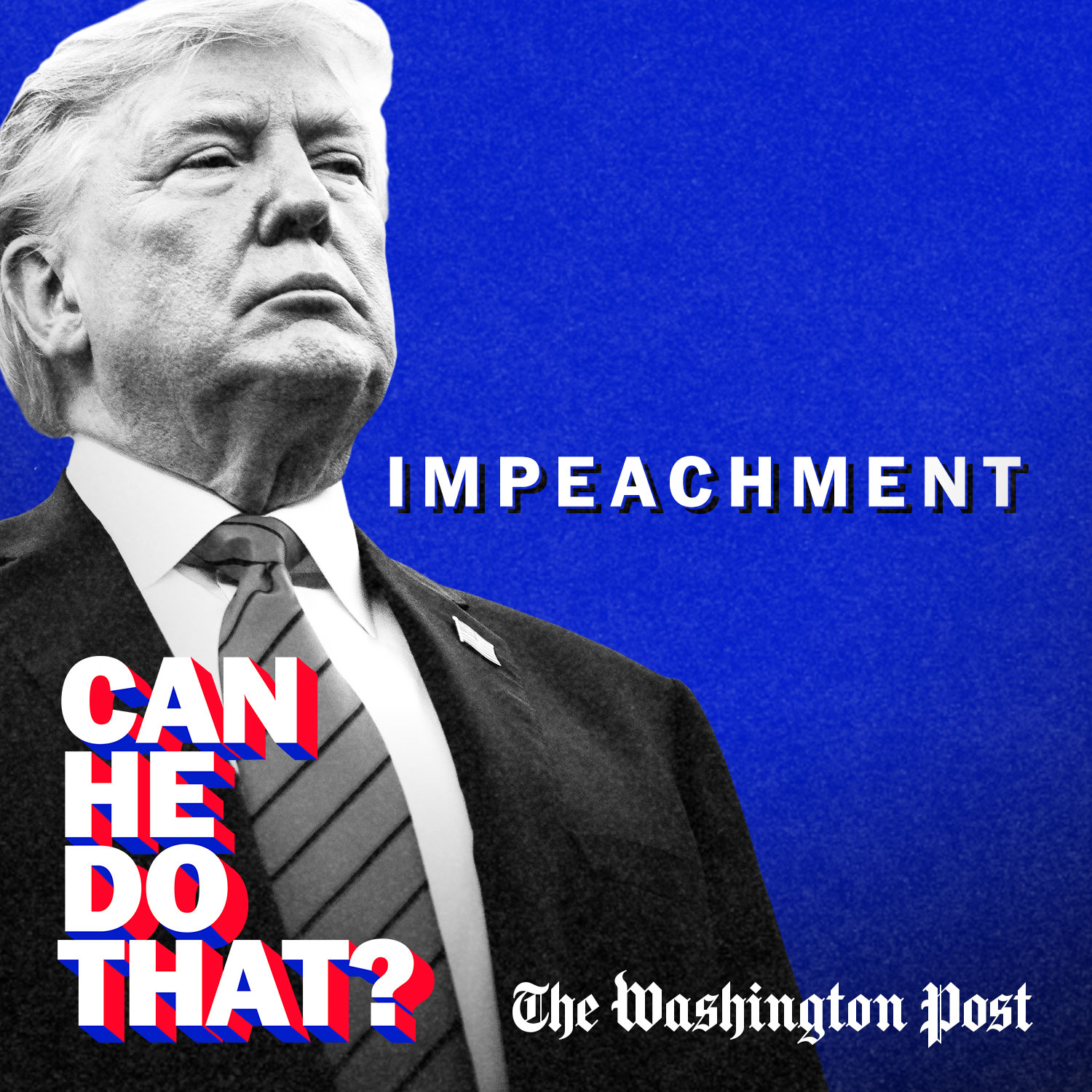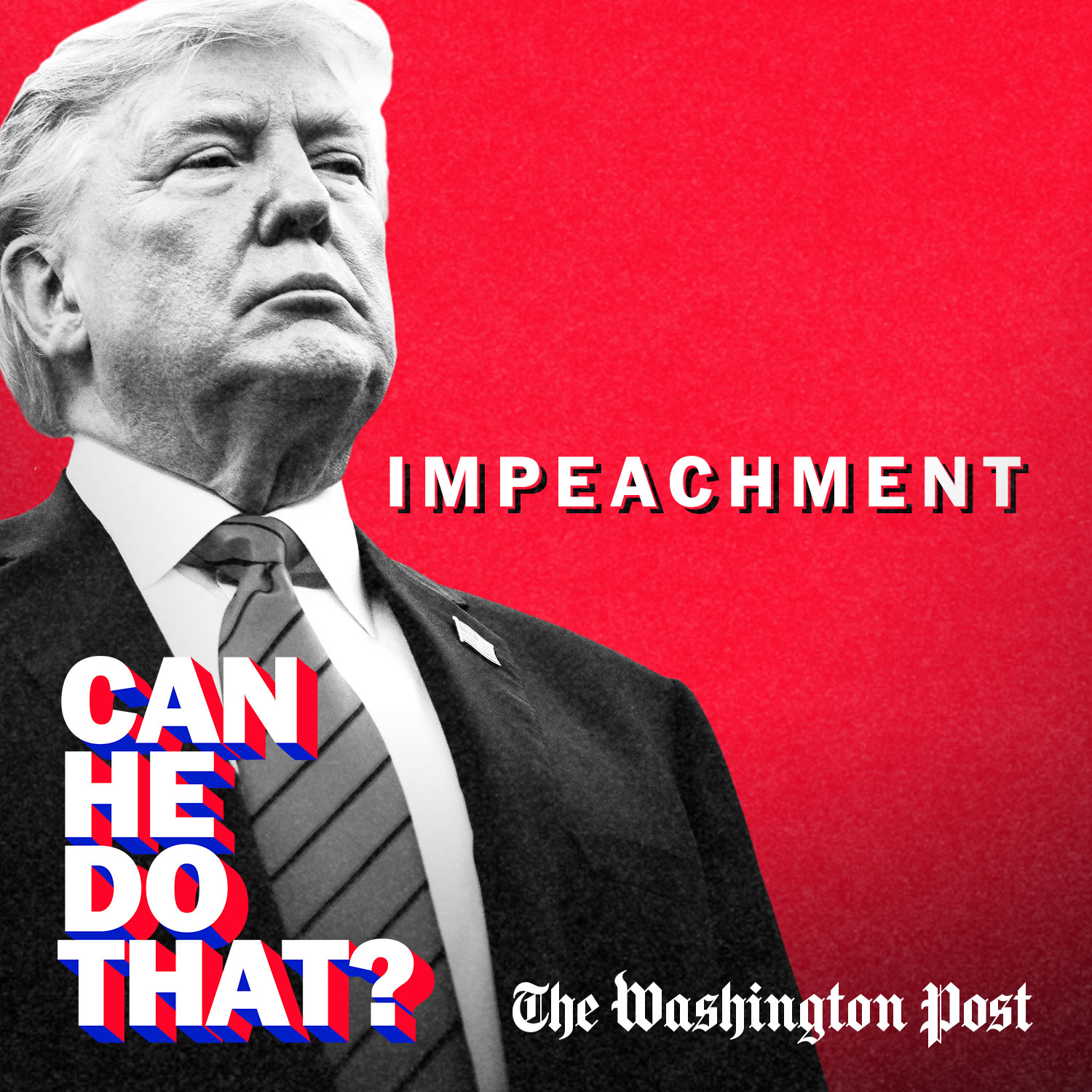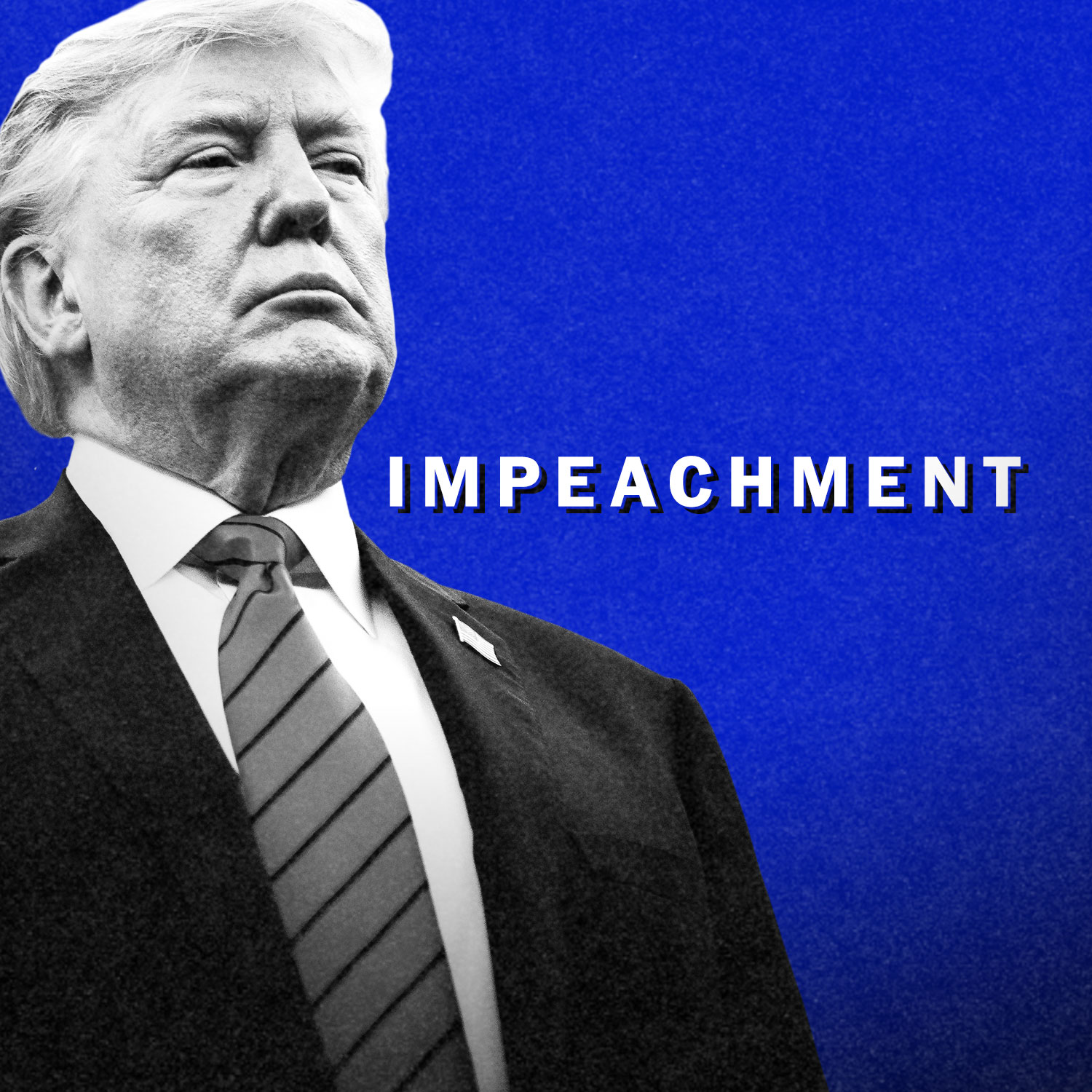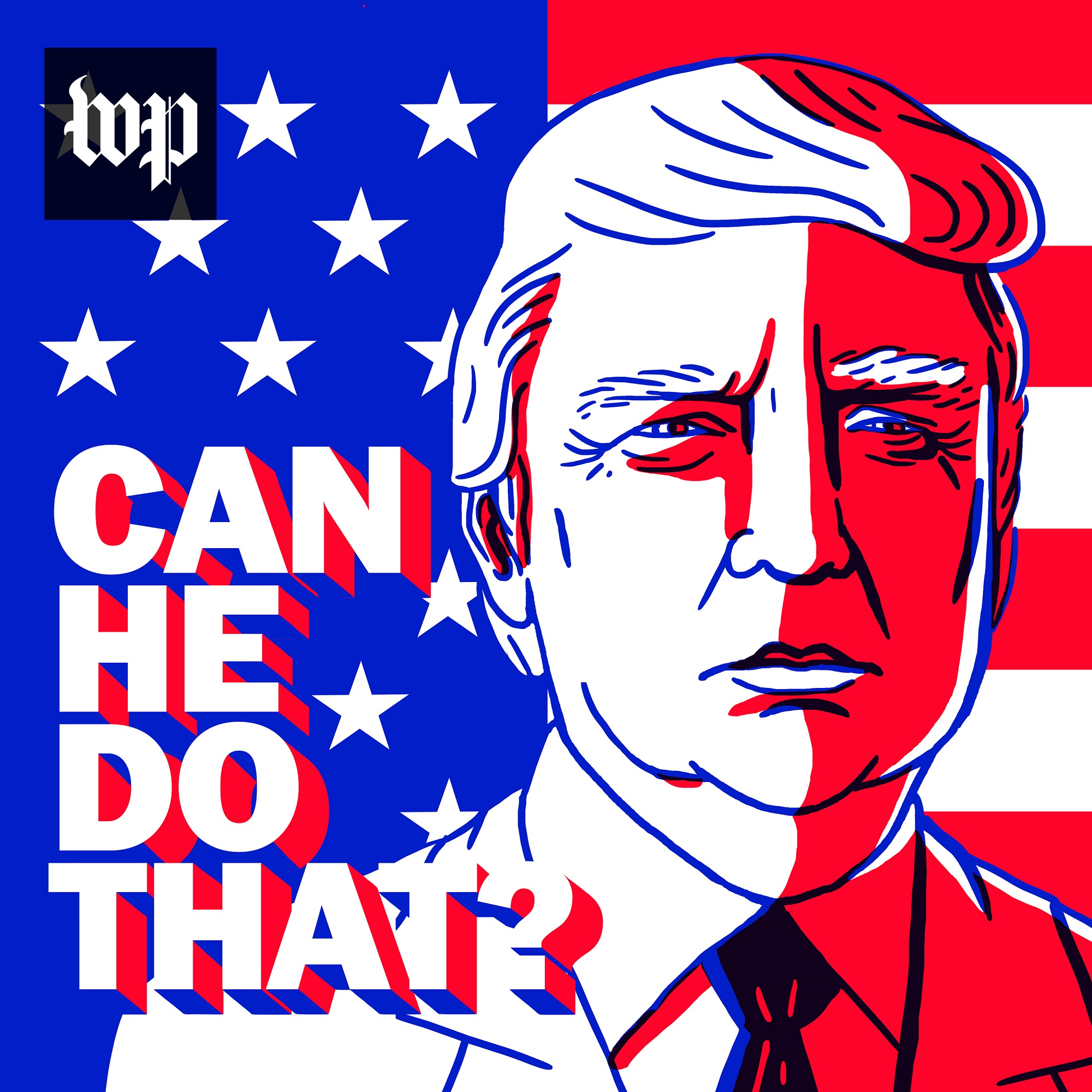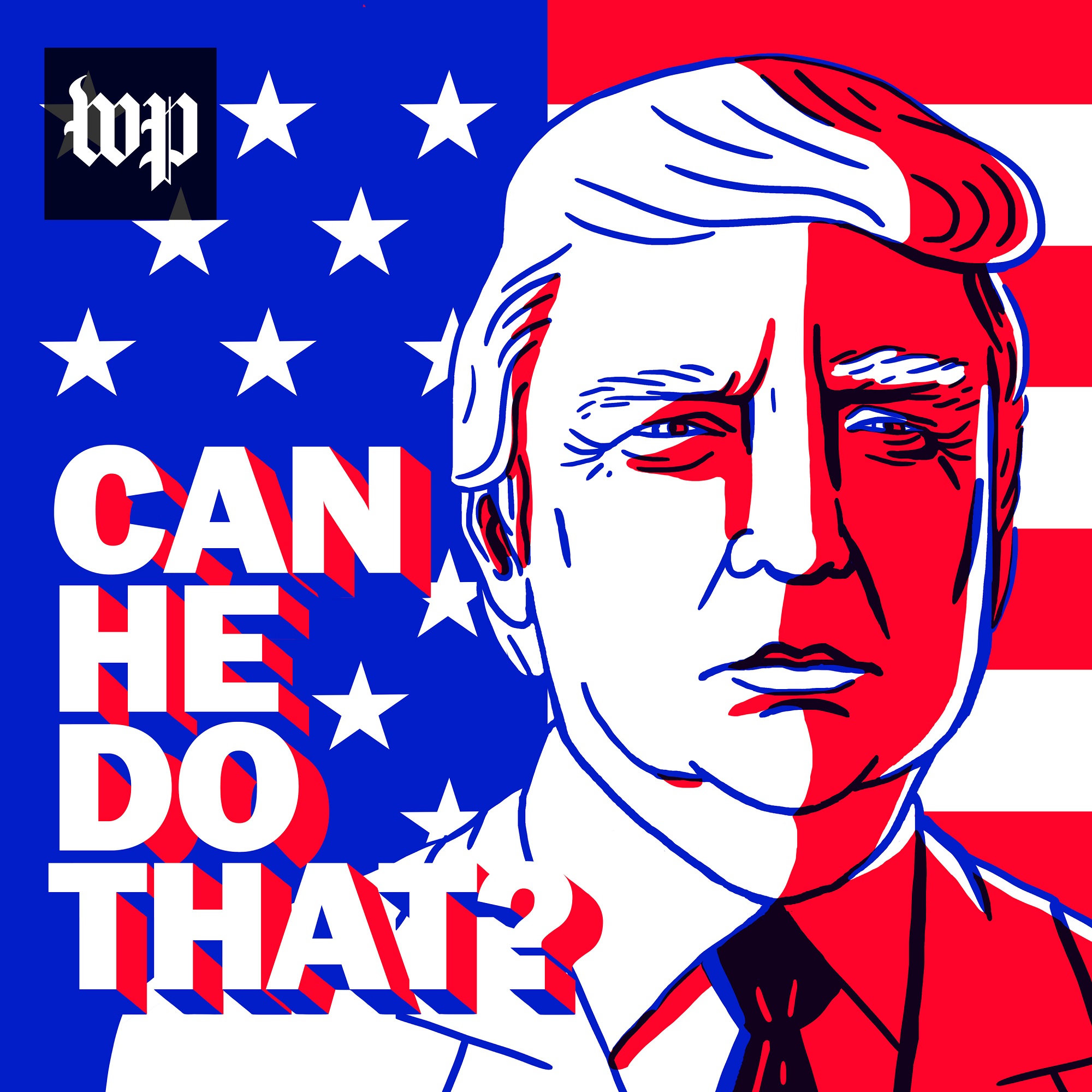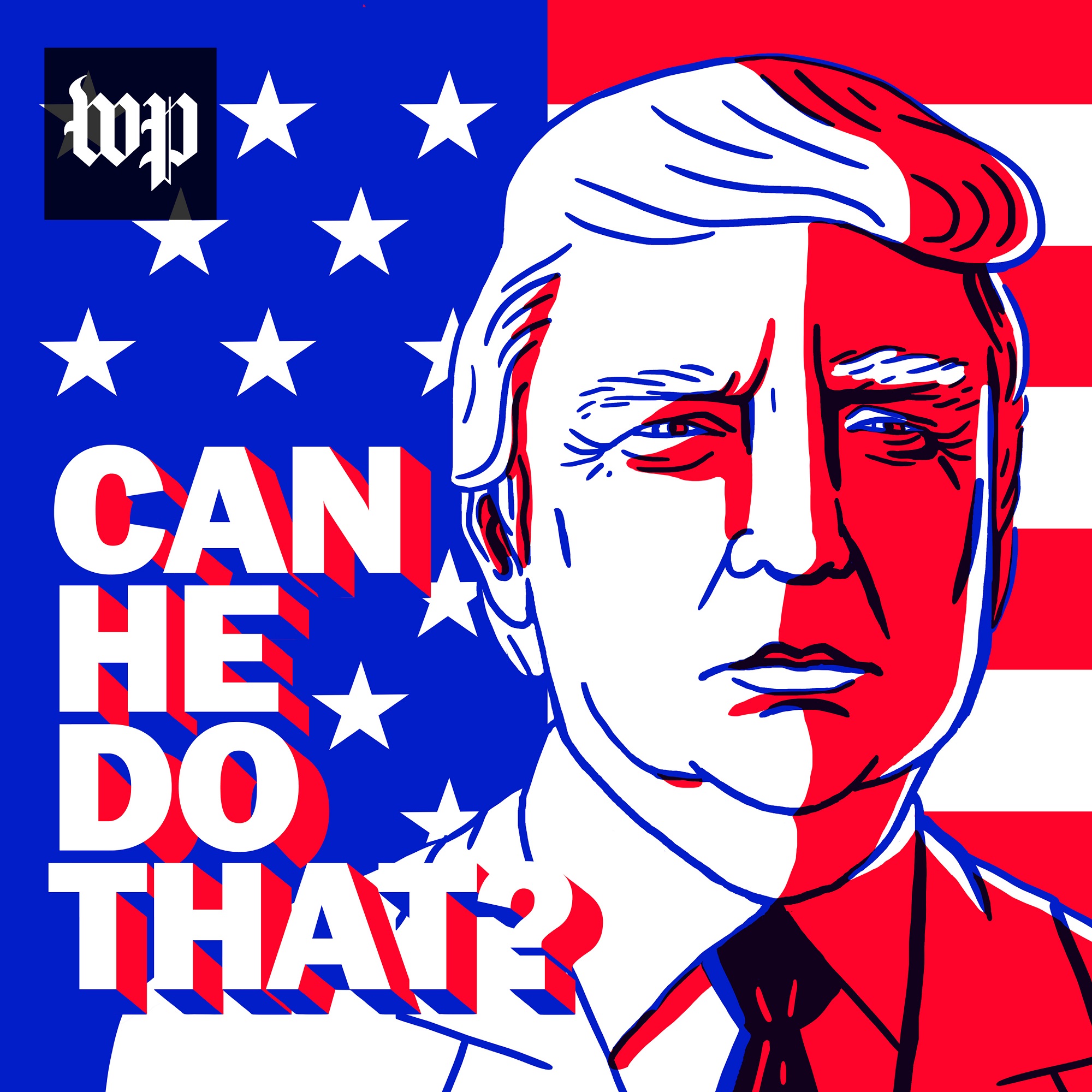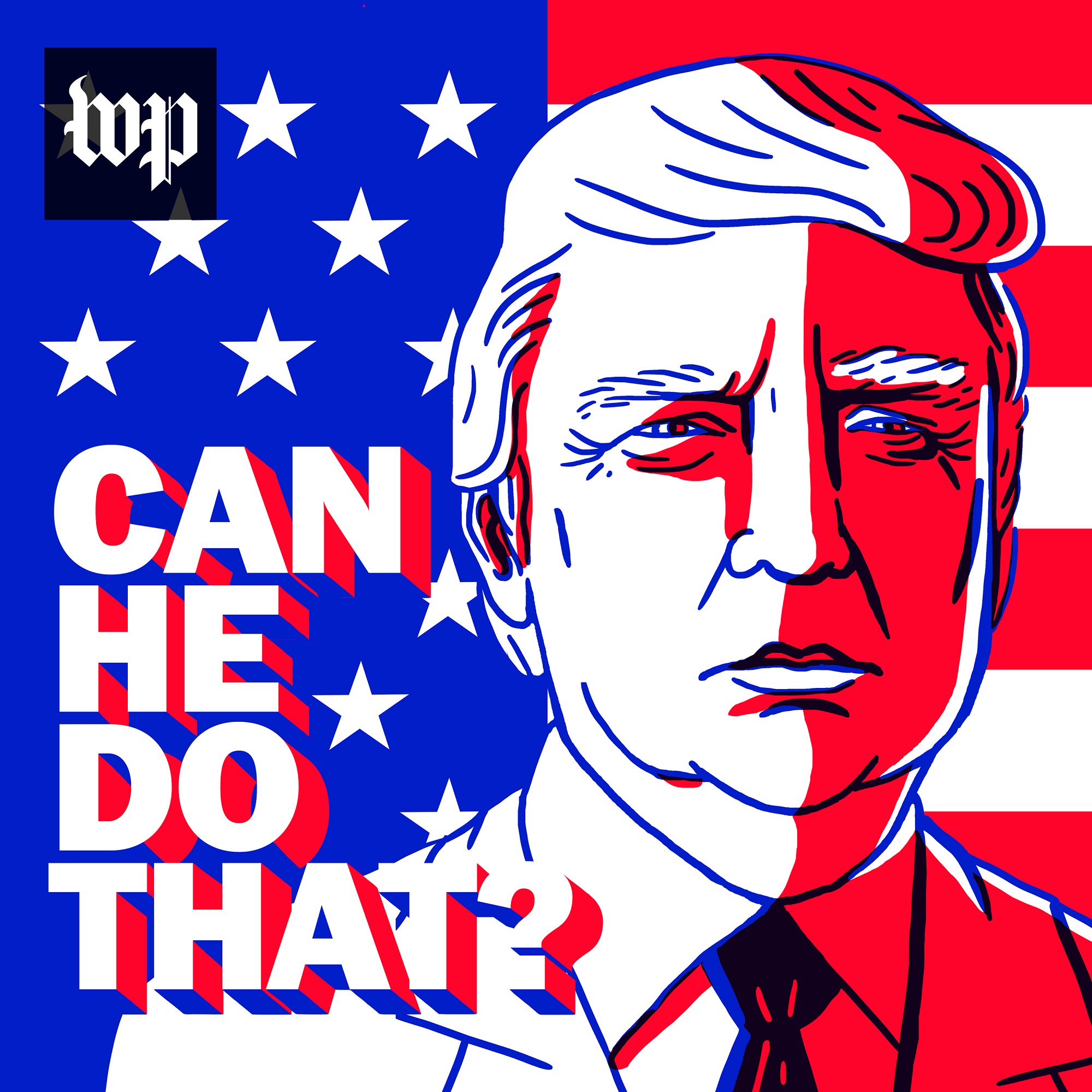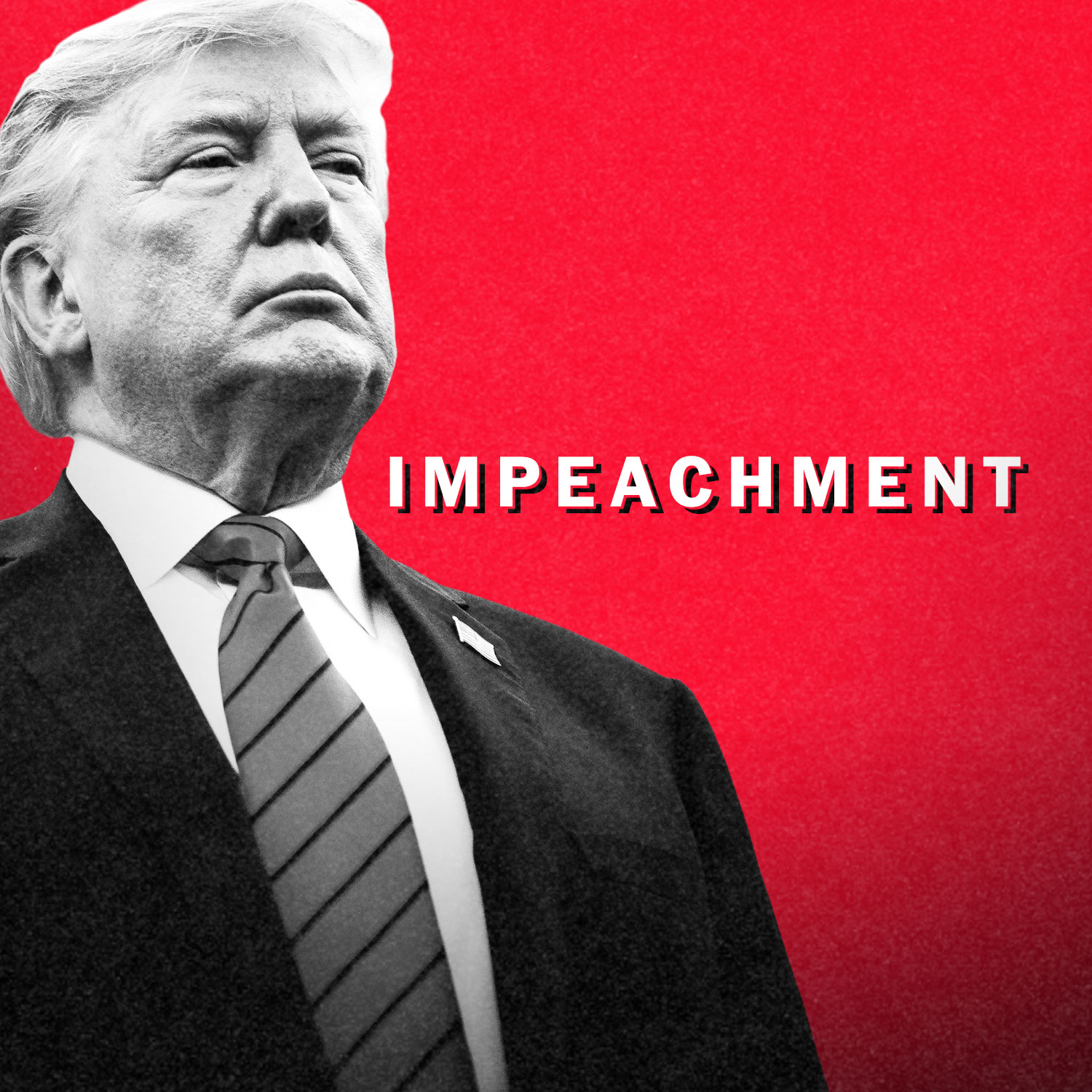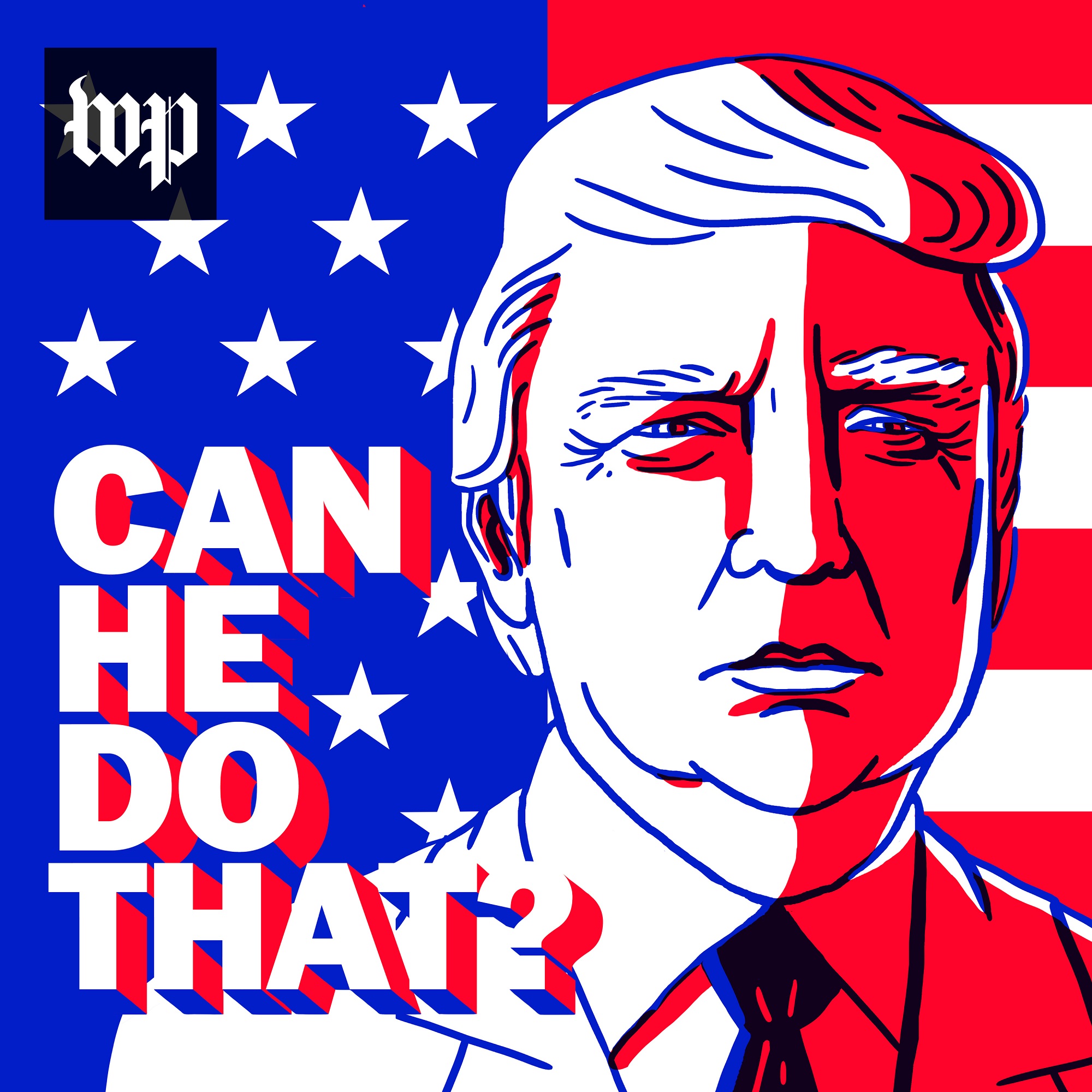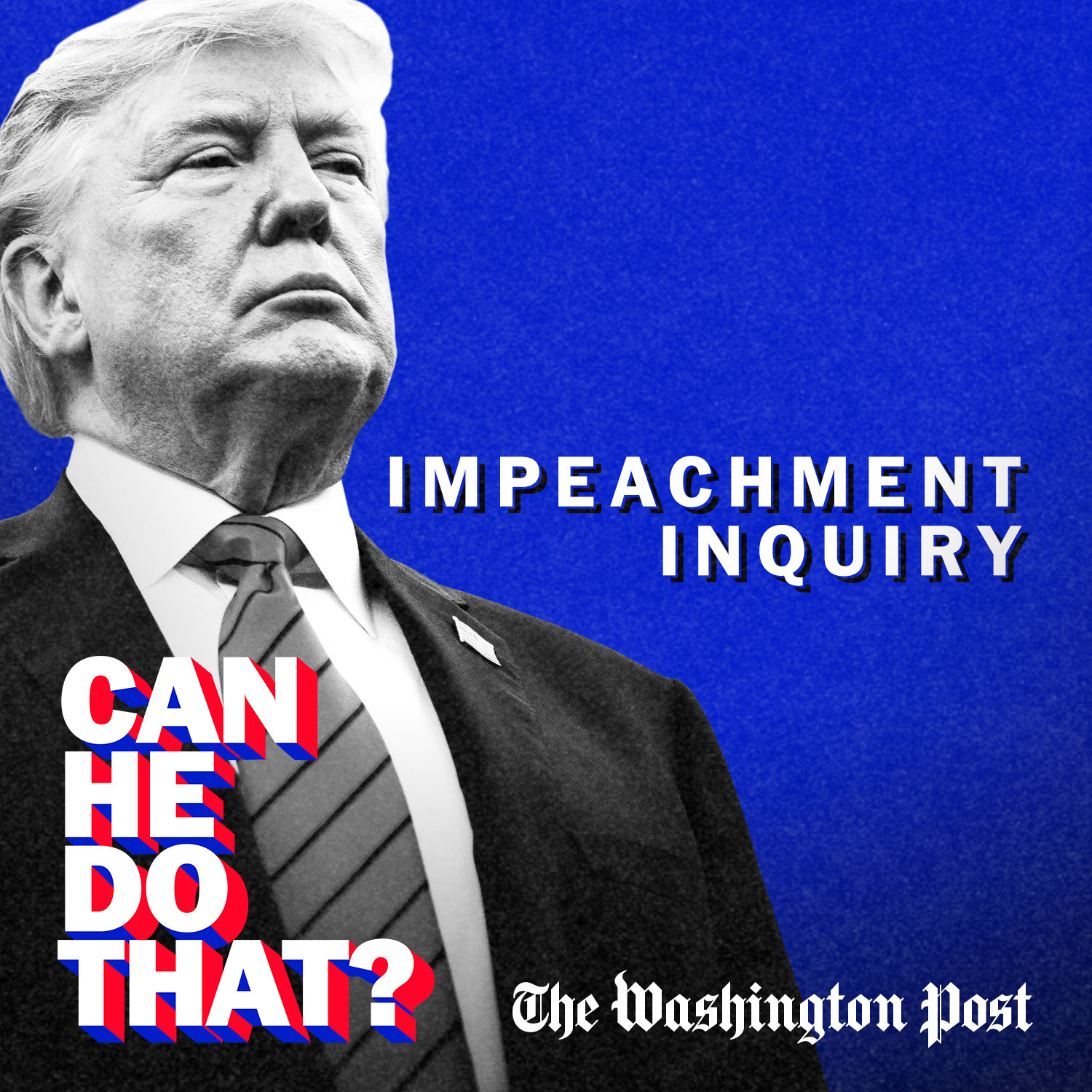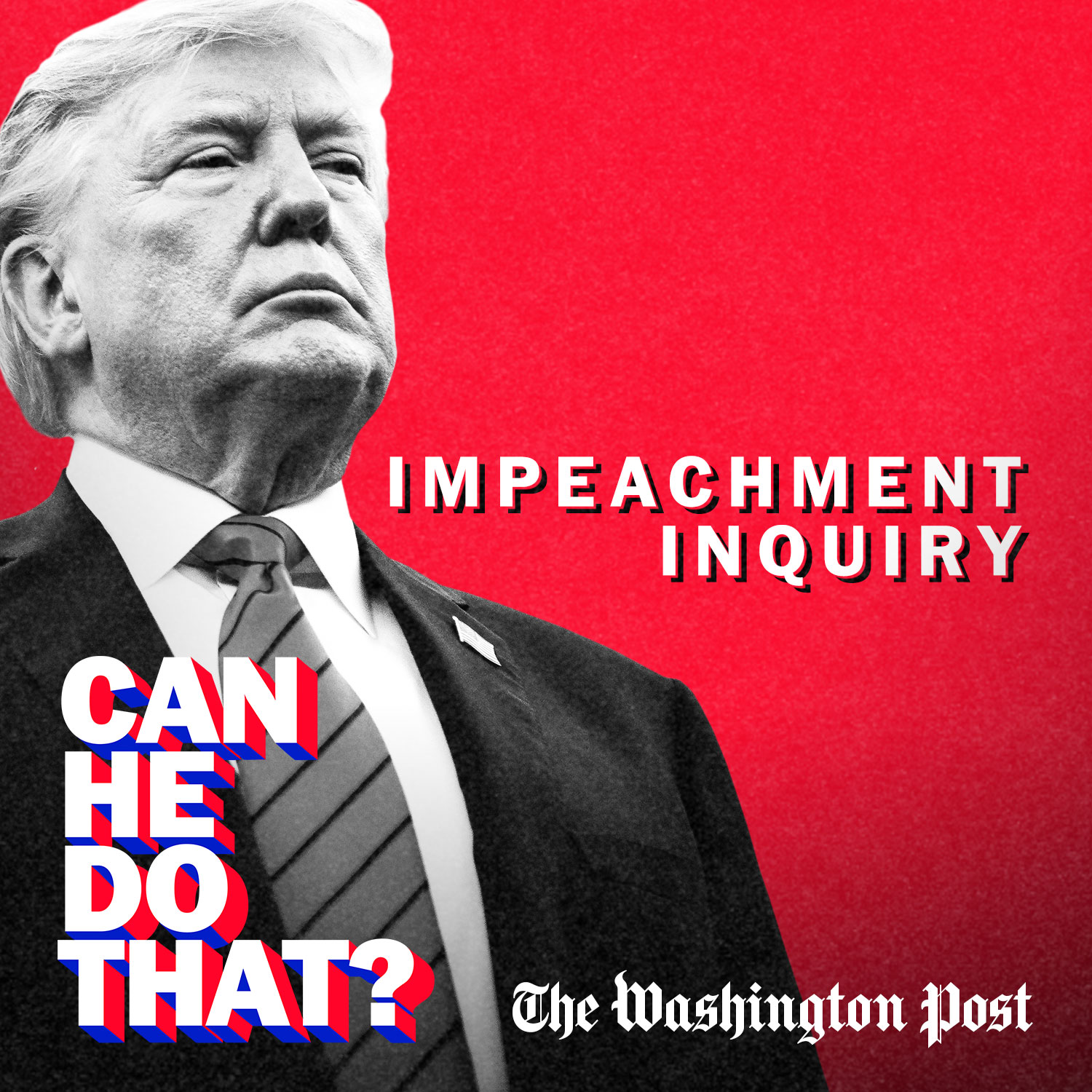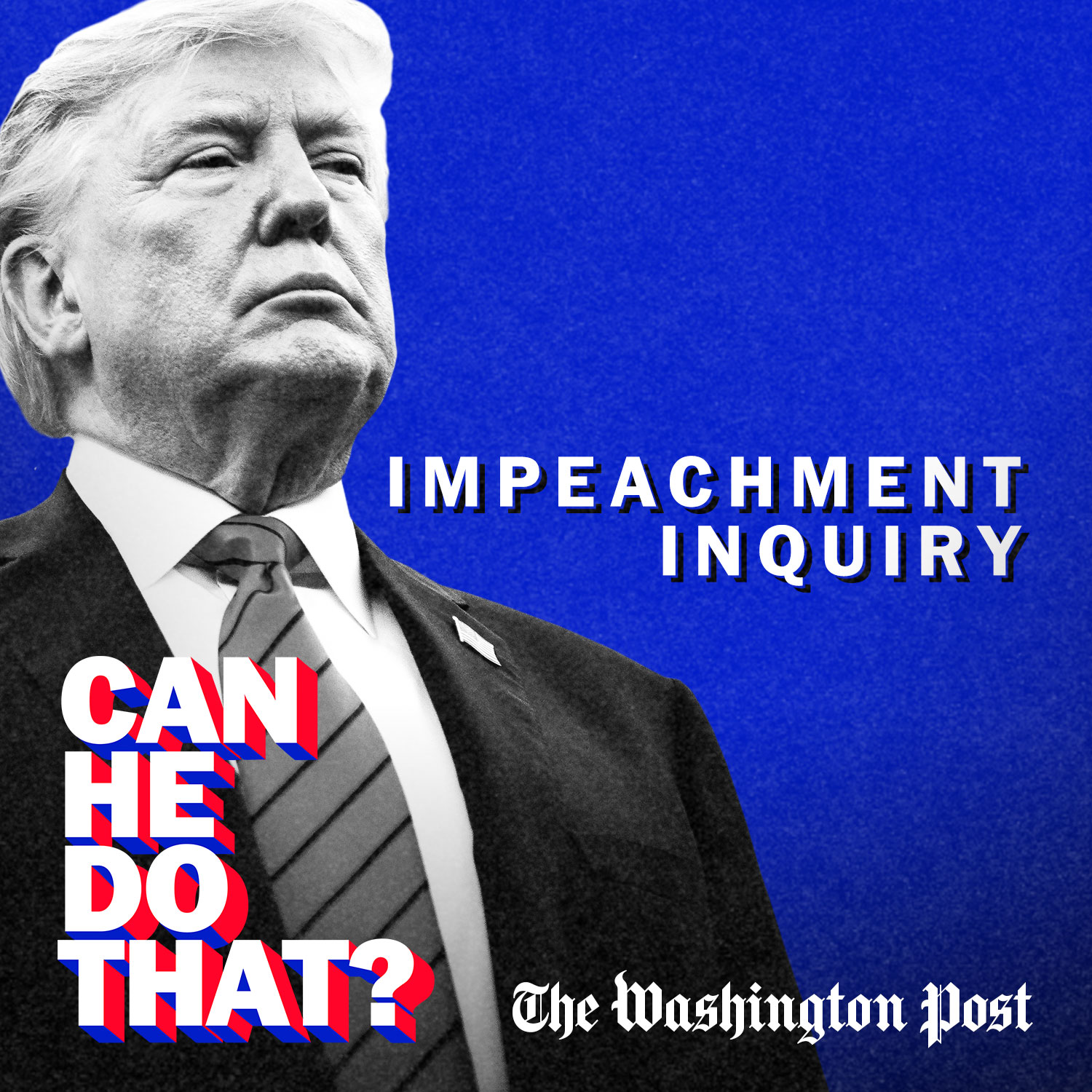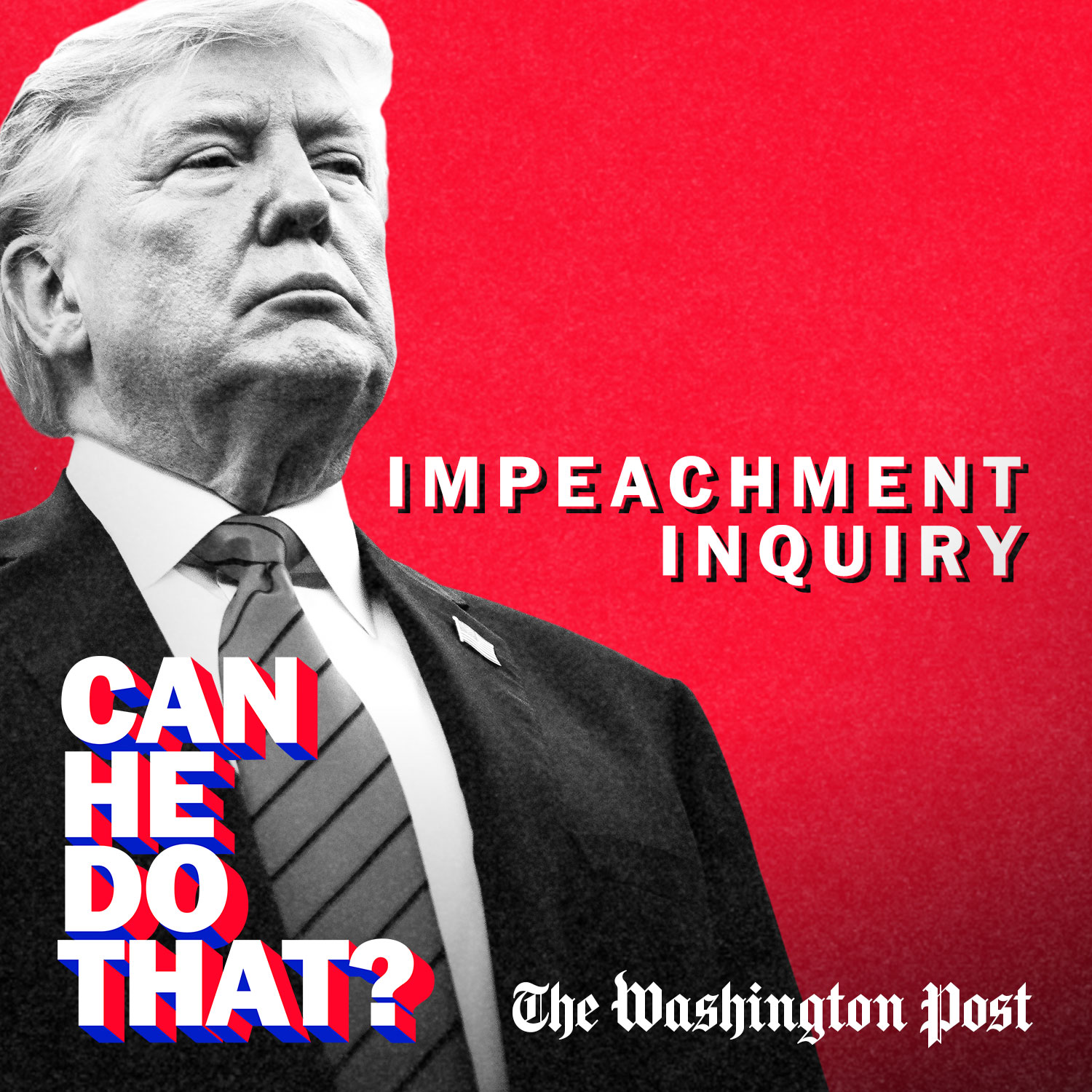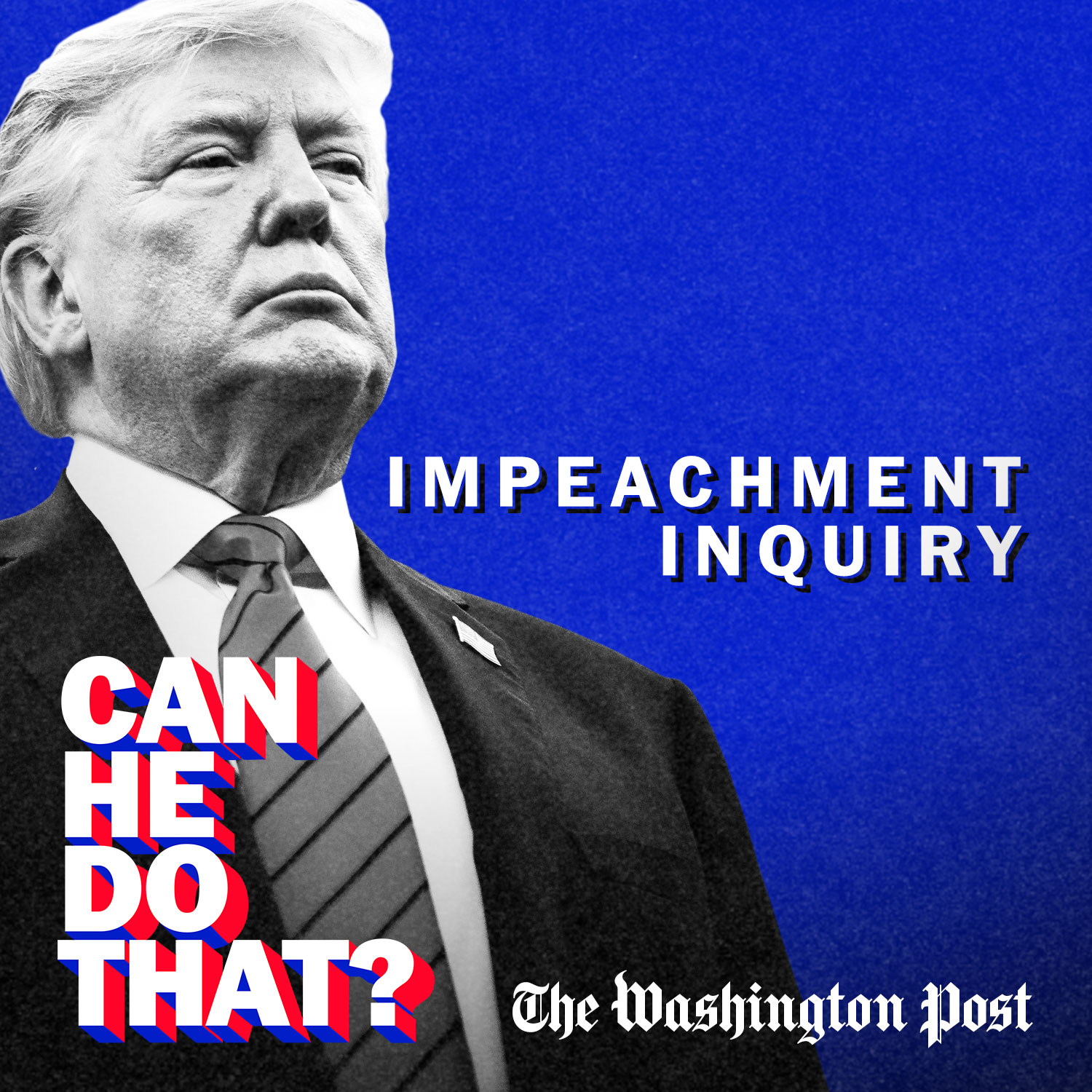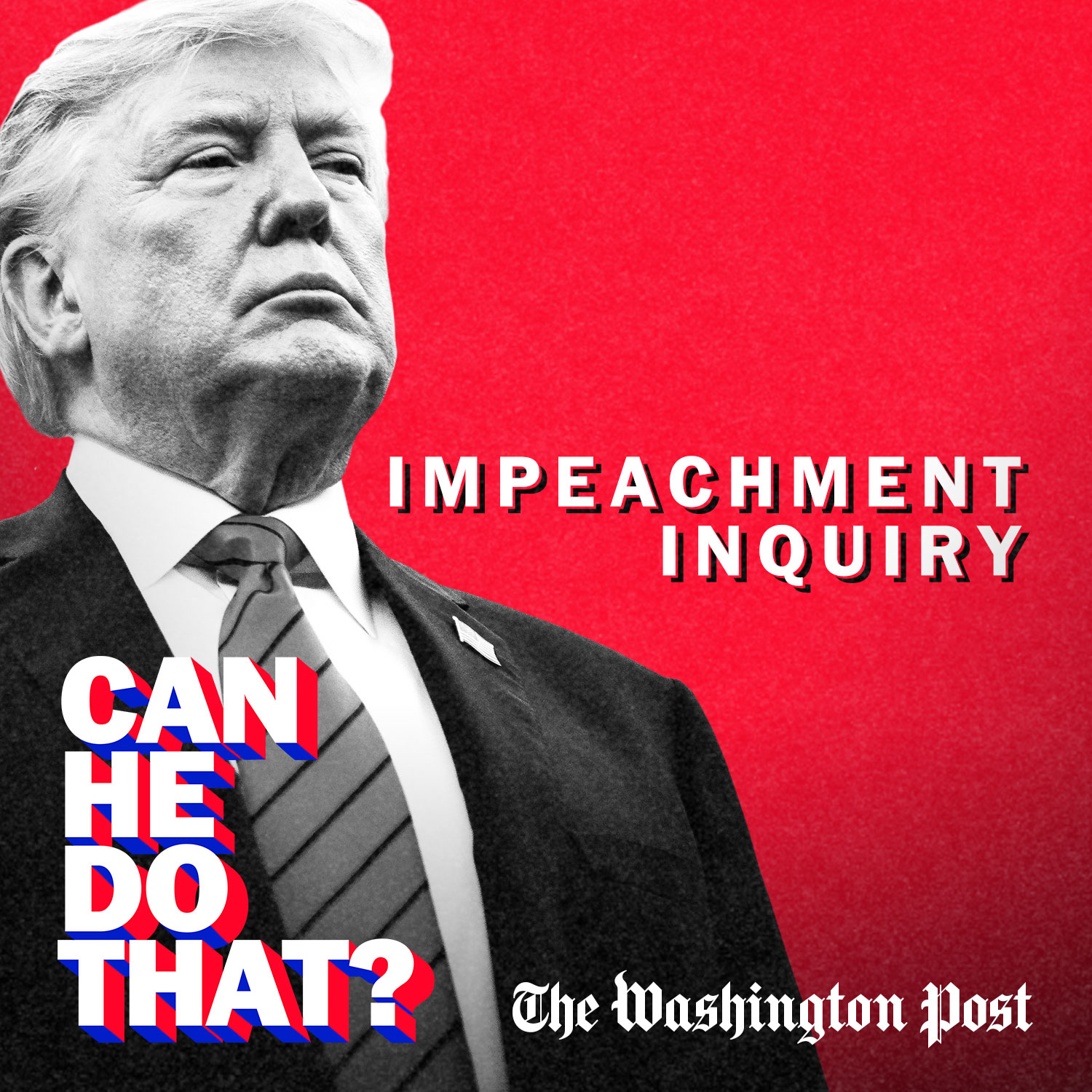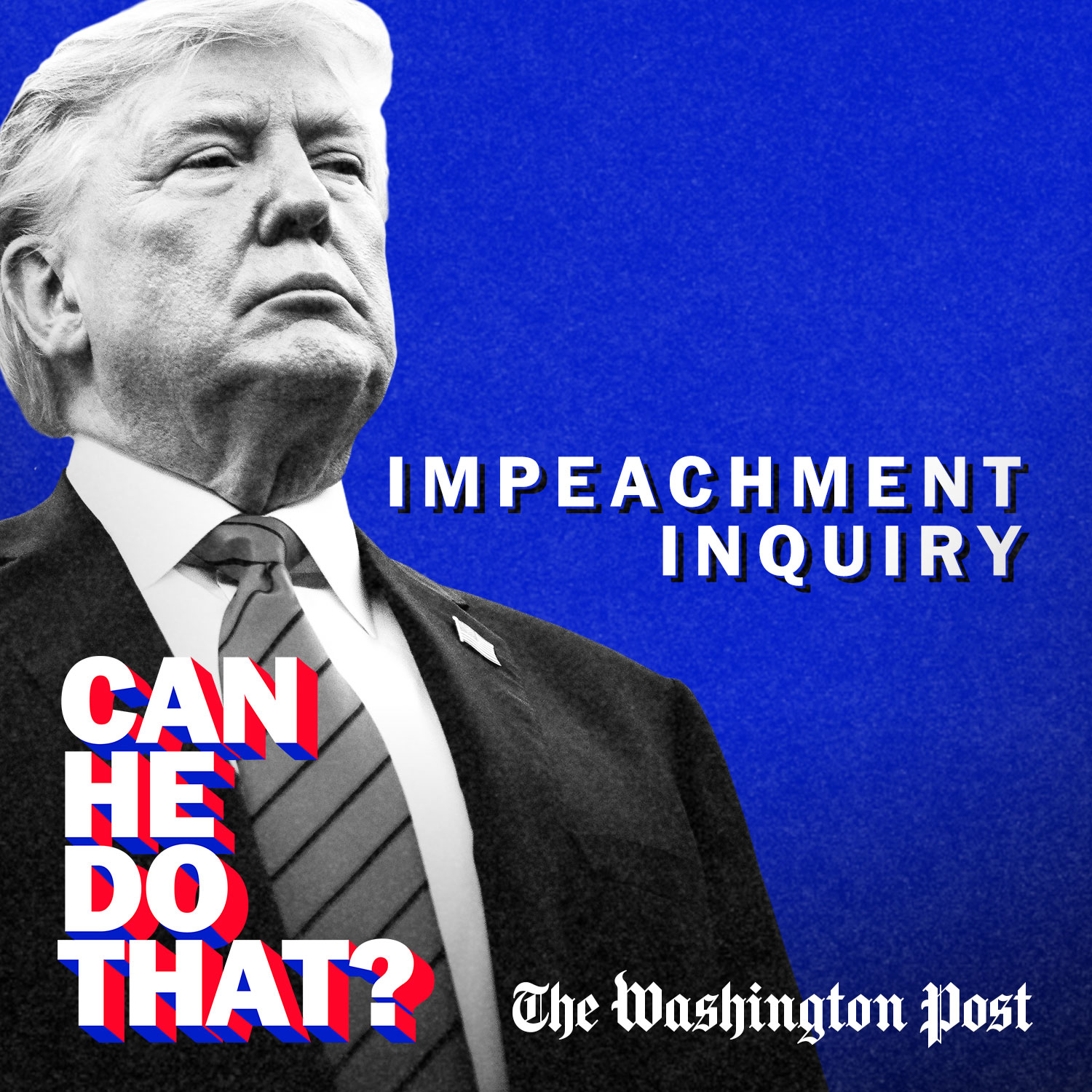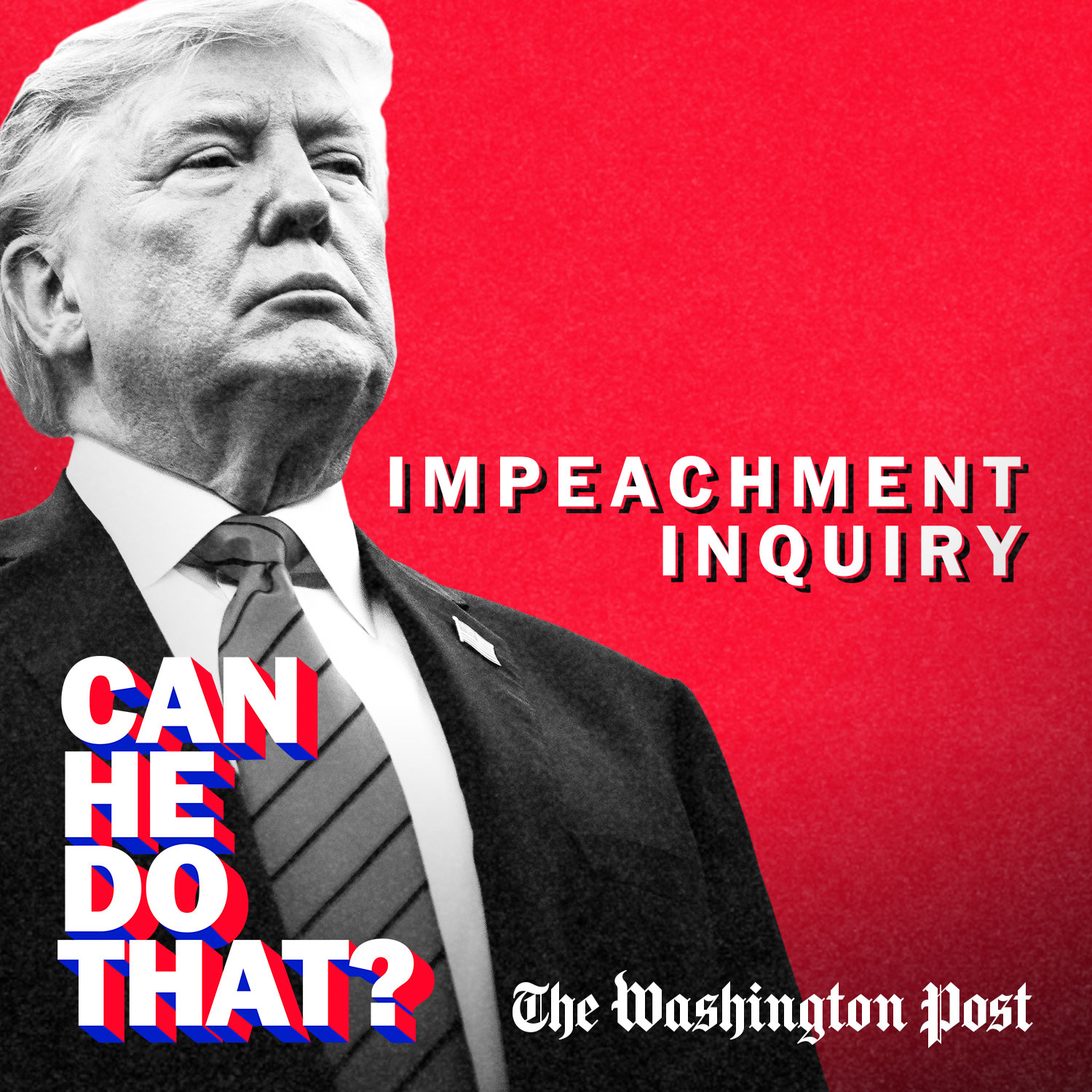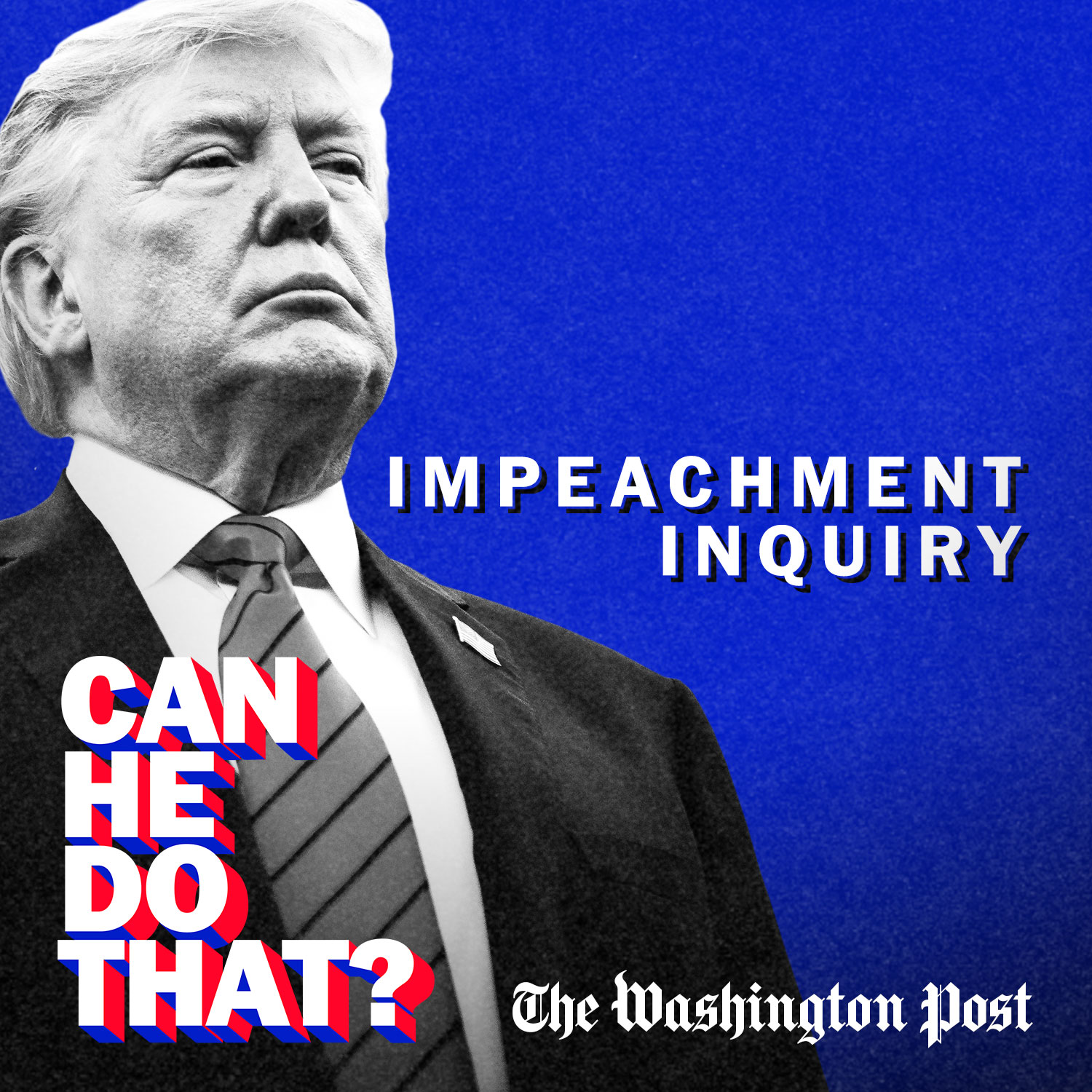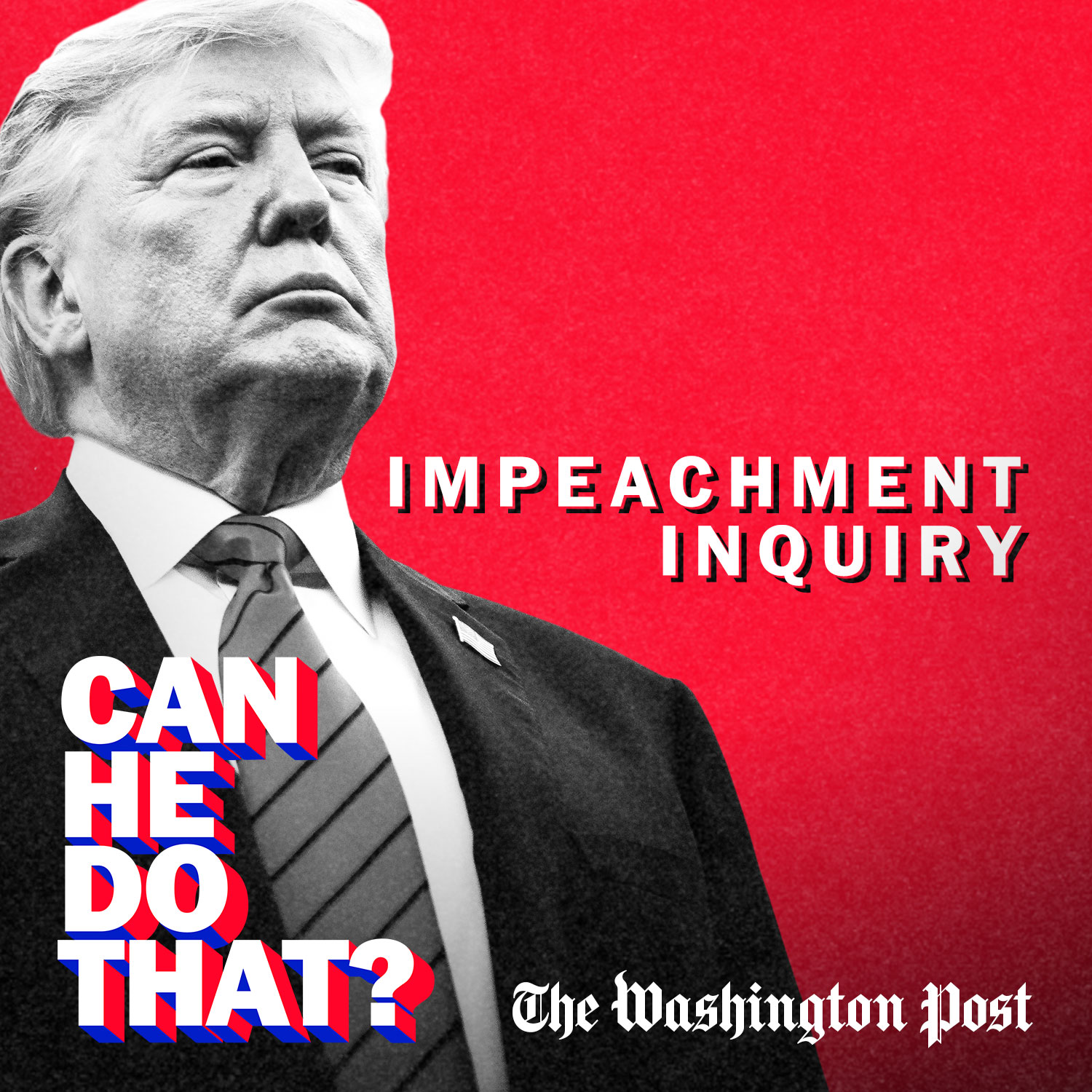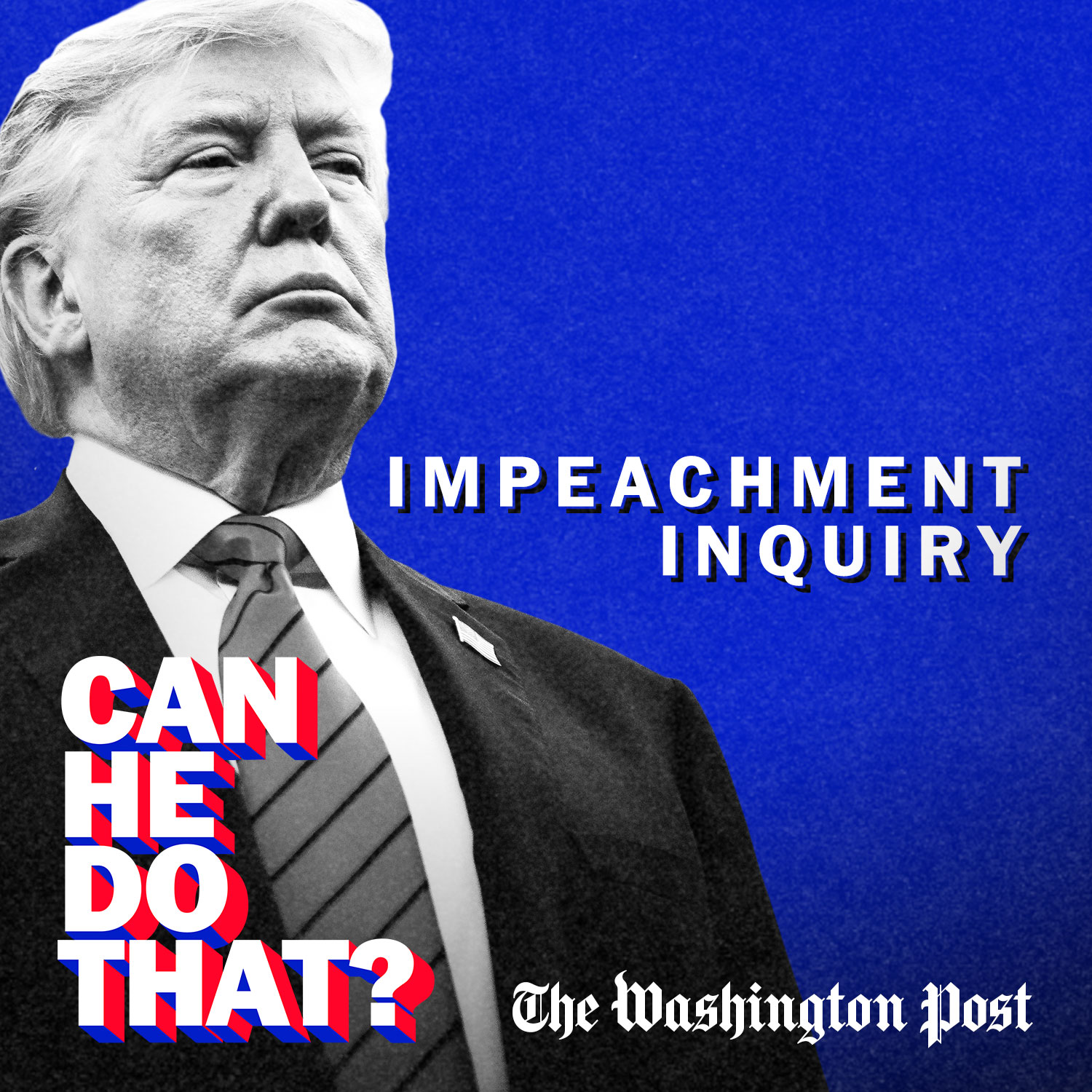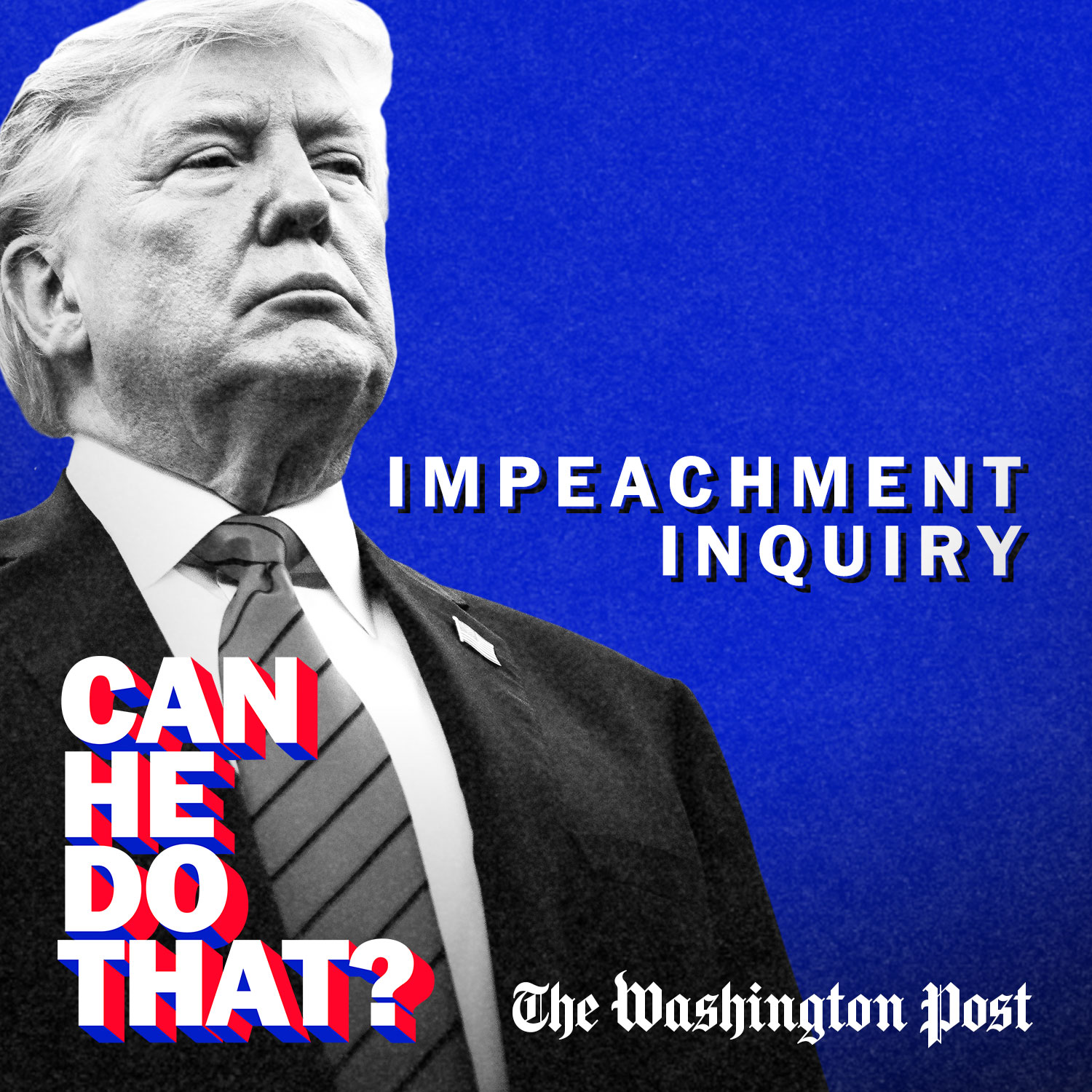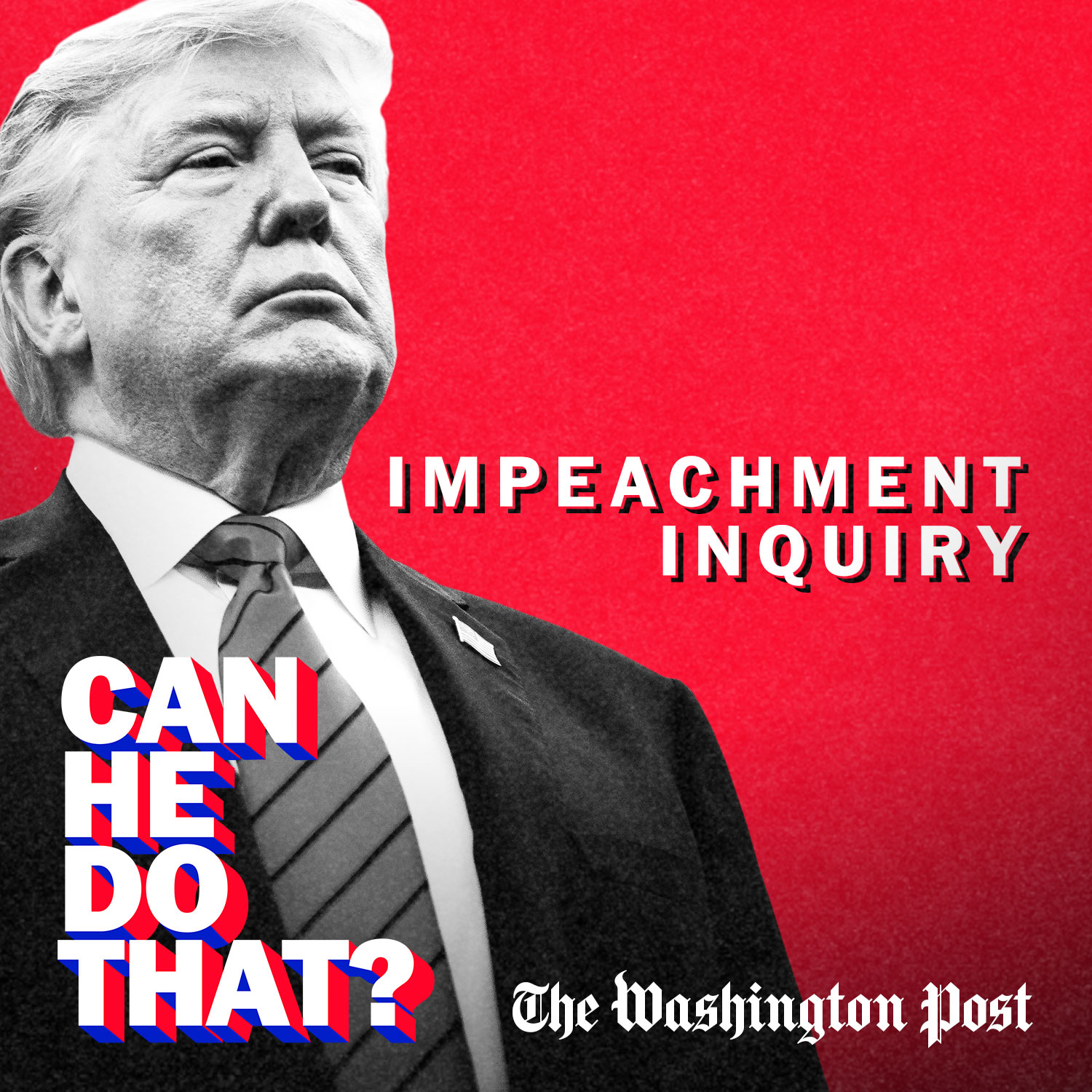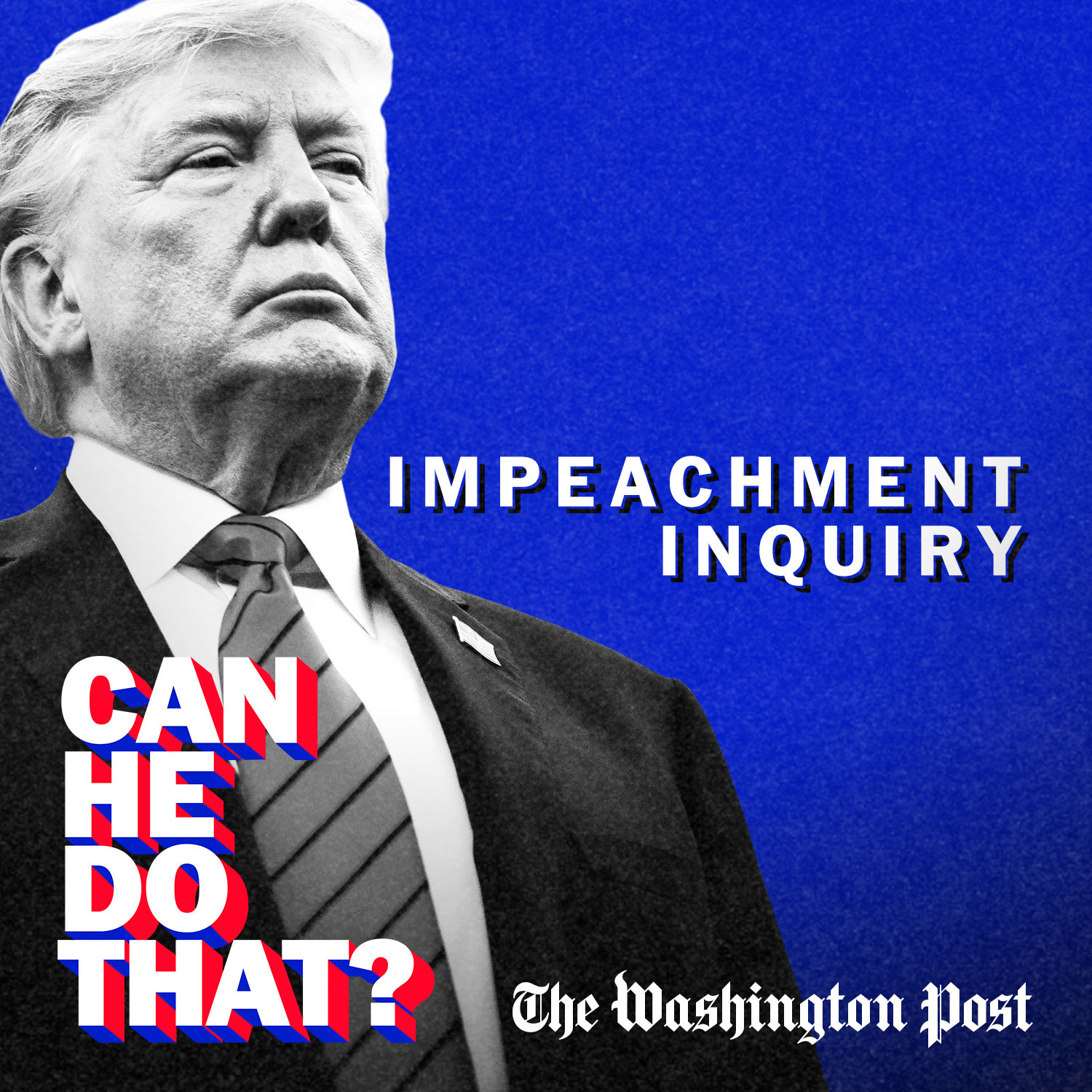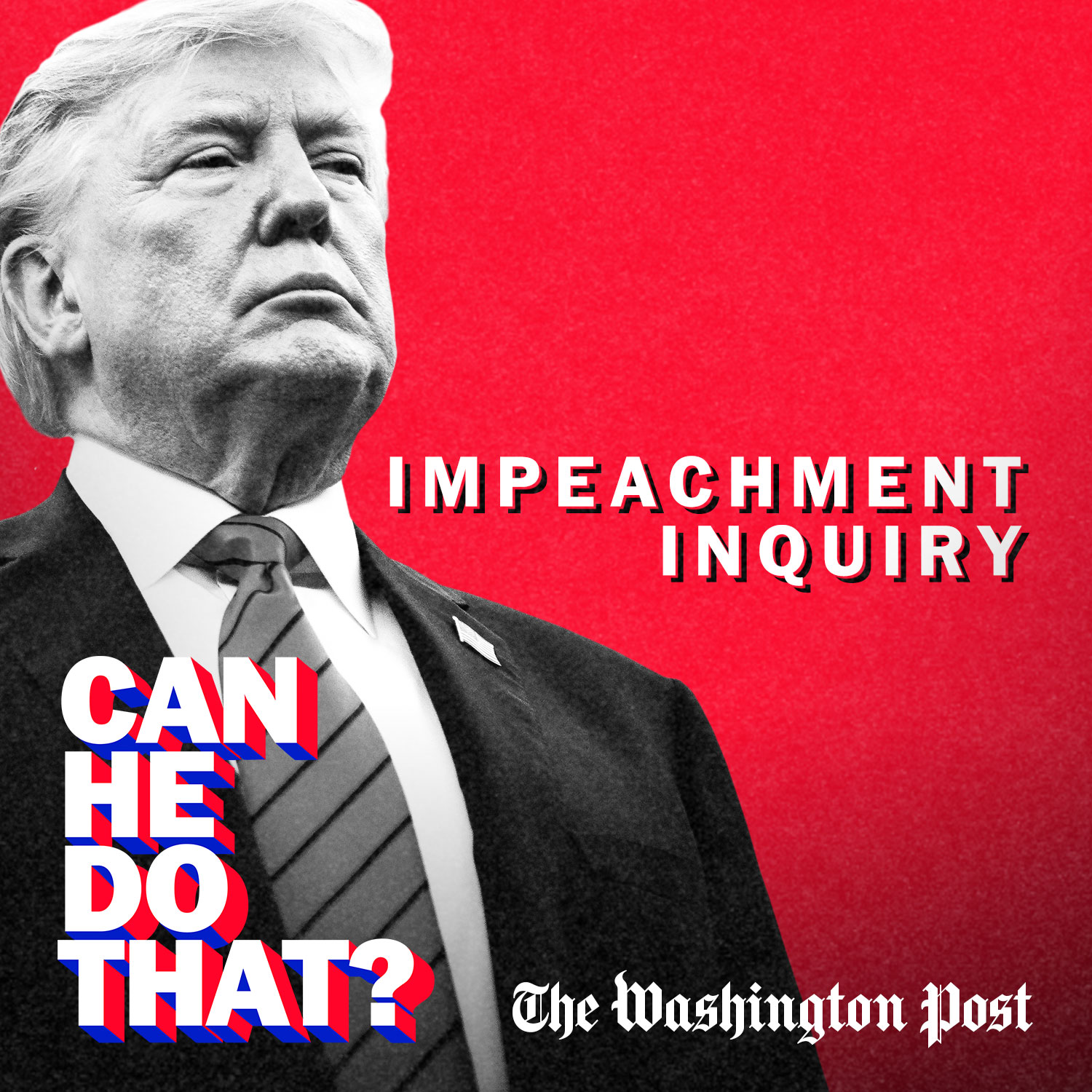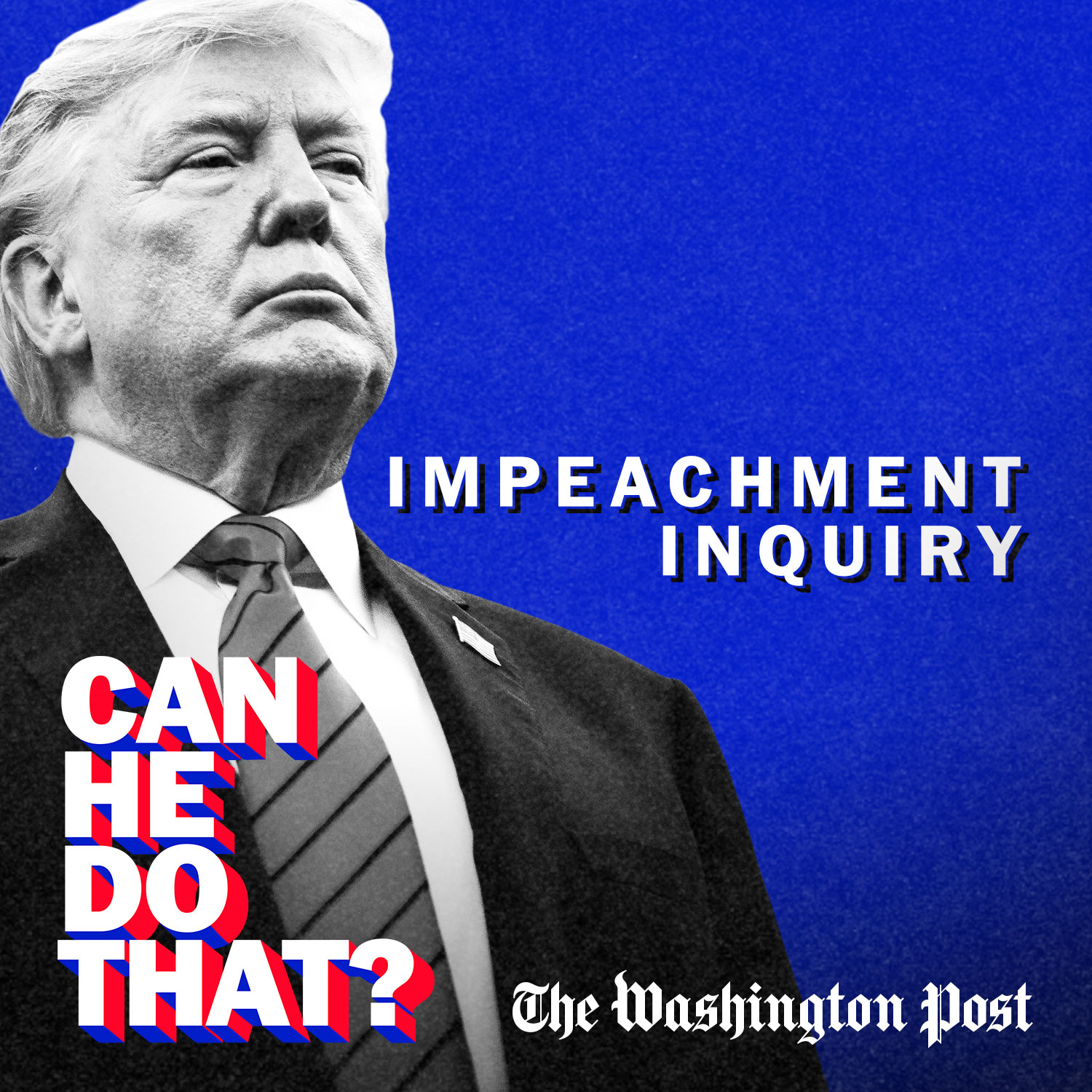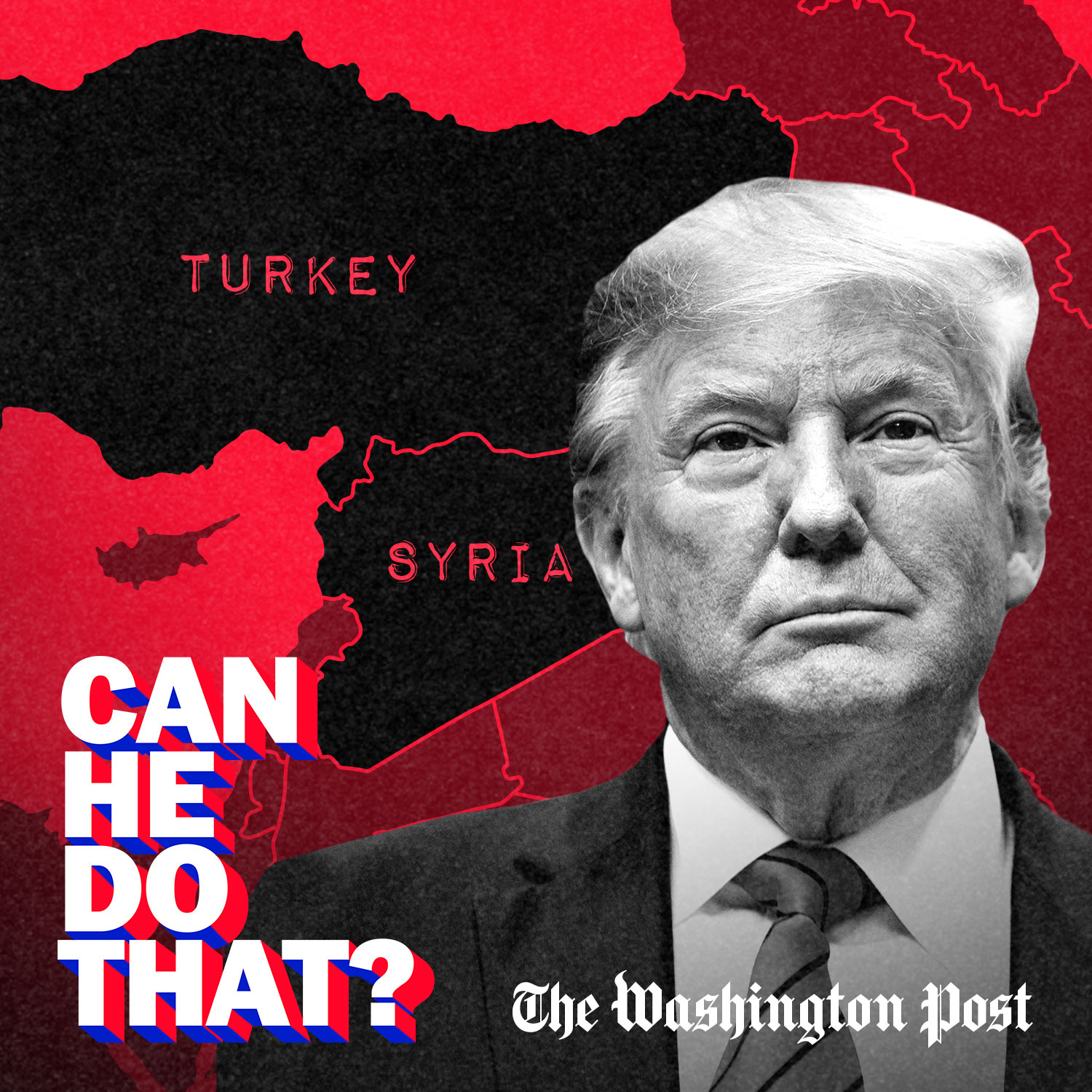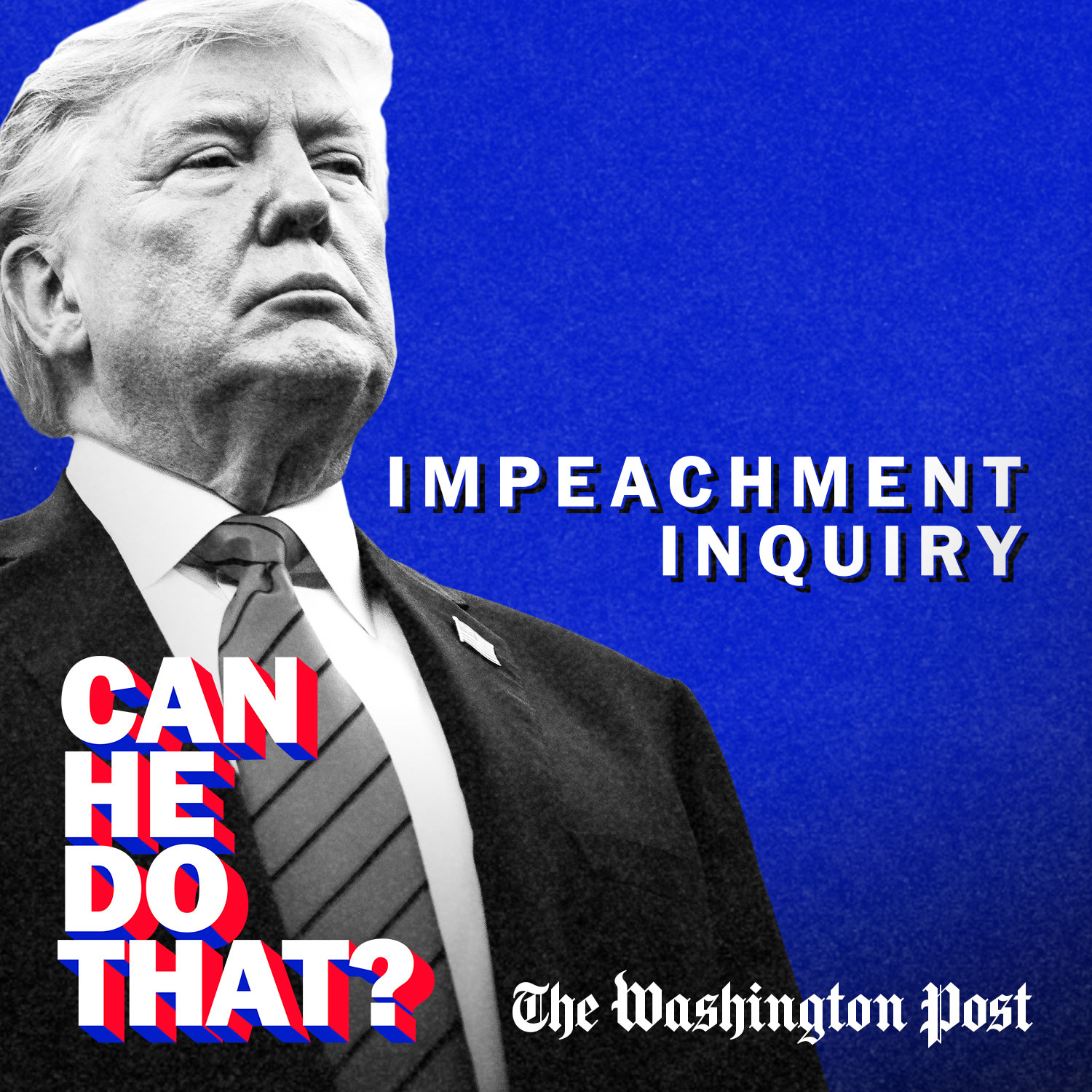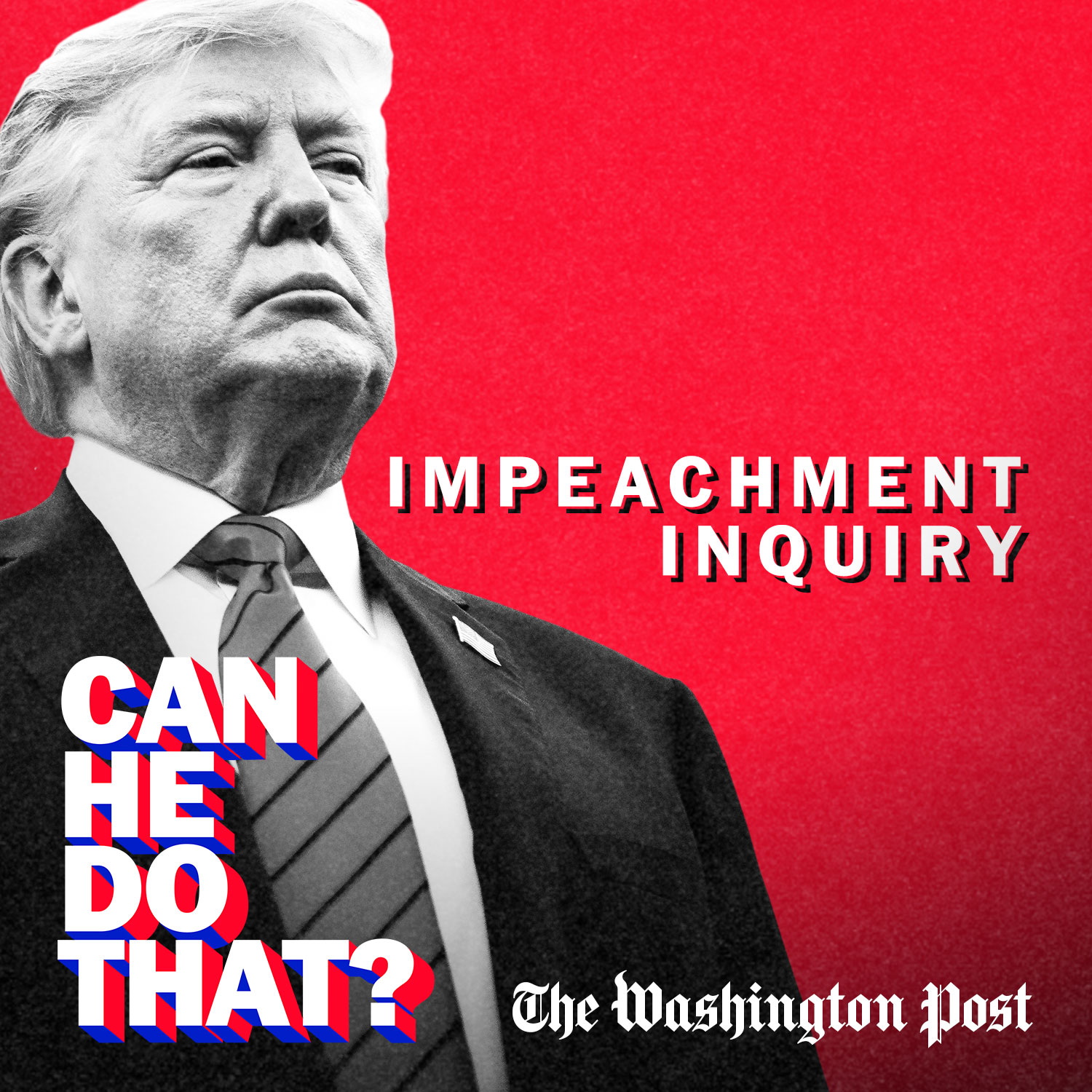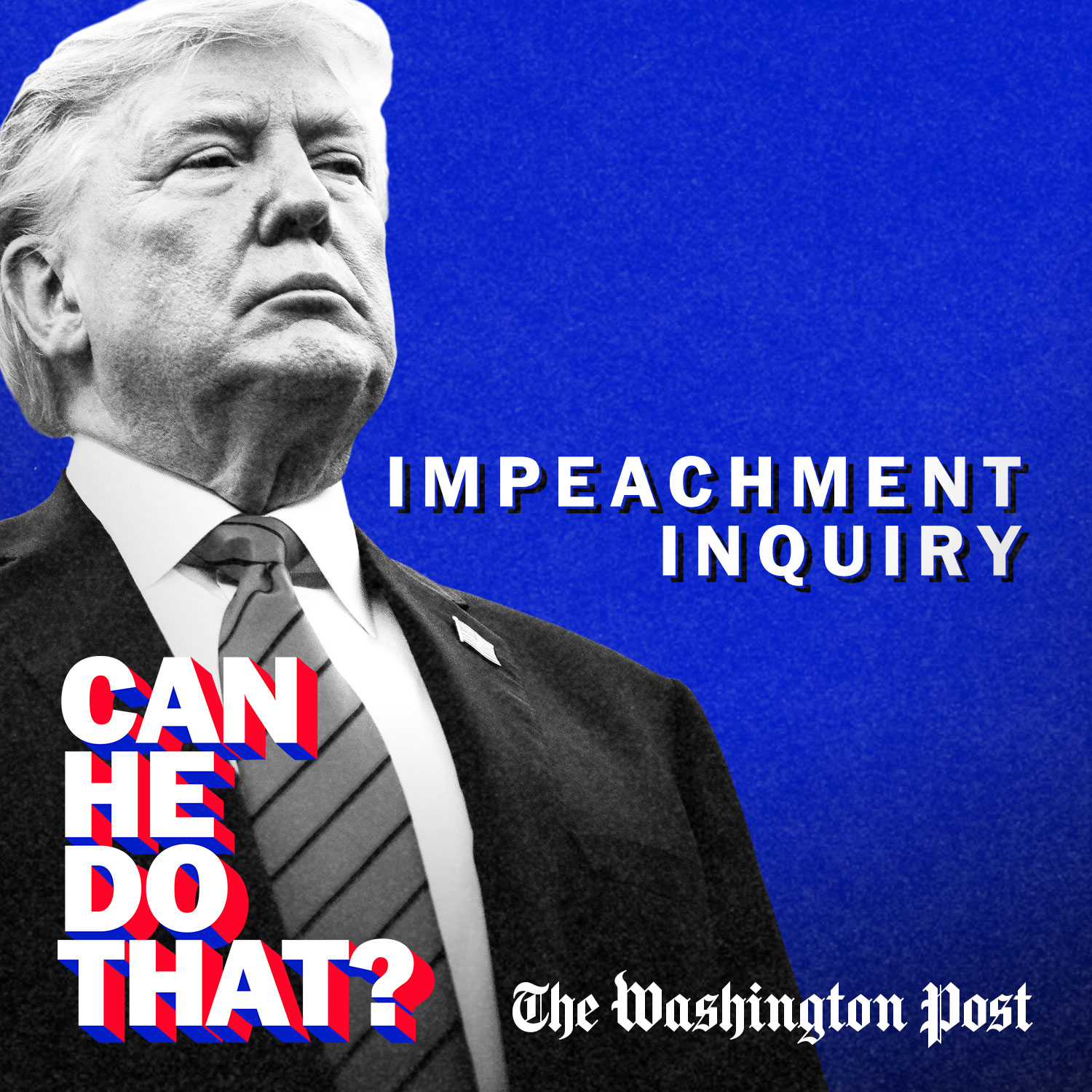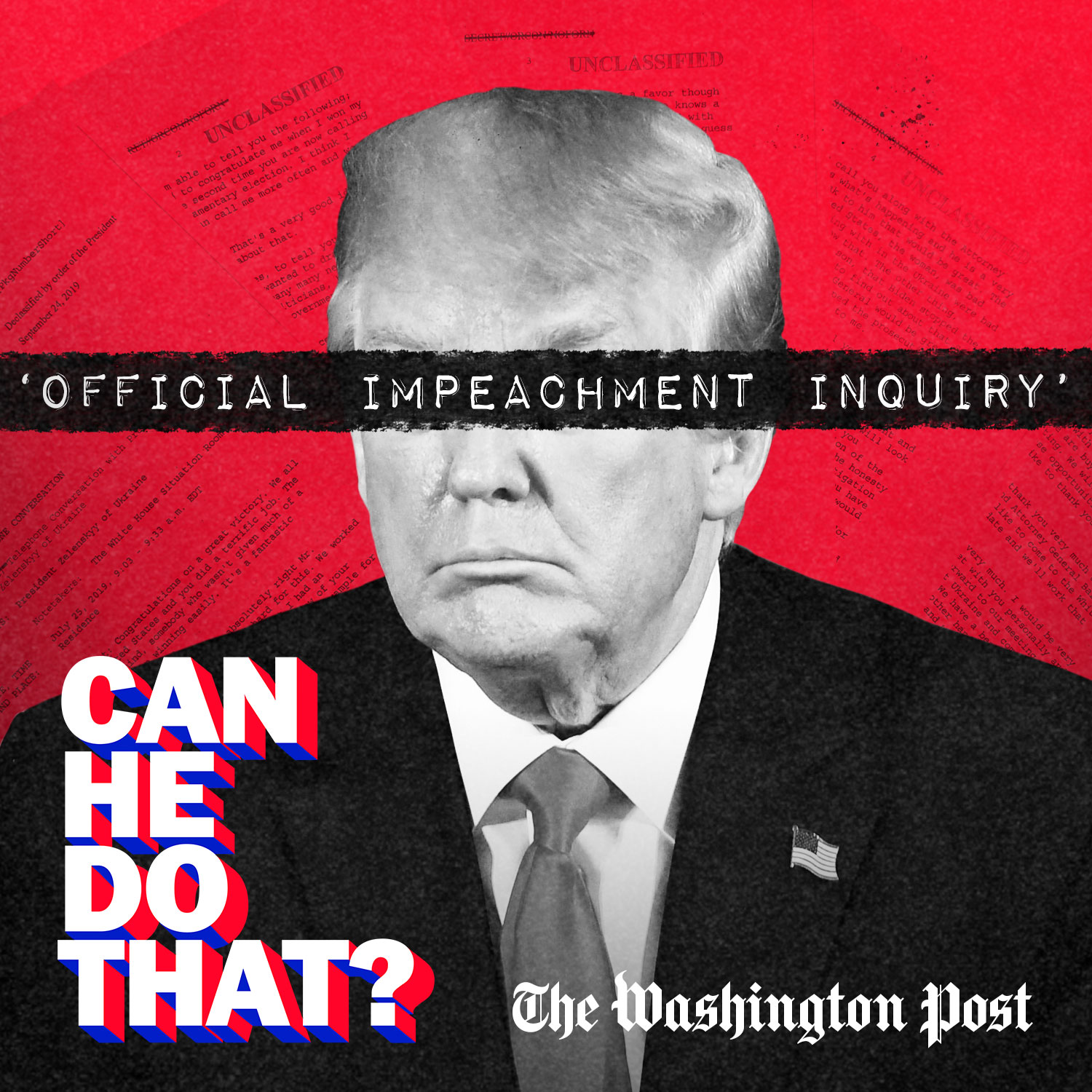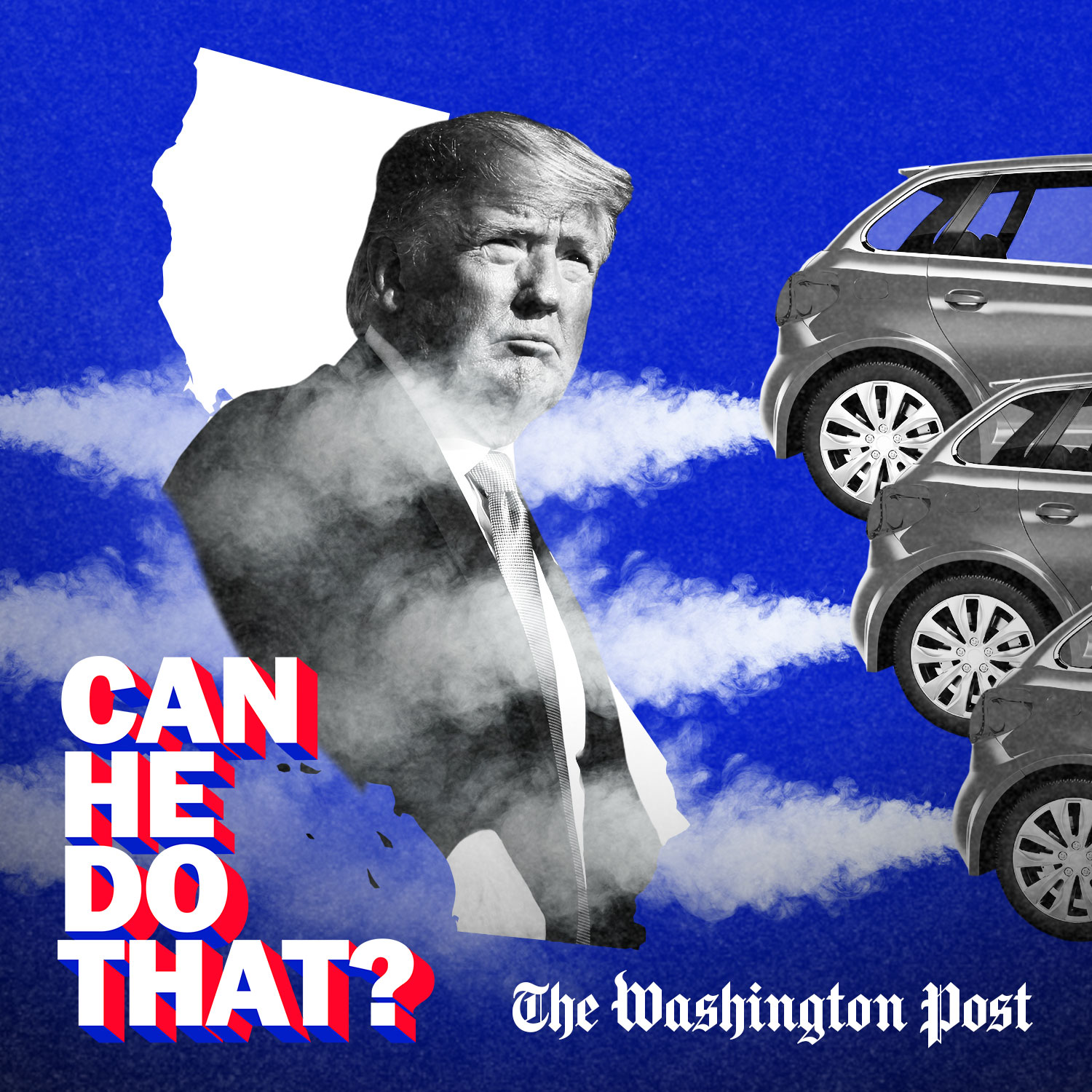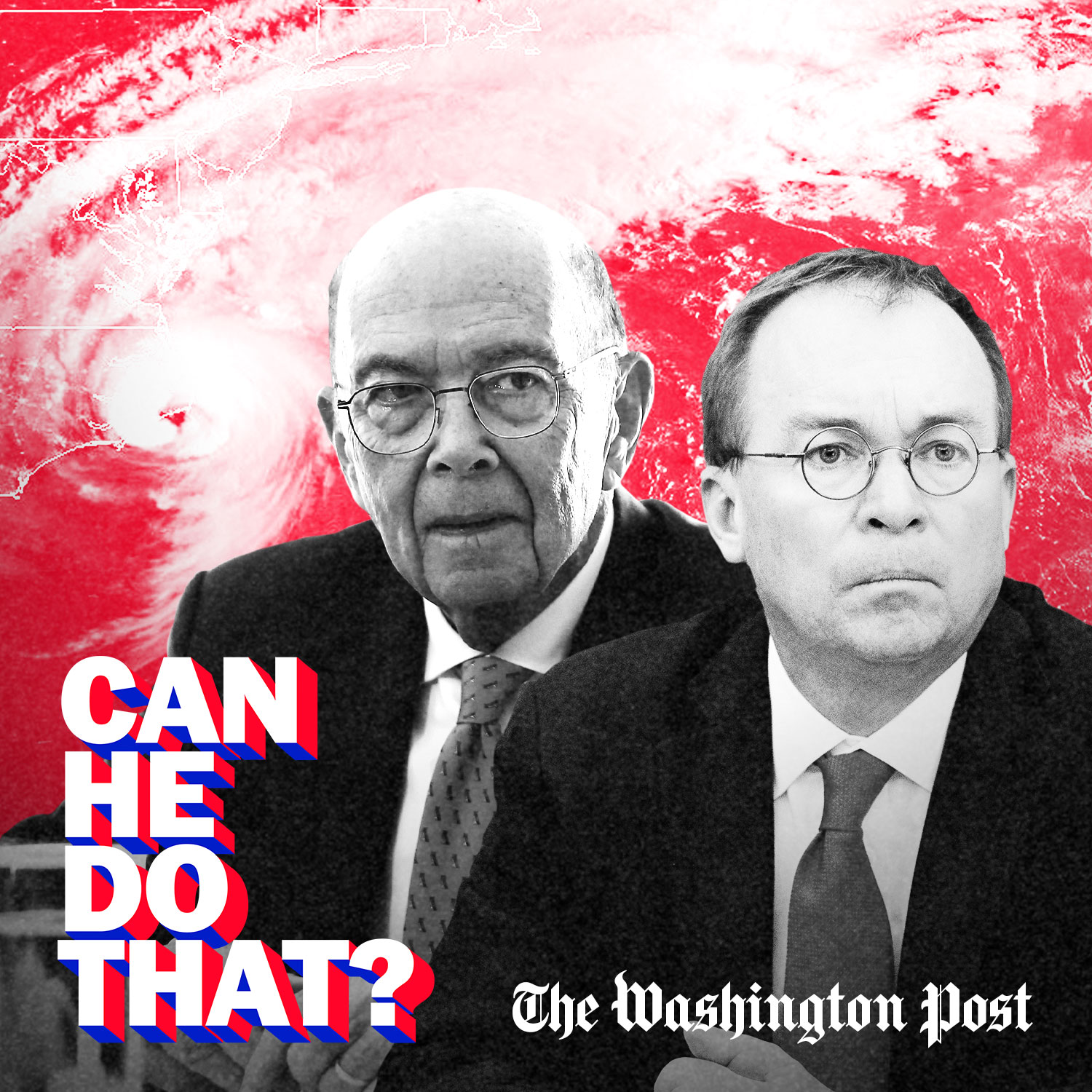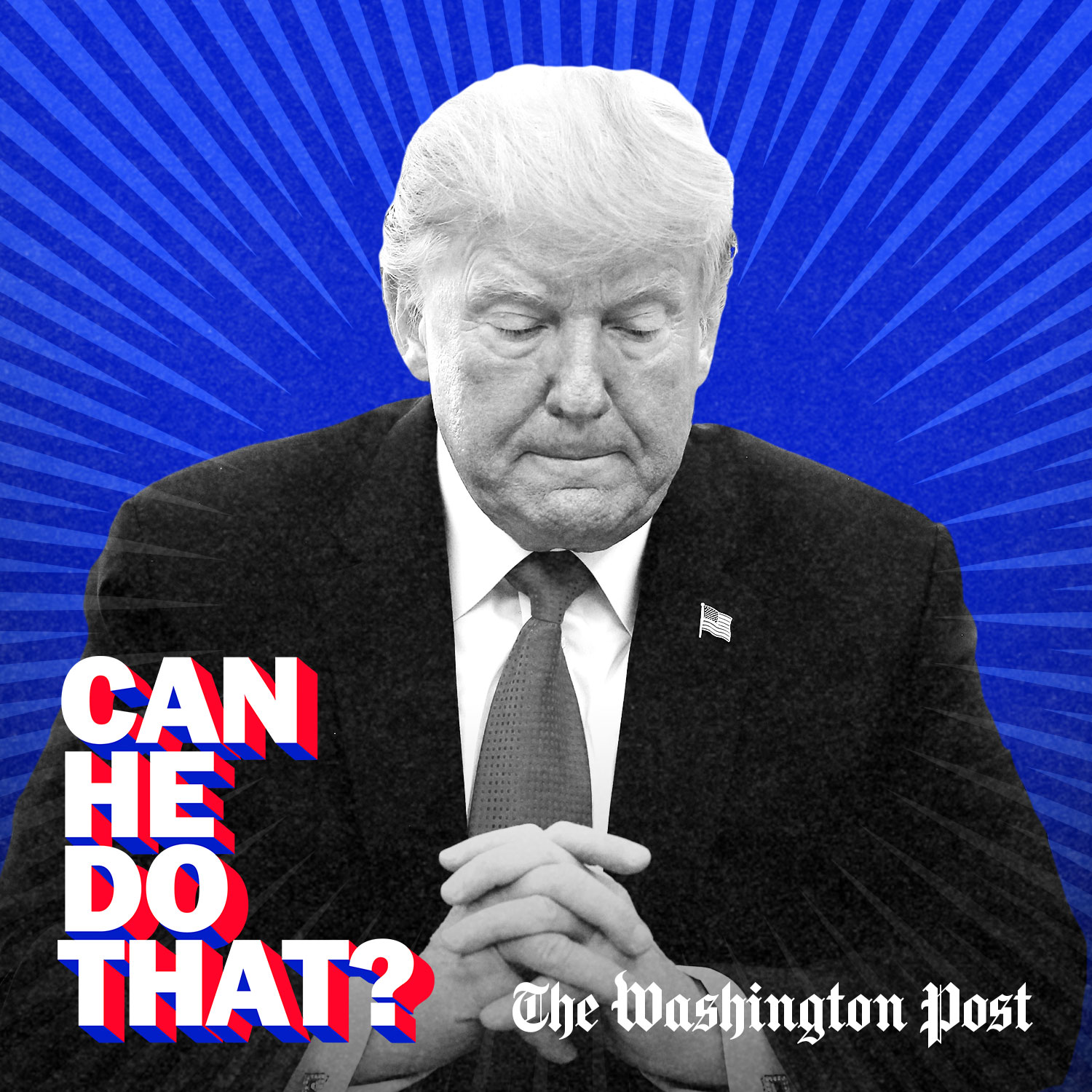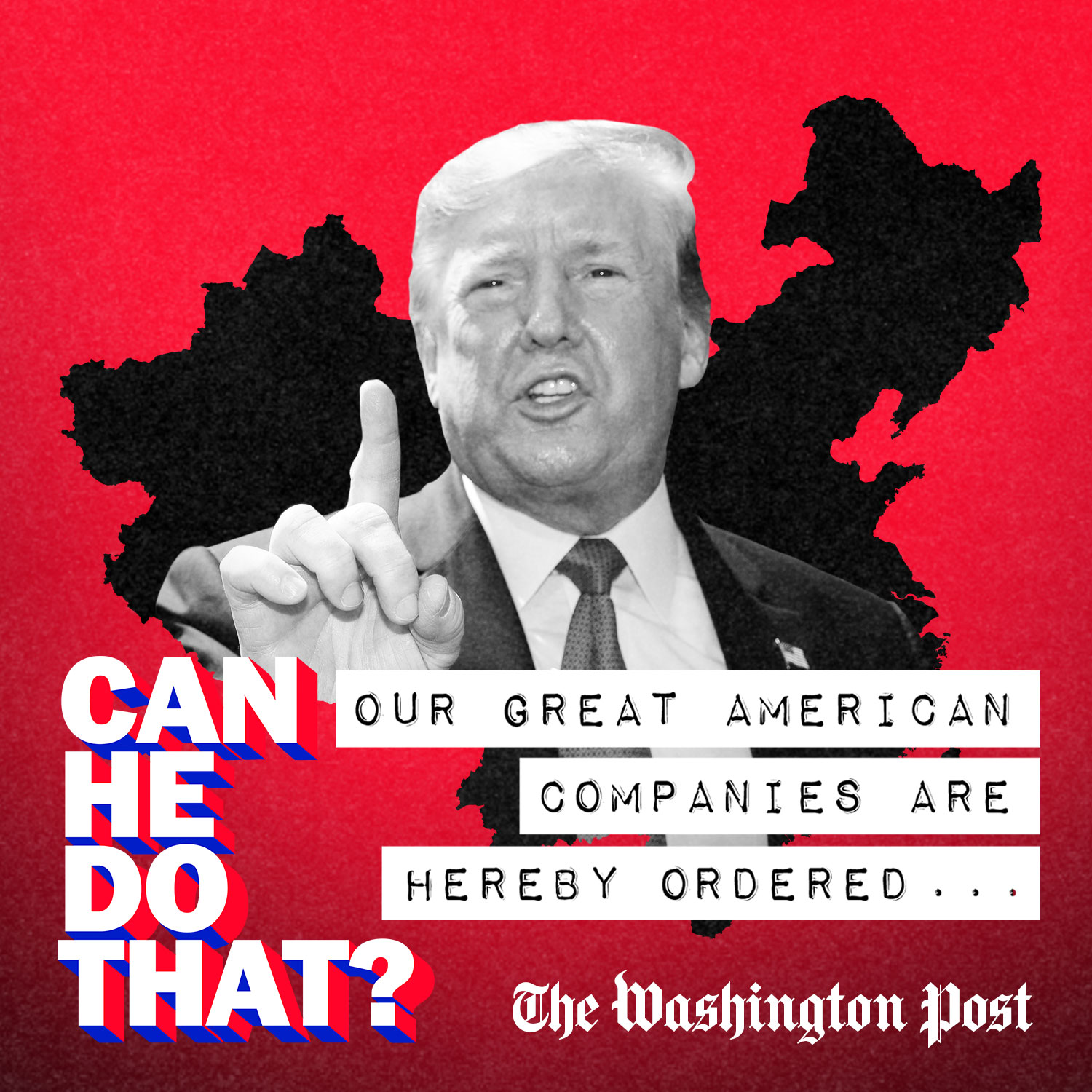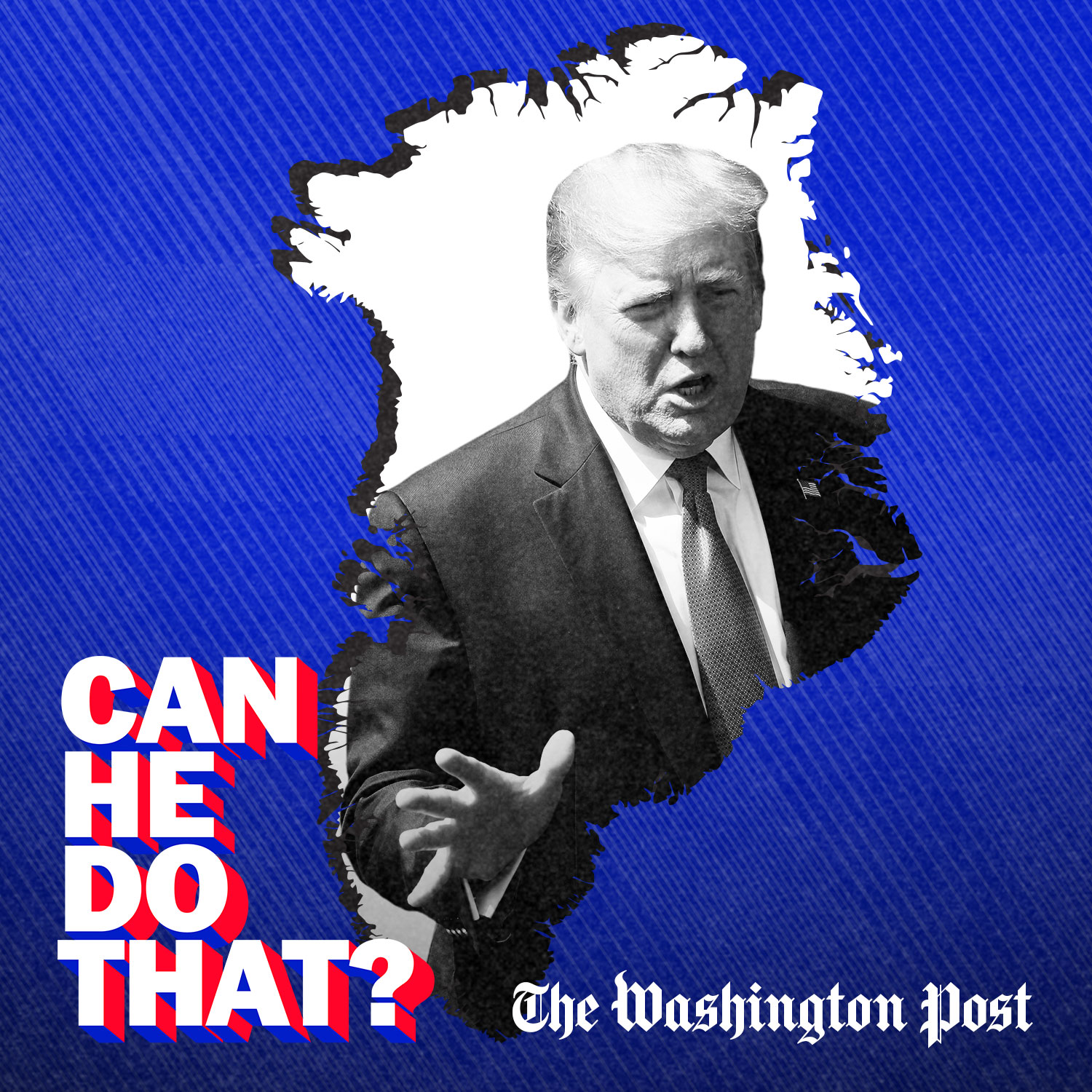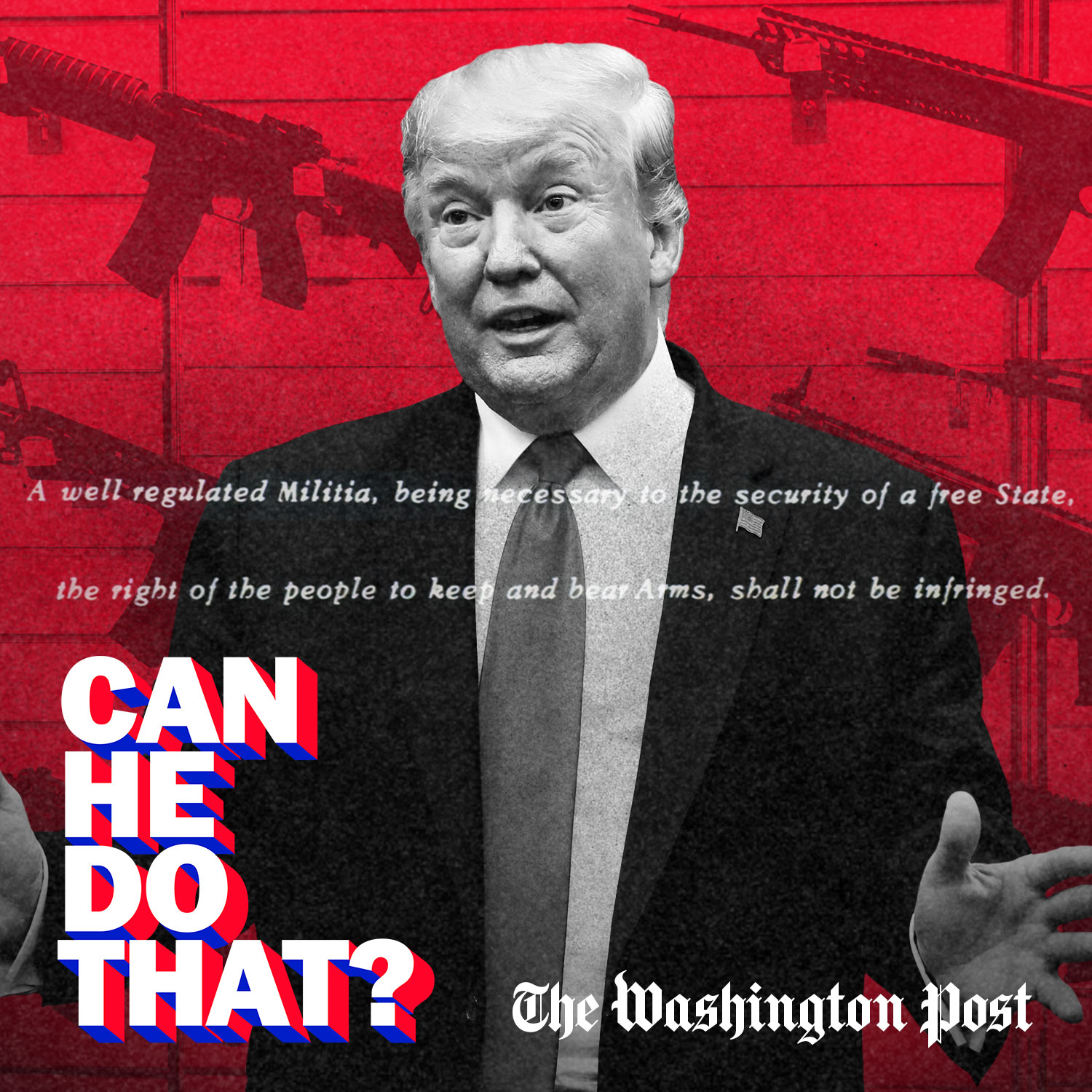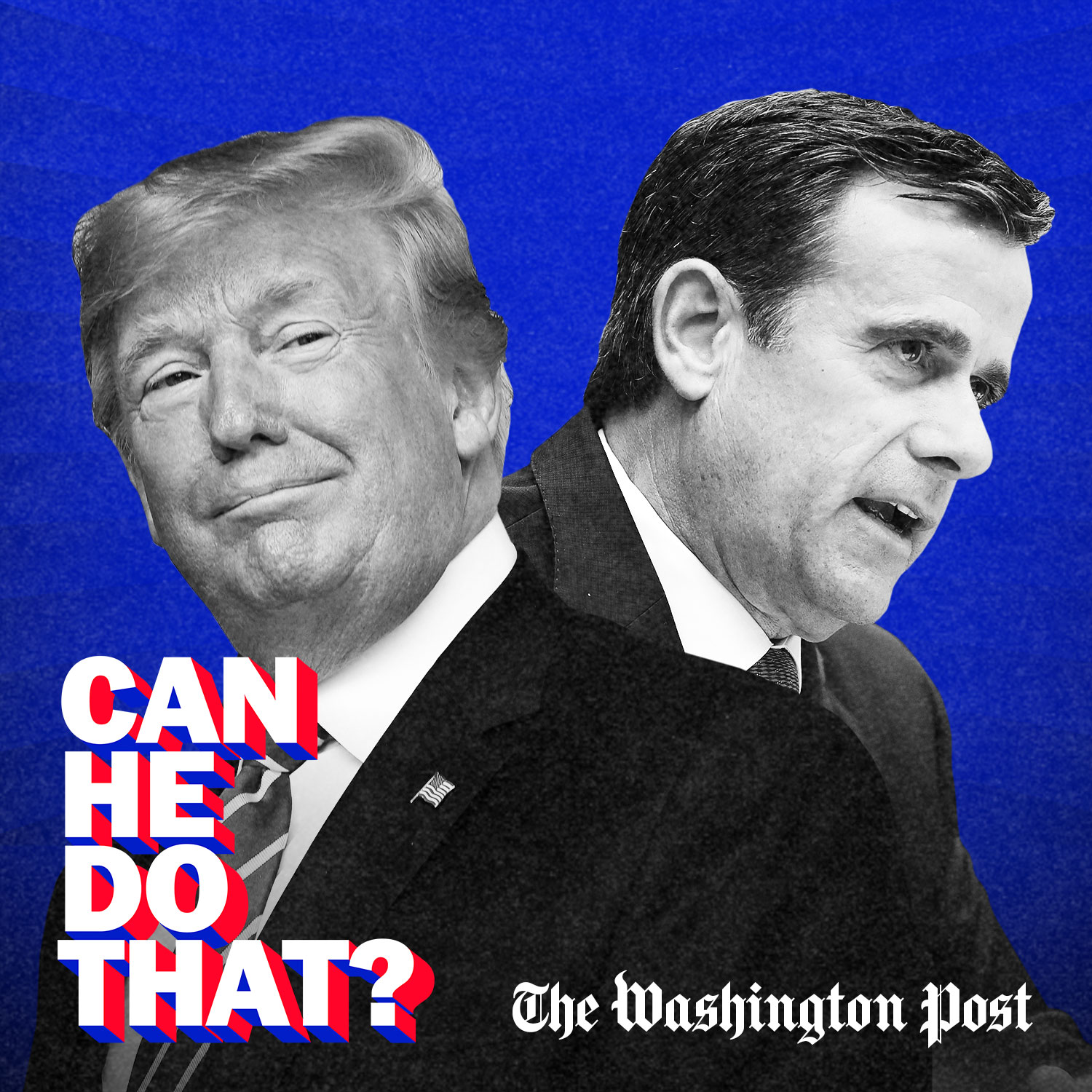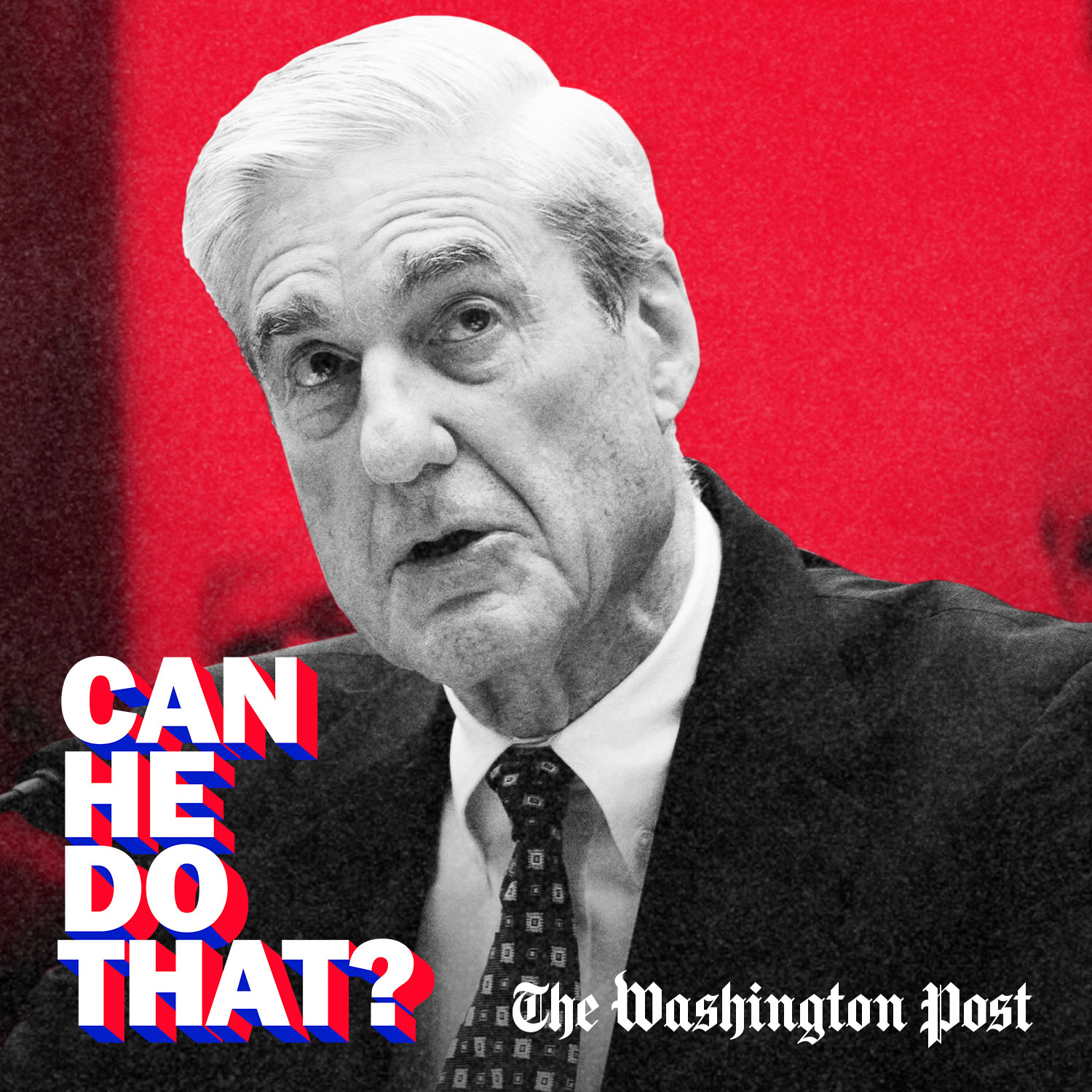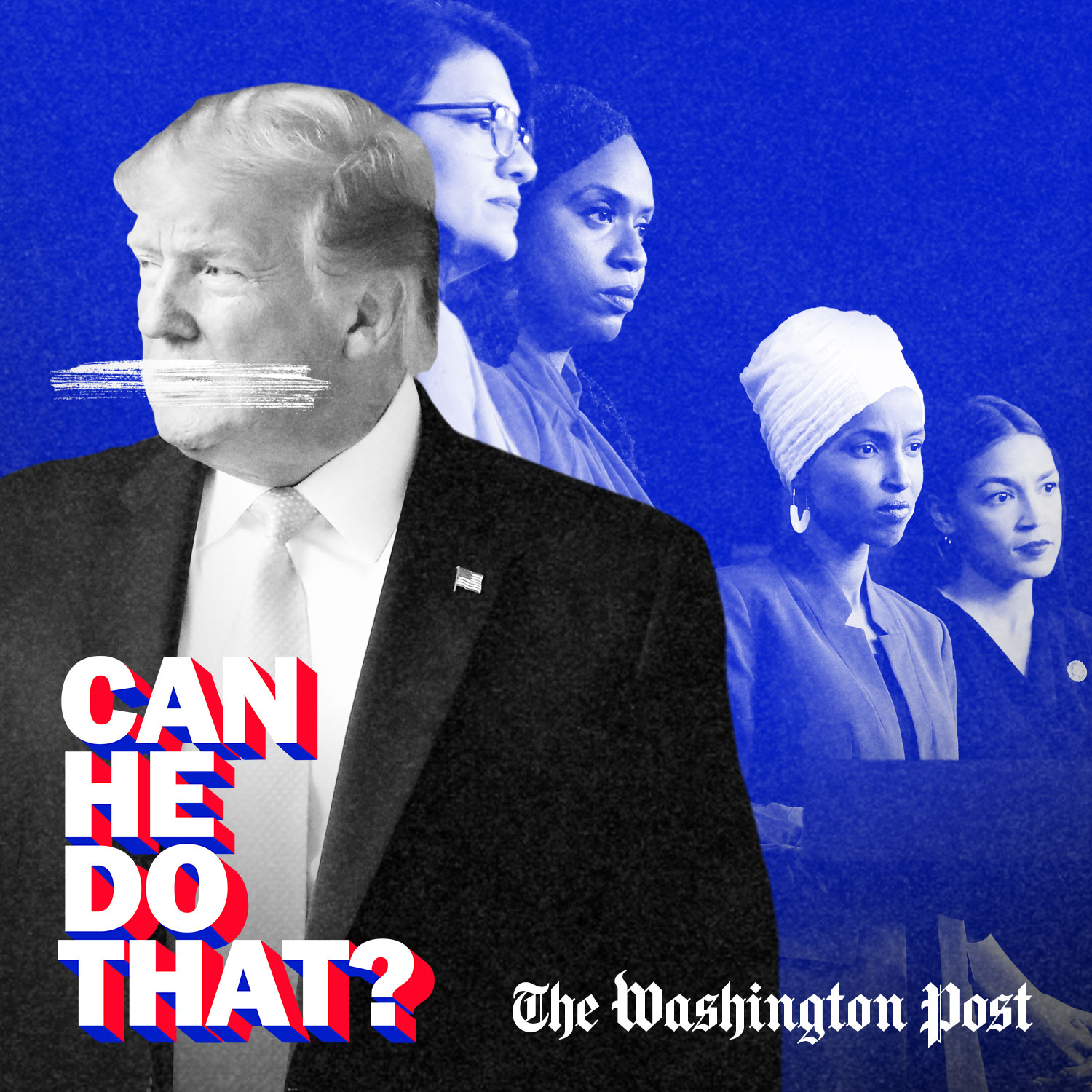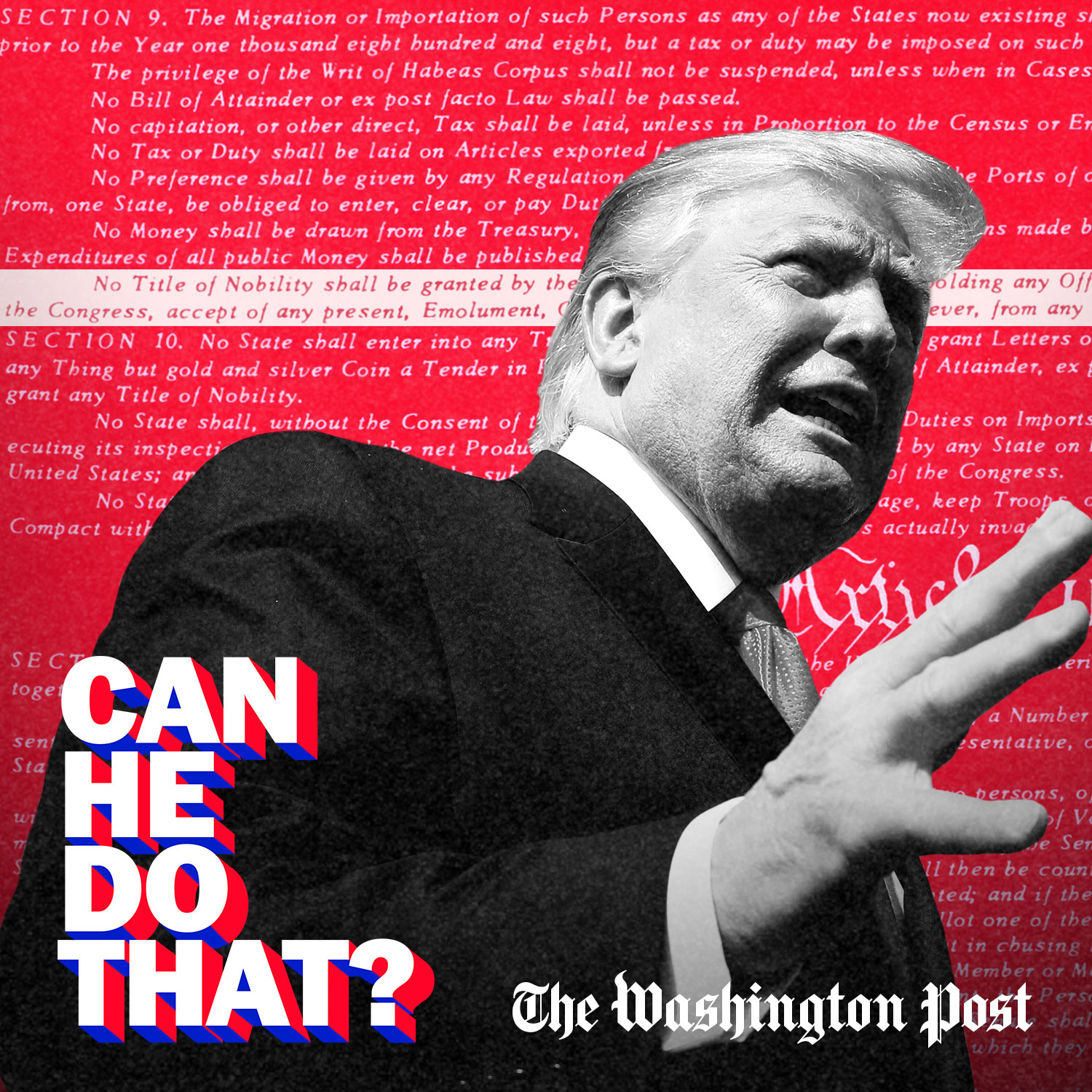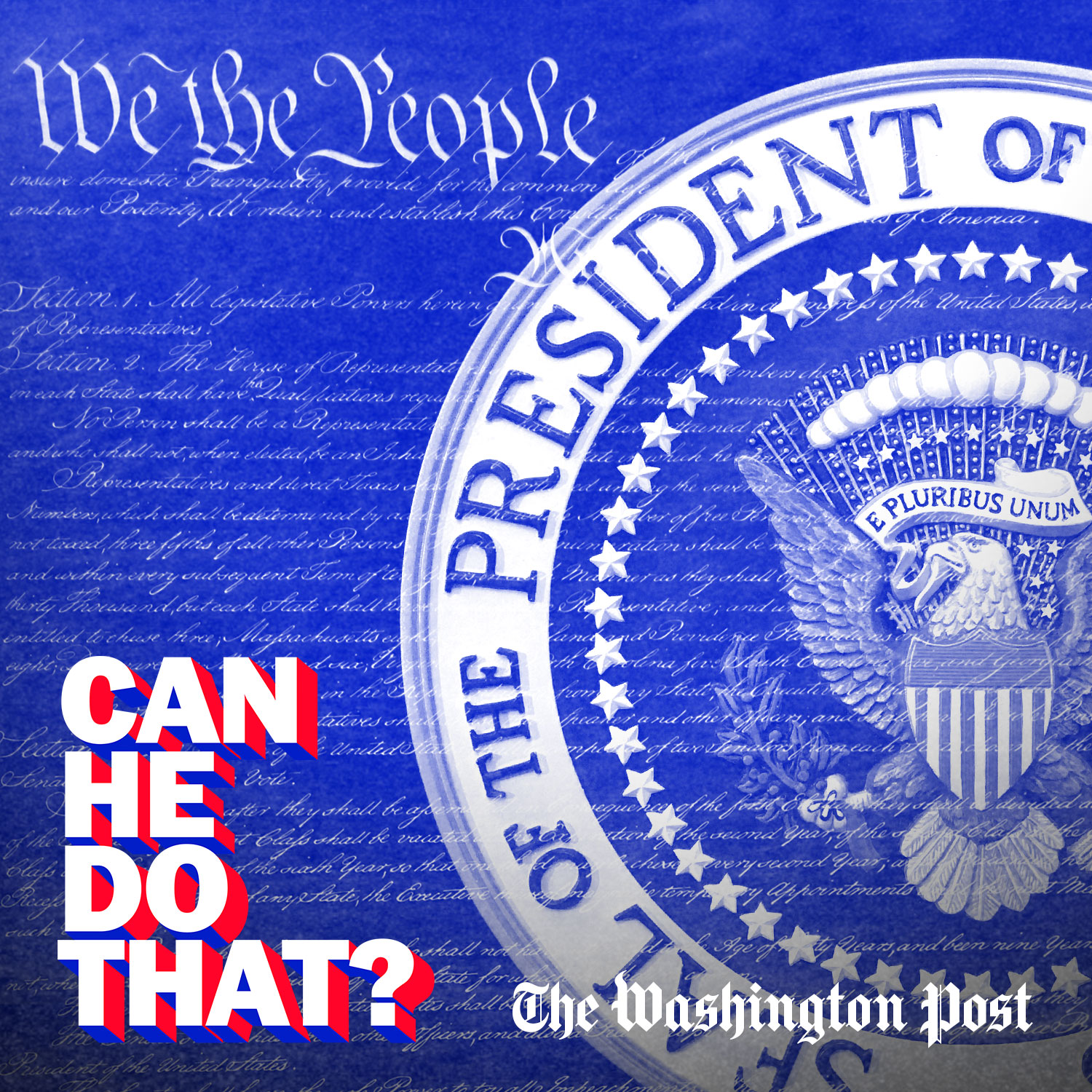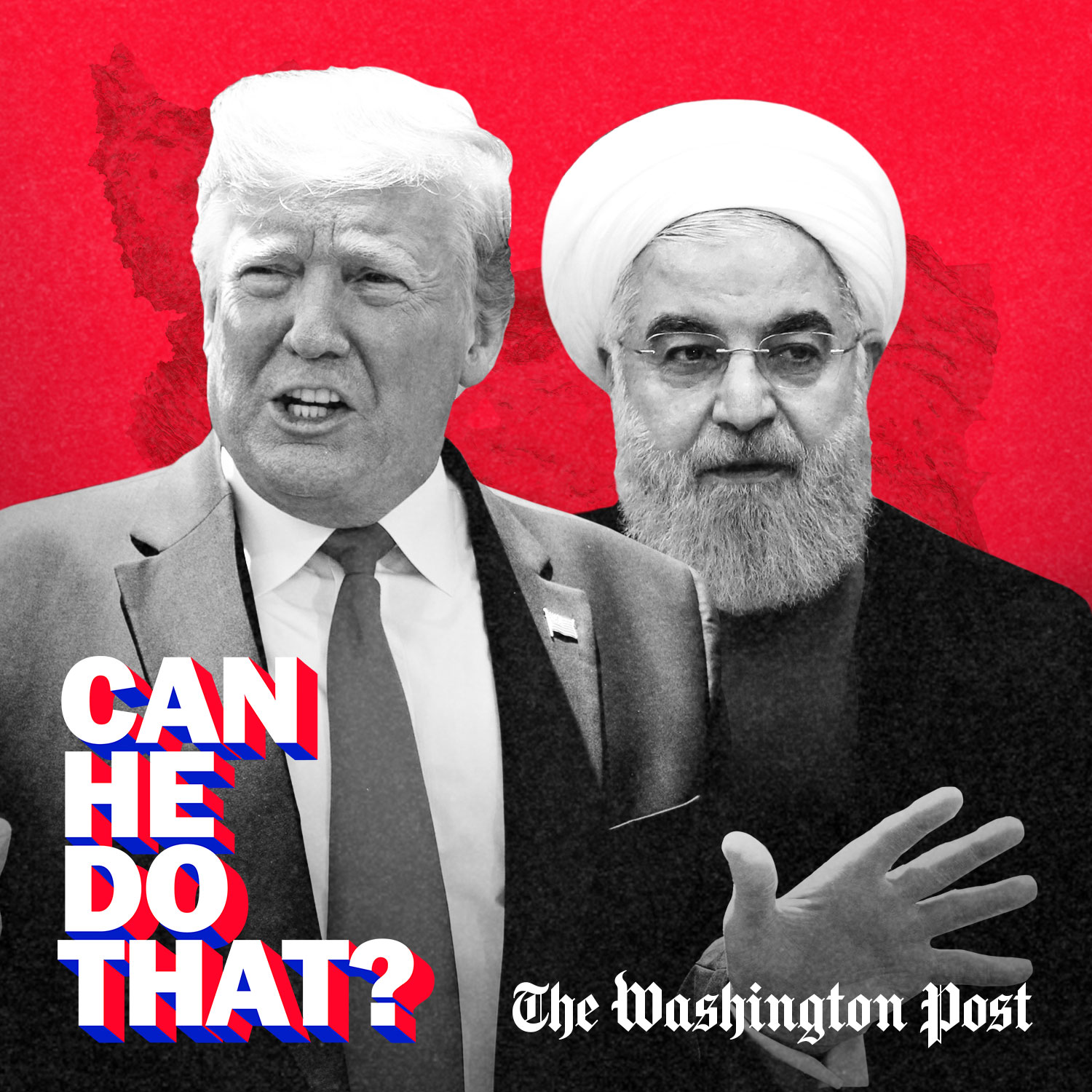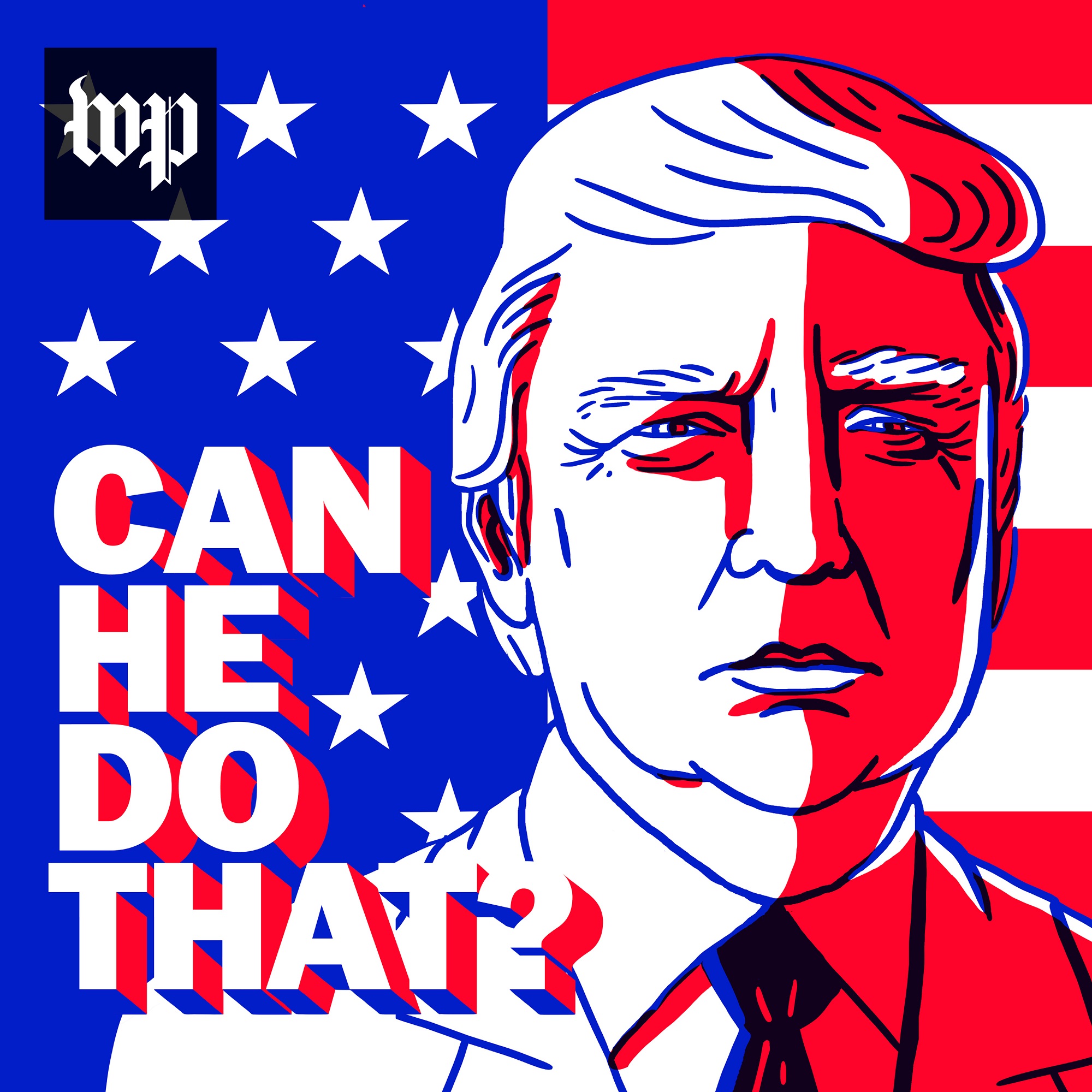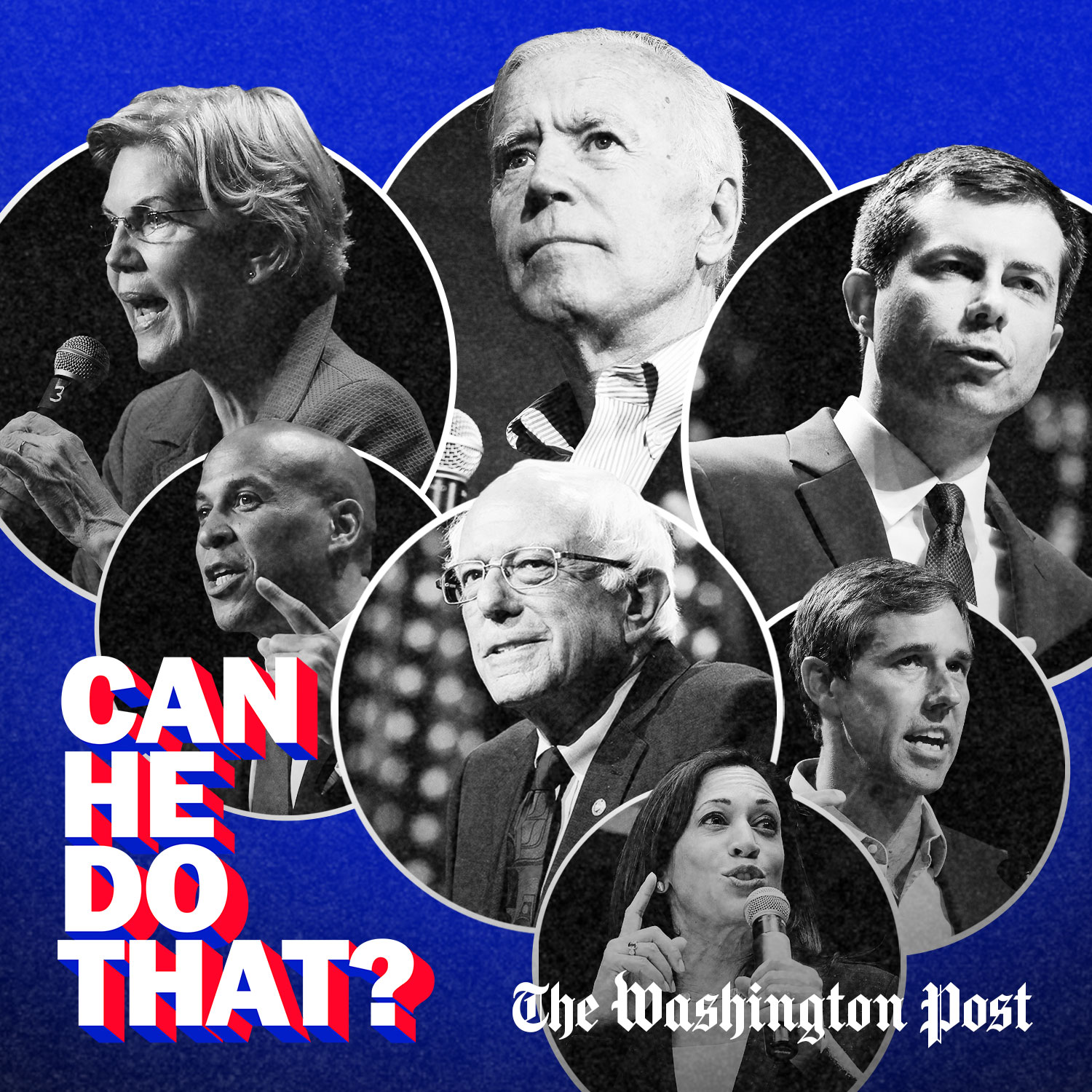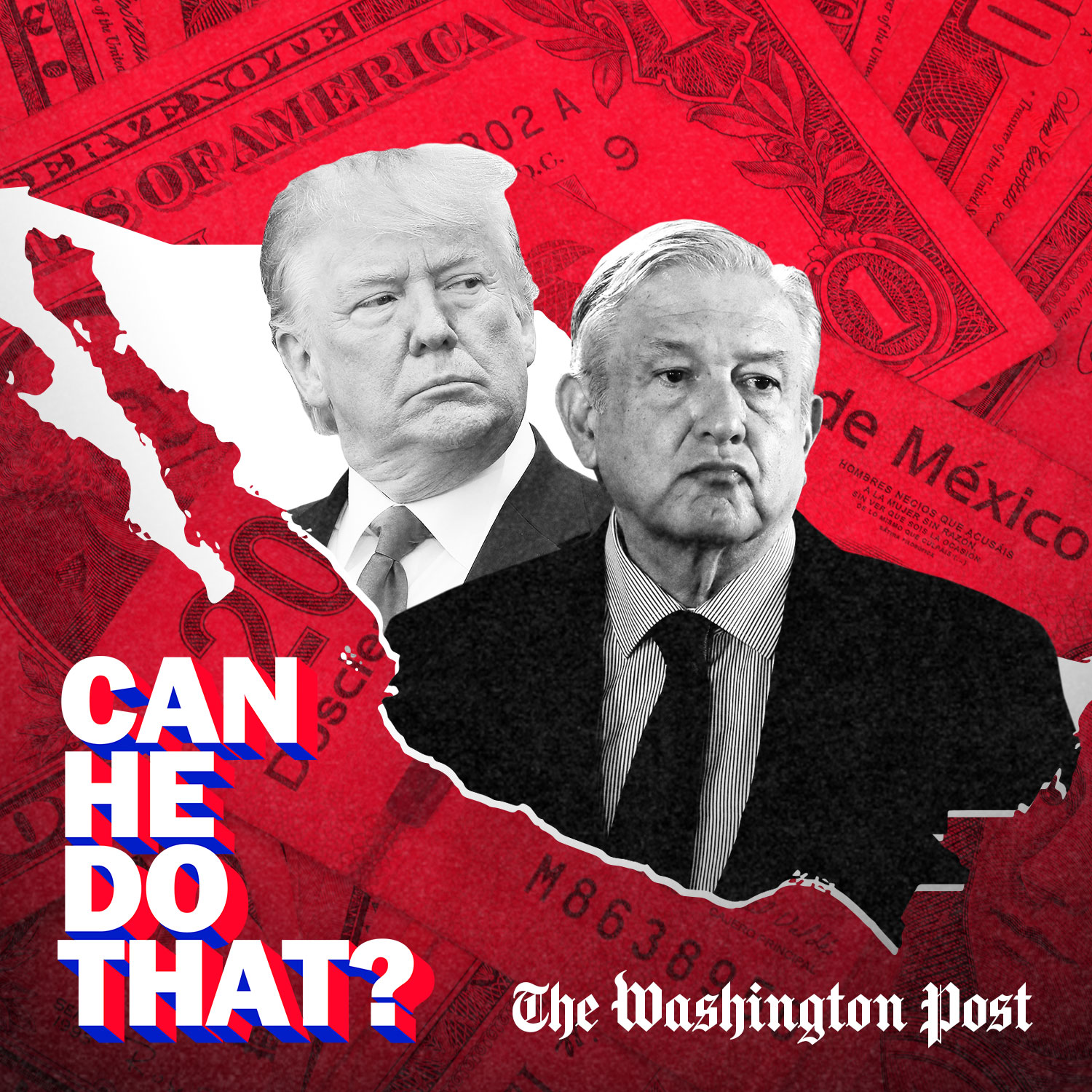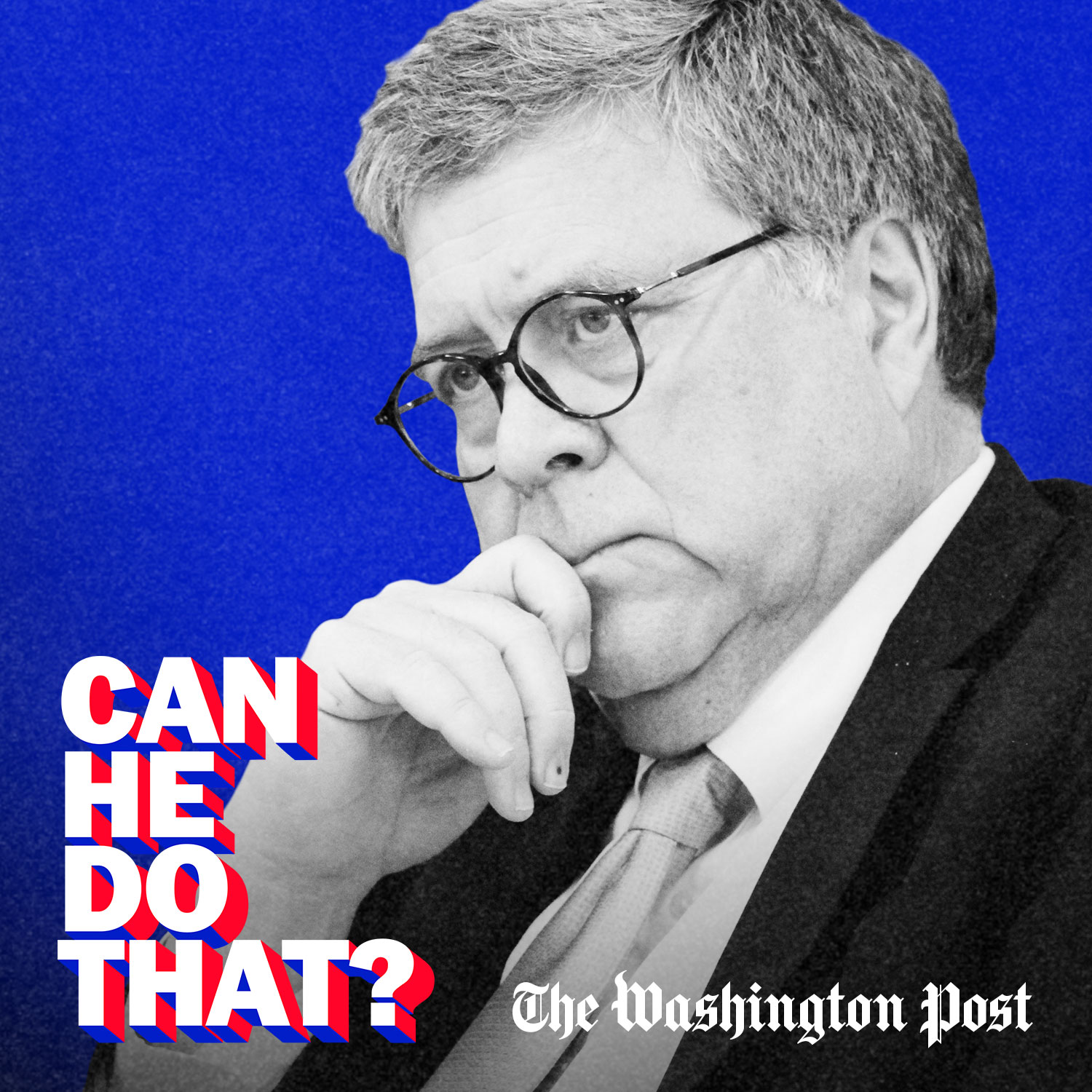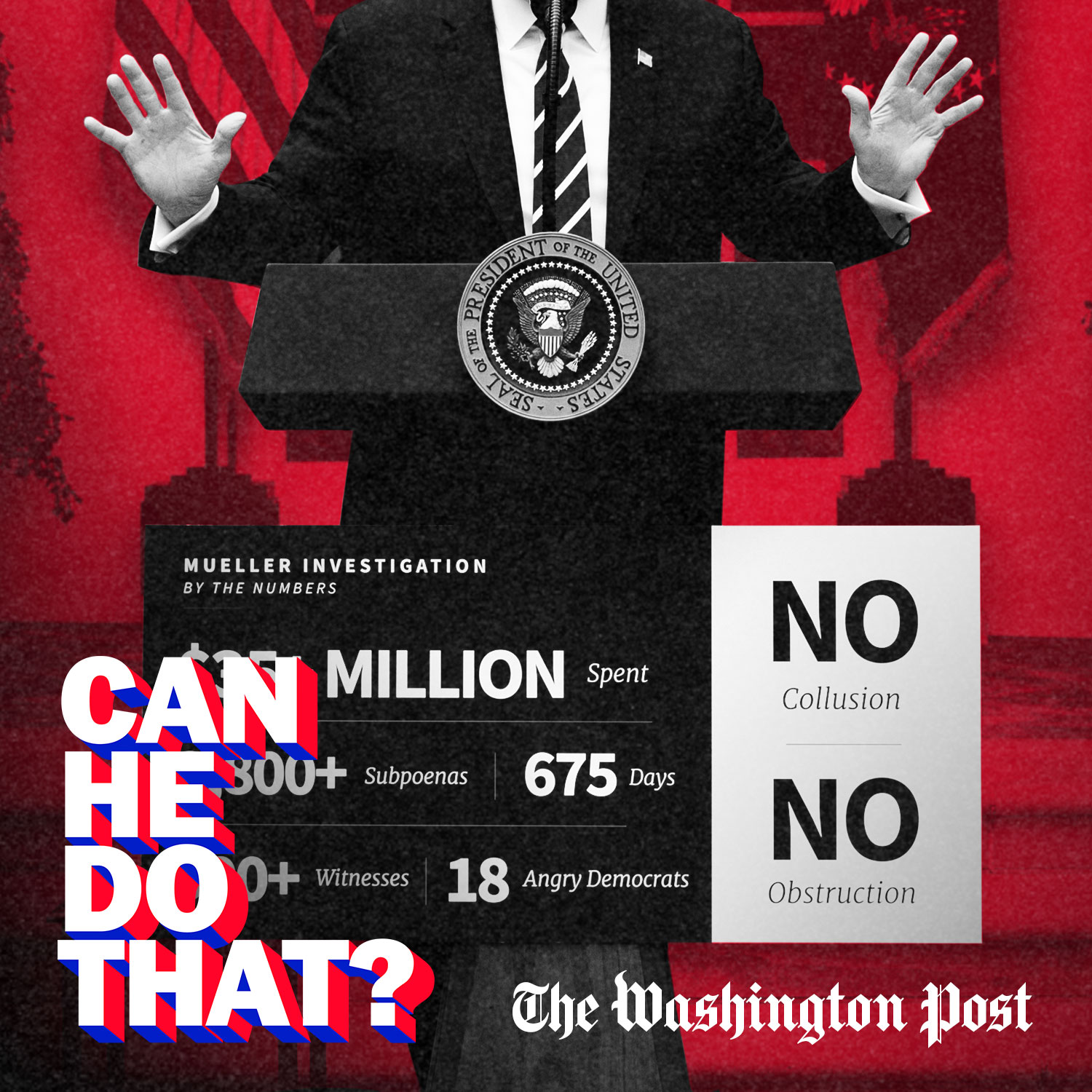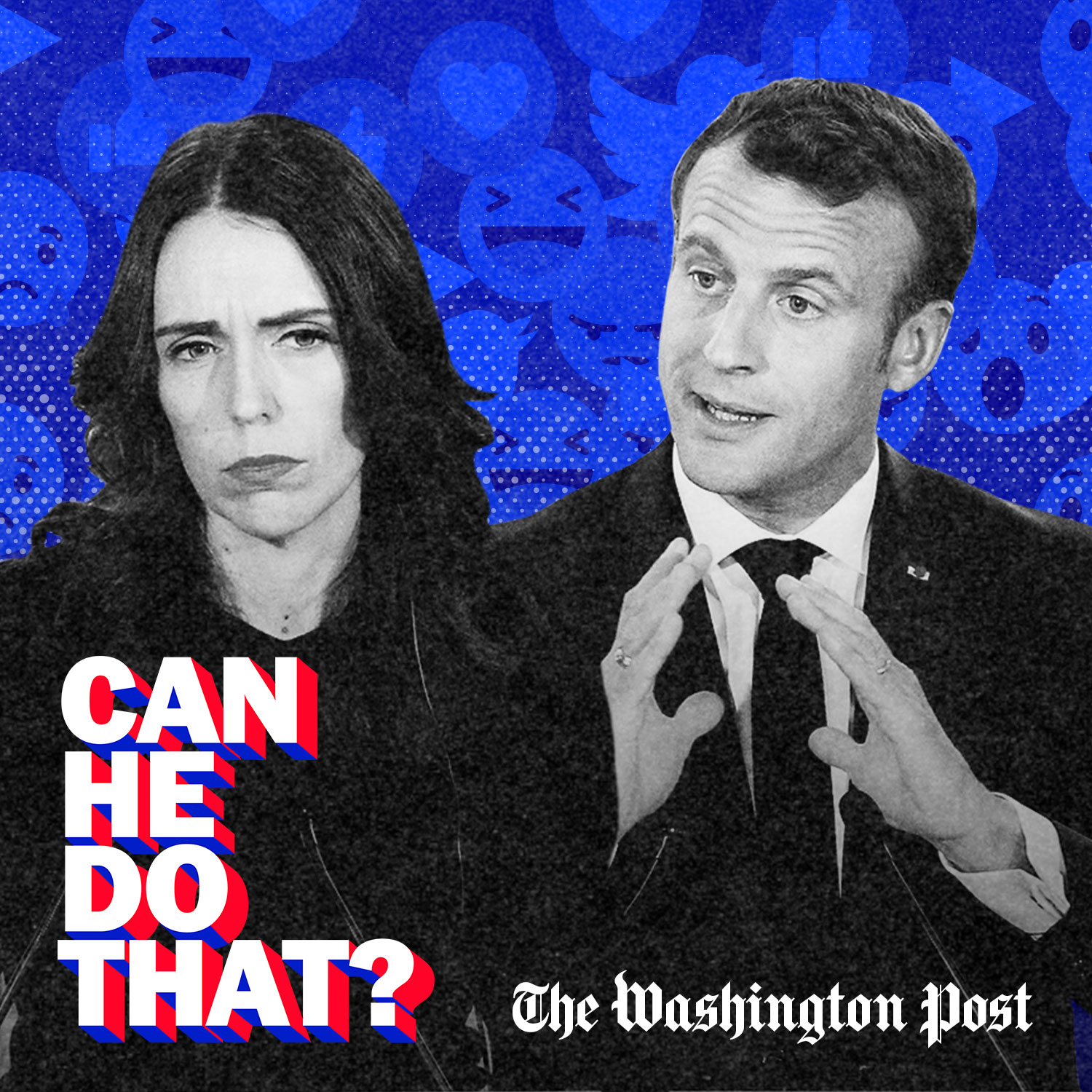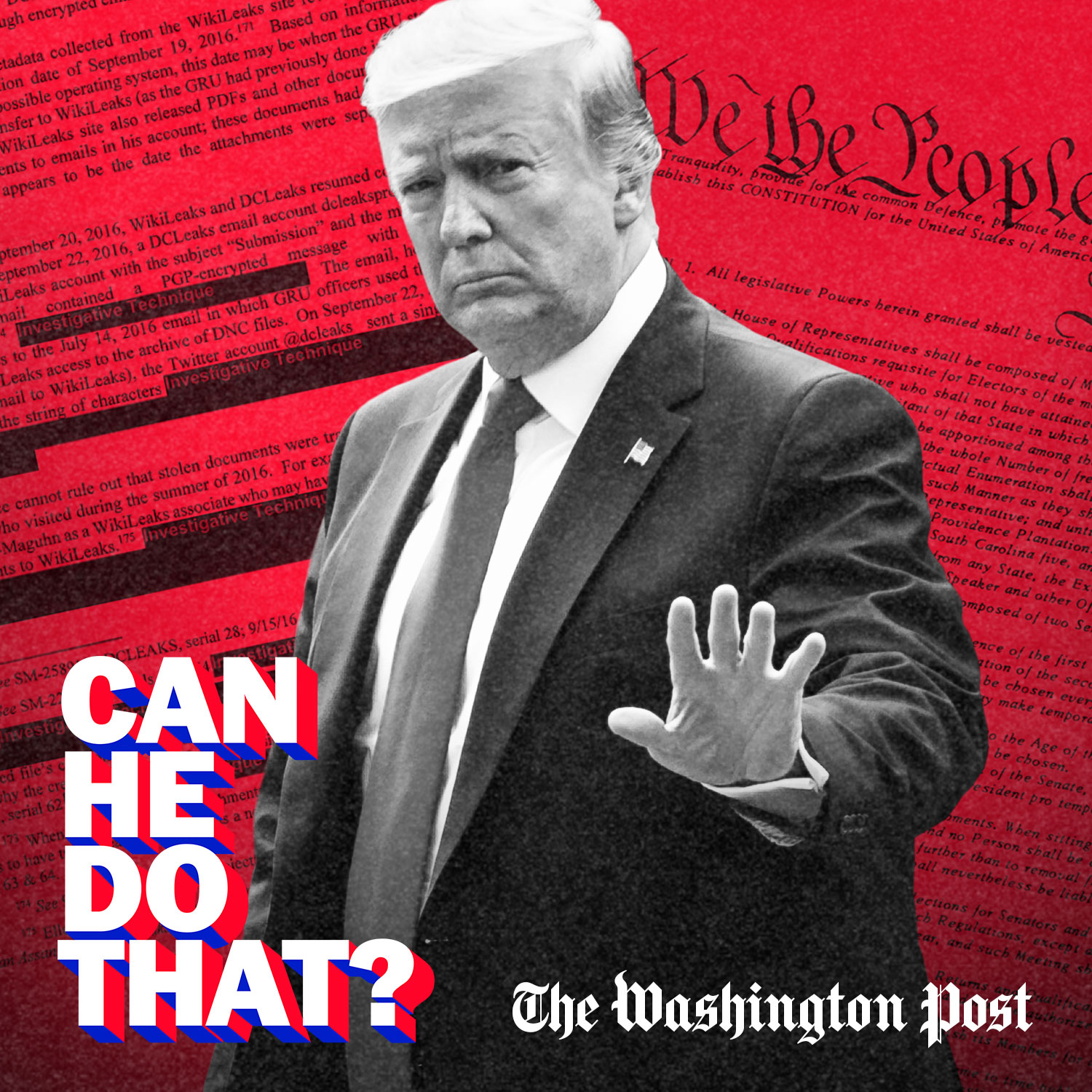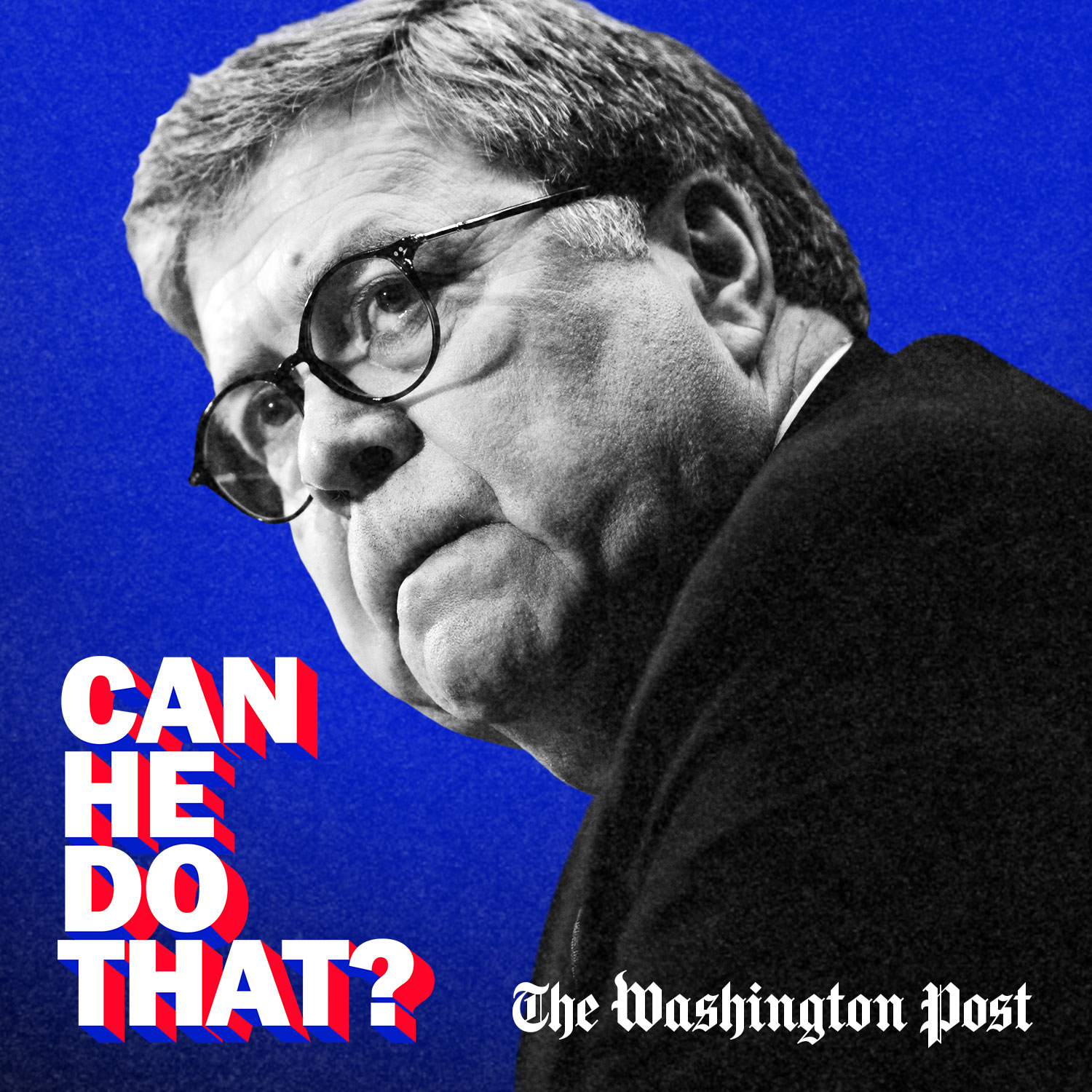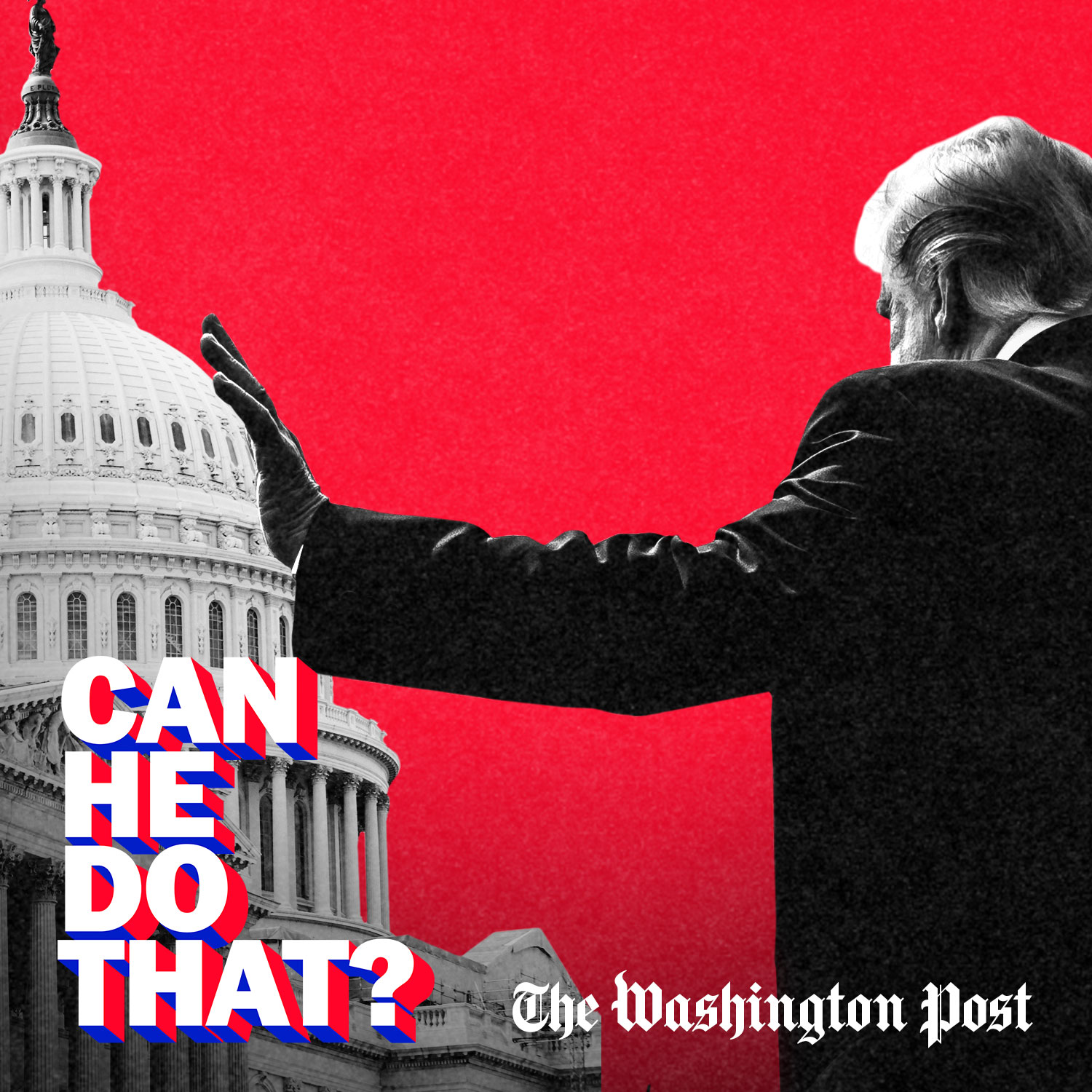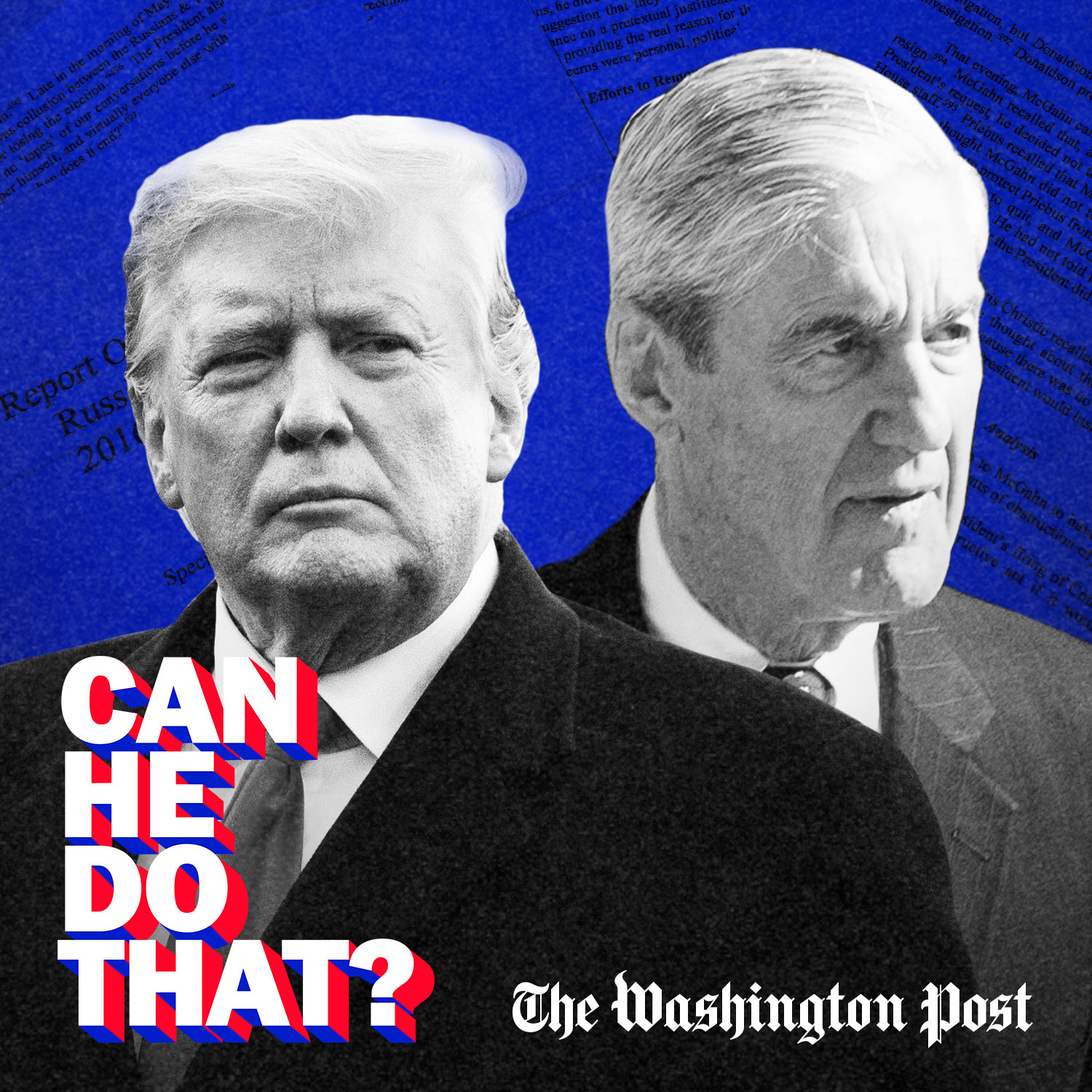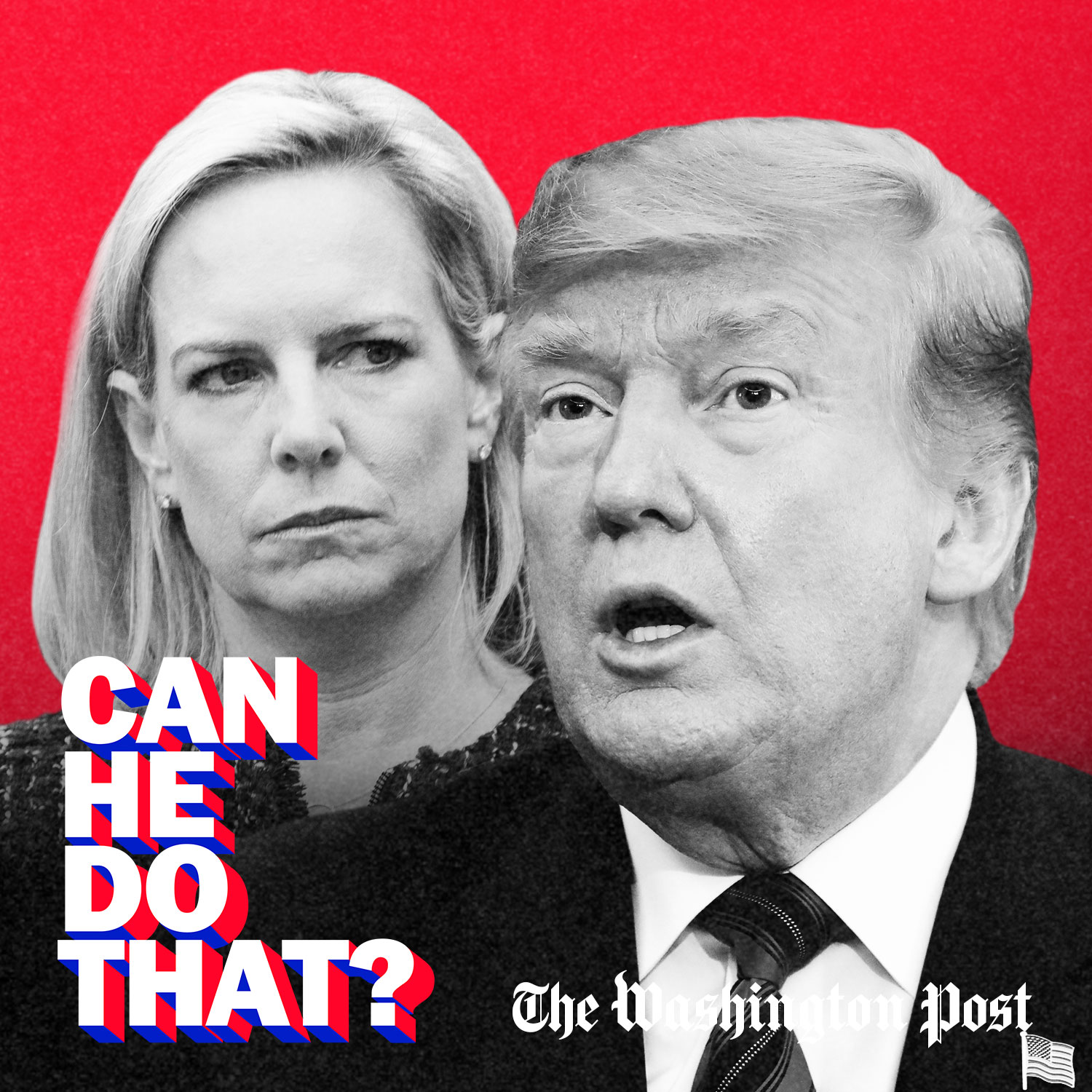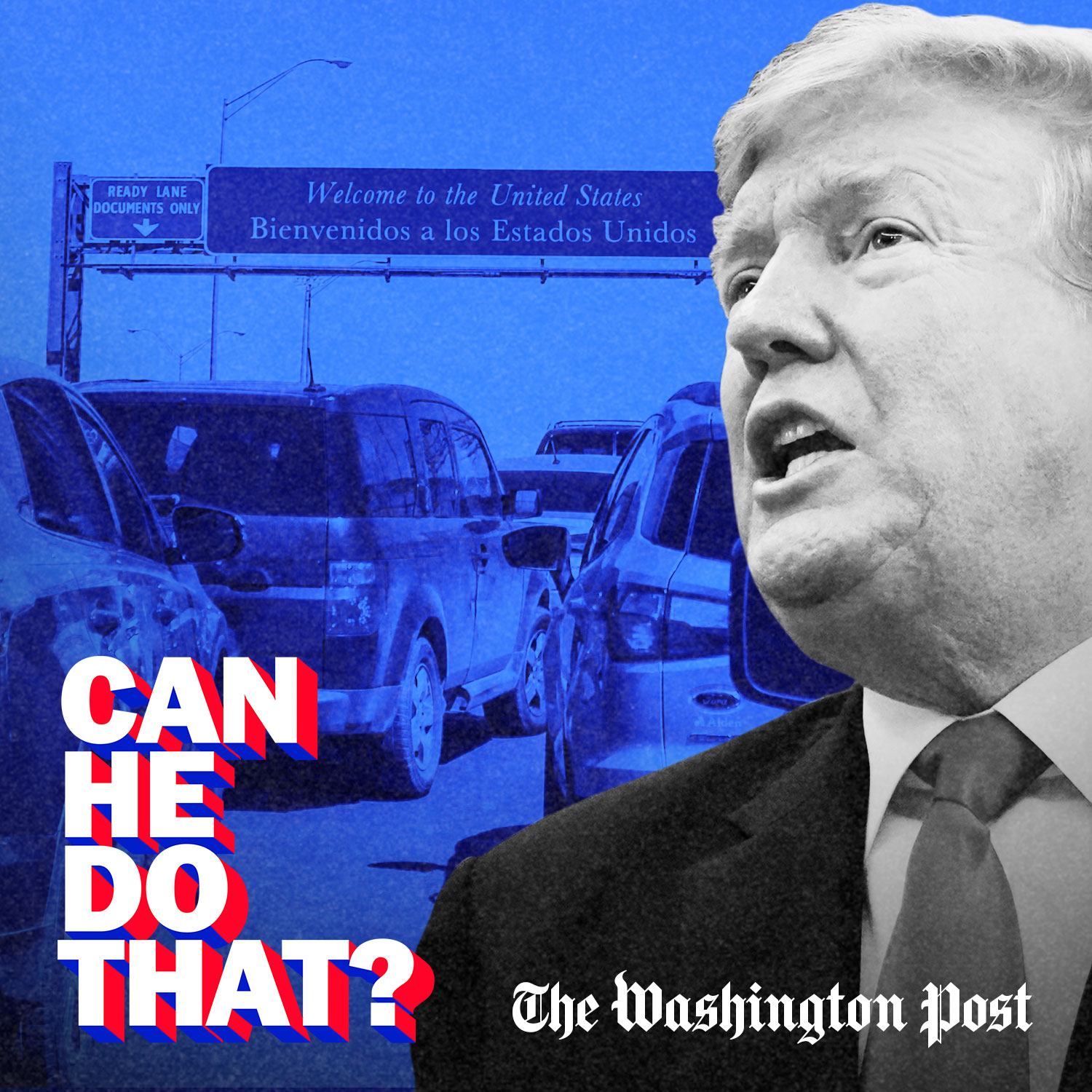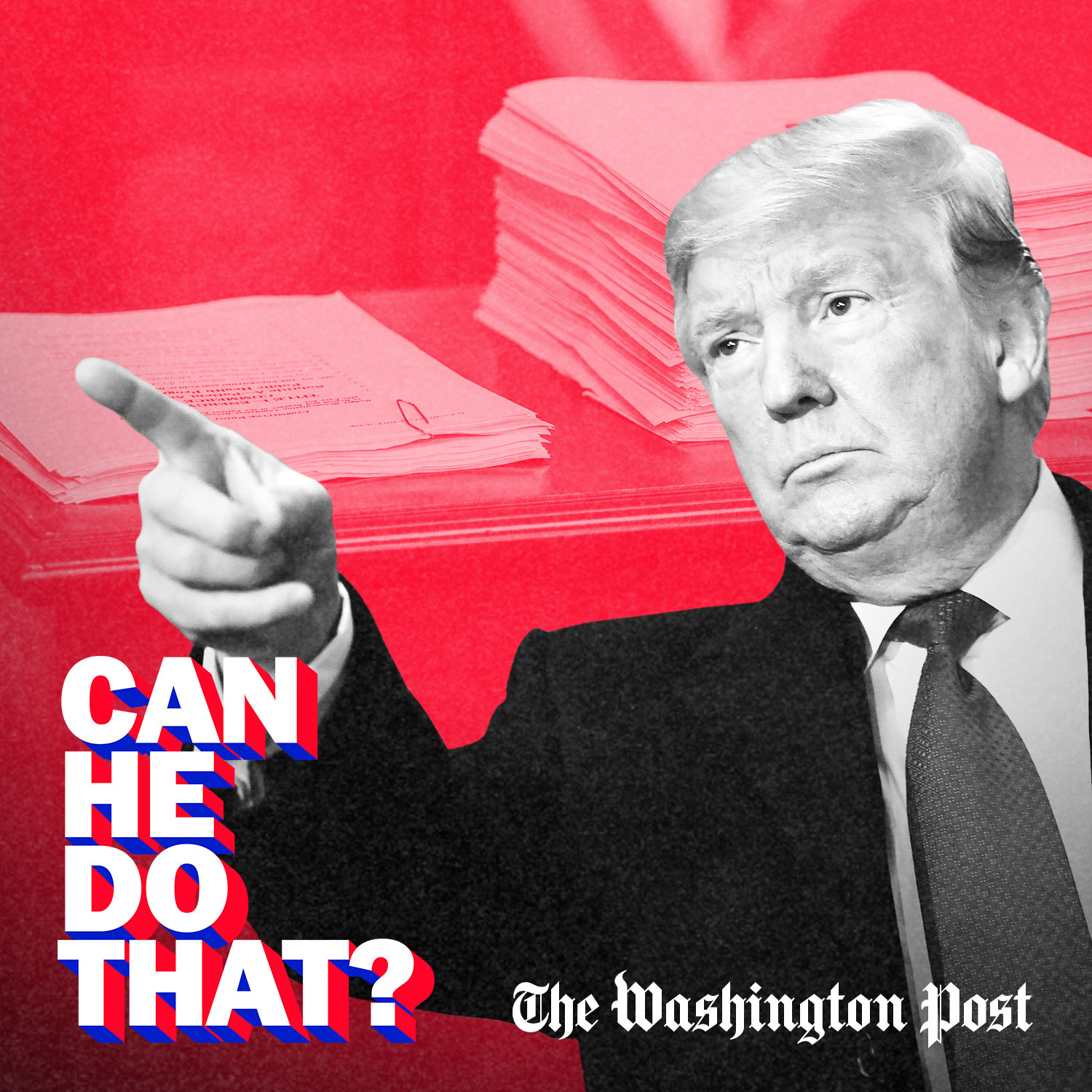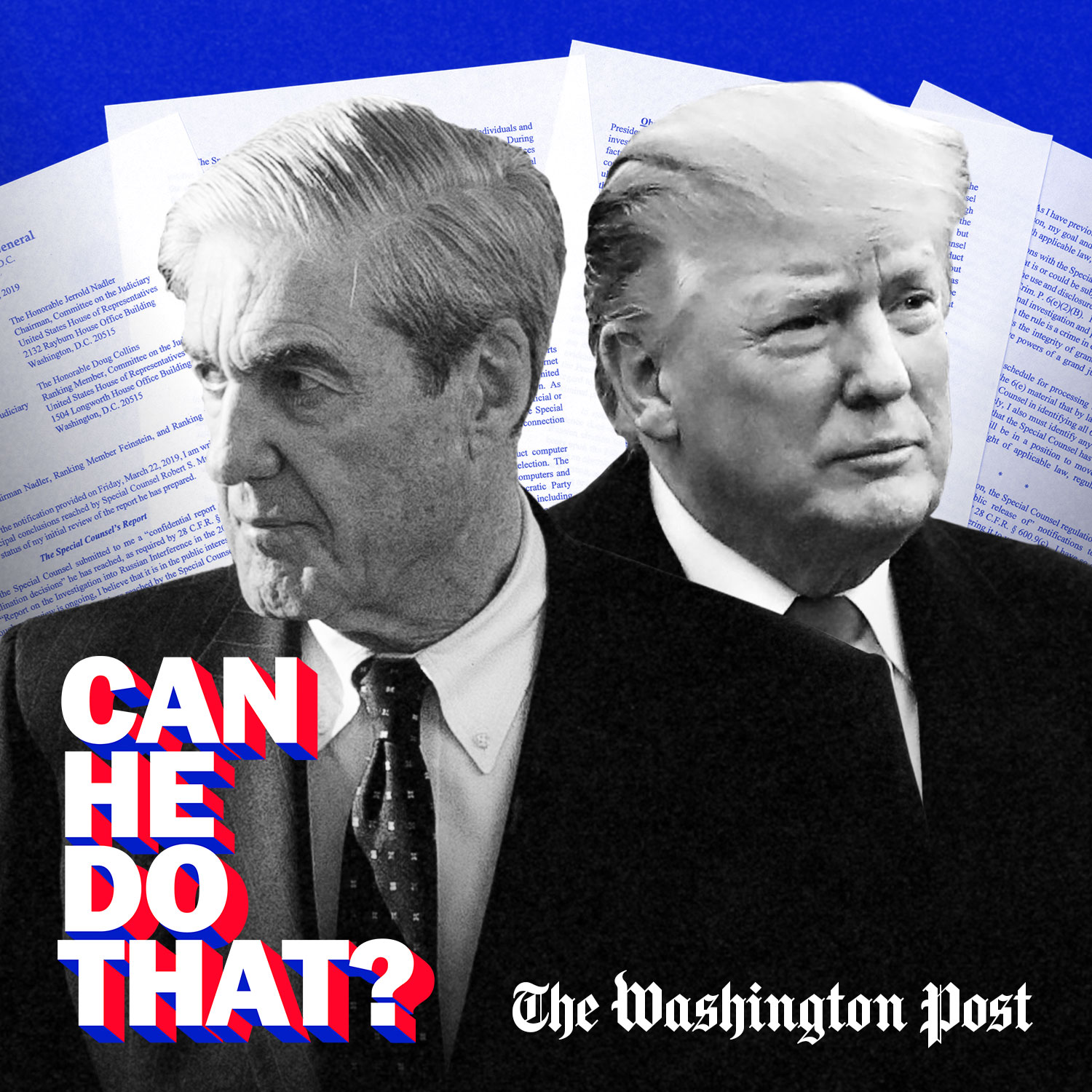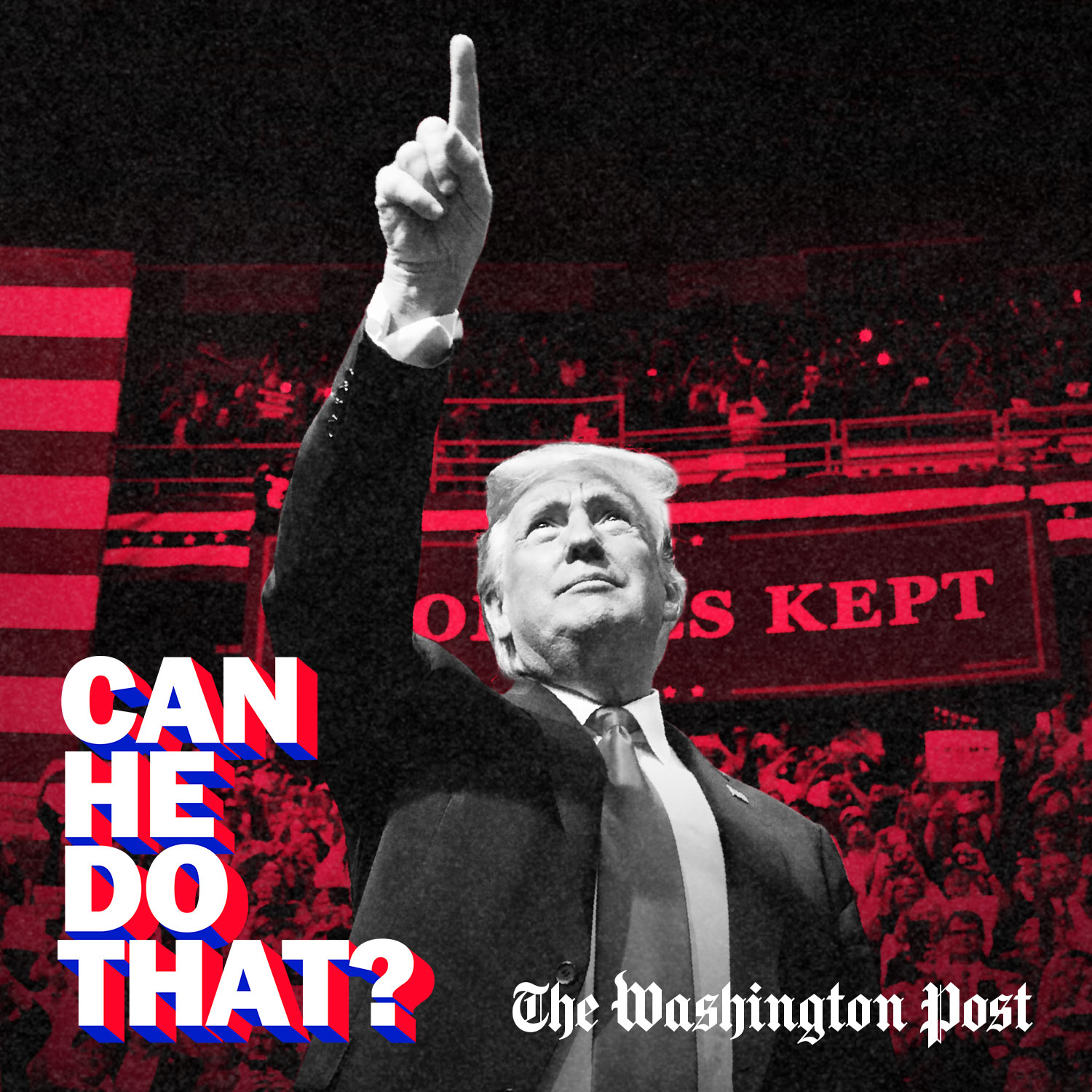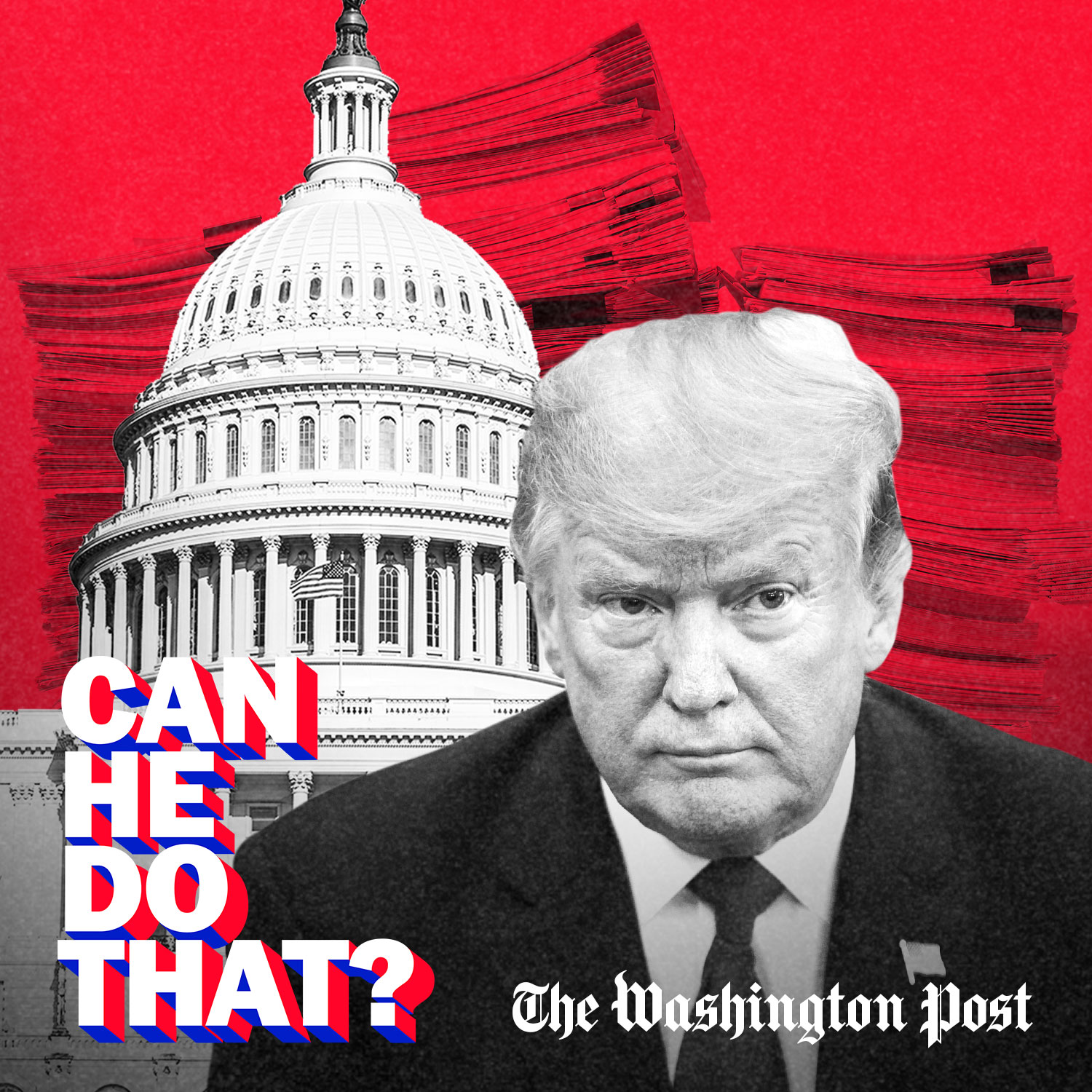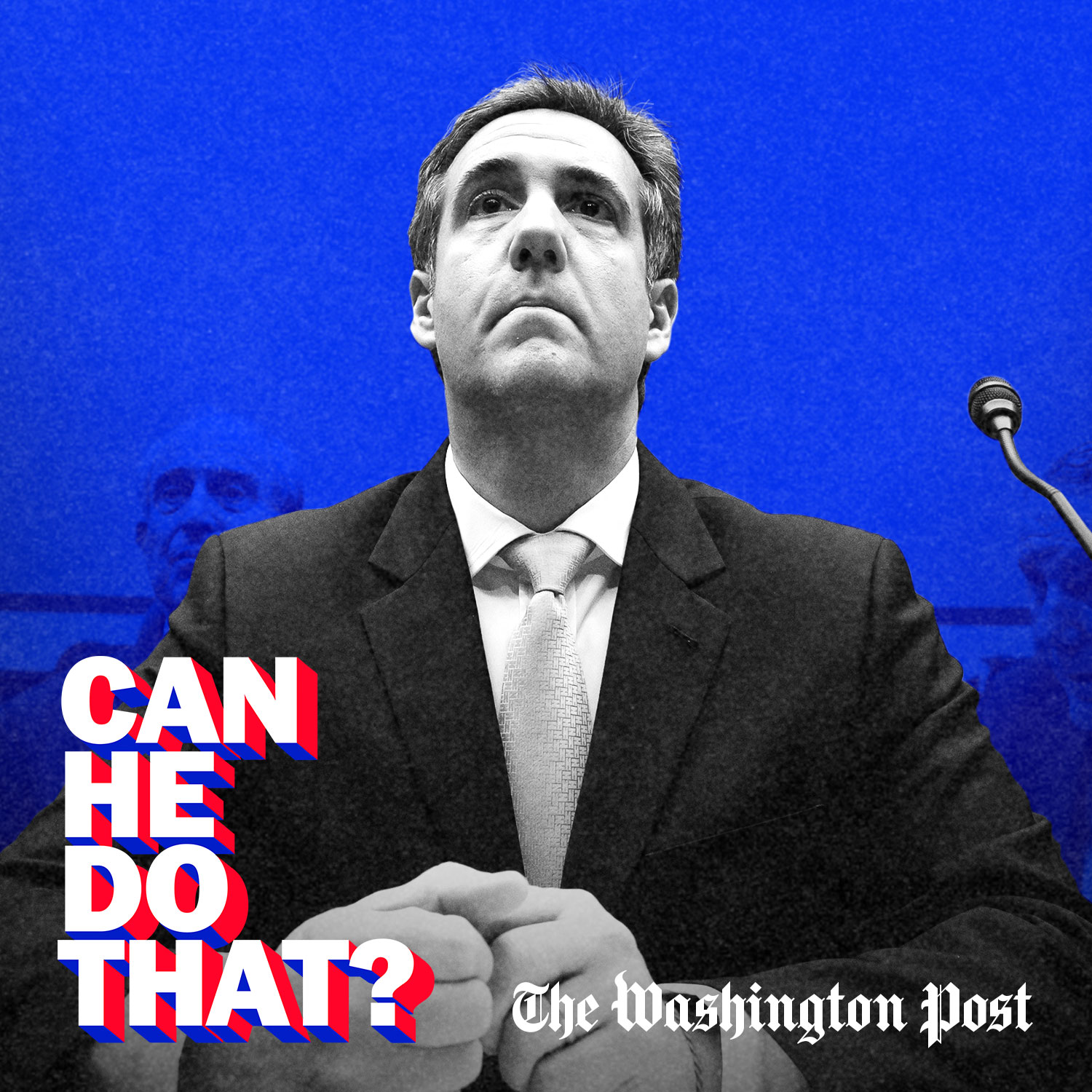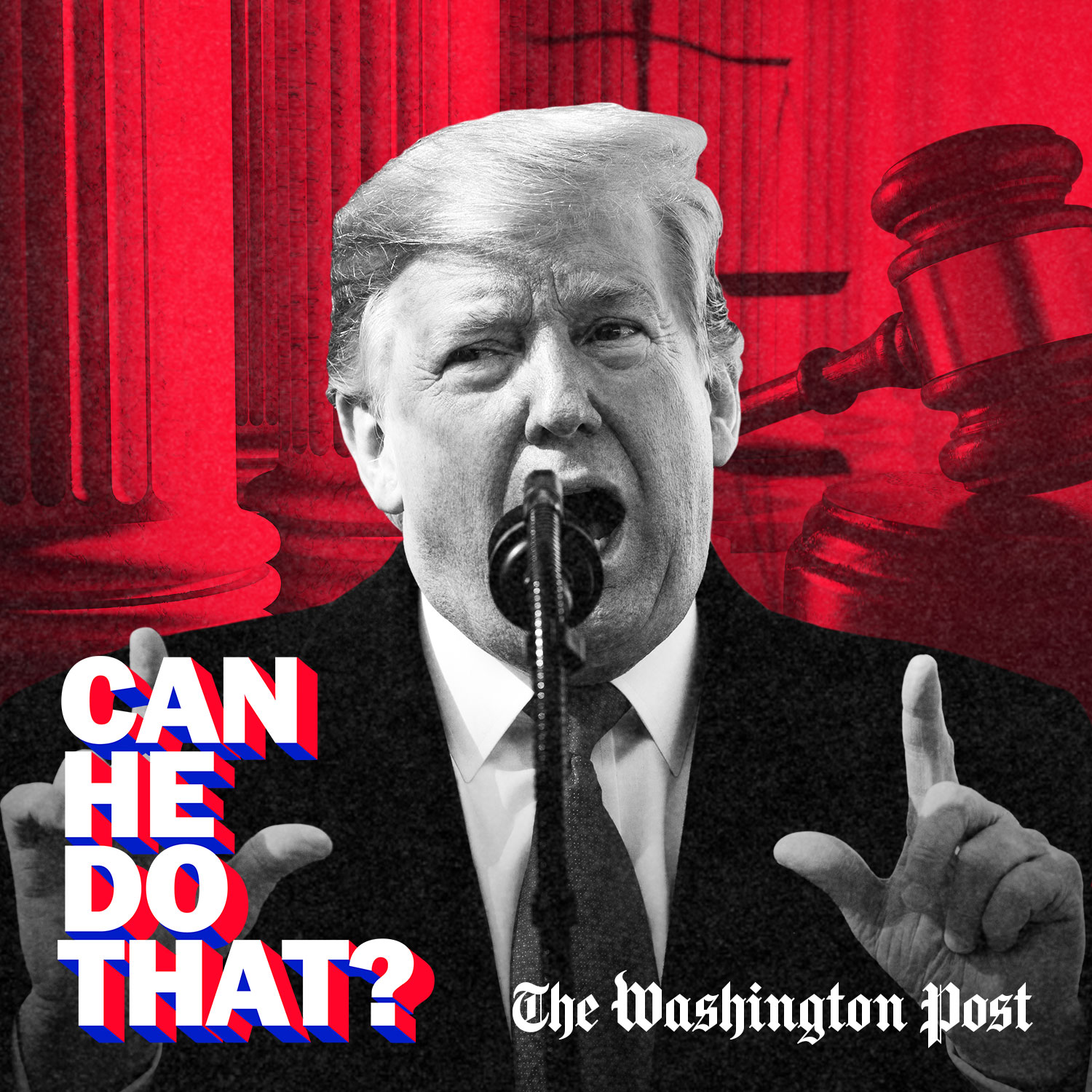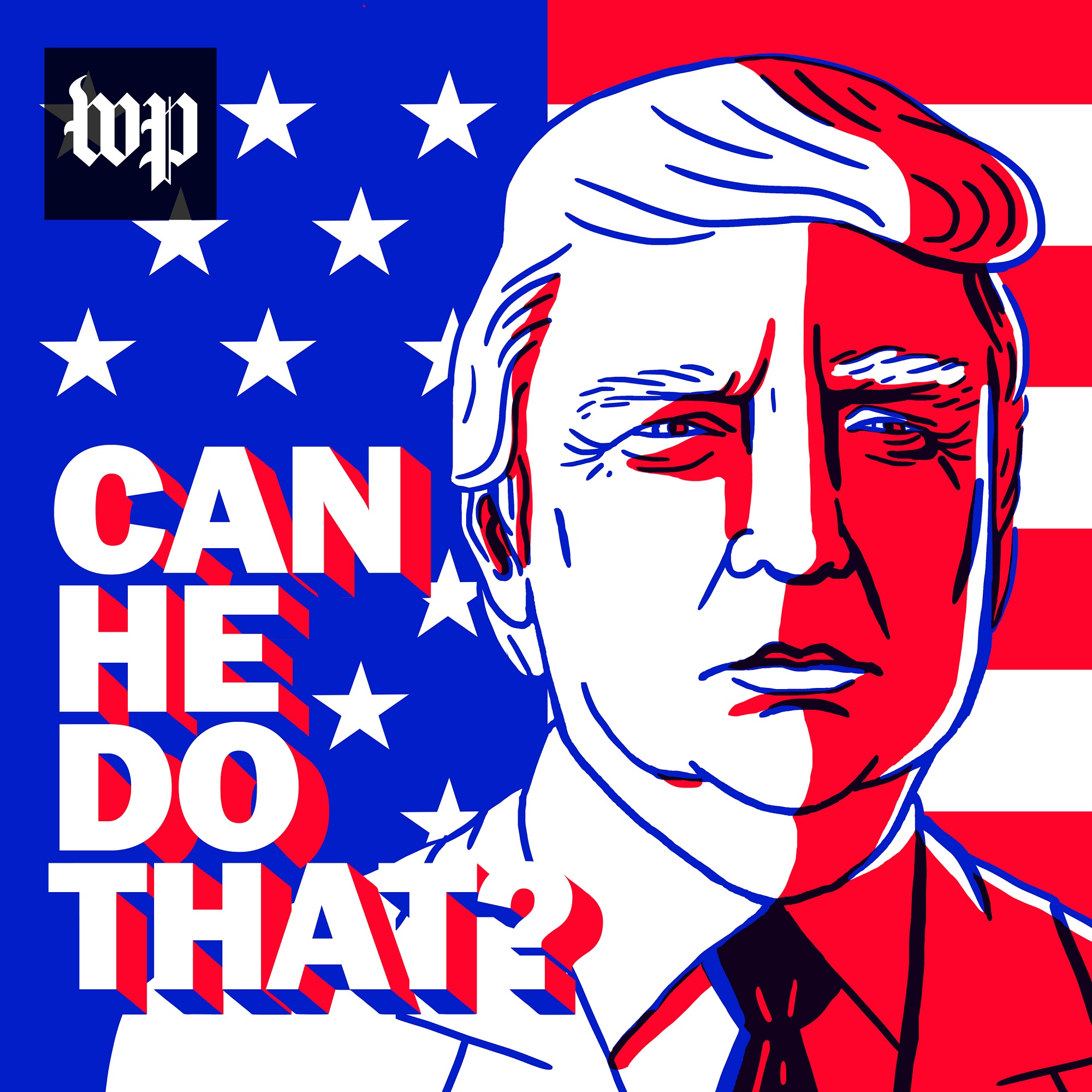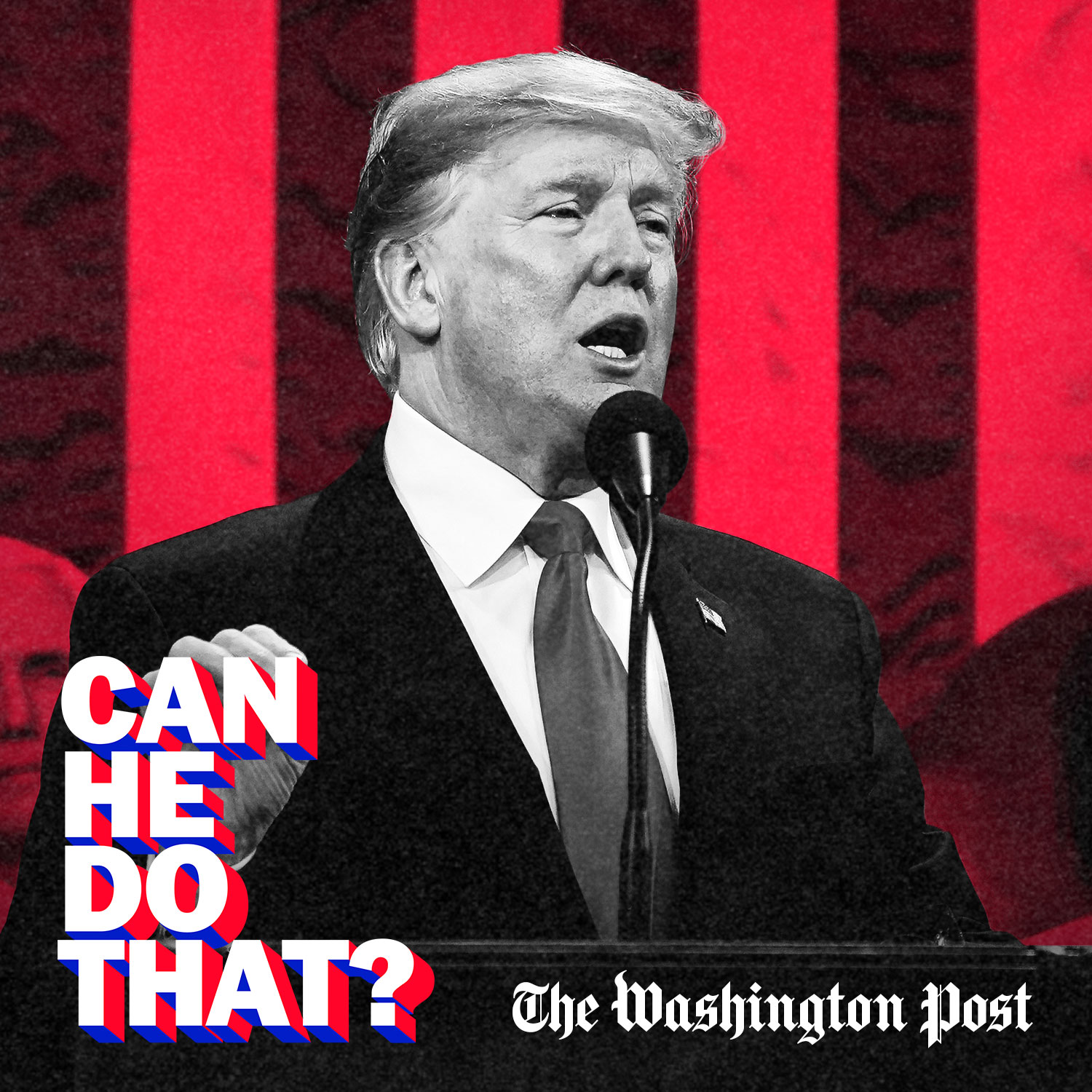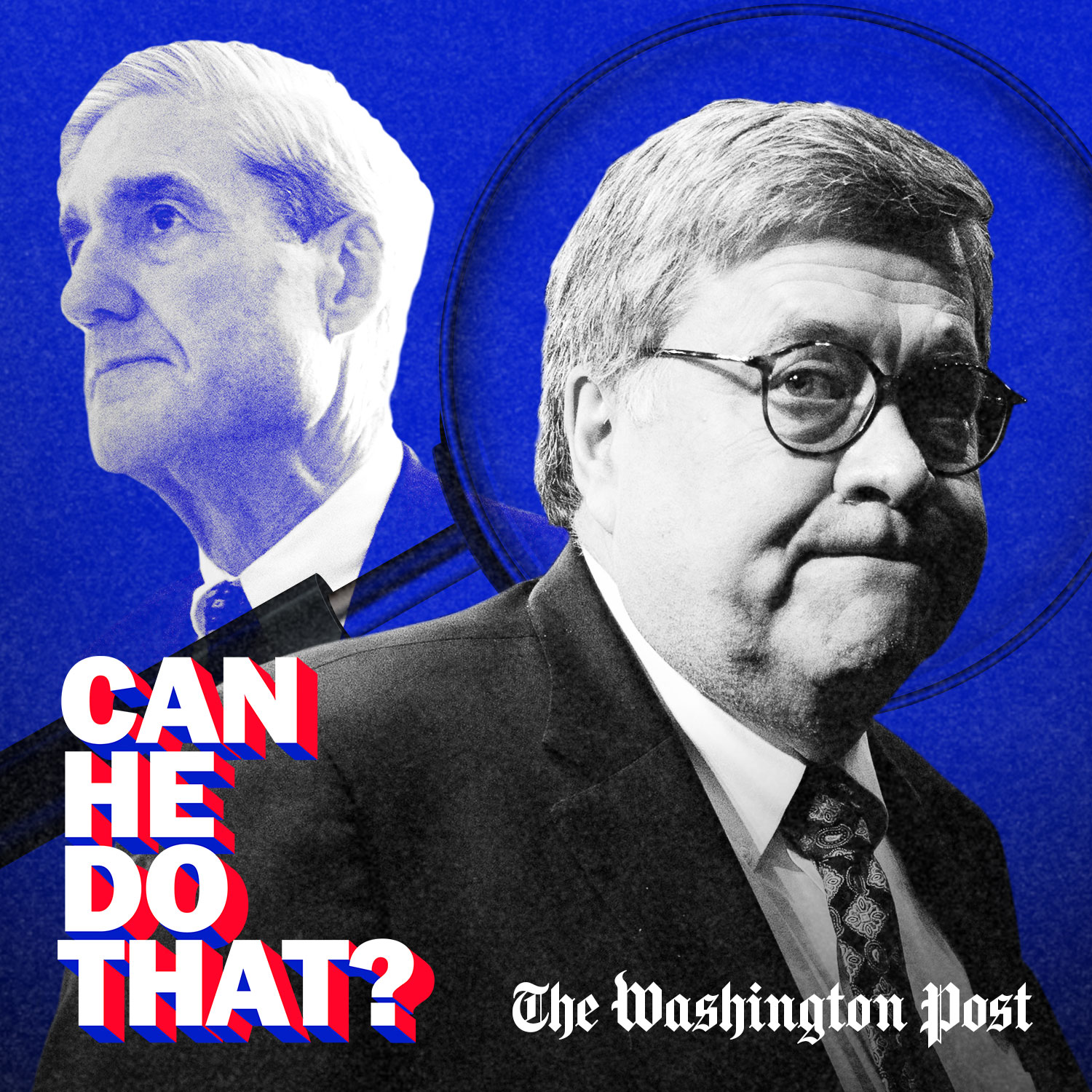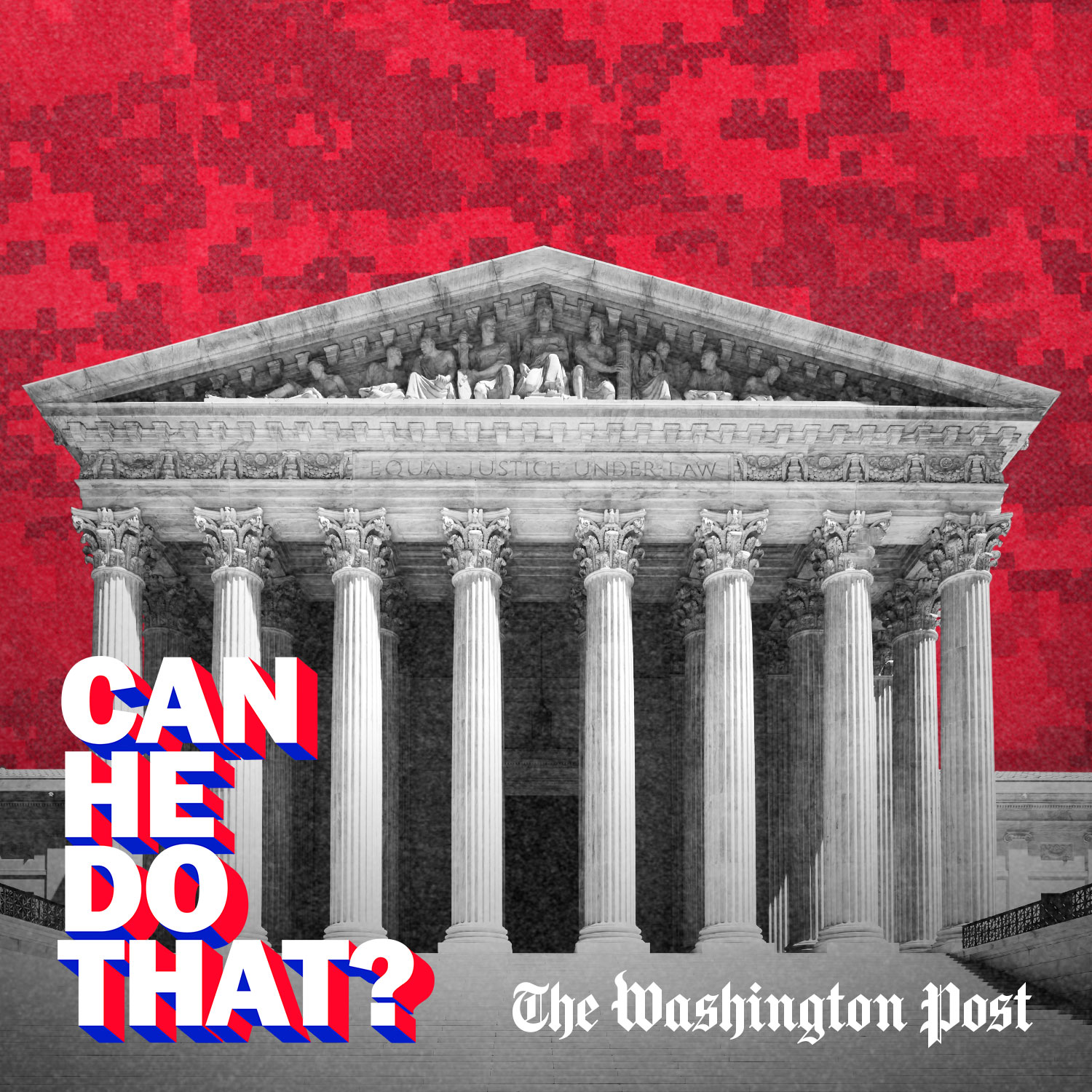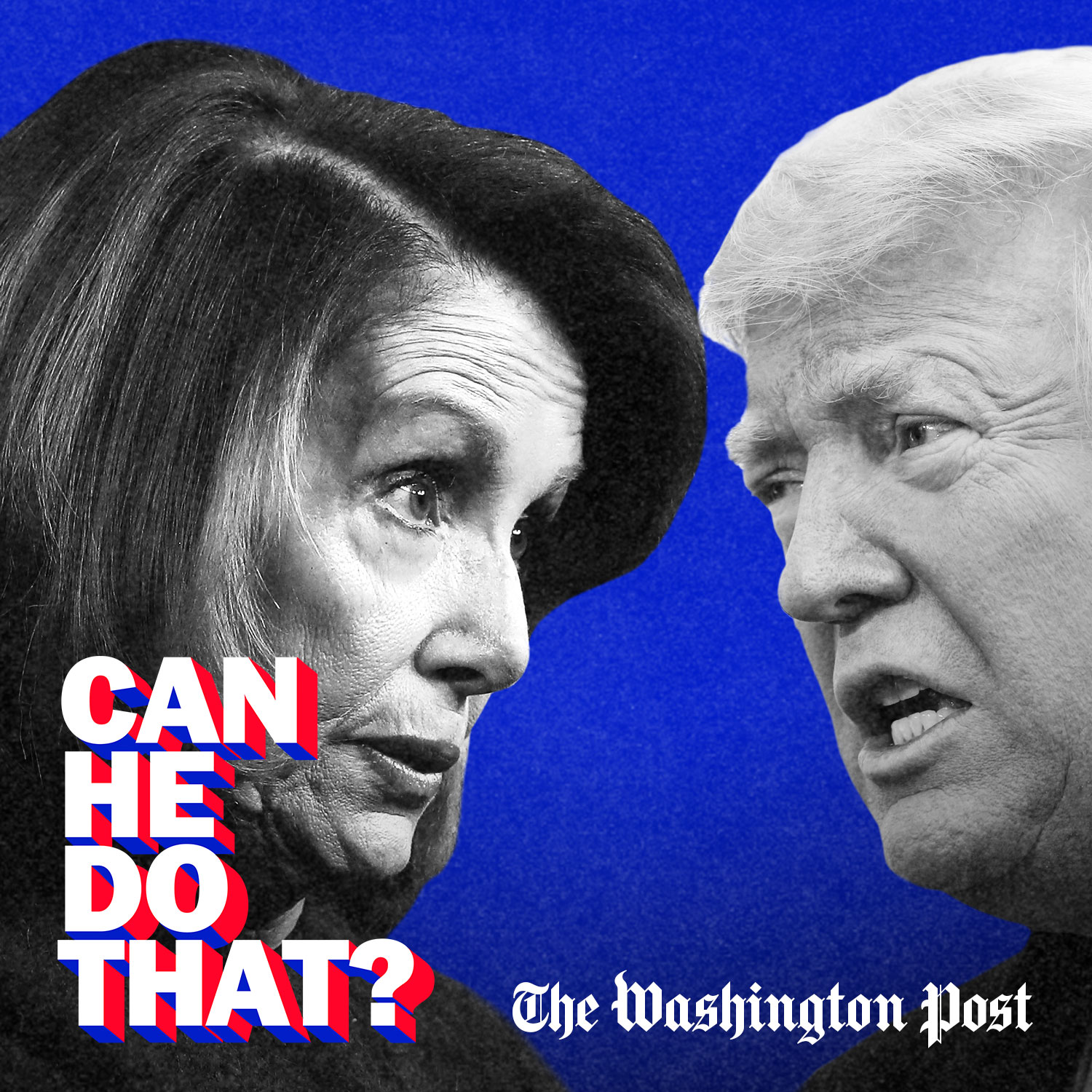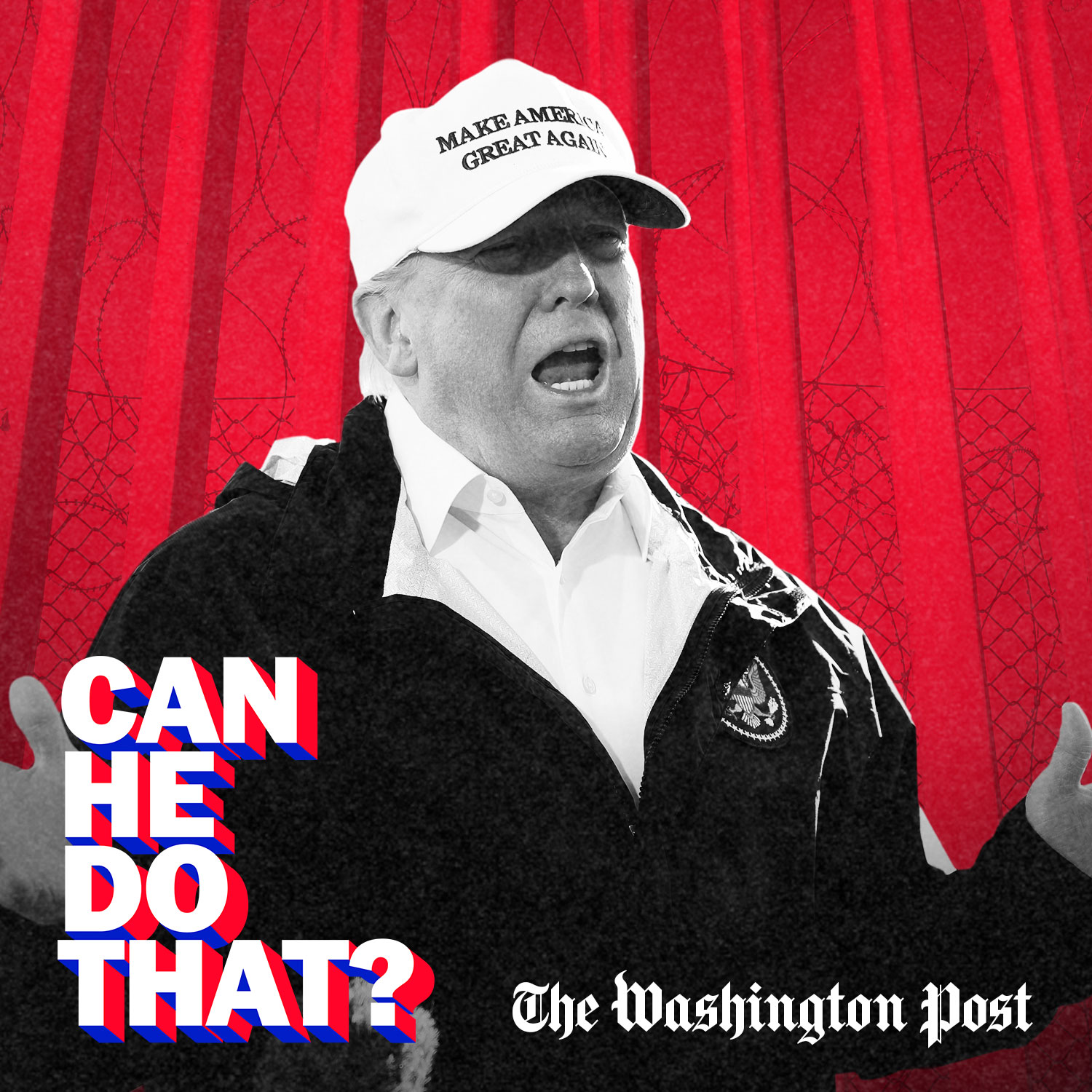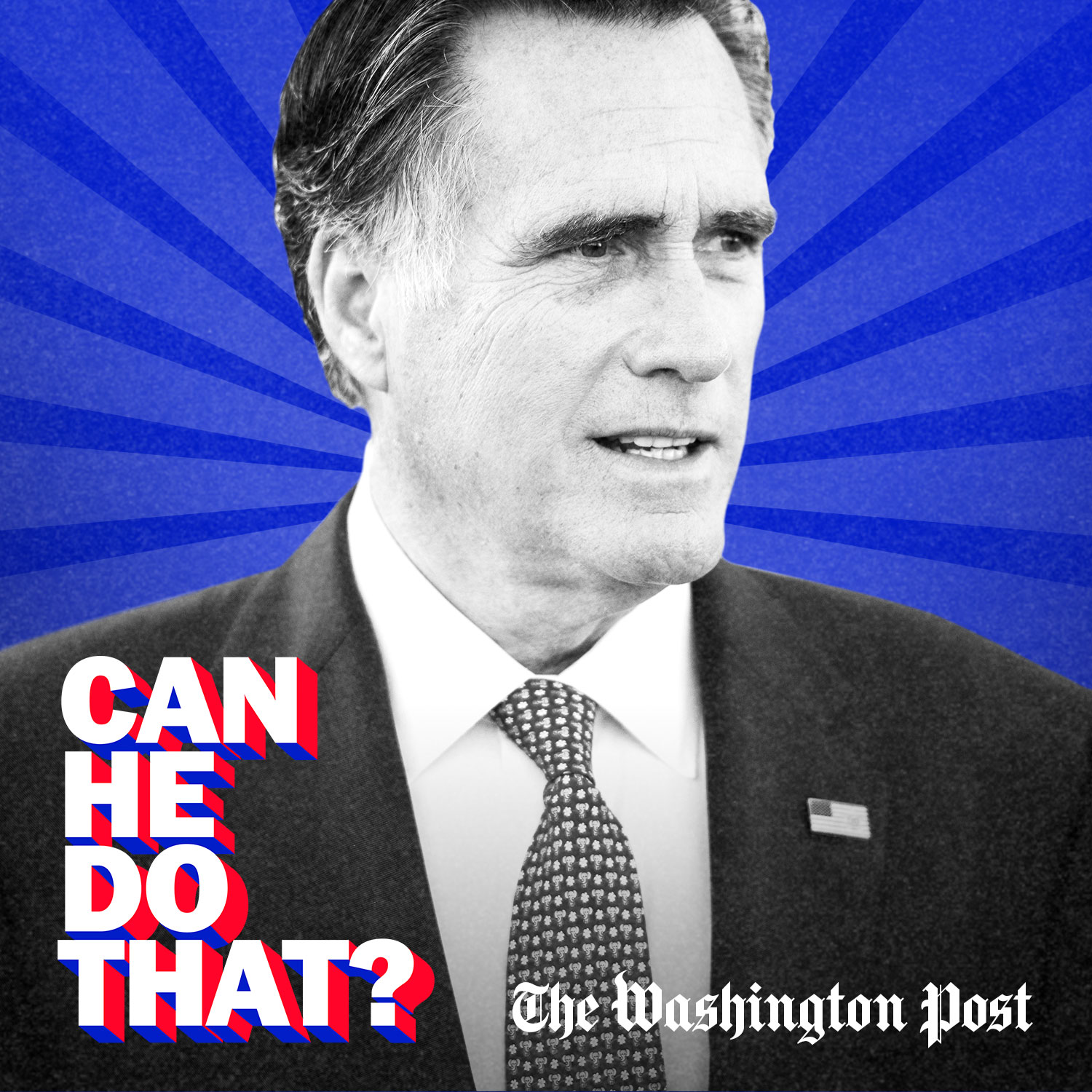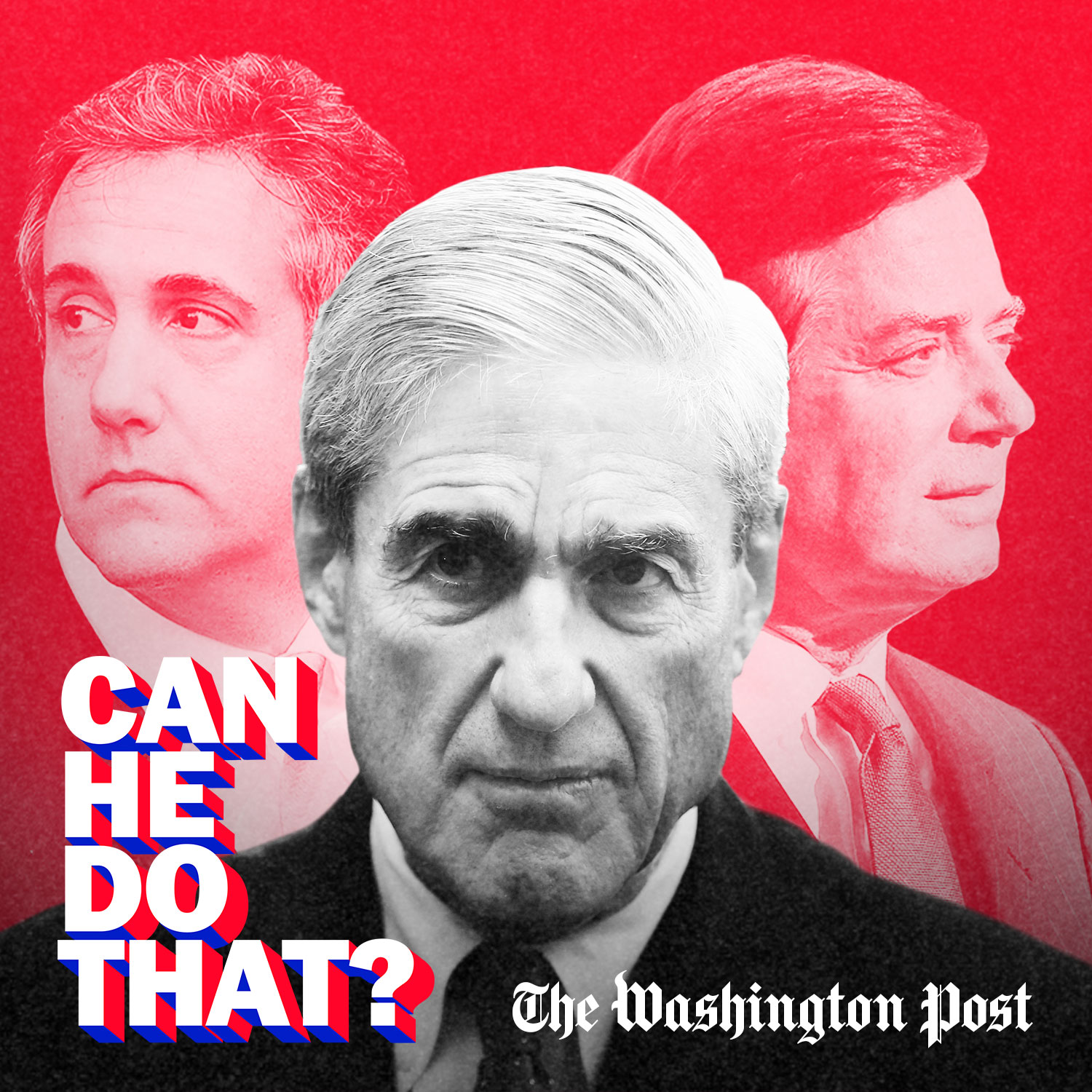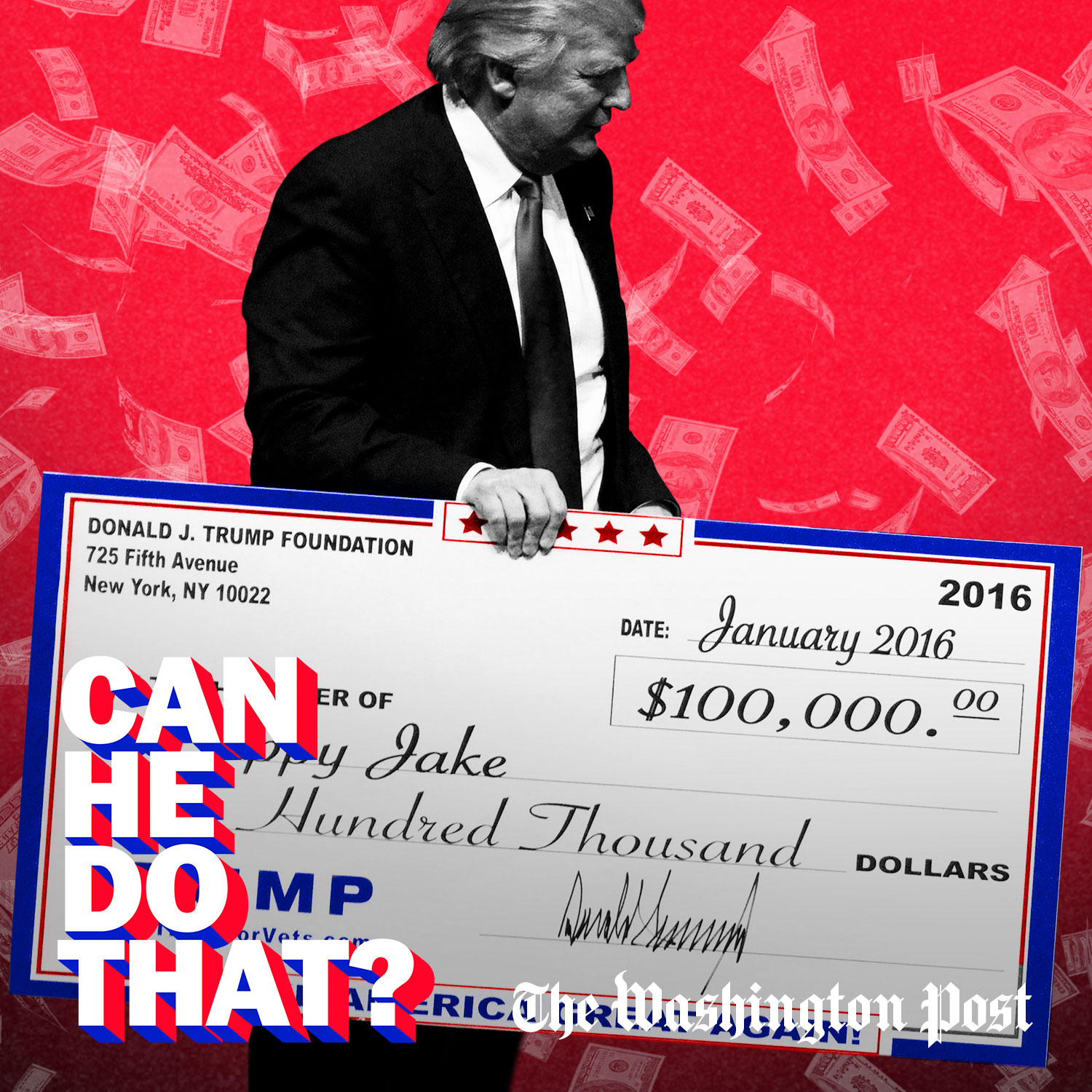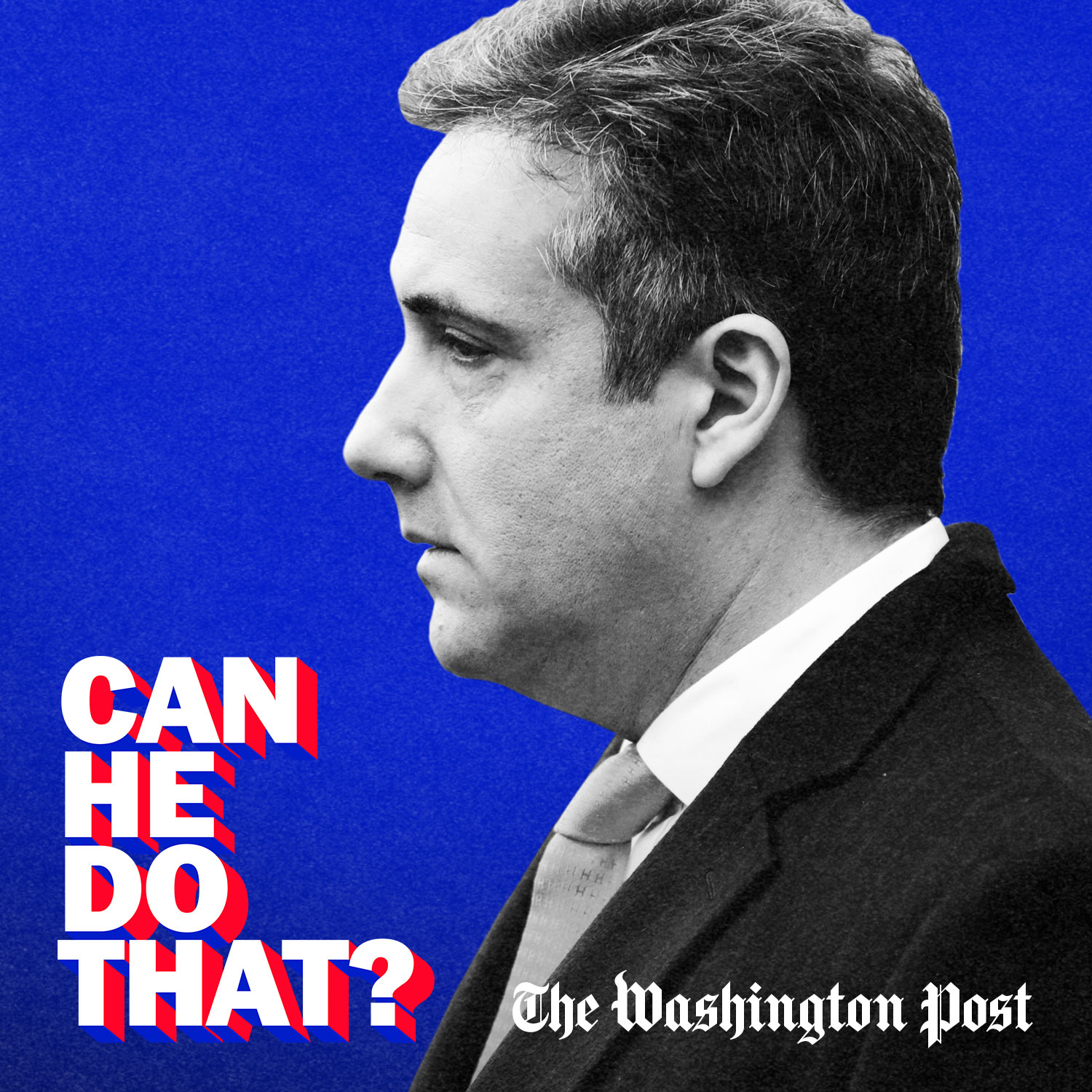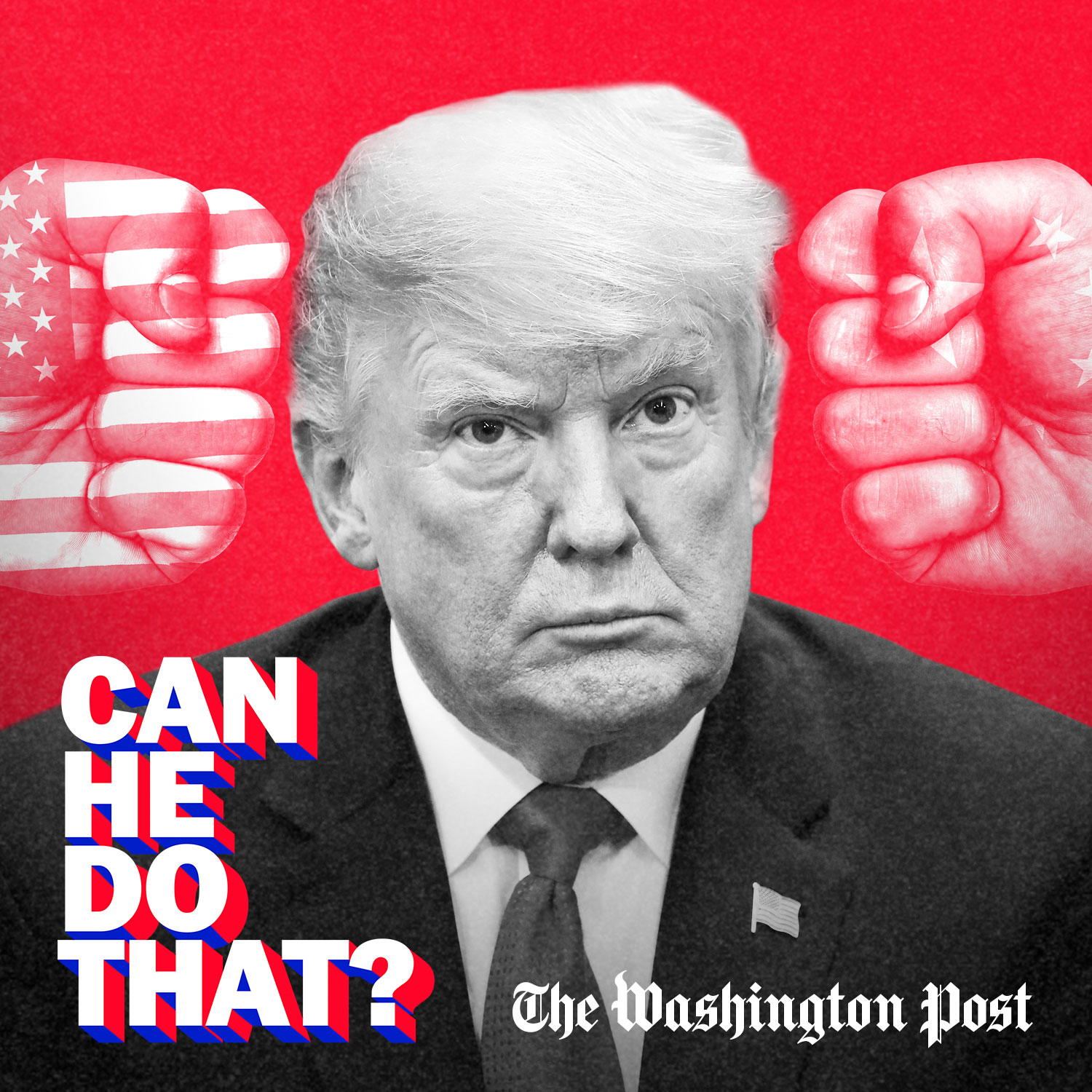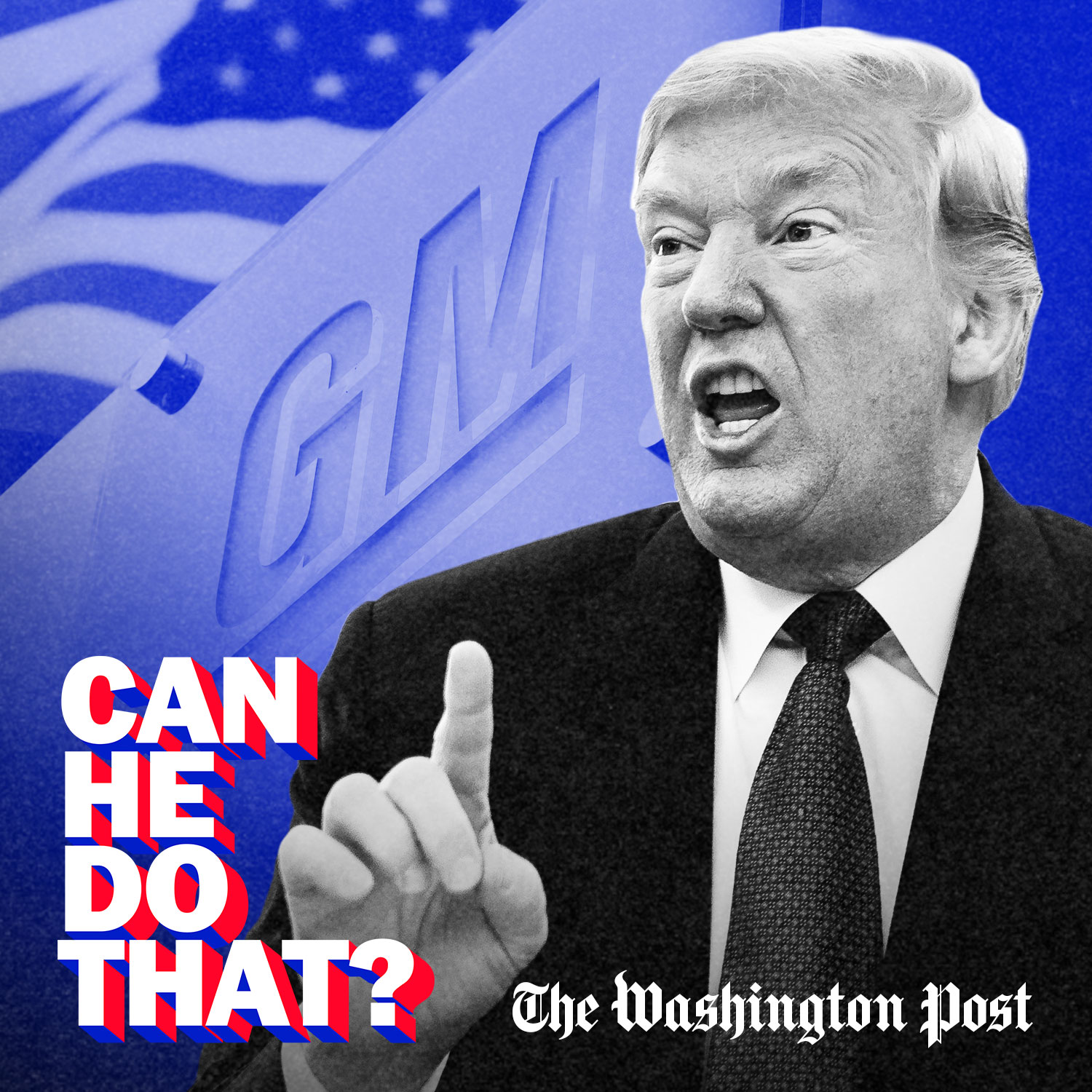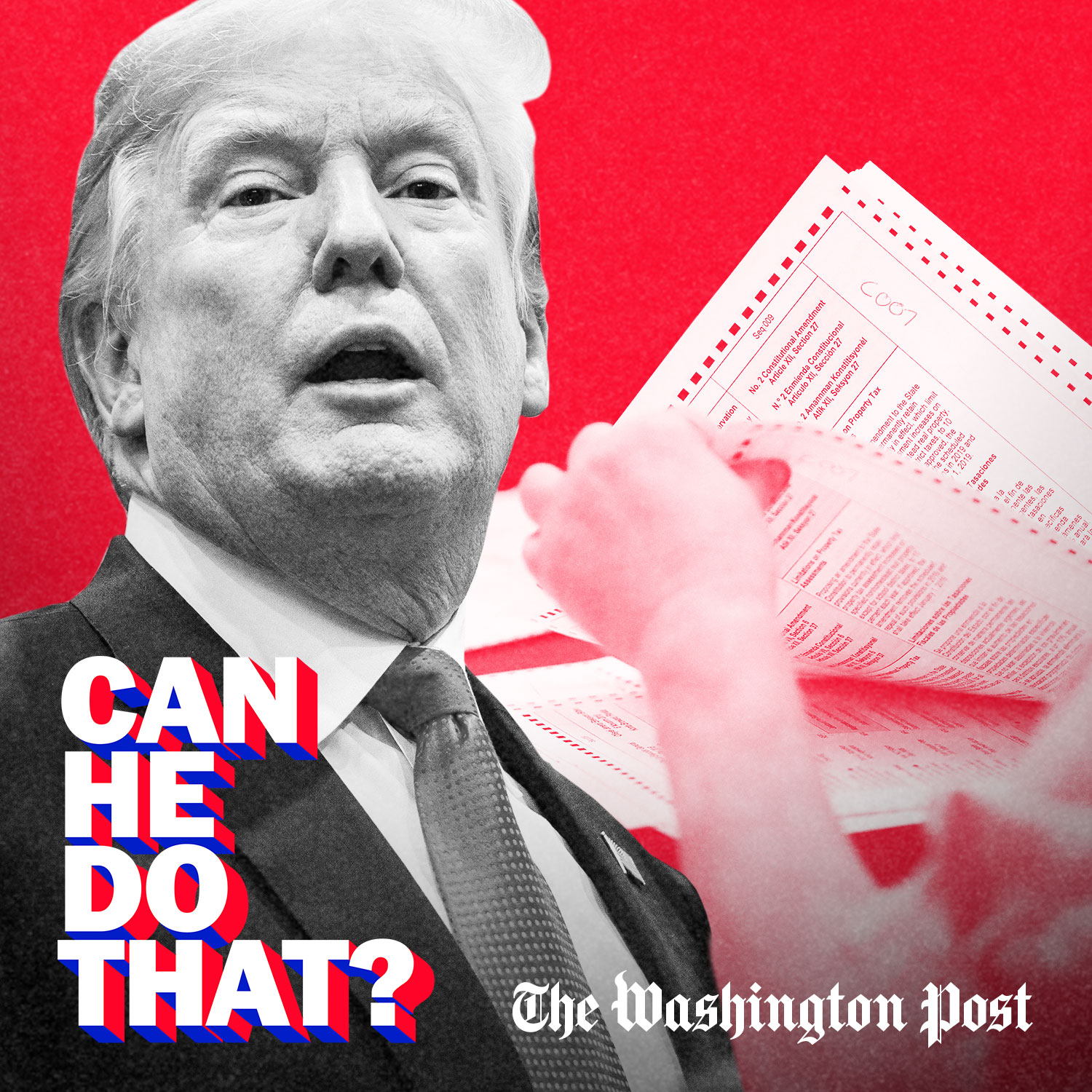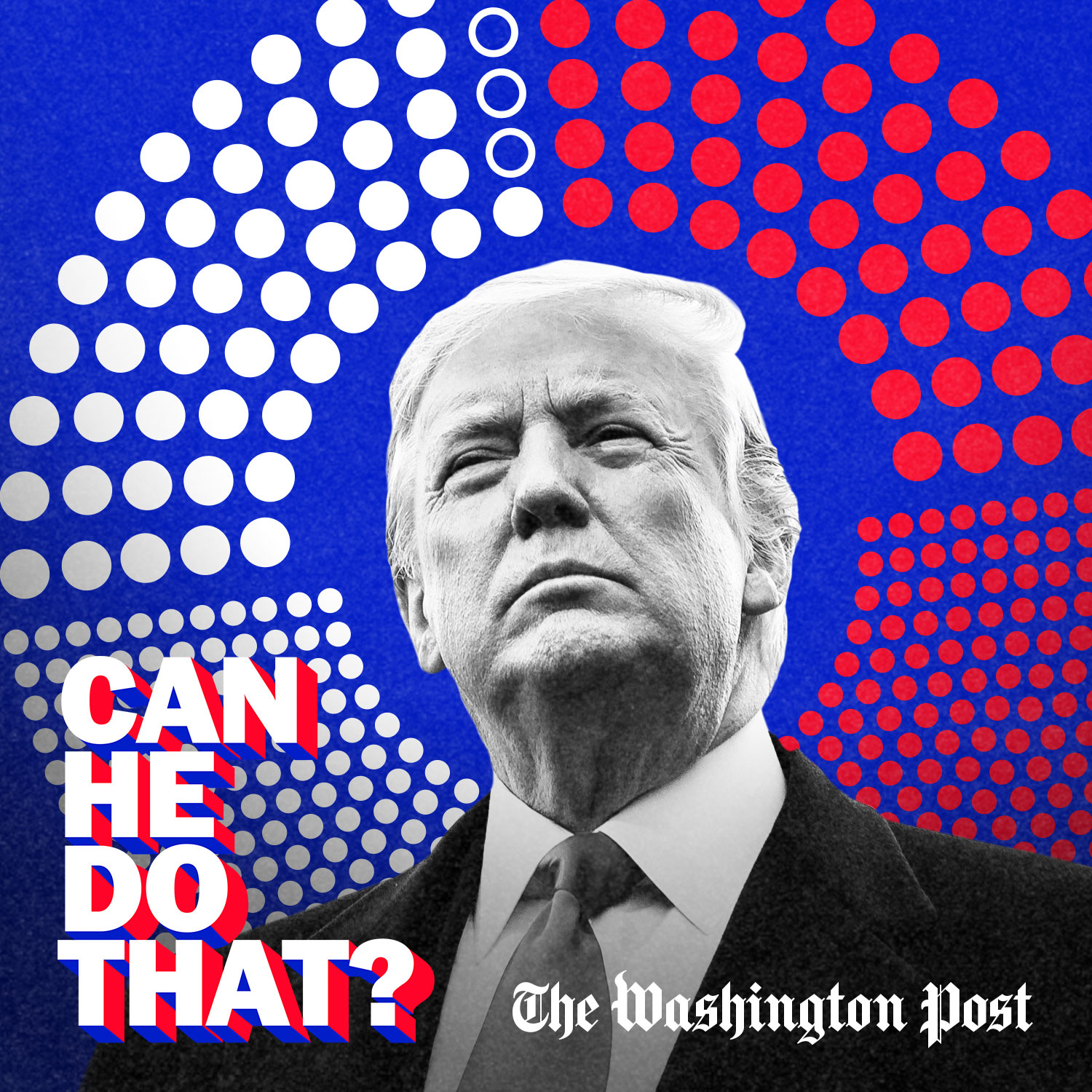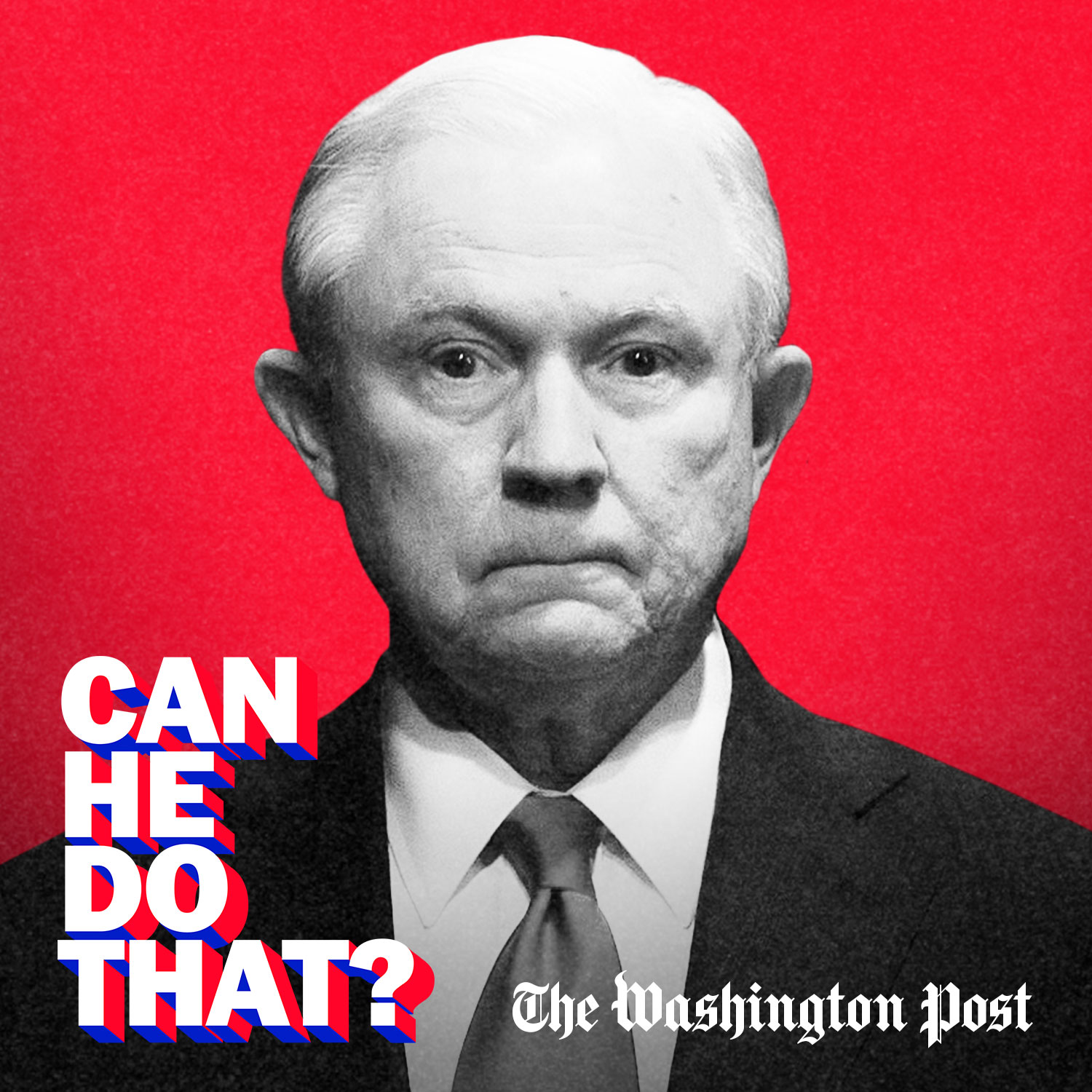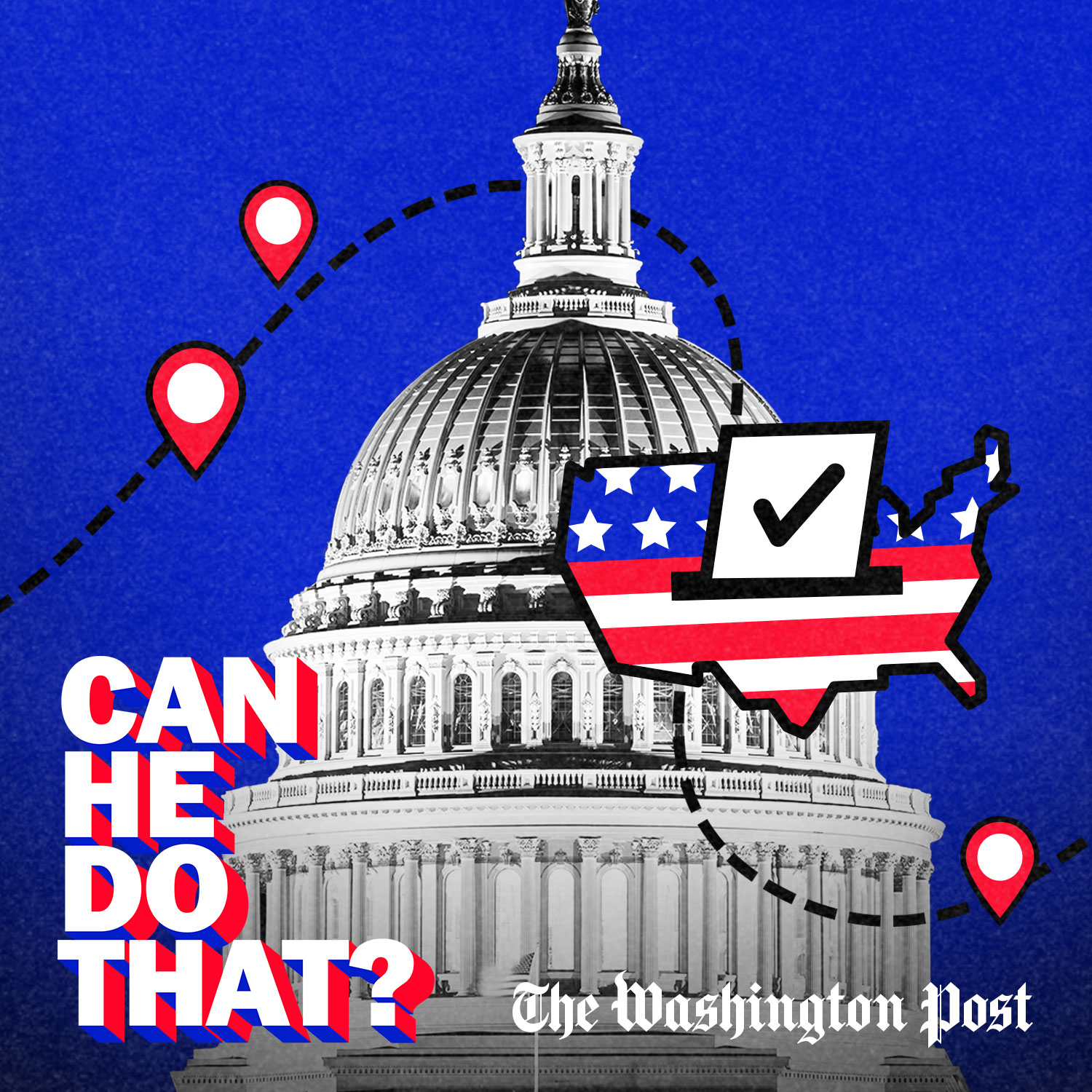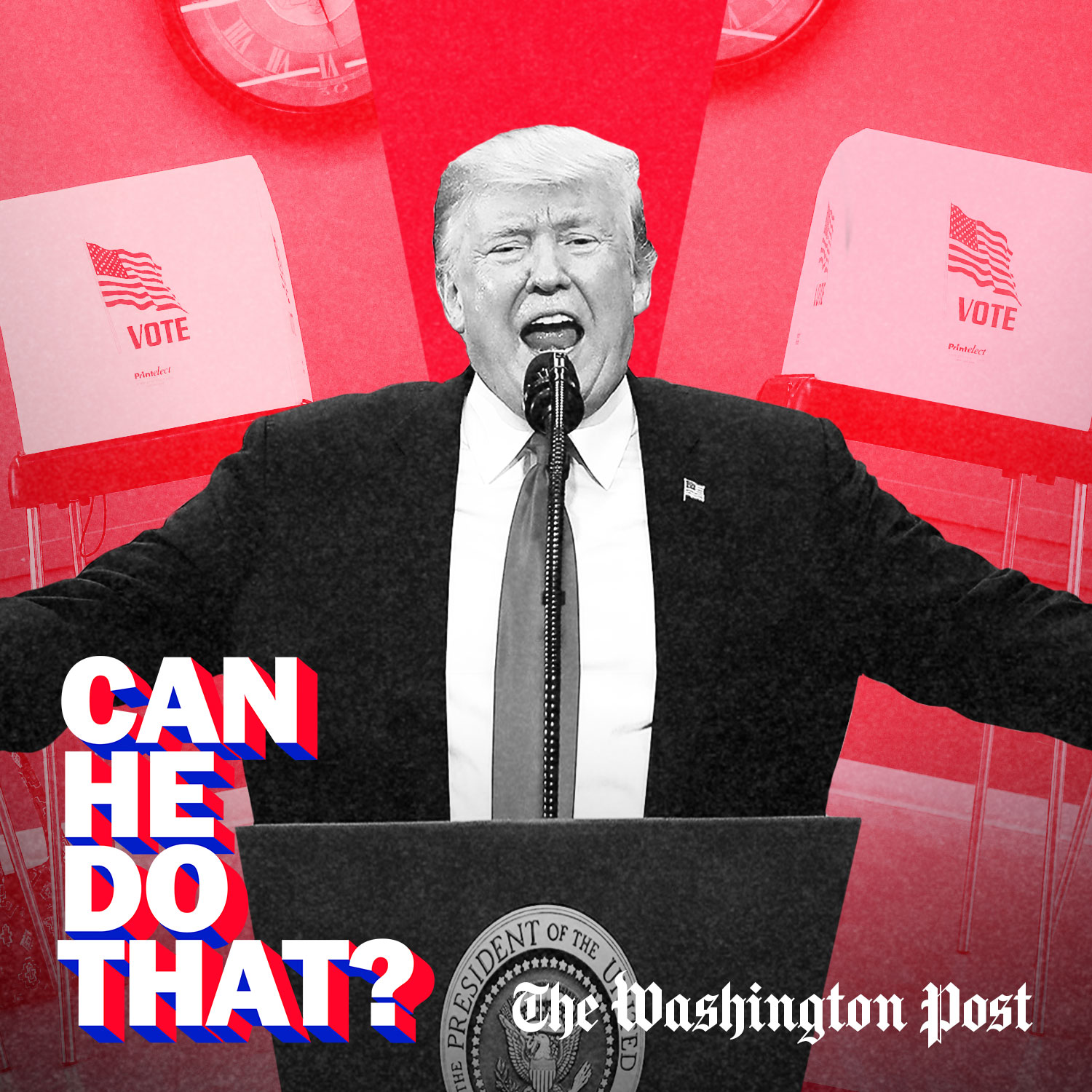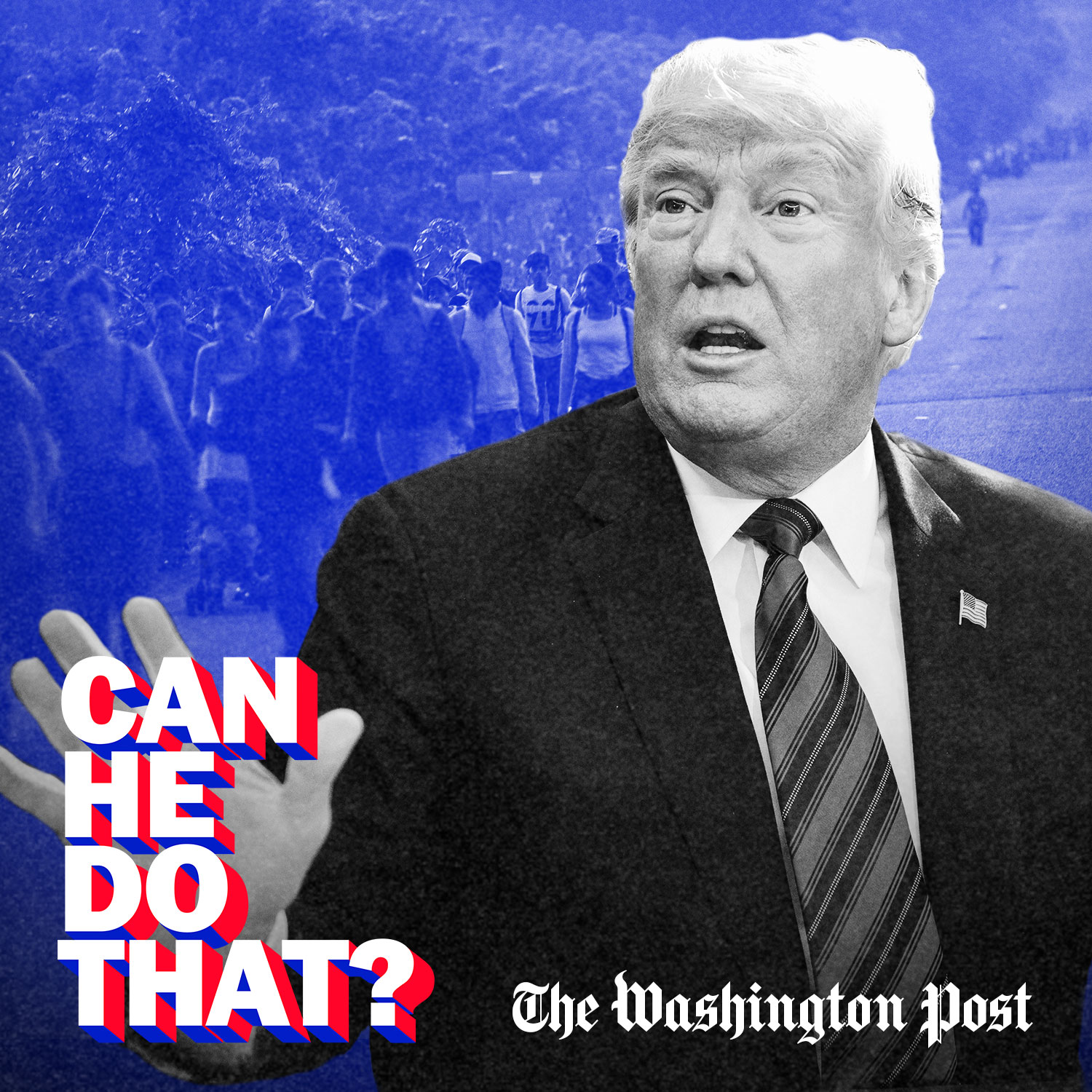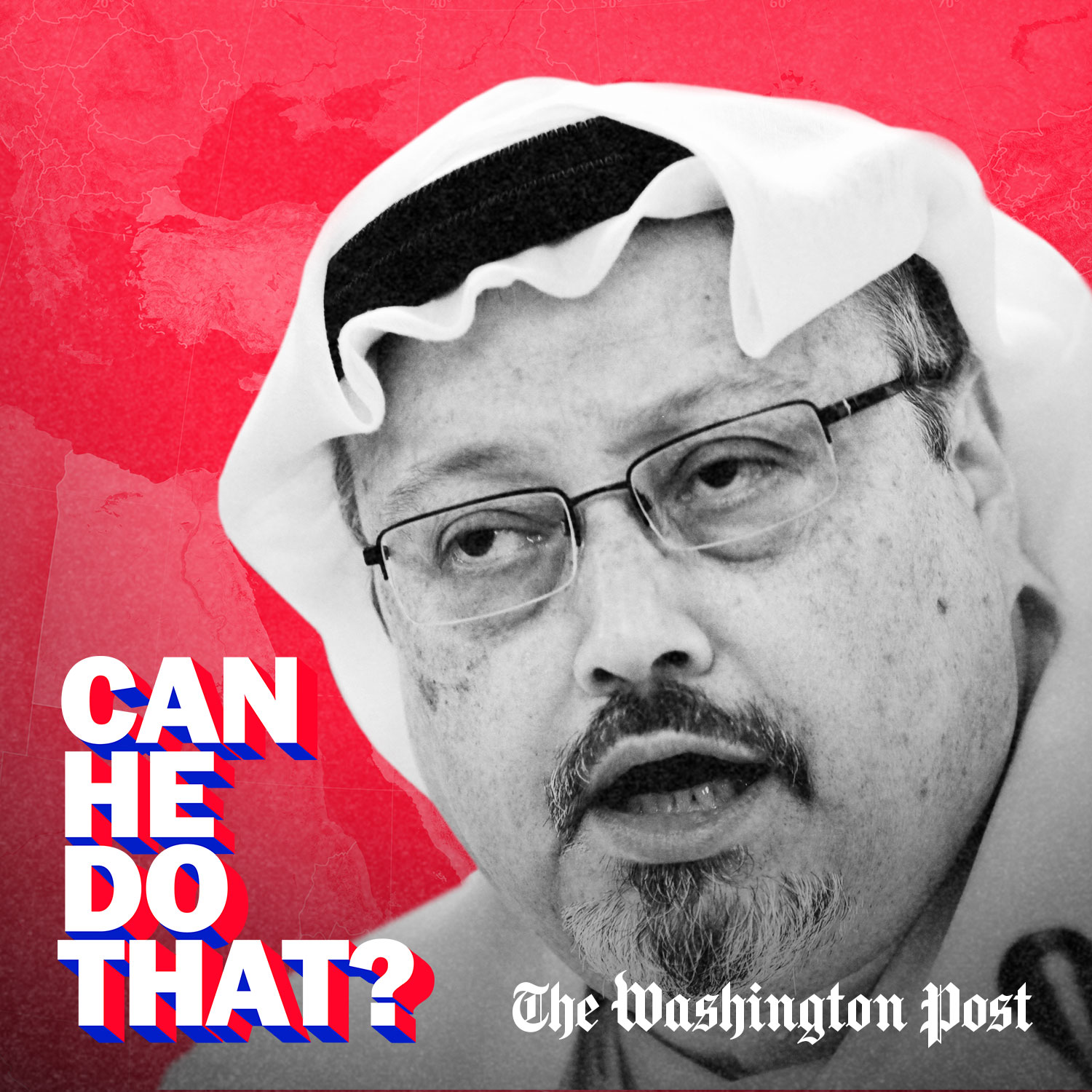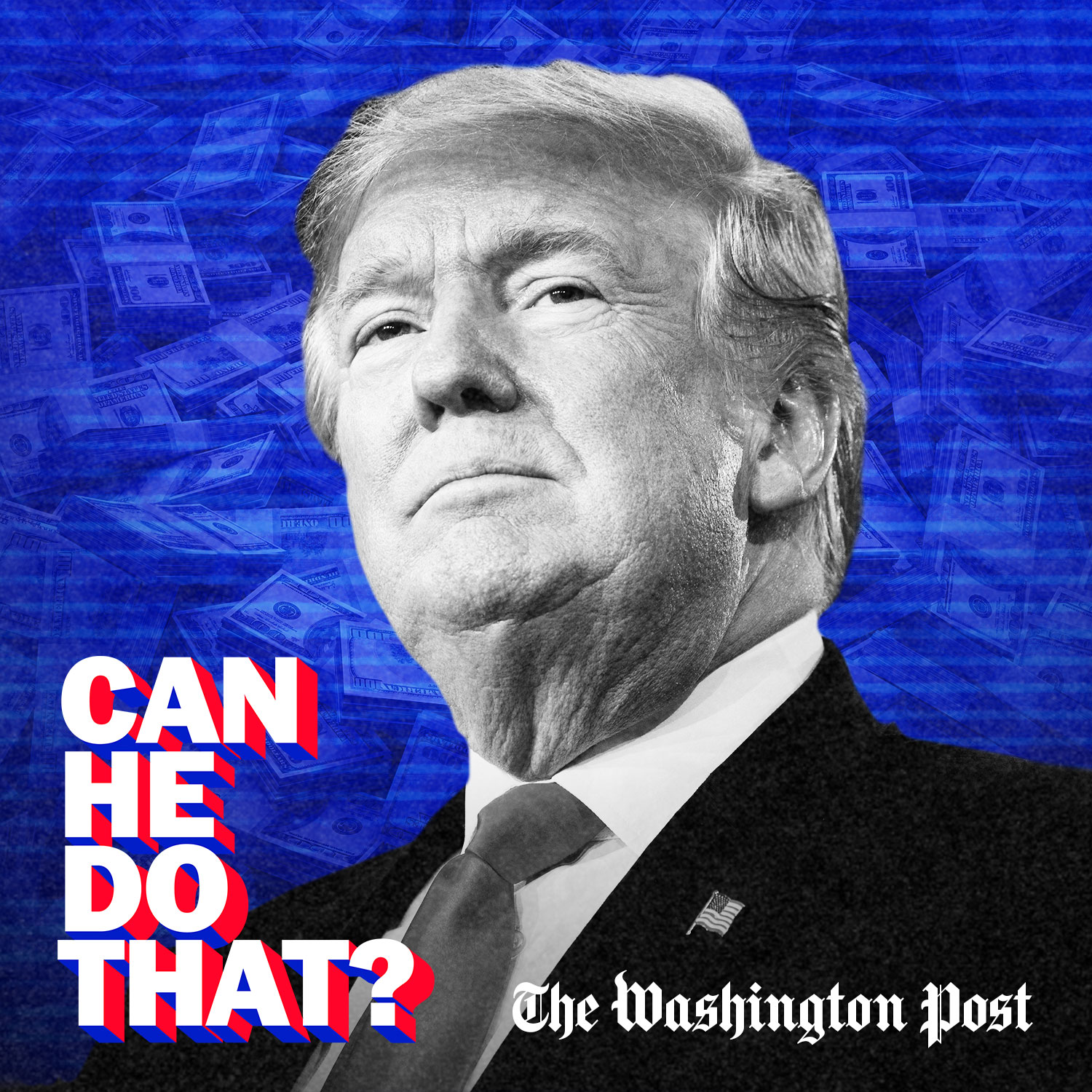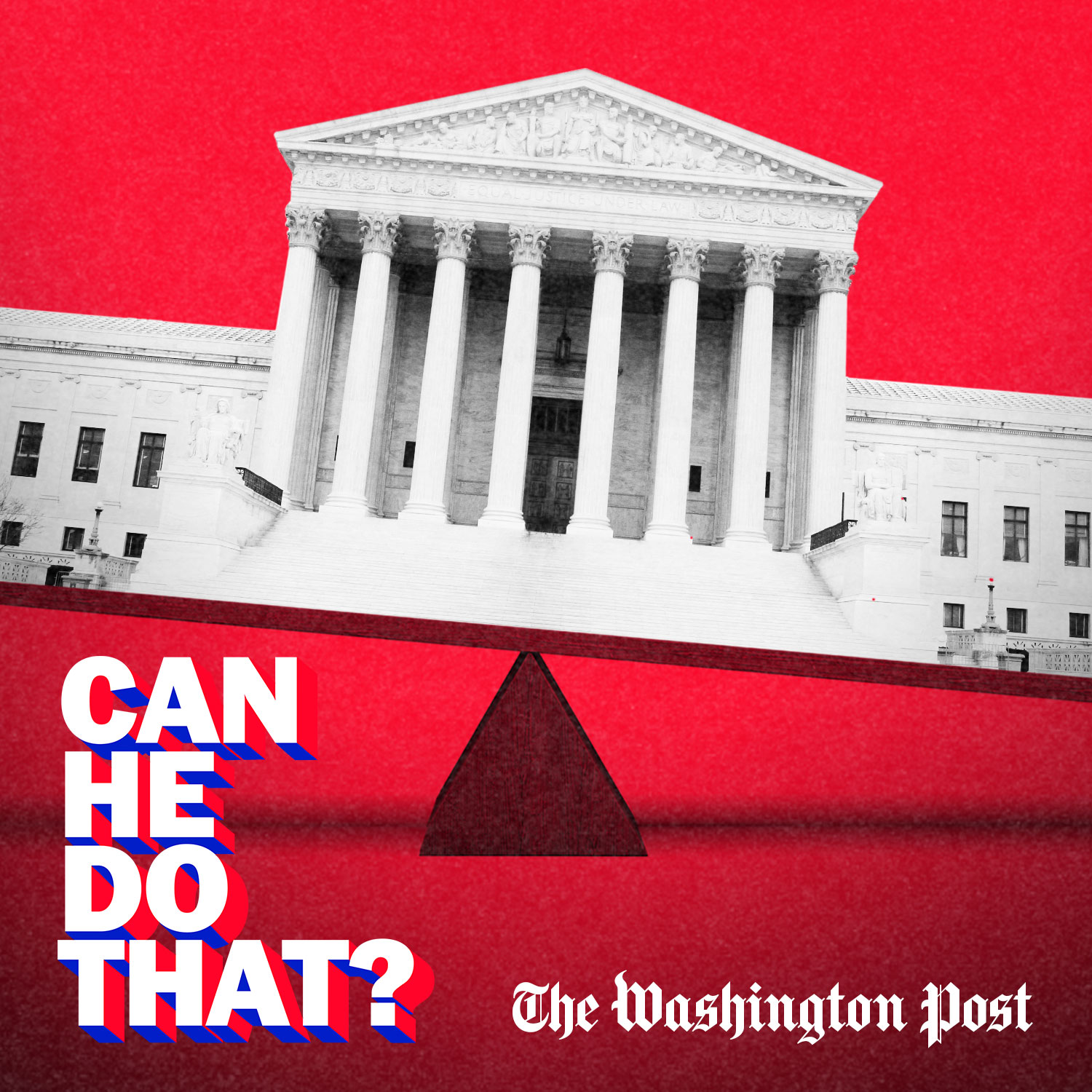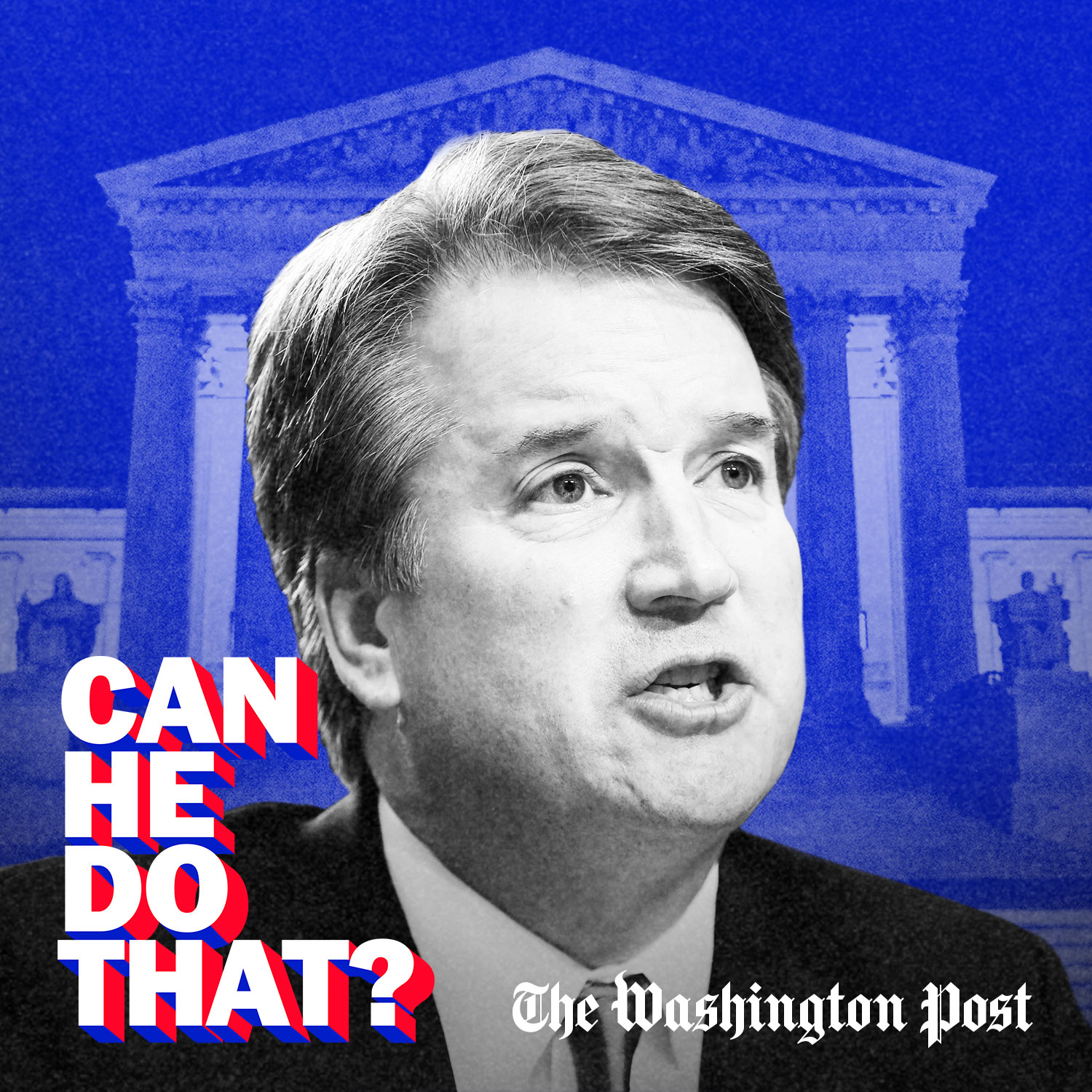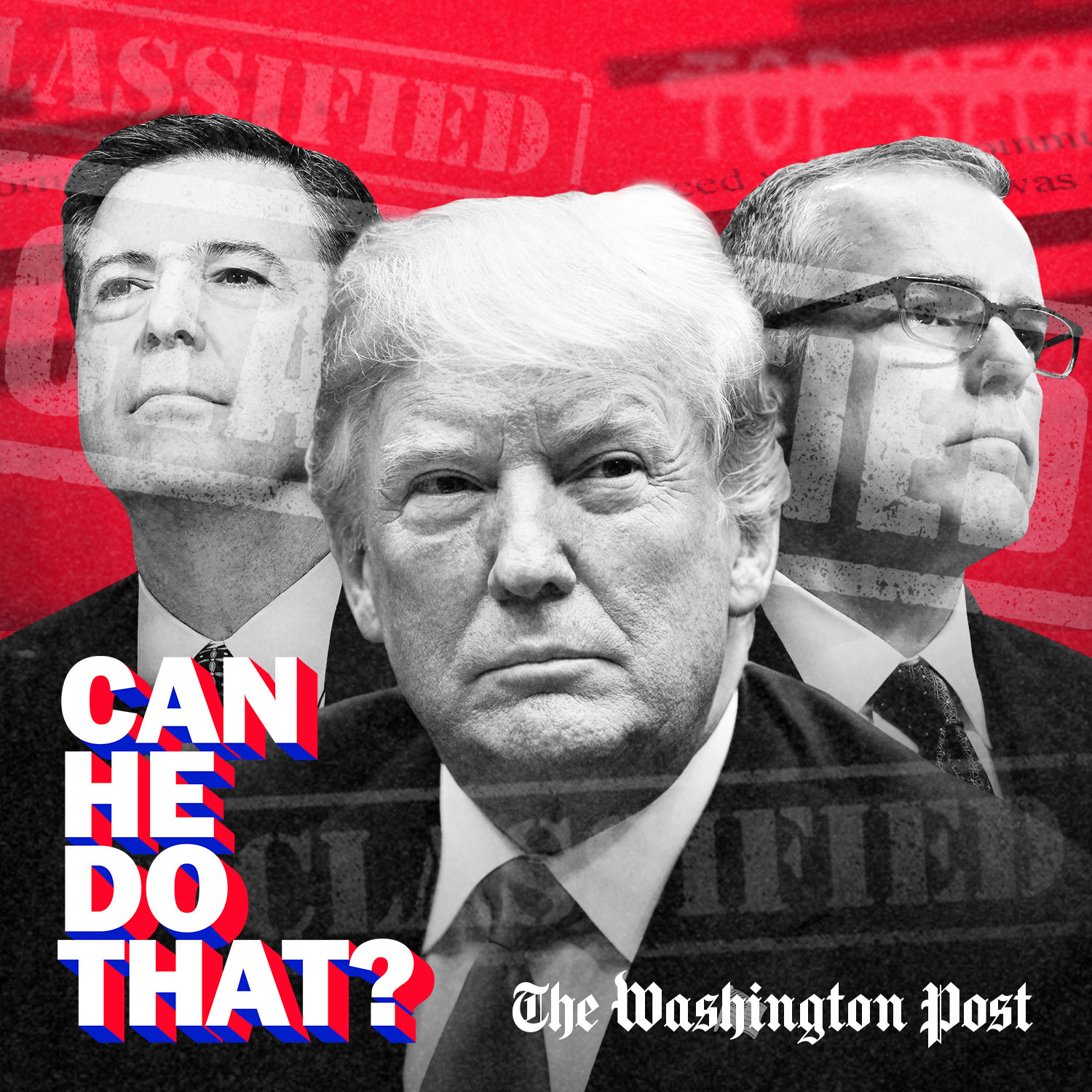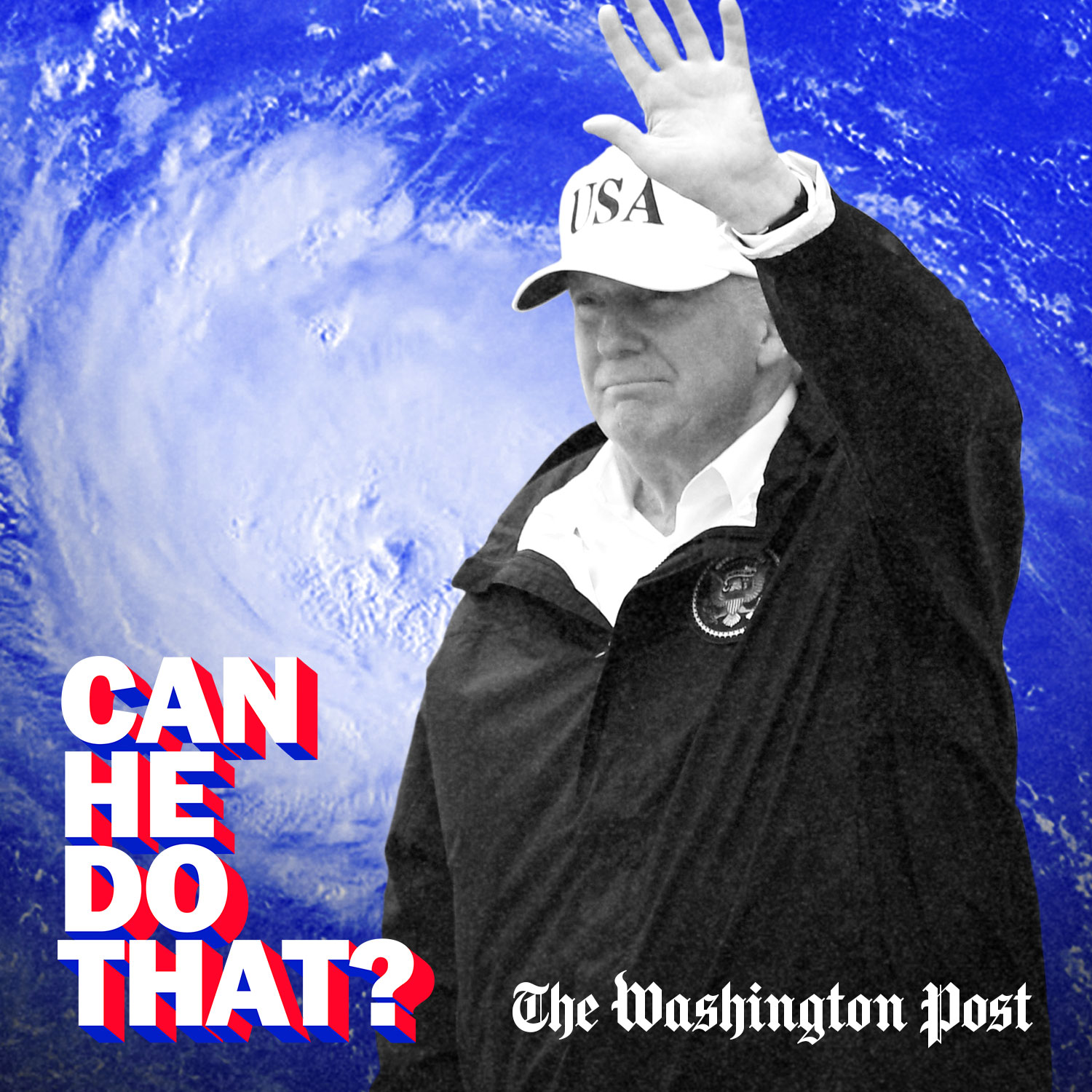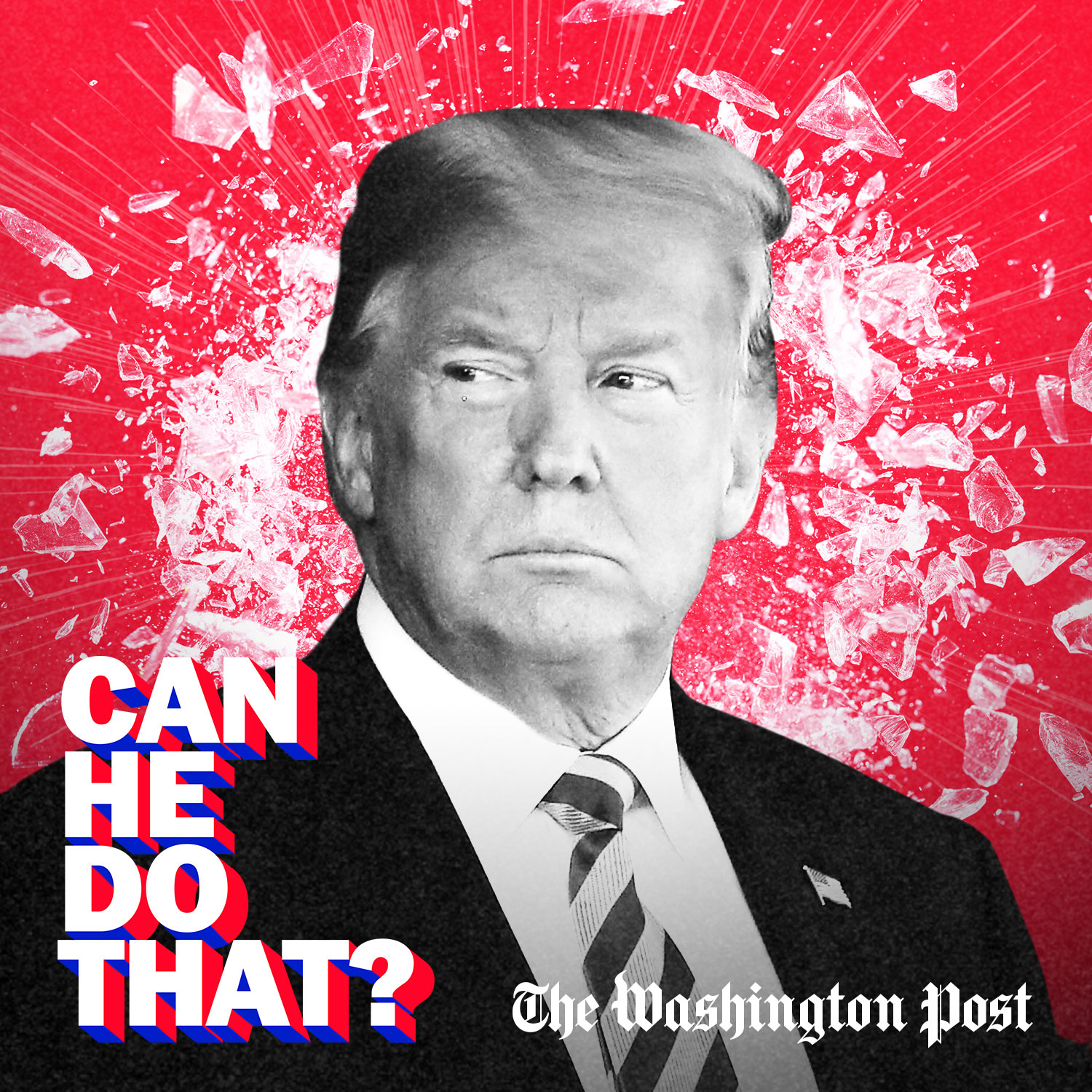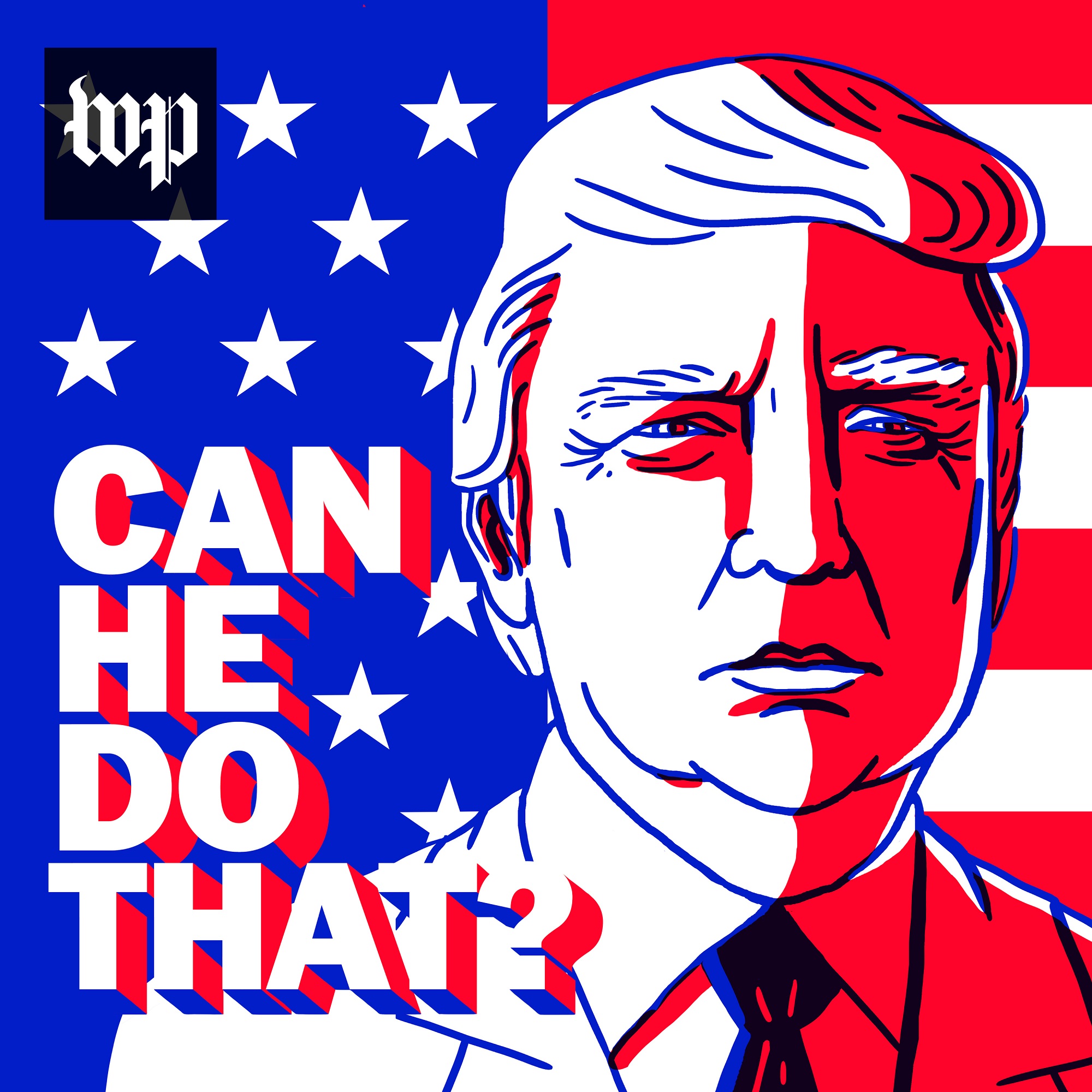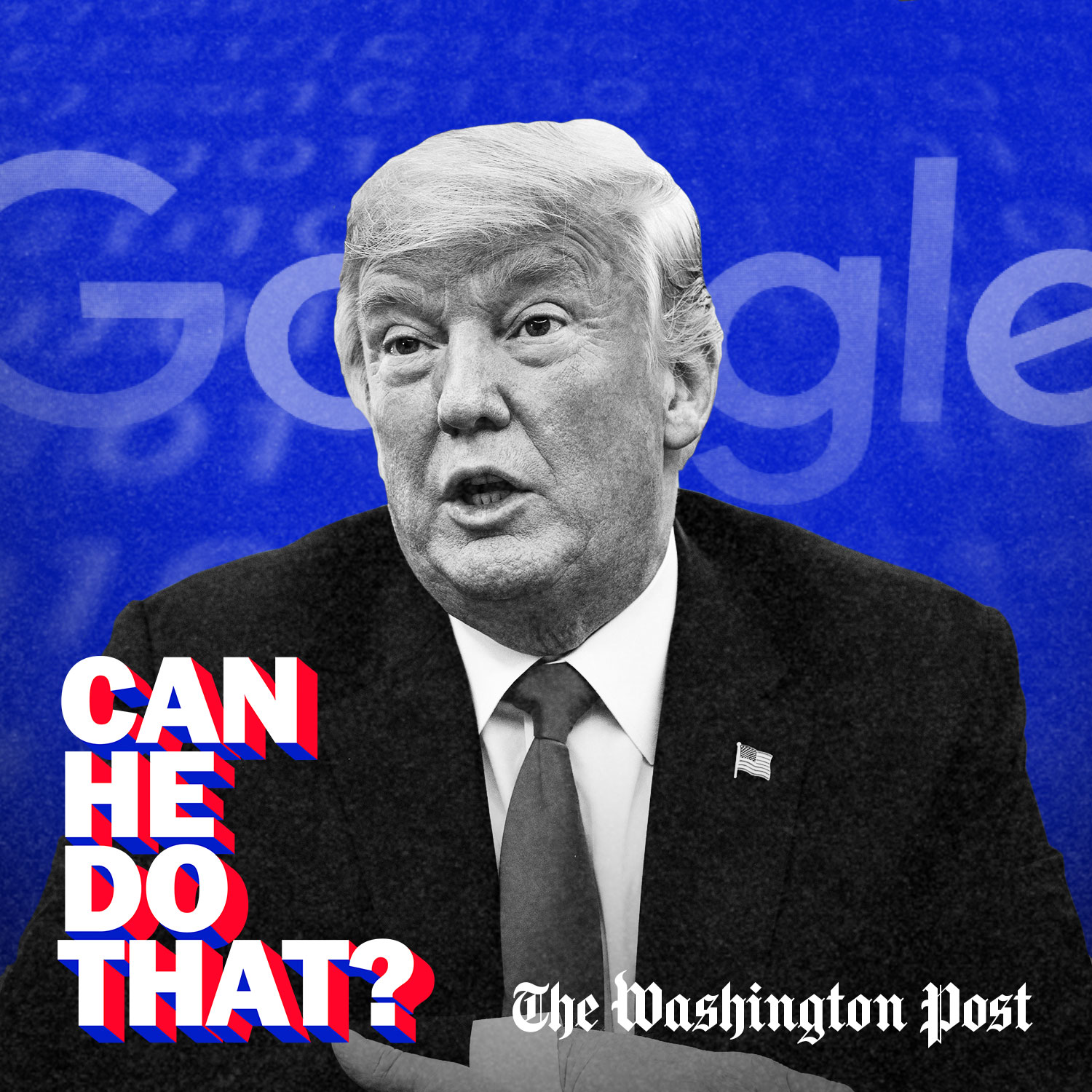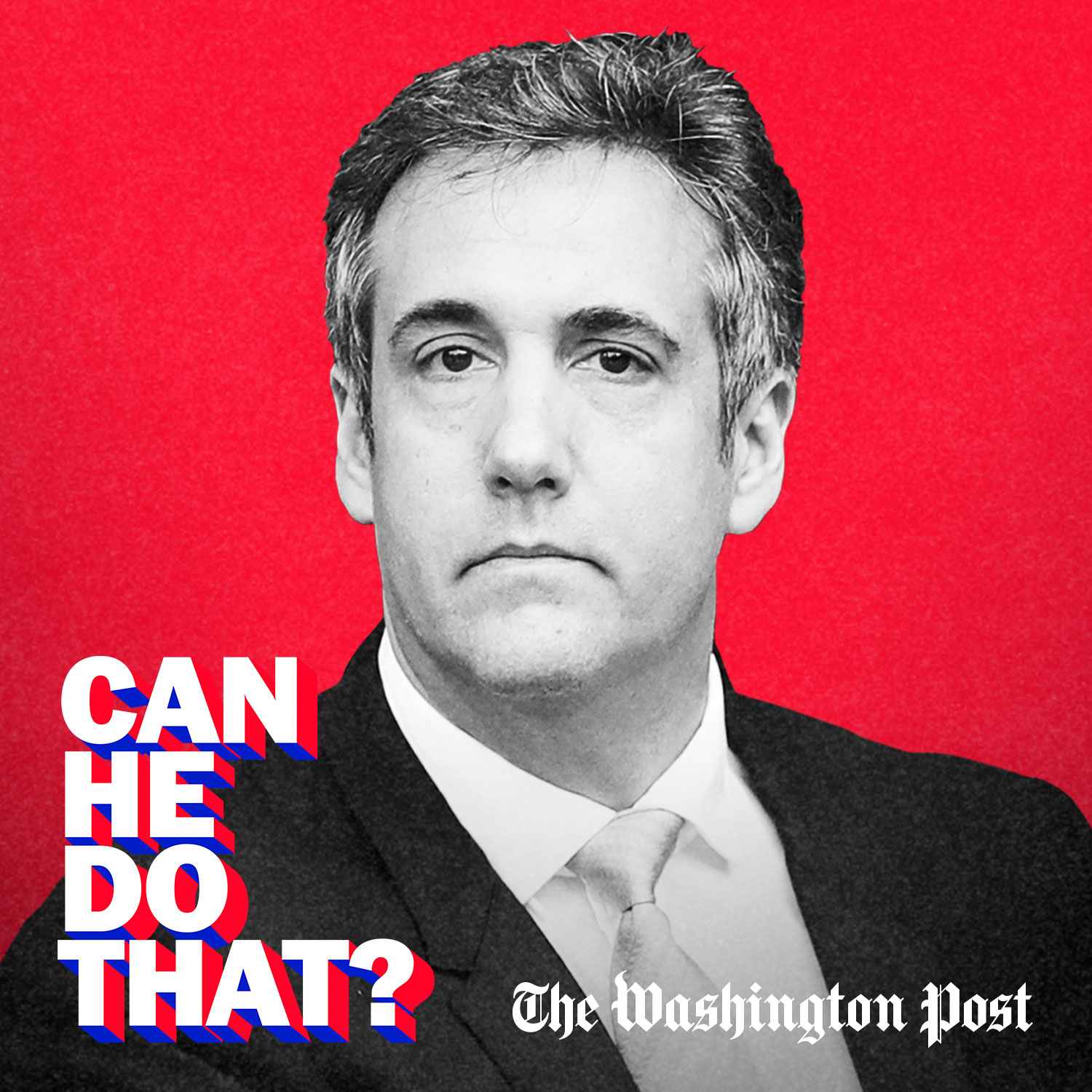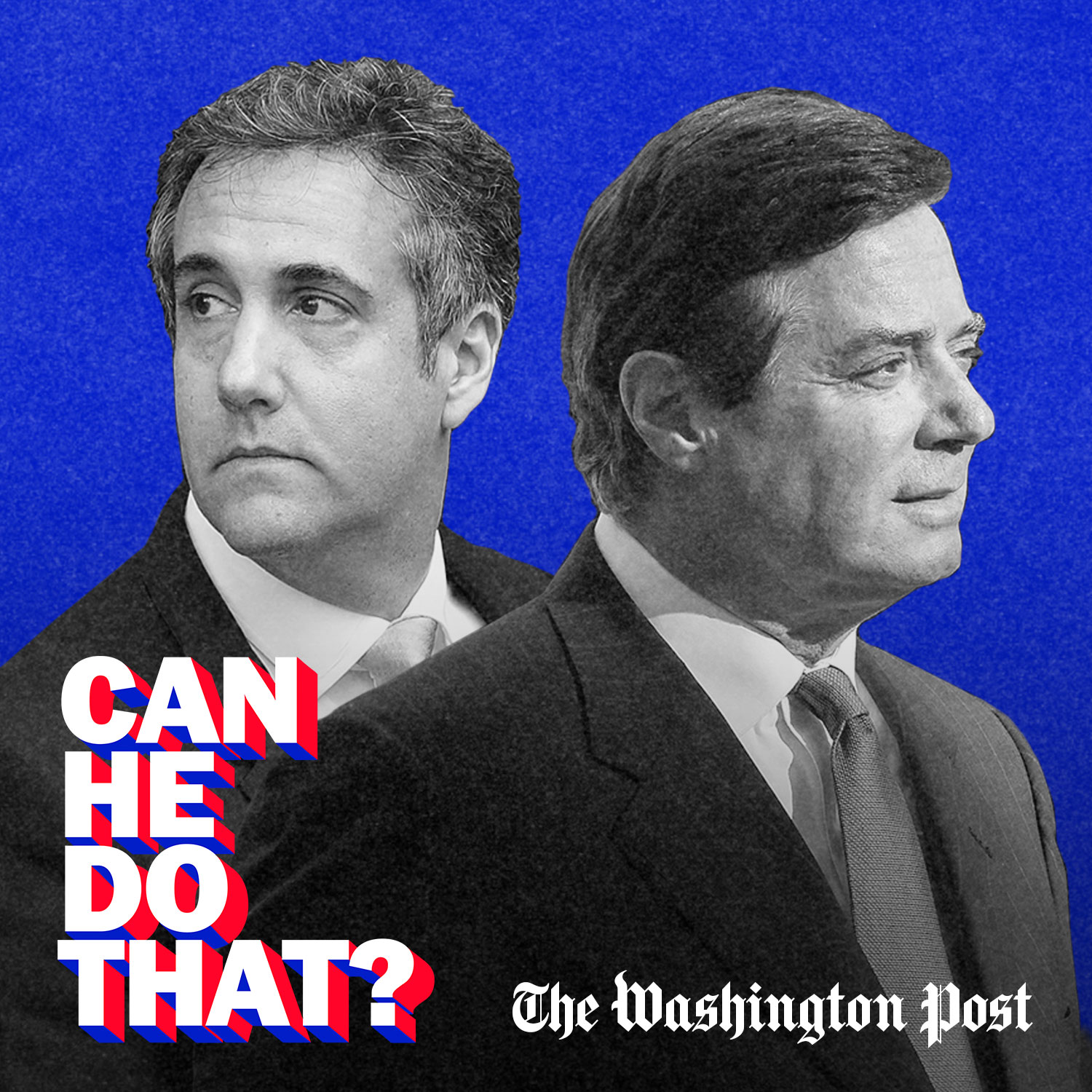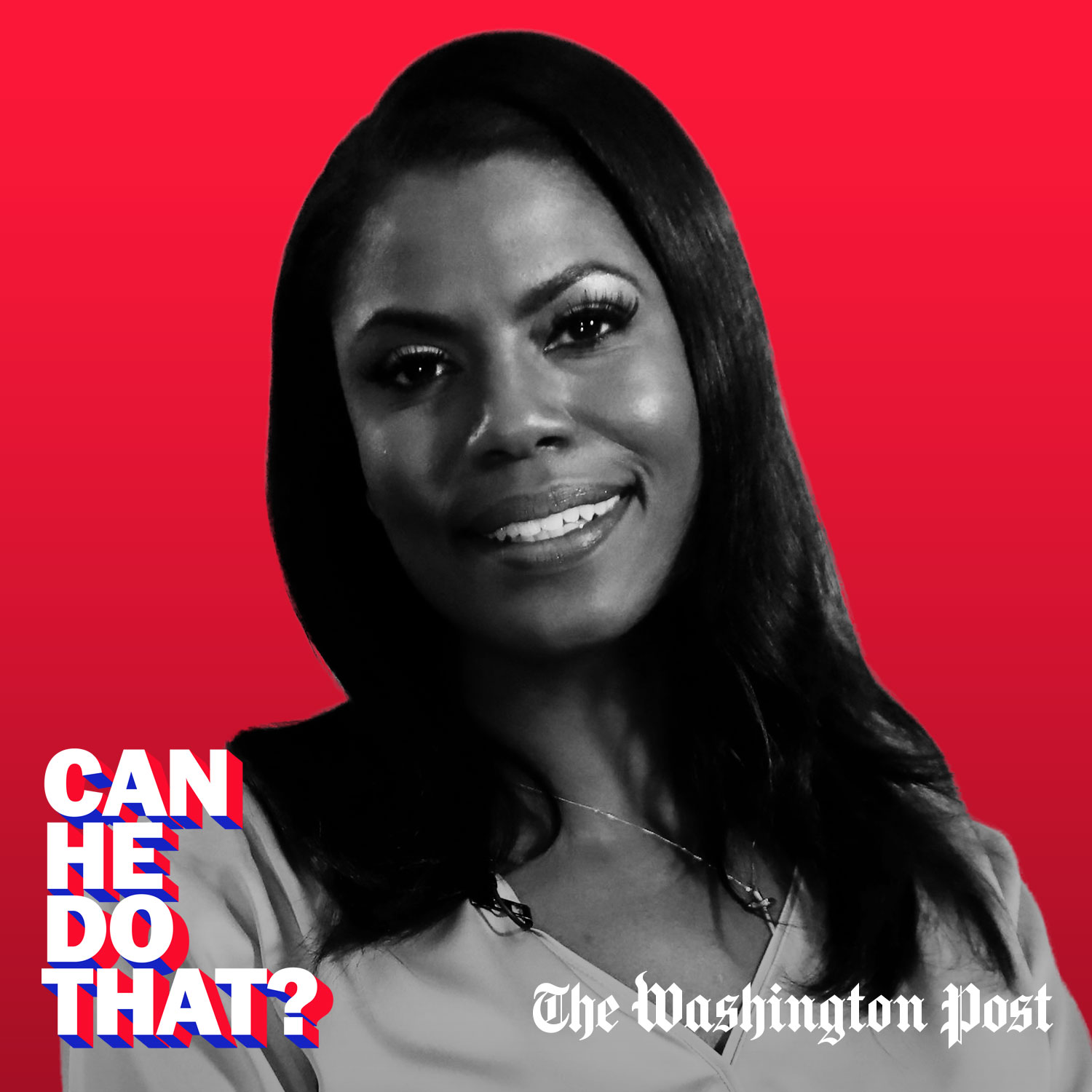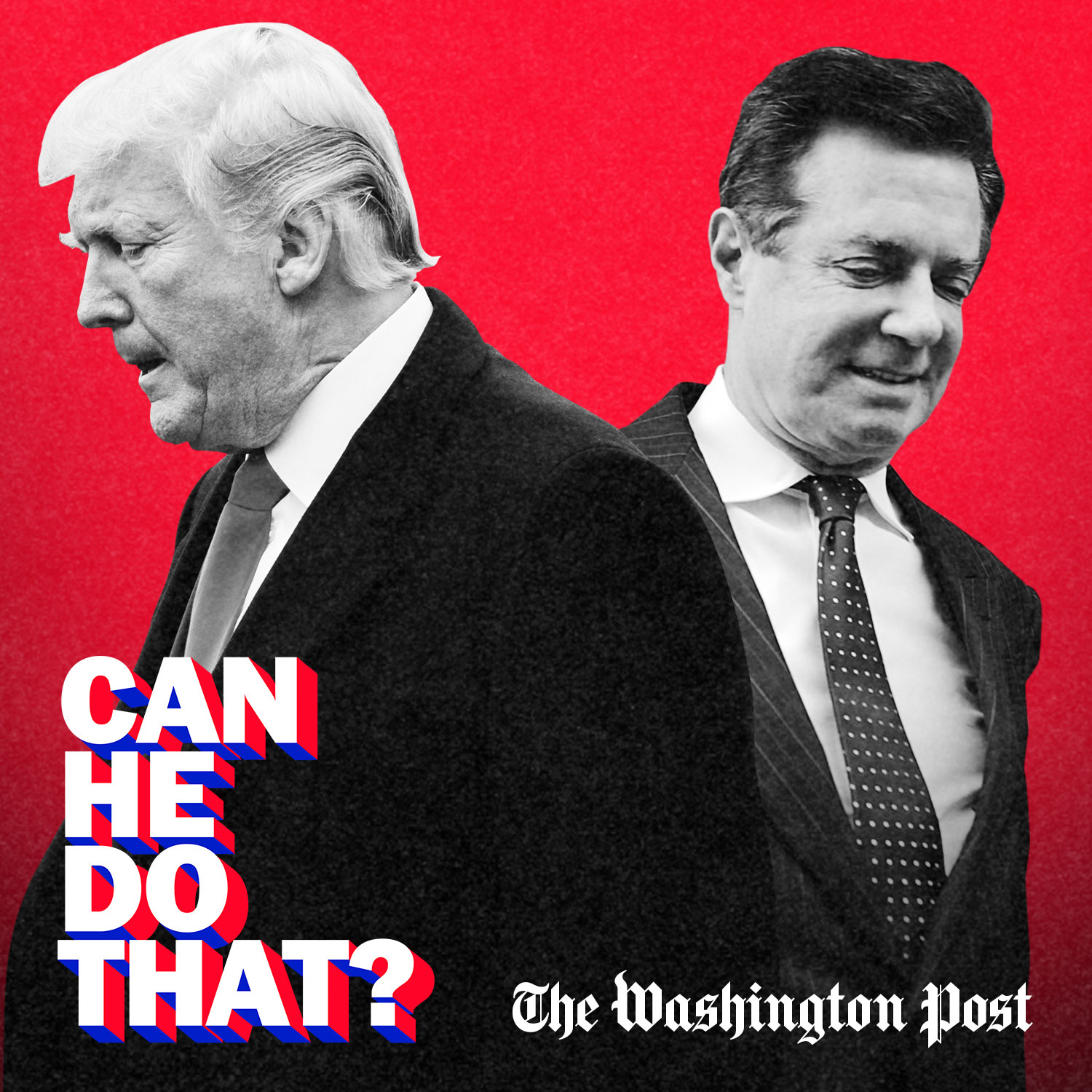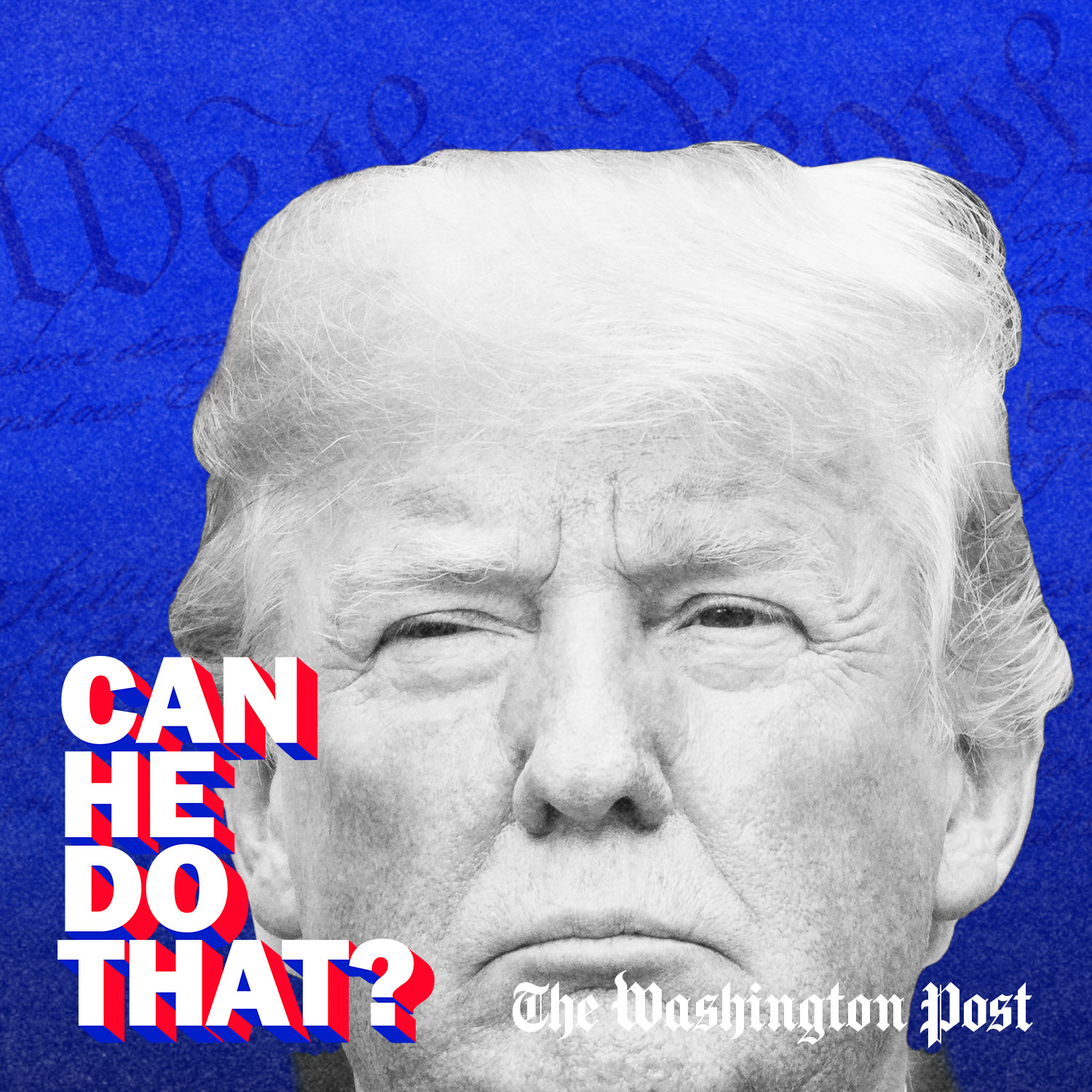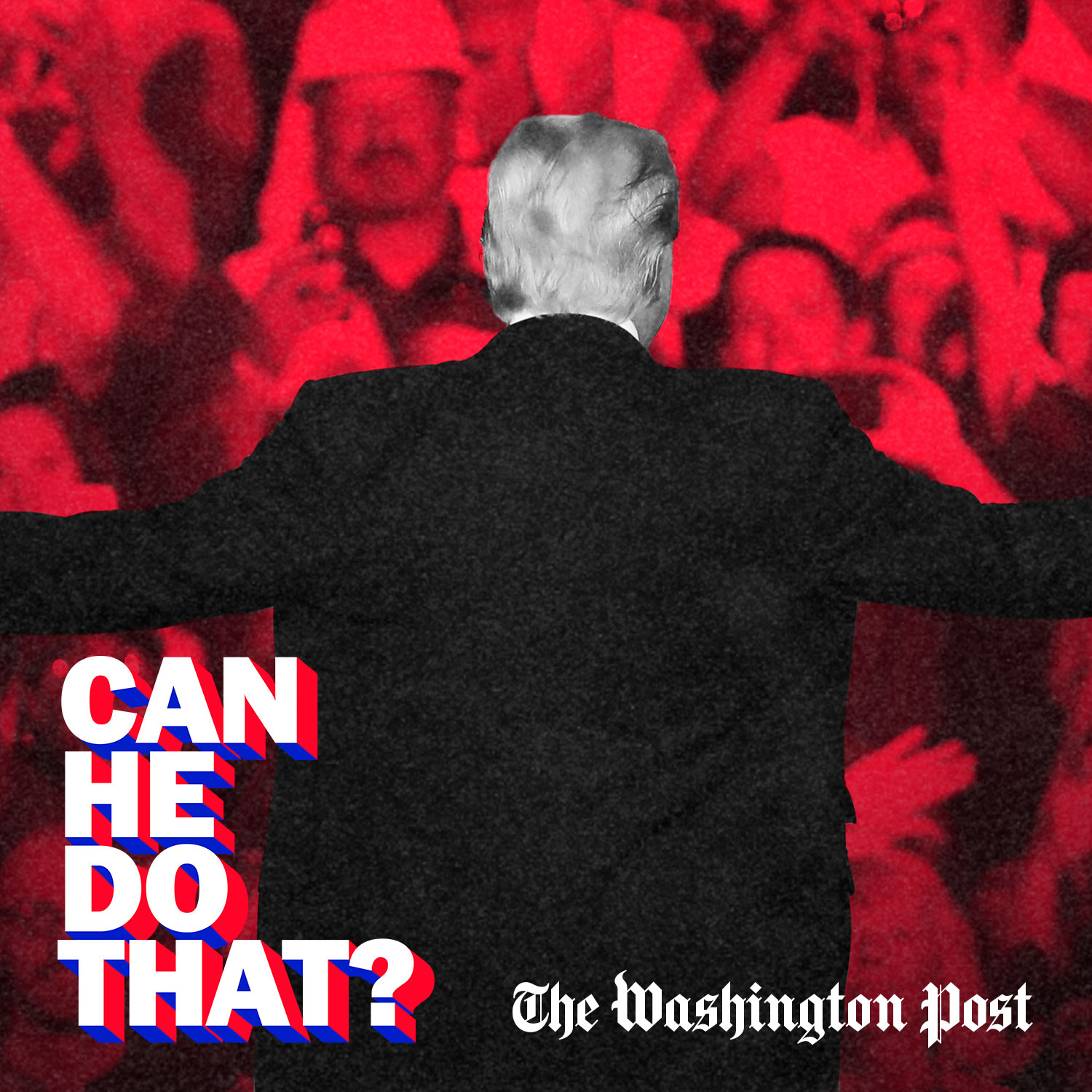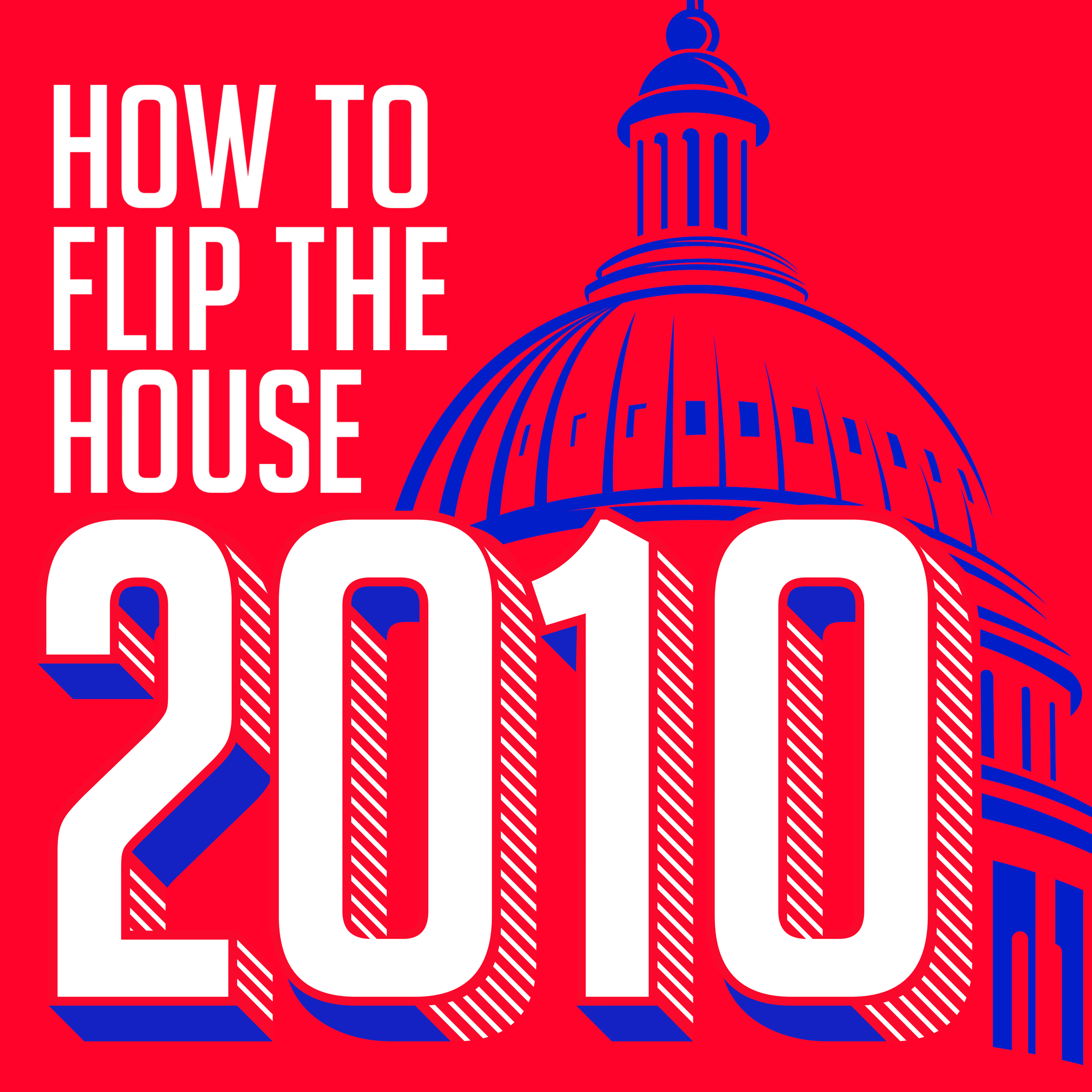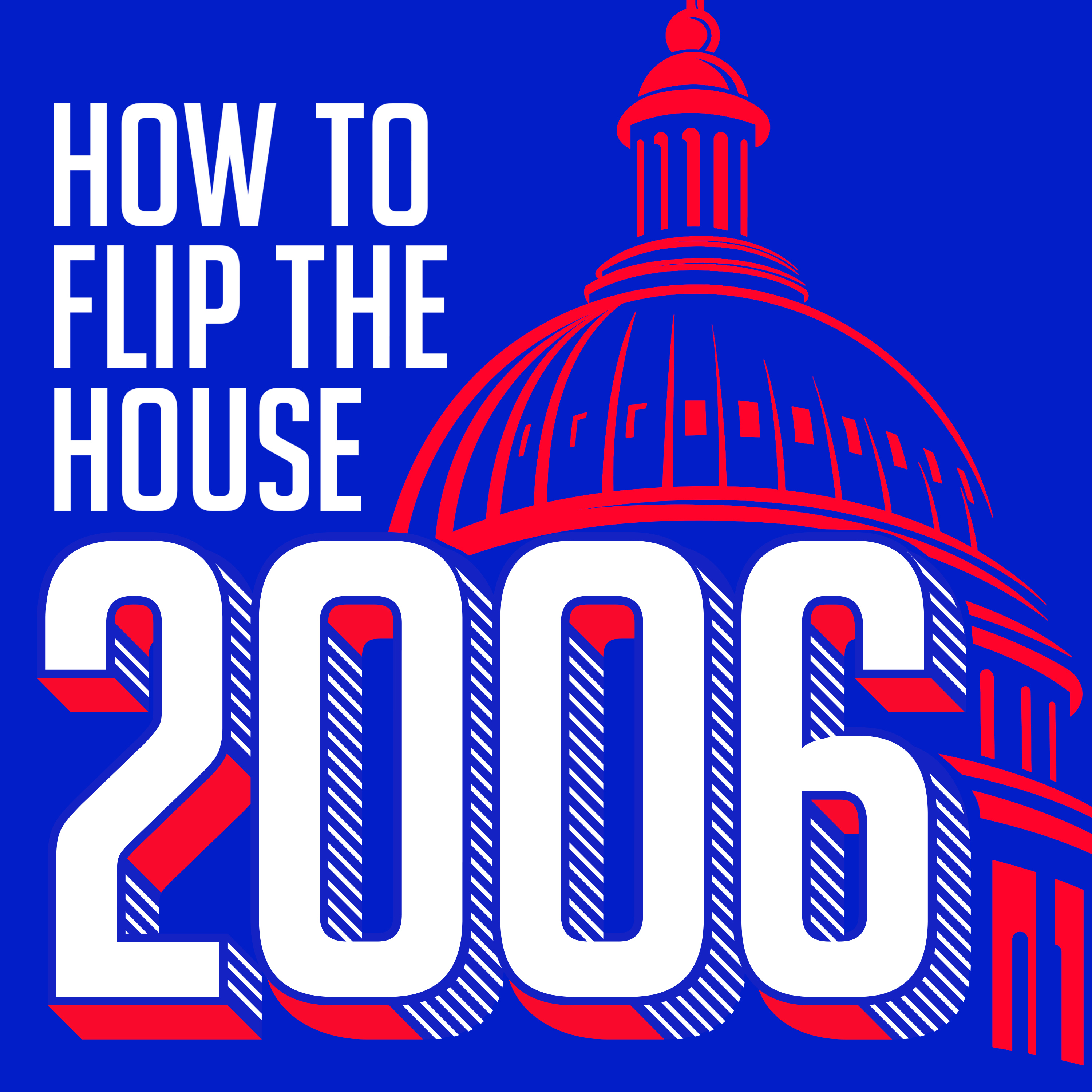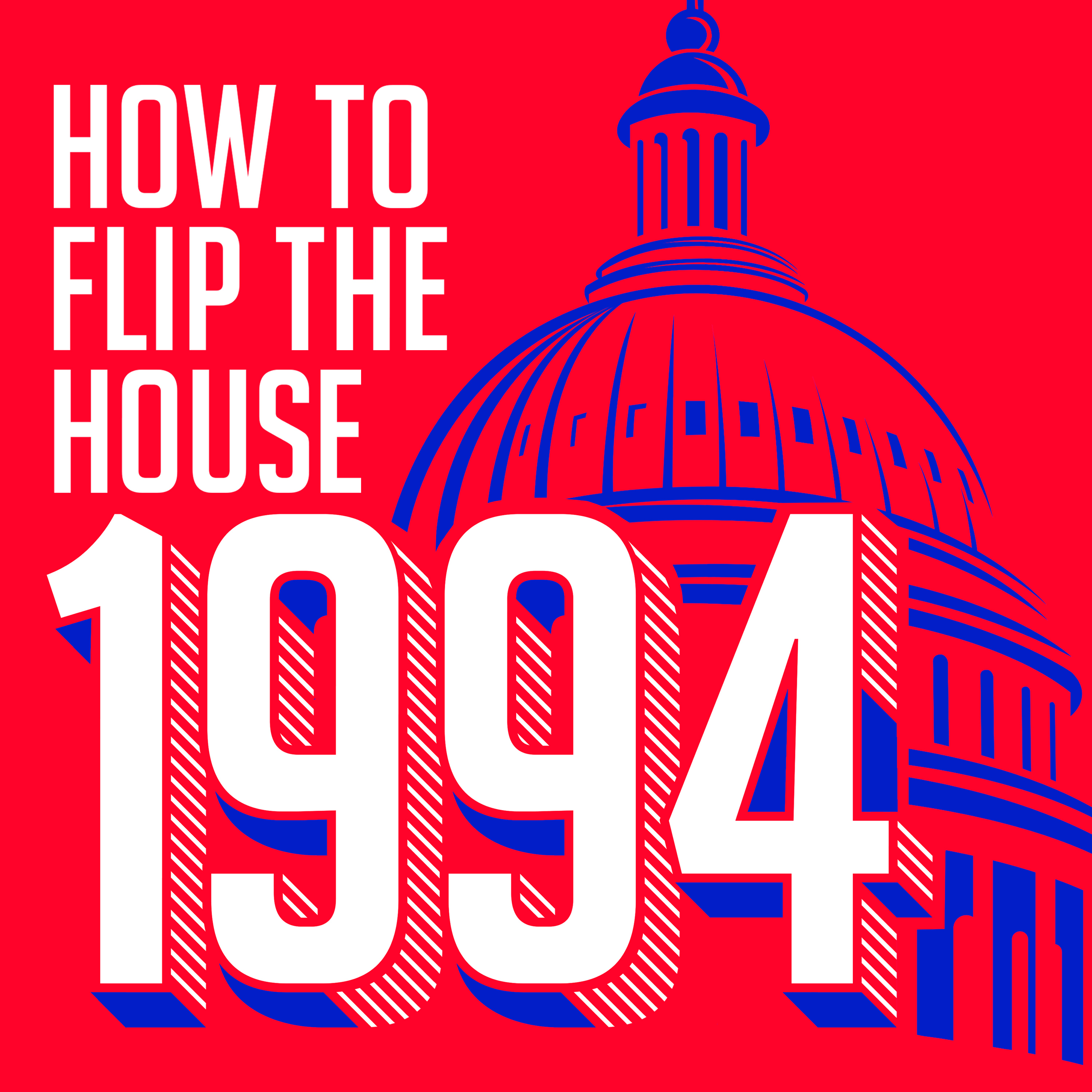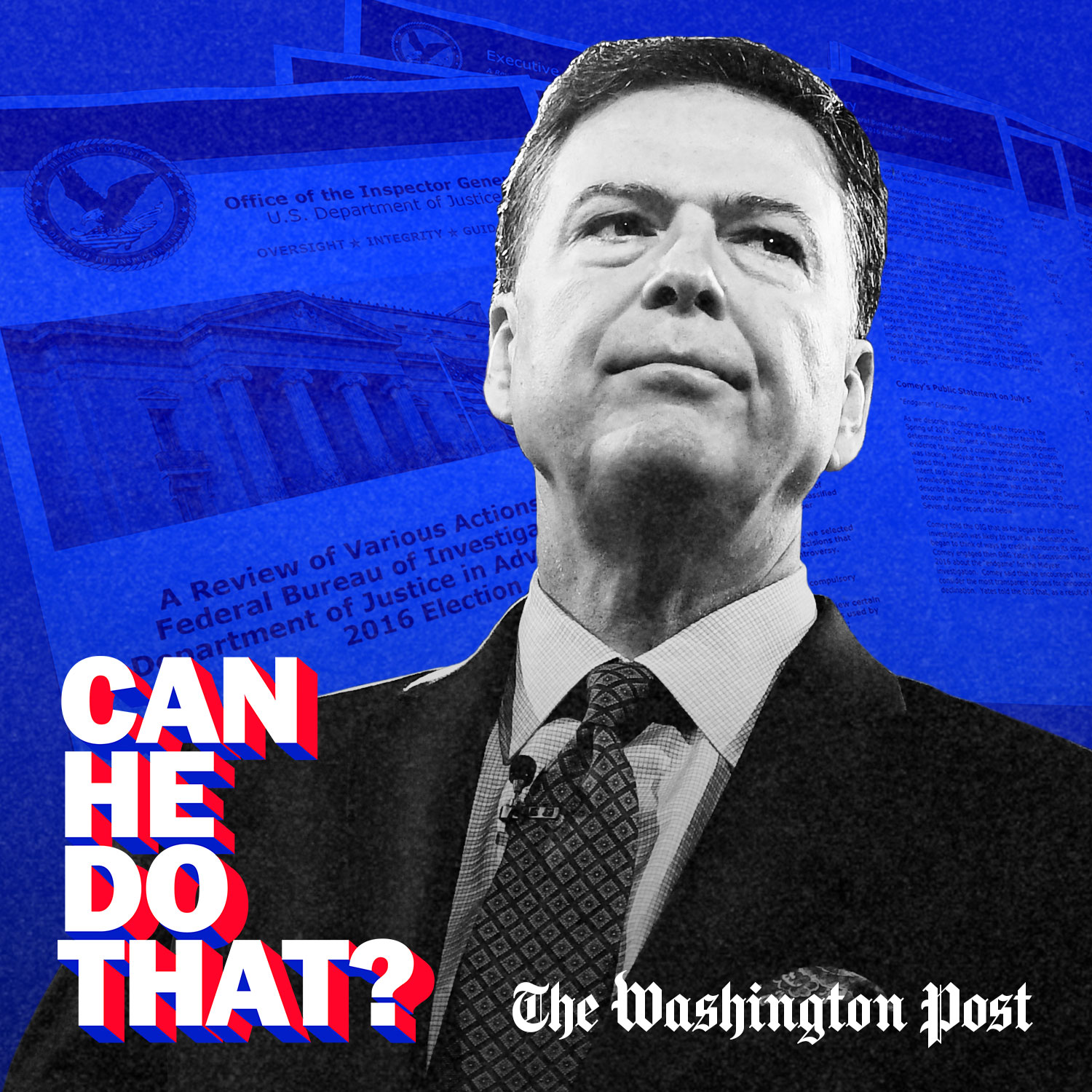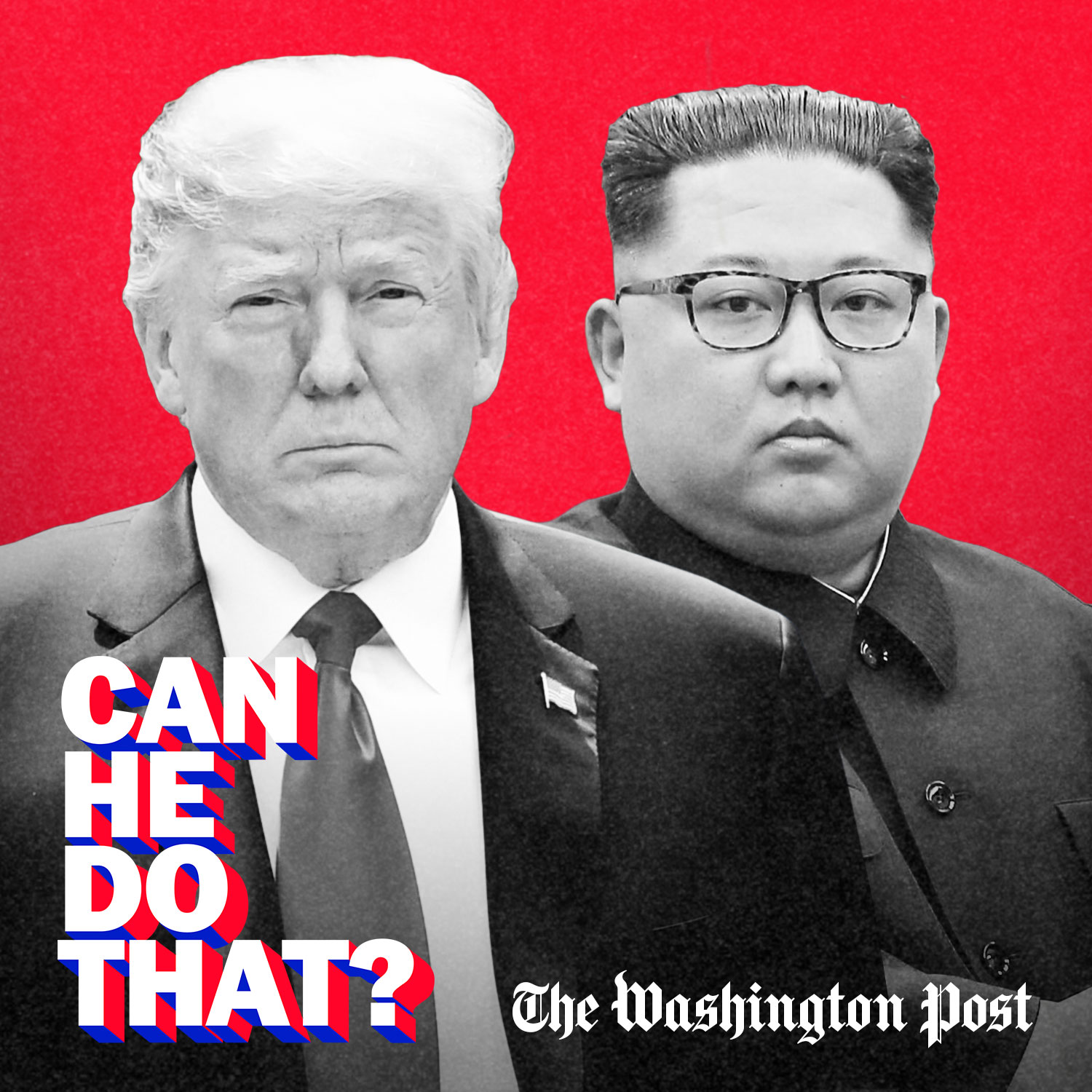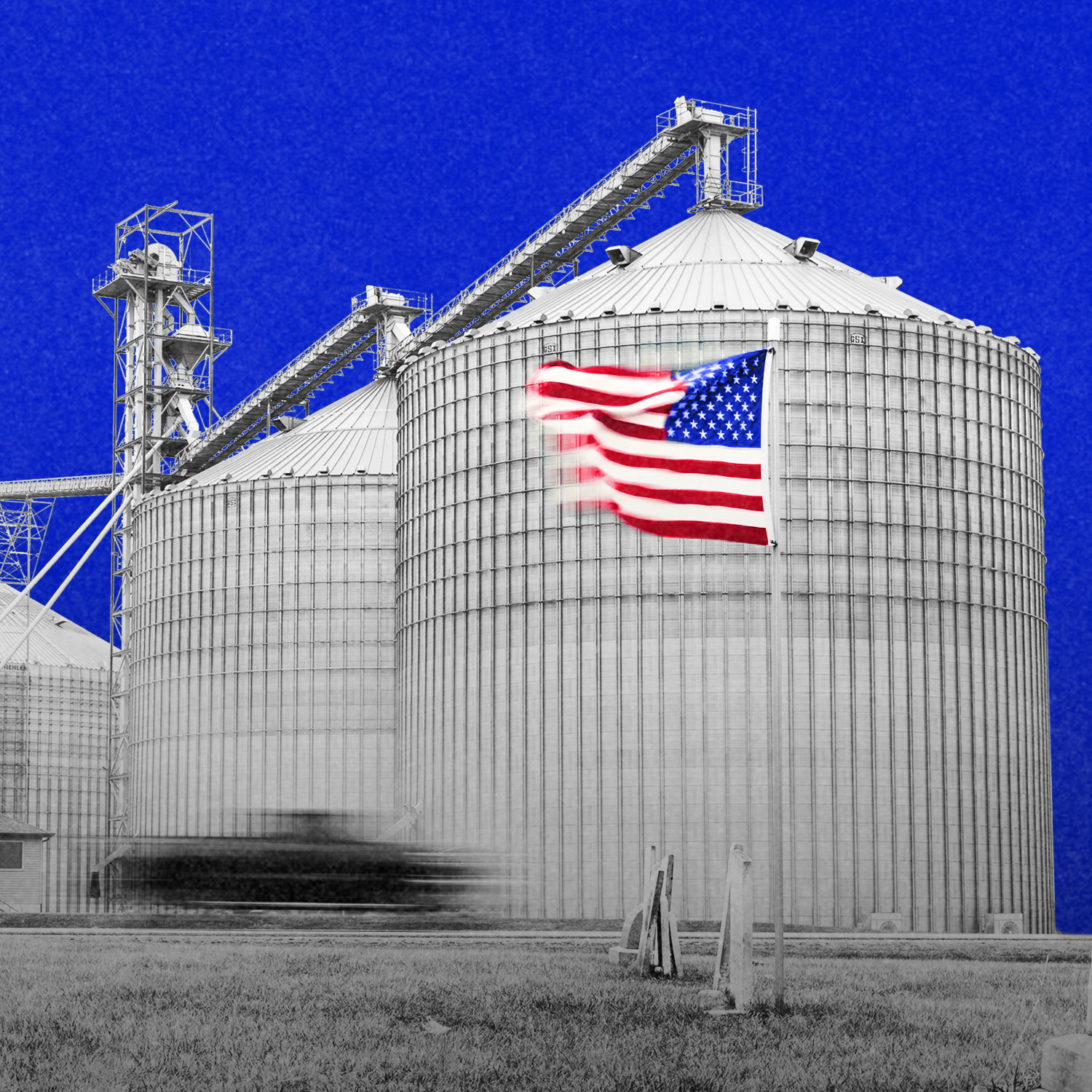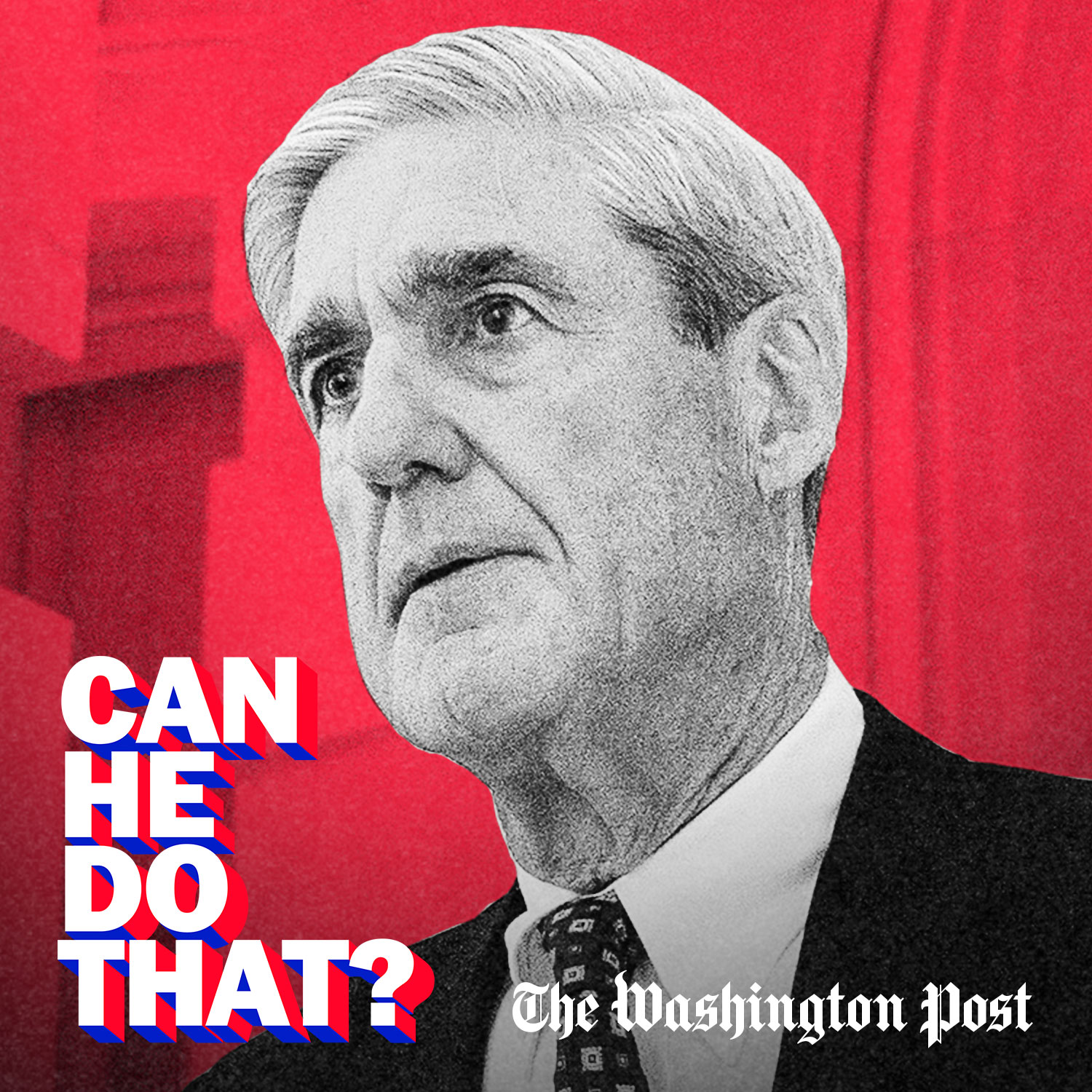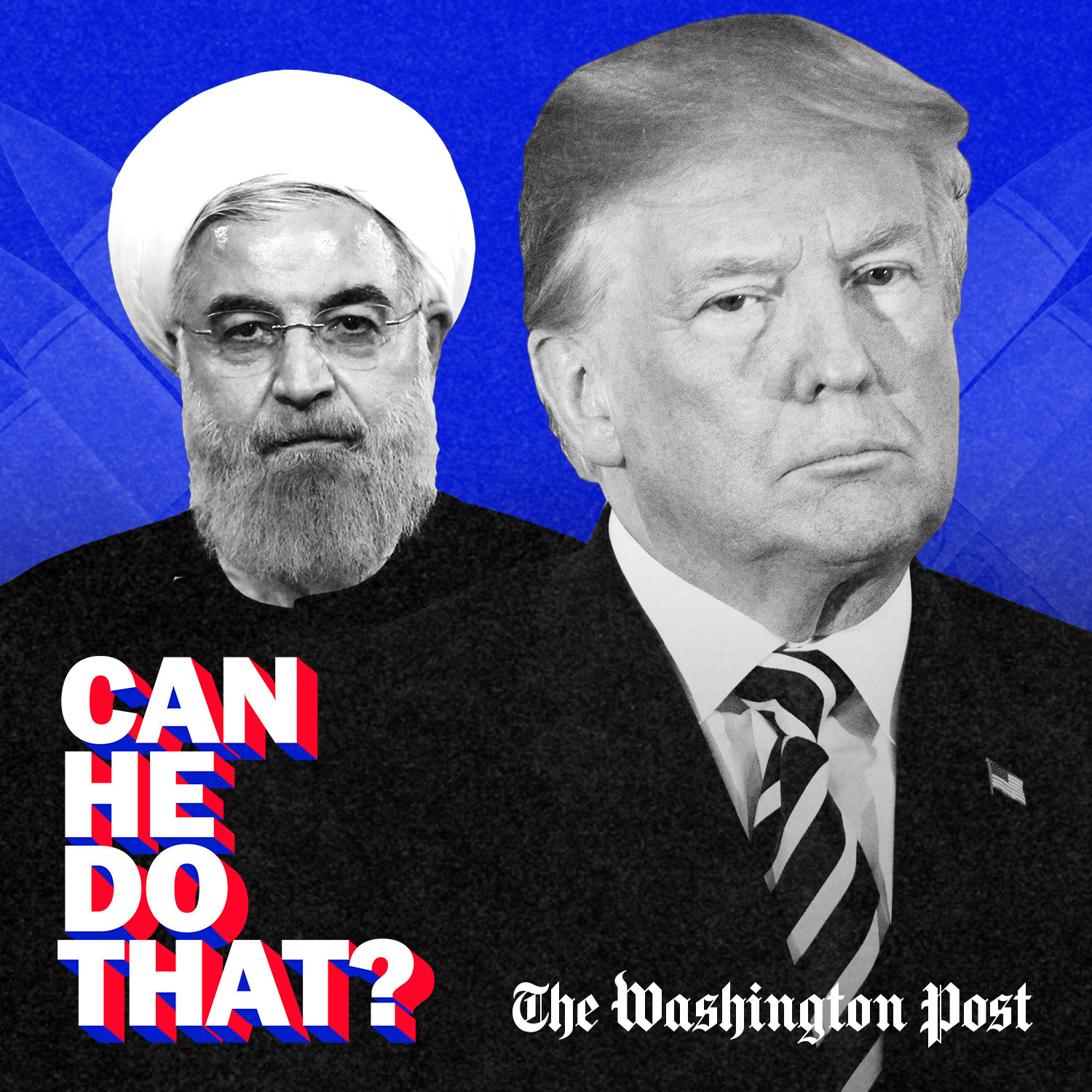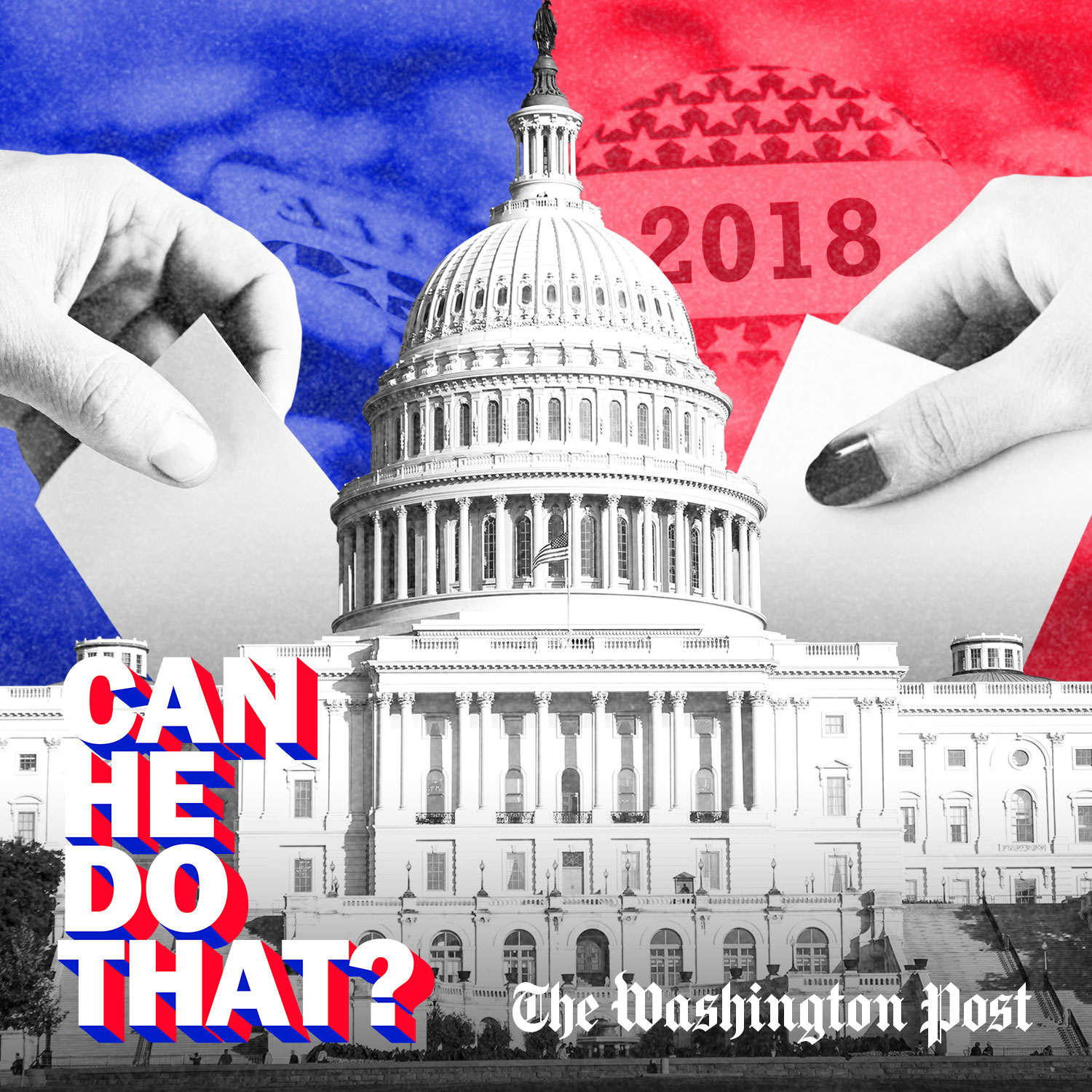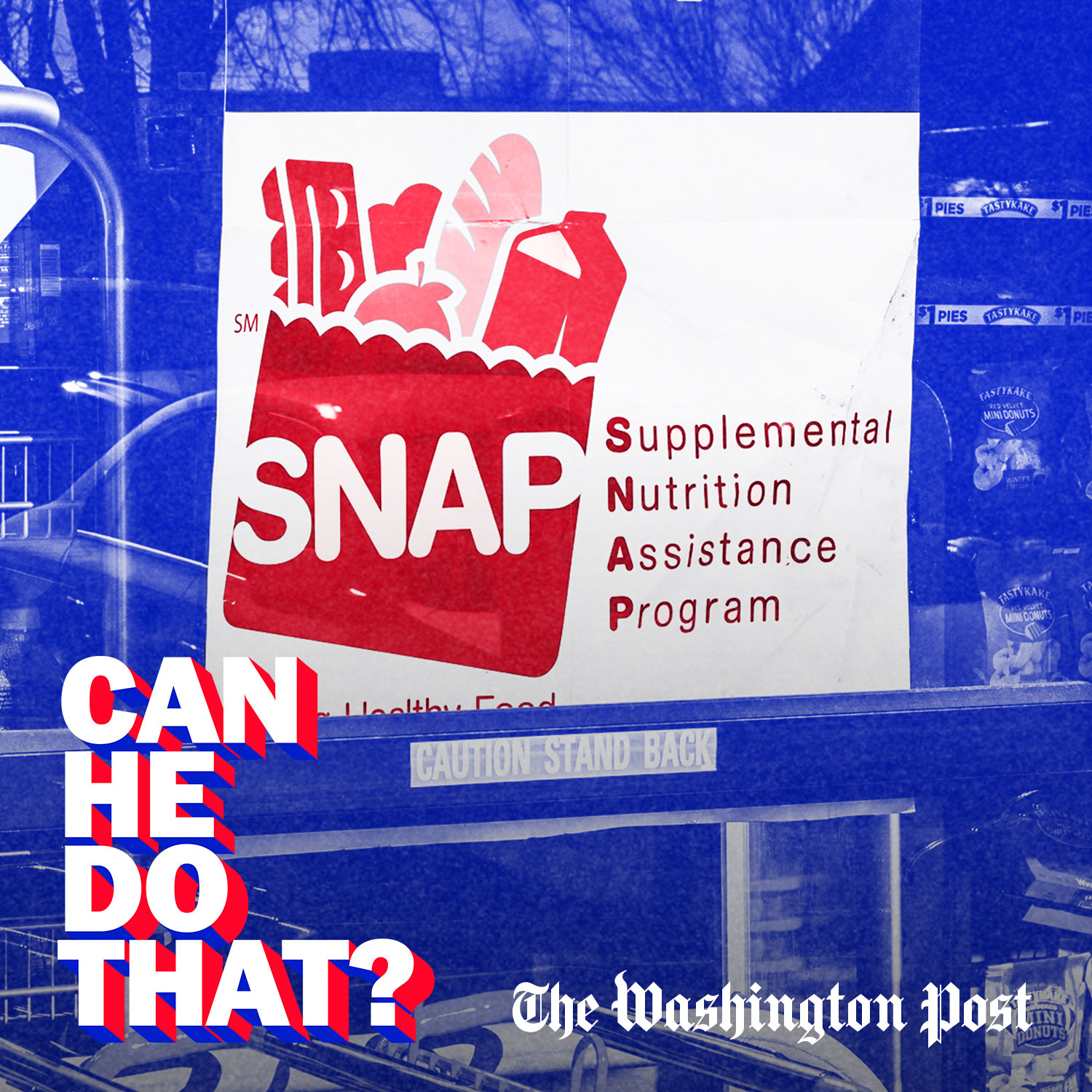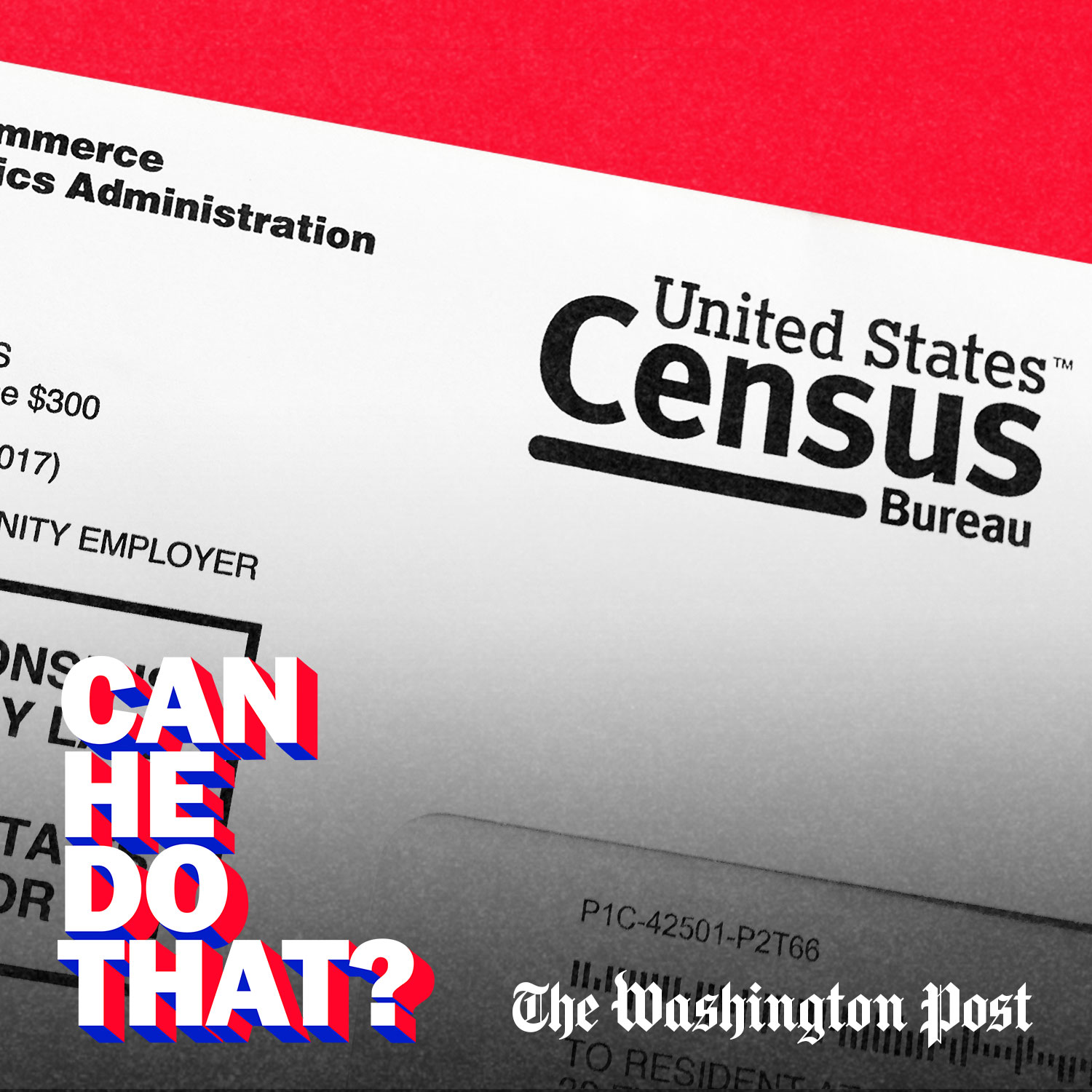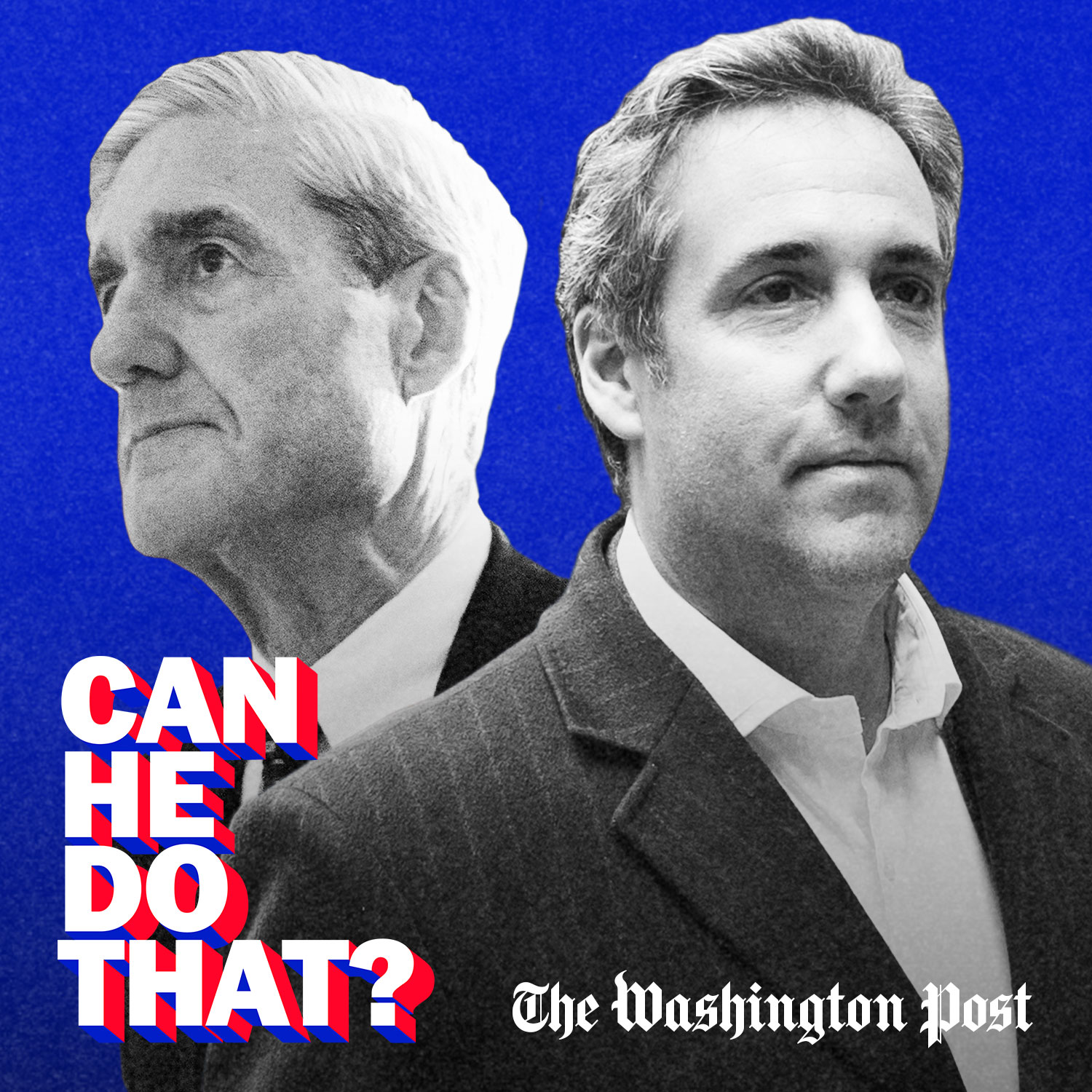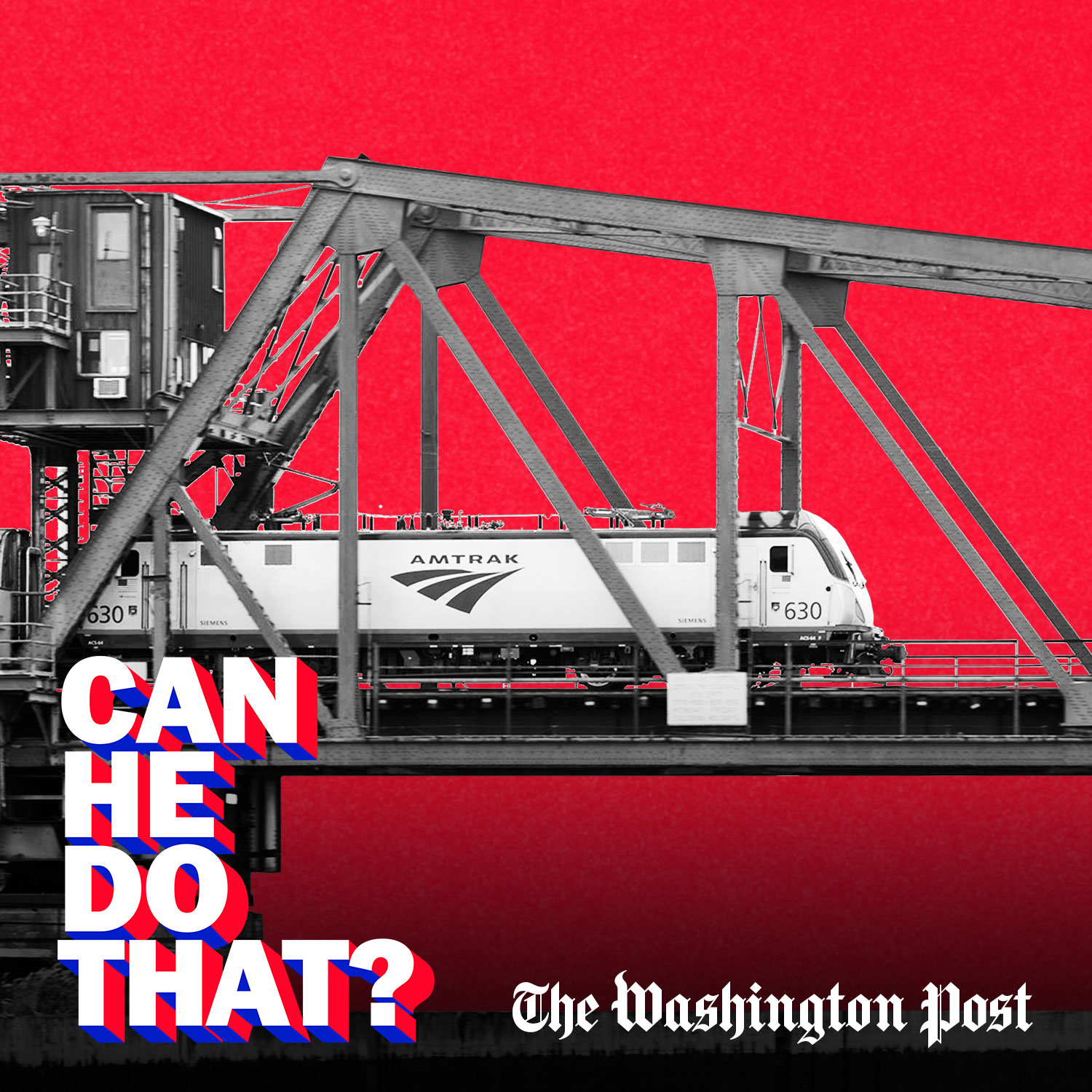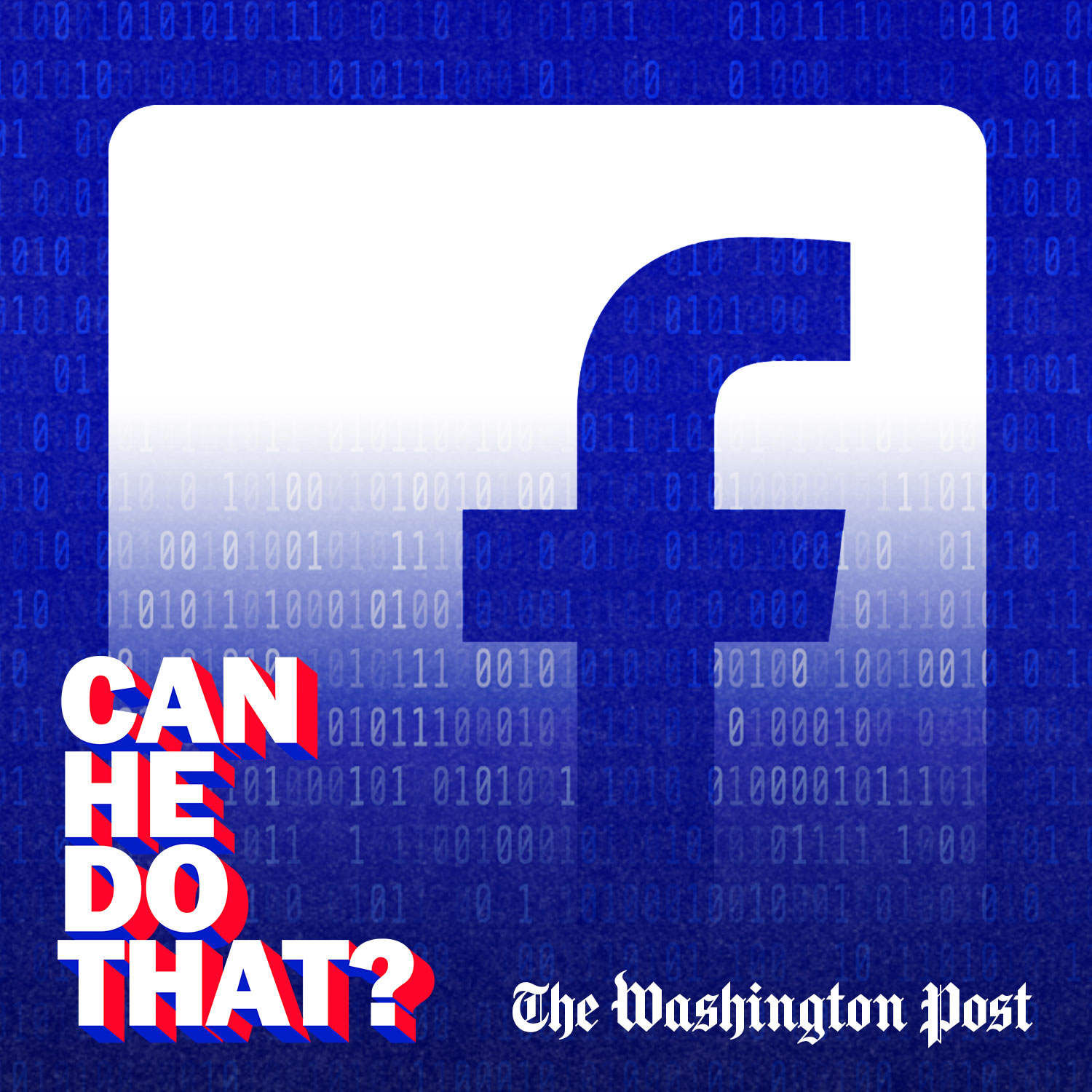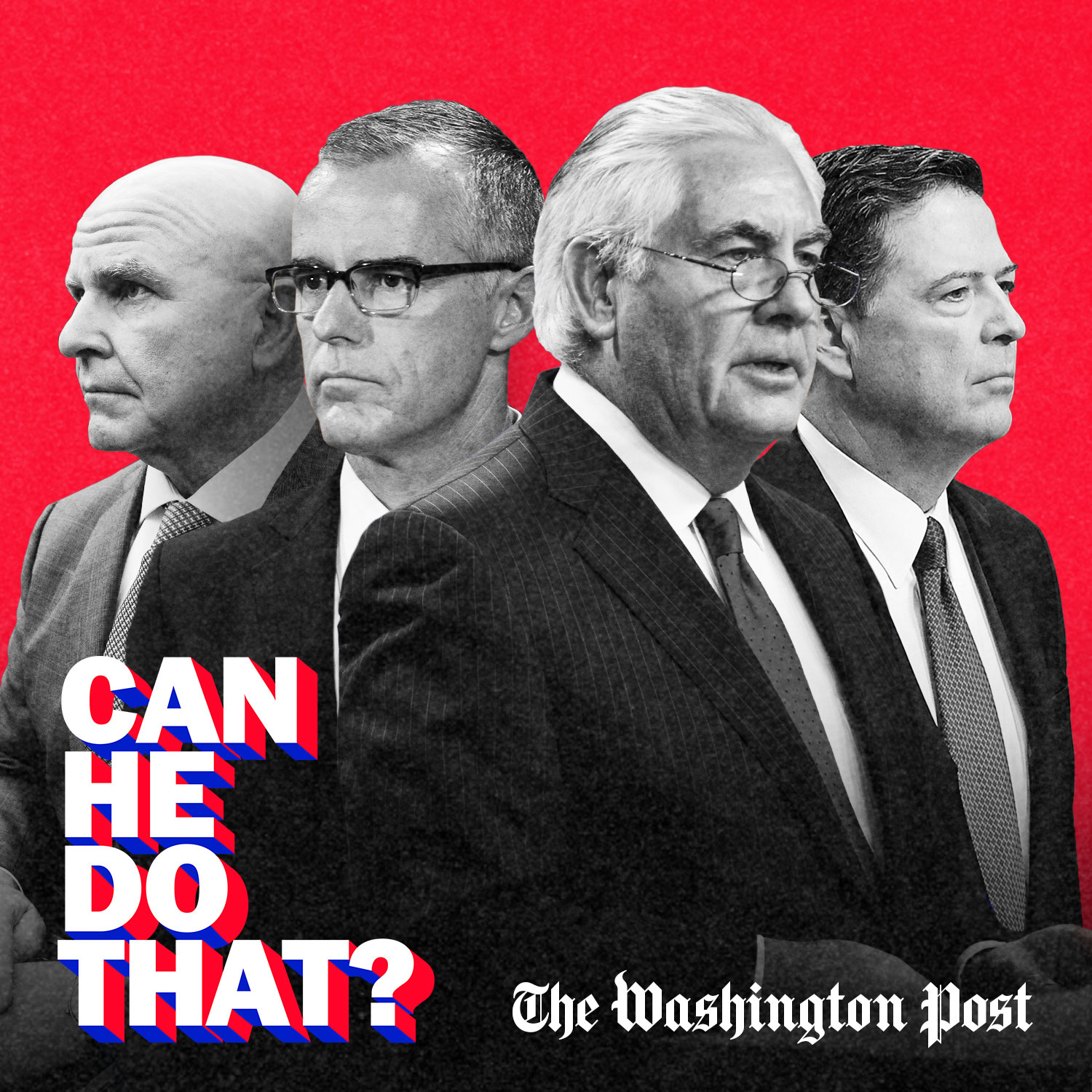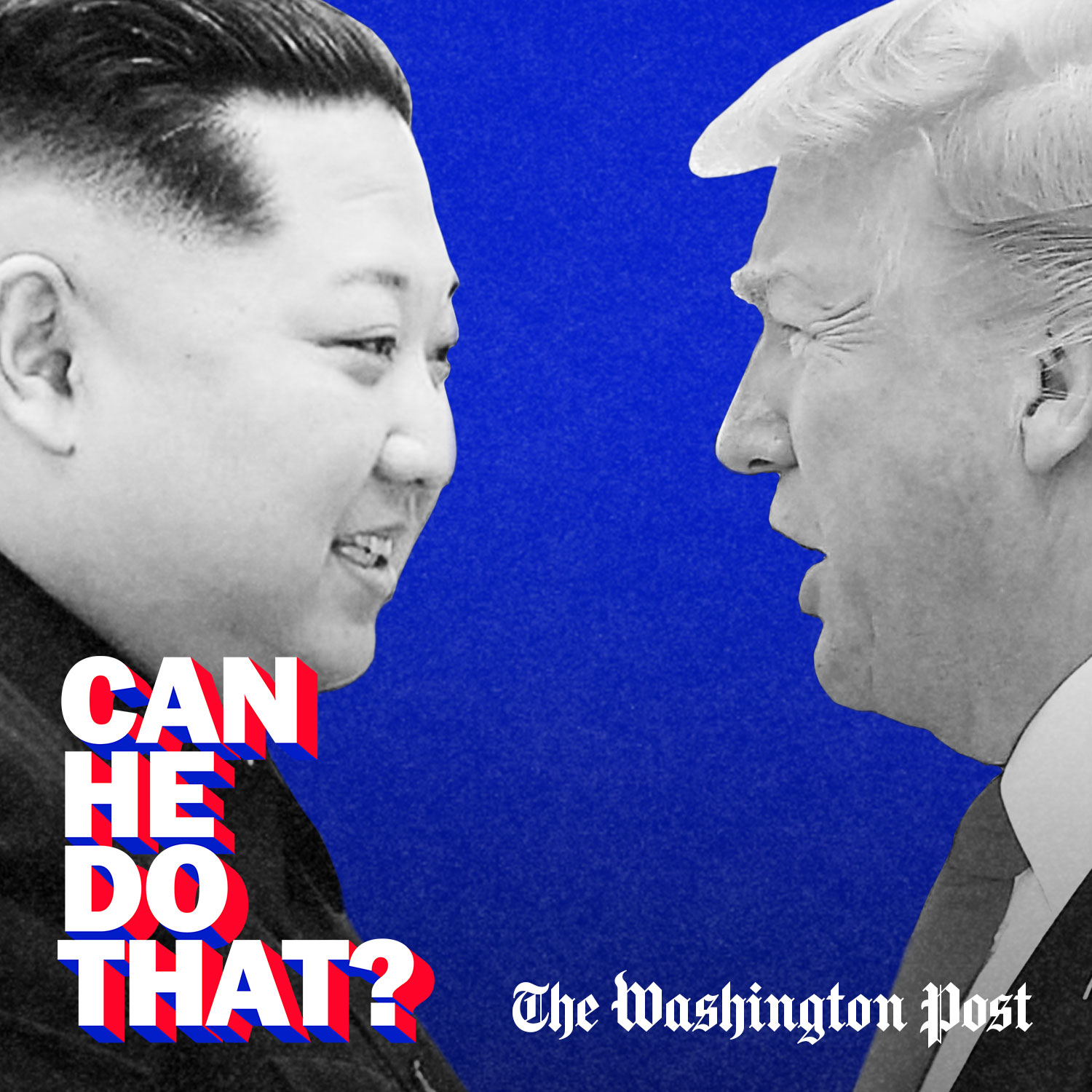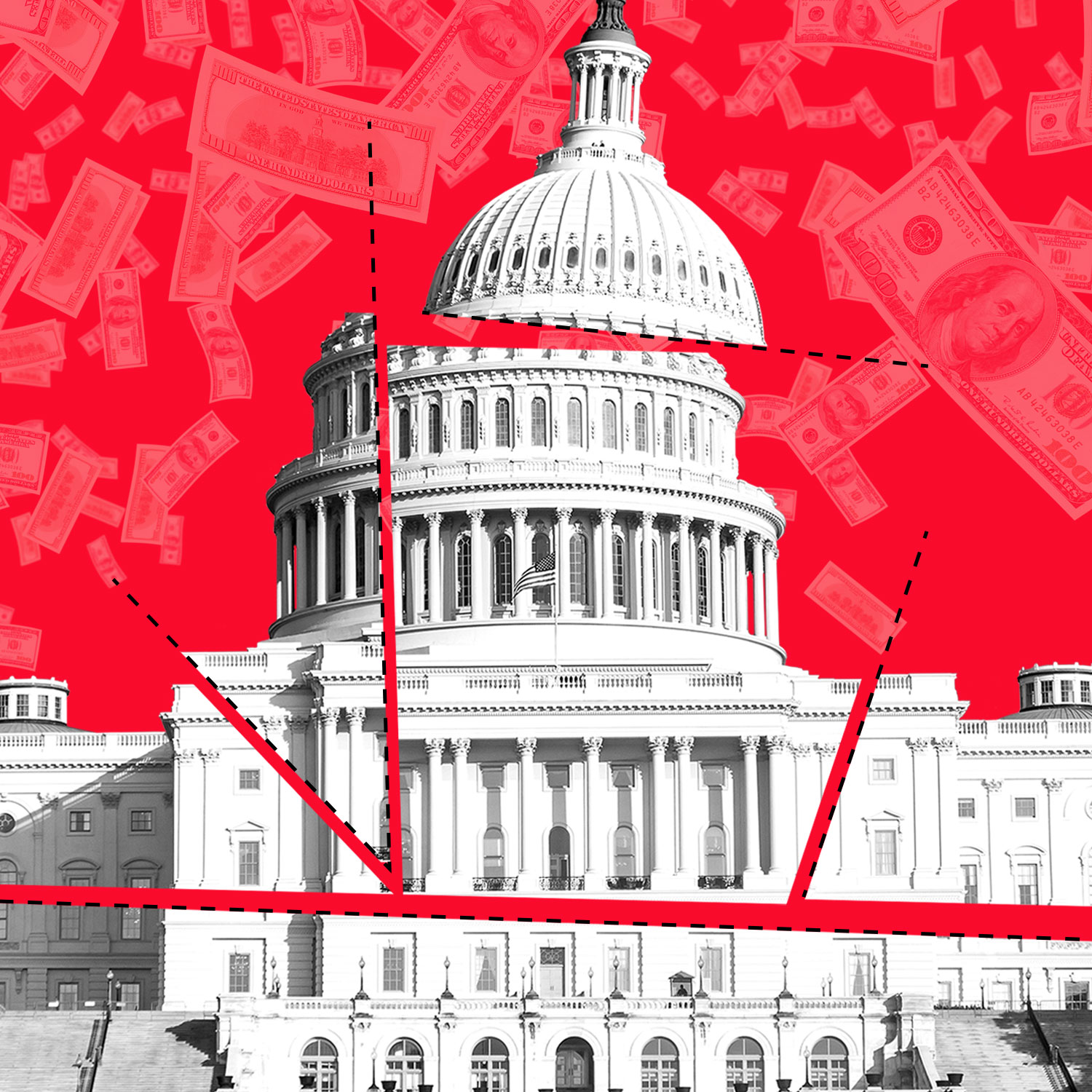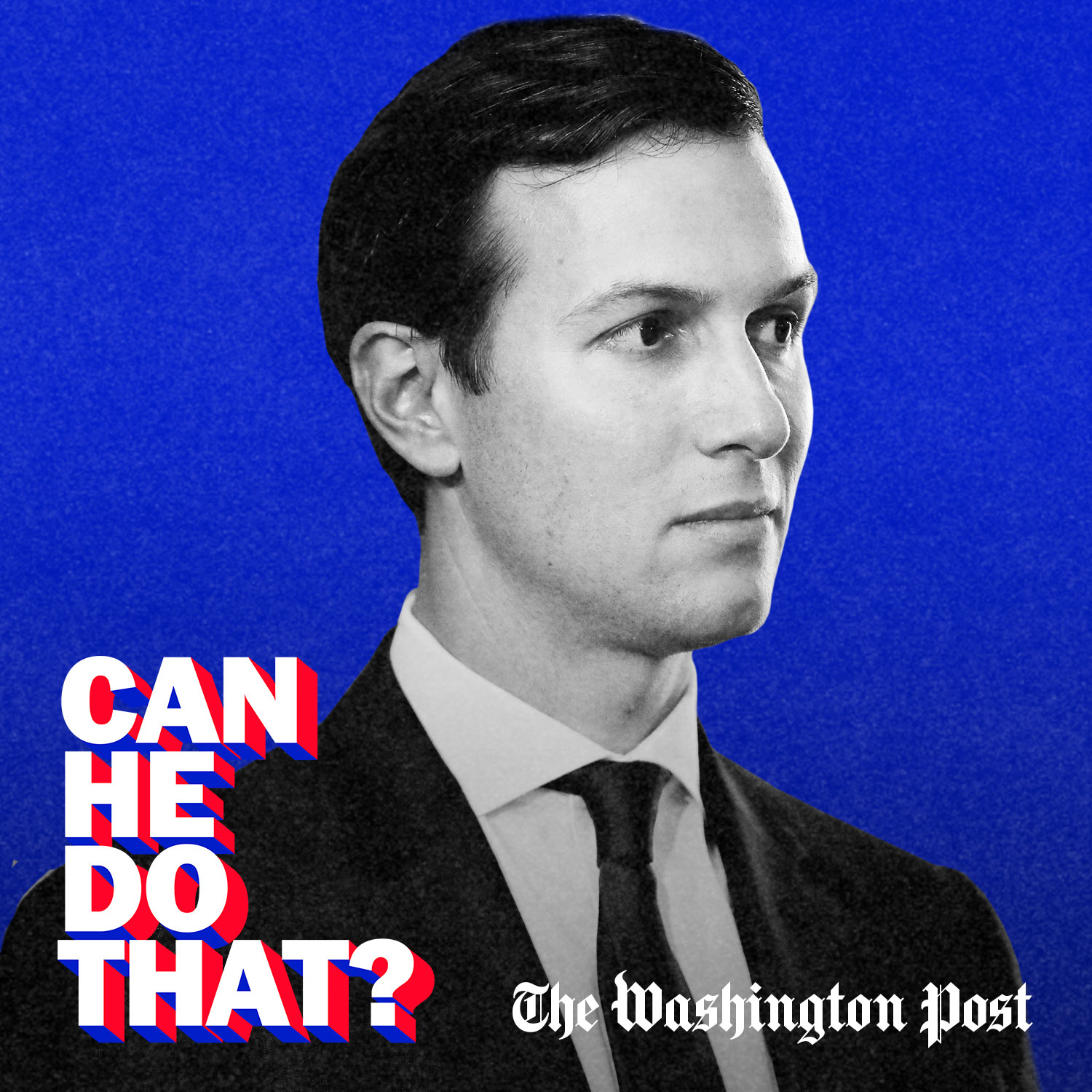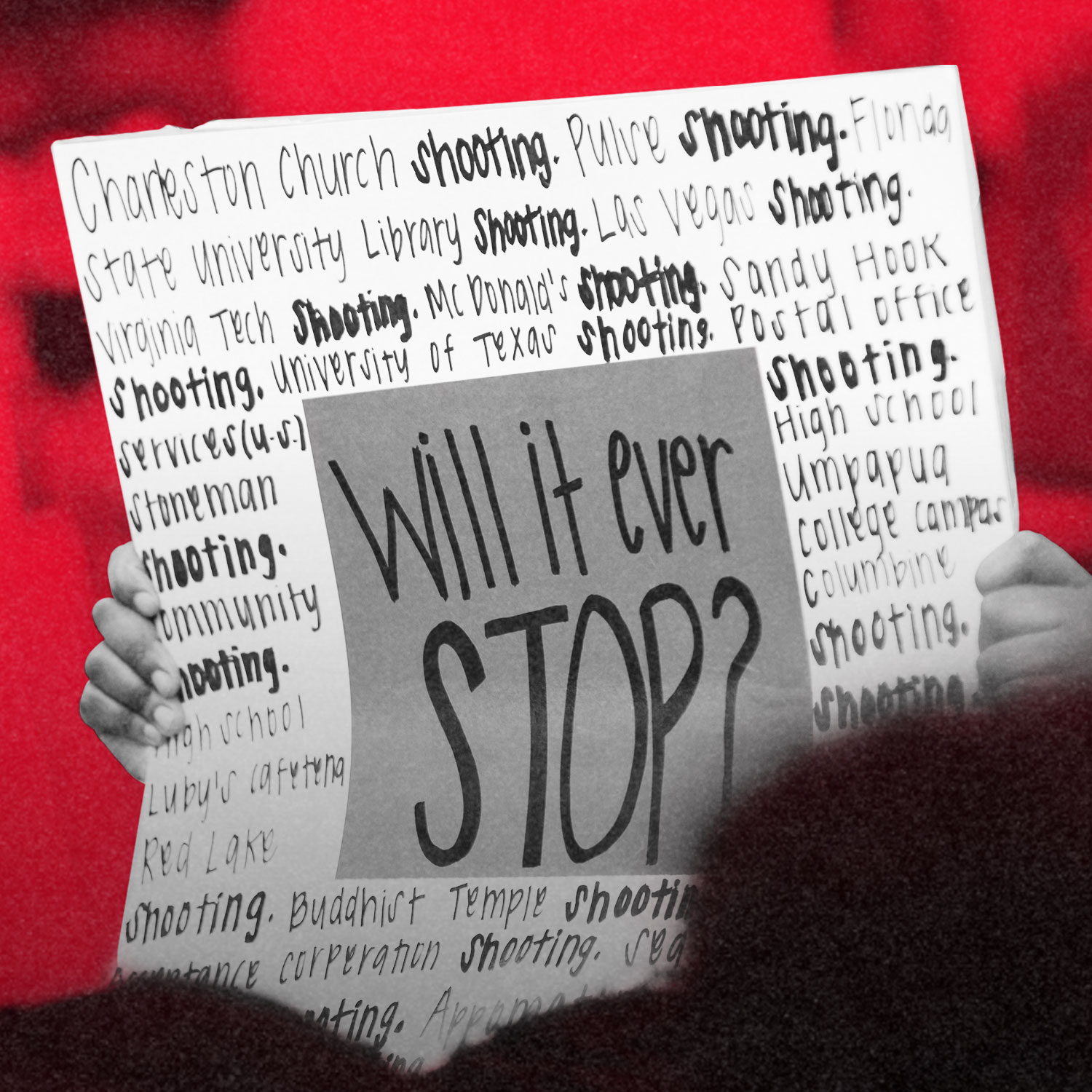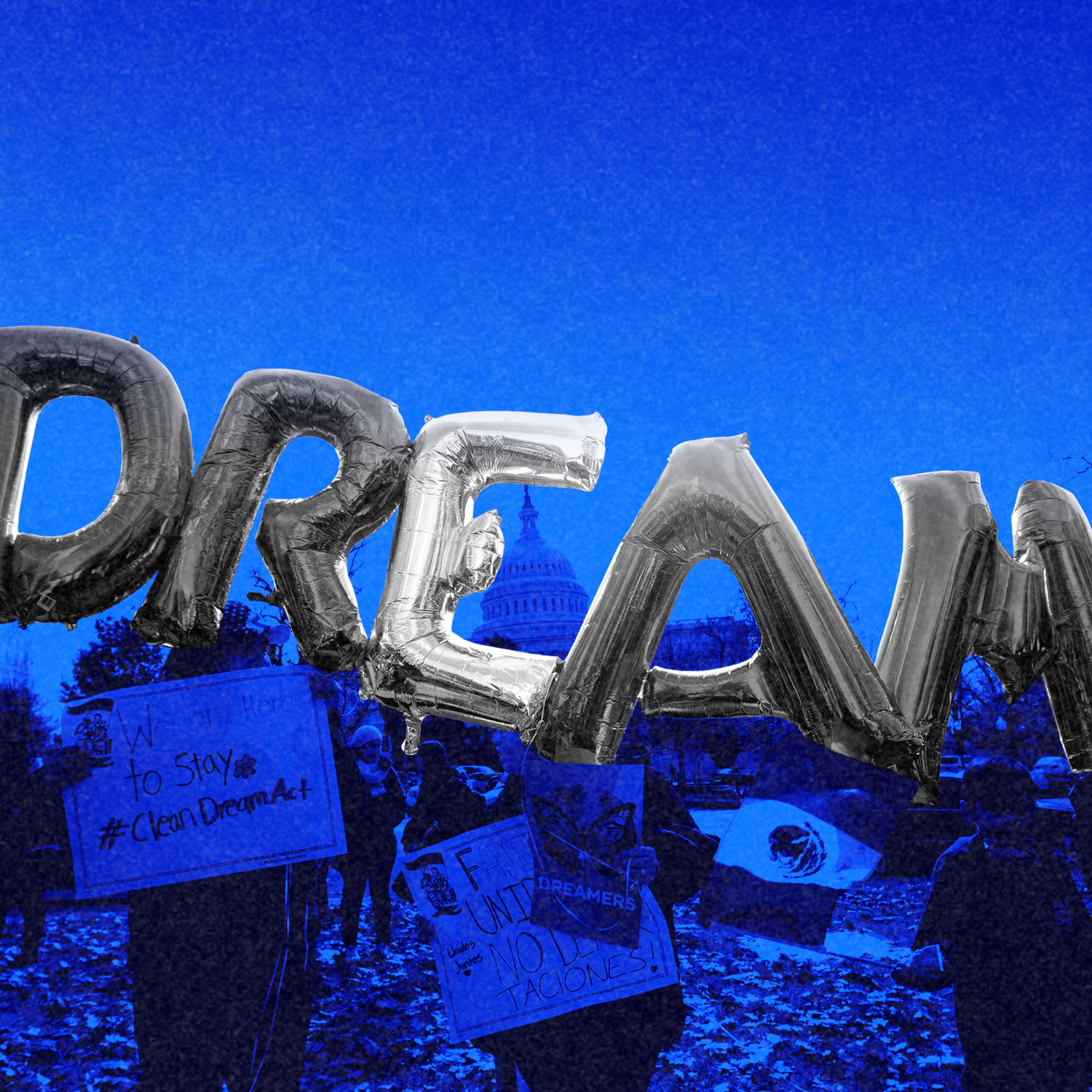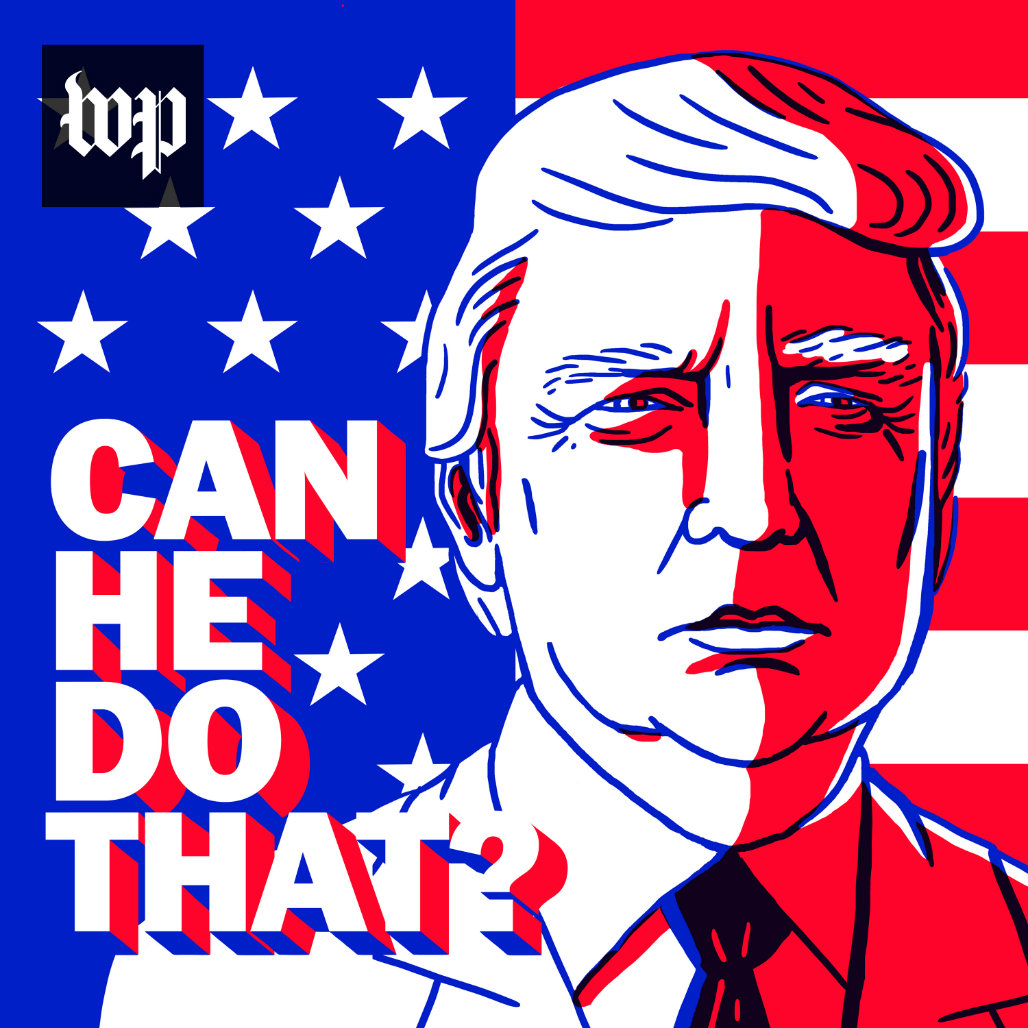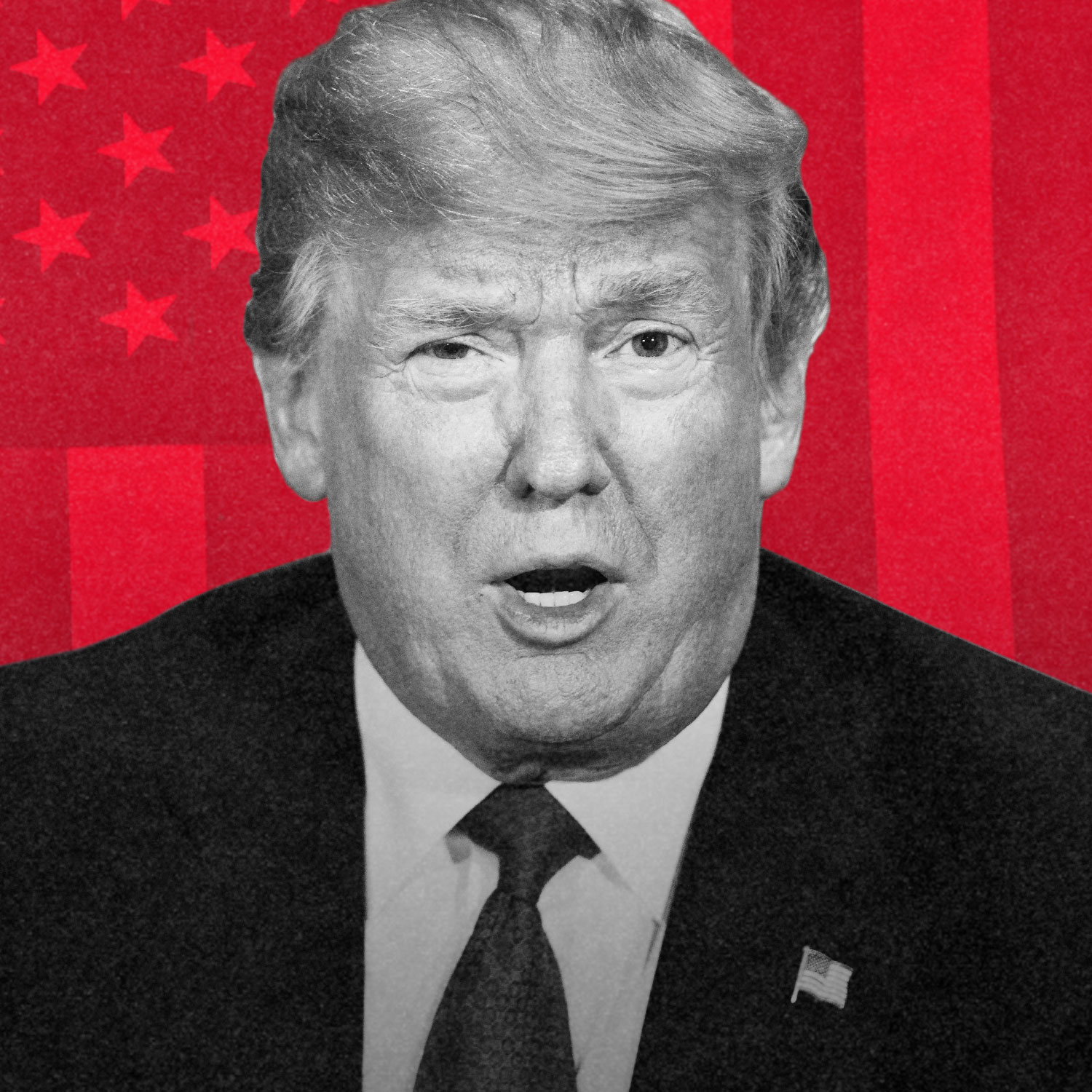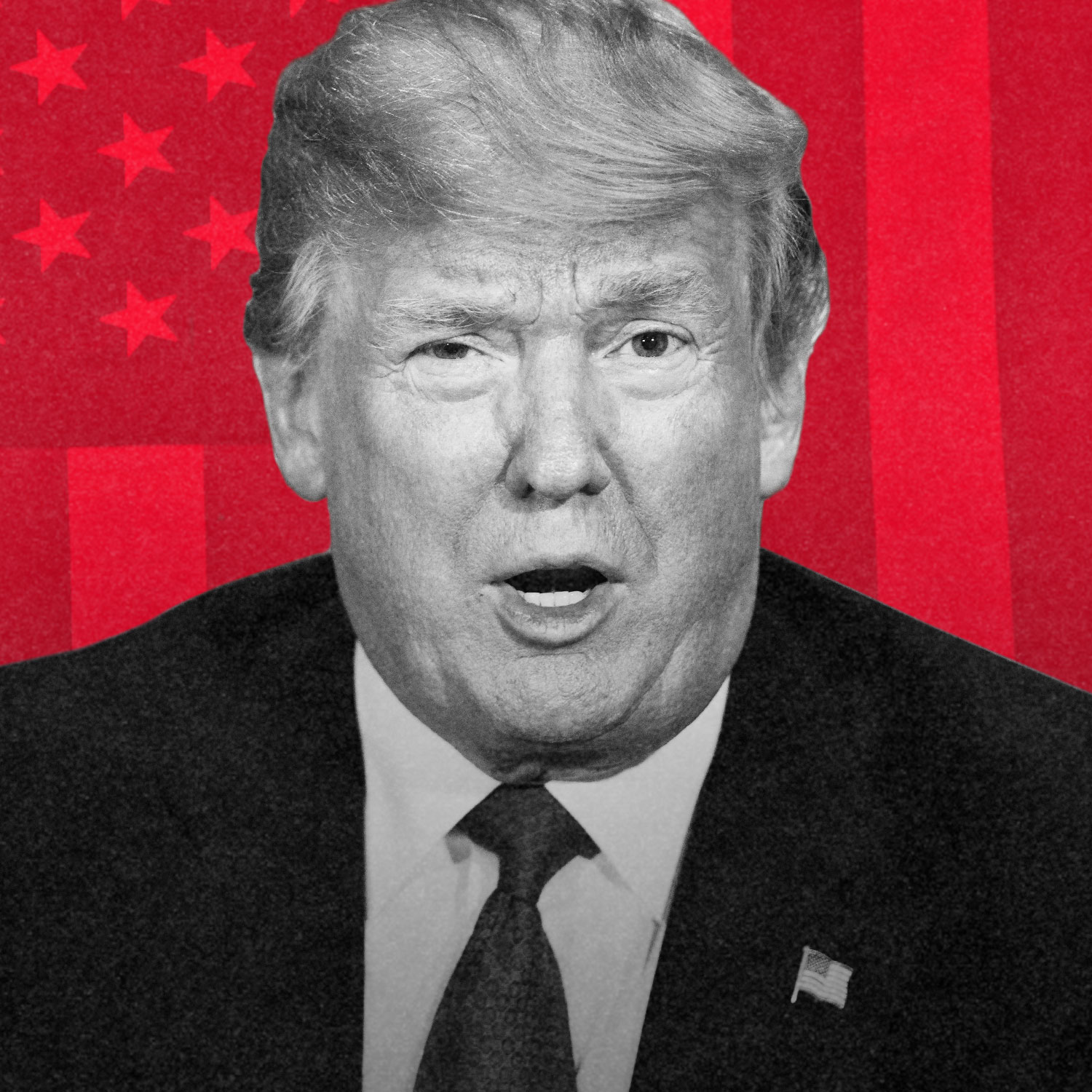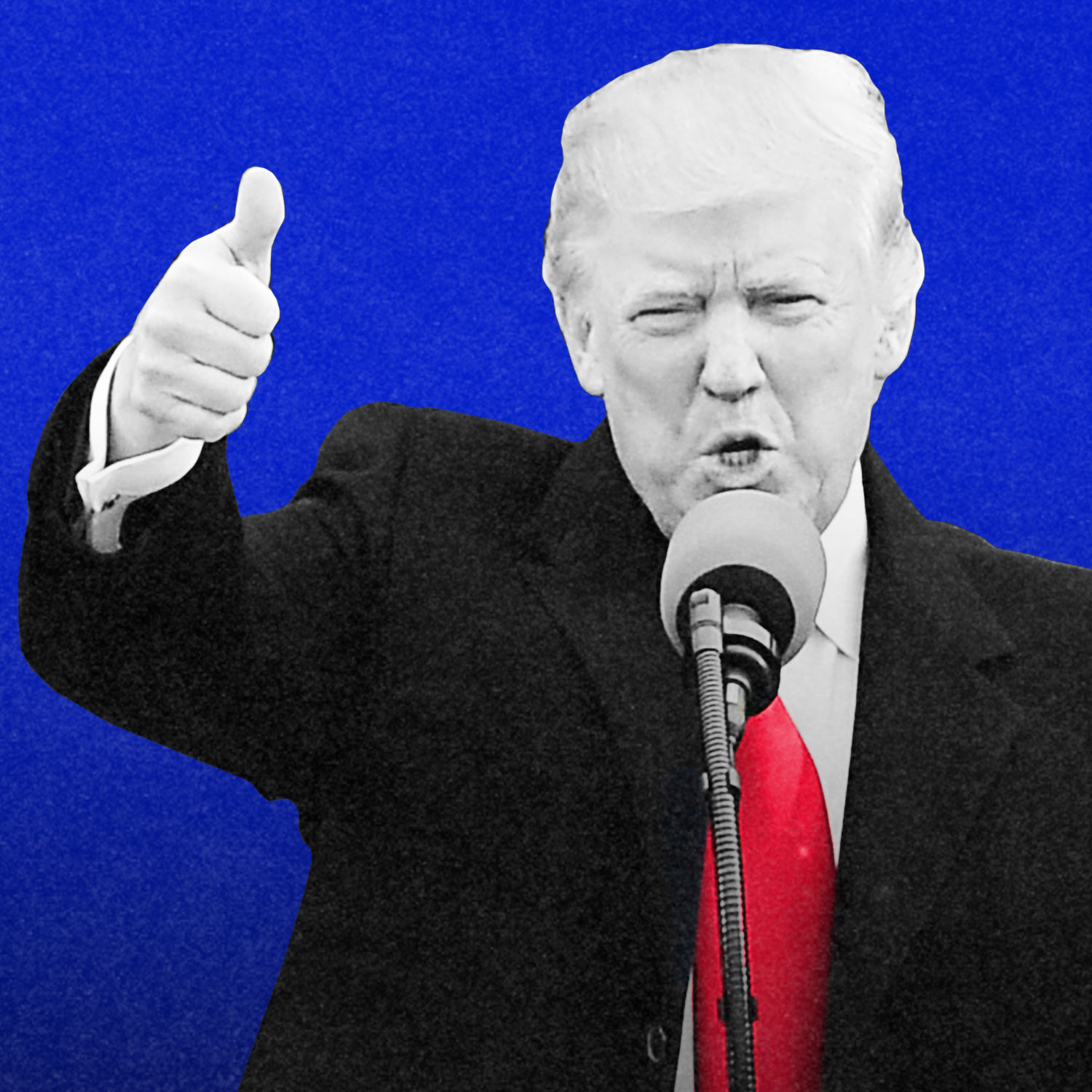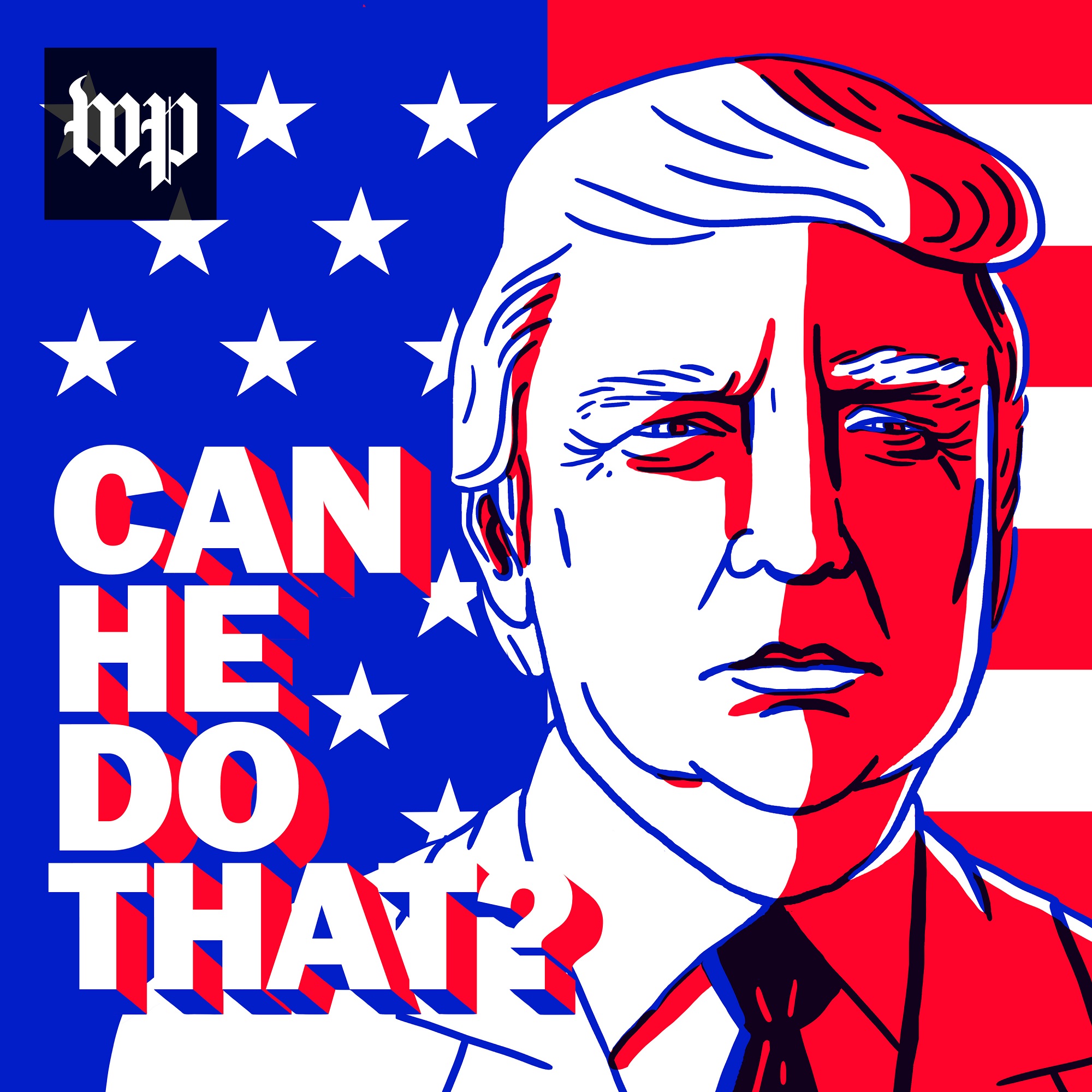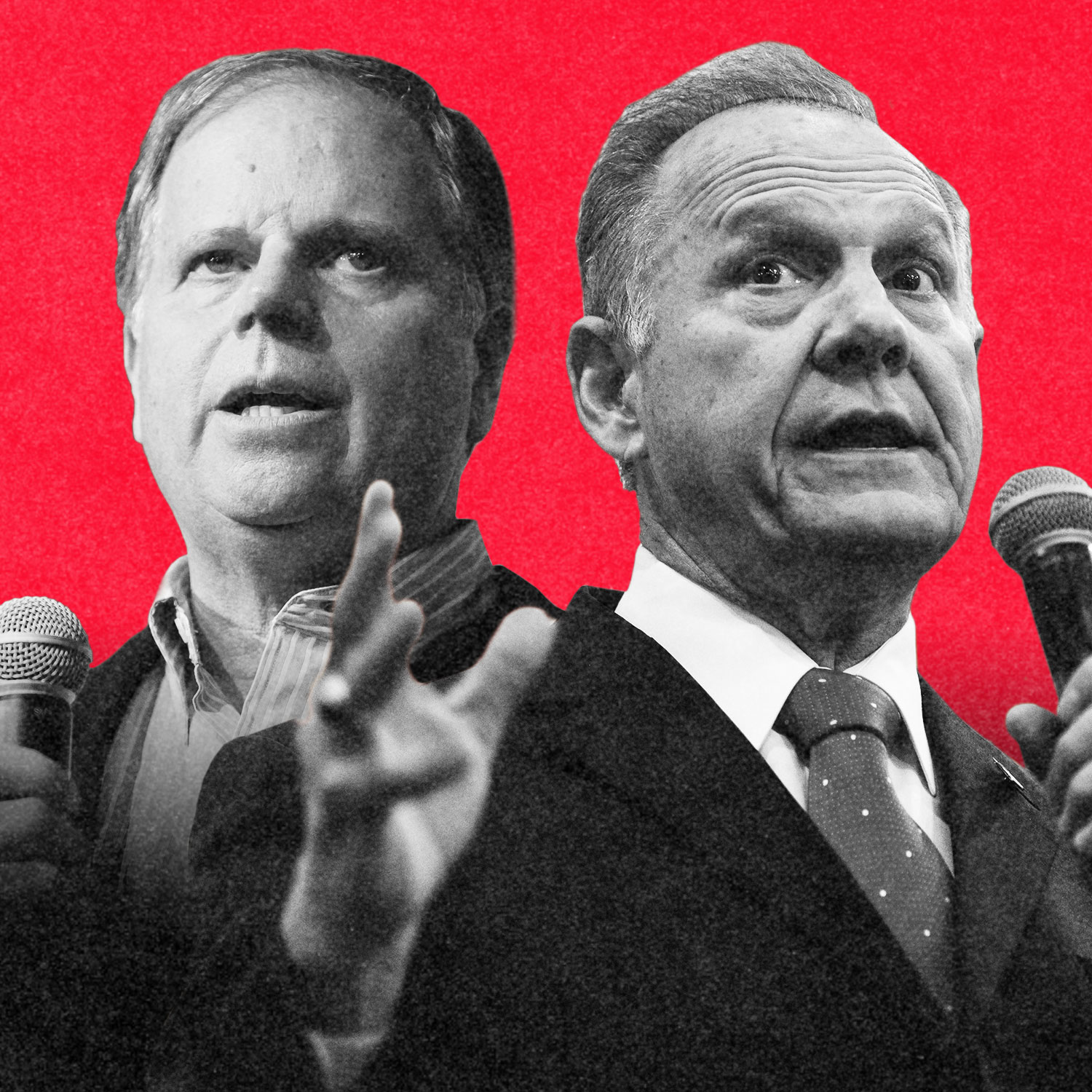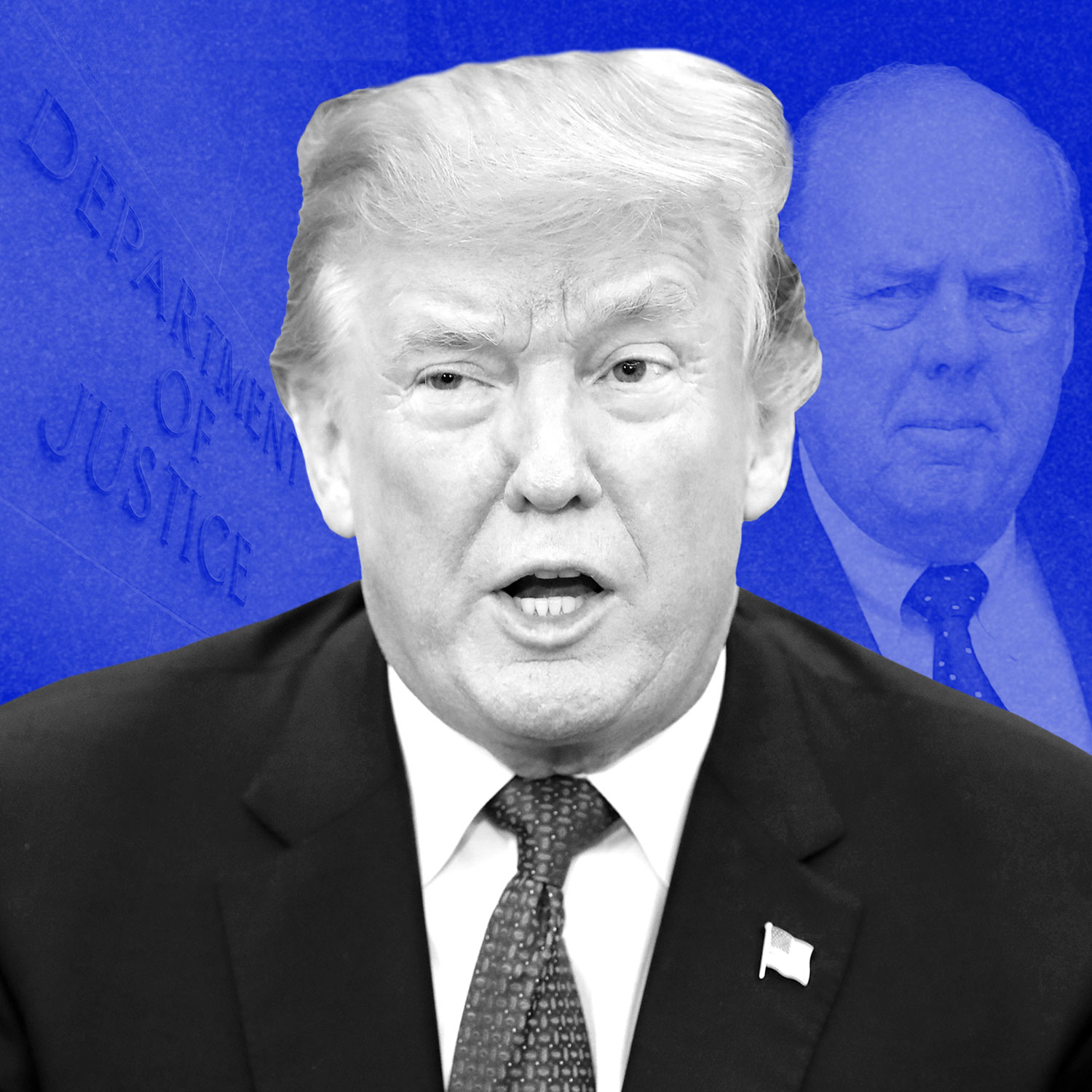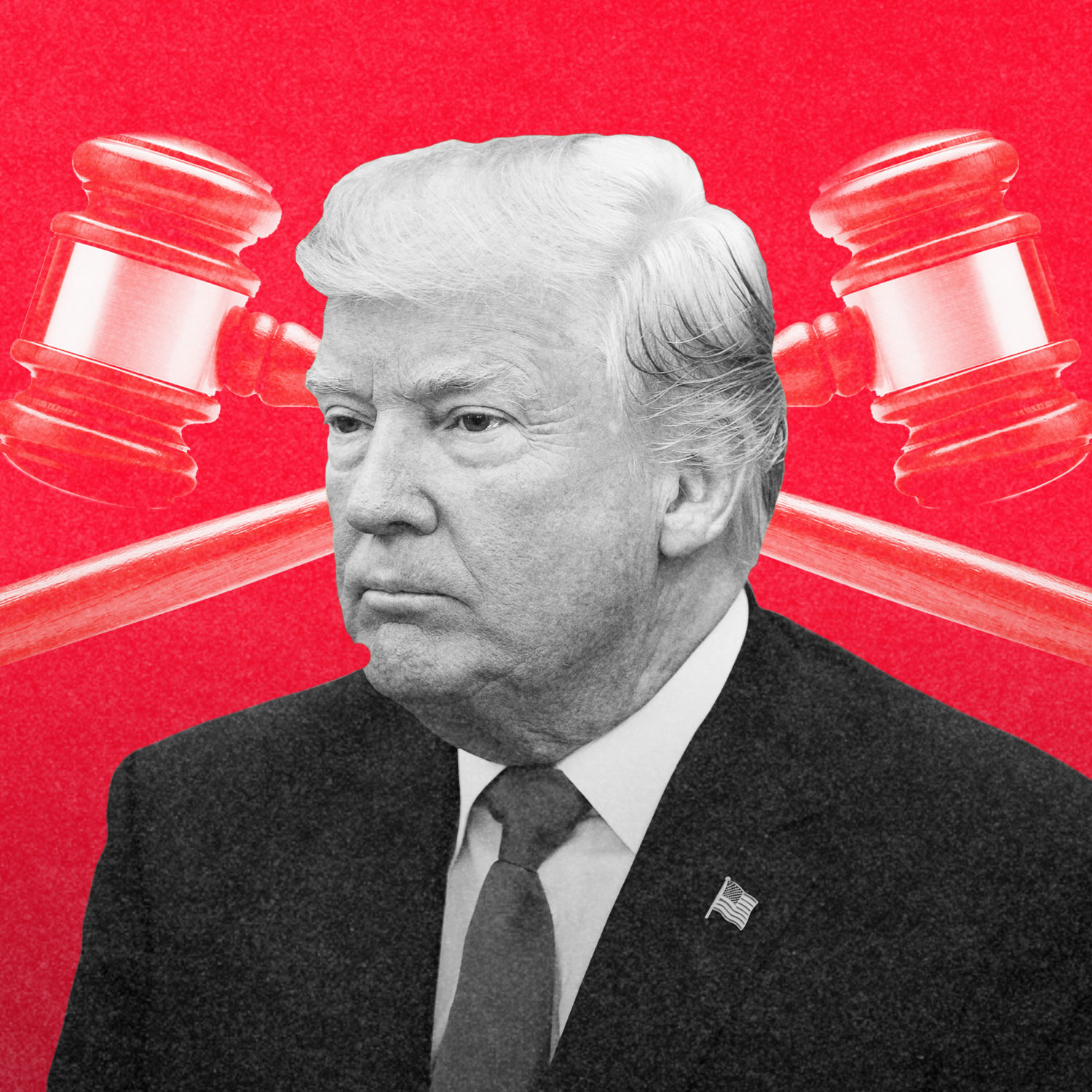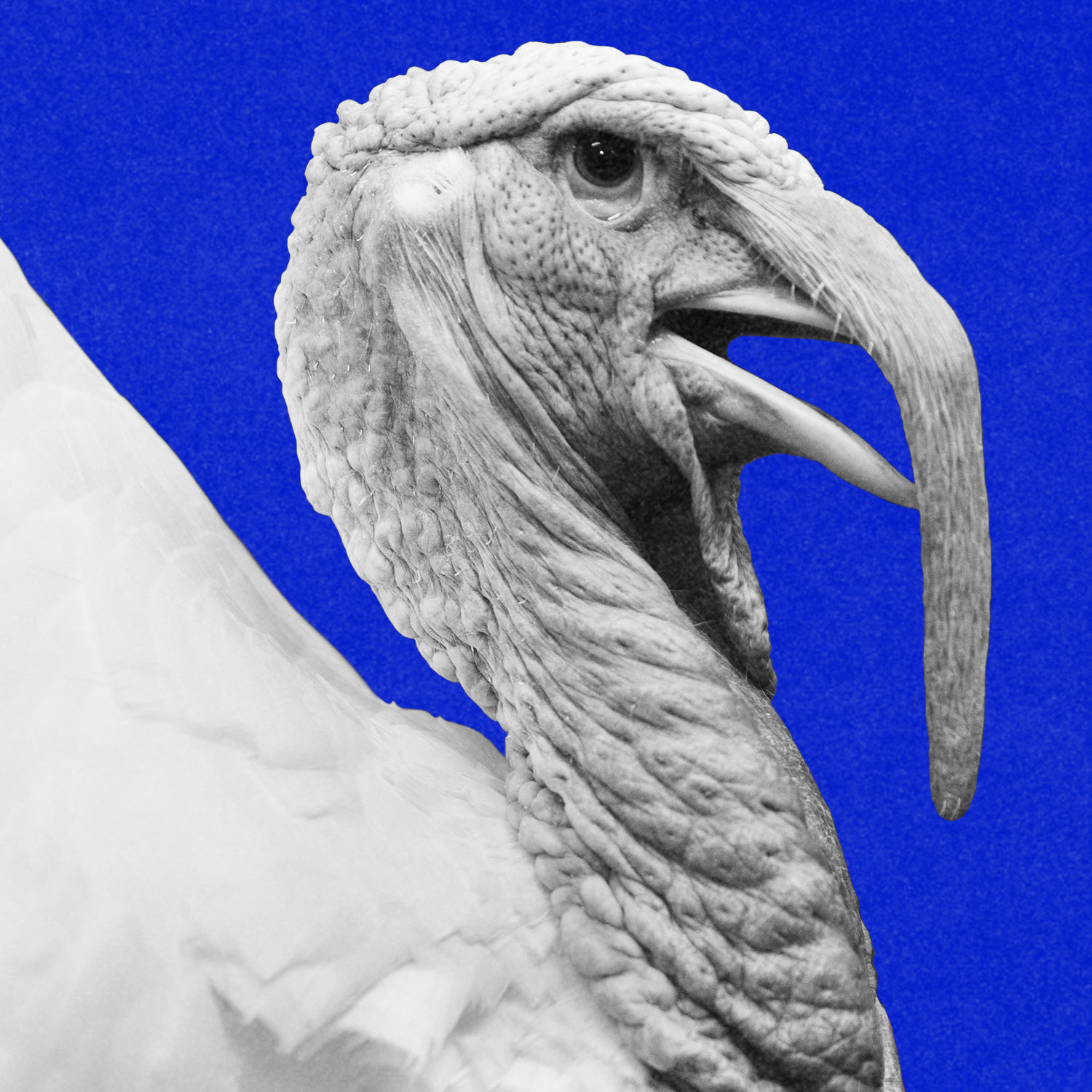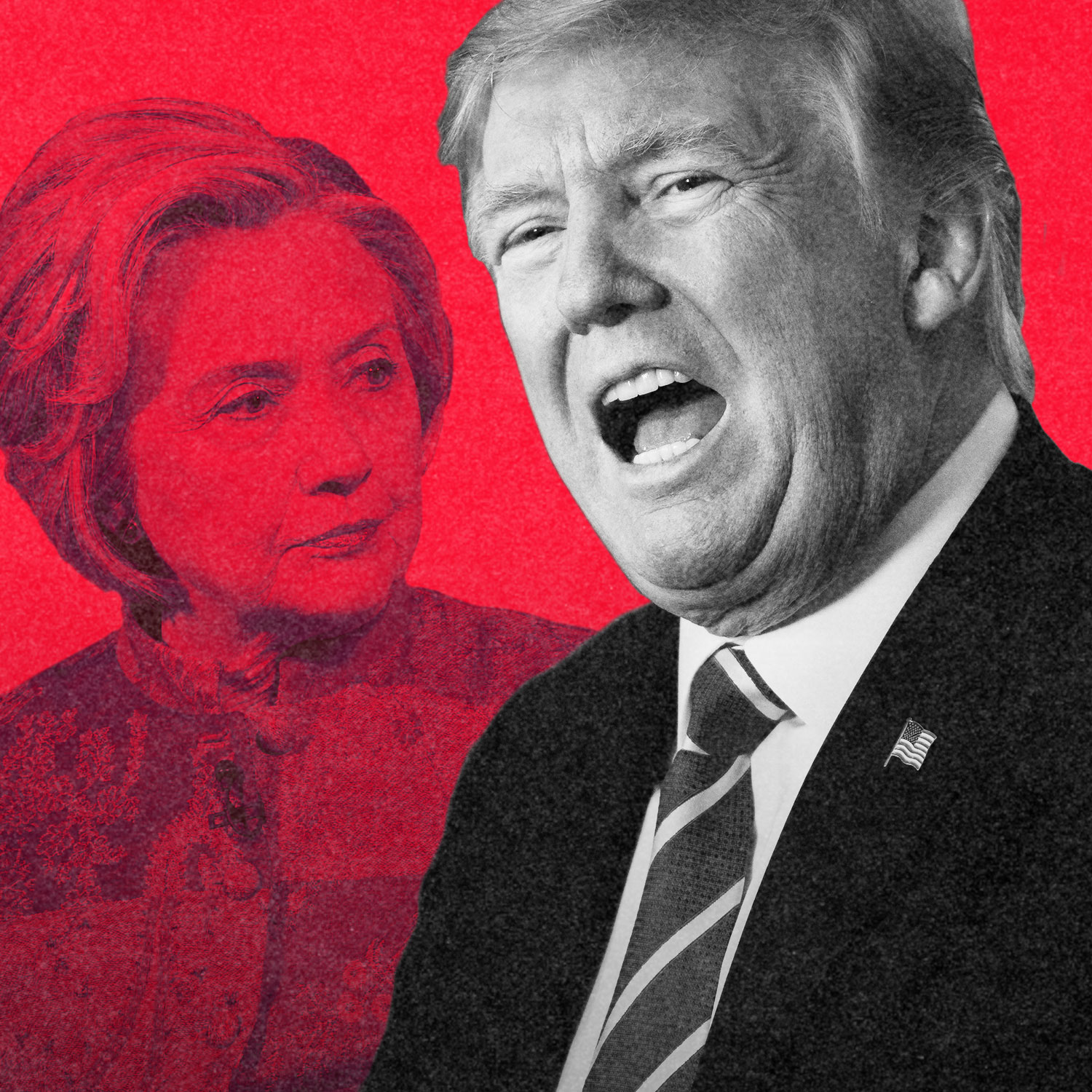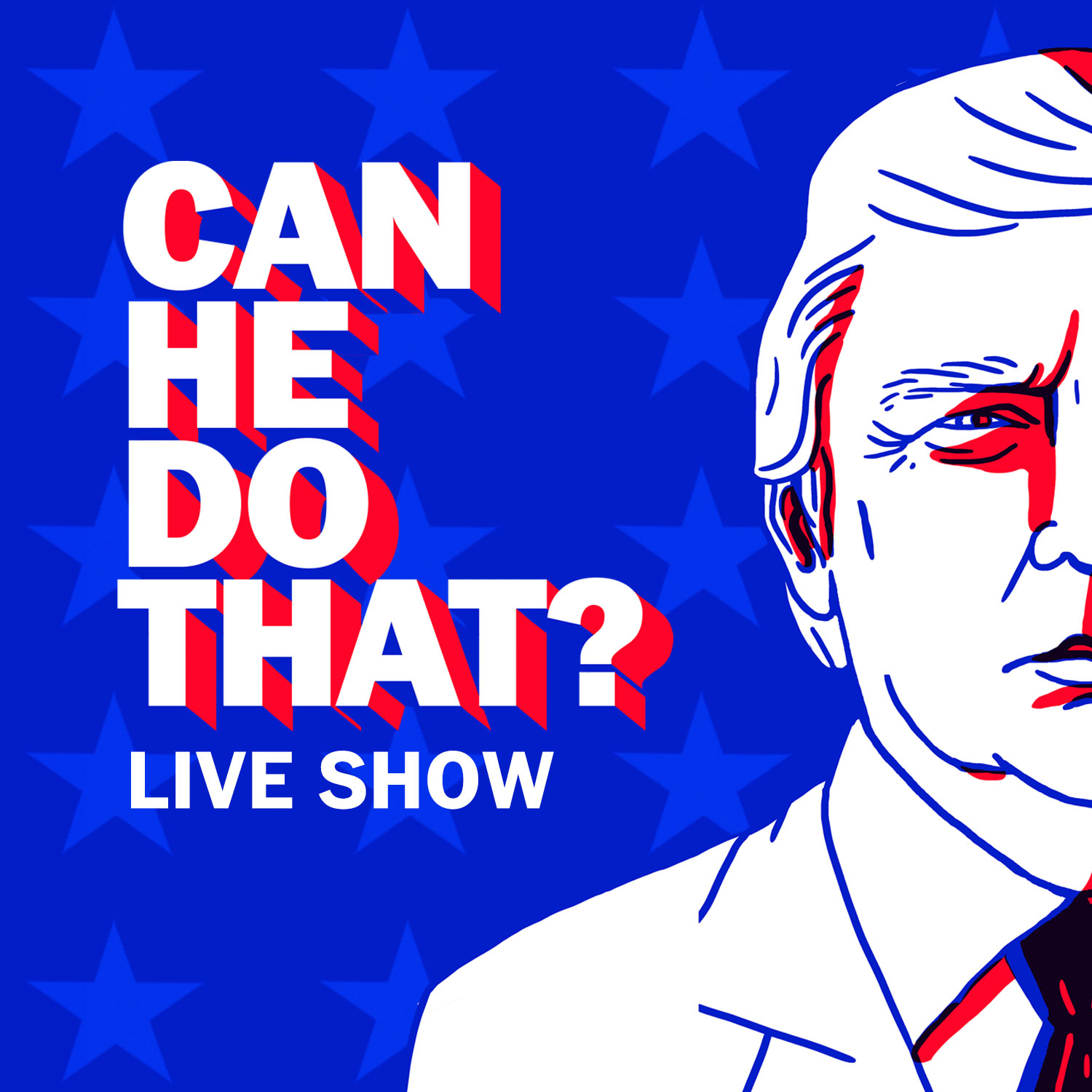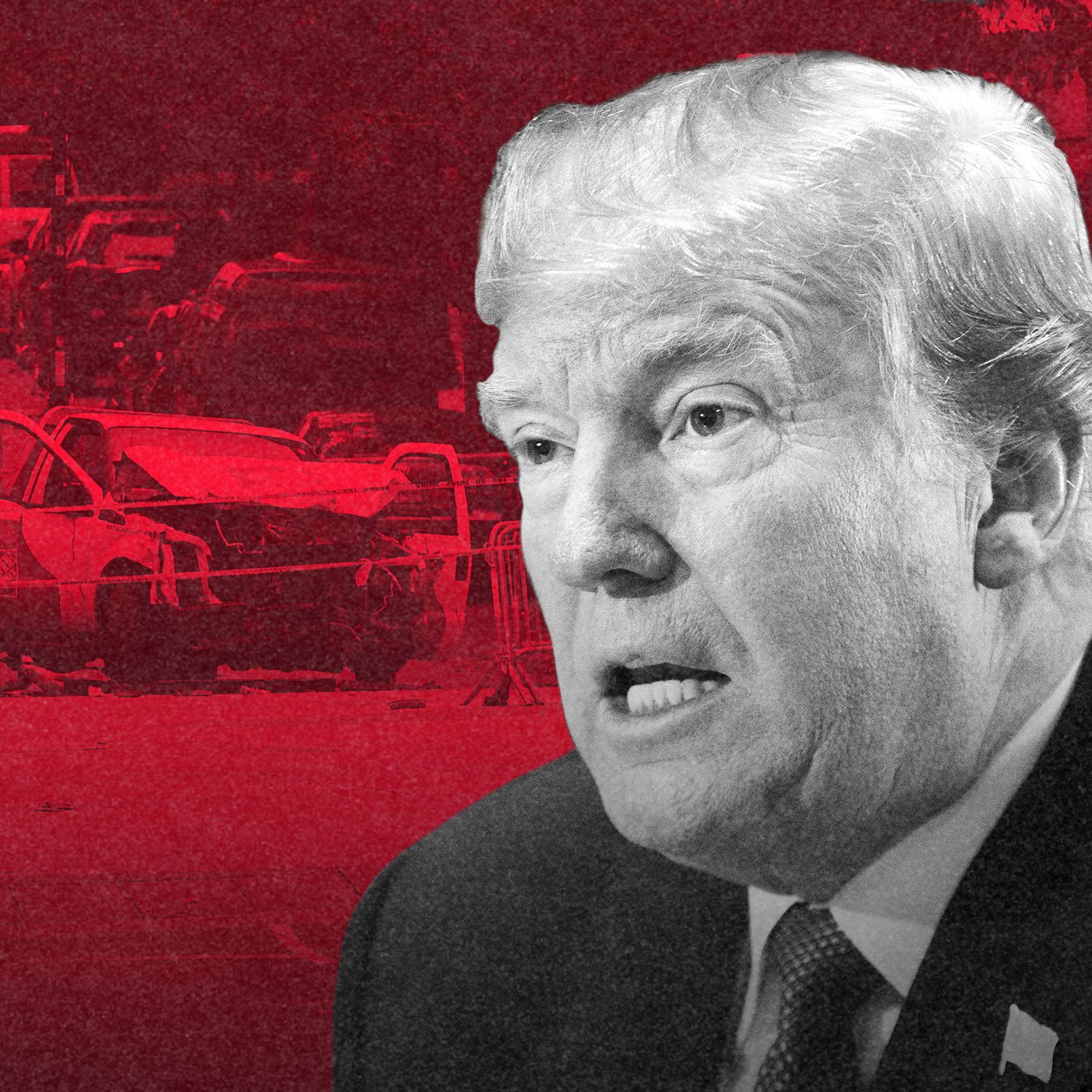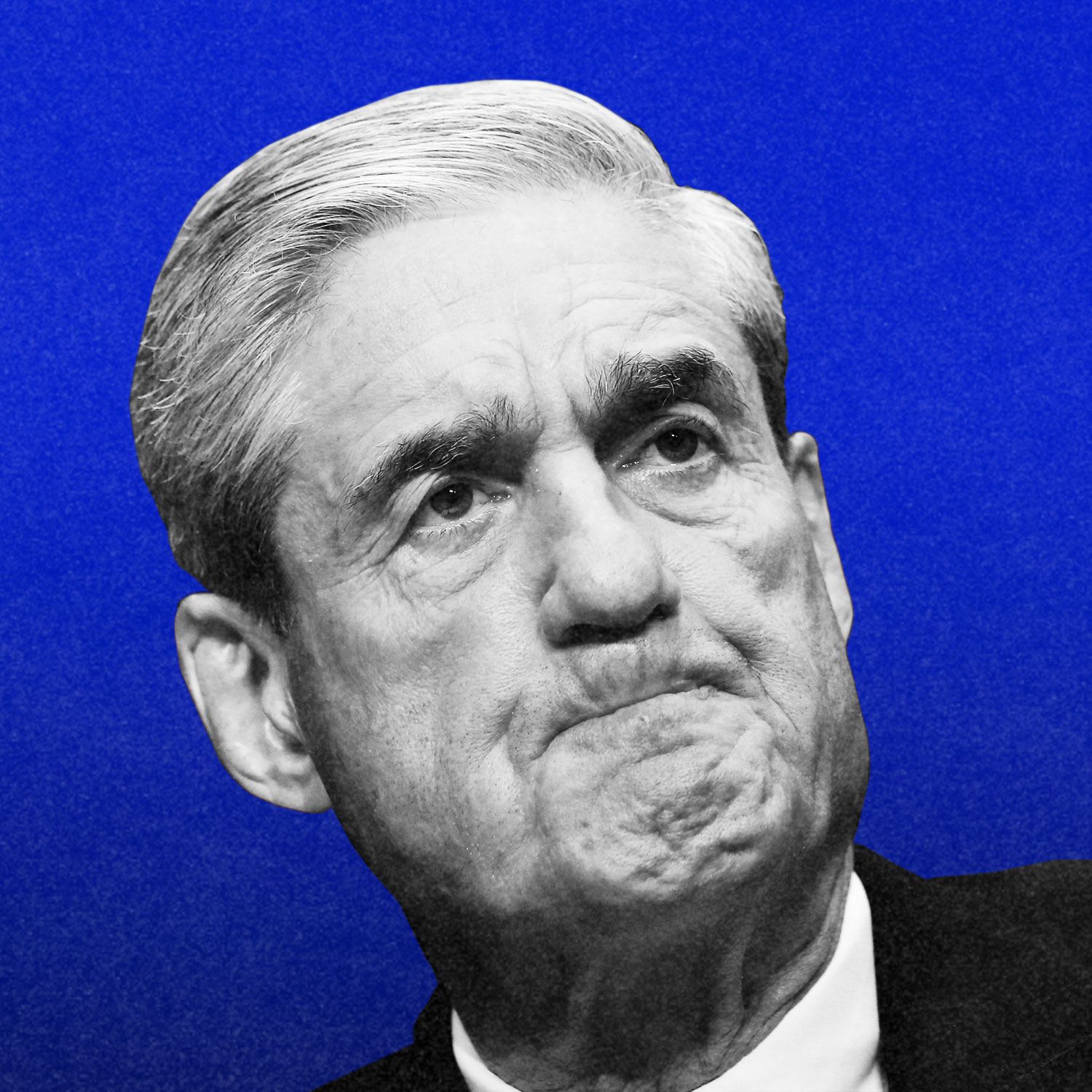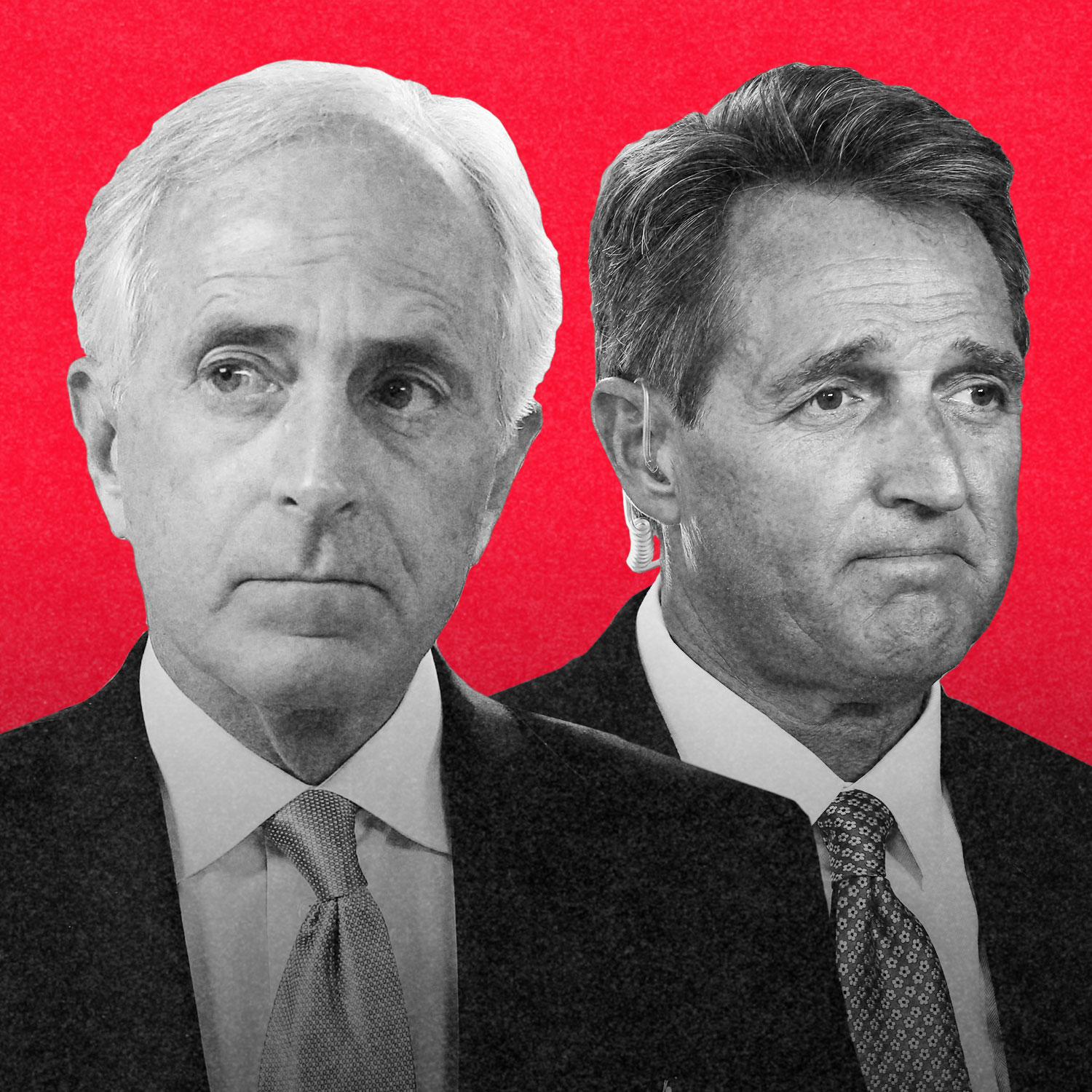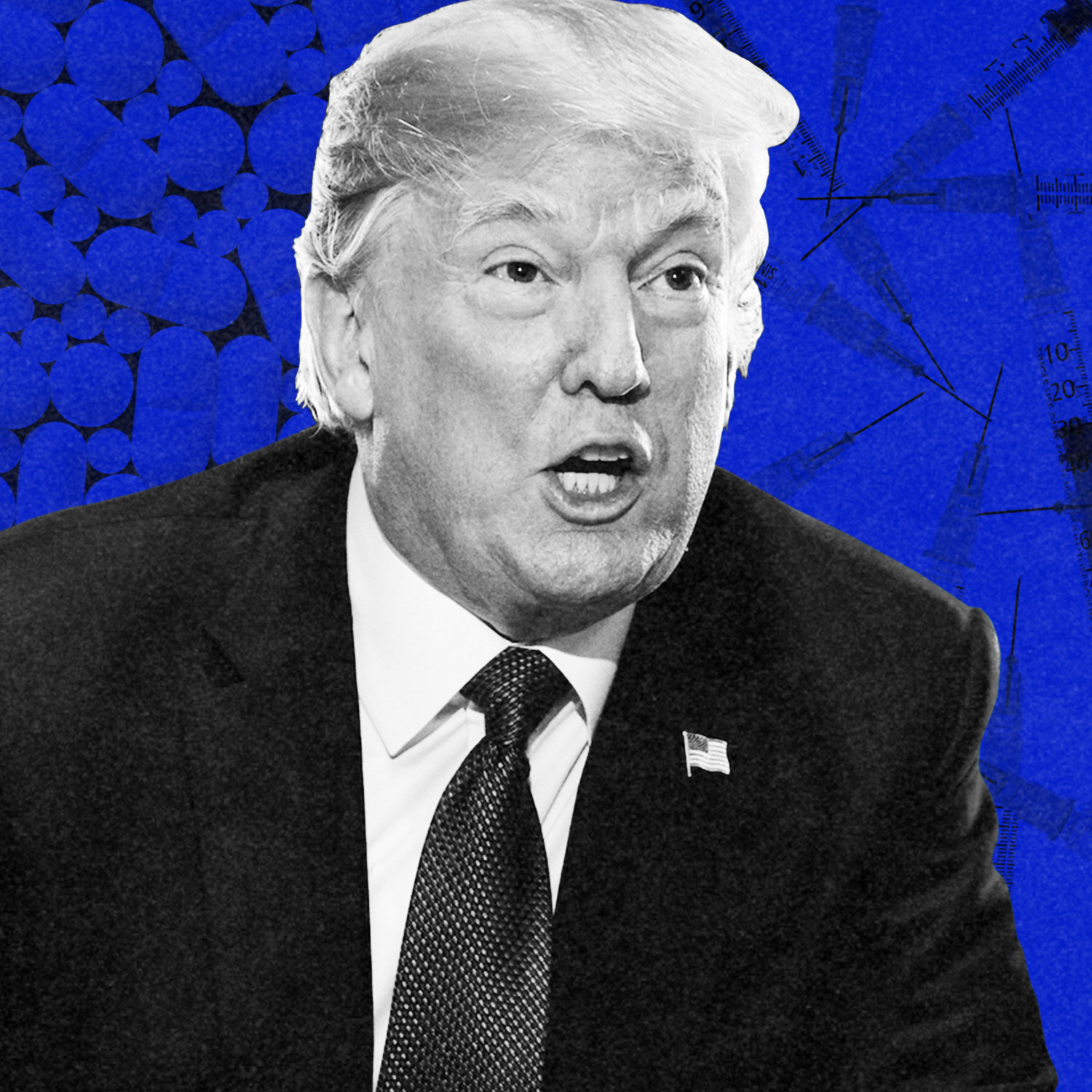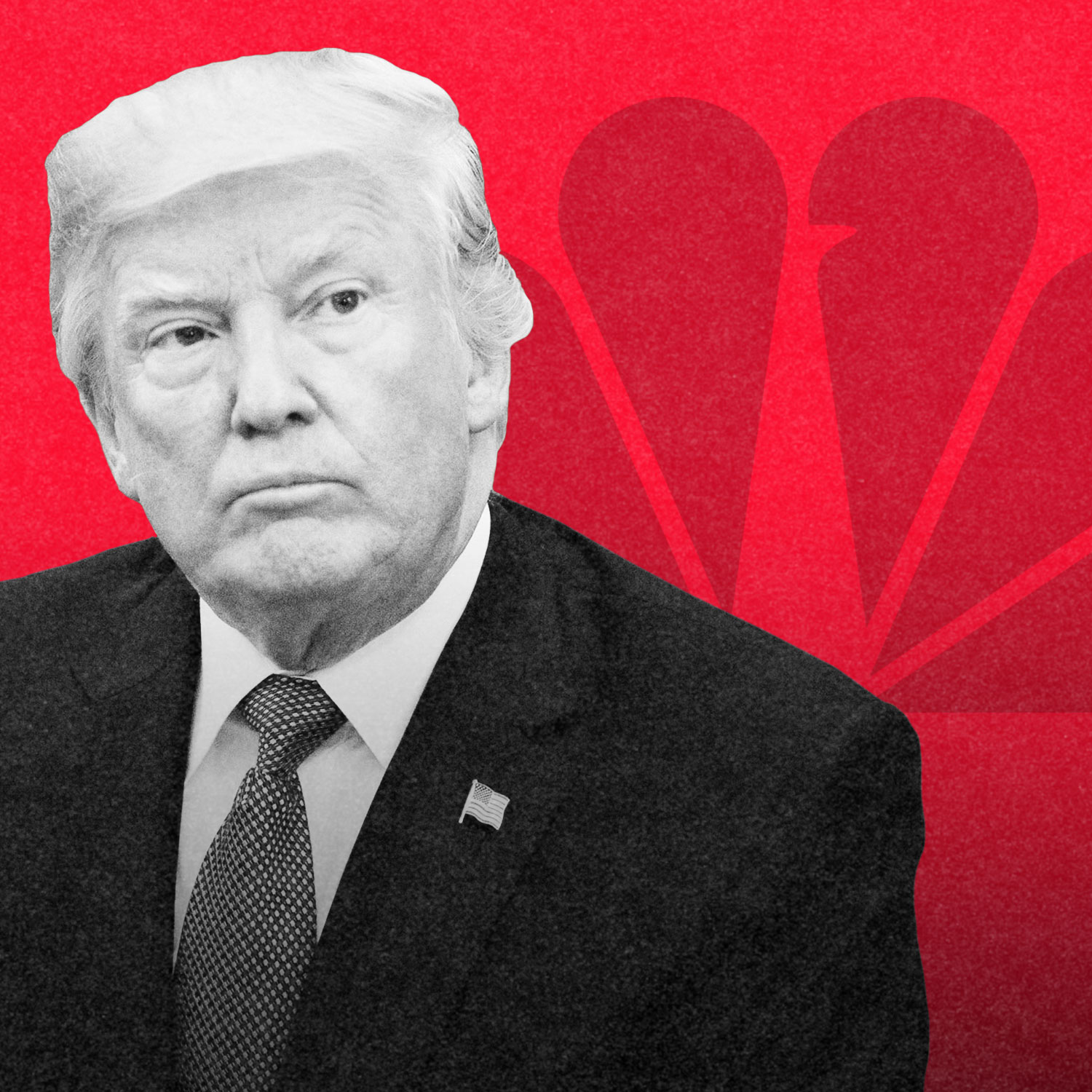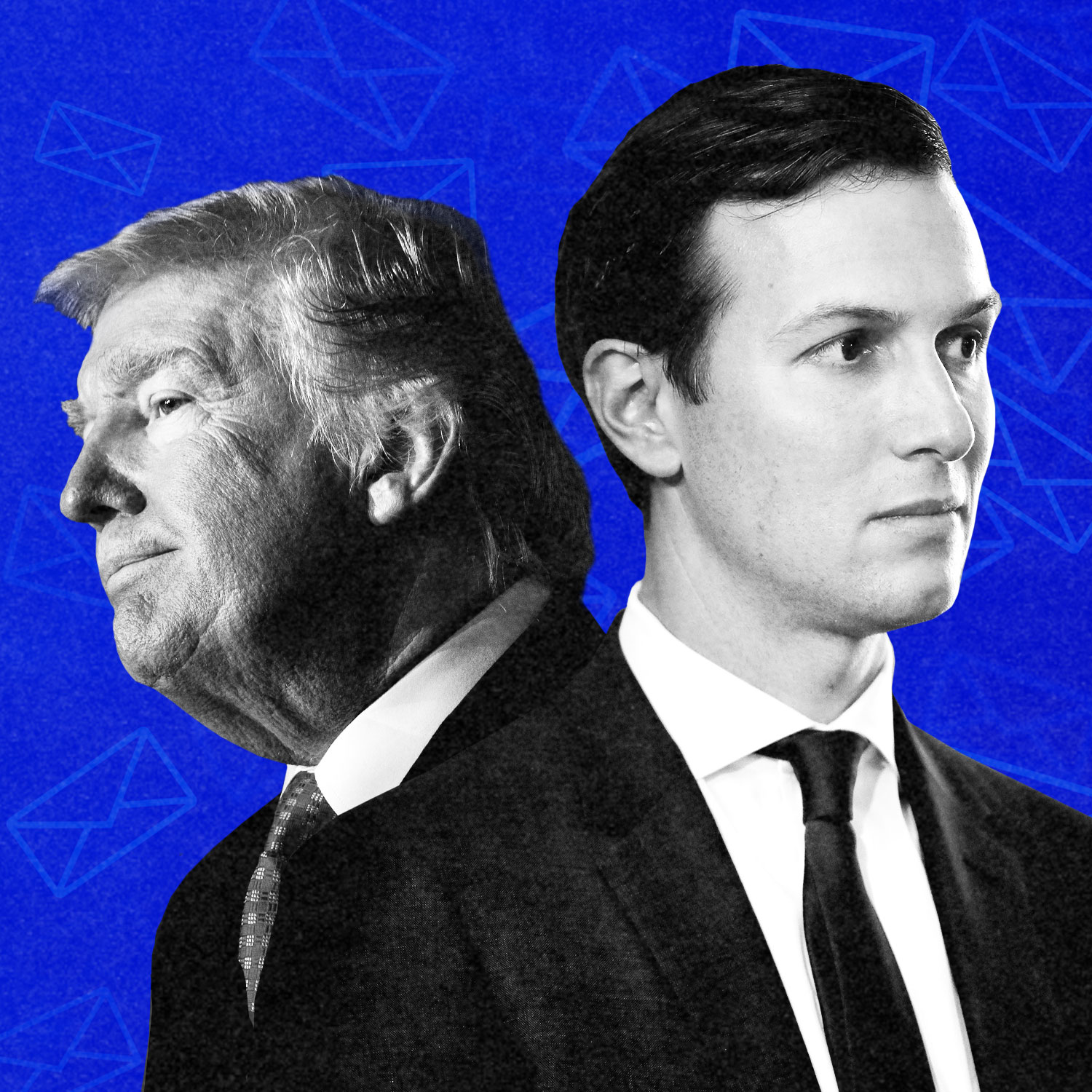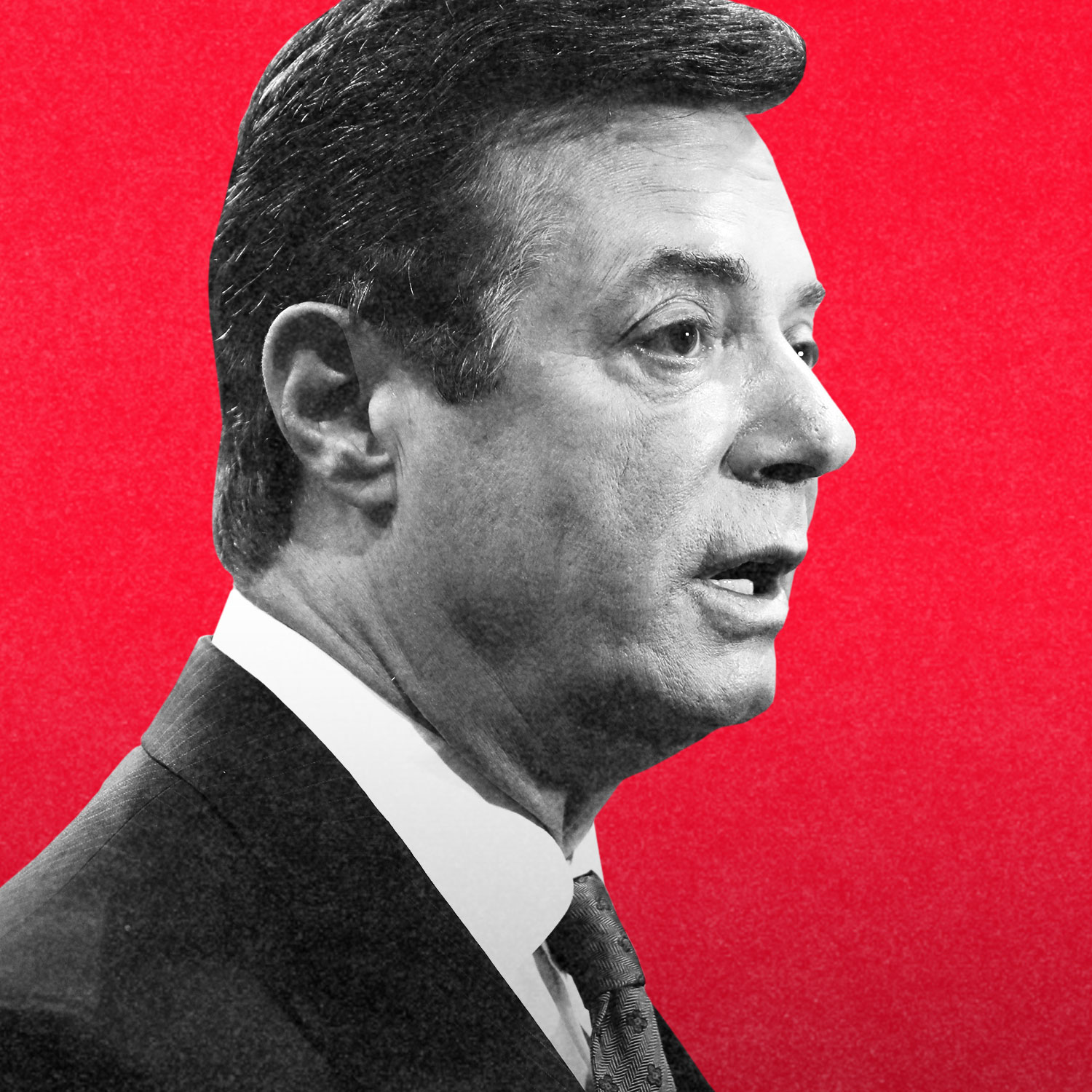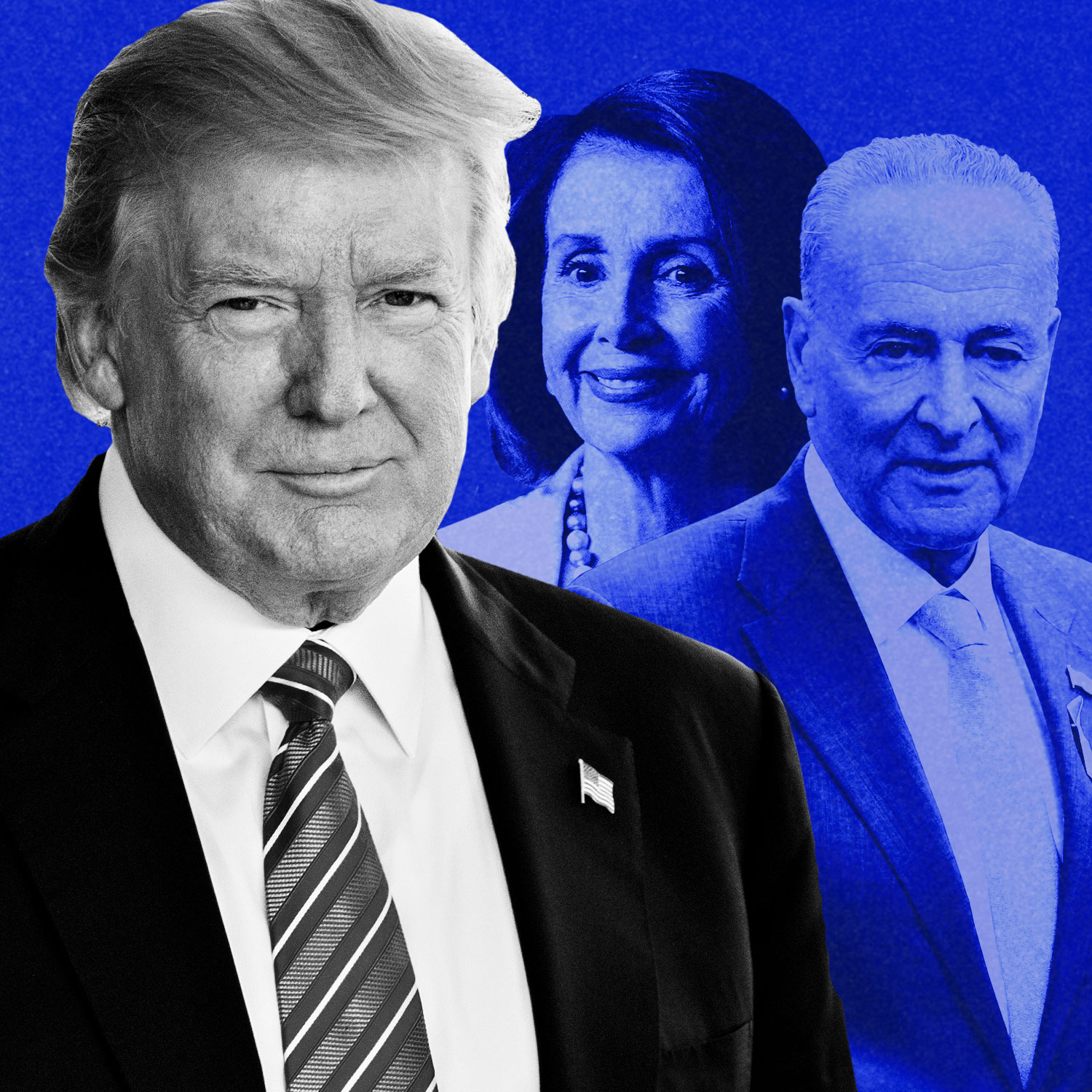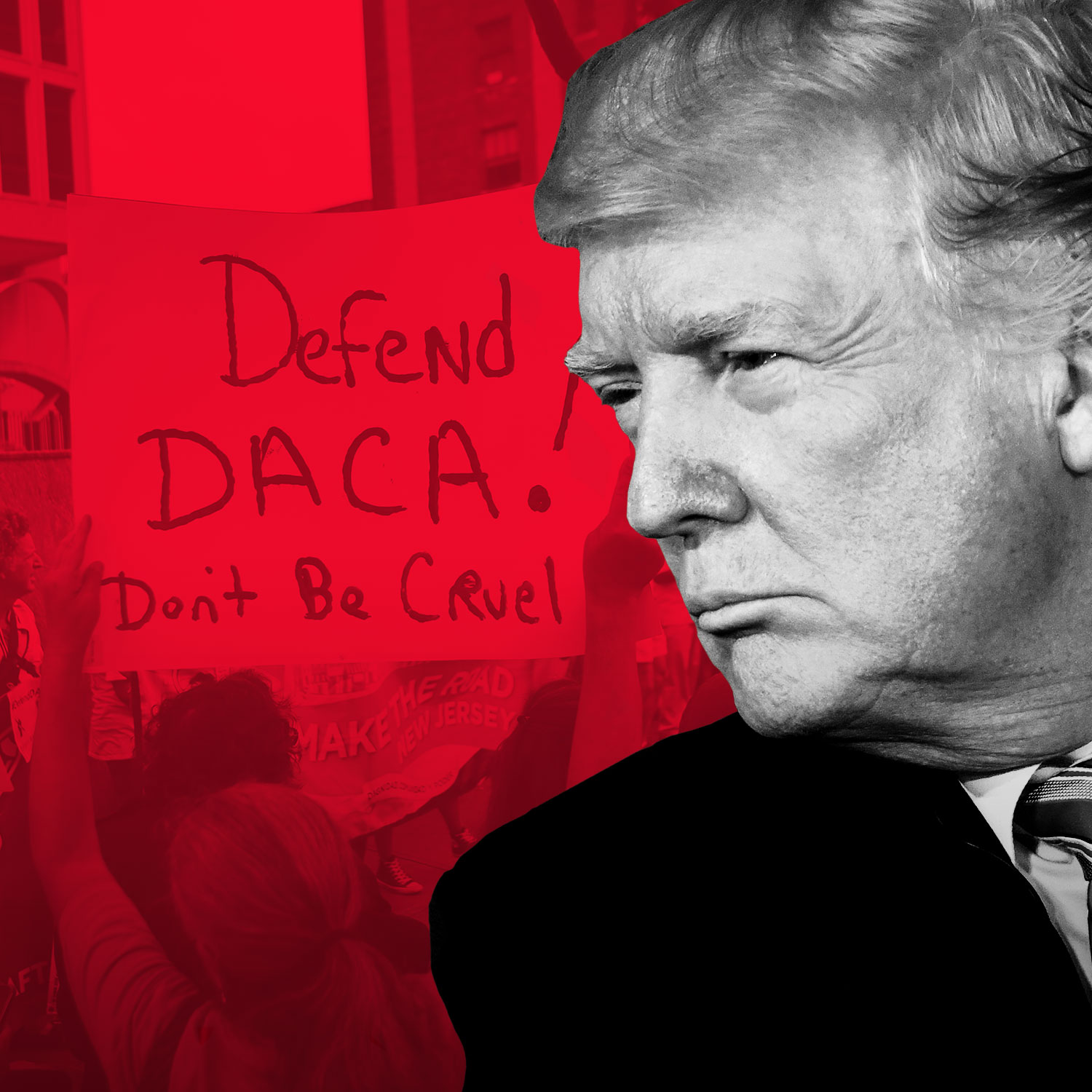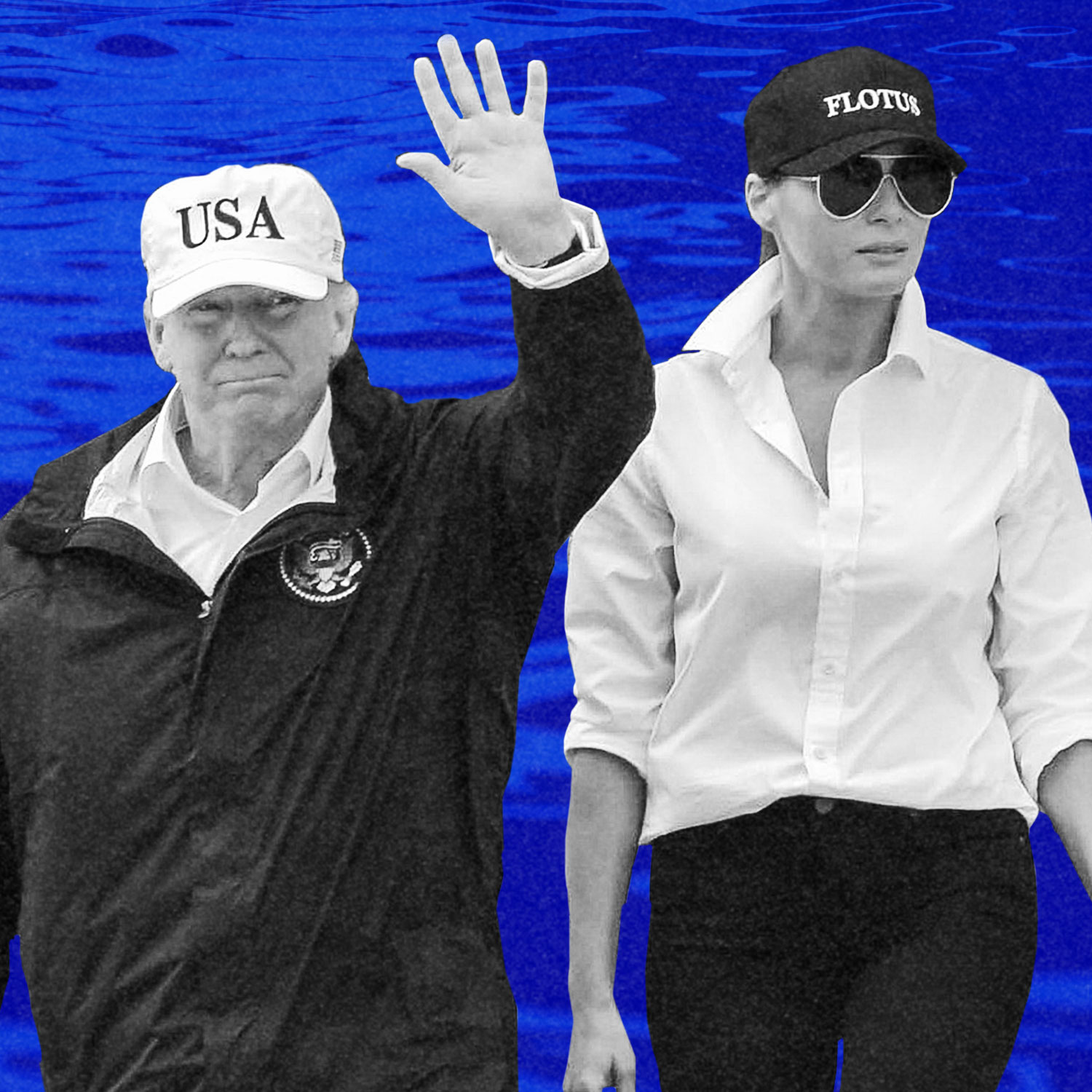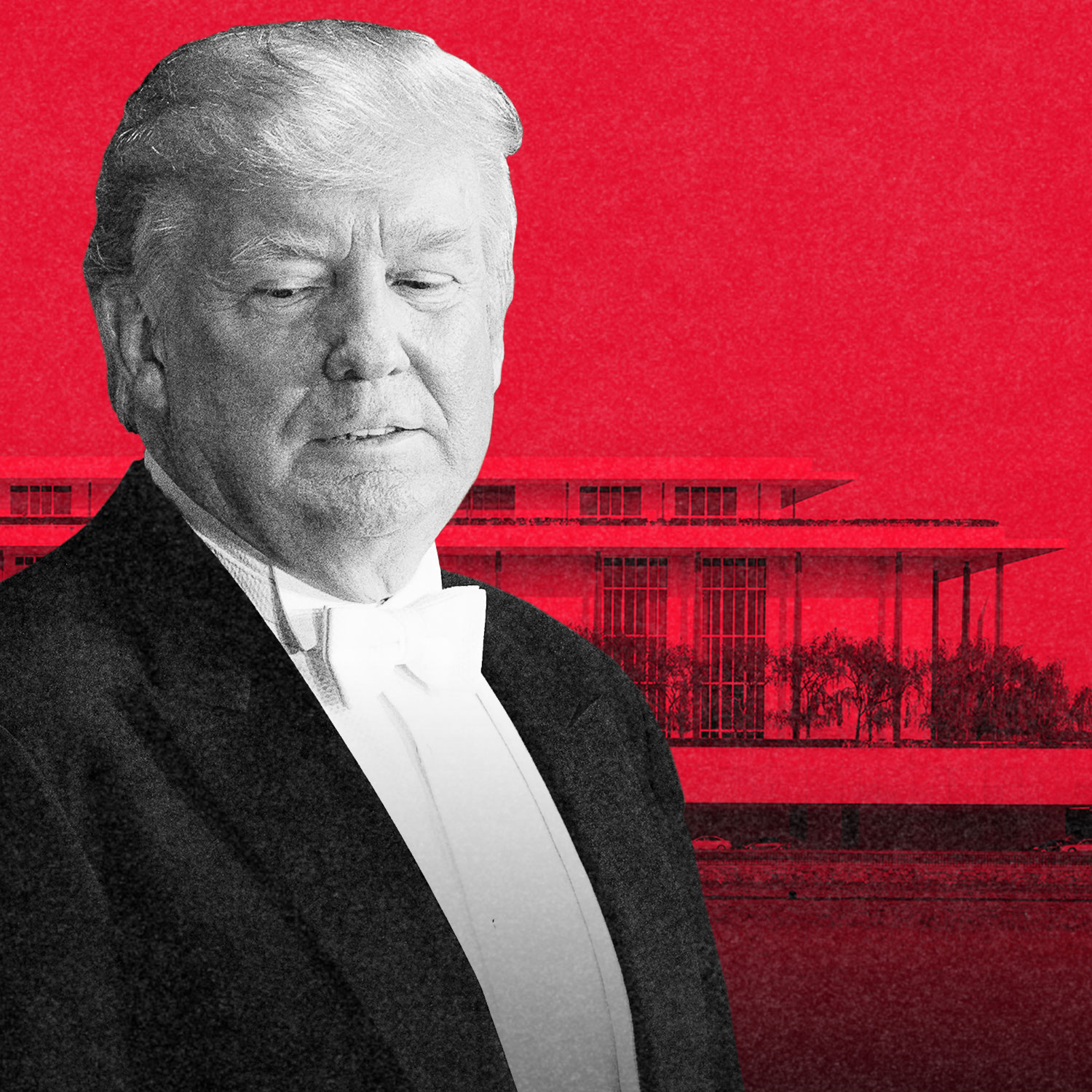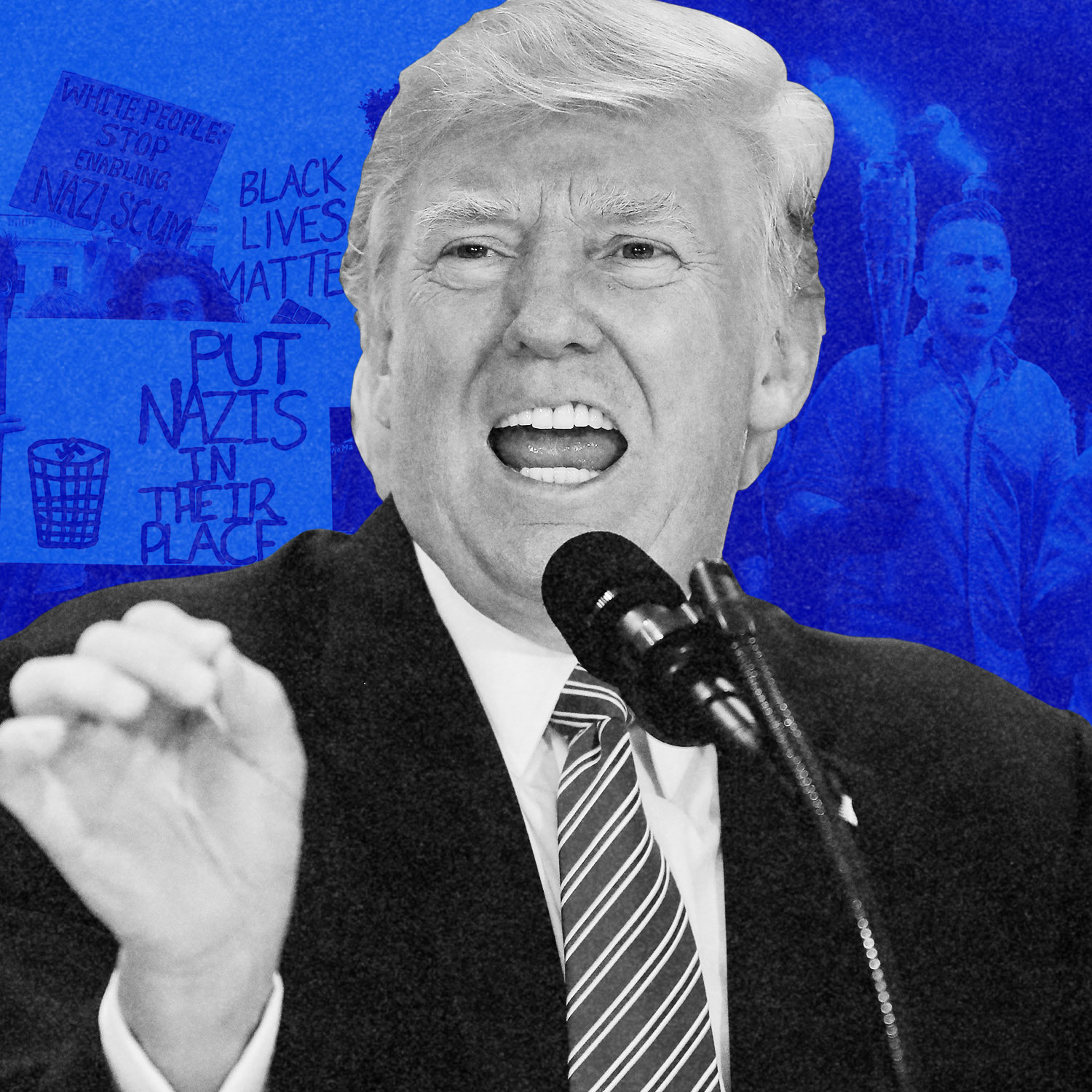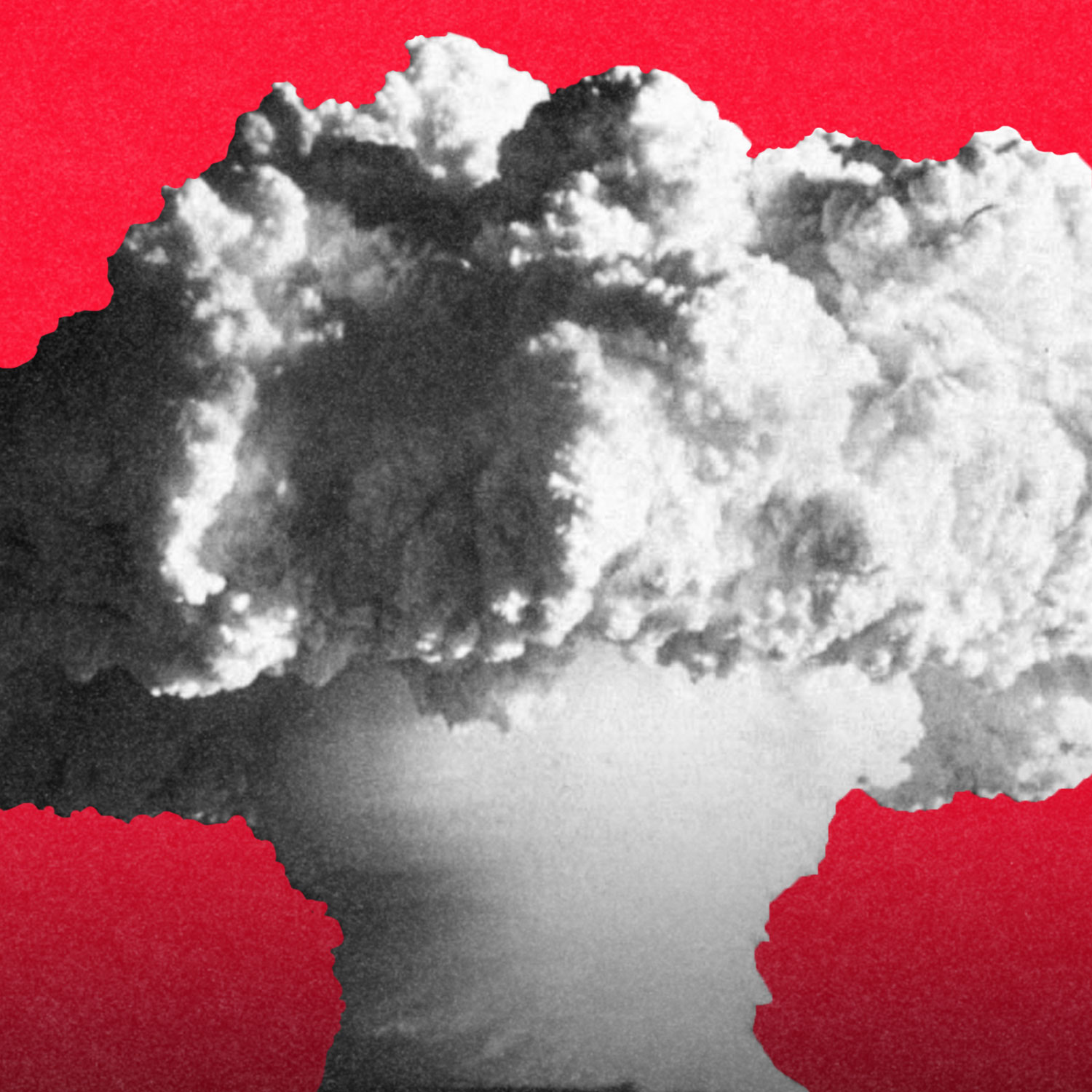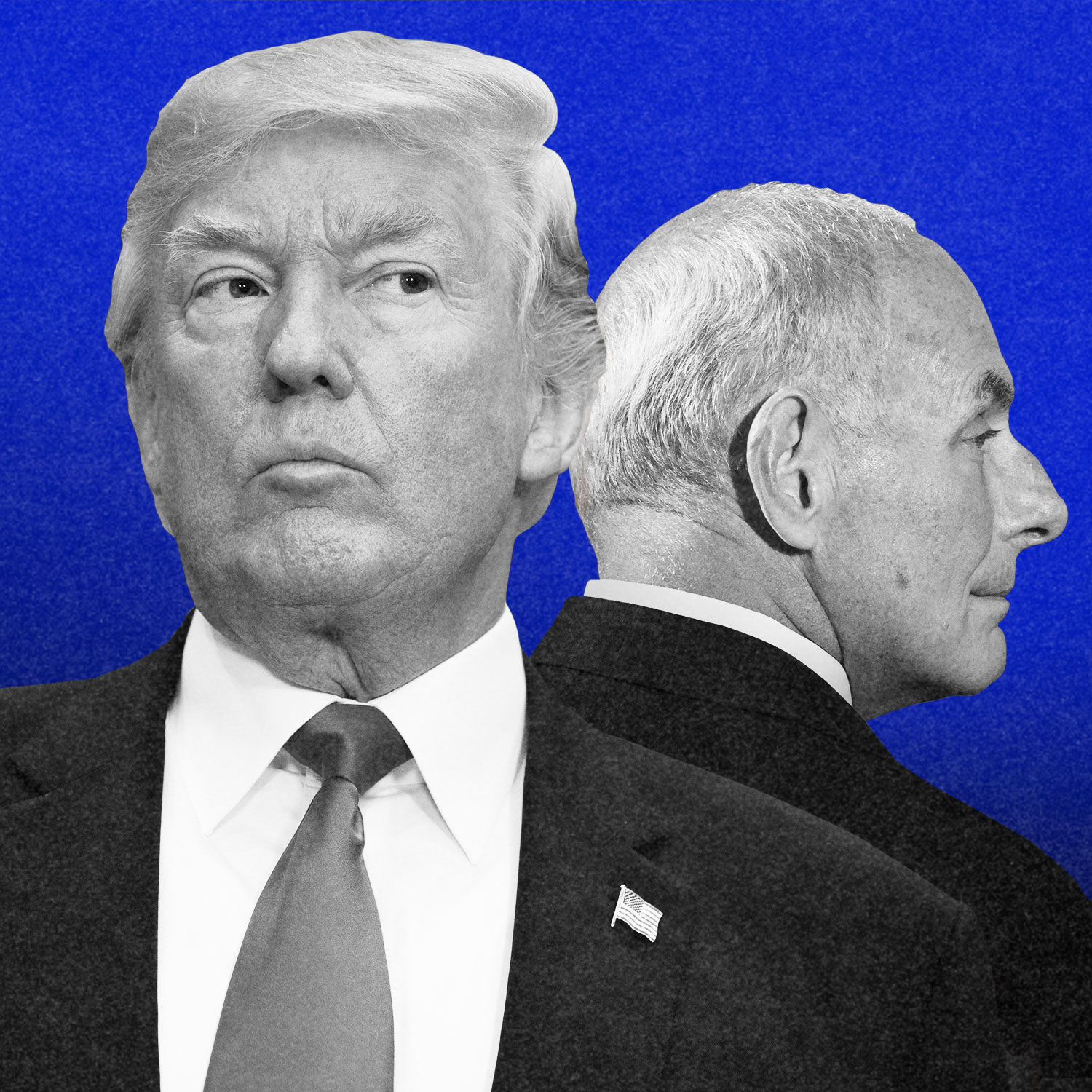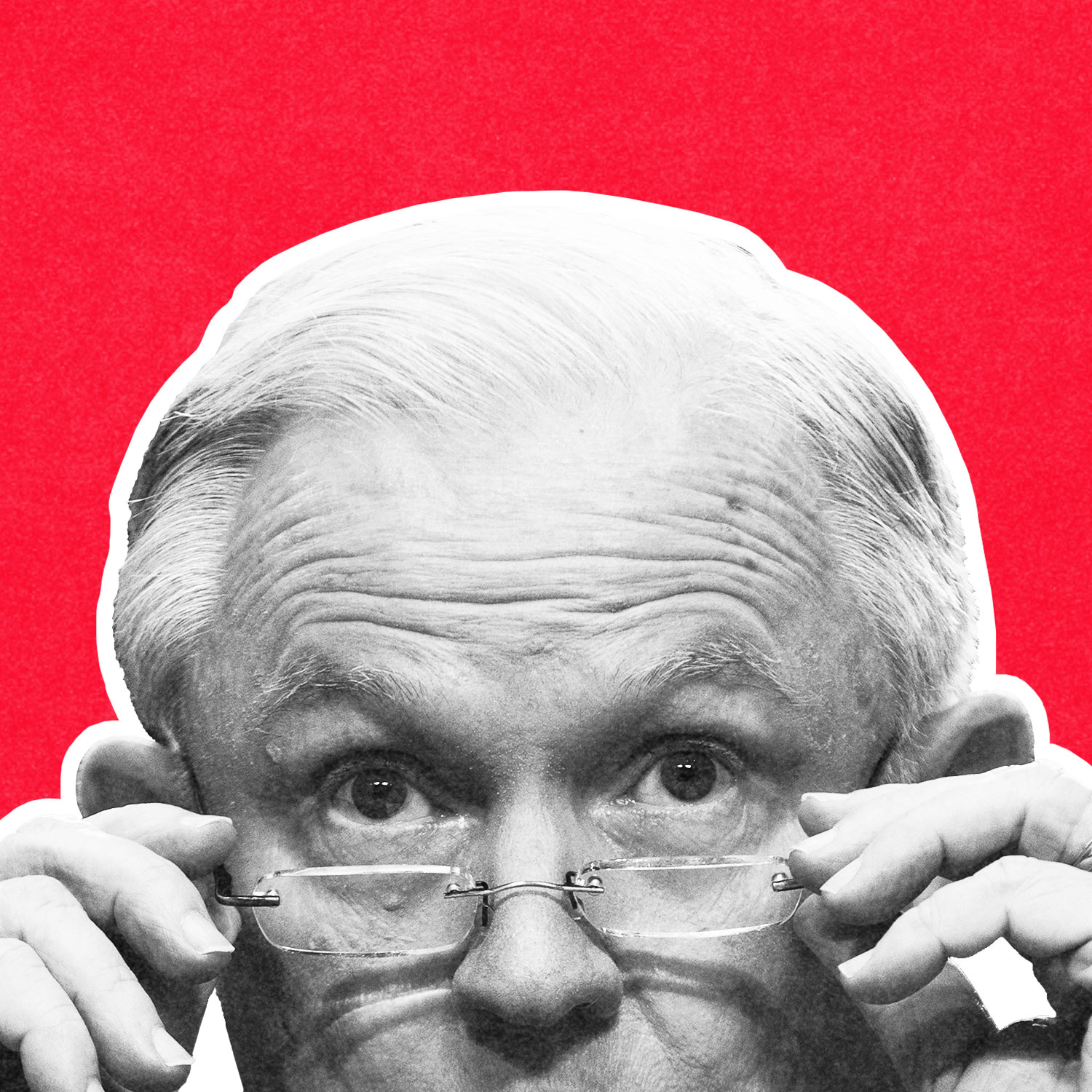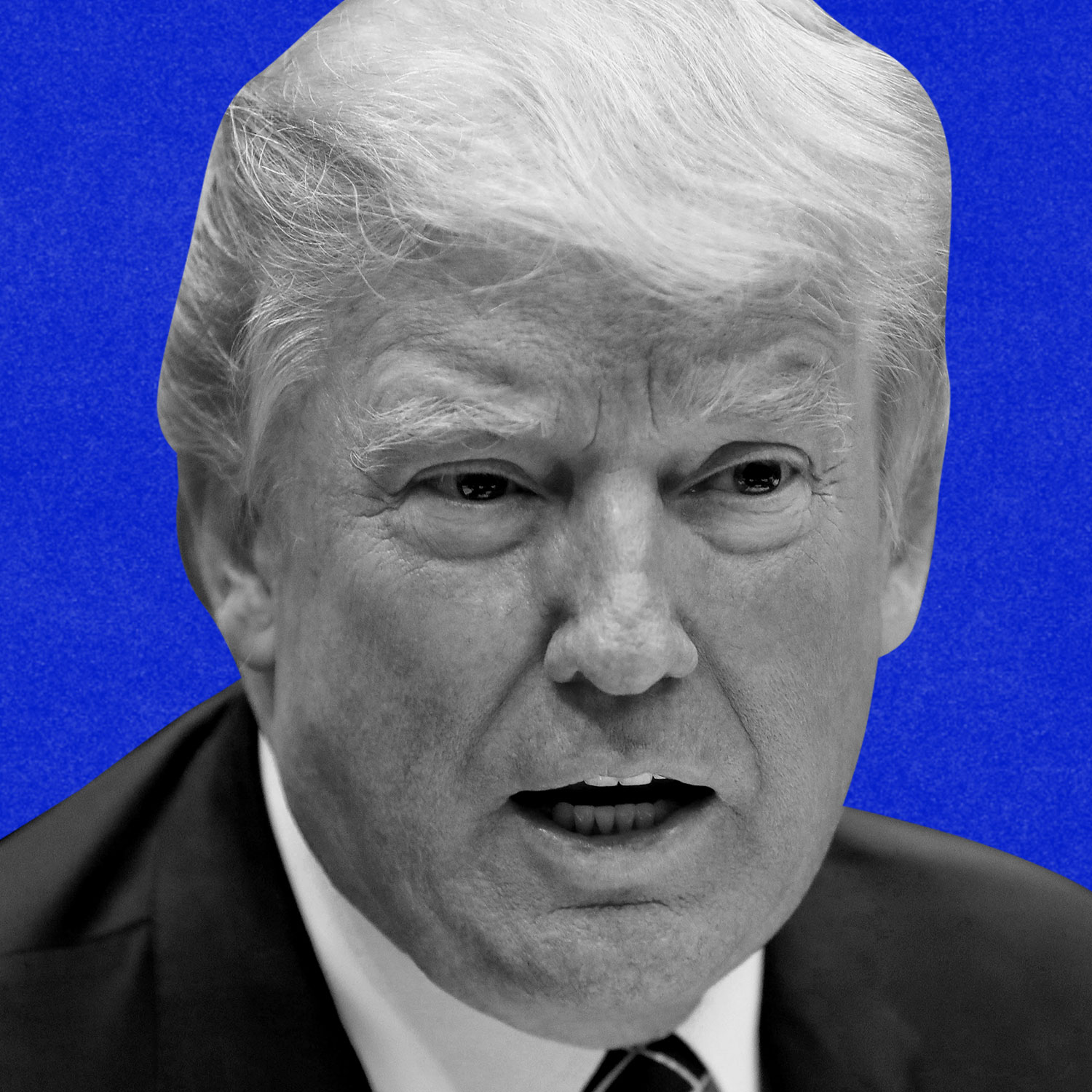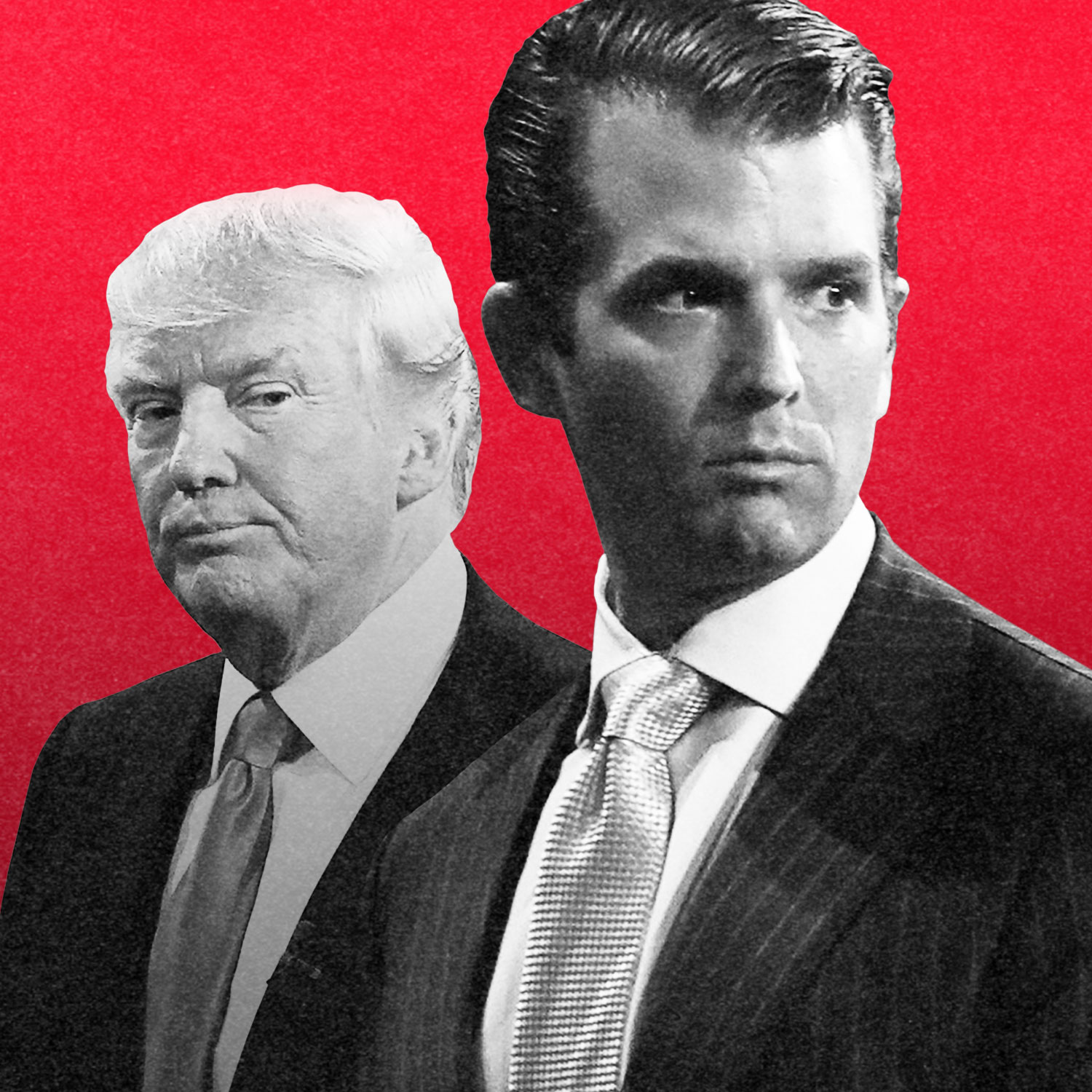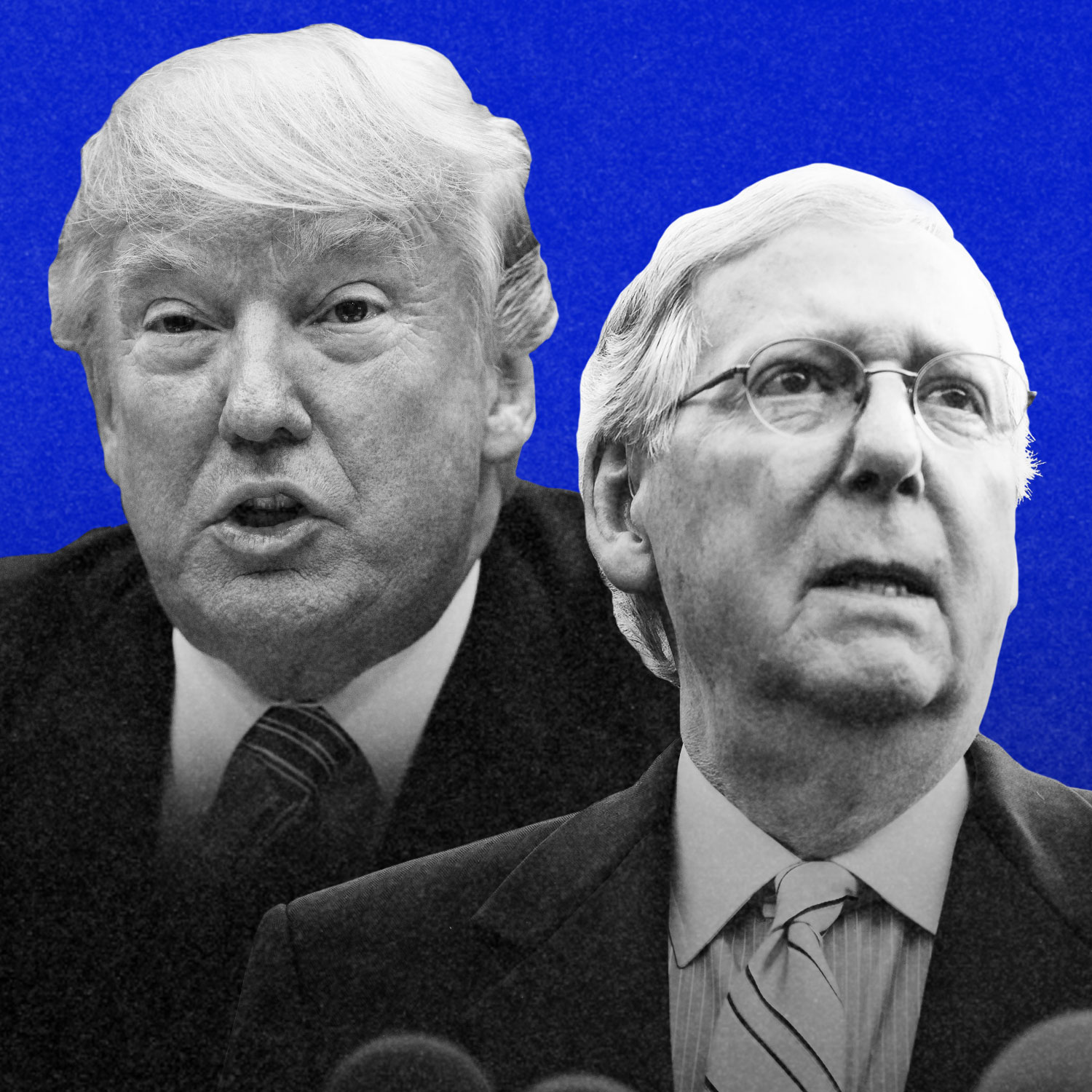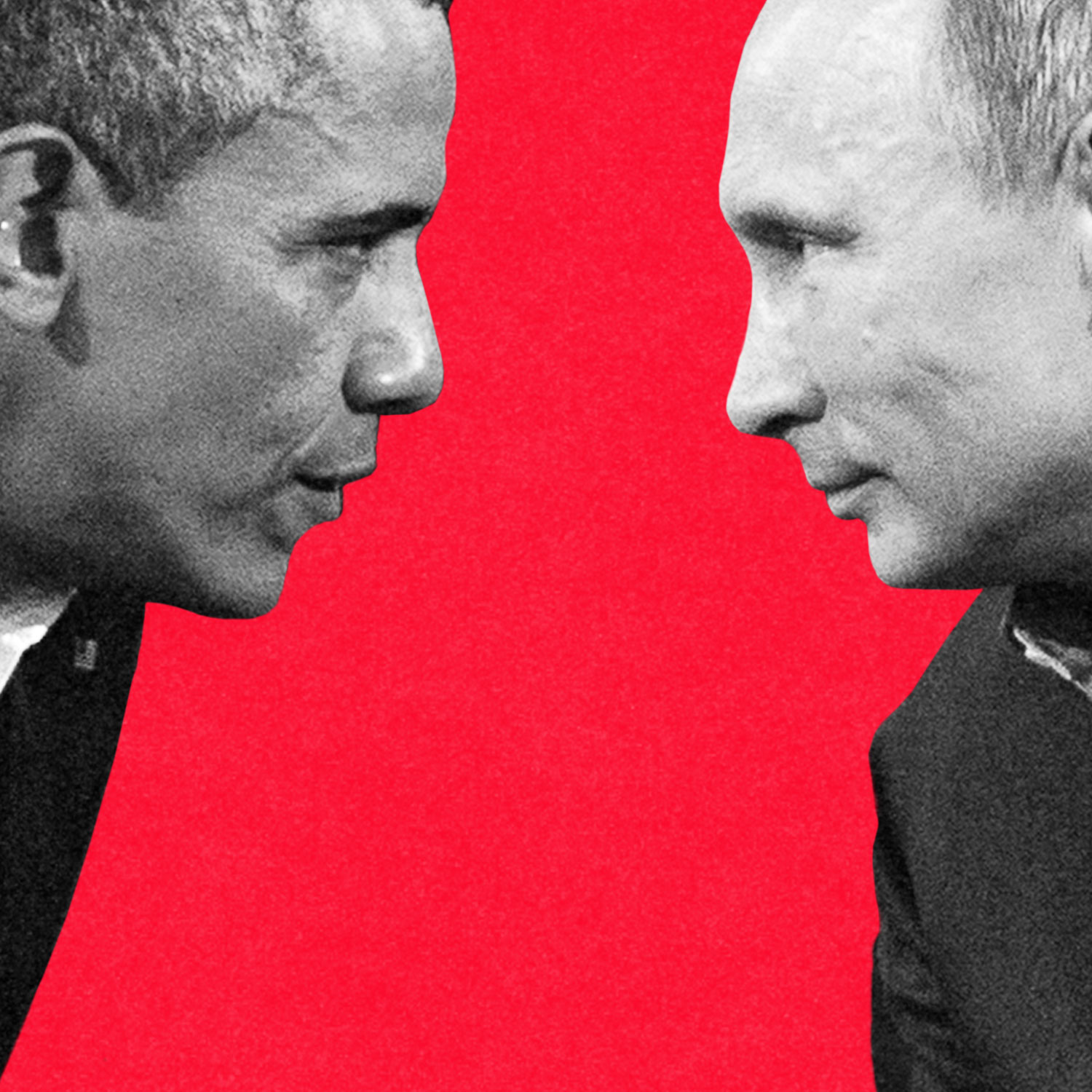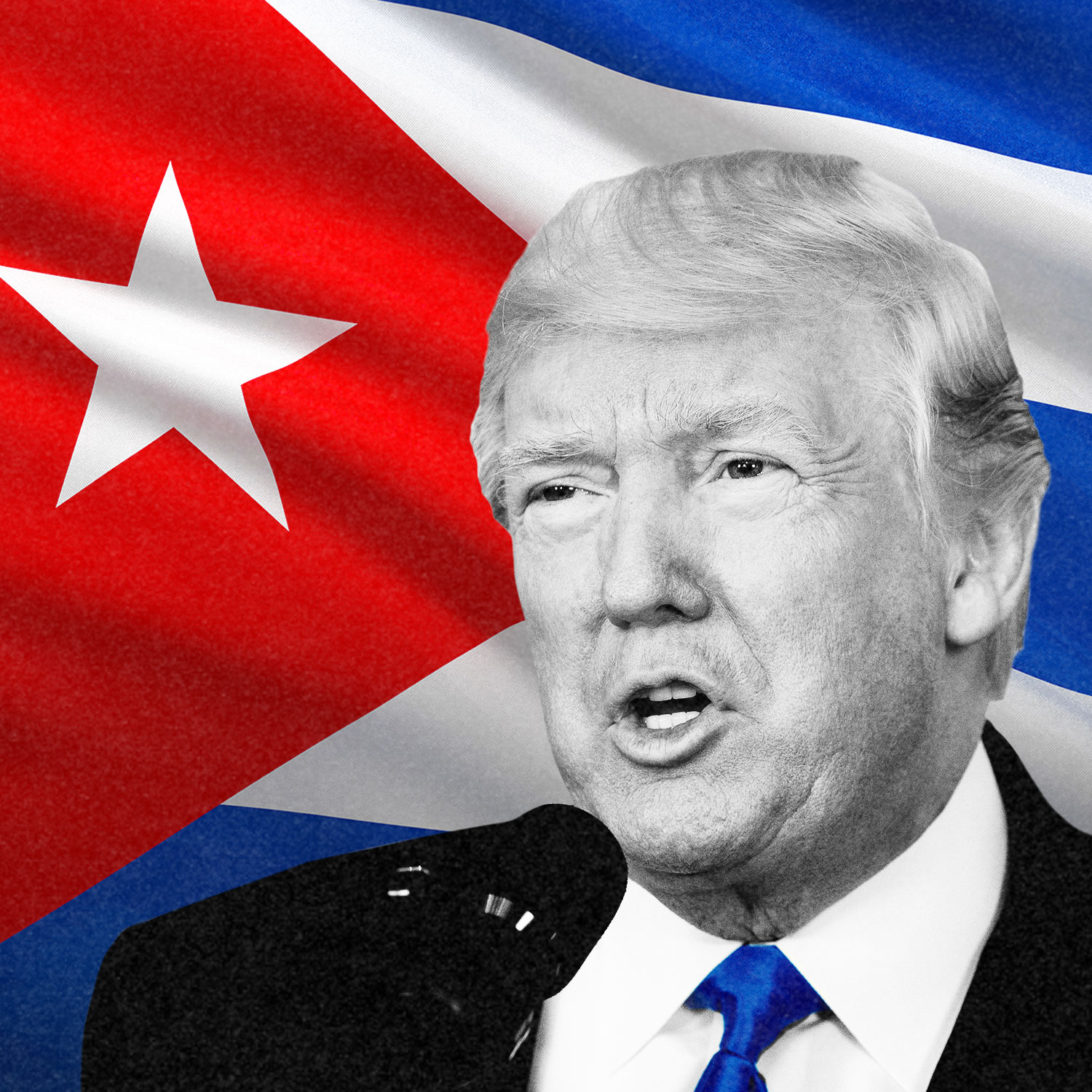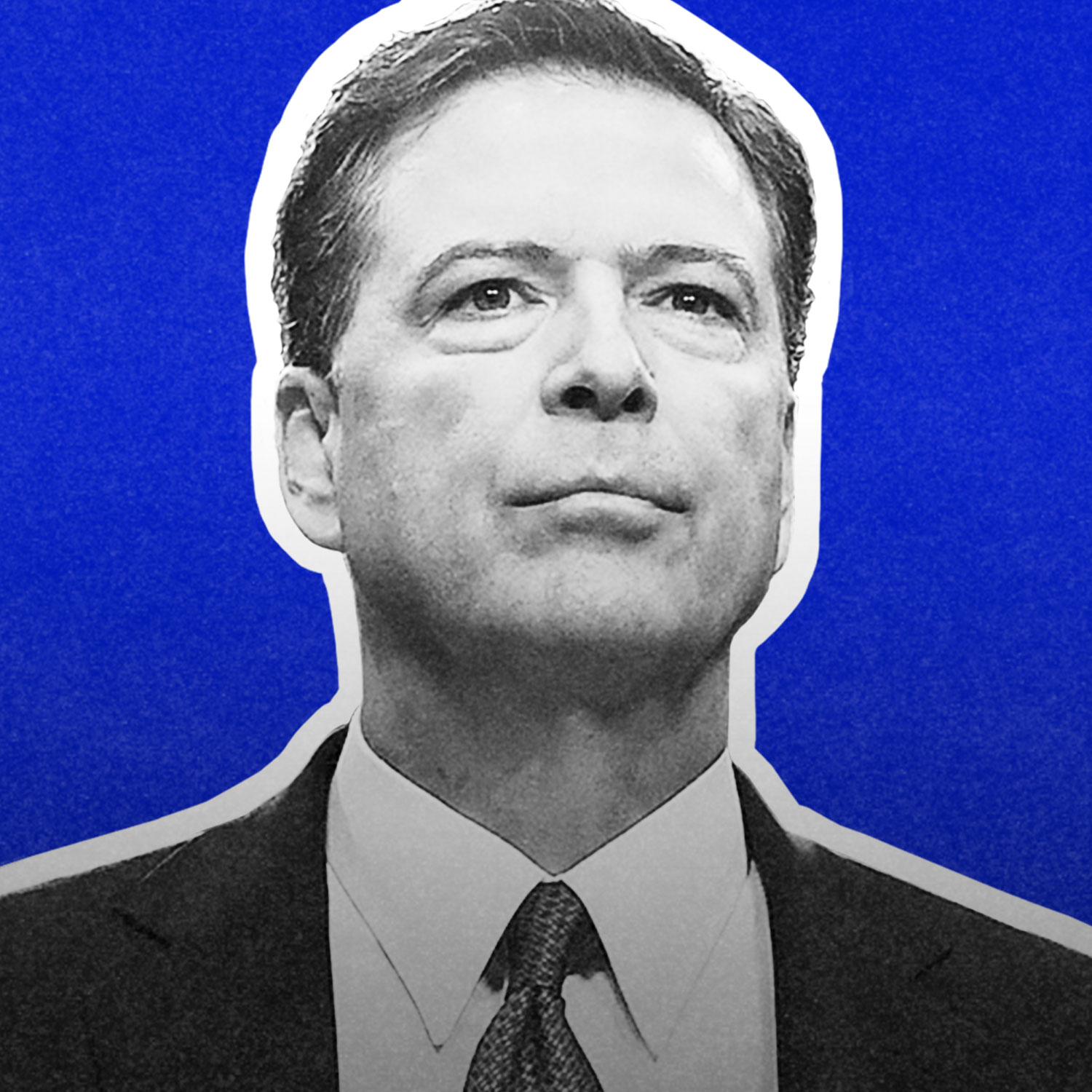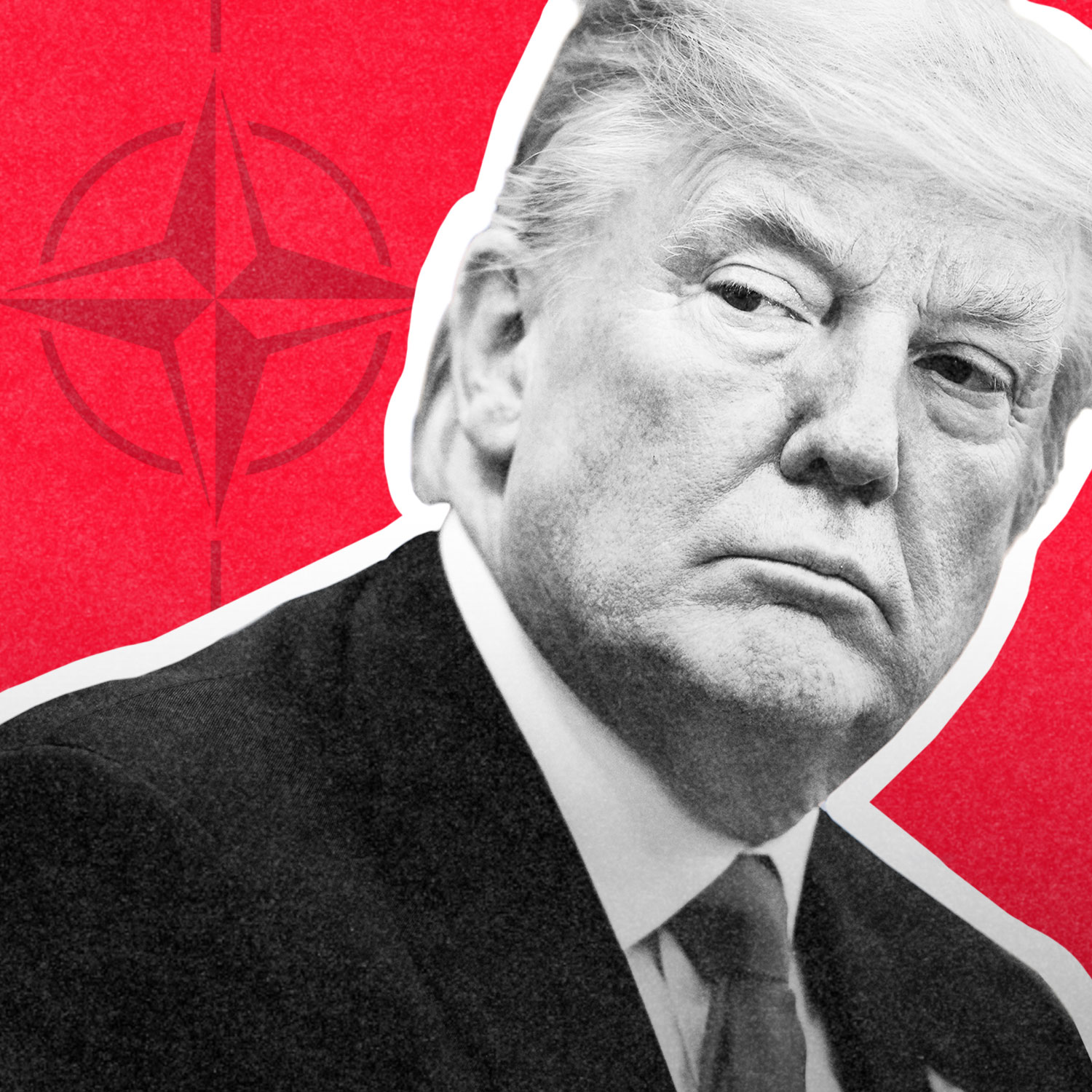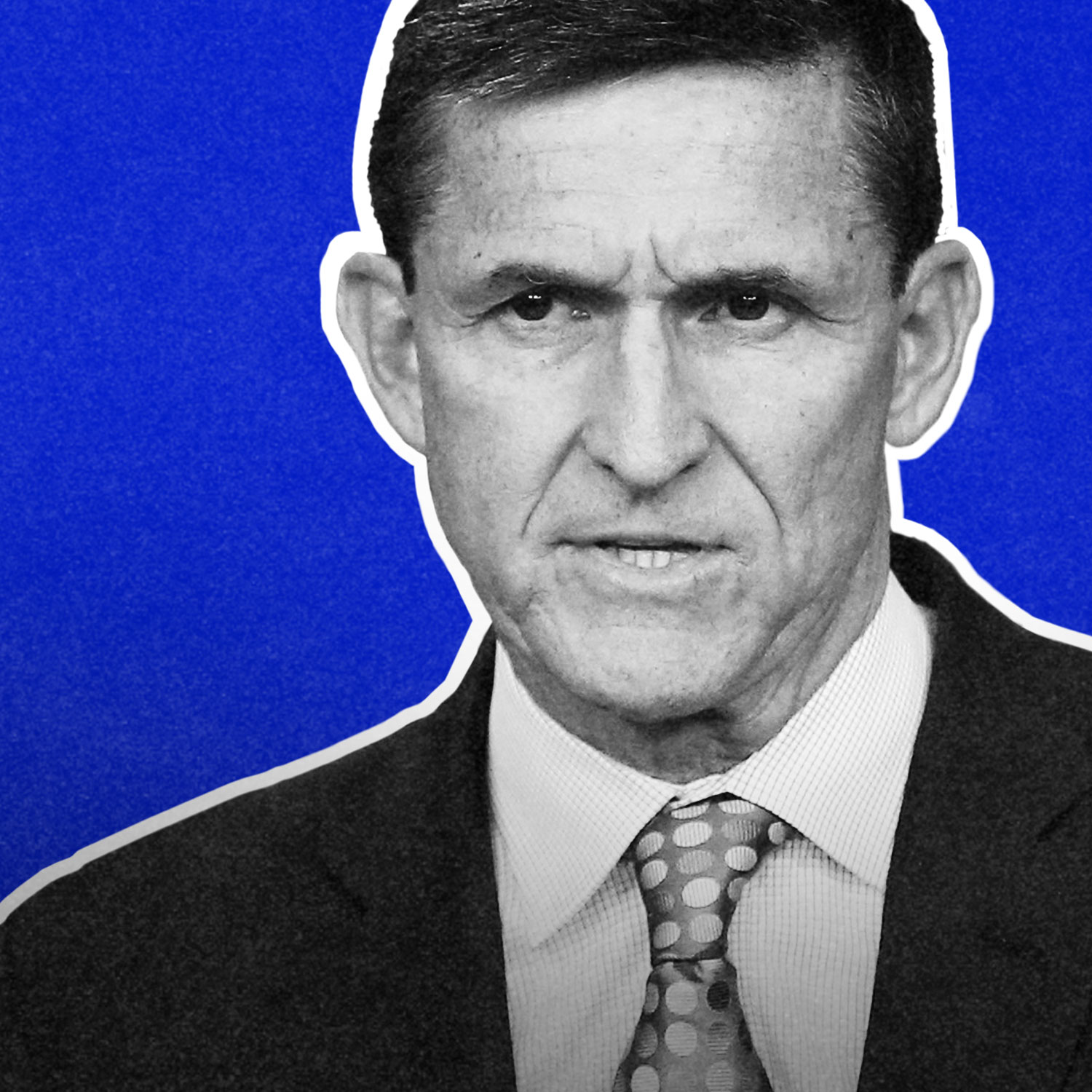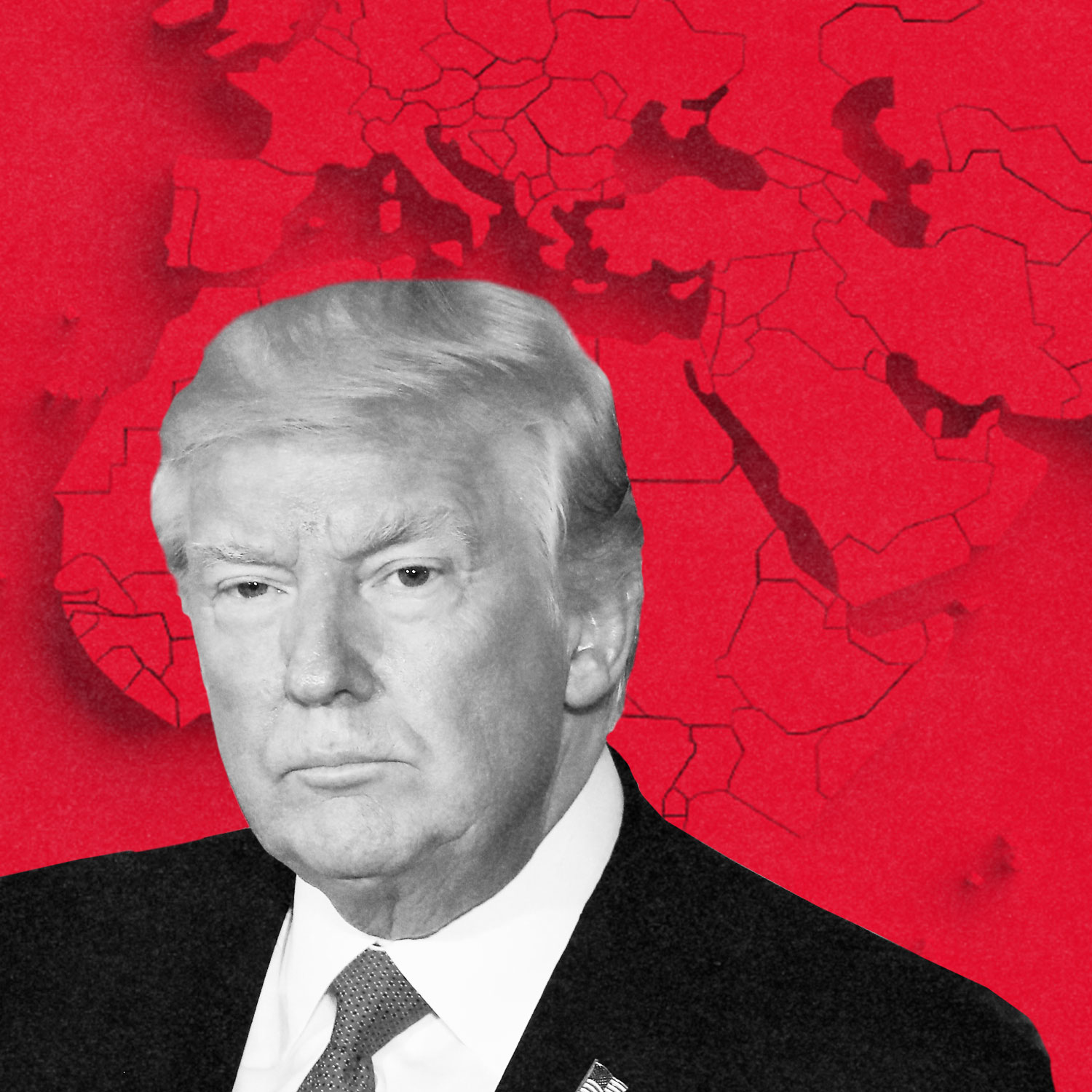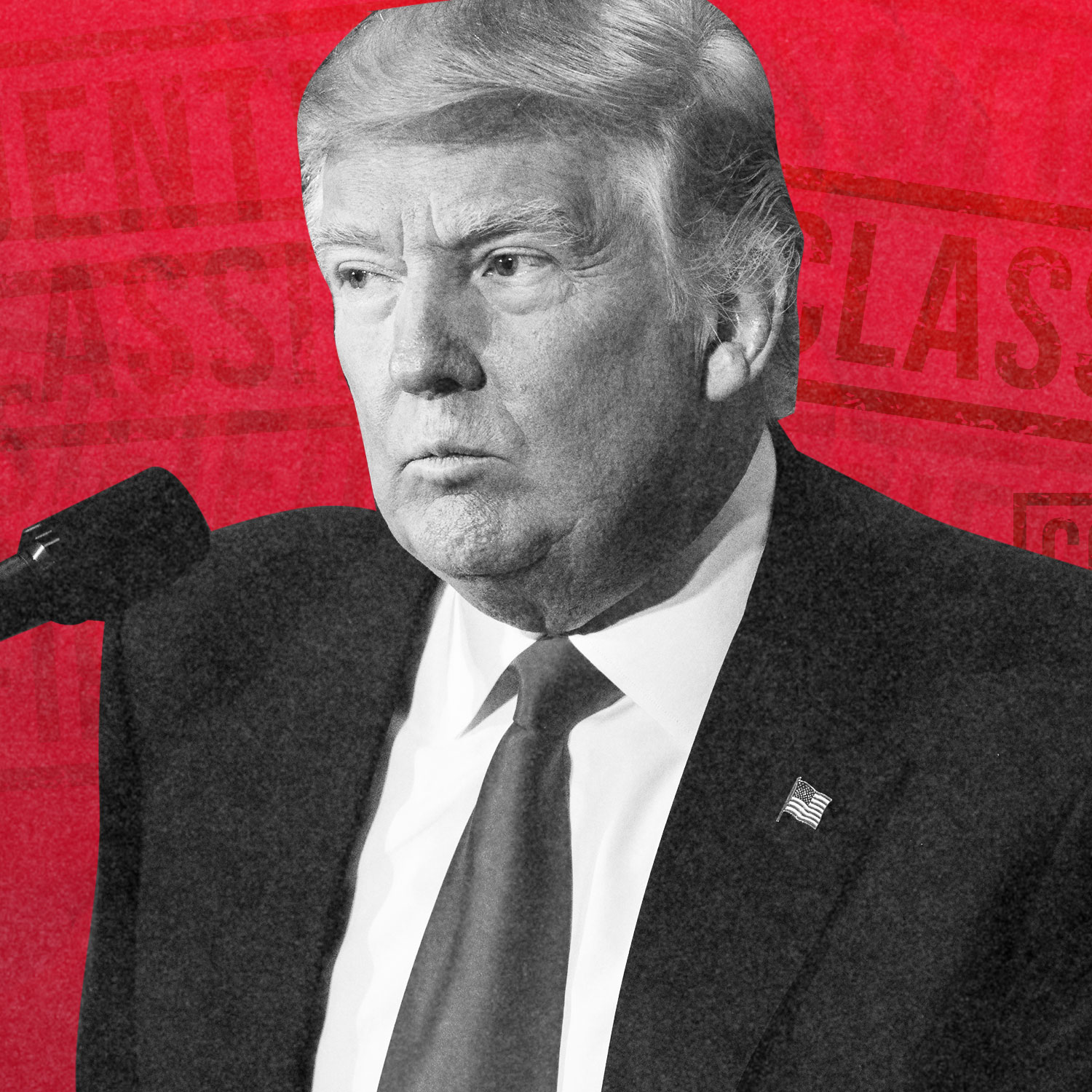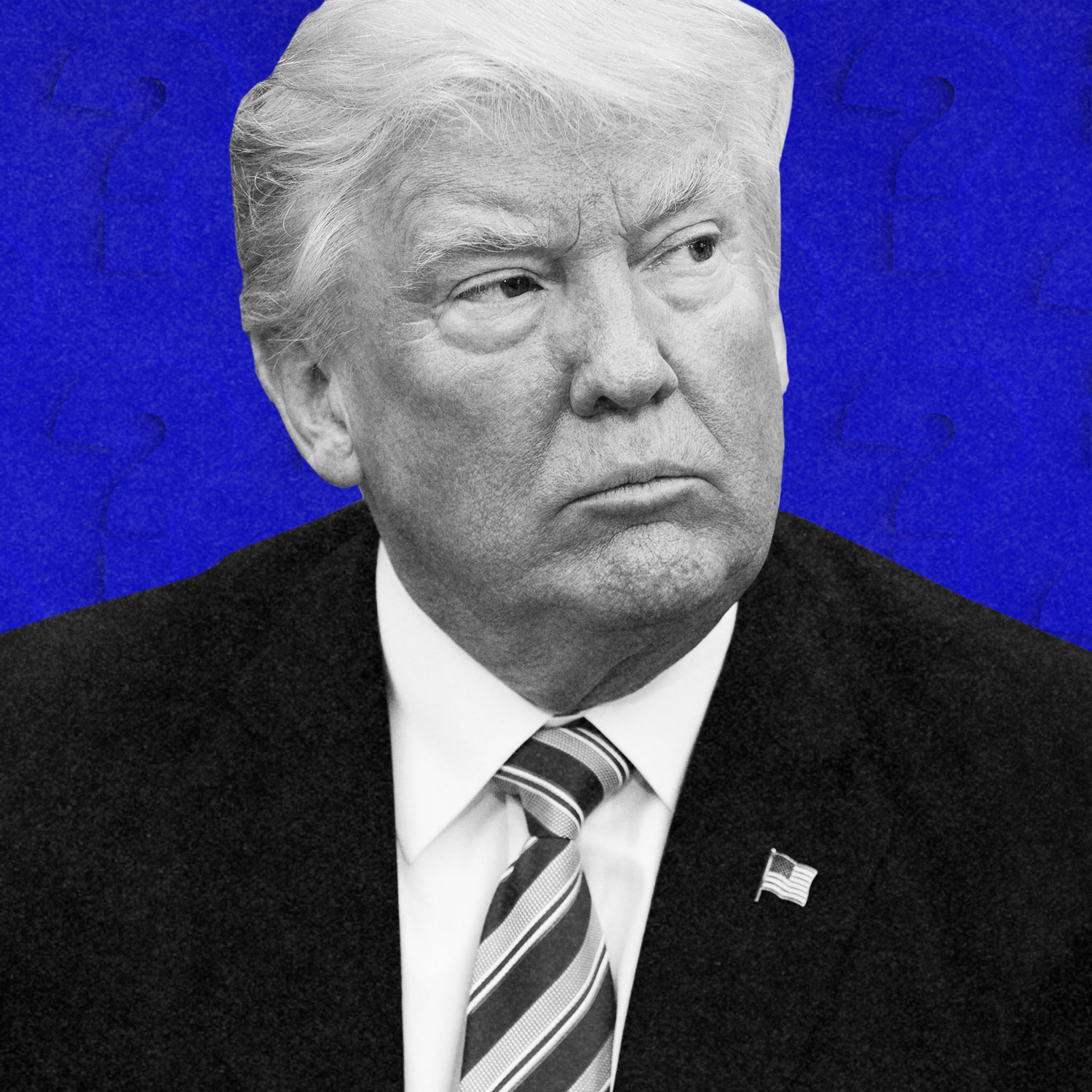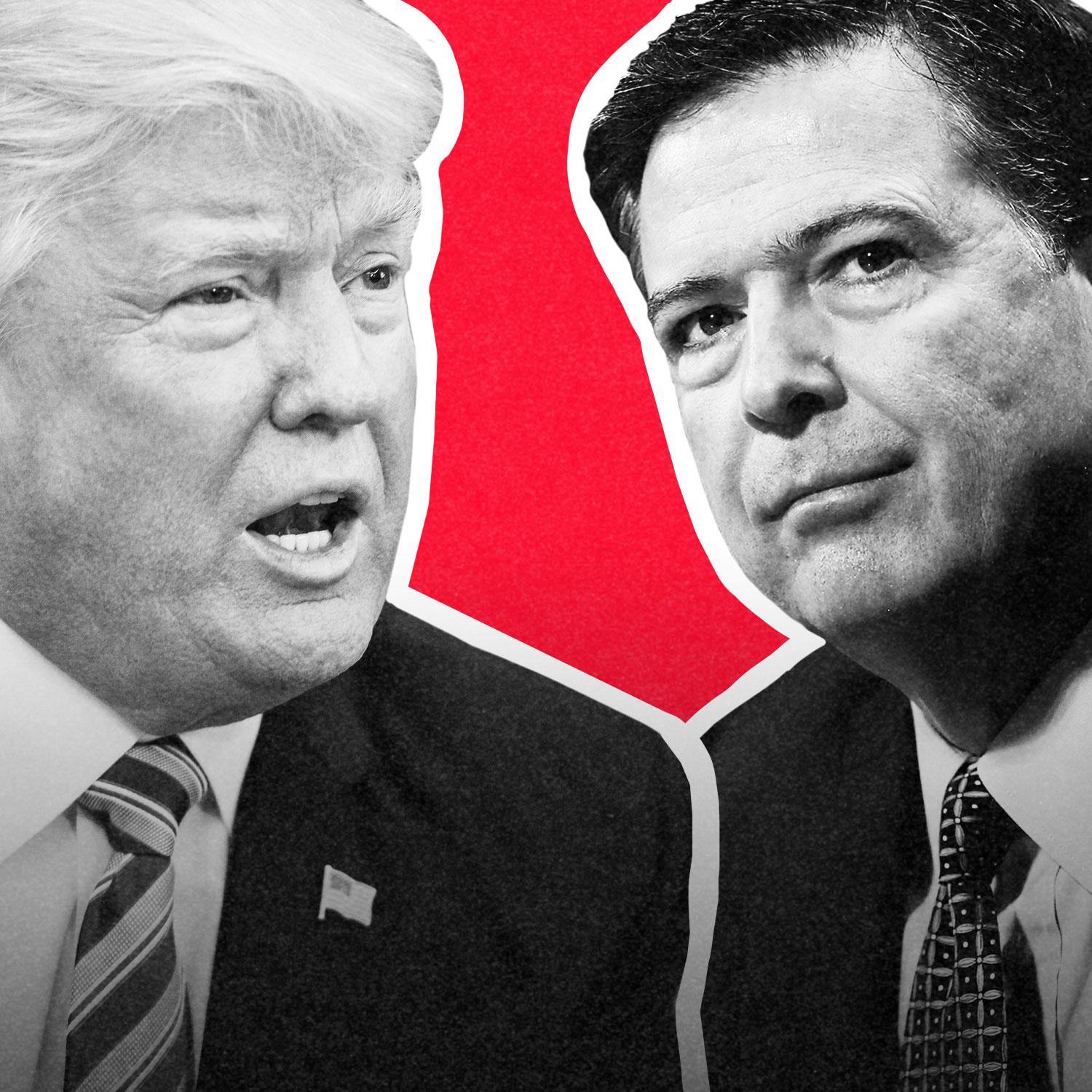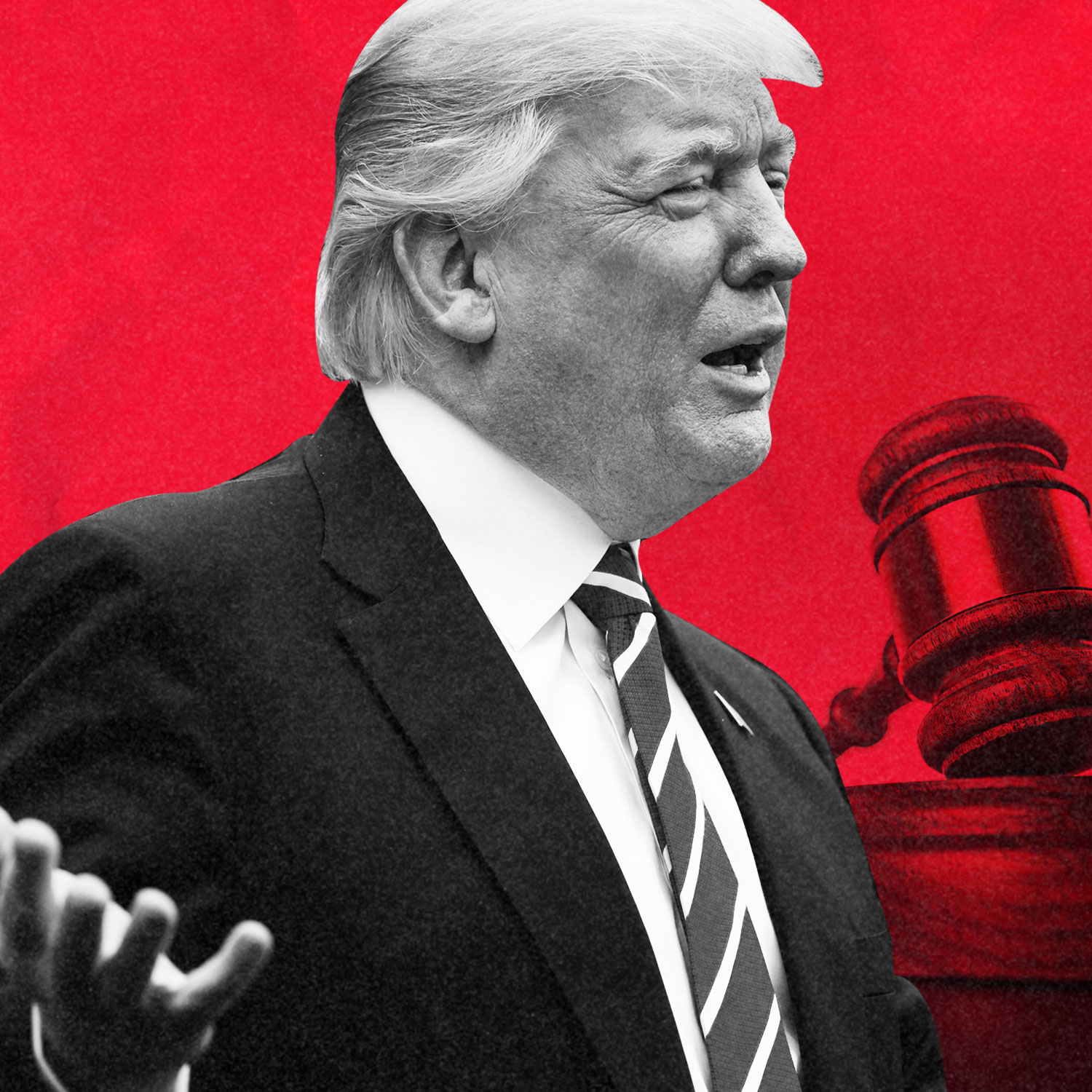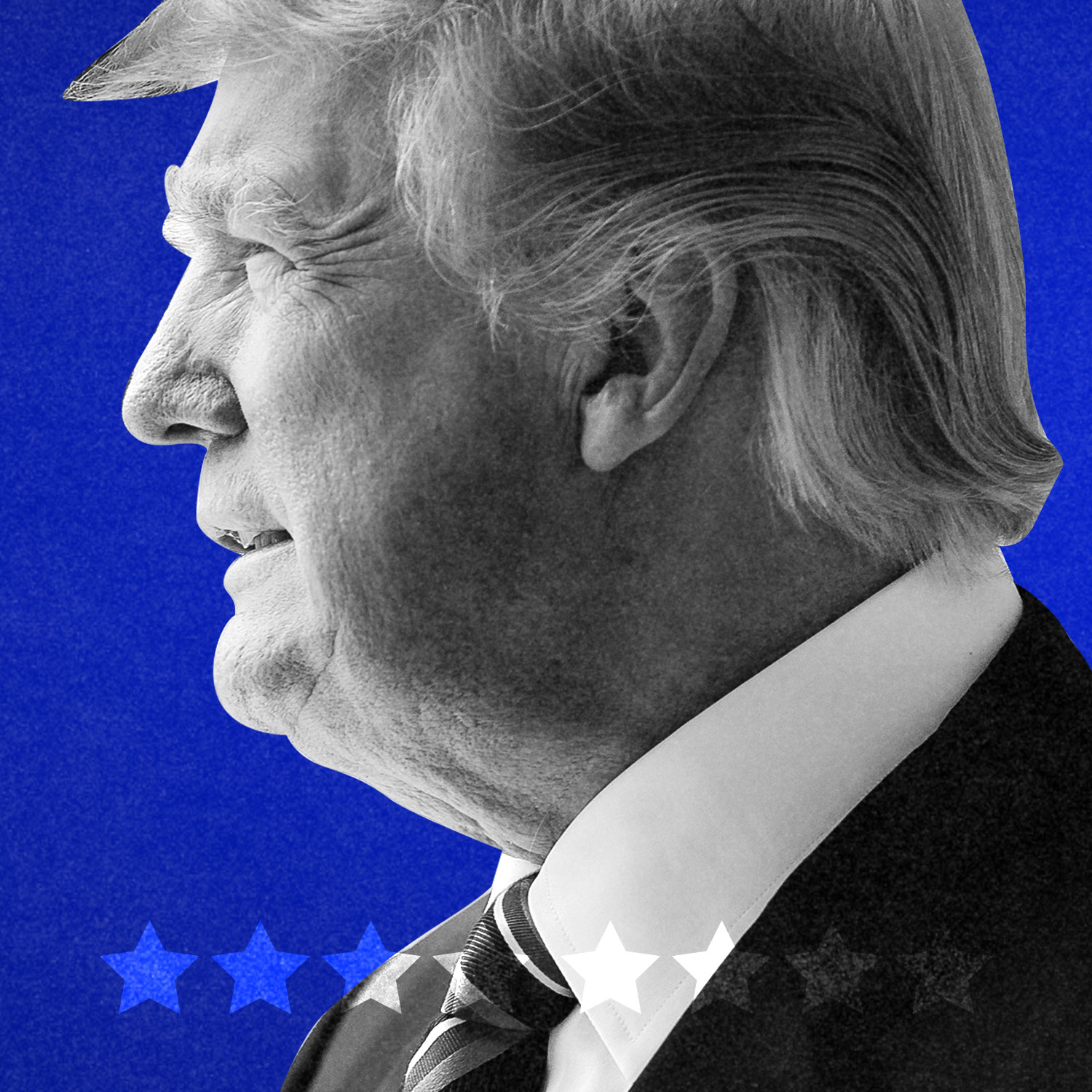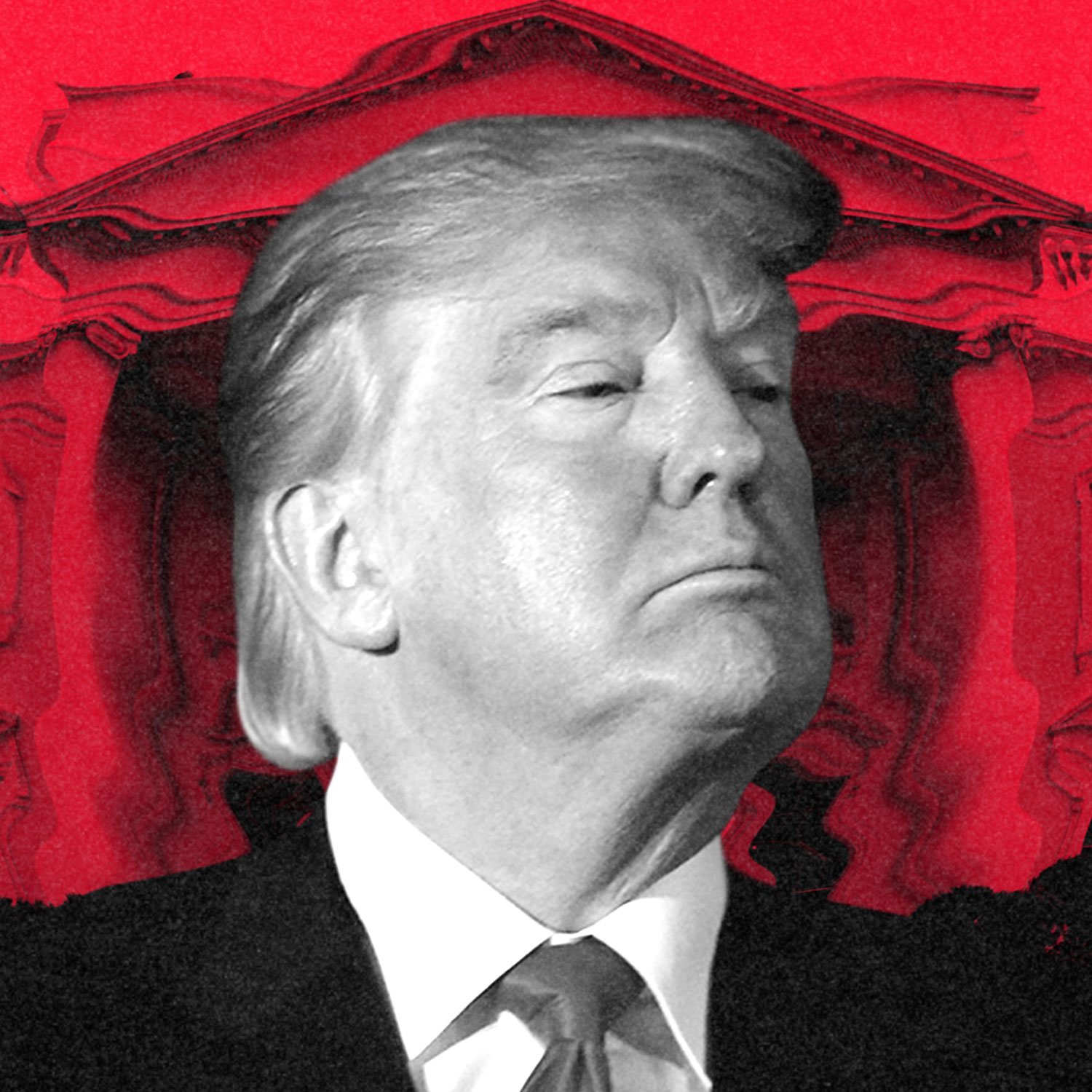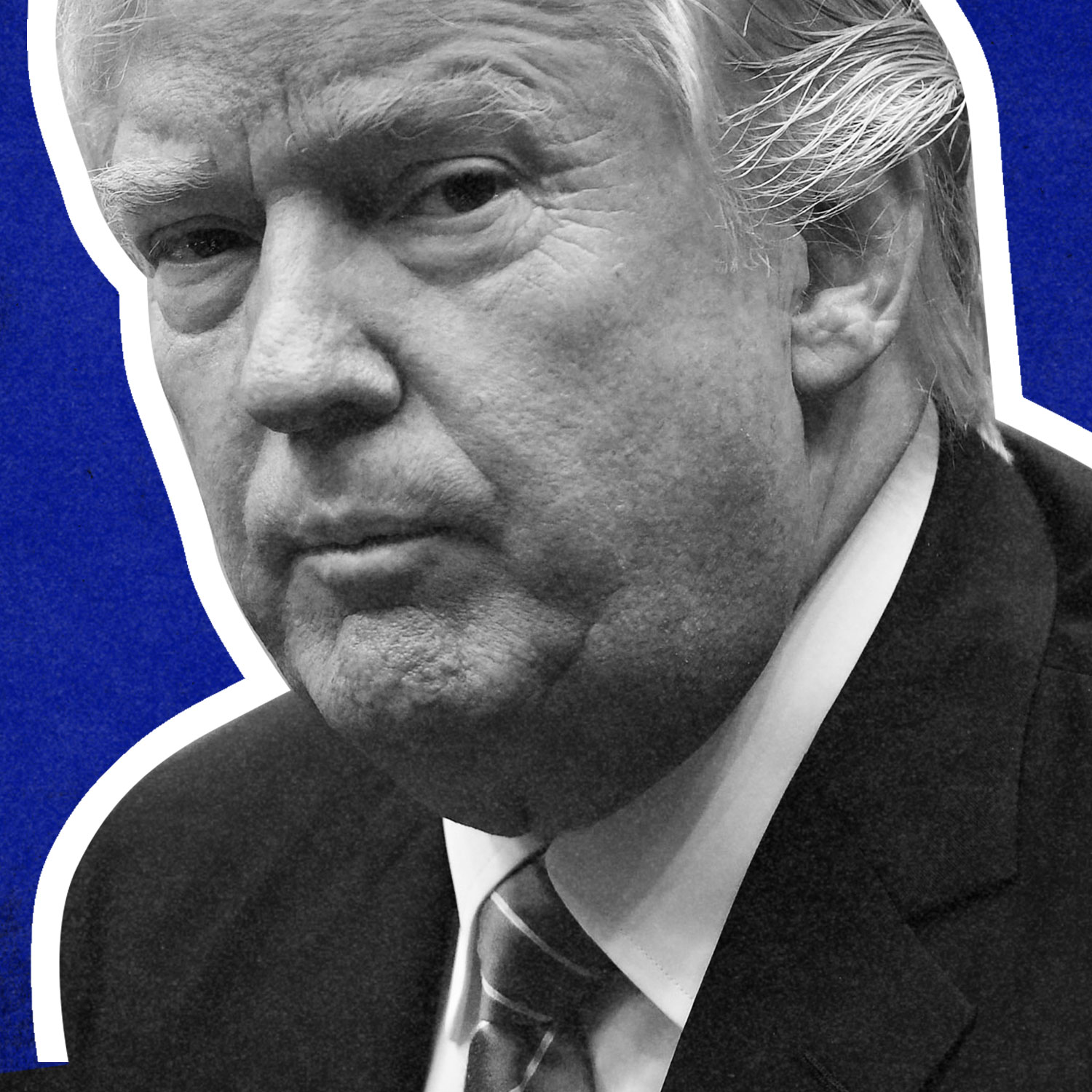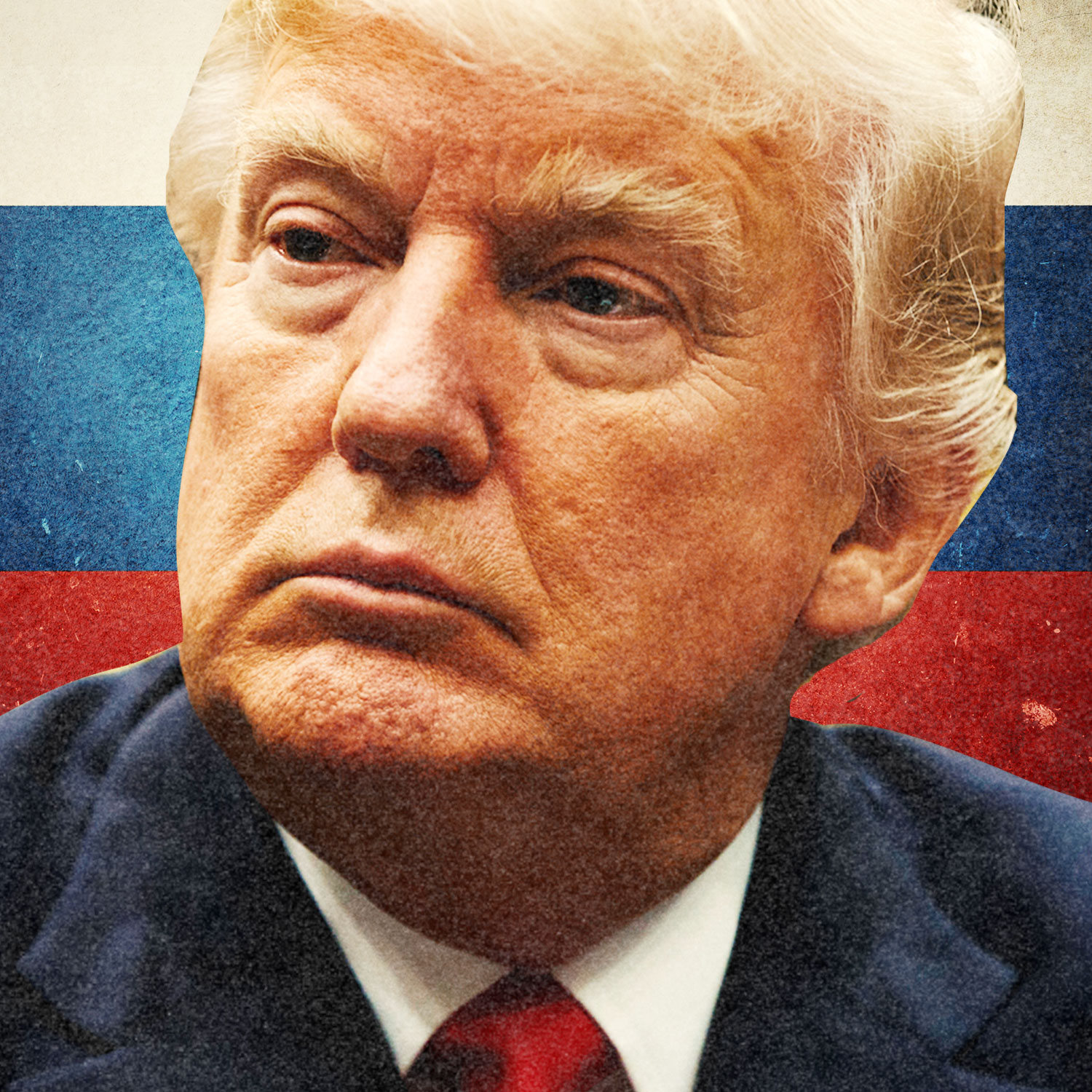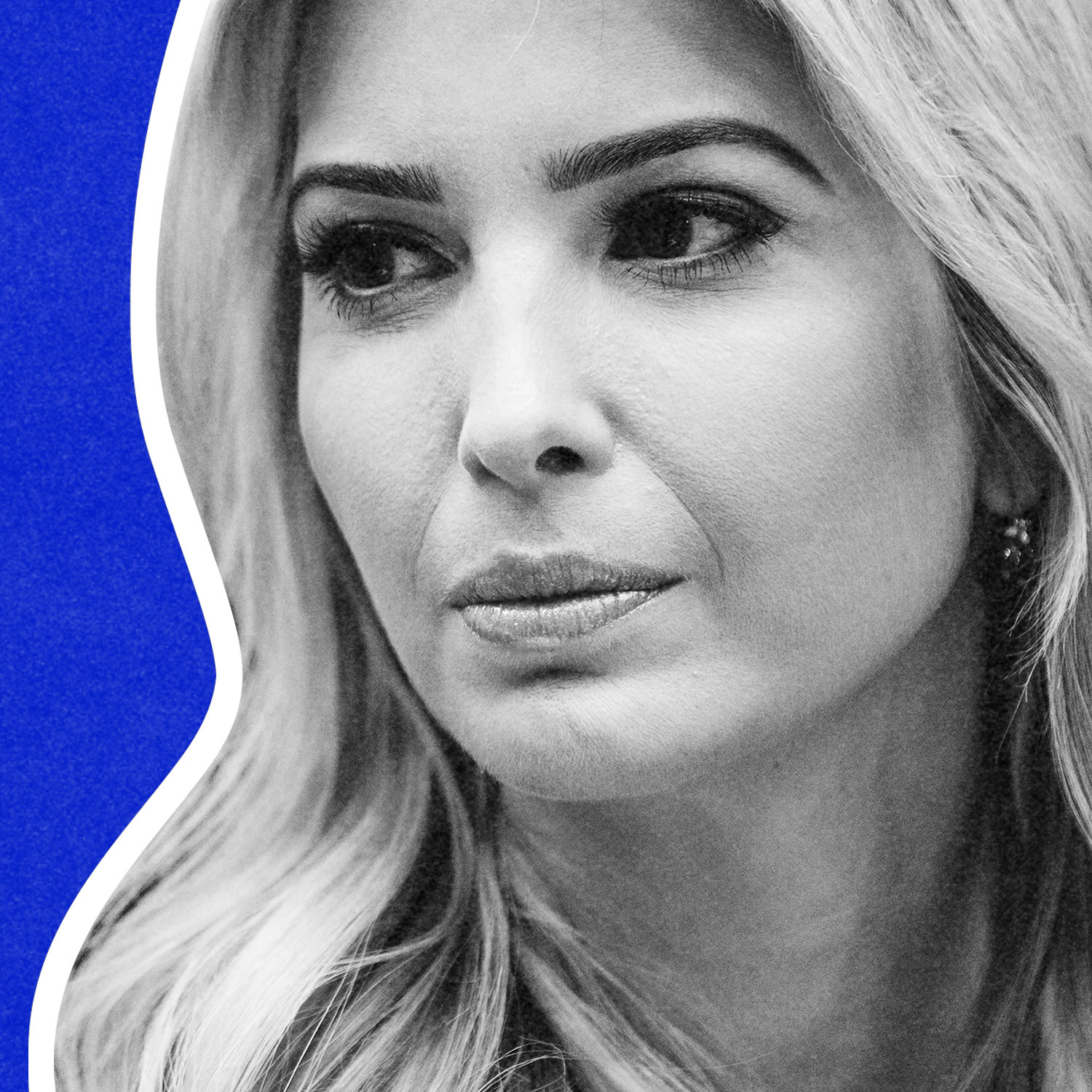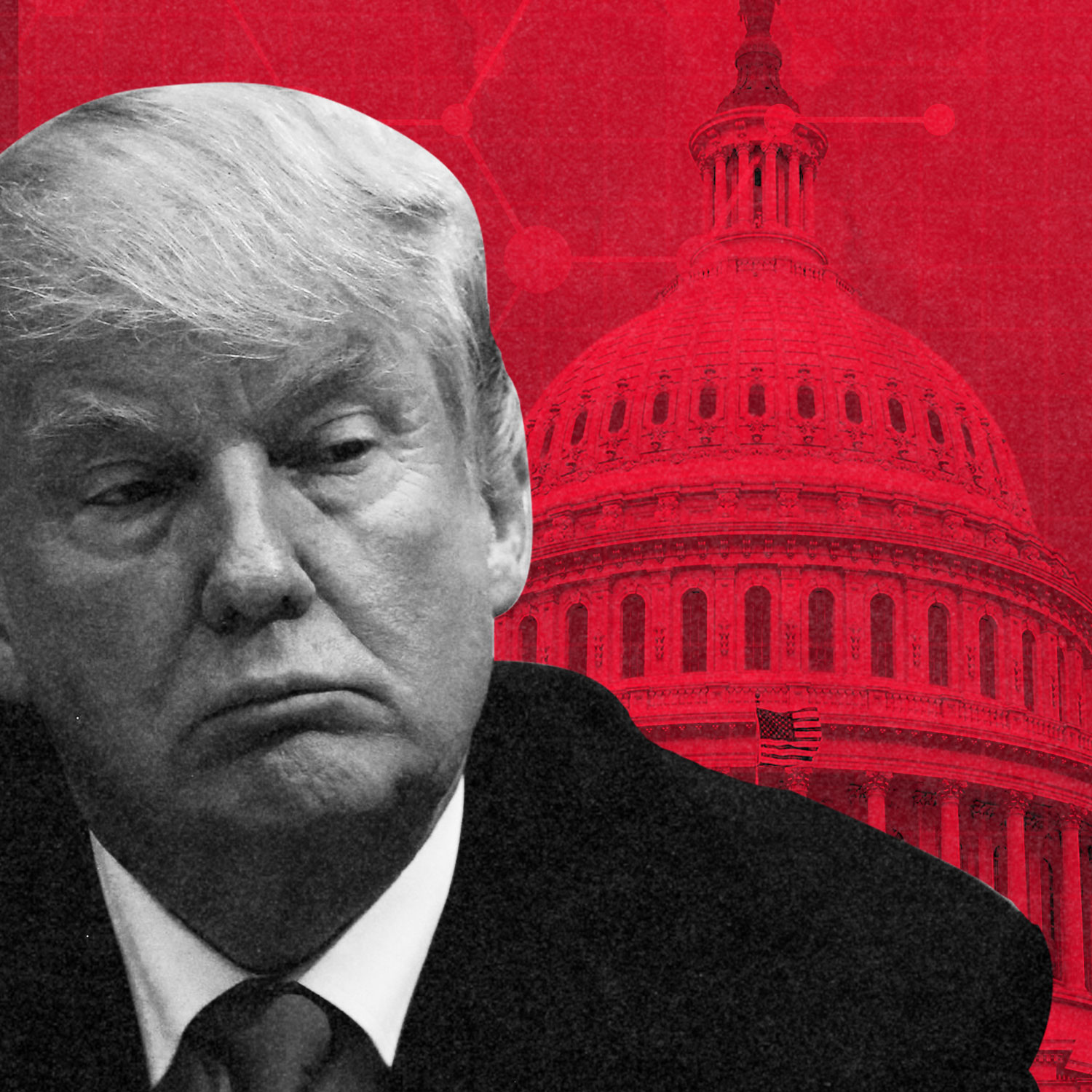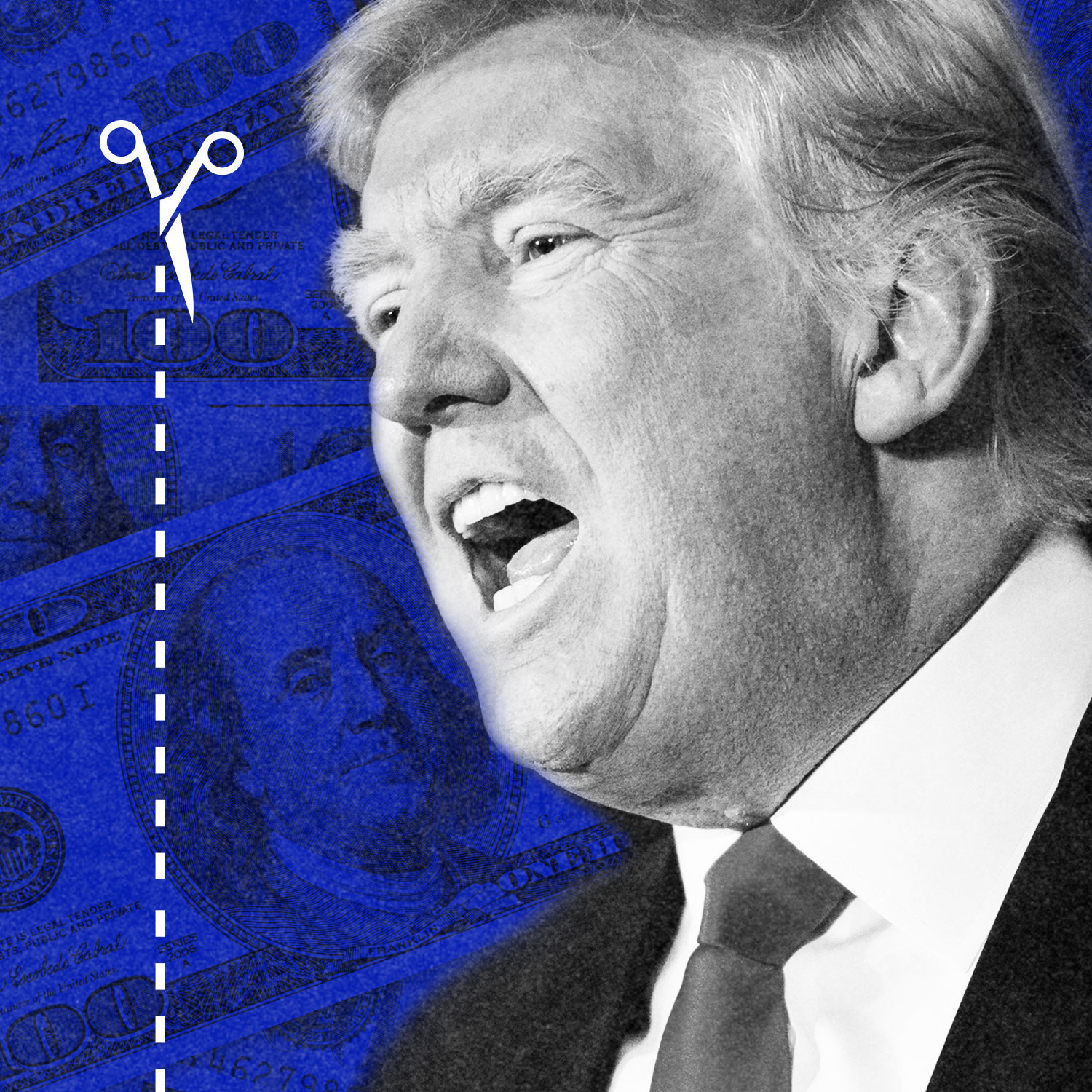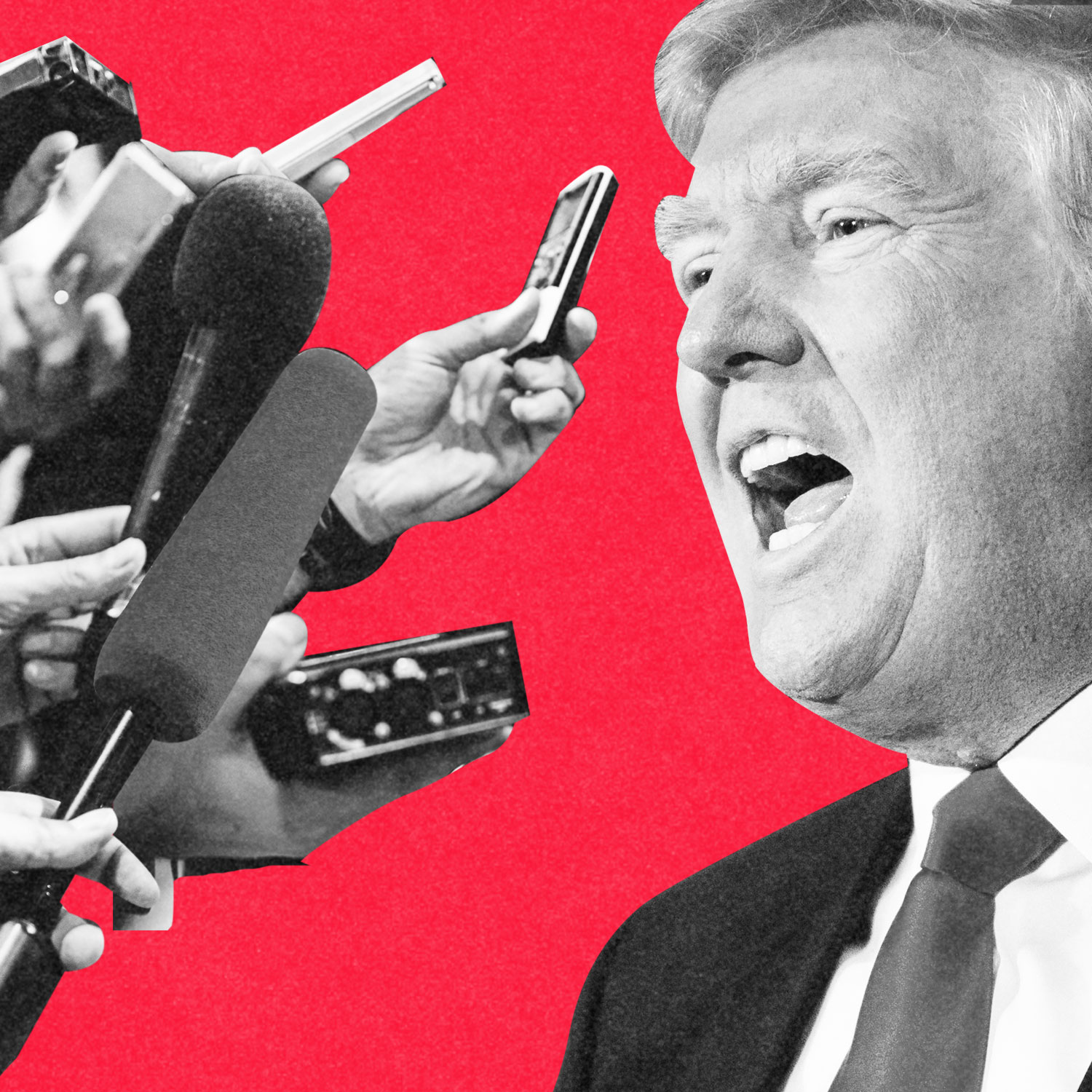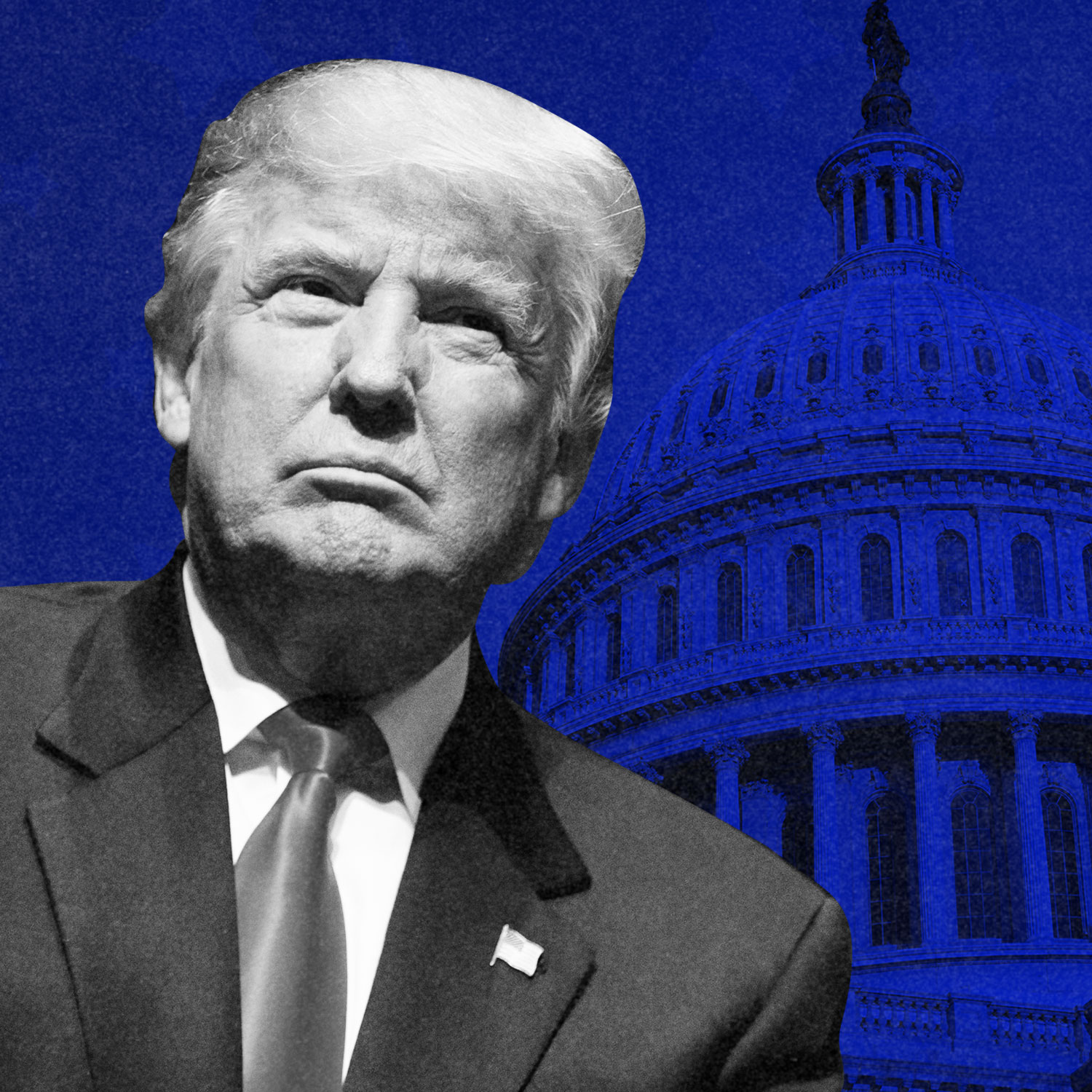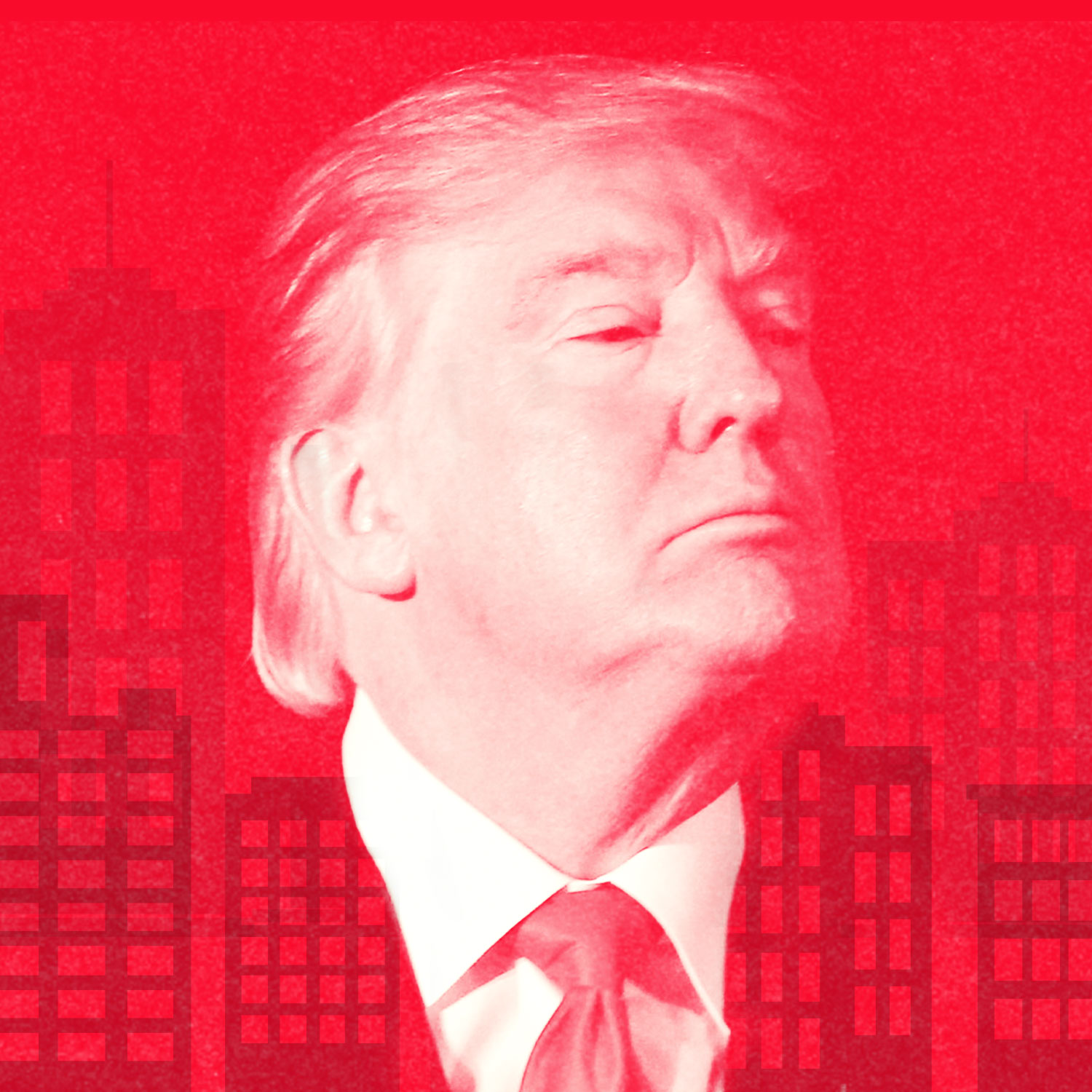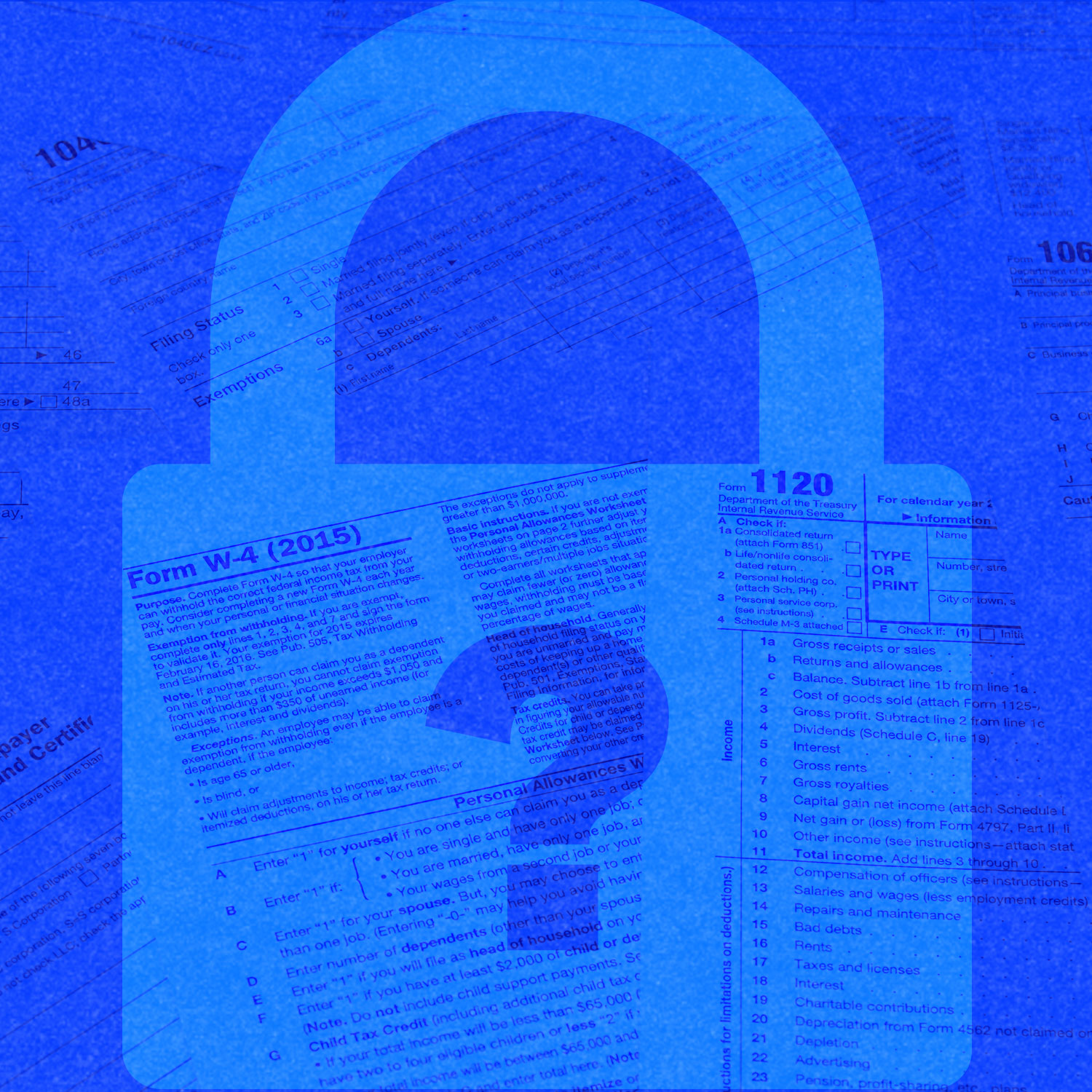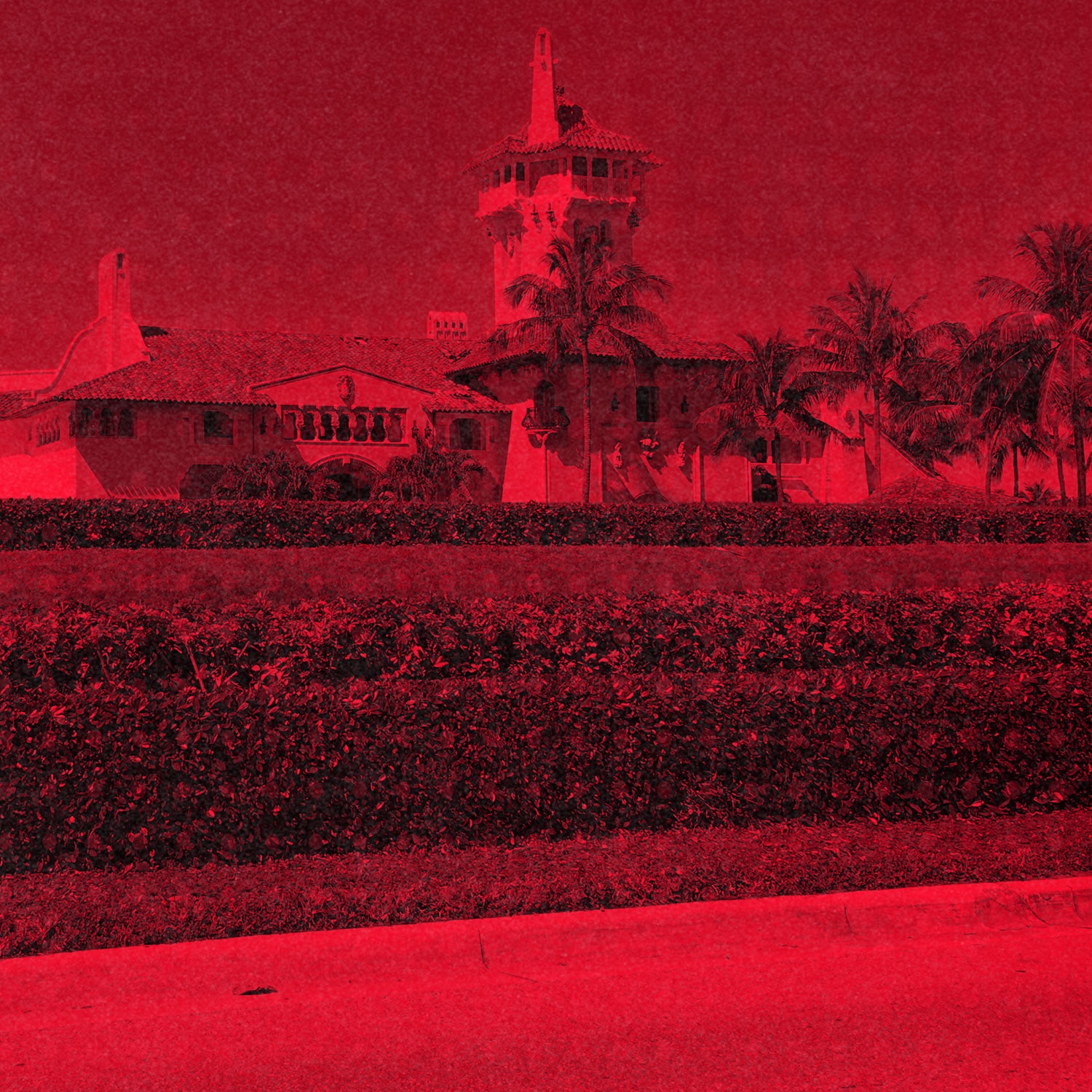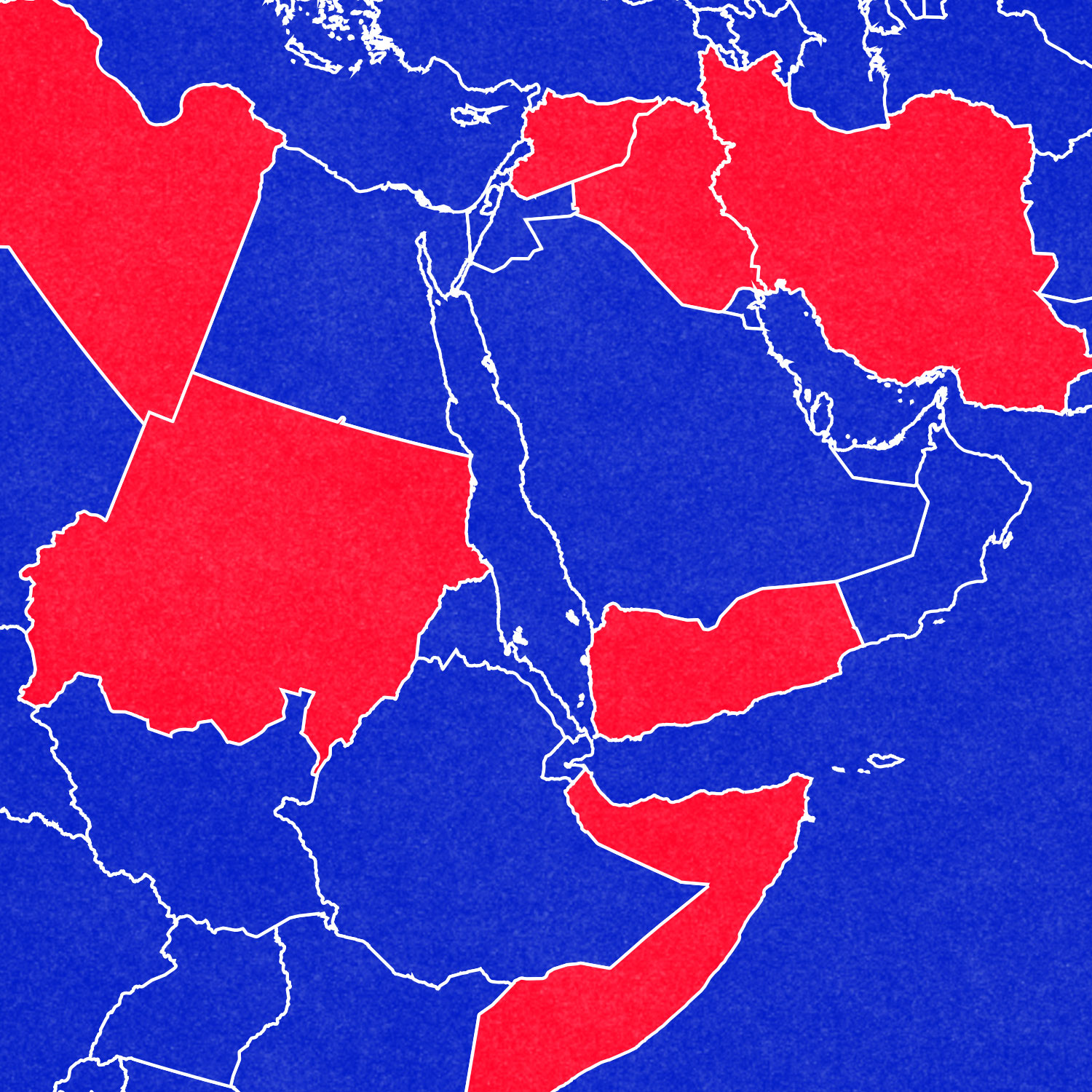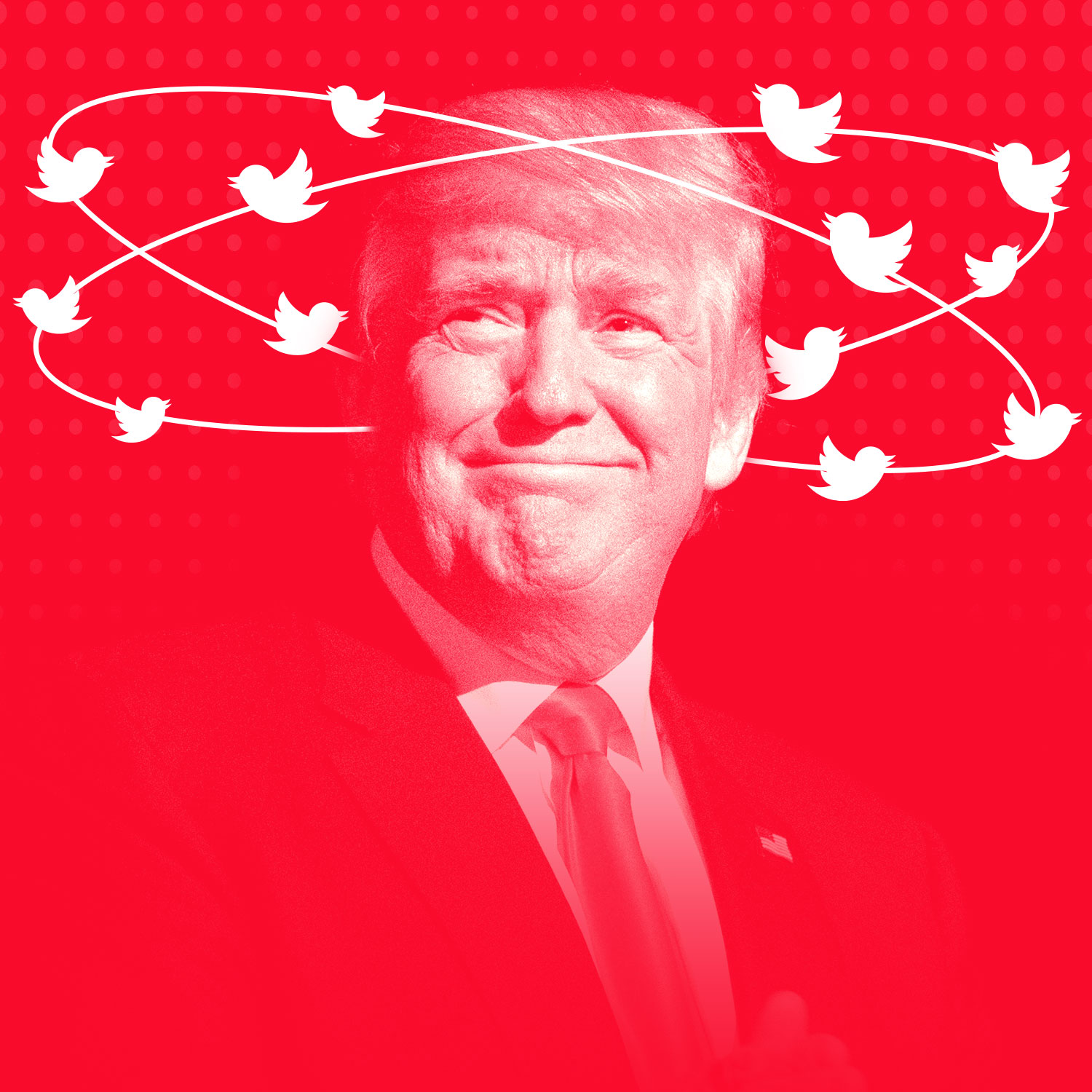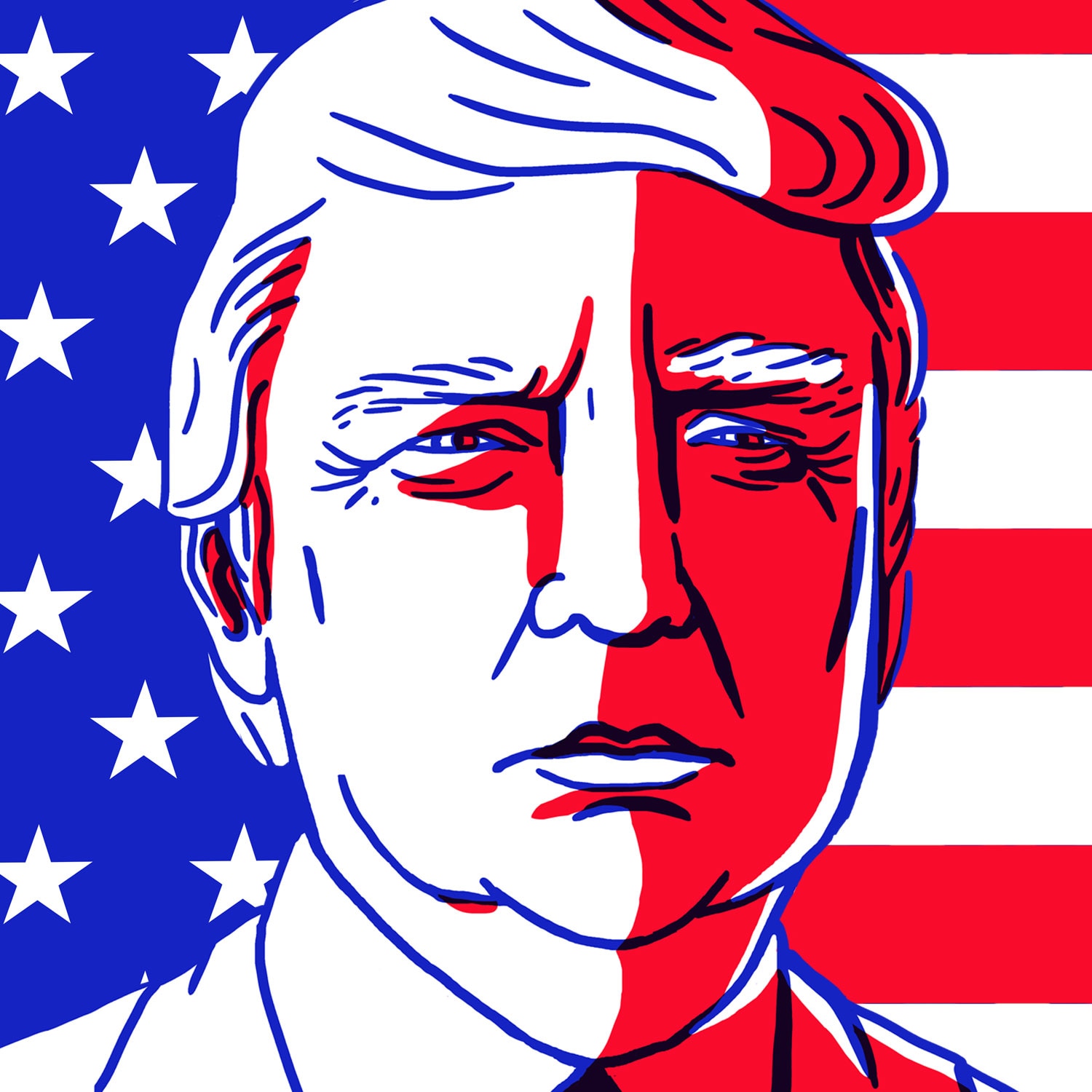Can He Do That?
“Can He Do That?” is The Washington Post’s politics podcast, exploring presidential power in the face of weakened institutions, a divided electorate and changing political norms. Led by host Allison Michaels, each episode asks a new question about this extraordinary moment in American history and answers with insight into how our government works, how to understand ongoing events, and the implications when so much about the current state of American life and the country’s politics is unlike anything we’ve seen before.
News 242 rész Can He Do That?
Do presidents have the power to stop mass shootings?
21 perc
242. rész
After tragedies in Colorado and Georgia, Biden has pledged to tighten gun laws. But the country has been here before, in the aftermath of mass shootings. Regardless of which party is in power, little reform has happened. Will this time be different?
Related reading and episodes
- How much can a president affect gun policy?
- Shootings spur Biden to call for tighter gun rules
The political power of culture wars
29 perc
241. rész
We examine why transgender rights have risen to the forefront of our politics, and what the history of the modern Republican party reveals about how social issue battles work as a political tool, with reporter Samantha Schmidt and professor Brian Conley.
Related reading and episodes
Biden signed a $1.9 trillion bill. How much relief will Americans feel?
27 perc
240. rész
Will low income Americans feel their lives change in tangible ways? On the other hand, might a fast-growing economy cause big problems? Plus, how might Biden make sure Americans know the government is responsible for some of economic changes they see?
Related reading and episodes
How to fix our democracy? Start in Kindergarten.
20 perc
239. rész
A new report draws a line from today’s civics crises to a long-standing failure to effectively teach American government and history in our public schools. On this episode, we explain what the potential outcomes for civic engagement.
Related reading and episodes
Reshaping the role of the Justice Department
28 perc
238. rész
Can Attorney General nominee Merrick Garland rebuild confidence in the DOJ's independence? How might his efforts on Biden policies like combating far-right extremism and curbing police violence make the perception of an independent DOJ harder?
Related reading and episodes
Biden’s shifting benchmarks for reopening schools
28 perc
237. rész
Can President Biden come through on this promise of reopening most schools within his first 100 days? How much can the president influence when and how schools welcome students back into the classroom? And what are the political consequences?
Related reading and episodes
The duty of a president during crisis
26 perc
236. rész
Some of the arguments in Trump's second impeachment trial get at the core of presidential responsibilities. We examine two of them to clarify the duties of a president during crisis and to understand how free speech applies to the commander in chief.
--
Virtual event information: Want something fun to do on Presidents’ Day when you can’t leave the house? Join Presidential podcast host Lillian Cunningham for a(free!)'Presidential' trivia night with special guests, fun prizes, plus a demo of how to make Warren Harding’s favorite cocktail. Register here: bit.ly/2YwuEWy
Related reading and episodes
Biden says he wants to reunite migrant families. It won’t be easy.
28 perc
235. rész
Families are still separated years after President Trump's policy ended. Latin America correspondent Kevin Sieff on the experiences of some migrant families. Plus, immigration policy expert Ali Noorani explains what it would take to reunite families.
Related reading and episodes
Will Biden get you a vaccine?
31 perc
234. rész
How much power does Biden have to affect vaccine distribution and where is his power limited? What role should the federal government play in the process? Plus, officials on the ground explain what it's like to work to get vaccines to their communities.
If you enjoy this podcast and you’d like to support the reporting that goes into it, the best way to do so is through a subscription to The Post. A subscription gets you unlimited access to everything we publish, from breaking news to baking tips. For a limited time, listeners can get two years of access for just $59. That’s less than one dollar a week. Learn more and subscribe at washingtonpost.com/subscribe
The Biden era begins
24 perc
233. rész
President Biden campaigned on a promise to fix what’s broken, to repair divisions, to pull the country out of sickness, and to restore norms and institutions that were pillars of the Washington in which he built his career. Can he do that?
Related reading and episodes
If you enjoy this podcast and you’d like to support the reporting that goes into it, the best way to do so is through a subscription to The Post. A subscription gets you unlimited access to everything we publish, from breaking news to baking tips. For a limited time, listeners can get two years of access for just $59. That’s less than one dollar a week. Learn more and subscribe at washingtonpost.com/subscribe
What’s next for Trump?
20 perc
232. rész
President Trump's businesses are taking a hit, he's been impeached a second time and he might face legal challenges after he leaves office. Reporter David Fahrenthold answers questions about what’s next for Trump.
Related reading and episodes
One impeachment is rare. Two is unprecedented.
18 perc
231. rész
Why impeach a president who is on his way out? When would a Senate trial start? Can President Trump be convicted after he leaves office? What does this mean for the GOP? Author of The Post’s Power Up newsletter, Jacqueline Alemany, answers key questions.
Related reading and episodes
Trump incited a mob. American Democracy suffered.
30 perc
230. rész
The breach of the U.S. Capitol was a remarkable moment in American history. Professor Sarah Binder explains how the usually uneventful vote was expected to unfold, and reporter Philip Bump lays out the challenges a divided GOP faces in the aftermath.
Related reading and episodes
How can the Supreme Court maintain impartiality in America's modern political climate?
27 perc
229. rész
Over the holiday break, we're bringing back an old episode that has resonance today. What happens to the public's perceived independence of the Supreme Court when confirmation processes devolve into partisan battles? Original air date: October 5, 2018
The problems with pardon power
29 perc
228. rész
We’re looking back at an episode that sheds light on President Trump’s actions as his term ends. Reporter Toluse Olorunippa explores the principles and controversy around presidential pardons after Trump’s clemencies. Original air date: February 20, 2020.
Trump and the economy: The administration’s biggest victories also exacerbated our divides
27 perc
227. rész
The final episode in the reprisal of our series on President Trump’s legacy focuses on uneven gains in the Trump era. The stock market and the wealthiest Americans have done better, but at the cost of growing inequality. Original air date: Oct. 29, 2020.
Trump and science: An erosion of our institutions, in public and behind the scenes
24 perc
226. rész
We're revisiting our series on the legacy of Trump's administration. Through weakening agencies and shuttering scientific programs, the administration has increased divisions in our trust of science-based guidance. Original air date: Oct. 28, 2020.
Trump and race: How the president’s rhetoric and policies divided us
23 perc
225. rész
Over the holiday break, we're bringing back our series on President Trump's legacy. Trump has been surrounded by race-related controversies. Some hoped he would moderate his tone, but instead, he has inflamed tensions. Original air date: Oct. 27, 2020
Trump’s last chance
28 perc
224. rész
President Trump only has one last way to challenge the results of the election-- and he'll need Congress. How long can he hold onto his influence on GOP leaders and voters in his base? And how might his influence affect Georgia's Senate races?
Related reading and episodes
Trump takes credit for the vaccine. Does he deserve it?
21 perc
223. rész
How much did Trump’s efforts effect vaccine development? Has Operation Warp Speed done more to help than our government’s pre-existing pandemic response system? Dr. Nicole Lurie of The Coalition for Epidemic Preparedness Innovations answers questions.
Related reading and episodes
Pardon me? And my family? And maybe my lawyer?
28 perc
222. rész
President Trump is reportedly considering pardoning himself and his family for potential future Justice Department charges. Can he do that? And where does recent news of a“bribery-for-pardon” scheme fit into a president's limitations on pardon power?
Related reading and episodes
Trump’s lame-duck agenda: Lessons from history and warnings for coronavirus
24 perc
221. rész
Are Trump's major moves during a lame-duck period unprecedented? Professor Jeremi Suri offers an example from history with lessons for today. Plus, reporter Yasmeen Abutaleb on the implications of Trump's approach to the virus for Biden's incoming team.
Related reading and episodes
Does Trump’s refusal to concede put national security at risk?
32 perc
220. rész
Experts are concerned that the president's unwillingness to start a transition threatens our country’s safety by denying President-elect Joe Biden resources and intelligence. Shane Harris explains the risks when a president blocks a smooth transition.
Related reading and episodes
What do Trump’s legal threats actually accomplish?
30 perc
219. rész
Election Day 2020 is behind us, but the presidential election is far from over.
Because of increased vote-by-mail and early voting, vote counts are taking longer than usual this year.
The race is very tight. The winner of the 270 electoral votes needed to win the presidency is coming down to vote counts with very thin margins in a handful of battleground states.
While counts are still trickling in, President Trump has repeatedly made false claims of election fraud, declared victory in states where votes are still being counted, falsely tweeted that any ballots coming in after Election Day won’t be counted and pledged to get the courts to determine the election outcome.
The Trump campaign’s legal team has indeed launched efforts in the courts. His team has started a legal blitz — filing suits in Pennsylvania, Michigan and Georgia and requested a recount in Wisconsin.
So what do each of these legal moves actually do? Will these suits stop ongoing vote counts? Can they overturn a state’s results? Are they likely to ultimately affect the outcome of this presidential race?
And what other potential ways to contest the race does the president have as the rest of this election unfolds?
On this episode of the“Can He Do That?” podcast, election law expert Edward Foley explains how the Trump team’s fight in the courts could shape the final outcome.
Related reading and episodes
Trump and the economy: The administration’s biggest victories also exacerbated our divides
27 perc
218. rész
As a businessman, candidate Donald Trump said that he was the only person who could deliver major gains for U.S. workers. The stock market and the wealthiest Americans have seen gains during his administration, but at a cost — ever-growing wealth inequalities.
Related reading and listening:
Subscribe to The Washington Post: www.washingtonpost.com/chdtoffer
Trump and science: An erosion of our institutions, in public and behind the scenes
24 perc
217. rész
Through his administration’s efforts to weaken agencies, control the flow of information coming out of government and shutter scientific programs, we explore how President Trump has increased divisions in our willingness to accept science-based guidance.
Related reading and listening:
Subscribe to The Washington Post: www.washingtonpost.com/chdtoffer
Trump and race: How the president’s rhetoric and policies divided us
22 perc
216. rész
President Trump has been surrounded by controversies over his rhetoric when it comes to race. Some hoped he would moderate his tone in office, but four years later, the president has inflamed racial tensions more — through both rhetoric and policy.
Related reading and listening
Subscribe to The Washington Post: www.washingtonpost.com/chdtoffer
How 2020 races across the country lay the groundwork for a president’s influence
17 perc
215. rész
In the upcoming 2020 election, 35 U.S. Senate seats and 435 seats in the U.S. House of Representatives are up for grabs. Plus, 44 states with seats in their state legislative chambers are also on the ballot.
Many of these races have an impact on the agenda of the next president and the future of the American political landscape.
Yes, the makeup of Congress will, of course, affect the way the next president can govern. Parties in control of each house of Congress can help a president carry out his agenda. They can also impede a president from legislative accomplishments.
But it’s not just the national-level races that lay the groundwork for a president’s influence. And it’s not just the national-level races that can be influenced by a sitting president or a party’s presidential candidate.
The reality is, the outcome of state house races across the country will also end up carrying significant meaning for the future of our electoral landscape. And they might carry more weight for the power of the next president than you’d expect.
On this episode of“Can He Do That?” national political correspondent Dave Weigel delves into the details of how 2020 races across the country might influence power inside and outside of Washington.
Related reading and episodes
The 2020 election is facing big challenges. Which ones matter most?
21 perc
214. rész
The 2020 election and its lead-up have not exactly been your run-of-the-mill election season. American elections often face various challenges, but this year that list of challenges is quite long.
First, the world is still in the middle of a pandemic. That’s meant that many states have ramped up mail-in voting, added ballot drop boxes or laid out plans for safety measures around in-person voting. But those pivots and new plans have meant some errors and mix-ups. And some of these voting changes have faced legal challenges.
Plus, this week, as early voting has gotten underway around the country, voters have endured long lines, hours and hours of waiting and even some technical delays.
Keeping track of all of these voting issues, all the stories from around the country about the challenges our electoral system faces this time around, can seem pretty impossible. And understanding which of these pieces matter most to the outcomes of the election can be even harder.
On this episode of the“Can He Do That?” podcast, national political reporter Amy Gardner covers the election-related legal battles likely to have the biggest impacts, efforts to mislead voters and the ballot errors that we’ve seen around the country. We also take a look at new voting issues that could come up as Election Day gets closer.
And, as the Senate moves to confirm a new Supreme Court Justice, one appointed in the final weeks before Election Day by a candidate on the ballot, we lay out what scenarios could lead the Supreme Court to be involved in the outcome of the 2020 election.
Related reading and episodes
A week after we learned of Trump’s covid-19 diagnosis, why don’t we know more?
28 perc
213. rész
For months, President Trump avoided the novel coronavirus. He did this even without taking basic steps to prevent the virus’s spread, like wearing masks and staying away from large indoor crowds.
But, last week, that changed.
Trump told the American people via tweet very early Friday morning, that he had tested positive for the coronavirus. Later that day, he was hospitalized at Walter Reed National Military Medical Center.
On Monday, after he’d been administered a cocktail of steroids and therapeutic drugs, Trump left the hospital and returned to the White House.
Yet questions about the severity of the president’s condition remain.
Although Trump has tried to project the image of a president hard at work — posting videos and photos of himself clad in a full suit, repeatedly tweeting that he’s feeling great, declaring himself recovering — it’s hard for reporters and the public to know exactly where Trump’s health stands.
But how much should the public know when it comes to the health and the fitness of our commander in chief? What are the responsibilities of the president — and his doctors — to be transparent about his health information? And how does that transparency factor into potential moves to transfer power when a president is incapacitated?
Since Trump’s diagnosis, even as the president was hospitalized, Trump administration officials made it clear that there were no plans for Vice President Pence to assume even temporary authority as president.
Yet the events of the past week have raised questions about how that process works — who decides? What happens if a president can’t consent to a transfer of power? What if his ability to govern is in question?
On this episode of the“Can He Do That?” podcast, White House reporter David Nakamura discusses practices around the president’s health and safety and law professor and author of“Unable: The Law, Politics, and Limits of Section 4 of the Twenty-Fifth Amendment” Brian Kalt explains how the 25th Amendment works.
Related reading and episodes
What happens if Trump refuses to accept a loss?
20 perc
212. rész
President Trump is not exactly known for his adherence to Washington norms.
And his ongoing rhetoric around perhaps the most significant norm of American democracy — the peaceful transition of power — brushes against centuries-old precedent.
Though we’ve faced several electoral challenges in our country’s short history, presidential power has always passed peacefully from one commander in chief to the next.
This year, though, Trump has declined to agree to accept the results of the 2020 election, whatever they may be.
He’s relentlessly tried to sow doubt in the electoral process, baselessly attacked the security of mail-in balloting and suggested the outcome will be rigged.
And again, on Tuesday, in an incredibly heated and contentious debate with Democratic nominee Joe Biden, during a major nationally televised event, Trump again questioned the legitimacy of the upcoming election and refused to agree to accept its results.
We’ve asked quite a few “Can He Do That?” questions on this show over the past nearly four years, but this one is perhaps the most consequential: Can a sitting president of the United States refuse to concede? Can he refuse to leave office? And what happens if he discredits our elections, the foundation of our democracy, in the process?
Trump’s persistence on this issue has really forced the question of what happens if he refuses to accept a loss, though it’s worth noting that most legal experts say it’s hard to envision Trump trying to stay in office in the case of a clear loss to Biden.
But any lack of clarity around the results is likely to have consequences: perhaps litigation, perhaps false claims of victory, perhaps state level battles over electors.
On this episode of the “Can He Do That?” podcast, Lawrence Douglas, a law professor at Amherst College and author of“Will He Go?: Trump and the Looming Election Meltdown in 2020” explores the potential for constitutional chaos after Election Day and lays out what legal and institutional mechanisms can stop American presidents from wrongfully holding on to power.
Related reading and episodes
How the Supreme Court became the most trusted branch, and how electoral politics might undo that
32 perc
211. rész
The passing of Supreme Court Justice Ruth Bader Ginsburg last week, has created a vacancy on the bench. President Trump and the Republicans have since taken steps toward quickly confirming a conservative replacement for Ginsburg, who was a liberal icon.
Trump is expected to announce a nominee late this week, and Senate Majority Leader Mitch McConnell (R-Ky.) has suggested confirmation hearings in the Senate Judiciary Committee could begin mid-October.
Republicans hope the Supreme Court fight will inject a last-minute boost into both Trump’s reelection bid and the battle for the Senate majority.
Meanwhile, Democrats have vowed to fight in the hearings and on the Senate floor, citing precedent set by Senate Republicans who refused to consider President Barack Obama’s Supreme Court nominee during an election year. But beyond procedural tactics to slow the process, there may not be much that Democrats can do to stop Trump’s pick for a conservative justice from filling the seat on the court.
Is such a speedy nomination and confirmation process unusual when it comes to new Supreme Court Justices? How much power does a president have to push through a confirmation?
And as questions arise about how the Democrats might retaliate, including court packing, is changing the number of justices really possible? How much does the Constitution actually dictate?
Plus, increasingly political confirmation hearings and the prominence of Supreme Court as an issue on the campaign trail have really added to a sense of a politicized judiciary. Taken together, does all of this compromise the independence of the highest court in the land?
On this episode of the “Can He Do That?” podcast, we capture the evolution of our Supreme Court and how that history informs what’s happening in Congress and on the campaign trail today, in conversation with senior congressional correspondent Paul Kane and Lisa Holmes, associate professor of political science at the University of Vermont.
Related reading and episodes
Is the federal government to blame for wildfires gone out of control?
25 perc
210. rész
Reporter Seung Min Kim on how Trump’s refusal to acknowledge human-caused climate change affects the country’s wildfire management and response plans. Plus, environmental analysis professor Char Miller on who's really responsible for fire mitigation.
The Justice Dept. intervenes on behalf of Trump in defamation case. What happens next?
9 perc
209. rész
The Justice Department on Tuesday intervened in the defamation lawsuit brought by a woman who says President Trump raped her years ago, moving the matter to federal court and signaling it wants to make the U.S. government — rather than Trump himself — the defendant in the case. In this segment from "Post Reports," Matt Zapatosky talks about the unusual move, and where it fits into the larger story of Trump's Justice Department.
Two different stories of American unrest
18 perc
208. rész
Jacob Blake was shot seven times in the back by a Kenosha, Wis., police officer in late August.
Since that shooting, Kenosha has been the site of unrest, protests, vandalism and violence.
Days after the protests and unrest began, 17-year-old Kyle Rittenhouse traveled a short trip from his home to Kenosha where self-declared militia members and armed counterprotesters had been appearing. Rittenhouse was armed with a rifle.
Later, authorities say Rittenhouse shot three protesters, killing two of them.
President Trump has condemned the violence from those he calls“rioters” and“looters,” yet Trump suggested Rittenhouse acted in self-defense.
Trump has emphasized what he calls his message of“law and order,” defending law enforcement, condemning protesters and insisting Democratic leaders, and Democratic nominee Joe Biden, are responsible for the country’s turmoil.
Biden, meanwhile, has focused on a message of unity. He’s sought to strike a difficult balance between condemning violence on all sides of the political spectrum and acknowledging systemic racism in the country and in policing.
The two candidates are painting very different pictures about the state of our country and the causes of unrest.
On this episode of the“Can He Do That?” podcast, White House reporter Ashley Parker answers key questions: As we head toward the November election, how much are these two starkly different narratives a reflection of the divisions in our country? How much are they responsible for stoking those divisions? And are there any checks on what the U.S. president can say?
Related reading and episodes
Trump suggested sending law enforcement to the polls. Can he do that?
21 perc
207. rész
Faith in the U.S. electoral system is one of the most important fundamentals of this country’s democracy.
And this year, it’s being tested in unprecedented ways.
Some of those challenges are emerging from the rhetoric of the president himself. President Trump has discredited mail-in voting, suggested rampant voter fraud and said he might not accept the results of the election.
Most recently, Trump has threatened to use law enforcement officers to patrol polling places.
In an interview last week with Fox News host Sean Hannity, Trump said,“We’re going to have everything. We’re going to have sheriffs, and we’re going to have law enforcement, and we’re going to hopefully have U.S. attorneys and we’re going to have everybody, and attorney generals. But it’s very hard."
The suggestion raised concerns about voter intimidation and voter suppression.
And while reporting suggests the president isn’t actively making plans to send federal law enforcement to polls, it raised significant questions about whether he could, and the other ways his words could have implications for what Americans can expect at polling places in November.
So can Trump actually do this? Can Trump send law enforcement to the polls on Election Day? And if not, are there consequences for our voting system when the president even threatens to do so?
On this episode of“Can He Do That” podcast, election law expert Rick Hasen and reporter Rosalind Helderman explain what the RNC is planning for Election Day and how today’s laws apply.
Related reading and episodes
Postal problems persist. (But your mail-in ballot is probably safe.)
24 perc
206. rész
President Trump’s rhetoric about the Postal Service has grown bolder. He’s said that if he stops the Democrats from providing emergency funding to the Postal Service, it’s harder for them to process a surge in mail-in ballots. And according to Trump himself, he wants less mail-in voting, because he thinks too much vote by mail may cost him the election.
Meanwhile, a new postmaster general has taken over the agency. Louis DeJoy, previously a logistics executive, was named to head the Postal Service in May, He’s also a major Republican donor.
In his short time in the new role, DeJoy has upended the mail system. He has shaken up USPS leadership, ordered the removal of hundreds of high-speed mail-sorting machines, eliminated overtime hours for delivery workers and banned them from making extra trips for on-time delivery.
The cumulative effect of Trump’s words and mail delivery slowdowns caused by DeJoy’s changes left many Americans uneasy about the ability of the Postal Service to deliver mail-in ballots effectively this fall.
Eventually, public pressure and support for the Postal Service led DeJoy on Tuesday to announce the agency will not continue the controversial changes that had already been underway at the organization until after the November election.
On this episode of the“Can He Do That?” podcast, reporter Jacob Bogage answers key questions: Are Postal Service operations are no longer in jeopardy? Can the agency ensure all mail-in ballots can get where they need to go? And, most critically, has irreparable damage been done to America’s faith in our electoral system?
Related reading and episodes
How an extraordinary election season affects Trump’s reelection chances
26 perc
205. rész
Usually, in presidential election years of the past, August marks a new phase in election season. Conventions wrap up, rallies and events pick up on the campaign trial and candidates debate in front of large audiences, all leading up to the moment voters go to the polls.
But this year, pretty much none of those things will happen in the way that we’re used to. The novel coronavirus fundamentally changed this election year. Many of the traditional events still populate the calendar between now and Election Day, but they will look a lot different: less door knocking, no mega rallies, an increase in mail-in voting, among lots of other tweaks.
But the pandemic isn’t the only thing that makes this election unique. President Trump has disrupted political norms since his first run at the presidency. No president in modern times, perhaps ever, has been as dominant a figure on the national stage as Trump. He creates conversations and controversy.
He’s also the incumbent. Historically, being the incumbent has been a major asset for presidential campaigns. But this year, with an election playing out against the backdrop of a pandemic, a major recession and a racial reckoning, that might not be the case.
Can presidential election history really be a guide to understanding the 2020 election season? Trump beat the odds once before, might he do it again? And as we spend the next few months watching presidential campaign politics — assessing winning messages and losing strategies — how many lessons can we really draw from the past in these highly unusual times?
On this episode of the“Can He Do That?” podcast, chief political correspondent Dan Balz explains how the pandemic has reshaped the 2020 election and what those changes mean for Trump’s prospects for winning the presidency again.
Related reading and episodes
TikTok flip-flop: What’s the president’s power over foreign companies?
24 perc
204. rész
If you’d never heard of TikTok before the coronavirus pandemic sent us all into our homes for months, you’ve probably heard of it now. With little to do at home, millions of Americans turned to TikTok to create and watch short, fun videos of mostly teenagers mostly dancing, lip syncing or pranking their parents.
While this social video app may seem harmless when you’re somehow mindlessly scrolling through hours of 30-second antics, the Trump administration insists it might not be so harmless after all.
See, TikTok is owned by a Chinese company, ByteDance. For months, the Trump administration has worried that the Chinese government could gain access to to the user data of Americans who use the app. The United States has also raised concerns over the potential for Chinese censorship on TikTok.
Late last week, in response to all of this, President Trump said that he planned to ban TikTok altogether — that he would outright ban a very popular social media app used by 100 million Americans. So, naturally, many of our listeners asked,“Can he do that?”
It turns out, that answer might be moot. Because, in typical Trump fashion, pretty soon after he threatened the ban, the president changed his mind.
On Sunday, Trump backtracked and said he might not ban the app altogether. Instead, he might force ByteDance to sell its U.S. portion of TikTok. Microsoft confirmed that it is in talks with ByteDance to buy those U.S. assets, and the president says the two companies have 45 days to come to a deal.
So, how does the president have the power to force a foreign company to sell a portion of itself? And TikTok is a social media tool — a speech tool — used by individual Americans … how does that complicate the president’s power over it? Plus, and perhaps most critically, is TikTok a serious national security threat to the United States?
On this episode of the“Can He Do That?” podcast, technology reporter Rachel Lerman explains why the president wants to block TikTok and James Lewis, senior vice president at the Center for Strategic and International Studies, explains how he can take steps to change things for the Chinese-owned app.
Related episodes
How America votes is inherently unpredictable. So why do polling?
30 perc
203. rész
In the run-up to any modern presidential election, assessing a candidate’s successes and failures has served as fodder for political pundits, analysts and campaign advisers. And in part, those assessments of who is winning and which messages are working are drawn from a whole sprawling effort designed to take the pulse of the American voter: political polling.
These days, there are public polls, private polls and polling shops out of news organizations, universities and research centers. There’s also internal polling specifically conducted for candidates with a stake in a given race. Each kind of poll serves a different purpose and often a different audience. But they have in common an effort to learn more about how Americans make choices about what issues to value, what causes to believe in and about which candidates to support.
Reporting shows that President Trump has been watching polls closely as the November election nears. And, at this point, things are not looking great for Trump, who trails Joe Biden in most national polls. Trump’s team has argued that many polls that show a Biden lead are skewed, that a“silent majority” of voters will turn out for him in the fall, and that 2020 polling is just a repeat of 2016 polling, which showed Hillary Clinton leading nationally.
Of course, as 2016 showed, polls aren’t perfect. And the ways they are interpreted can also present problems. But they remain critical to the American electoral process.
On this episode of the“Can He Do That?” podcast, The Post’s polling team, Scott Clement and Emily Guskin, delve into conducting and interpreting polls during an election season. How exactly can polls be representative of the electorate? And are polls predictive of how a country will eventually vote?
Related episodes
A double down on federal force, a do-over on coronavirus
35 perc
202. rész
The United States is in search of leadership on many significant challenges we face at this difficult moment in our country.
And on two major issues — the handling of the coronavirus pandemic and protests against racism and police brutality — most Americans are dissatisfied with the leadership they’ve seen thus far.
As cases rise across the country and fears persist, a Washington Post-ABC News poll found that 60 percent of Americans disapprove of President Trump’s handling of the virus.
Meanwhile, polls also show that a majority of Americans disapprove of Trump’s handling of protesters and race relations. In fact, a Post-Schar School poll last month showed that a large margin of voters said it was more important to have a president who could heal racial divisions than one who could restore security by enforcing law.
Trump started off this week seemingly with hopes of turning polls around. But his strategy has been somewhat perplexing.
On the coronavirus, Trump is seemingly attempting to reset, almost start over. He has reintroduced coronavirus-focused press briefings, he’s even put on a mask a few times and tweeted pictures of himself wearing one.
But on protests, it seems like the president is doubling down. Trump has sent federal law enforcement officials into Portland, Ore., escalating clashes on the city’s streets between protesters and authorities. And he’s threatening to send more federal agents into Democratic-led cities experiencing spates of crime across the country.
So why is Trump taking such different approaches to these two issues, both where he’s met with public disapproval? Can his attempts at a coronavirus do-over help contain the virus? And, on the other hand, how much power does the president have to send federal forces into American cities? As Trump casts himself as a law-and-order strongman, what are the consequences?
On this episode of the“Can He Do That?” podcast, White House reporter Ashley Parker explains Trump’s latest messaging on the coronavirus and national security reporter Matt Zapotosky discusses where Trump’s power is limited when it comes to federal force.
Want to share your feedback on this show and other Washington Post podcasts? Go to washingtonpost.com/podcastsurvey
Related reading and episodes
Conventions vs. covid-19: Trump’s push for a spectacle while the virus surges
26 perc
201. rész
The 2020 presidential nominating conventions will look little like the political mega-events we’ve seen in this country for the past few decades.
The novel coronavirus pandemic has made the notion of huge stadiums full of cheering supporters plus countless meetings, rallies and after parties, unadvisable under U.S. public health guidelines.
Now, for both parties, rejiggering their conventions has been a significant challenge.
Democrats have decided to take a largely virtual approach to their party’s event after initially pushing it from July into August.
Republicans, led by urging from President Trump, hoped to hold as close to a normal convention as possible. So much so that they changed the location of the Republican National Convention celebrations from Charlotte, N.C., to Jacksonville, Fla. The original site in Charlotte refused to go along with Trump’s demands for a crowded large-scale event. So Republicans searched for a city that would disregard health guidance and let thousands of people from all over the country gather in one place. They ultimately chose Jacksonville largely because the city’s political leadership aligns with Trump.
But that was all back in mid-June. When the RNC chose Florida, coronavirus cases in the state were much lower. Since then, Florida’s case numbers have surged, setting record highs and complicating things for those planning the event.
After many iterations, Republicans announced this week that they’ll hold some sort of scaled-back convention in Jacksonville, with a mix of indoor and outdoor events.
The whole saga has been a tug of war between the Trump team’s desire to get Trump in front of a large crowd of supporters, where he politically thrives, and the public health restrictions designed to slow the spread of the coronavirus.
On this episode of the“Can He Do That?” podcast, reporter Michael Scherer helps tackle some big questions around this year’s conventions: Why has Trump been so adamant about holding a convention that’s at least partially in person, amid a pandemic? Why might his campaign team view the convention moment as so critical this election cycle? Plus, if significantly pared down or virtual versions of conventions can work just fine, what might the parties learn for the future of these events?
Want to share your feedback on this show and other Washington Post podcasts? Go to washingtonpost.com/podcastsurvey
Related reading and episodes
Will the Court’s decision on electors prevent (at least some) election mayhem?
19 perc
200. rész
Much of American democracy runs on precedent. How things have worked in the past helps us understand how they ought to work now. Many parts of our democracy function because years of established norms guide them.
But sometimes that precedent and those standards face the courts — a chance to take long-standing norms and codify them into law. We saw one of those moments at the Supreme Court this week with a vote on the role of electors in our presidential elections.
Presidential electors cast a vote in the electoral college that ultimately determines the presidency. These electors usually, almost always, vote for the winner of their state’s popular vote. So if Donald Trump wins the popular vote in Oklahoma, for example, all of Oklahoma’s electors vote for Trump in the electoral college.
But in many states, it’s just an assumption that electors will vote as they’ve pledged. And that leaves open a question: What happens if an elector decides to go rogue — to cast a vote in the electoral college for someone else? And furthermore, what happens if those votes go against the people’s votes and alter the outcome of a presidential election?
The Supreme Court on Monday weighed in to quash some of these questions before they arise.
The court ruled unanimously that states can require presidential electors to support the winner of its popular vote and may punish or replace those who don’t.
This decision carries weight for our upcoming presidential election in November, but what exactly are its implications? Who are the winners and losers in this case? And what does it mean for the future of our electoral college system?
On this episode of the“Can He Do That?” podcast, election law expert Paul Smith of the Campaign Legal Center unpacks the Supreme Court decision and what it means for November’s election.
Related reading and episodes
July 4 special: 'The Framers would not recognize the modern presidency.’
28 perc
199. rész
Over the past few years making the“Can He Do That?” podcast, a few episodes have stuck with us. In particular, the episodes that keenly capture the role of the U.S. president that offer particular insight into the ways the presidency was designed to work in our country and how that design is incredible and also flawed.
Now, we are bringing back one of those episodes.
This show, which originally aired on July 4 last year, is a deep look at what the Founding Fathers wanted the American presidency to be. Jeffrey Rosen, president of the National Constitution Center, offers explanations for why there aren’t more limitations on what the president can do, and how the role has evolved over time.
RELATED EPISODES
Virus cases are surging in the U.S. Is our government better prepared now?
27 perc
198. rész
In the United States, novel coronavirus infections set a single-day national record Wednesday. For now it seems like deaths are not growing at the same pace as cases, but it’s clear that this virus is not contained and this pandemic is far from over.
Yet momentum behind a federal response seems to be fading. The task force is convening less often, federal funding to some test sites has been depleted, and President Trump has said that the country will not shut down again, even as some states have paused their reopening plans.
On Tuesday, at a hearing on Capitol Hill, top federal health officials including Anthony S. Fauci warned that coronavirus spikes in more than a dozen states could worsen without new restrictions.
So now, months into this virus outbreak, where does the federal response stand? What steps are ongoing and are they working? Plus, how does the U.S. response compare with the virus response globally? What can we learn from countries who are seeing smaller-scale spikes and have plans to contain them?
On this episode of the“Can He Do That?” podcast, The Post’s health policy reporter Yasmeen Abutaleb discusses what the U.S. response looks like today, several months in and with surging cases in many parts of the country. The Post’s foreign affairs reporter Rick Noack talks about the response in Europe and around the world, and how public health leaders in those countries view the United States’ response.
An ‘erratic’ and ‘stunningly uninformed’ commander in chief: Inside Bolton’s book
15 perc
197. rész
John Bolton, former national security adviser to President Trump, wrote a book,“The Room Where It Happened: A White House Memoir.” The book offers a portrait of President Trump as an erratic and ignorant leader who often places his own personal whims above the national interest.
But whether Americans will get to read the book is the subject of an escalating legal battle between Bolton and the Justice Department. The White House says the book contains classified material. Bolton’s attorney says the book doesn’t and that the material underwent a rigorous government review process.
First, on Tuesday, the administration filed a civil lawsuit against Bolton, a conservative who has worked in Republican administrations for decades and was a longtime contributor to Fox News.
Then late Wednesday, things escalated when the Justice Department sought an emergency order from a judge to block the book’s publication altogether.
The Washington Post, meanwhile, obtained a copy of Bolton’s memoir. On this episode of the“Can He Do That?” podcast, White House reporter Josh Dawsey explains what’s in the book, what the fallout has looked like thus far, and whether it will have much political influence as we get closer to the 2020 presidential election.
Related reading
Public sentiment on police reform has shifted dramatically. Will it matter?
32 perc
196. rész
Public outcry and calls for police reform have erupted across the country, with movements taking aim at not just policing tactics, but also broader racial inequities embedded in American life.
Many of our nation’s leaders are responding to those calls for reform.
House and Senate Democrats on Tuesday united behind federal legislation, the Justice in Policing of 2020 Act. The act bans certain tactics such as like chokeholds and would make it easier to hold officers accountable for misconduct.
Just a day later, Senate Republicans began drafting their own police reform legislation. That package is expected to include a national police commission that would help determine best practices for law enforcement agencies.
But, even with similar goals, there are no guarantees that the Democratic-led House and the Republican-led Senate could agree on the specifics of a police reform bill. There’s also no assurance from the White House that President Trump would sign it.
Trump has struggled in his response to policing and protests. He’s tweeted false conspiracies about protesters, and he’s defended law enforcement, while also acknowledging some mistakes. He is now considering an executive order on police reform for actions he can take without Congress.
Meanwhile, change is happening at a local level too, with some states, like such as Minnesota, announcing their own police reform legislation.
These various efforts across the country, at a federal and local level, raise questions about what’s most effective. Can federal police reform efforts help locally? How much can Congress do to change the culture and practices of local police departments? And what are the president’s goals as the country approaches a third weekend of expected unrest?
On this episode of the“Can He Do That?” podcast, White House reporter Seung Min Kim explains the details of the federal police reform efforts we’re seeing out of Congress and the White House. Plus, Lisa Cylar Barrett, policy director at the NAACP Legal Defense & Educational Fund, discusses whether current efforts reflect the hopes of reform activists.
Related reading and listening
Trump’s response to unrest raises concerns among those trained to detect democratic regression
18 perc
195. rész
Earlier this week, the country watched as the U.S. president walked across Lafayette Square outside the White House to stand in front of St. John’s Episcopal Church, hold a Bible and take a photo. In a speech from the Rose Garden moments earlier, President Trump threatened to deploy troops to control protests if state and local authorities did not immediately regain control of their streets.
For Trump to make that trek to the church, flanked by the secretary of defense and the chairman of the Joint Chiefs, among others, law enforcement officials forcibly and aggressively cleared peaceful protesters from the area.
That moment, which we brought you an episode about on Tuesday, has not faded from the public’s mind as the week has gone on. The president has reiterated his assertion that he has the power to deploy active duty military in the United States, a suggestion that has been met with an increasing chorus of rebukes from former military and public officials. Meanwhile, protests have continued across the country, and while they’ve been largely peaceful, protests in the capital have been met with a significant federal law enforcement response.
Taken together, the events of the past week and a half, including the response from our federal government, have painted a picture that raises flags for intelligence officials who’ve been trained to detect countries showing signs of decline or democratic regression.
Former intelligence officials told The Washington Post that the unrest and the administration’s militaristic response are among many measures of decay they would flag if writing assessments about the United States for another country’s intelligence service. Historically, the United States has urged restraint or denounced crackdowns against protesters or vulnerable groups in other countries.
So the federal response to civil unrest, Trump’s threat to deploy the military inside the United States, aggressive law enforcement tactics to quash protests, all of this presents serious questions about the president’s approach to power. Can Trump use tactics at home that the United States condemns abroad? What are the risks of politicizing the U.S. military? And what insight can we gain from how other countries have emerged from crisis?
On this episode of the“Can He Do That?” podcast, national security reporter Greg Miller describes concerns raised by intelligence officials about this moment in the United States and its potential implications.
Related reading and listening
Trump threatened military action to quell protests. Can he do that?
16 perc
194. rész
Protests across the United States have intensified since last week over the death of George Floyd, a black man whose final gasps of“I can’t breathe” while in police custody, were caught on video in Minneapolis.
Many protests have been peaceful, but in several cities, tensions have escalated and violence has erupted.
With unrest growing, President Trump decided to address the nation from the White House’s Rose Garden on Monday in a televised speech.
Moments before he spoke, though, police started to forcibly push out a crowd of peaceful protesters from Lafayette Square, just outside the White House. Police fired flash-bang shells, gas and rubber bullets into the crowd.
Nearby, in his speech, Trump said,“Mayors and governors must establish an overwhelming law enforcement presence until the violence has been quelled. If a city or state refuses to take the actions that are necessary to defend the life and property of their residents, then I will deploy the United States military and quickly solve the problem for them.”
The president of the United States threatened to deploy active-duty military personnel to states to help quell violent protests across the country — against the will of state leaders.
So, can he do that? Does the president have the power to deploy the military inside the U.S.?
On this episode of the“Can He Do That?” podcast, national security reporter Matt Zapotosky answers critical questions about the president’s power to use the military on American soil.
Related reading
Public health partisanship confronts a new reality: The virus is surging in rural America
33 perc
193. rész
This week, the United States reached a grim milestone: Covid-19 deaths surpassed 100,000 in this country. In recent weeks, the geographic areas and the communities this deadly virus touches, have begun to shift.
The Washington Post analyzed case data and interviews with public health professionals in several states to find that the pandemic, which first struck in major cities, is now increasingly moving into the country’s rural areas.
Rural America faces unique and significant challenges that make an outbreak there likely to be particularly deadly. What’s more, the virus seems to have taken hold in many of the counties where residents are more likely to flout social distancing guidelines or believe the pandemic to be exaggerated by President Trump’s political foes and a liberal media.
The virus’s effect on rural America may make things more politically complicated for the president, who has at times raised doubt around key public health measures like masks, business closures and social distancing.
So in our current political climate, where health guidance seems to have become a heated partisan issue, how might a shift in which parts of the country are touched by the pandemic alter the actions of Trump or his supporters? Might the Trump campaign’s political calculations change? And how might partisan divisiveness over public health measures evolve, as the virus moves to previously unaffected parts of the country?
On this episode of the“Can He Do That?” podcast, national reporter Abigail Hauslohner discusses the tragic vulnerabilities many counties in rural America face, as the coronavirus surges across many parts of the country that were originally spared from it. Plus, senior political reporter Aaron Blake offers insight into the relationship between the president, partisanship and public health guidelines.
Related reading and listening
How Trump is leveraging the presidency to campaign against Biden
28 perc
192. rész
This presidential campaign season is unlike any other in history. I know, that sounds like something people in world of politics say a lot. But this time, in 2020, during a global pandemic, the campaign trail looks dramatically different — and for now, mostly empty.
Former vice president Joe Biden, the presumptive Democratic nominee, has spent the past few months holding virtual events, largely from his basement. President Trump, meanwhile, has resumed some travel, though in an official capacity as president and not as part of the campaign.
That distinction though, has been muddled as Trump’s travel schedule shows trips to the battleground states that are crucial to his reelection chances. And what’s more, these events have taken on clear campaign overtones: Supporters have lined the streets to greet his motorcade, and Trump’s campaign soundtrack even played inside a facility while he toured.
Is Trump leveraging unfair advantages with an election just six months away? What powers does he have to ensure he can safely resume the kinds of large campaign events that are among his most powerful political tools?
On this episode of the“Can He Do That?” podcast, political reporters Sean Sullivan and Toluse Olorunnipa discuss how the two campaigns are handling these unprecedented circumstances, and how the president’s power in crisis can affect his ability to reach voters.
Related reading
Politics, pressure and pleas: The twisting case of Michael Flynn and the Justice Department
33 perc
191. rész
Last week, the Justice Department, led by Attorney General William P. Barr, moved to drop charges against President Trump’s former national security adviser Michael Flynn. Flynn has also been seeking to undo his guilty plea since January, and newly released documents have given him the chance, according to his lawyers.
As a refresher, Flynn, back in 2017, pleaded guilty to lying to the FBI about his conversations with Russian Ambassador Sergey Kislyak. The new documents show the FBI preparing for Flynn’s interview and debating whether their goal was to“get him to lie.” Flynn’s lawyers call these documents“stunning” new evidence, while other legal experts say these documents merely show standard procedure for law enforcement officials preparing for an interview.
Trump fired Flynn shortly after that FBI interview, for lying to Vice President Pence about Flynn’s conversations with Kislyak. Regardless, Trump has recently suggested he might pardon Flynn. A pardon that, of course, wouldn’t be necessary if the Justice Department is able to drop the case against Flynn altogether.
It turns out, as it often does in our complicated legal system, dropping the charges against Flynn might not be so easy. A U.S. district judge earlier this week put the move on hold, making room for independent groups and legal experts to come in and argue against exonerating Flynn. That judge even asked a retired judge to oppose the Justice Department in all of this.
These legal battles bring our Justice Department into uncharted territory, with boundaries between the department and the president repeatedly tested. And, as these matter tend to go, this isn’t the only news to emerge recently that shines a light on the relationship between federal law enforcement agencies and the president of the United States. This episode of the“Can He Do That?” podcast unpacks the latest news developments in this twisting and turning story, with the help of national security reporter Devlin Barrett.
Related reading/episodes
The president’s desperate push to reopen America
30 perc
190. rész
After weeks of stay-at-home orders and business closures, some parts of the United States are beginning to reopen. Since late March, President Trump has grappled with the White House’s guidance for when and how the reopening process should work.
At the end of March, Trump agreed to extend strict social distancing guidelines for another month, despite his early hopes that the country could reopen by Easter. These days, though, Trump is celebrating the reopening of some states and is increasingly desperate for quick economic revival.
Still, covid-19 cases and deaths continue to rise in the United States.
Over the past several weeks, we’ve spent time on the“Can He Do That?” podcast talking about specific decisions the administration has made during the novel coronavirus pandemic. On this episode, The Post’s White House Bureau Chief Philip Rucker takes us through the bigger picture.
We take a look inside the dramatic past month inside the Trump administration — a month that included swerves in approach, pivots in messaging, and deliberations that at times left science and politics at odds. We explore how the president went from a decision to extend social distancing guidelines in late March to a White House push for expedient economic revival and the reopening of the country.
Additional coronavirus resources:
Related reading/episodes
The Postal Service is in dire need. Trump wants to block the loan that could save them.
35 perc
189. rész
The coronavirus pandemic has left a tremendous number of businesses across the country without the revenue they’re used to. For the U.S. Postal Service, its losses in revenue — both from the pandemic and long predating it — present a different kind of challenge. The Postal Service isn’t a private company, it’s a federal agency, so the ways to solve its financial problems are murkier.
While Congress has stepped in to include a $10 billion loan to the Postal Service in the Cares Act relief package, the service has not yet seen that money.
Last week, President Trump threatened to block that $10 billion loan unless the Postal Service dramatically raised shipping costs for online retailers. Trump has urged the Postal Service to increase prices long before the coronavirus crisis began. His latest move though, the threat to block the agency’s loan, reflects an unprecedented attempt to seize control of this agency — notably America’s most popular government agency, according to the Pew Research Center.
Meanwhile, time is running out. The Postal Service projects it could lose $23 billion over the next 18 months.
So, can the president withhold money from a federal agency until it complies with his requests?
And how are things different for the Postal Service that is tasked with operating from its own revenue and not federal dollars? Plus, as we head toward the November election in an era of social distancing, what might financial strain at the Postal Service mean for Americans’ access to mail-in ballots?
On this episode of the“Can He Do That?” podcast, reporter Jacob Bogage details Trump’s desire to withhold a loan from the Postal Service, and elections administration expert Amber McReynolds discusses the challenges of an election likely to rely more than ever on vote by mail.
Additional coronavirus resources:
Related episodes
The U.S. is spending trillions to save the economy. Where does all that money come from?
29 perc
188. rész
Trillions of dollars have been injected into the U.S. economy since March. Late last month, Congress passed a $2 trillion relief bill, the Cares Act, designed to help the country cope with the economic devastation it has faced since the novel coronavirus outbreak began.
But those trillions weren’t enough.
New legislation expected to pass in Congress on Thursday adds $484 billion to that total. These funds are allocated for small-business recovery, hospitals and coronavirus testing.
As our country faces incredibly trying circumstances, emergency money from the federal government is intended to help us recover, to help businesses weather the storm and to keep our economy stable. So, is it working?
As the federal government injects more and more money, where does it all come from? What are the short-term and long-term consequences of these economic decisions? And as we head toward the election in November, how does this all effect President Trump’s economic message — once a key pillar of his reelection efforts?
On this episode of the“Can He Do That?” podcast, Washington Post congressional reporter Erica Werner and economics editor Damian Paletta explain the economic levers that Congress and the Federal Reserve can control, and what it all means for pumping money into the economy, accruing national debt, and the potential for rising inflation.
Additional coronavirus resources:
Related episodes
Freezing funding, adjourning Congress, reopening states. What are the limits on Trump’s power?
30 perc
187. rész
Each week, our country’s response to the novel coronavirus pandemic presents new questions. Some of those questions are about the role of the president in a crisis, or the role of governors and local leaders, or the role of international organizations, or even the role of Congress. This particular week raised questions about all of those things.
President Trump early in the week said that he has“total authority” to order the reopening of state’s economies. Though, on a call with governors Thursday, Trump told them,“You’re going to call your own shots” and later released new guidance that didn’t lay out a specific timeline for relaxing social distancing restrictions.
Also this week, the administration announced plans to freeze funding to the World Health Organization pending an investigation into their handling of the coronavirus crisis.
Finally, at a news conference midweek, Trump threatened to force Congress to adjourn so he could fill some vacant positions in his administration without Senate approval.
Together, these three moments illustrate a president suggesting ways to exercise increased power and limit the checks on his authority.
On this episode of“Can He Do That?” we answer key questions about where the president’s power begins and ends in a time of crisis, with reporting from Post foreign affairs reporter Emily Rauhala and insight from Claire Finkelstein, law professor at the University of Pennsylvania Carey Law School and director of the Center for Ethics and the Rule of Law.
Additional coronavirus resources:
Related episodes
A president’s push for an unproven cure
32 perc
186. rész
As the country continues to battle the spread of the novel coronavirus, many are desperately in search of answers, solutions and treatment options.
In search himself, for something of a cure, President Trump has repeatedly touted one particular drug as the likely savior for covid-19 patients: hydroxychloroquine.
At this point, hydroxychloroquine is an unproven treatment for covid-19. It’s still in the testing stages as a treatment for the virus, it can have dangerous side effects for some, and medical professionals are divided on its likelihood of success.
Yet none of those factors have stopped the president from advocating that people infected with the novel coronavirus consider taking this drug, in consultation with their doctors.
Many doctors and scientists advising Trump have advocated that he exercise more caution in talking about the drug’s potential promise. But others inside the White House — and on Fox News — have been influencing Trump, offering him anecdotal evidence of the drug’s success.
Meanwhile, clinical trials for this particular use of hydroxychloroquine and clinical trials for other potential treatments for covid-19 are being expedited in a time of crises. These trials would usually take quite a long time, years even.
On this episode of the“Can He Do That?” podcast, Mark Gladwin of the University of Pittsburgh Medical Center explains the risks when clinical trials move quickly — and whether they outweigh the potential benefits. Plus, national political reporter Robert Costa offers insight into the president’s actions as Americans are desperate for a cure.
Additional coronavirus resources:
Related episodes
States are competing for life-saving medical equipment. Who decides where it goes?
33 perc
185. rész
As the spread of the novel coronavirus grows in the United States, many states finds themselves in need of medical equipment like ventilators and protective equipment for health care workers.
Yet, for most states getting said equipment has not been easy. Requests have begun to outweigh supply and many states complain there’s a lack of guidance about how they can secure life-saving supplies.
Governors are making increasingly frantic requests to the Federal Emergency Management Agency for materials. State and congressional leaders are flooding FEMA with calls seeking clarity about how resources will be allocated. Several calls have been made straight to the president himself, and some governors seem to have better luck in those calls than others.
While states like Oklahoma and Kentucky have received more of some equipment than they requested, others like Illinois, Massachusetts and Maine have secured only a fraction of their requests.
This disparity has led many state officials to raise the question of whether Republican states are receiving more favorable treatment from the federal government during this crisis.
And while there’s no direct evidence that’s the case, President Trump has contributed to the sense that politics could be a factor. Specifically, Trump has publicly attacked Democratic governors who criticize his handling of the public health crisis.
So, is there political bias in who gets resources right now? Who, exactly, controls the way resources are allocated in an emergency? And what happens when state health departments and hospitals are left without the supplies they so desperately need?
On this episode of the“Can He Do That?” podcast, Dr. Paul Biddinger, the chief of the emergency preparedness division at Massachusetts General Hospital offers insight on what resources hospitals need right now and White House reporter Toluse Olurinippa discusses president’s inconsistent process for deciding how to distribute resources across the country.
Additional coronavirus resources:
Related episodes
Rugged individualism vs. social distancing enforcement: Who can keep us home and how?
32 perc
184. rész
Much of life as we know it in the United States has drastically changed over recent weeks. Local and state authorities have closed many businesses and mandated that residents stay at home or limit the size of gatherings.
Yet how these restrictions are implemented across the country varies widely. Furthermore, even in areas where restrictions can carry legal penalties, enforcement is rare.
The United States is, of course, set up this way: States have the power to work independently, in coordination with the federal government. But it means our country’s response to the novel coronavirus pandemic is much more patchyc and localized than in other countries responding around the world.
The variations across state and local guidance have caused quite a bit of confusion about what exactly is allowed during this time — and where. It has also raised questions about the federal government’s role in instituting social-distancing measures nationwide.
How likely are we to see greater enforcement against breaking social-distancing rules? Can the president order the entire country to shelter in place? On the other hand, if President Trump wants the country to resume normal life soon — as he has both suggested publicly and offered guidelines for in a recent letter to governors — can he force local or state governments to make that happen?
On this week’s episode of the“Can He Do That?” podcast, we’ve answered these questions with national correspondent Griff Witte and Lindsay Wiley, director of the health law and policy program at American University’s Washington College of Law.
Additional coronavirus resources:
Related episodes:
U.S. elections are being tested like never before. What comes next?
31 perc
183. rész
The novel coronavirus pandemic has presented some serious challenges to the American electoral process.
To solve these new public health challenges, some states have delayed primary voting. Other states have implemented social-distancing measures at polling locations, with mixed results. Others yet have geared up to increase mail-in ballot capacity.
Each of these circumstances raise different issues for how voters can choose a candidate in this year’s primary election.
Some Democratic primaries, for example, are now scheduled for after the deadline previously set for choosing a Democratic candidate — and only weeks before the Democratic National Convention.
Plus, all of these now-complicated primaries lead up to a nationwide voting day in November. Could these primary delays somehow delay America’s choice for the next president? More specifically, can the president himself delay, cancel or change the circumstances of November’s election?
And as our electoral process is tested by all of these new voting measures, what new issues might emerge when it comes to ensuring everyone’s vote is counted?
On this week’s episode of the“Can He Do That?” podcast, national politics reporter Isaac Stanley-Becker explains what’s been happening at the state primary level, and election law expert Ned Foley of The Ohio State University lays out what can-- and legally can’t-- happen in the general election.
Additional coronavirus resources:
Related episodes
The U.S. stumbled at the start of the coronavirus outbreak. Can we make up for lost time?
20 perc
182. rész
The World Health Organization has declared the novel coronavirus outbreak a global pandemic. The virus has spread in the United States, with new cases reported daily, deaths totaling more than three dozen, and an expanding list of large-scale cancellations, including the NBA, the NCAA tournaments and Broadway shows.
In response, the Trump administration has taken various steps to limit the spread of the virus and to help a suffering economy.
But those steps haven’t always gone so well. The administration was initially slow to take the virus seriously: The U.S. had an inadequate number of tests available; at times, messages out of the White House conflicted with experts and the Centers for Disease Control and Prevention; and there’s been a lack of centralized guidance around social distancing and other potential public health measures that could help contain the virus.
In light of some of these issues, President Trump addressed the nation from the Oval Office on Wednesday night. The president signaled the seriousness of this growing crisis and proposed new ways to curb it — among them a 30-day ban on flights from most of Europe.
And yet despite this speech, many questions still surround the administration’s handling of this public health crisis. Why has testing for the virus gone so poorly in the U.S.? Will the president’s travel restrictions work to slow the spread of the virus? And what other solutions or measures could be taken that we haven’t seen action on yet?
On this episode of the “Can He Do That?” podcast, The Post’s health policy reporter Yasmeen Abutaleb covers some of the problems with the administration’s response so far and some of the measures we may see in the coming weeks.
Related episodes:
Does the president have much power to control a viral outbreak?
26 perc
181. rész
Since it was first detected on the last day of 2019, coronavirus has infected tens of thousands of people around the world and has killed more than 3,000. The outbreak has triggered unprecedented quarantines, stock market upheaval and dangerous conspiracy theories.
Most cases are mild, but health officials say the virus’s continued spread through the United States is inevitable. As the country and our health-care system prepares, a lot is still unknown.
President Trump has repeatedly sought to reassure the nation about coronavirus and organized a communications effort to downplay risk. He has appointed Vice President Pence to run a task force and tried to boost an economy faltering in response to fears.
He has also suggested closing the Southern border, falsely said a vaccine could be available very soon, falsely suggested the virus could be gone by April and disagreed with the World Health Organization’s mortality rate of 3.4 percent globally.
Trump’s overall response to this public health crisis presents a series of questions: Does the president actually have that much power when it comes to controlling a viral outbreak? What exactly has Trump done, what else can he do if he chooses, and which of these things really makes a difference?
On this episode of the “Can He Do That?” podcast, our team navigated The Post newsroom, asking expert reporters for their insights on everything from Trump’s economic response to quarantine protocols to the president’s relationship with pharmaceutical companies.
Related episodes:
The delegate math questions you were too embarrassed to ask
24 perc
180. rész
The Republican Party’s 2020 primary season has been pretty straightforward. President Trump has no serious competition for the Republican nomination. But for the Democrats, it’s far less clear who will become their party’s nominee for president of the United States.
With so many candidates competing to define the future of the Democratic Party and running on a range of ideologies, it’s been a heated presidential primary season.
Candidates have tried to boost their potential and their profile by winning early voting states. But those states offer a very small portion of the total delegates needed to secure the nomination.
Things change a bit on Super Tuesday, which falls on March 3. On Super Tuesday, the most states at a time hold nominating contests, the most voters have a chance to go to the polls, and the most delegates will be allotted to candidates. More than a third of all delegates for the Democratic National Convention are up for grabs on this day alone.
Despite recent dropouts from Pete Buttigieg and Tom Steyer, the Democratic primary field is still quite large and therefore delegates may be broadly split among candidates. So what happens if no candidate wins the majority of delegates needed to become the nominee at the party convention in July?
On this episode of the “Can He Do That?” podcast, “Primary Politics” author Elaine Kamarck answers questions like: How are delegates allocated? What’s a superdelegate anyway? And why is it all so complicated?
Related episodes:
Hacks, chaos and doubt: Lessons from the 2016 election revisited
28 perc
179. rész
In 2016, as the Democratic Party officially selected its nominee, then-candidate Donald Trump saw an opportunity to deepen the schisms that had emerged among Democrats.
Four years later, President Trump seems to be embracing a similar opportunity.
In tweets, at rallies and in interactions with the press, Trump has suggested that this year’s Democratic primary is rigged against Bernie Sanders.
Trump’s assertions about a flawed Democratic primary are just a piece of the story. He’s stoking divisions based in part on information Russia weaponized to highlight those divisions in the first place. And as we confront another election year, recent reports show Russia hopes to interfere again.
So, how is Trump strategizing for 2020 in light of recent news? And how are things different this time around, when a president with sizable power over intelligence and election security is seeking to win reelection himself?
In this episode of the “Can He Do That?” podcast, Washington Post campaign reporter Sean Sullivan and Laura Rosenberger, who leads the Alliance for Securing Democracy, reexamine what election interference looked like in the 2016 Democratic presidential primary, and how the ghosts of that experience are reappearing today.
Related episodes:
The problems with pardon power
28 perc
178. rész
Only a few presidential powers are very clearly outlined in the U.S. Constitution. One of those is the president’s power to pardon.
We’ve seen President Trump exercise his pardon power at several moments during his tenure in office - sometimes to much controversy.
Tuesday, the president continued this trend. He pardoned or commuted the sentences of several convicted white-collar criminals at the center of federal anti-corruption and tax fraud cases.
Trump’s choice to grant clemency to this group, combined with a reported desire from the administration to issue more pardons in the coming months, raises questions about who else Trump might pardon. Among them is his longtime adviser and friend Roger Stone, who was sentenced Thursday to serve three years four months for impeding a congressional investigation of 2016 Russian election interference.
Trump left this door open when he said at an event in Las Vegas Thursday that while he wasn’t going to grant clemency to Stone right now, Stone “has a very good chance of exoneration.”
What do a president’s decisions about who to pardon say about his agenda? How unusual is it really for a president to pardon those close to him? And how much power does the Justice Department have to push back on a president who seeks to pardon for political gain?
On this episode, White House reporter Toluse Olorunnipa helps us boil our questions down to this: If a president has sweeping pardon powers — are there really consequences to using them? And … should there be?
Related episodes
- Trump’s view of a unilaterally powerful president goes unchallenged
- 'The Framers would not recognize the modern presidency.'
Trump’s view of a unilaterally powerful president goes unchallenged
25 perc
177. rész
Since President Trump was acquitted by the Senate in his impeachment trial, there has been a lot of action out of the White House.
From firing people in his administration who testified against him in the House Inquiry to compromising the Justice Department’s independence, Trump's actions seem to paint a picture of a president who feels emboldened by the resolution of his months-long impeachment battle.
So does this post-acquittal moment reflect a president more emboldened than before? White House reporter Ashley Parker offers insight into President Trump’s perception of power and what we can expect to see from him in an election year.
Related episodes
A president acquitted. The balance of power tested.
22 perc
176. rész
The United States Senate acquitted President Trump on charges — brought by the House of Representatives — of abuse of power and obstruction of Congress.
The vote fell largely along party lines, with one exceptions. Sen. Mitt Romney of Utah historically voted with the Democrats to convict the president on the first article: abuse of power. That marked the first time in American history that a member of the president’s own party has voted to remove him. Romney voted with Republicans to acquit Trump on the second article: obstruction of congress.
This moment is only the third time in U.S. history that the Senate has held an impeachment trial. The Senate has never voted to convict and remove a president.
An impeachment trial in the Senate means Congress is deciding where to draw lines around presidential conduct: What’s acceptable, what’s inappropriate and what rises to the level of “high crimes and misdemeanors?”
Over the course of the Senate trial, House managers and Trump’s lawyers engaged in arguments for their respective positions. Trump’s acquittal can be interpreted as a reflection of the Senate agreeing with those arguments.
And if that’s case, which of the Trump team’s arguments have established new precedent? How might this acquittal embolden not only this president, but future presidents? At the end of this partisan impeachment process, has the balance of power shifted in this country and can the pendulum ever swing back toward equilibrium?
Related episodes:
Will the Iowa caucuses clarify anything? Lessons from history in an unpredictable year
32 perc
175. rész
The 2020 Iowa caucuses present unprecedented challenges for some top Democratic contenders. Several candidates polling highest in Iowa have been unable to physically spend much time in the state in the final weeks before the vote. Senators Bernie Sanders, Elizabeth Warren, Amy Klobuchar and Michael Bennet have been back in Washington serving as jurors in the Senate impeachment trial of President Trump.
Having a presence in those final weeks in Iowa can be the key to wooing any remaining undecided voters. And this year, there are quite a few.
What’s more, at least one candidate won’t even appear on the ballot in Iowa. Businessman Michael Bloomberg is opting out of the first four primaries and caucuses, making his entry on Super Tuesday ballots.
So, given these new complicating factors, does Iowa matter in a different way than in past elections? How important is this state to the final outcome of the primary? How might the Senators’ scaled-down presence in Iowa the final weeks before the caucuses, affect the results? And really, how much does winning Iowa matter for who eventually earns the nomination .. and the presidency?
To answer that question, we set out to learn from the past. Iowa elections expert Cary Covington and campaign reporter Holly Bailey lay out the complex landscape as we head toward the first state’s vote.
Read more:
Subscribe to The Post's "The Trailer" newsletter for dispatches from the campaign trail https://www.washingtonpost.com/thetrailer/?utm_source=podcasts&utm_medium=referral&utm_campaign=can-he-do-that
How Bolton’s allegation — no, not the one you’re thinking of — could change the impeachment trial
21 perc
174. rész
Details of former national security advisor John Bolton’s unpublished book manuscript became public Sunday.
These details suggested that Bolton could provide firsthand evidence that President Trump directly tried to deny security assistance to Ukraine until they announced investigations into political opponents, including Joe and Hunter Biden. That assertion from Bolton’s book has renewed the call by Democrats for witnesses in Trump’s Senate impeachment trial.
And yet, that interaction between Trump and Bolton, though potentially the most explosive, wasn’t the only conversation alleged in the leaked details of Bolton’s book. Another, was a key interaction between Bolton and Attorney General William Barr shortly after Trump’s now infamous call with Ukraine president Volodymyr Zelensky.
On this episode Matt Zapotosky, The Post’s Justice Department reporter, focuses on that Bolton-Barr conversation: What the purported exchange between Bolton and Barr might tells us about the Attorney General’s role in Ukraine-related events, where it leaves a Justice Department designed to maintain independence from the president and uphold the rule of law, and of course what it all means for Trump’s impeachment trial.
Related episodes:
How Trump’s impeachment lawyers could undermine him in court
16 perc
173. rész
Trump is fighting impeachment-related battles in both the Senate and the court system. His lawyers have conflicting strategies in each arena. The Post’s Ann Marimow explains why these cases matter for the future of presidential power.
Watchdog says the hold on Ukraine aid violated the law. Will it matter in the Senate trial?
16 perc
172. rész
Economic policy reporter Jeff Stein answers key questions about what legal weight a decision from the GAO carries and how likely this ruling is to be considered by the Senate, as House Democrats and the Trump team make their cases.
Block witnesses? Allow evidence? The battles ahead for the Senate impeachment trial
22 perc
171. rész
Congress reporter Rachael Bade offers insight into how the Senate trial process may get thrown off course, how new revelations factor into the trial, and whether the final outcome actually as inevitable as it seems.
Pelosi signals next step. Does anyone get what they wanted?
22 perc
170. rész
After a long standoff, Nancy Pelosi announced that the House will finally consider a resolution to send the articles of impeachment to the Senate next week. Reporter Karoun Demirjian answers questions about what’s been gained or lost in the process.
Trump and Iran: The president's broad authority to strike
22 perc
169. rész
Where do a president’s powers begin and end when it comes to issuing a strike to kill? Can presidents decide how much force to use against an adversary? National security correspondent Karen DeYoung breaks down the administration’s decisions in Iran.
Presidents who faced impeachment: Bill Clinton
50 perc
168. rész
President Trump is just the fourth president to face impeachment proceedings. In 2016, The Post’s Presidential podcast examined the three presidents in that category before Trump. We finish our series from Presidential with the story of Bill Clinton.
Presidents who faced impeachment: Richard Nixon
44 perc
167. rész
President Trump is just the fourth president to face impeachment proceedings. In 2016, The Post’s Presidential podcast examined the three presidents in that category before Trump. Here’s the second of their stories from Presidential, on Richard Nixon.
Presidents who faced impeachment: Andrew Johnson
38 perc
166. rész
President Trump is just the fourth president to face impeachment proceedings. In 2016, The Post’s Presidential podcast examined the three presidents in that category before Trump. Here are their stories, beginning with Andrew Johnson.
A divided Congress and a presidency on the line
26 perc
165. rész
President Trump is the third U.S. president in history to be impeached. Chief correspondent Dan Balz analyzes how this impeachment compares to others, what happens if an impeached president runs again and how Trump’s ability to govern could change.
After heated, long debate, the articles of impeachment move to the full House
19 perc
164. rész
The House Judiciary Committee voted along party lines to move the articles of impeachment to the full House. Politics reporter Colby Itkowitz breaks down what happened in the committee debate and what to expect in the House next week.
Articles of impeachment against Trump are unveiled
15 perc
163. rész
House Democrats announced articles on abuse of power and obstruction of Congress against President Trump in its investigation of his conduct regarding Ukraine. Reporter Mike DeBonis explains what the articles mean, why they matter and what happens next.
Five things we know now that we didn’t know last week
20 perc
162. rész
This week, the impeachment inquiry offered plenty of new revelations. Political reporter Amber Phillips unravels Speaker Nancy Pelosi’s news conference, the debate over the Constitution, new call logs from the president’s lawyer, and more.
The inquiry moves to Judiciary. Can the president’s legal team sit this one out?
20 perc
161. rész
Trump and his lawyers won’t be part of Wednesday’s hearing. Have we ever before seen a president’s legal team absent from impeachment proceedings? Reporter Paul Kane explains how past presidents used their lawyers and how Trump’s approach is different.
White House investigation reveals effort to justify Trump’s Ukraine aid decision
18 perc
160. rész
The White House’s review of President Trump’s decision to hold up Ukraine military aid found documents showing an extensive effort to justify the move. Reporter Carol Leonnig explains what we know so far about the White House Counsel’s findings.
After a week of hearings, what more do we know?
28 perc
159. rész
Key witnesses testified publicly in the House impeachment inquiry this week. Reporter Devlin Barrett unpacks complicated details, notable takeaways from the hearings and where things stand in Congress and the White House at the week’s end.
Eight people. Five hearings. Three days.
24 perc
158. rész
Here’s what to watch for in a week jam-packed with public hearings. Senior political reporter Aaron Blake explains why each of this week’s witnesses is being called to publicly testify and what news might emerge from the busy scene on the Hill.
An ousted ambassador tells her story to Congress
23 perc
157. rész
Marie Yovanovitch faced lawmakers for hours of testimony Friday. National security reporter Matt Zapotosky breaks down the key moments from the inquiry’s second public hearing. Plus, other impeachment news developments you may have missed this week.
A new inquiry phase and a new revelation: Your guide to the first public impeachment hearing
23 perc
156. rész
Complete with contentious moments between lawmakers and insight into facts from key witnesses, the first day of impeachment hearings was eventful. Reporter Elise Viebeck breaks down new information and major moments from the day.
What to expect when public hearings begin
21 perc
155. rész
Next week’s public hearings mark the beginning of the next phase in the impeachment inquiry, but what exactly does this next phase look like? How long will it last? And when might the inquiry wrap up? Congress reporter Mike DeBonis has answers.
When secret testimonies go public
21 perc
154. rész
Reporter Amber Phillips breaks down the key takeaways of secret testimony transcripts from the House impeachment inquiry released to the public this week. What new insights have we gained and what might we learn as more transcripts emerge?
Congress wants to hear from John Bolton. What might he tell them?
15 perc
153. rész
Former national security adviser John Bolton could offer firsthand insight into some Ukraine-related events. But Bolton’s relationship with President Trump is complicated. Reporter John Hudson explains what we might learn if Bolton testifies.
House Democrats unveil rules for impeachment process. What changes now?
22 perc
152. rész
Pending a House vote on the Democrats’ resolution, the stage will be set for the next phase of the impeachment probe. Congress reporter Mike DeBonis explains what the new procedures and rules mean for the events on Capitol Hill in the weeks ahead.
Republicans’ defense of Trump grows frantic. Will it work?
21 perc
151. rész
Reporter Toluse Olorunnipa explains what GOP lawmakers were trying to achieve Wednesday when they protested in the basement of the Capitol. What role do House Republicans play in defending the president and how much is White House guidance informing them?
If a president is impeached, can they run for reelection?
16 perc
150. rész
What actually happens to a president who’s impeached? What penalties against removed presidents are written into law? Law professor Jessica Levinson offers insight into how the law comes down on reelecting a president faced with an impeachment inquiry.
McConnell prepped Republicans for a Senate trial. Here’s what that trial might look like.
28 perc
149. rész
Senate impeachment trials are rare in American history, but there are some rules and precedent for how it all works. Reporter Paul Kane answers questions like: Can the rules change by Senate vote? Who collects evidence? And does public opinion matter?
Closed hearings, document deadlines and unanswered questions
24 perc
148. rész
Reporter Mike DeBonis explains the information gathering efforts on the Hill this week. Plus, we dig into whether closed door hearings are unusual for a Congressional investigation, and what the inquiry’s pace suggests about the Democrats’ strategy.
How Trump’s Syria decision is testing GOP support
31 perc
147. rész
First, Pentagon reporter Dan Lamothe explains the complexities of the Turkey-Syria conflict. Then, political reporter Robert Costa explains how Trump’s decision to withdraw U.S. troops from the border area might be putting his political coalition at risk.
Congress requested depositions. The Trump administration blocked them. Who wins?
22 perc
146. rész
Reporter Shane Harris breaks down how the State Department blocked the U.S. ambassador to the European Union from testifying to Congress Tuesday. If few testimonies actually happen, what does that mean for the impeachment inquiry going forward?
Does Trump’s urging China to investigate the Bidens complicate the impeachment inquiry?
19 perc
145. rész
Reporter Aaron Blake explains what makes Trump’s request of China different from that of Ukraine, how federal election law might apply, and where the founders of our country stood on foreign interference in our government.
Are whistleblowers protected from the president?
22 perc
144. rész
President Trump’s targeted effort to discredit, and reveal the name of, a government employee raises questions about legal protections for whistleblowers -- and the repercussions for whoever might disclose his or her identity to the public.
A whistleblower. A phone call. A tipping point.
32 perc
143. rész
Reporter Matt Zapotosky on how this fast-paced news week unfolded, what we learned from documents, transcripts and testimonies, and what happens next now that House Speaker Pelosi has opened a formal impeachment inquiry into the president.
California wants its own strict air pollution standards. Trump has other ideas.
27 perc
142. rész
The latest move from the Trump administration threatens to set in motion a massive legal battle and plunge automakers into uncertainty. The Post’s Juliet Eilperin explains how much power a president has over national environmental policy.
What happens when a president overrides science?
26 perc
141. rész
Weather editor Andrew Freedman explains how Trump’s inaccurate hurricane tweet led to worrying implications for NOAA and the NWS, and what happens when a president politicizes scientific institutions.
Summer is an opportunity for presidents. Did Trump take it?
19 perc
140. rész
Some of President Trump’s allies described a lost summer, full of controversies and missed opportunities. White House reporter Ashley Parker explains how presidents have strategized in summer, and how Trump’s approach is different.
Trump’s latest trade war escalation: Ordering businesses out of China. Can he do that?
20 perc
139. rész
The commercial war between two economic superpowers has entered a new phase. The Post’s Jeanne Whalen explains whether President Trump’s edict to U.S. business is enforceable and what the latest trade war developments mean for the global economy.
Does the president have the power to buy Greenland?
17 perc
138. rész
President Trump abruptly canceled a trip to Denmark because the country’s prime minister wouldn’t discuss the purchase of Greenland. Economic policy reporter Damien Paletta explains whether Trump’s effort to purchase Greenland is as unusual as it seems.
How much can a president affect gun policy?
18 perc
137. rész
After two mass shootings, President Trump is considering background checks and red-flag laws. But he has suggested action on gun control in the past, only to later backtrack. Will this time be different?
How far can a president go to get the intelligence chief he wants?
21 perc
136. rész
Some officials have questioned whether President Trump’s pick for the Director of National Intelligence might use the position to serve Trump’s political interests. Reporter Shane Harris explains the role of the law in the job’s qualifications.
‘Problematic is an understatement’: Robert Mueller testifies before Congress
25 perc
135. rész
Wednesday’s hearings marked the first time former special counsel Robert Mueller answered questions about his investigation. The Post’s Justice Department reporter Matt Zapotosky explains the significance of Mueller’s answers.
How Trump’s racist comments can be used against him in court
23 perc
134. rész
President Trump’s language may be part of his political strategy, but this moment raises questions about what consequences the president can face for using inflammatory language. Fred Barbash explains how Trump’s words can legally work against him.
Trump avoids releasing his business information to the courts — for now
18 perc
133. rész
A federal appeals court dismissed a lawsuit claiming President Trump is illegally profiting from foreign and state government visits to his D.C. hotel. Post legal affairs reporter Ann Marimow untangles the details and implications for our country.
'The Framers would not recognize the modern presidency.'
27 perc
132. rész
For this special Fourth of July episode, we’re going back to the beginning. Jeff Rosen, president of the National Constitution Center, explains how the Founding Fathers intended the presidency and how it has evolved.
Trump vs. Iran: A president's choices as commander in chief
17 perc
131. rész
The president has significant power when it comes to war. Pentagon reporter Dan Lamothe explains what led to this escalation with Iran, Trump’s strategy going forward and how recent events affect international perceptions of U.S. might.
Introducing: ‘Moonrise’
15 perc
130. rész
The 'Can He Do That?' team presents a new Post podcast, 'Moonrise' and showcases a segment from the Post's daily podcast 'Post Reports' about developments in Iran and what it has to say about President Trump's approach to foreign policy.
How the sprawling Democratic field will winnow down to Trump's single opponent
26 perc
129. rész
What are the pros and cons for Trump in facing a huge number of candidates? National political reporter Michael Scherer explains how the upcoming Democratic primary debates may help narrow the field and what we can expect as campaign season continues.
Here's what happens if Trump imposes tariffs on Mexican imports
23 perc
128. rész
Does the law allow Trump to tax Mexican imports? Can the Senate stop him from following through on his threat? Economic policy reporter Damian Paletta explains the potential consequences of Mexican tariffs for American consumers and the economy at large.
Investigating an investigation: Barr’s newfound power to declassify materials
15 perc
127. rész
President Trump gave Attorney General Barr full declassification authority for his audit of the Russia investigation. Reporter Devlin Barrett explains the president's unusual move and how Barr's power is perceived in the intelligence community.
Will they or won't they? Where House Democrats stand on impeachment
21 perc
126. rész
President Trump cut short a bipartisan infrastructure meeting, telling Democrats he won't work with them until they stop investigating him. Congressional reporter Mike DeBonis explains how Democrats might move forward with legislation and investigations.
Why didn't the White House back an international effort to fight online extremism?
17 perc
125. rész
At the intersection of regulation and free speech, the "Christchurch Call" presents a challenge for a president who alleges political bias from social media sites. Tech policy reporter Tony Romm explains the potential consequences of Trump's decision.
What happens when a president asserts executive privilege?
17 perc
124. rész
The conflict between Congress and the White House accelerated as President Trump blocked access to the unredacted Mueller report. Reporter Carol Leonnig explains executive privilege and what Trump's assertion means for Congressional investigations.
How does Attorney General Barr view presidential power?
19 perc
123. rész
Reporter Devlin Barrett weighs in on Attorney General William Barr's contentious week on the Hill -- a week that raised questions about Barr's views on presidential power and his role as the top national law enforcement officer in the country.
Will Trump stop Congress from obtaining documents and testimonies?
20 perc
122. rész
Our country is facing a largely unprecedented battle between the White House and Congress. Post investigative reporter Tom Hamburger explains this week's subpoena fights and how the tension between Trump and House Democrats might escalate.
The Mueller report, unpacked
23 perc
121. rész
After nearly two years, America finally gets its first look at special counsel Robert S. Mueller III's report. The Post's Justice Department reporter Matt Zapotosky explains new insights we've gained from an early look at the details.
Trump dismantled leadership at DHS. Can he fill key vacancies however he wants to?
20 perc
120. rész
Reporter Nick Miroff explains what shakeups at the Department of Homeland Security mean for U.S. immigration enforcement. Plus, a look at the president's power to fill important vacancies, from Stanford law professor Anne Joseph O'Connell.
Trump's decision to definitely, maybe close the border now -- or a year from now
14 perc
119. rész
Will Trump ultimately decide to shut down the border? And why keep the country -- including his own administration -- in suspense awaiting a border closing decision? Damian Paletta, the Post's economic policy reporter, explains.
Trump's latest fight against Obamacare: Destroy it in the courts
18 perc
118. rész
The Post's David Weigel explains the potential political consequences of Monday's Justice Department filling arguing that the Affordable Care Act should be thrown out.
Mueller report: What we still don't know
26 perc
117. rész
National security reporter Devlin Barrett explains what we know so far about the findings of the special counsel's Russia investigation, what clarity we’ve gained from Attorney General William P. Barr's summary, and what questions remain unanswered.
Does a president ever stop campaigning?
18 perc
116. rész
President Trump’s campaign for 2020 began shortly after he won the 2016 election. Post reporter Jenna Johnson and U.S. Naval Academy professor Brendan J. Doherty explain how presidents grapple with the inherent tension between campaigning and governing.
Does the president get to decide which planes can fly?
16 perc
115. rész
Reporter Toluse Olorunnipa explains how global pressure, calls with industry executives and self-proclaimed expertise contributed to Trump's decision to announce an emergency grounding of Boeing 737 Max 8 and 9 airplanes.
Congressional Democrats ramp up investigations into Trump
19 perc
114. rész
With congressional reporter Karoun Demirjian, we look at how Capitol Hill's investigations work, how the Democrats are trying to hone their oversight strategy and which lines of inquiry might have significant consequences for the president.
What we learned from Michael Cohen's scathing testimony
31 perc
113. rész
Marc Fisher wraps up this week's hearings, plus a look at what it was like for reporters experiencing the public hearing in realtime.
Will Trump’s emergency survive legal and congressional challenges?
19 perc
112. rész
How will legal battles over President Trump's emergency play out in the courts? How will Democrats push back in Congress? Is there anything stopping Trump from starting to build the wall today? The Post's legal affairs correspondent Fred Barbash explains.
Trump to declare a national emergency and Barr is confirmed
25 perc
111. rész
Can Trump get funding for a border wall by declaring a national emergency? And can the new U.S. attorney general decide what happens to the Mueller report? Here's a refresher episode answering key questions surrounding Thursday's news moments.
Better, faster, stronger? Fact-checking Trump's State of the Union address
27 perc
110. rész
Which of President Trump's Tuesday night claims were accurate? Salvador Rizzo and Meg Kelly of The Washington Post's Fact Checker team unpack the truth behind some of the biggest claims around immigration, the economy and foreign policy.
How much power does an attorney general have to protect a president?
24 perc
109. rész
William Barr's delayed confirmation vote for attorney general means there's less clarity on who'll see Robert Mueller's report. Post reporters Dan Balz and Devlin Barrett look at history, precedent and law regarding special investigations.
The Supreme Court allowed Trump’s transgender troops ban to proceed. What happens next?
20 perc
108. rész
In a vote Tuesday, the court allowed Trump's restrictions on transgender troops to go into effect. The Post's courts reporter Fred Barbash explains how a president’s policy rises to the Supreme Court, and how it reflects a president's power.
The longer the shutdown lasts, the weirder the consequences get
19 perc
107. rész
Can Nancy Pelosi postpone the State of the Union address? Can Trump cancel Pelosi's travel? Can Trump and Pelosi find a way to reopen the government? The Post's Colby Itkowitz and Joshua Dawsey unravel details of our country's ongoing political standoff.
Does Trump have the power to declare a national emergency to get border wall funding?
24 perc
106. rész
Can a president choose to invoke emergency powers whenever he wants? Liza Goitein of the Brennan Center for Justice explains the extent of Trump's power in states of emergency. The Post's Philip Rucker breaks down the challenges of border wall politics.
Will Trump face a challenger for the GOP's 2020 nomination?
18 perc
105. rész
Sen. Mitt Romney (R-Utah) wrote an op-ed asserting his independence from Trump -- a move that prompted speculation about a potential 2020 bid. The Post's Robert Costa explains what it would take for Romney, or another GOP contender, to challenge Trump.
Trump’s year of legal battles, Part 2: The Mueller probe
24 perc
104. rész
In the final days of 2018, Post reporter Rosalind Helderman recaps the year’s biggest moments in Robert Mueller’s investigation and weighs in on what to watch for as the probe continues.
Trump’s year of legal battles, Part 1: Suits and settlements
22 perc
103. rész
As this year comes to a close, Post reporter David Fahrenthold helps us unravel the details of the swirling lawsuits and investigations surrounding Trump's charity and business.
What does Cohen’s sentencing mean for Trump? Presented by ‘Post Reports’
7 perc
102. rész
While host Allison Michaels is away this week, we’re bringing you a segment from the Post’s premier daily podcast ‘Post Reports’ on Michael Cohen’s sentencing and what it may mean for Trump.
Will Trump, "a tariff man," win the trade war with China?
24 perc
101. rész
Amid escalating tensions and stalled talks between the U.S. and China, financial reporter David J. Lynch and Beijing Bureau Chief Anna Fifield explain what's at stake for Trump, the two countries and the global economy.
What power does Trump have to push back on GM for closing U.S. plants?
23 perc
100. rész
The revival of American manufacturing is a key part of Trump's economic message. Now that GM faces cuts, he's threatened to impose import penalties, and revoke subsidies. What's within his power? Economic policy reporter Damian Paletta explains.
How much power does a president have over election recounts?
22 perc
99. rész
Amid recounts in Florida, the president has used strong rhetoric to cast doubt on our elections. Can he do that? Amy Gardner, reporting from Broward County, Fla., explains what's at stake for Republicans, Democrats and the president himself.
How will Democrats use their new power as a check on the president?
22 perc
98. rész
Will a Democratic House stop President Trump's agenda? Mike DeBonis explains how House Democrats might stall Trump's policies in Congress, and Karoun Demirjian breaks down how far the Democrats might go in investigating the president.
Trump forced out his attorney general. Can he do that?
16 perc
97. rész
Jeff Sessions and President Trump have had a tense relationship since Sessions recused himself from the Russia investigation last year. So why did Trump request his resignation now? And what are the implications for control of Mueller’s ongoing probe?
How do the midterm election results reflect on the president?
21 perc
96. rész
After time on the trail tracking candidates and talking to voters, David Weigel offers insight on last night's results. Which party can claim the biggest wins? Was last night a referendum on President Trump? And will we see a new era of bipartisanship?
President Trump has played an outsize role in midterm campaigns. Can he do that?
24 perc
95. rész
Are midterm elections always a referendum on the sitting president? Reporters Ashley Parker and Michael Scherer explain whom Trump has endorsed, which candidates have embraced Trump's policies and how his presence might play out at the polls.
Trump says he'll stop a migrant group from crossing the U.S. southern border. Can he do that?
23 perc
94. rész
White House reporter David Nakamura explains which pieces of border operations and immigration law Trump can change or influence. Plus, Kevin Sieff recounts migrant experiences from his time traveling with the caravan in Mexico.
Trump faces a challenging moment in Saudi-U.S. relations. What's at stake?
29 perc
93. rész
Washington Post contributing columnist Jamal Khashoggis disappeared from a Saudi consulate in Turkey. His editor, Karen Attiah, sheds light on Khashoggi as a person and a writer. Reporter Shane Harris breaks down this pivotal foreign policy moment.
Trump made some strange financial moves in the decade before he became president. Can he do that?
24 perc
92. rész
Trump's financial past includes $400 million in cash spending, $300 million in private loans and a $50 million loan to himself. David Fahrenthold and Jonathan O'Connell unravel their investigation into the mysteries of Trump's finances from 2005-2015.
How can the Supreme Court maintain impartiality in America's modern political climate?
27 perc
91. rész
What happens to the public's perceived independence of the Supreme Court when confirmation processes devolve into partisan battles? The Post's Robert Barnes explains the evolving relationship between politics and the judiciary.
Kavanaugh and Ford will testify at the Senate. Here's what to expect.
25 perc
90. rész
Supreme Court nominee Brett Kavanaugh and Dr. Christine Blasey Ford will testify in relation to sexual misconduct allegations that have arisen during Kavanaugh's confirmation process. With much at stake, Trump is standing by his nominee for now.
Trump ordered Russia investigation documents declassified. Can he do that?
21 perc
89. rész
At odds with the Justice Department, Trump wants some texts, interviews and warrants made public. We explore his exercise of presidential power when it pushes against well-established norms and creates conflicts of interest.
President Trump says we are “absolutely, totally prepared” for Hurricane Florence. Are we?
23 perc
88. rész
Trump called the handling of Hurricane Maria an "unsung success" and falsely said its high death count was generated to make him look bad. As we face Florence, reporter Joel Achenbach adds insight to Trump's claims and the state of our preparedness.
A harrowing book, an anonymous op-ed and a White House in chaos
19 perc
87. rész
After a week of revelations about what it's like to work for President Trump, White House bureau chief Philip Rucker offers insight into the state of the administration.
Exclusive: Phone call between President Trump and Bob Woodward
13 perc
86. rész
Bob Woodward sought an interview with President Trump as he was writing "Fear," a book about his presidency. Trump called Woodward in early August, after the manuscript had been completed, to say he wanted to participate. This is audio of that call.
Trump threatened to "take a look" at Google for "rigged" results. Can he do that?
24 perc
85. rész
Does the administration have power to regulate the information technology companies distribute? Post technology reporter Brian Fung, technology ethicist David Ryan Polgar and law professor Genevieve Lakier explain how far Trump can take his concerns.
Michael Cohen spent years alongside Trump. What might he know?
20 perc
84. rész
Trump’s longtime lawyer and friend, who made a plea implicating Trump this week, has connections to the president’s charity and business. Post reporter Rosalind Helderman explains what we've learned from documents made public by Cohen’s plea.
Michael Cohen implicates Trump. Paul Manafort is found guilty. What happens now?
22 perc
83. rész
Within a few minutes on Tuesday afternoon, two people close to Trump are declared guilty. This special break-in episode with Post reporter Devlin Barrett breaks down what these major developments mean for the President of the United States.
Trump is trying to enforce an NDA against Omarosa Manigault Newman. Can he do that?
22 perc
82. rész
A former White House aide is releasing details from her time in the administration. Trump wants to stop her. White House reporter Joshua Dawsey and watchdog director Danielle Brian explain what happens when a president seeks NDAs for government employees.
Trump wants to distance himself from Paul Manafort’s trial. Can he do that?
21 perc
81. rész
The ongoing trial of Trump’s former campaign manager can affect the future of the Mueller investigation. National security reporter Devlin Barrett and former federal prosecutor Robert Mintz explain what the jury’s verdict might mean for the president.
Trump says that even if there were collusion, there was no crime. Can he do that?
17 perc
80. rész
What are the legal lines surrounding collusion? Pulitzer Prize-winning reporter Carol Leonnig and white-collar defense lawyer Jacob Frenkel analyze the legal and political consequences of President Trump’s latest suggestion that “collusion is not crime.”
What Trump's rhetoric at his rallies can tell us about his approach towards policy and diplomacy
21 perc
79. rész
In June, national political correspondent Jenna Johnson and producer Anne Li went to a Trump rally in Duluth, Minn. Johnson has been to dozens of Trump rallies, but this time, she and Li focused on something different - the crowd.
How to Flip the House: The takeaways for 2018
40 perc
78. rész
Given what we've learned from the 1994, 2006 and 2010 midterms about how partisanship, divisiveness and polarizing presidents all affect affect both midterm elections and the powers of the presidency, we ask if Democrats can flip the House in 2018.
How to Flip the House: The secret heist of 2010
60 perc
77. rész
2010 was the year of the Tea Party, the year of backlash against Obama, and the year of the biggest shift of power in the House in a century. But it’s also the year that Republicans executed a little-noticed strategy that cemented their place in power.
How to Flip the House: The 2006 blue wave
55 perc
76. rész
To understand the identity crisis within the Democratic Party, you could look to the 2006 midterm election … and the story of a junior congressman named Rahm Emanuel, who needed to win 15 seats in the House to restore his party to greatness.
How to Flip the House: The 1994 Republican revolution
57 perc
75. rész
Since childhood, Bill Paxon was a diehard Republican – a Nixon fanboy who watched House Republicans lose midterm elections for decades. Then he became a member of Congress. And he was finally in a position to help them get the 42 seats they needed to win.
How to Flip the House: A prologue on why midterm elections matter
7 perc
74. rész
In the last 60 years, the House of Representatives has changed political control just three times: in 1994, 2006, and 2010. What do those midterms tell us about what it takes to flip the House? And about why midterm elections matter?
A week of mixed messaging on border separations
19 perc
73. rész
Post reporter Mary Jordan helps us look back at a week of conflicting statements and rapid reversals amid an outcry over immigration policy and border separations.
The DOJ report on Comey: What you should know
21 perc
72. rész
Post reporter Devlin Barrett joins us for a special episode to talk about the Justice Department inspector general's report on the FBI investigation into Hillary Clinton's use of a private email server.
'A meet-and-greet-plus': What to expect from Trump's sit-down with Kim Jong Un
31 perc
71. rész
Trump is set to meet with North Korean leader Kim Jong Un in Singapore on Tuesday. How will the president navigate the high-stakes negotiations?
The Tale of the 'Trump Triers'
25 perc
70. rész
Will tried-and-true Democrats in the Midwest who voted for Trump in 2016 continue supporting the president? And what do their evolving views say about the rest of the country?
What to expect in Year Two of the Mueller investigation
30 perc
69. rész
One year into the Mueller investigation, we ask: What happens next? And what if President Trump is right, and this all turns out to be nothing?
The president is backing out of the Iran Nuclear Deal. Will ‘the Trump Doctrine’ work?
31 perc
68. rész
President Trump’s decision could unilaterally kill the landmark agreement — and his unconventional foreign policy approach could have widespread repercussions.
Midterms and Trump: What to look for as we enter primary season
24 perc
67. rész
What does the state of the midterm season say about President Trump, and his effect on the political landscape of the country?
Will Trump get Americans off of welfare?
27 perc
66. rész
Recent Trump executive actions are part of an effort to curb the number of people who rely on the government-funded "social safety net." How will these new restrictions affect low-income Americans?
Will courts let the Trump administration put a citizenship question on the Census?
37 perc
65. rész
The Trump Administration wants to ask people about their citizenship status on the 2020 Census. Why are Democrats fighting this?
Special episode: Trump’s lawyer got raided by the FBI. Now what will Trump do?
24 perc
64. rész
This week, we talk with reporter Matt Zapotosky about the FBI raid on attorney Michael Cohen — and potential implications for President Trump and the future of Robert Mueller's investigation.
Will Trump change how America pays for its infrastructure?
30 perc
63. rész
So far, there's no $1.5 trillion infrastructure package. But Trump is still having a significant effect on how America funds and prioritizes its most significant transportation projects.
Will Trump change America's relationship with internet privacy?
28 perc
62. rész
Confused about the Cambridge Analytica scandal and how it relates to President Trump? You're not alone. Reporter Tony Romm and internet privacy expert Daniel Kreiss take us on a deep dive.
When will Trump stop firing people and settle on his ‘A-team’?
25 perc
61. rész
The firings, resignations, and ousters in the White House have reached a crescendo. What does that say about Trump – as a manager, as a policy-maker, and as a public persona?
Will Trump convince Kim Jong-Un to give up nuclear weapons?
32 perc
60. rész
President Trump says he will sit down with North Korea and negotiate a deal on nuclear disarmament. On this week’s episode of “Can He Do That,” we talk to someone who’s tried that before.
Does the President have the power to downsize the government?
24 perc
59. rész
Since President Trump entered office, he's promised a radical restructuring of the federal government — including significant cuts to the size of the federal workforce. But that hasn't happened yet. On this episode, we ask: What's the hold-up?
Should the president run the White House like a family business?
24 perc
58. rész
On this week's episode, we talk about presidential family members, and about Jared Kushner, Trump's son-in-law and embattled senior adviser. What happens when a president's own children wield influence in the White House?
Will teen victims of school shootings force a change in federal gun laws?
24 perc
57. rész
In this week's episode, Post reporters John Woodrow Cox and Wesley Lowery talk about their experiences covering school shootings — and why the outraged message from South Florida teens might get some traction with lawmakers, and with Trump.
Will Trump strike a deal on the Dream Act?
28 perc
56. rész
Congress has been kicking around versions of the Dream Act for almost two decades — and yet, the latest debates in the Senate suggests that lawmakers are still can't come up with a long-term solution for Dreamers. Can Trump strike a deal on the Dream Act?
Special episode: The Nunes memo and what it means
19 perc
55. rész
The House Intelligence Committee publicly released a memo Friday, and it has Washington D.C. in a whirlwind. National security reporter Matt Zapotosky explains what's in the memo, why it's been so controversial and what happens next.
Special episode: Trump's first State of the Union address
32 perc
54. rész
Washington Post senior editor Marc Fisher and political reporter Eugene Scott discuss the major themes of President Trump's first State of the Union address -- what he said, what it means, and what comes next.
Special episode: A State of the Union listening guide
18 perc
53. rész
National political correspondent Karen Tumulty and senior editor Marc Fisher discuss what they’ll be listening for in Trump’s first State of the Union address.
Special episode: One year after Trump’s inauguration, we revisit his speech
34 perc
52. rész
One year ago, President Trump was sworn in as the 45th president of the United States. In his speech, he painted his picture of America and made promises for his presidency. White House correspondents Jenna Johnson and Josh Dawsey listen back and discuss.
We'll be back in 2018
5 perc
51. rész
With highlights from some of this year's best episodes, Allison Michaels signs off for now.
Special episode: What does Doug Jones's win in Alabama mean for the country?
27 perc
50. rész
Robert Costa reports on voter sentiment from Alabama. Plus, we dive into what happens for Trump, Congress, and party divisions in our country now that Alabama has elected a Democrat to the U.S. Senate.
Trump's lawyer says a president can't obstruct justice. Can he?
29 perc
49. rész
Pulitzer Prize-winning reporter Sari Horwitz guides us through Trump's lawyers' comments on obstruction of justice. Plus, legal experts weigh in on differing legal perspectives and how presidential pardoning may play a role in obstruction.
Is Trump reshaping an entire branch of government -- the judiciary?
28 perc
48. rész
Supreme Court reporter Robert Barnes weighs in on presidential influence on the federal courts system. Plus, we talk to a political science professor about the demographic breakdown of Trump’s nominees and how it differs from that of presidents past.
Why do American presidents pardon turkeys anyway? A holiday episode.
9 perc
47. rész
Where did this tradition come from? What does it mean to “pardon" a turkey? We’ve got you covered in this special holiday episode with Post reporter Jessica Contrera who attend the annual tradition at the White House.
Trump’s pressuring the Justice Dept to investigate Clinton. Can he do that?
31 perc
46. rész
What are the limitations of a president's influence on the Justice Dept? Reporter Devlin Barrett offers the latest news, fact checker Glenn Kessler unpacks Uranium One, and a once dep. special counsel explains risks for politicizing the Justice Dept.
One year since Trump's election: Live show
79 perc
45. rész
Bob Woodward, David Fahrenthold and Karen Tumulty join Allison Michaels live on stage at Washington, DC's Warner Theatre for a look back on the past year, an exploration of where this presidency fits into history and plenty of laughs.
How much power does a president have to prevent terrorist attacks?
28 perc
44. rész
Reporter David Nakamura helps us answer: Can Trump keep us safe from terror attacks? We talk to an expert to learn how terrorist groups recruit. Plus, we examine how much power presidents have to influence counterterrorism policy.
Special episode: Trump's associates have been indicted. Can Trump himself emerge unscathed?
20 perc
43. rész
What do developments in the Mueller investigation mean for Trump? Are indictments proof that the Trump campaign colluded with Russia to sway the 2016 election? Reporter Matt Zapotosky answers these questions on a special break-in episode.
Will Trump lose GOP majorities in 2018 if he keeps fighting with Republican lawmakers?
24 perc
42. rész
Public criticism of the president from GOP senators seems unprecedented. But is it? Reporter Sean Sullivan weighs in on implications for the 2018 election. Plus, historian Dr. Laurence Jurdem on what FDR's past actions mean for Trump today.
Will President Trump end the opioid crisis?
28 perc
41. rész
How much power does the president have to solve a crisis that kills so many Americans? Reporter Scott Higham takes us on a deep dive into The Post-60 Minutes investigation of the pharmaceutical industry's influence on America’s opioid epidemic.
Is it within a president's power to strip broadcast licenses?
27 perc
40. rész
We revisit the president-press relationship with media columnist Margaret Sullivan and talk to reporter Aaron Blake about President Nixon. Plus, Georgetown's Andrew Jay Schwartzman explains limitations of the Federal Communications Commission.
Did Trump advisers break the law by using personal email for White House business?
22 perc
39. rész
How does use of private email by Trump’s advisers compare to Clinton’s? We answer key questions with political investigations reporter Rosalind Helderman and former White House Staff Secretary and current global security and data lawyer Rajesh De.
What can Paul Manafort's actions tell us about the Trump campaigns ties to Russia?
25 perc
38. rész
Pulitzer Prize-winner Carol Leonnig explains the complexities of Manafort's involvement in the Mueller investigation. Plus law professor Jimmy Gurulé on where Manafort’s actions may cross a legal line. Can Manafort walk away from this unscathed?
Will Trump be able to work with Democrats and still maintain the support of his base?
26 perc
37. rész
The Post's Robert Costa adds insight to Trump's latest deals with Democrats and what they mean for his political future. Plus, Nick Troiano of the Centrist Project explains America's political parties and the risks of a system ideologically divided.
What does Trump really want for the 'dreamers'?
34 perc
36. rész
What does Trump hope will happen in Congress? With white house reporter David Nakamura, we talk to John Sandweg, former Immigration and Customs Enforcement acting director about policy. Plus, a dreamer in the DACA program shares her story.
Will Trump get emergency response funding for Texas, as promised?
24 perc
35. rész
How does Trump’s response to this natural disaster compare to that of past presidents? We talk to former FEMA administrator R. David Paulison. Plus, congressional reporter Mike DeBonis is back on the show to break down how relief funding works.
What's lost when a president opts out of ceremonial duties?
27 perc
34. rész
With chief correspondent Dan Balz, we answer: Can a president fail to participate in tradition? Plus, we learn how President Reagan handled similar events and we talk to a former White House Social Secretary about planning these moments.
Does a president need to unify the country to govern effectively?
33 perc
33. rész
In the aftermath of violence in Charlottesville, Va., we examine the history of political appeals to white fear and how past presidents have responded to crises. The award-winning Wesley Lowery weighs in on the state of race relations in America.
How much power does a president have to lead us to nuclear war?
35 perc
32. rész
With insight from White House reporter Jenna Johnson, we learn the answers to this critical question from an expert in North Korean history and a professor who’s worked in past White Houses on counter proliferation and nuclear arms control.
Will Trump's new chief of staff fix a White House in chaos?
23 perc
31. rész
Can Kelly bring order to the White House? We talk to Kristine Simmons from the Bush White House, Chris Whipple, author of "Gatekeepers: How The White House Chiefs of Staff Define Every Presidency," and Greg Jaffe who has reported on Kelly for years.
Is it unusual for a president to publicly berate members of his own cabinet?
24 perc
30. rész
Can a president fire the attorney general? How much influence does a president have over the Justice Department? Reporter Ashley Parker, historian Tim Naftali and law professor Steve Vladeck on the politics, historical context and legal limitations.
Trump promised to bring back American jobs, can he do that?
26 perc
29. rész
What can a president do to revive an industry in decline? Amy Goldstein, author of “Janesville: An American Story,” tells us what happens to people when factories close. Plus, Scott Paul of Alliance for American Manufacturing on how to help the industry.
Did Donald Trump Jr.'s meeting with a Russian lawyer violate the law?
0 perc
28. rész
Jens David Ohlin, vice dean at Cornell Law School, explains the legal boundaries and political consultant Tracy Sefl takes us into the world of opposition research. Plus, "Trump Revealed" author Marc Fisher on the president's reaction to the news.
Will Trump deliver on his health-care promises? (Part II)
30 perc
27. rész
Health policy reporter Paige Cunningham breaks down the Senate bill and explains what’s at stake. Plus, we talk to Republican Mayor John Giles of Mesa, Ariz., about how health care legislation directly affects his constituents.
Special episode: Obama's secret struggle to punish Russia for Putin's election assault
28 perc
26. rész
In an exclusive report, The Post's national security team goes inside the Obama administration's decision-making after the CIA captured Putin issuing these instructions: defeat Clinton and help elect Trump. Reporter Greg Miller tells the story.
How much of Obama's Cuba policies could Trump rollback?
33 perc
25. rész
Will Trump's policy toward Cuba undo the Obama administration's efforts to normalize relations? What's at stake? Karen DeYoung answers those questions. Plus, the history of U.S-Cuba relations and Obama's special assistant on U.S-Cuba negotiations.
Will Trump accomplish his infrastructure promises?
31 perc
24. rész
The Post's Damian Paletta on how much Trump can achieve. Plus, former Minneapolis mayor R.T. Rybak on facing tragedy in his city in 2007. And Henry Petroski, author of "The Road Taken" on the history of America's infrastructure and how we got here.
Special episode: What we learned from Comey's testimony
26 perc
23. rész
The Post's national security reporter Matt Zapotosky explains what Comey's words at Thursday's Senate Intelligence Committee hearing mean for the multiple investigations into Russian meddling in the 2016 election, and what happens next.
Is Trump isolating our strongest allies by backing away from key agreements?
26 perc
22. rész
The Post's White House bureau chief Philip Rucker offers insight from his trip abroad with the president. Plus, former ambassador to NATO Ivo Daalder explains the relationship between the U.S. and Europe, and the value of international agreements.
What can Michael Flynn's actions tell us about the Russia investigation?
26 perc
21. rész
Harvard's Alex Whiting explains where former national security adviser Michael Flynn's actions might break the law. Plus, The Post's Greg Miller tells us how Flynn fits in the story of possible coordination between the Trump campaign and Russia.
Amid turmoil in the U.S., can Trump's first international trip turn things around?
21 perc
20. rész
President Trump leaves for his first international trip after two tumultuous weeks back home. Pulitzer Prize-winning correspondent Kevin Sullivan joins us right off the plane from Saudi Arabia -- Trump's first stop.
Special episode: Can a president reveal classified information?
16 perc
19. rész
Greg Jaffe, one of The Post reporters who broke news of Trump revealing classified information to Russian diplomats, is on the show to explain presidential power when it comes to classified information and what happens next in this developing story.
How much power does a president have to affect an investigation?
21 perc
18. rész
As the fallout from Trump's decision to fire FBI Director James Comey continues, we take a look at the limitations of presidential power when it comes to investigations. Plus, we assess how history measures up, with Bob Woodward and Marc Fisher.
Special episode: Can Trump fire the FBI director?
20 perc
17. rész
The timing of FBI Director James B. Comey’s termination raises a lot of questions. The Post's national security reporter Matt Zapotosky discusses what we know now and what more there is to learn as this critical story unfolds.
Would Trump be able to break up the 9th Circuit Court?
27 perc
16. rész
Can President Trump break up a federal circuit court because he disagrees with their decisions? Are there consequences for suggesting he'd do so? With political reporter Amber Phillips, we talk to historians and legal experts to answer these questions.
100 days: Is Trump in violation of his contract with American voters?
26 perc
15. rész
Post reporters convene in a round-table conversation about Trump's achievements and failures in his first 100 days and what it means for the next four years of his presidency.
Do power struggles in the White House make Trump a more effective president?
30 perc
14. rész
Do staff tensions interfere with Trump's ability to govern? And are these rivalries by Trump's design? White House bureau chief Philip Rucker talks to former Trump aide Sam Nunberg about what it's like to work for Trump -- and to get fired by him.
When it comes to acts of war, how far can Trump go?
28 perc
13. rész
With military action, when can a president bypass Congress and what are the consequences? National security reporter Dan Lamothe, American University's Nora Bensahel, and former advisor to Susan Rice, Loren Schulman, help us answer that question.
What can (and can’t) Trump associates do when it comes to Russia?
31 perc
12. rész
Congressional reporter Karoun Demirjian helps answer: What can history show us about presidents’ relationships with foreign governments? When is communication illegal? And at what point do allegations turn into concrete findings?
Does Ivanka Trump’s new White House role hold up against legal and ethical standards?
27 perc
11. rész
This week’s episode asks a slightly different question: Can she? How do potential business conflicts and issues of nepotism factor into Ivanka’s new role? And with First Lady Melania Trump taking a relative backseat, is Ivanka filling in the gaps?
Will Trump be able to deliver on his healthcare promises?
26 perc
10. rész
In a setback for the president, a vote on the GOP health care overhaul plan was delayed Thursday. How does it affect Trump's promises to voters? The Post's Mike DeBonis explains the politics, and we talk to Sen. Bill Cassidy (R-La.) about what's next.
Will Trump really cut programs people depend on?
29 perc
9. rész
Trump’s budget proposes massive cuts to the arts, science and the poor: Can he do that? The Post’s Kelsey Snell weighs in on whether Trump’s requests will be met. Plus, Maryland Sen. Chris Van Hollen shares how Democrats in Congress are reacting.
Are Trump's attacks on the media a threat to freedom of the press?
32 perc
8. rész
How unusual is Trump's behavior toward the media? Media columnist Margaret Sullivan weighs in on that question and on what's at risk for democracy. Plus, WHCA president Jeff Mason shares what it's really like to be a member White House press corps.
Does Trump’s success depend on his relationship with Congress?
29 perc
7. rész
A master class in the relationship between party and president: The Post’s Robert Costa explains who’s running the show in Washington. He talks to GOP insider Grover Norquist on party unity under Trump and what it means for their agenda in Congress.
Do President Trump's business conflicts violate the Constitution?
26 perc
6. rész
The Post’s award-winning David Fahrenthold breaks down Trump’s many businesses, his complex foreign ties and the Emoluments Clause.
Will Trump ever release his tax returns?
25 perc
5. rész
Trump is the first major party nominee in decades to not release returns. What happens now that he's president? Does Flynn's resignation change things? Plus, Rep. Bill Pascrell Jr. (D-N.J.) on Democrats' efforts to make Trump's returns public.
Should Trump be spending weekends at Mar-a-Lago?
27 perc
4. rész
President Trump frequents his Mar-a-Lago resort in Florida, has a triplex penthouse in Trump Tower in downtown Manhattan and has his last name blazoned on dozens of properties around the world. Does that change things for the office of the presidency?
Will President Trump's immigration ban survive?
25 perc
3. rész
Is President Trump's executive order temporarily barring entry into the U.S. from seven majority-Muslim countries within the bounds of presidential power? With Marc Fisher, Post senior editor and author of "Trump Revealed," we answer that and more.
Can he tweet that?
29 perc
2. rész
We take a close look at Trump's tweets now that he's president. Can he make official policy statements on Twitter? And does that dictate government action? We explore the pros and cons when a president has a direct line to the people.
Introduction to the podcast
2 perc
1. rész
Host Allison Michaels gives a look at what to expect from the newest podcast from the Washington Post.
